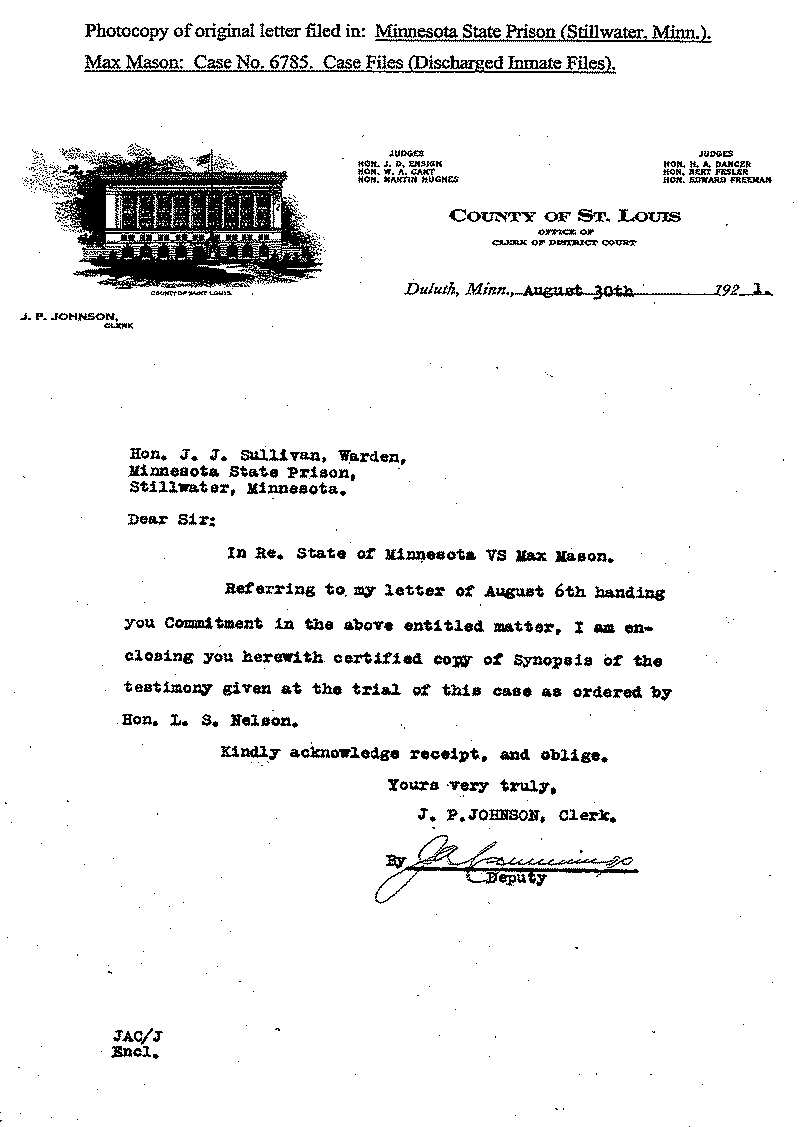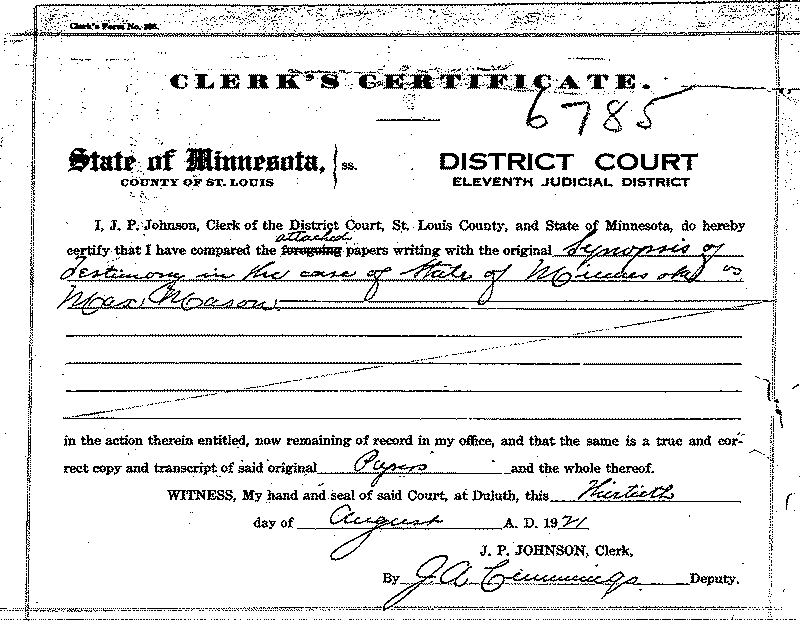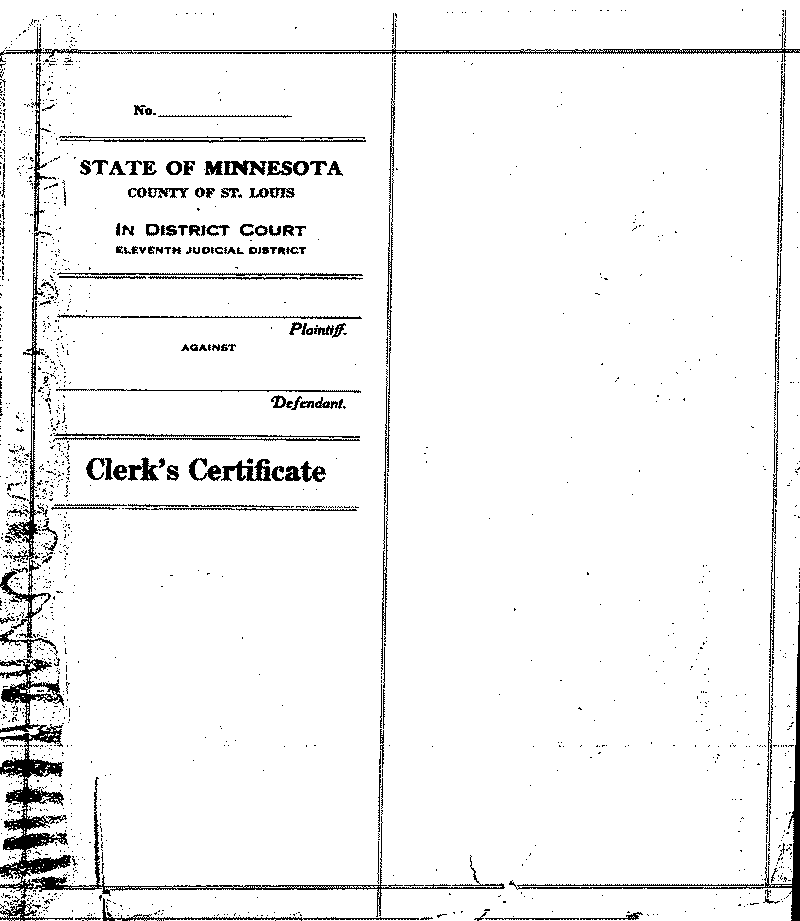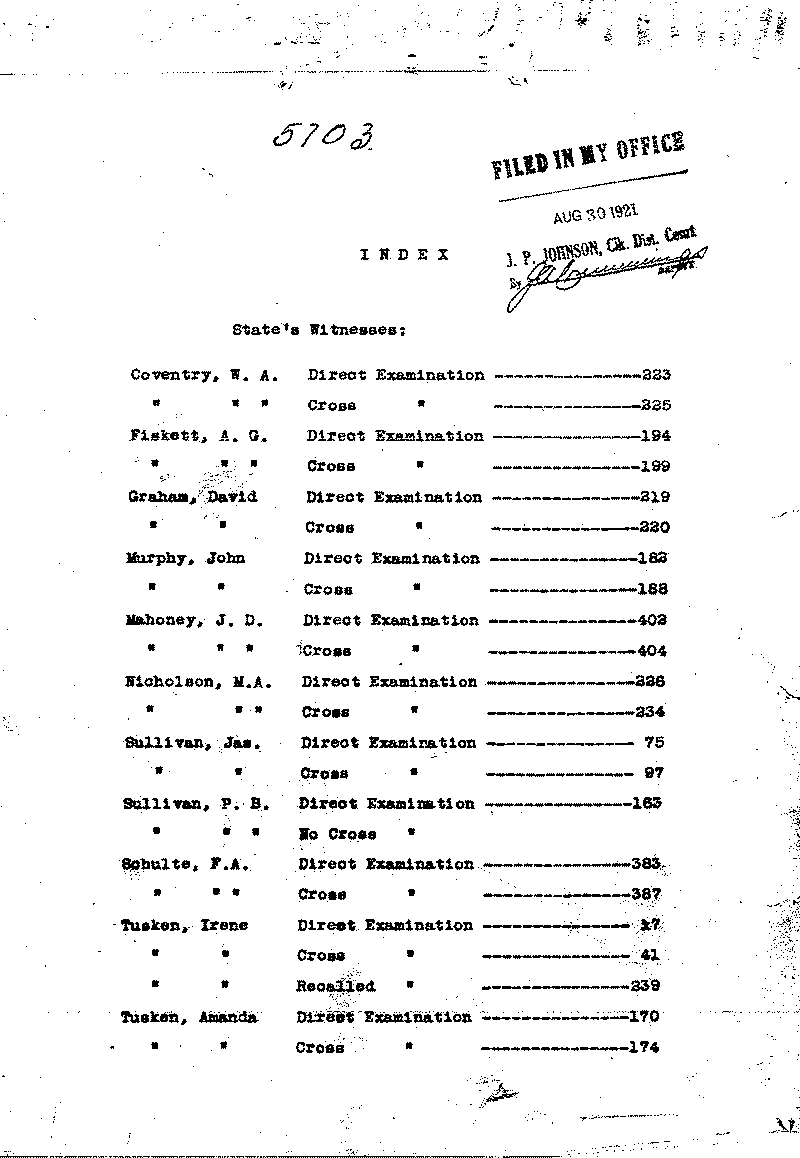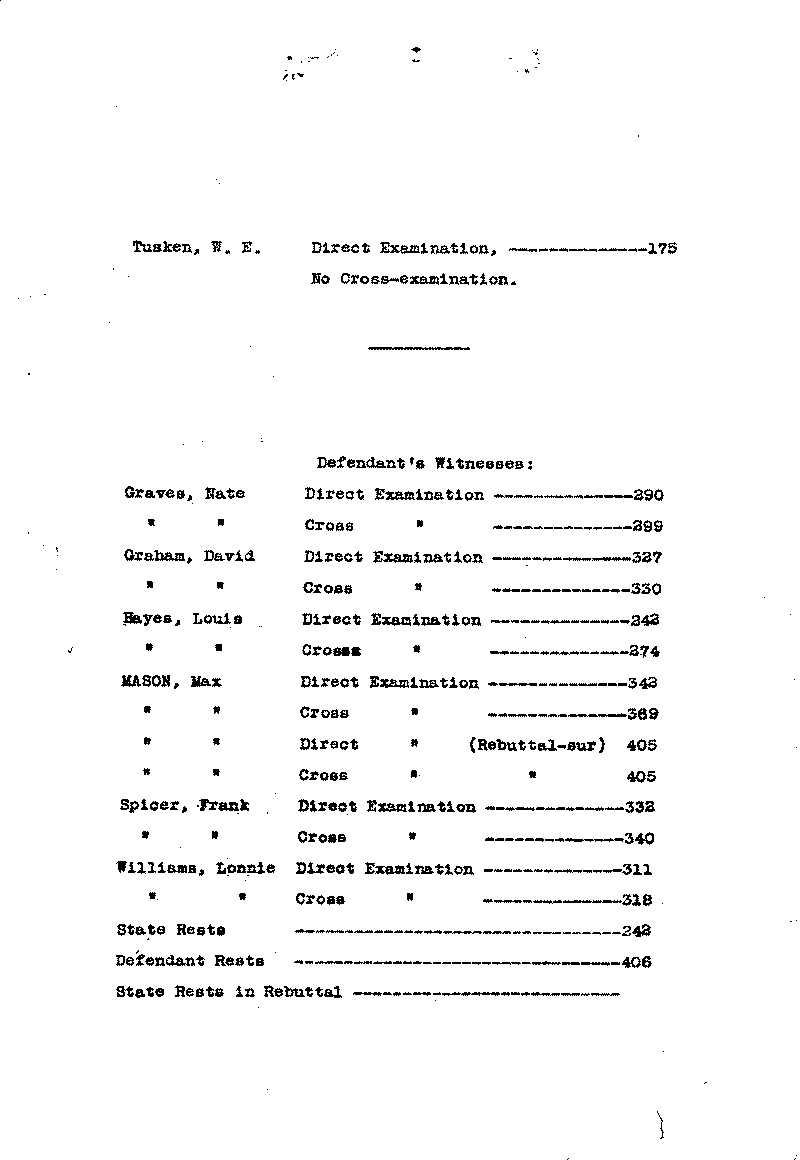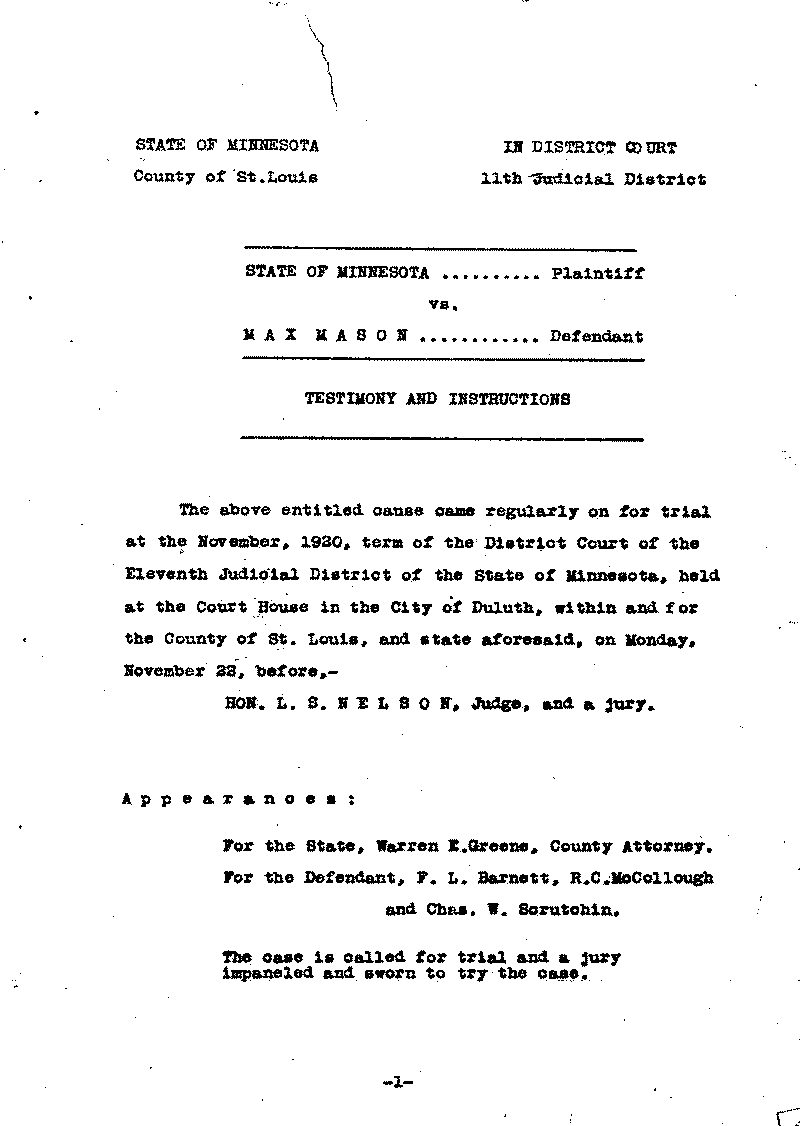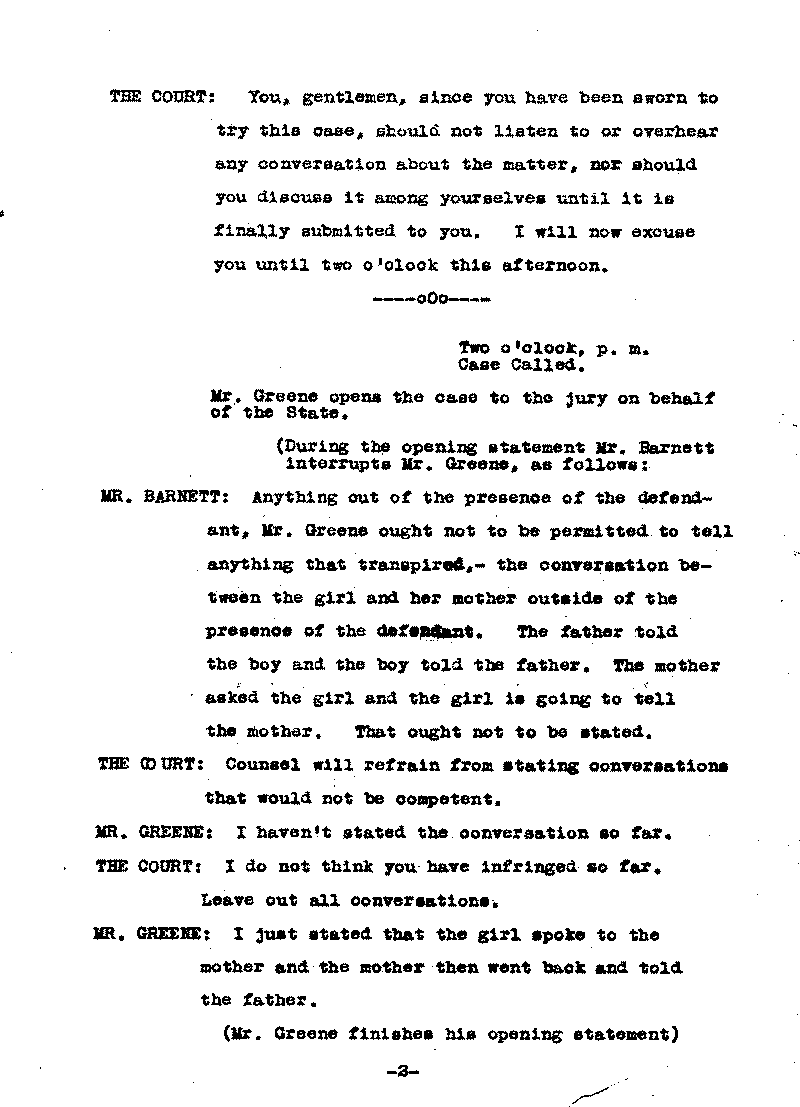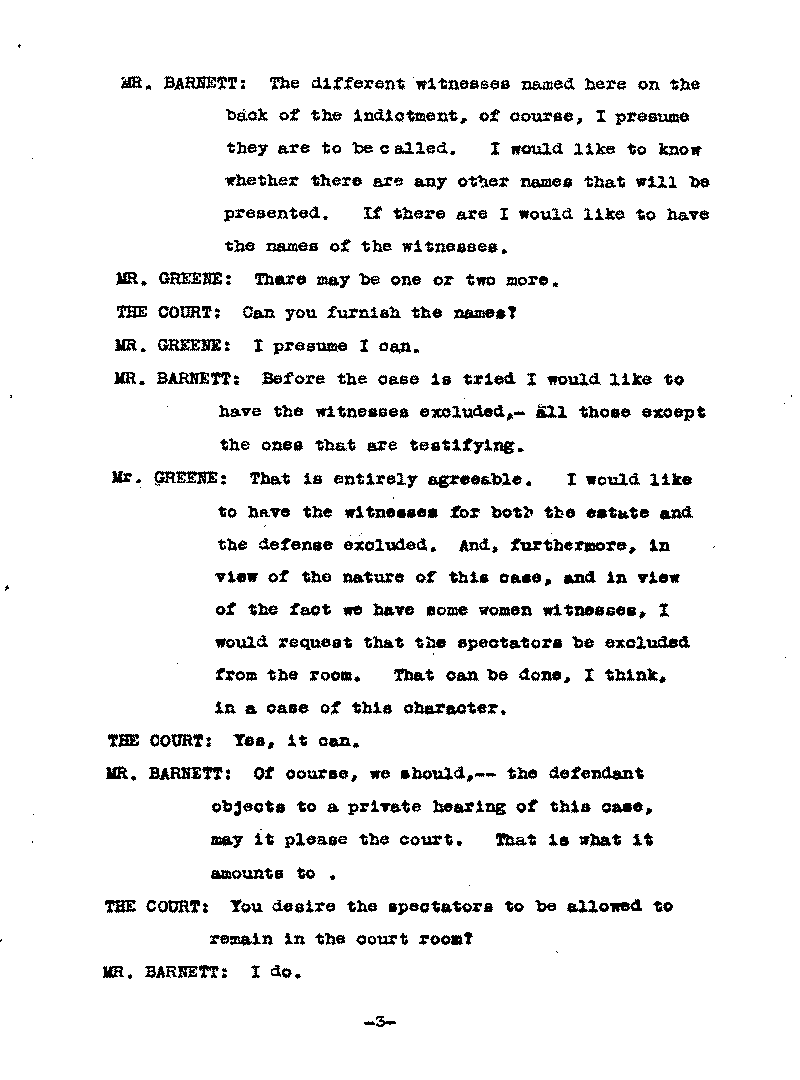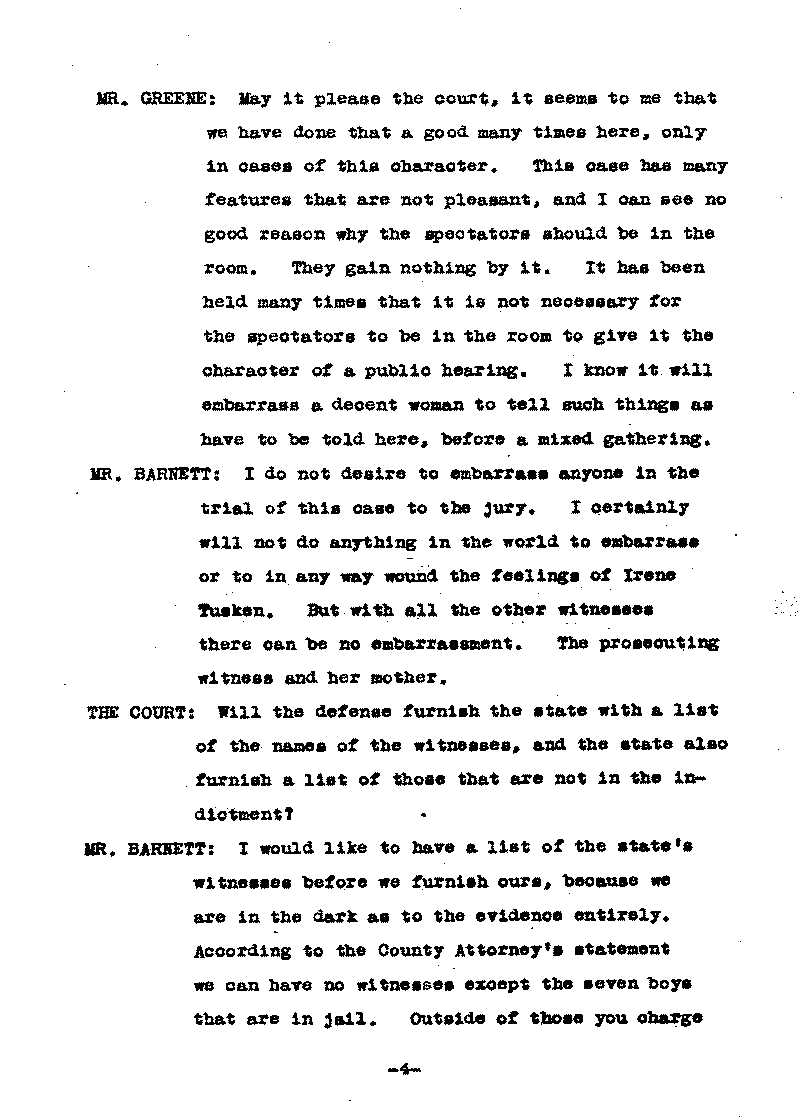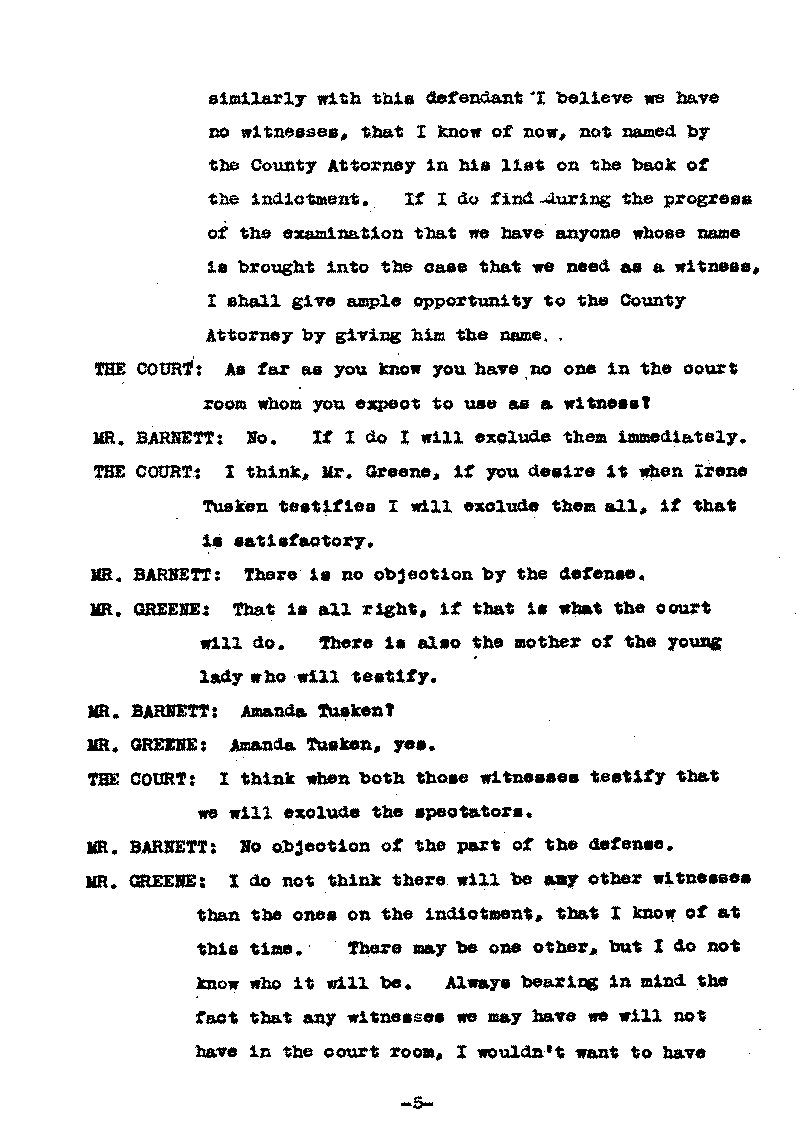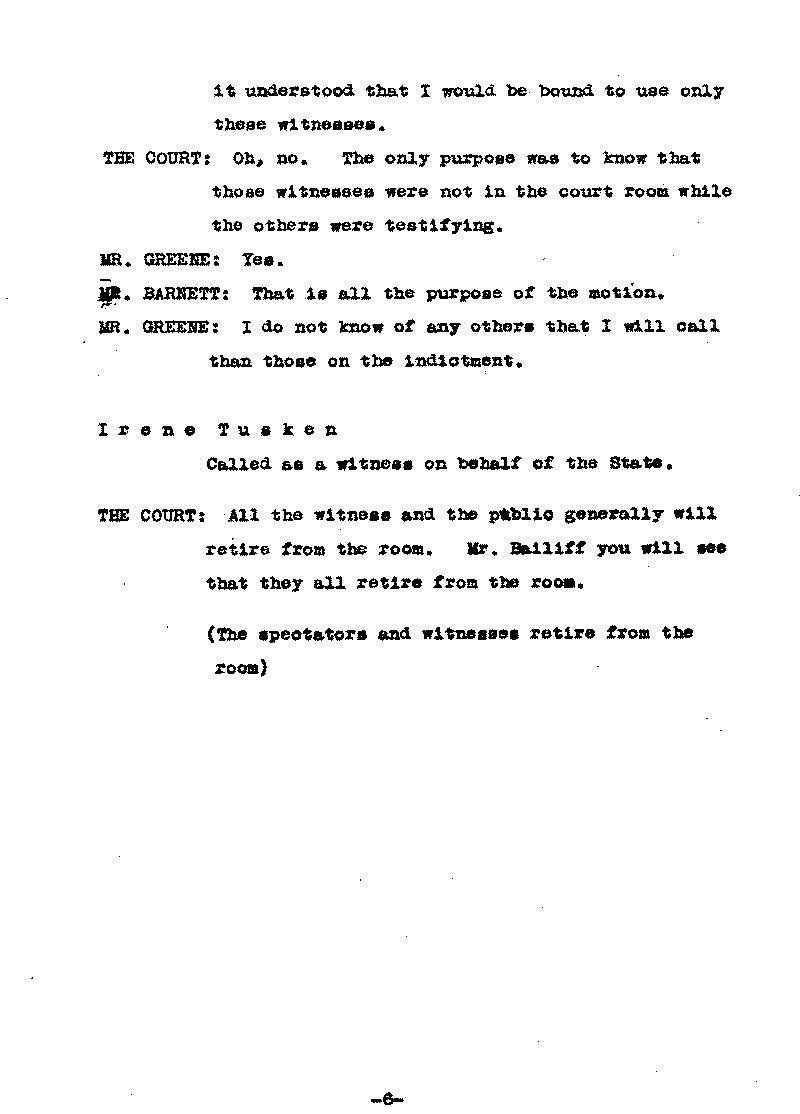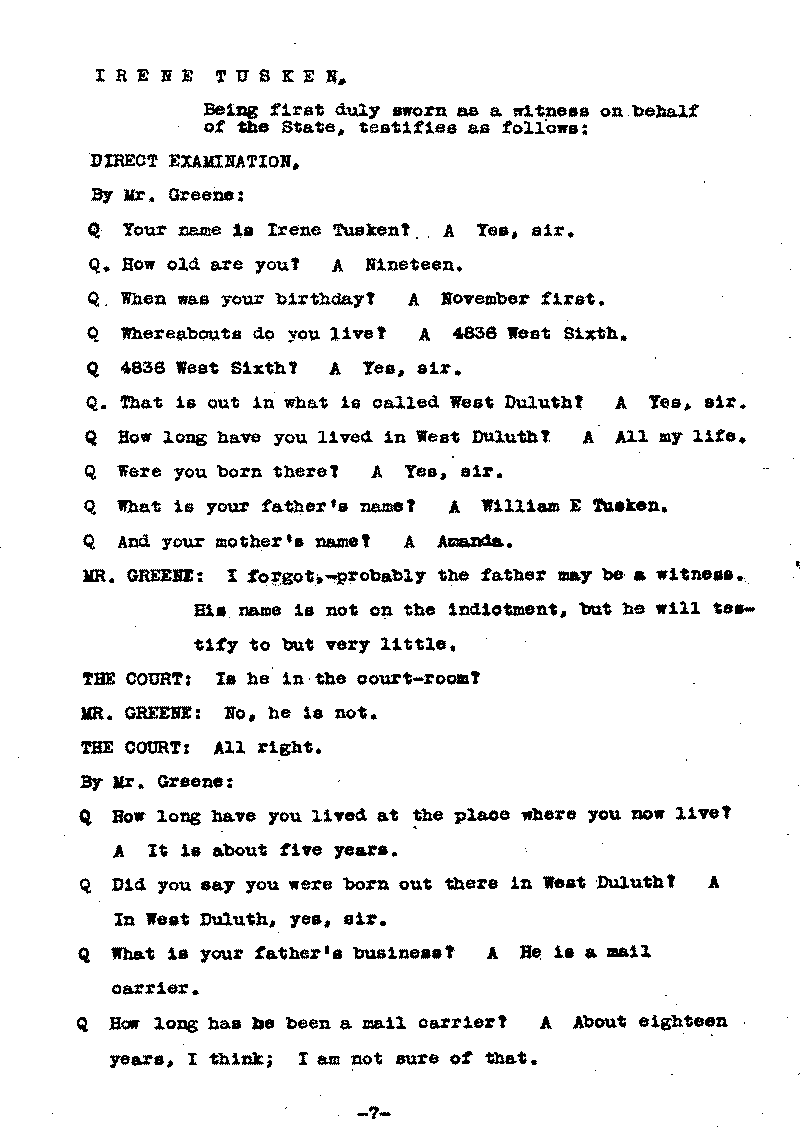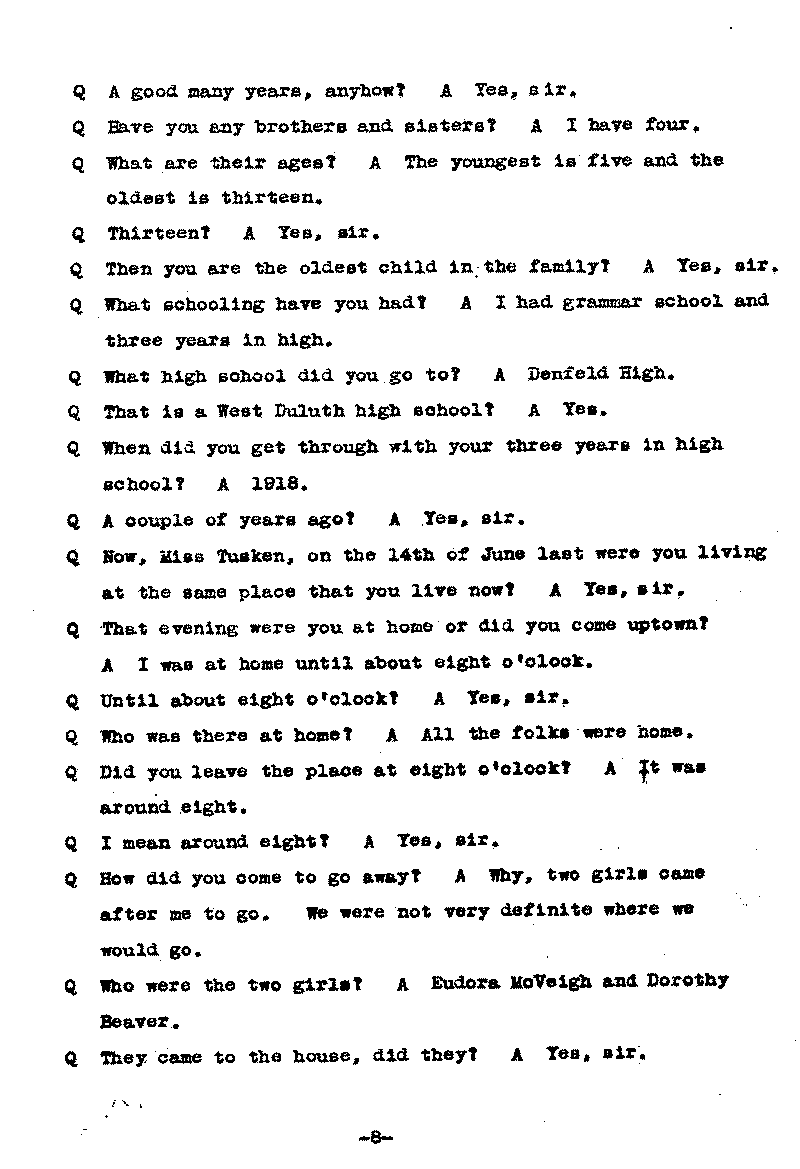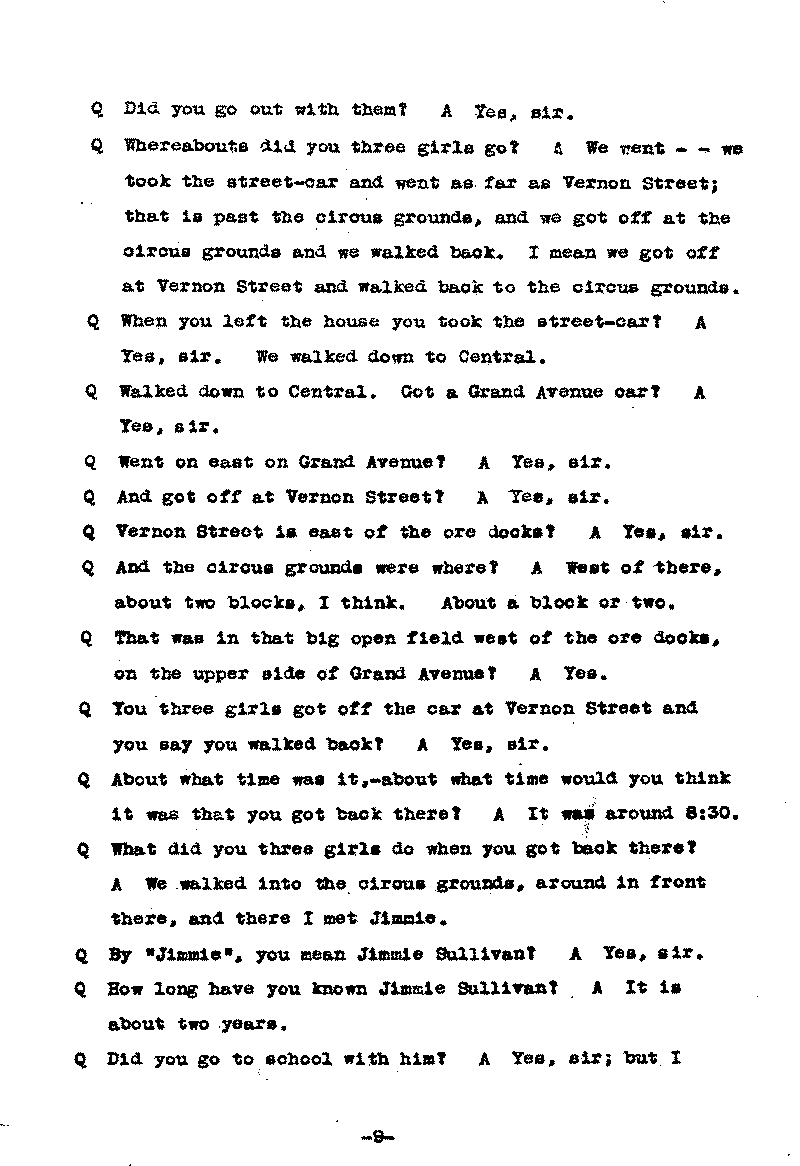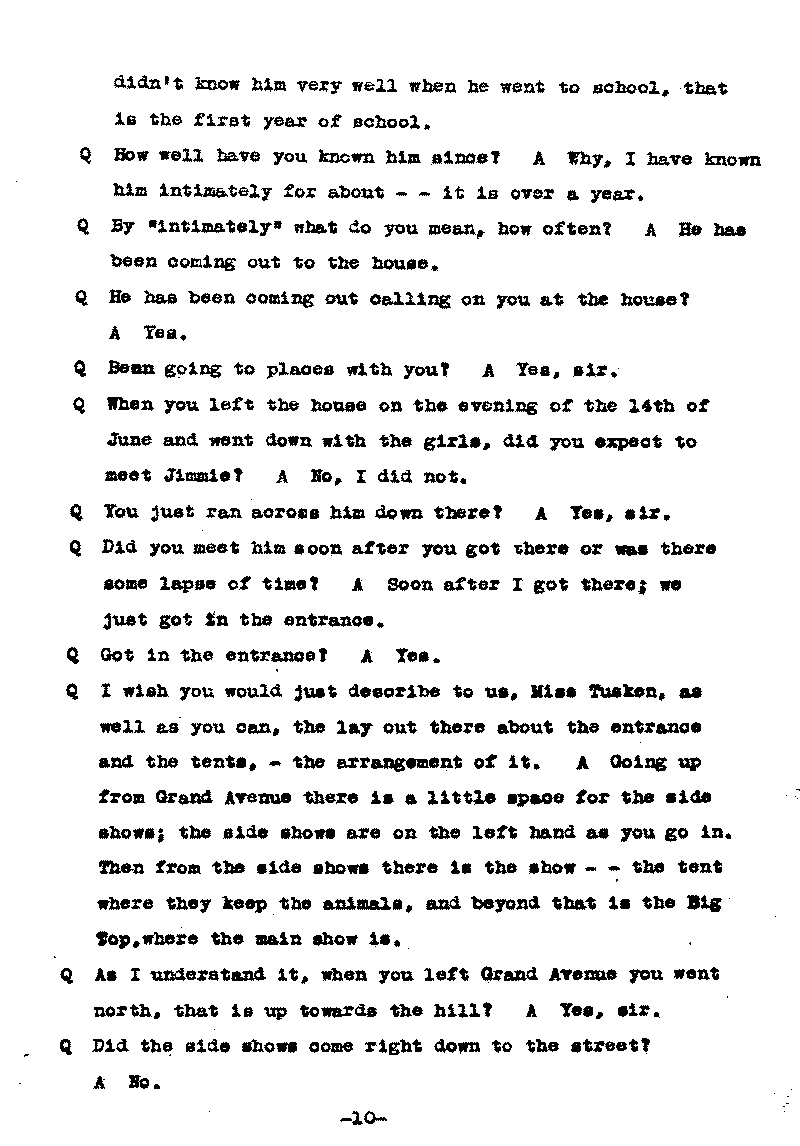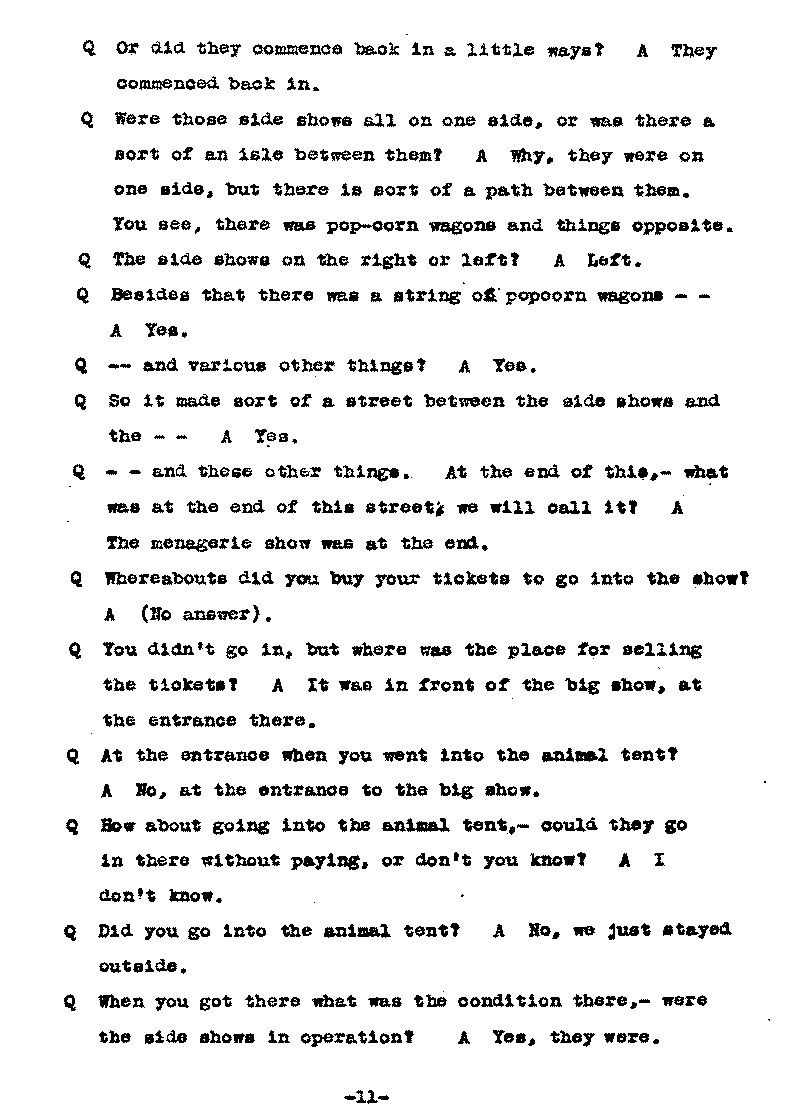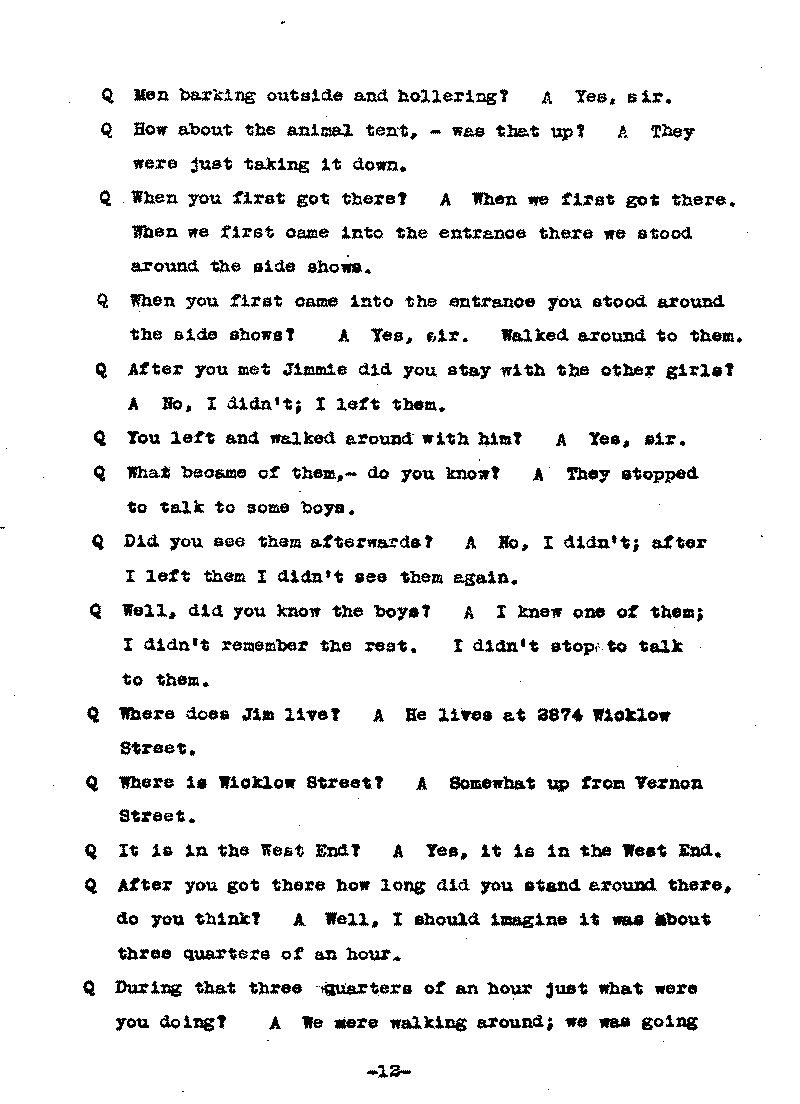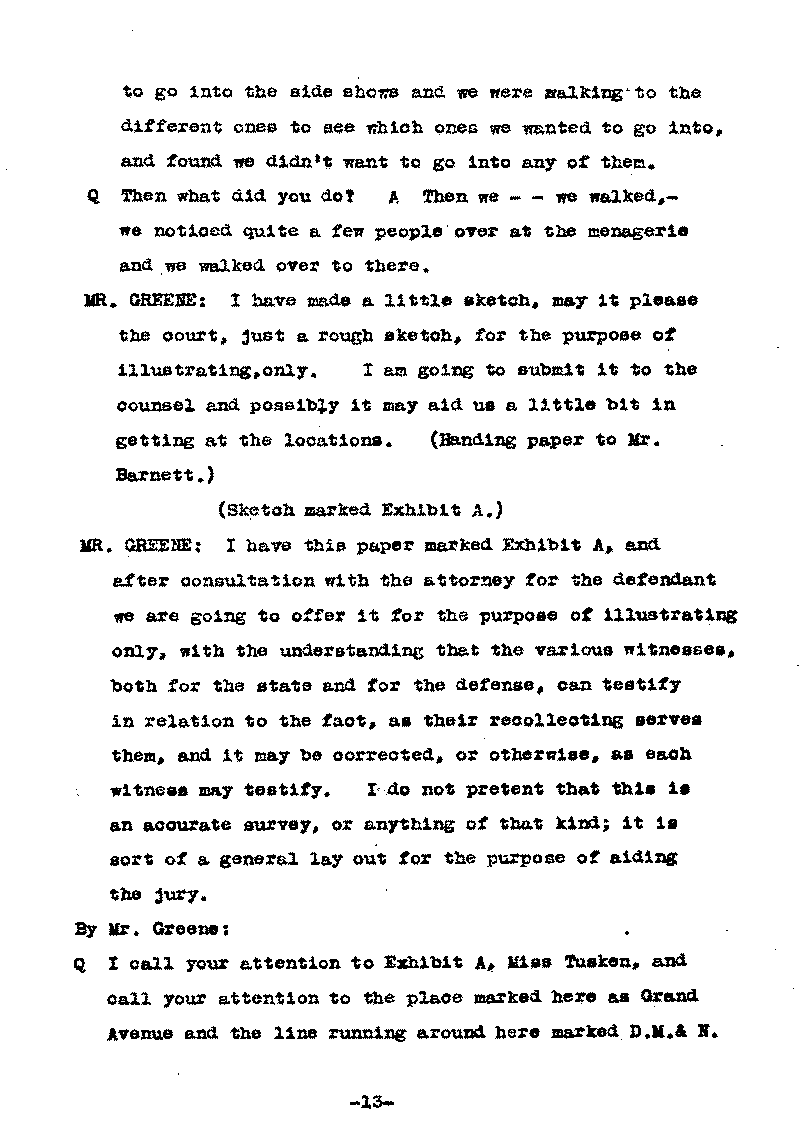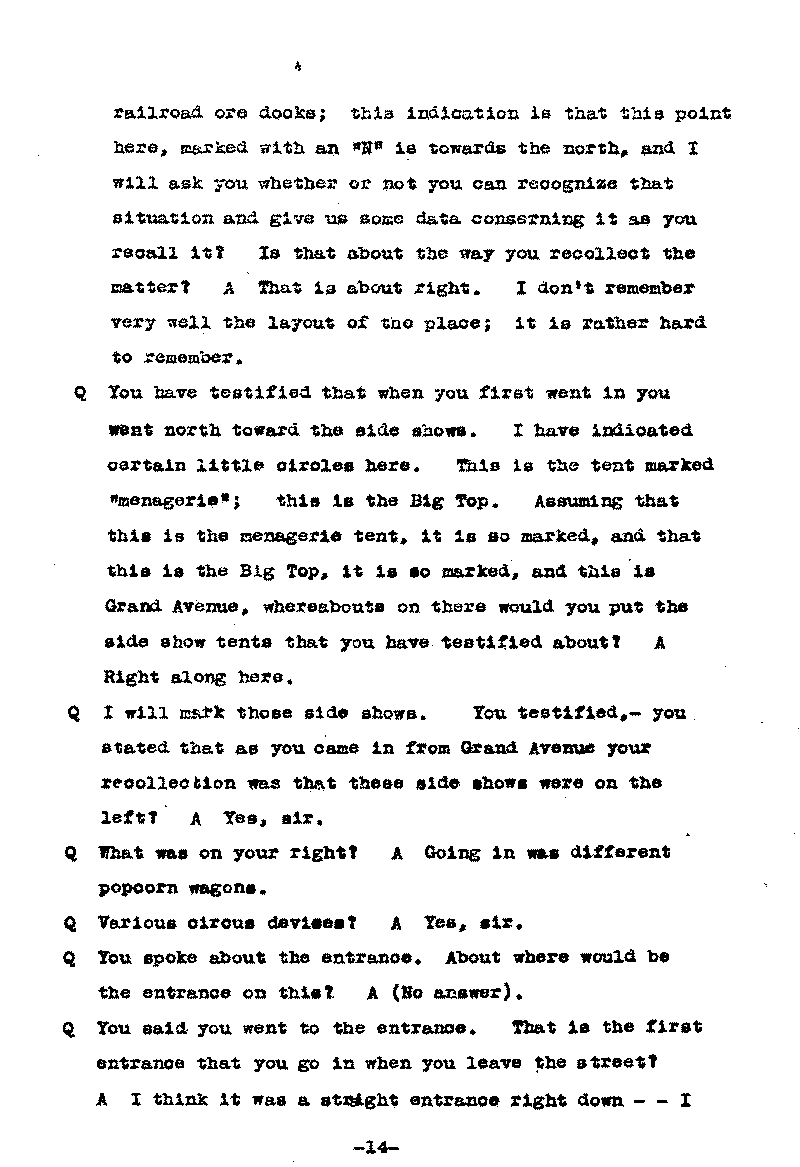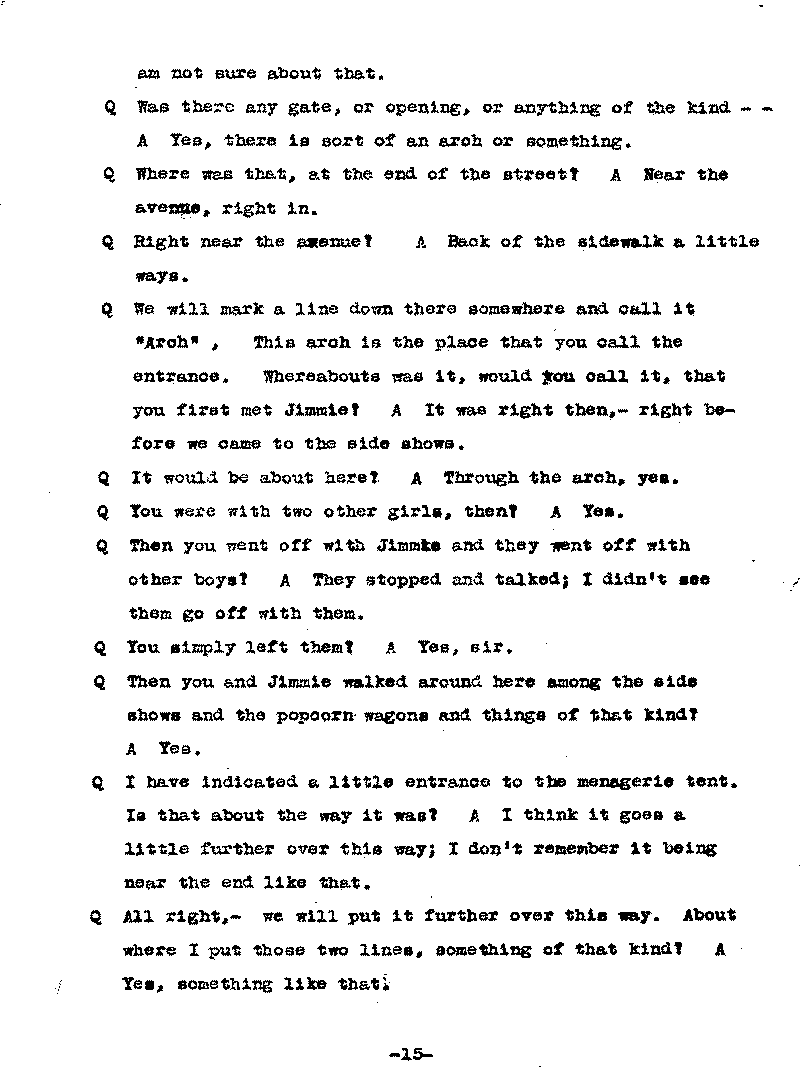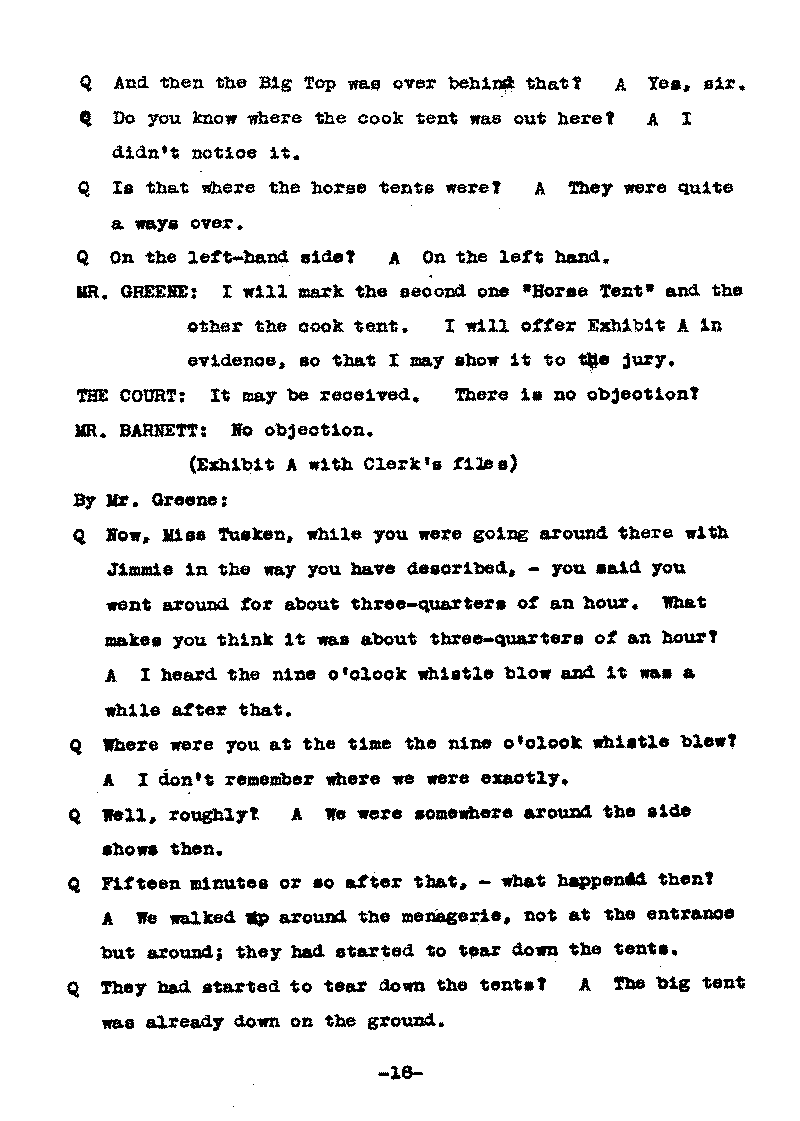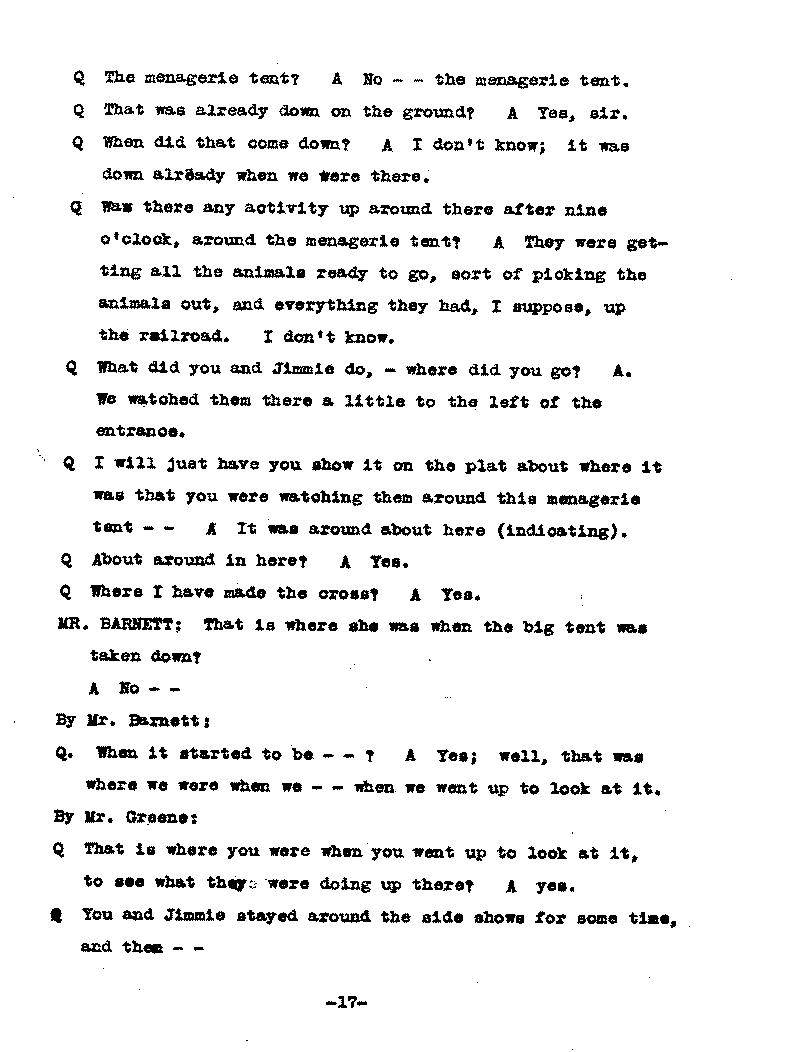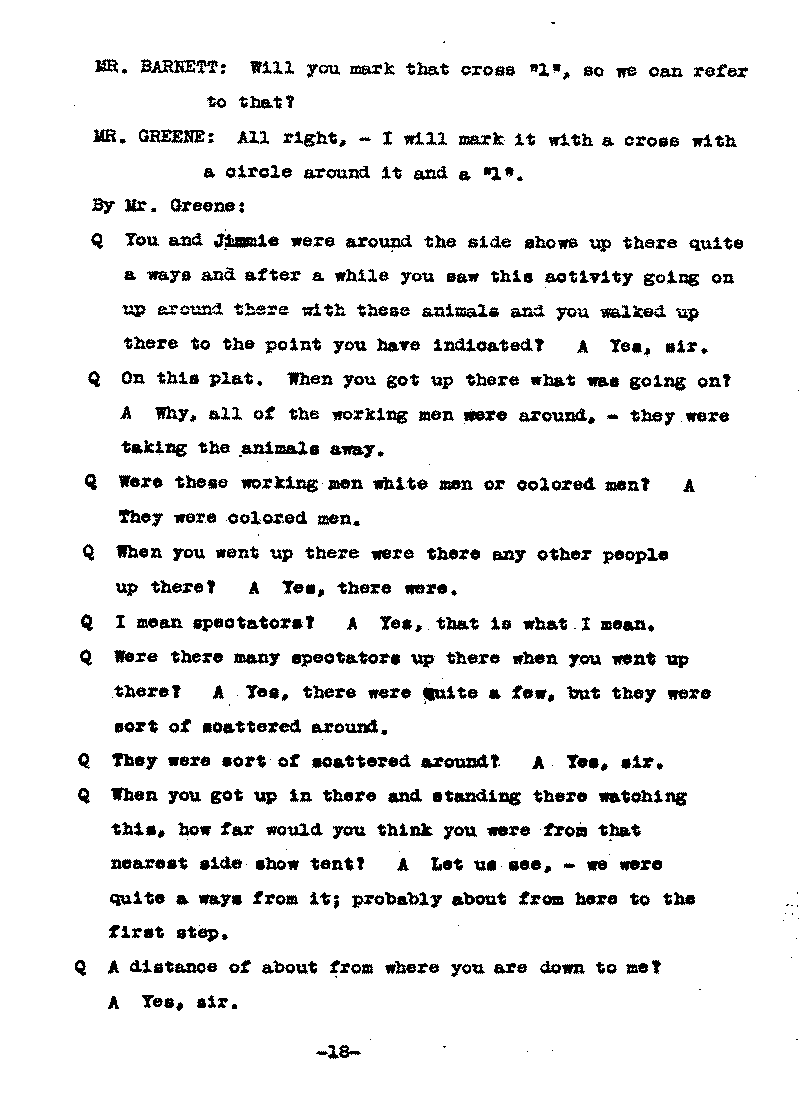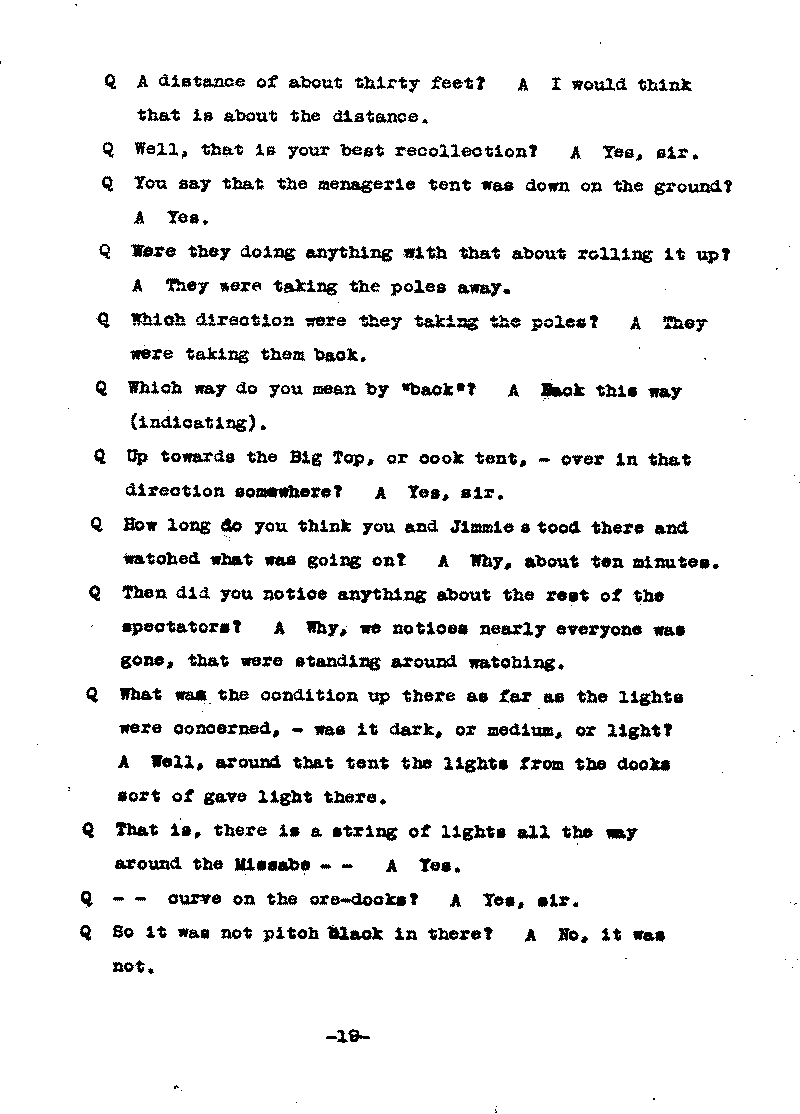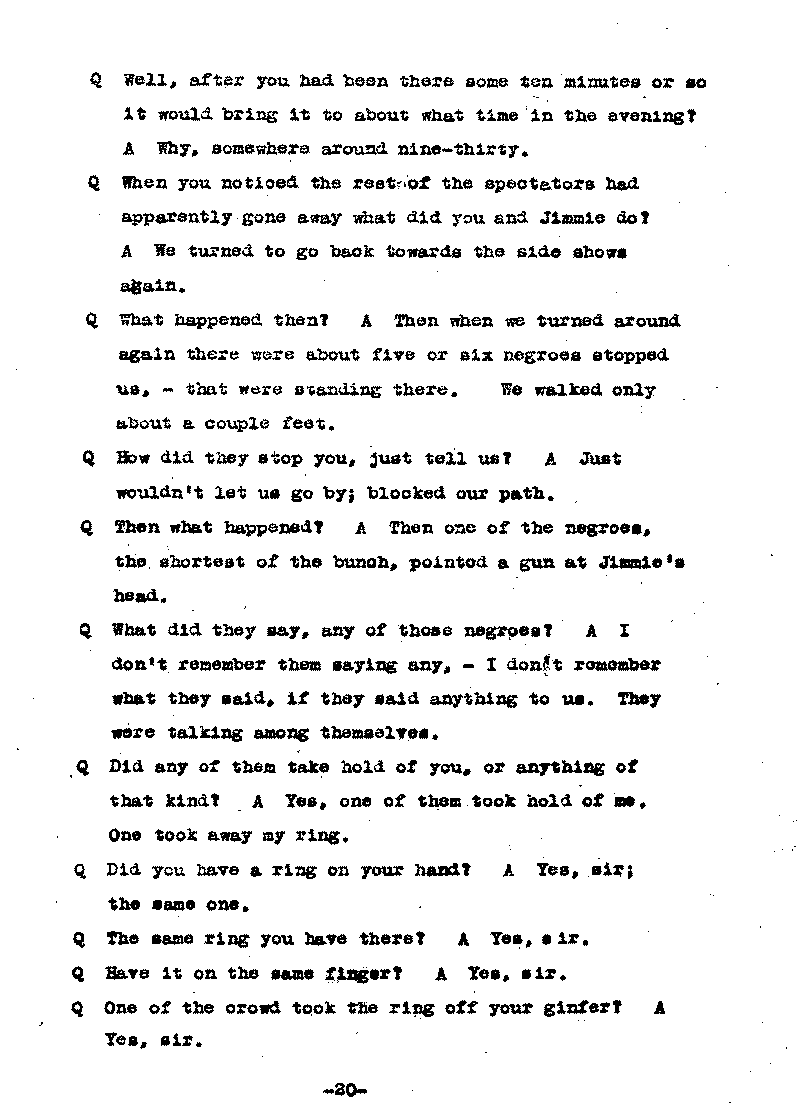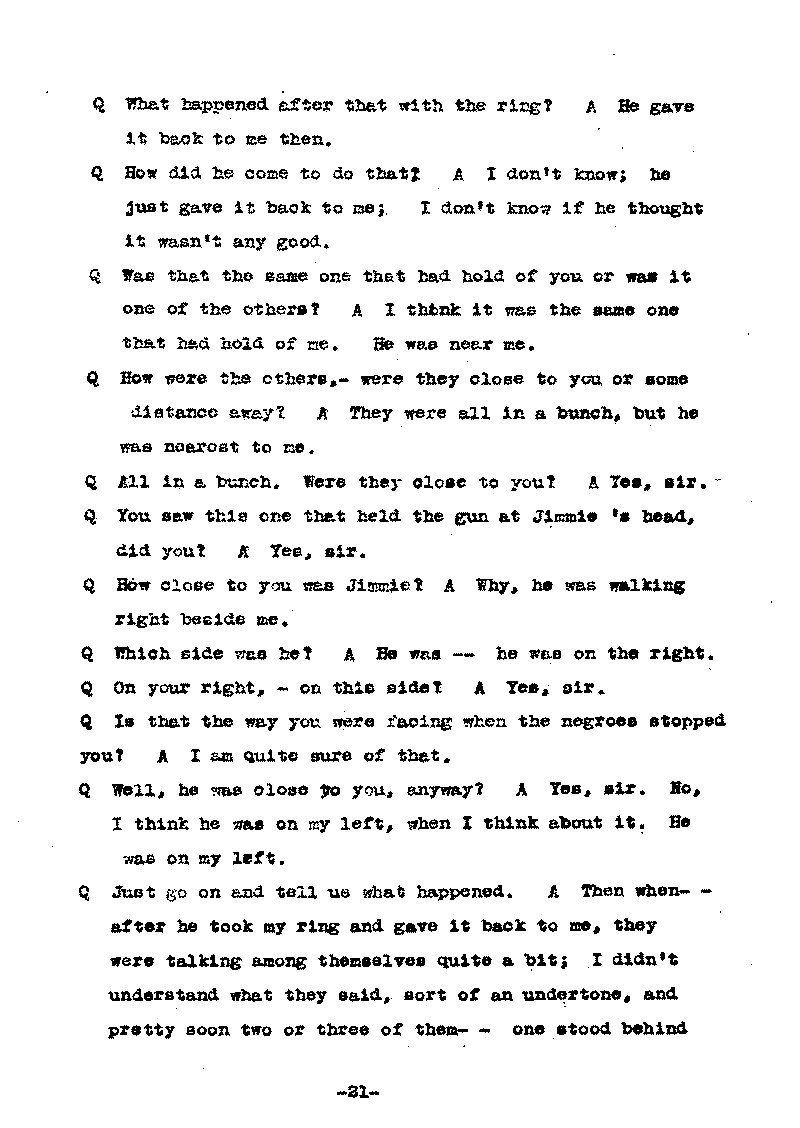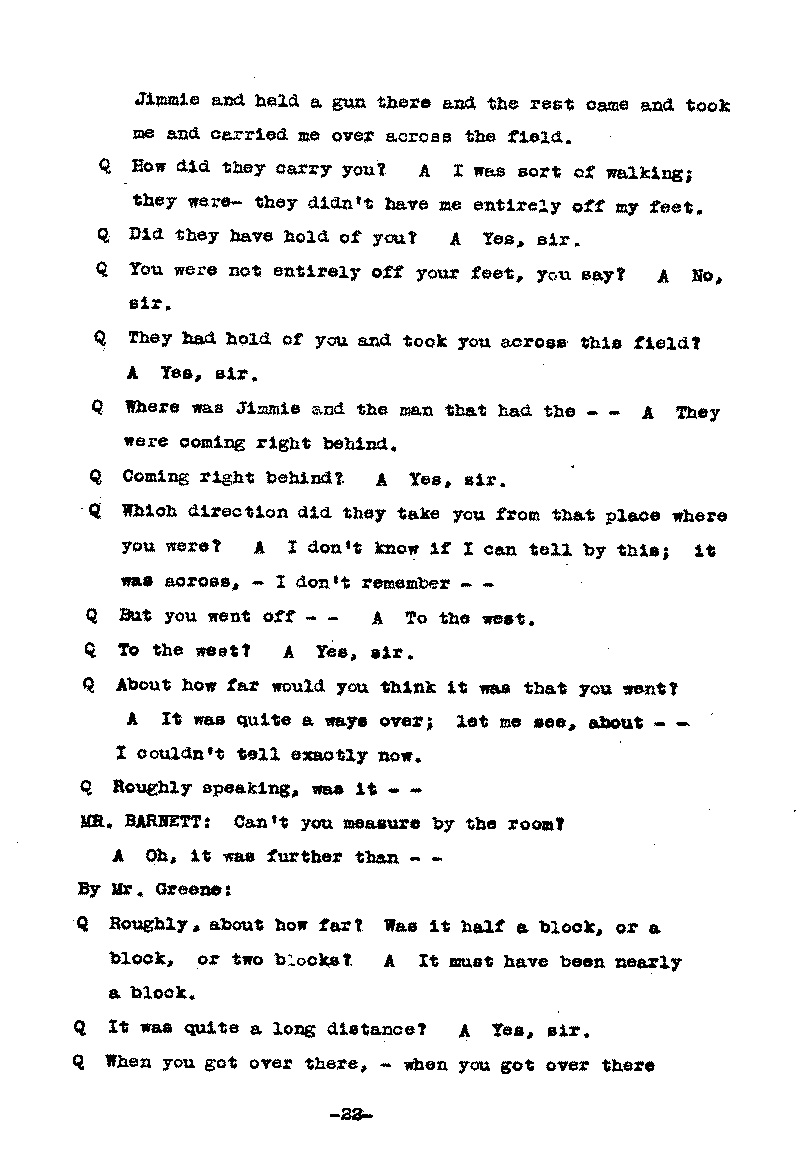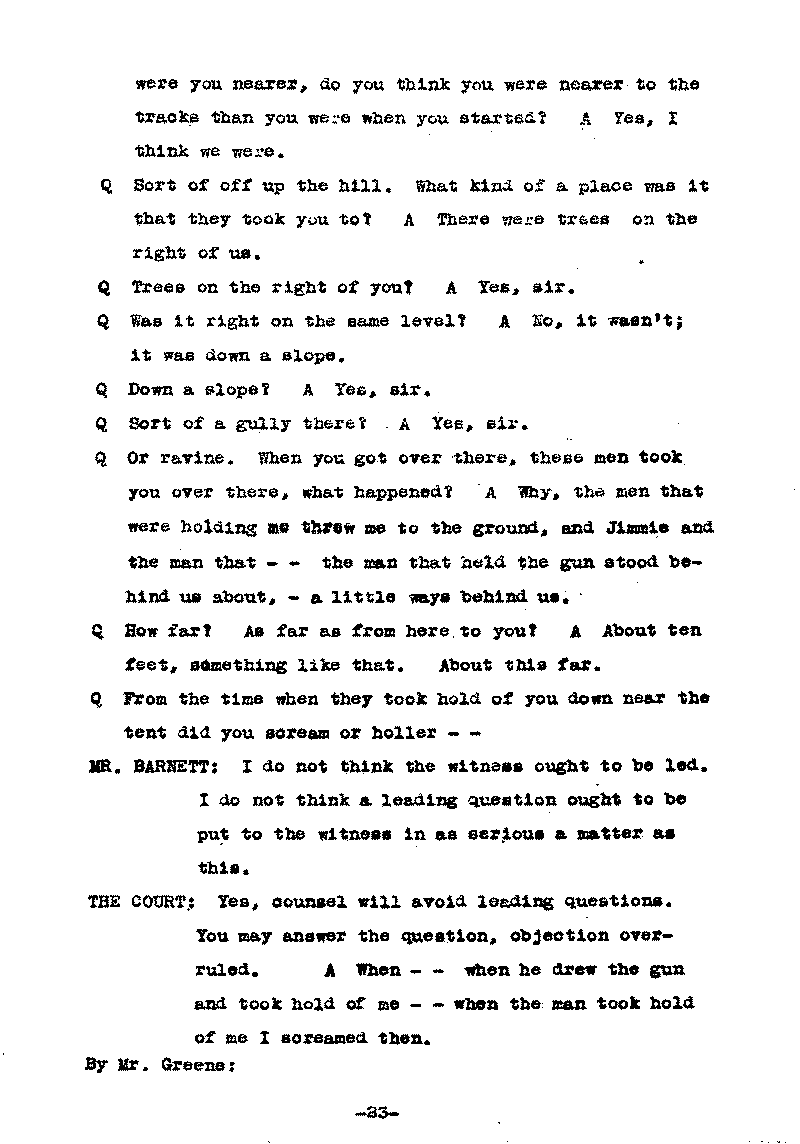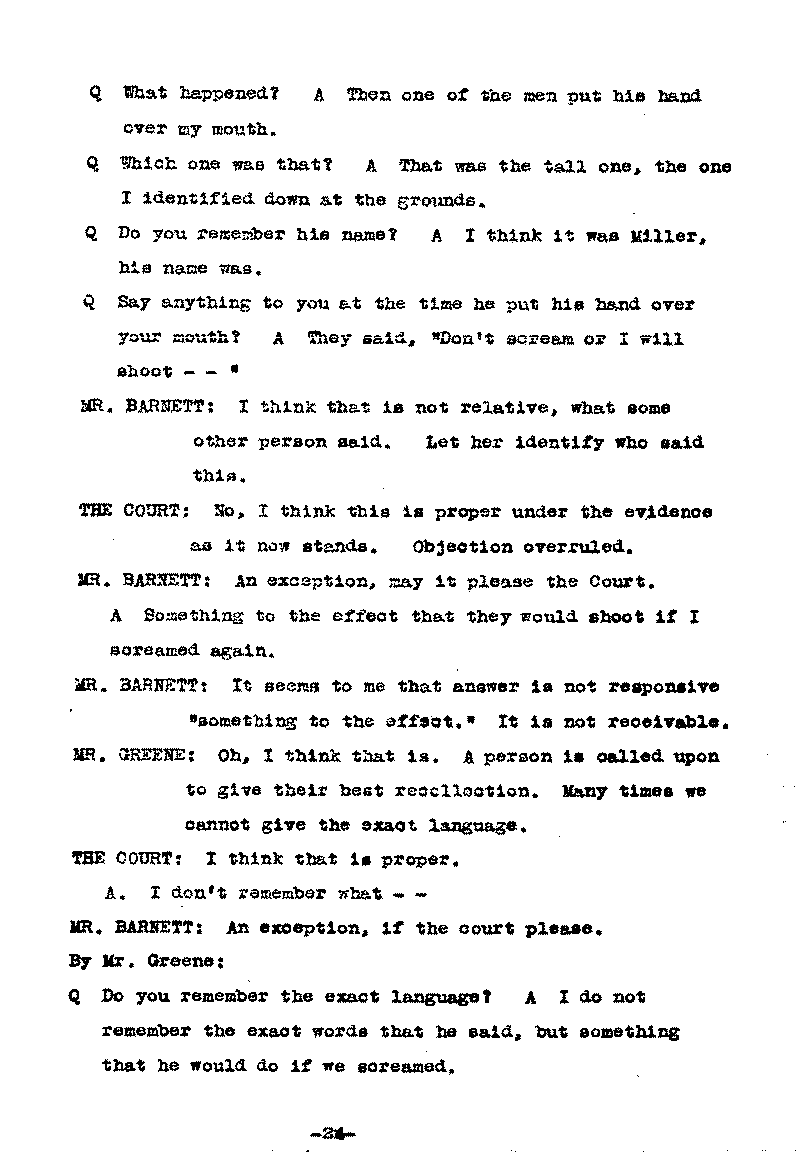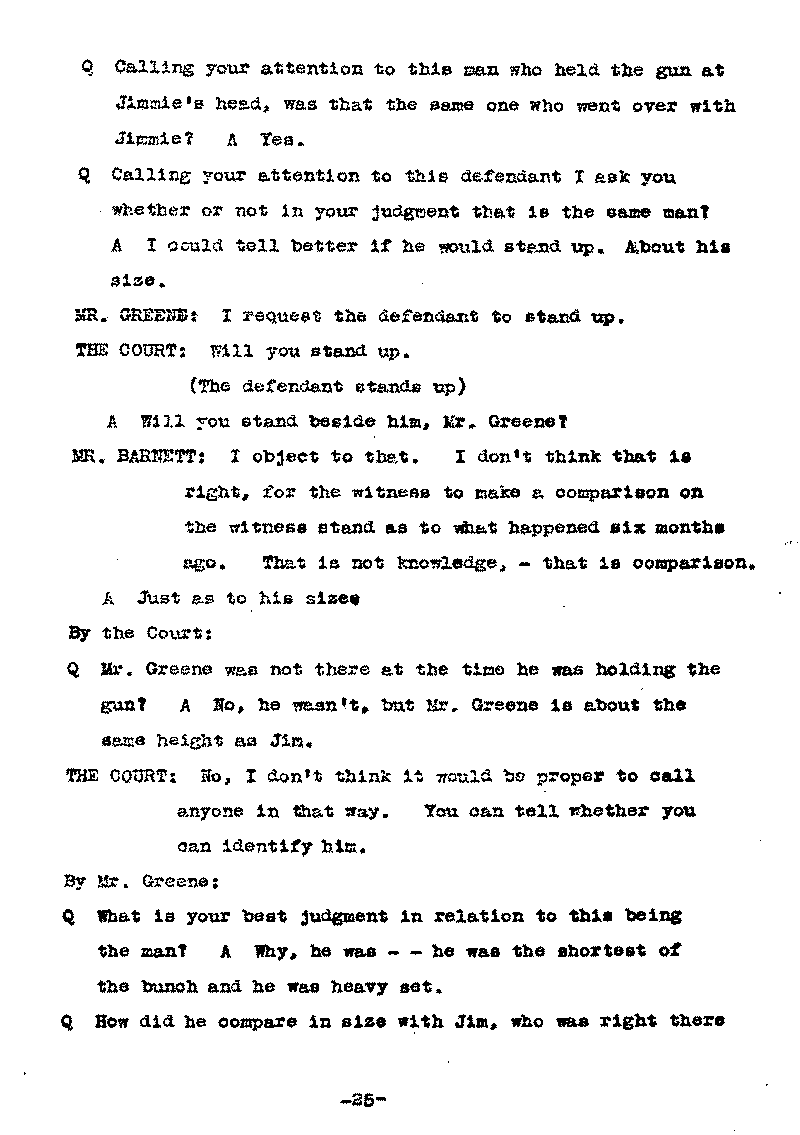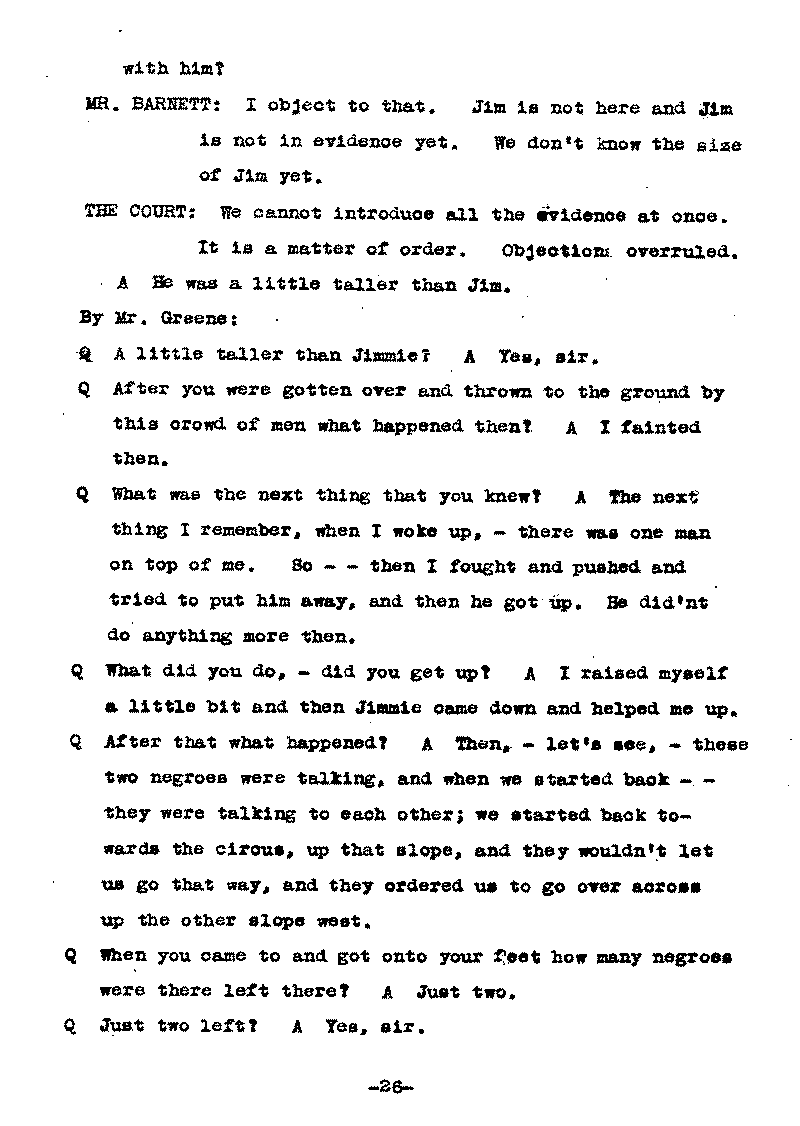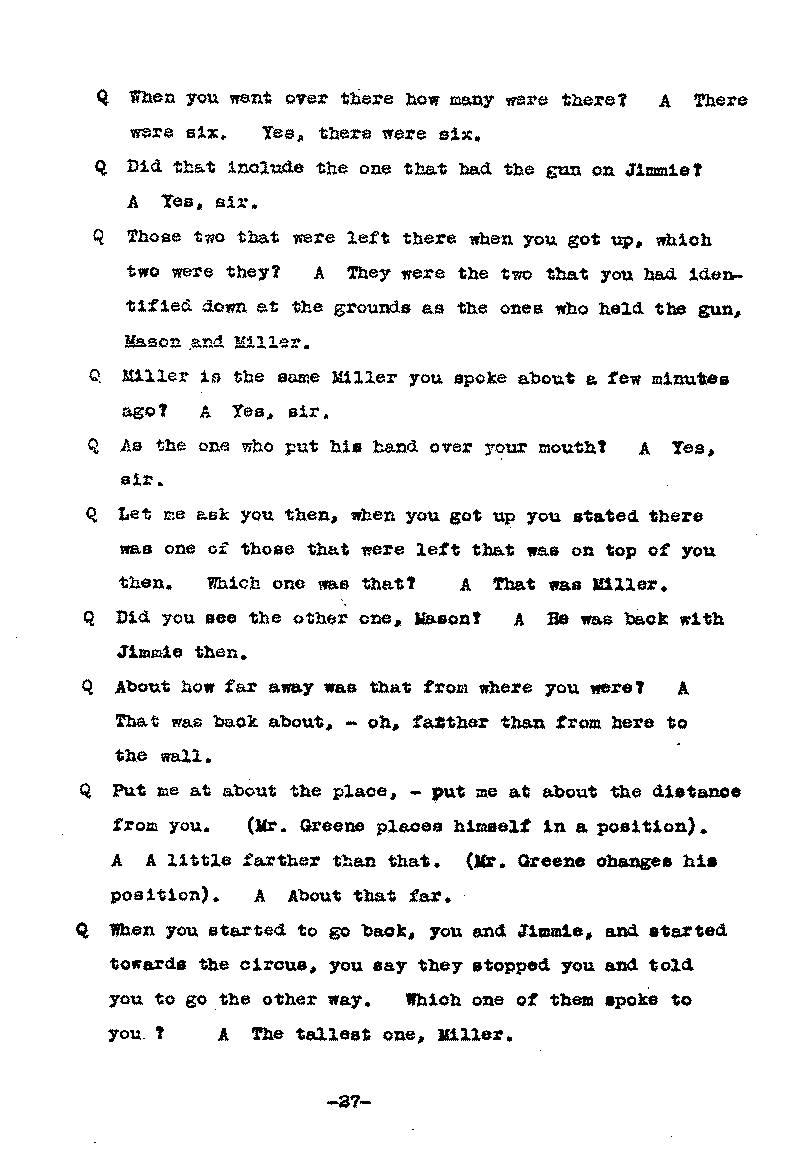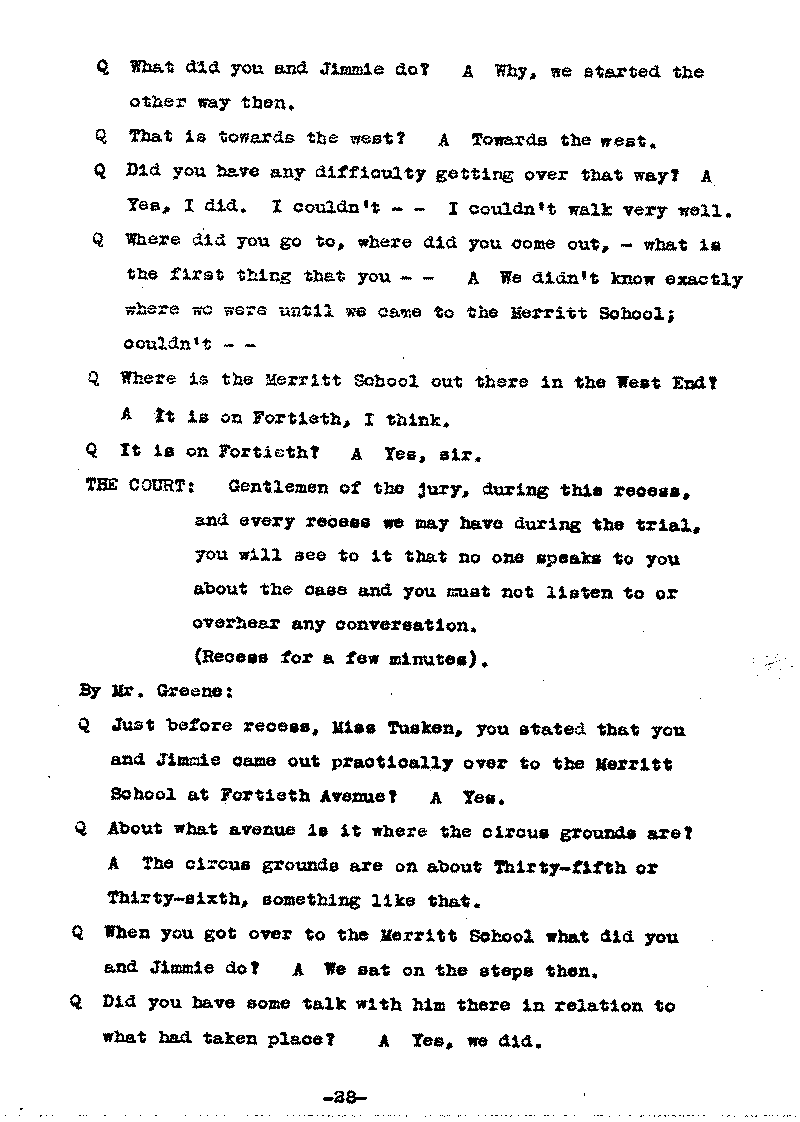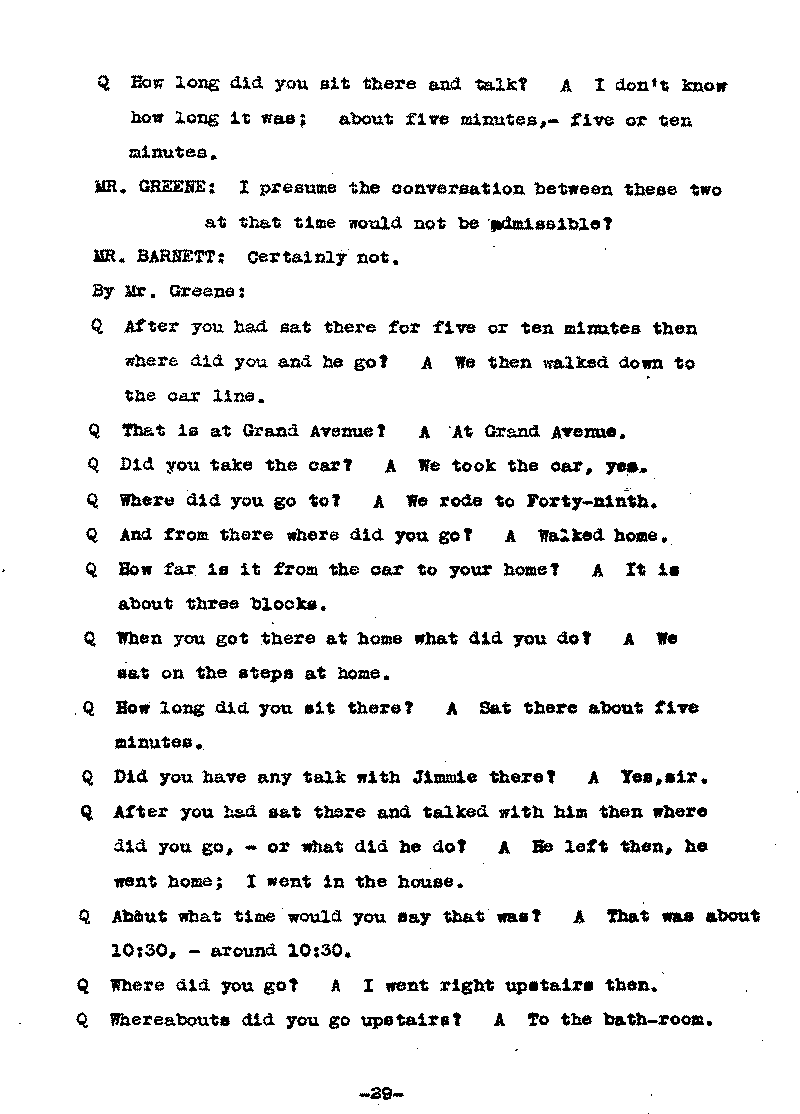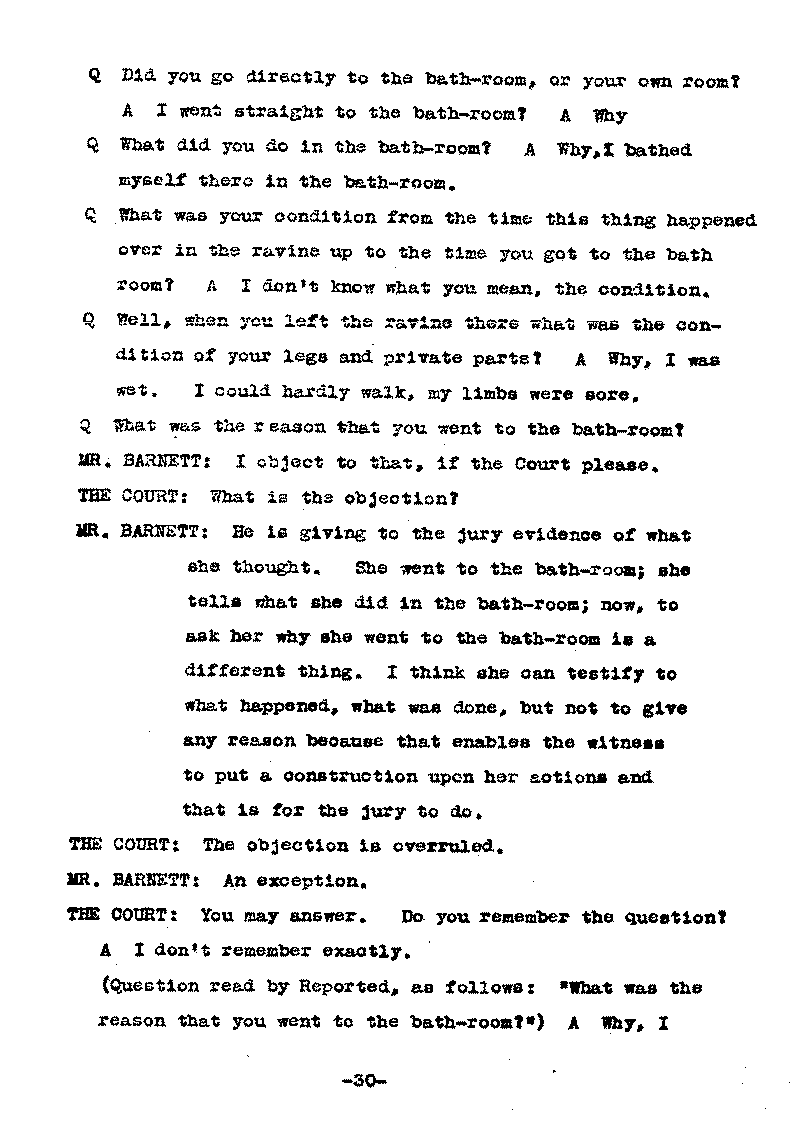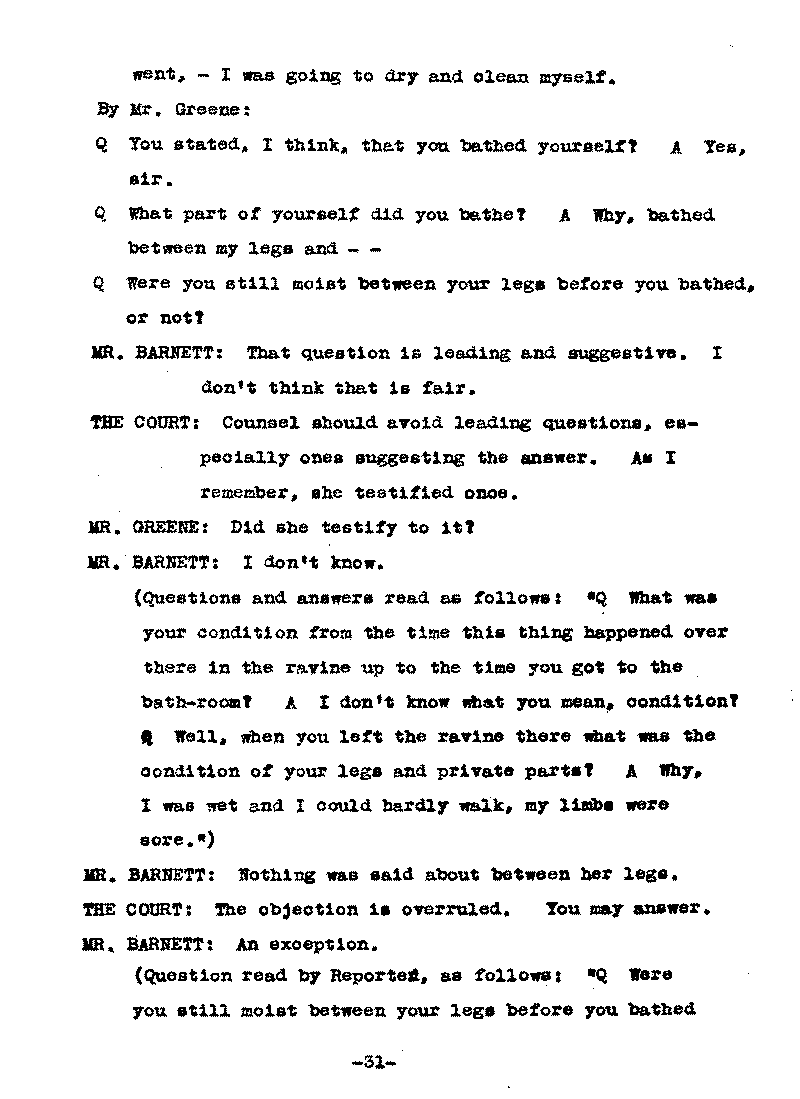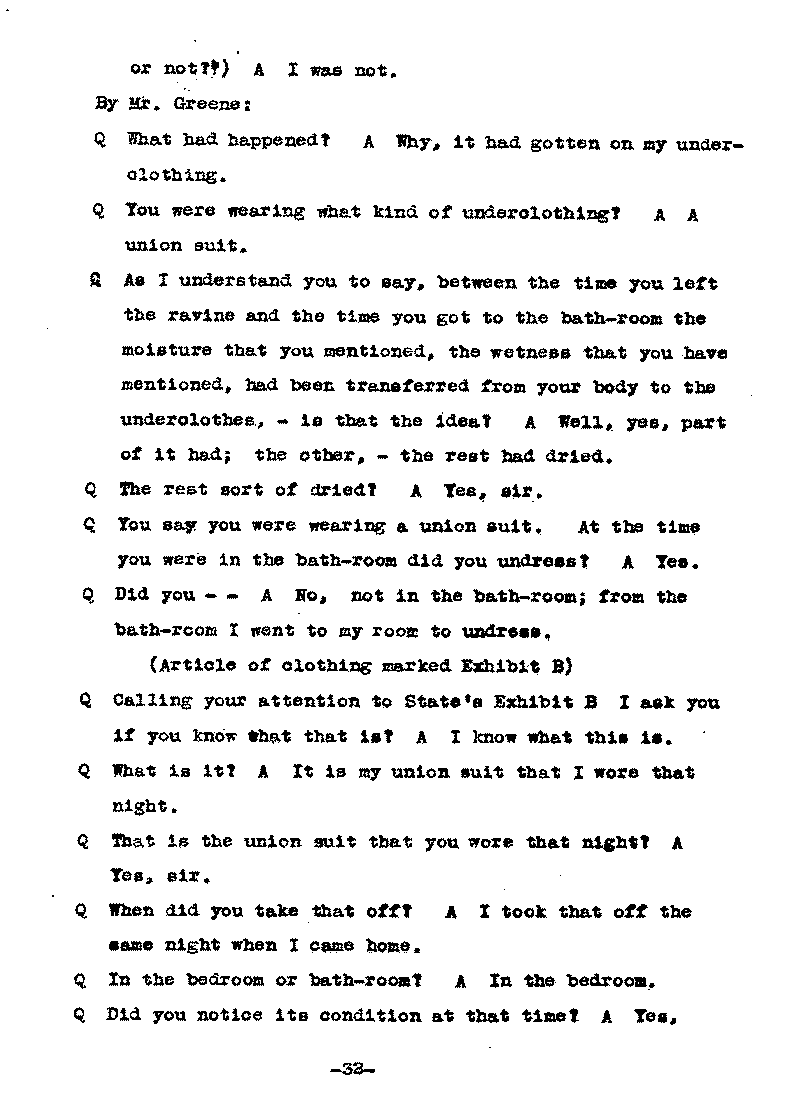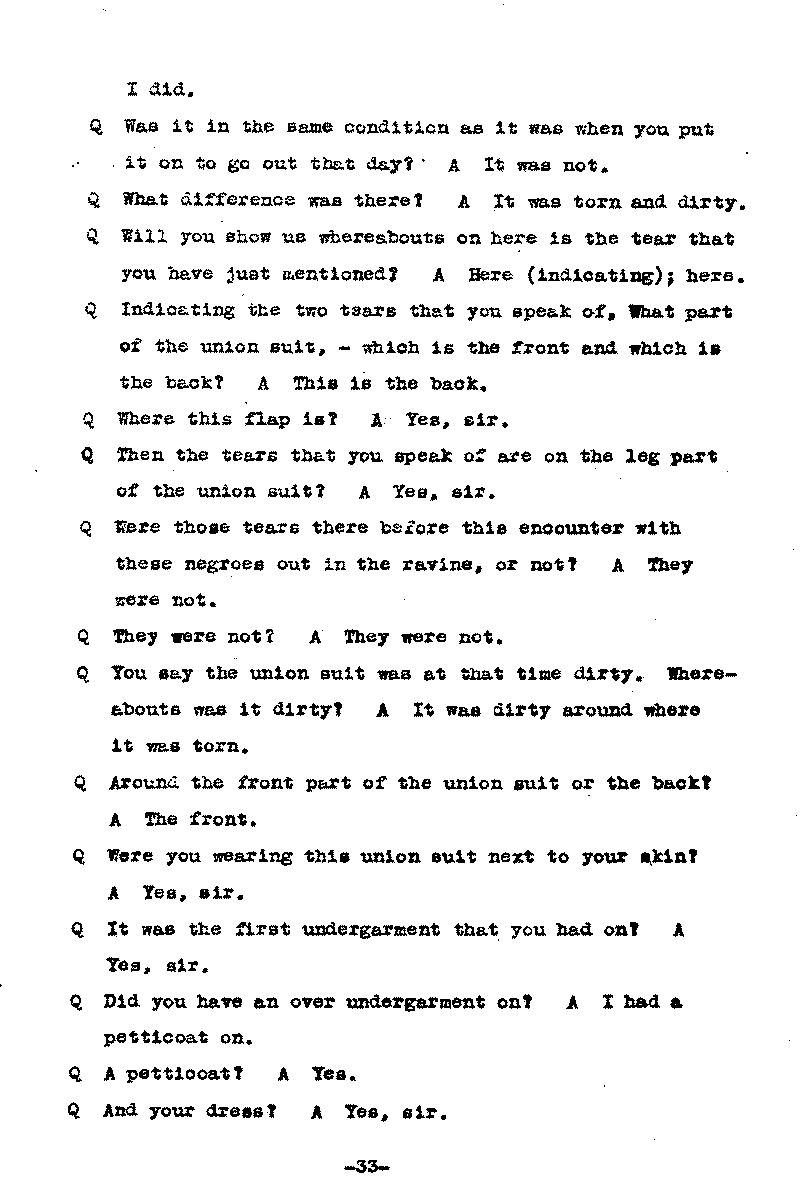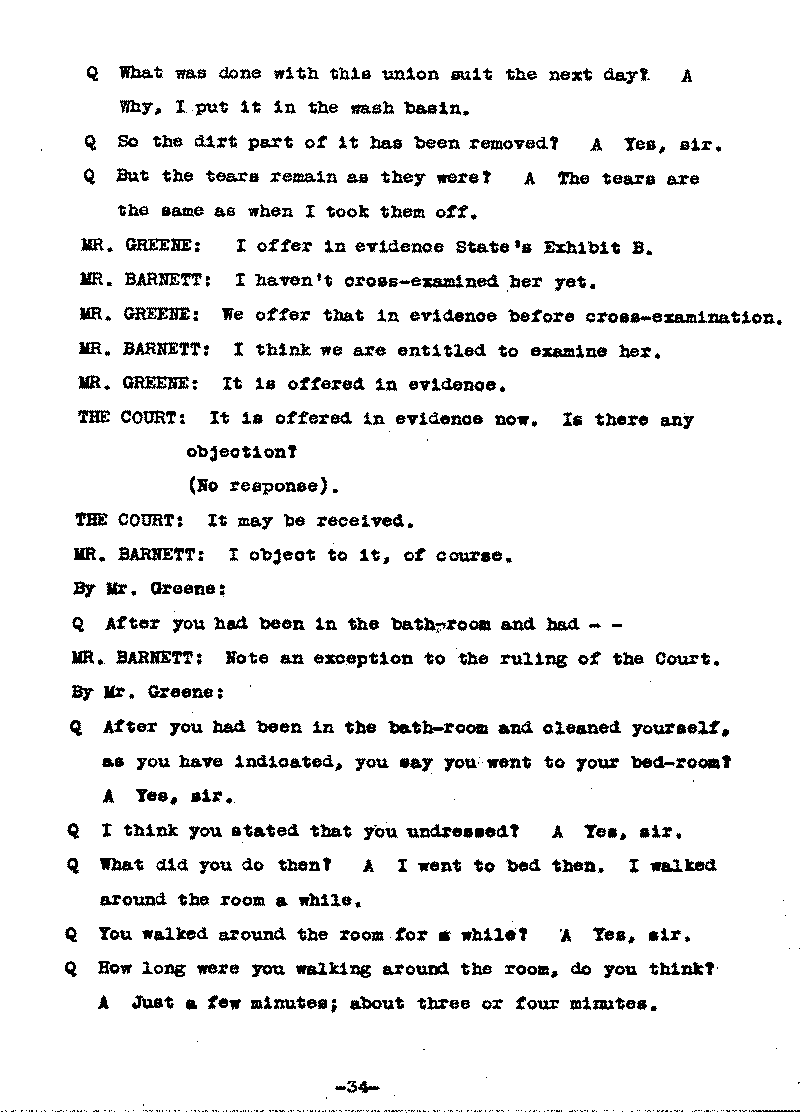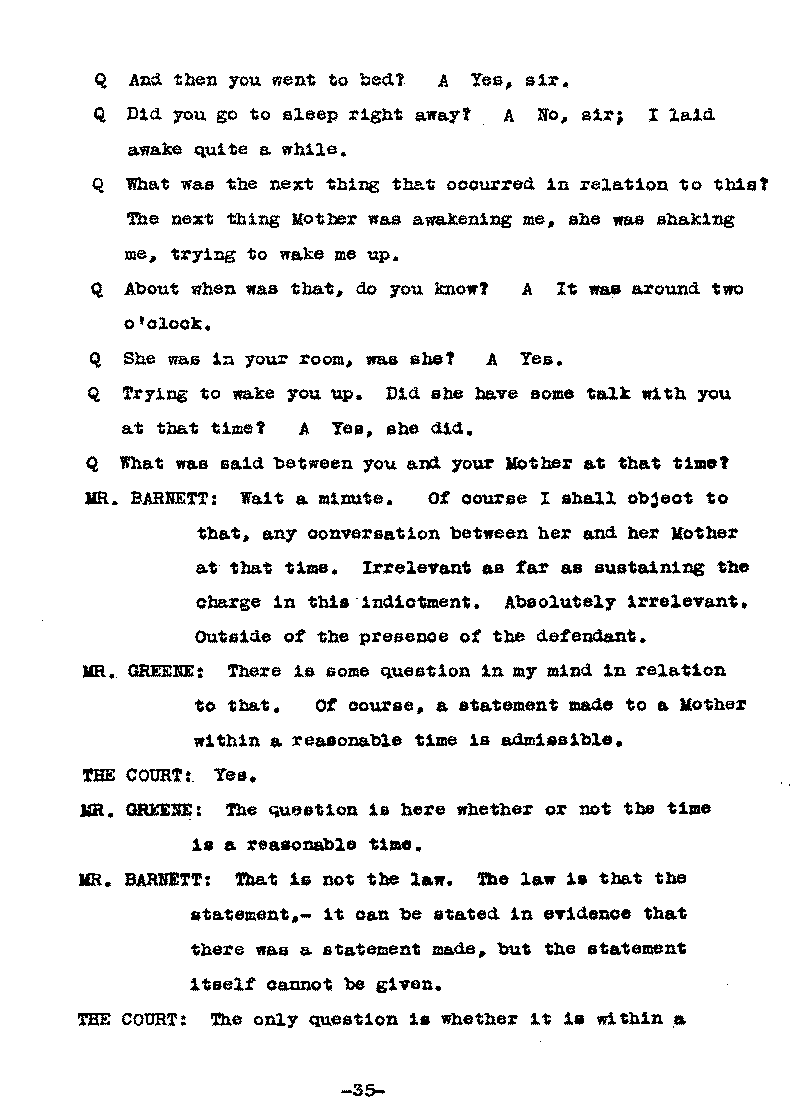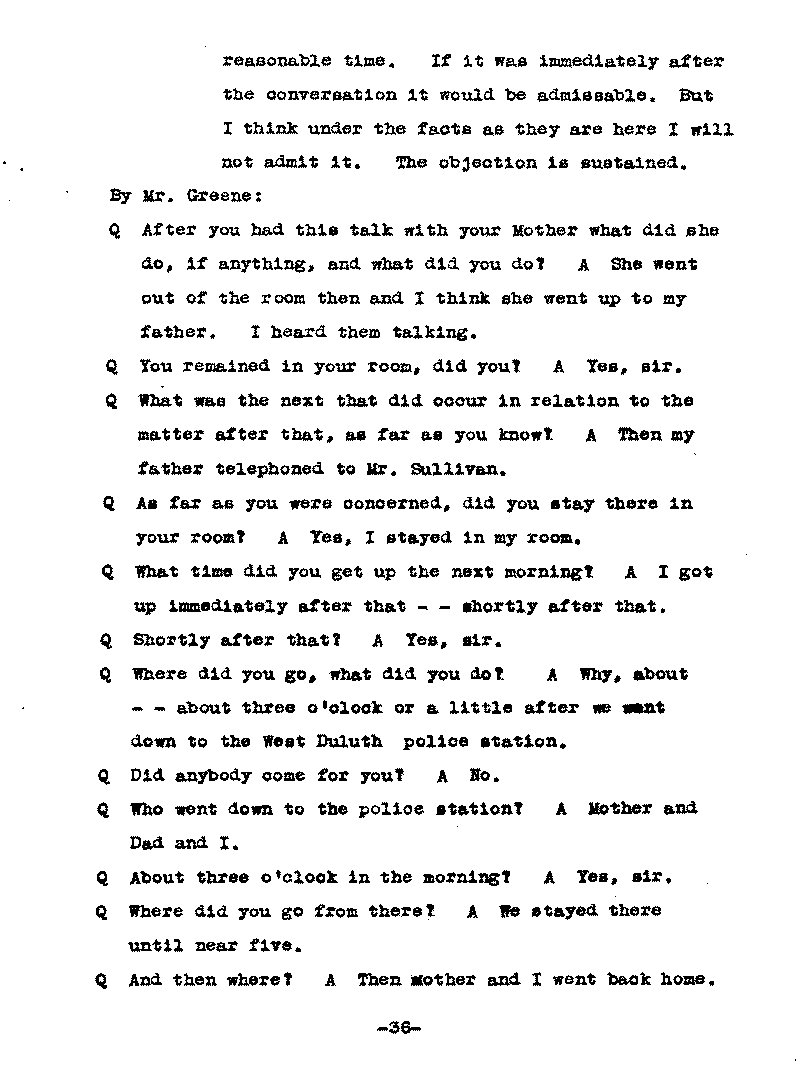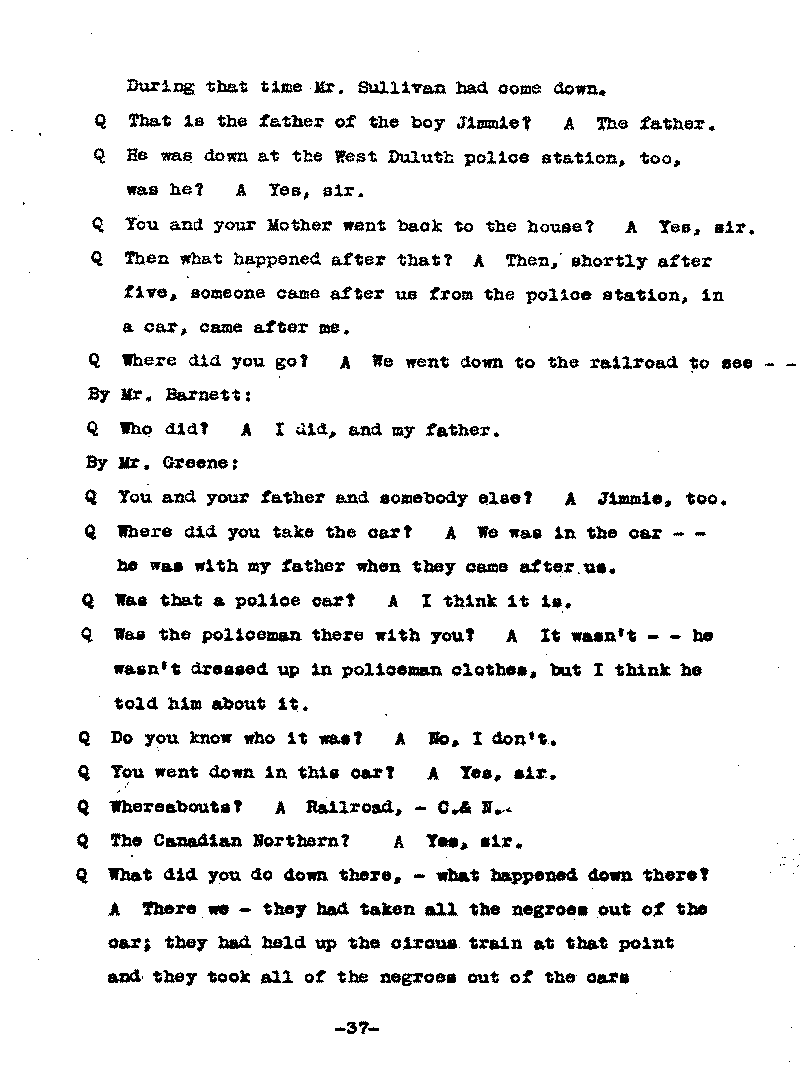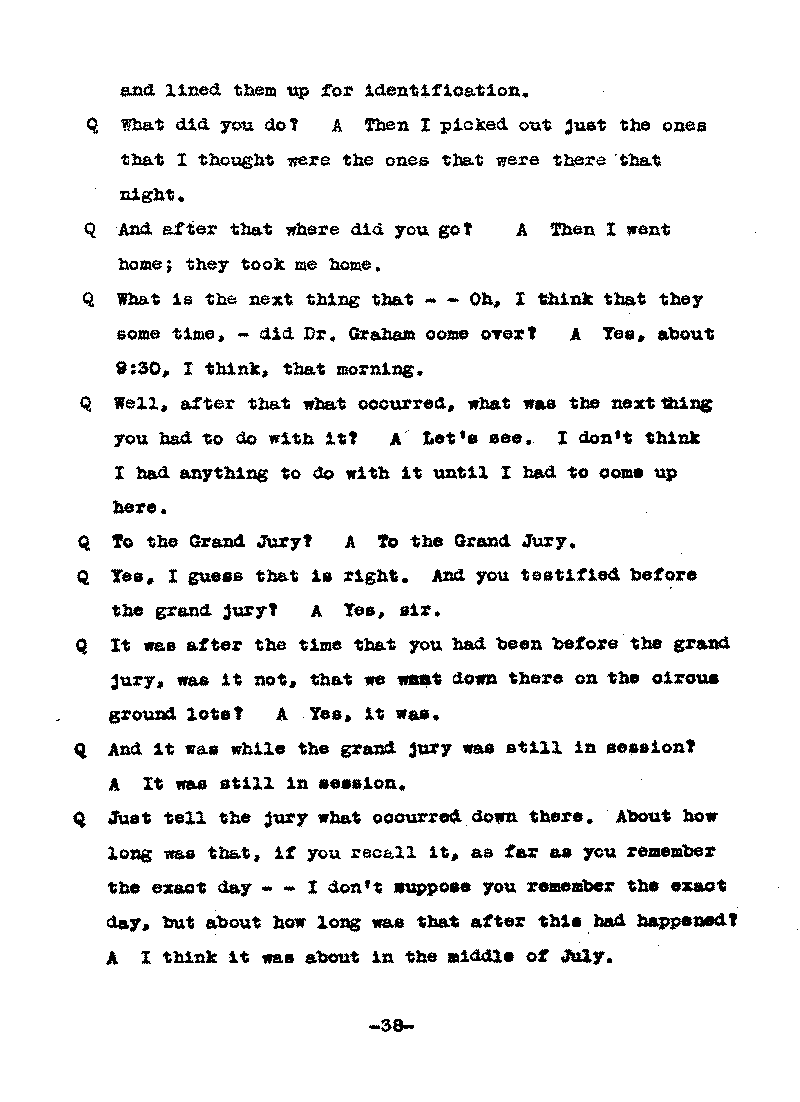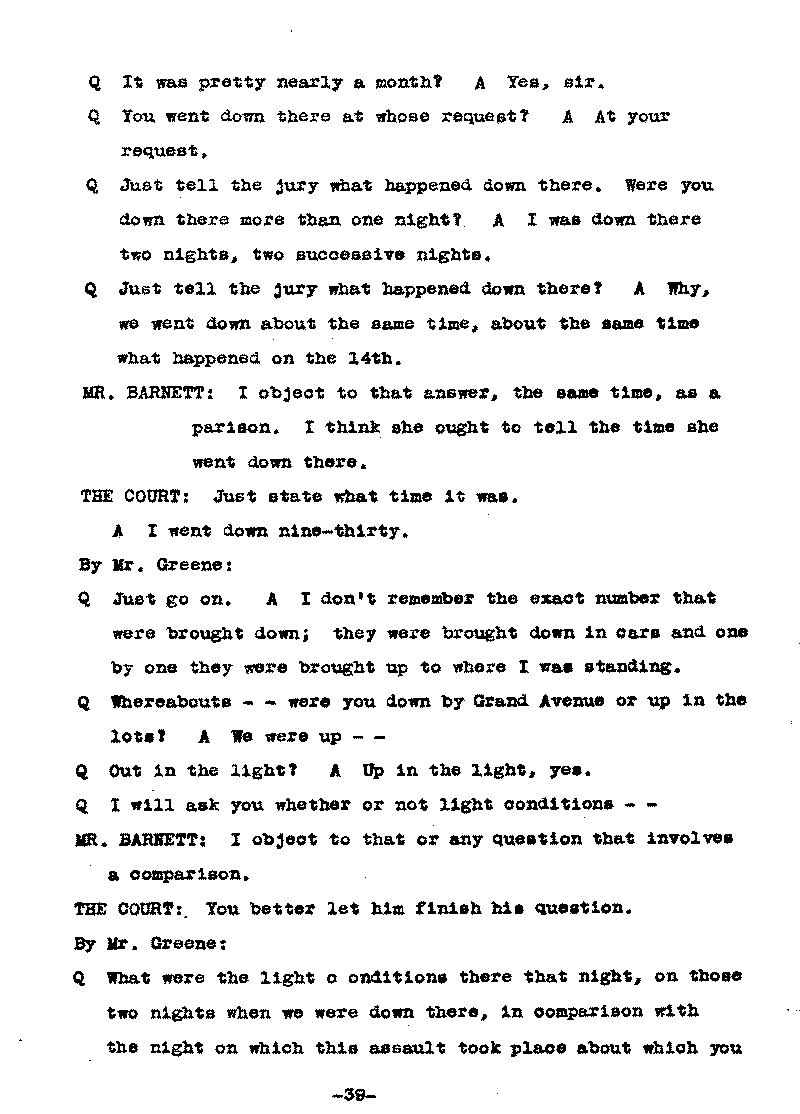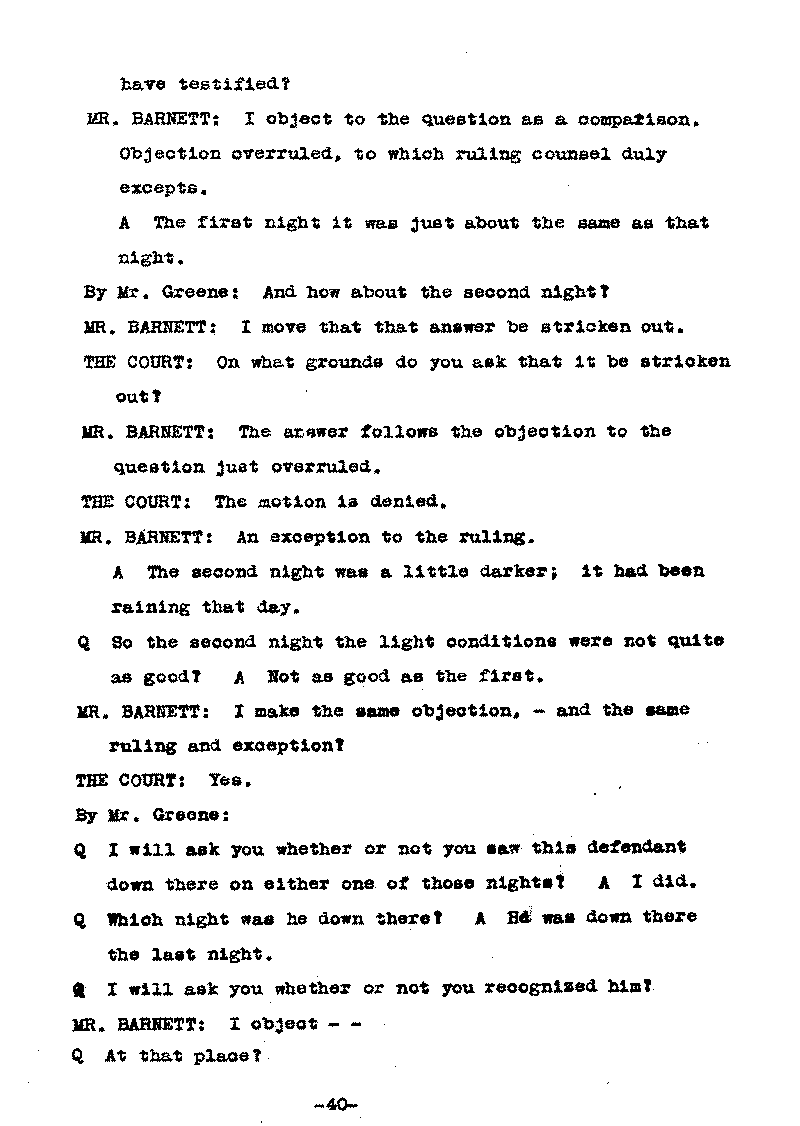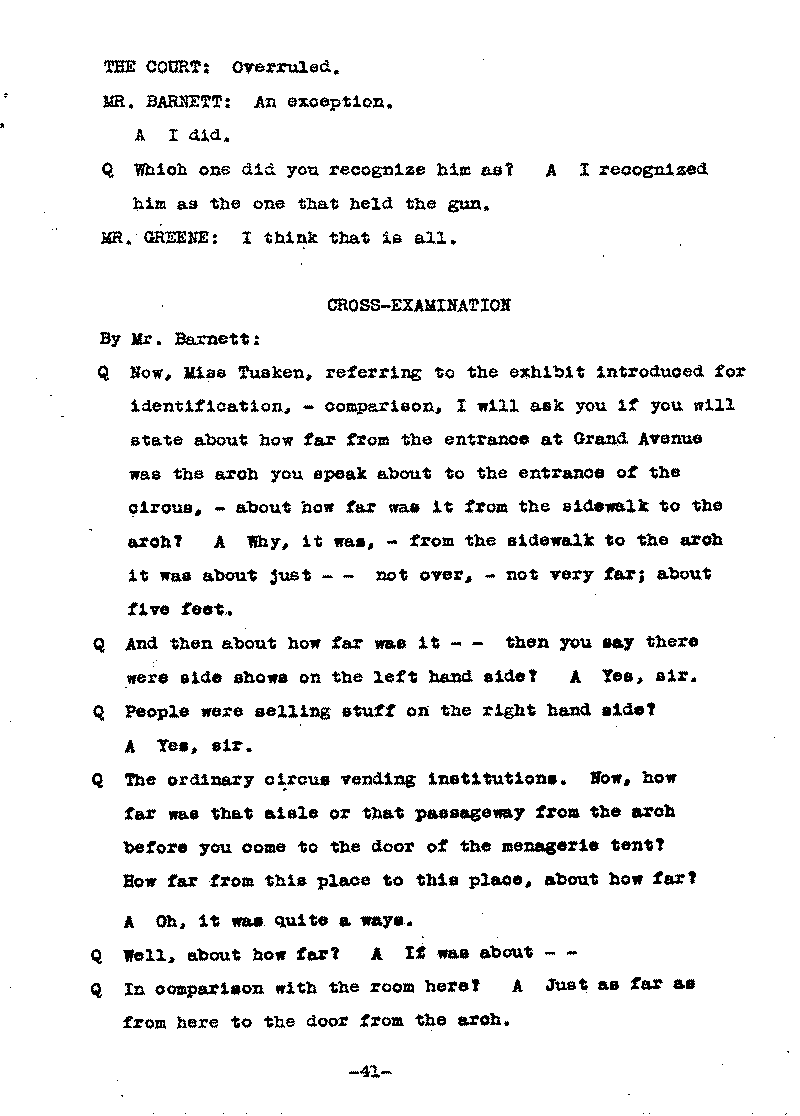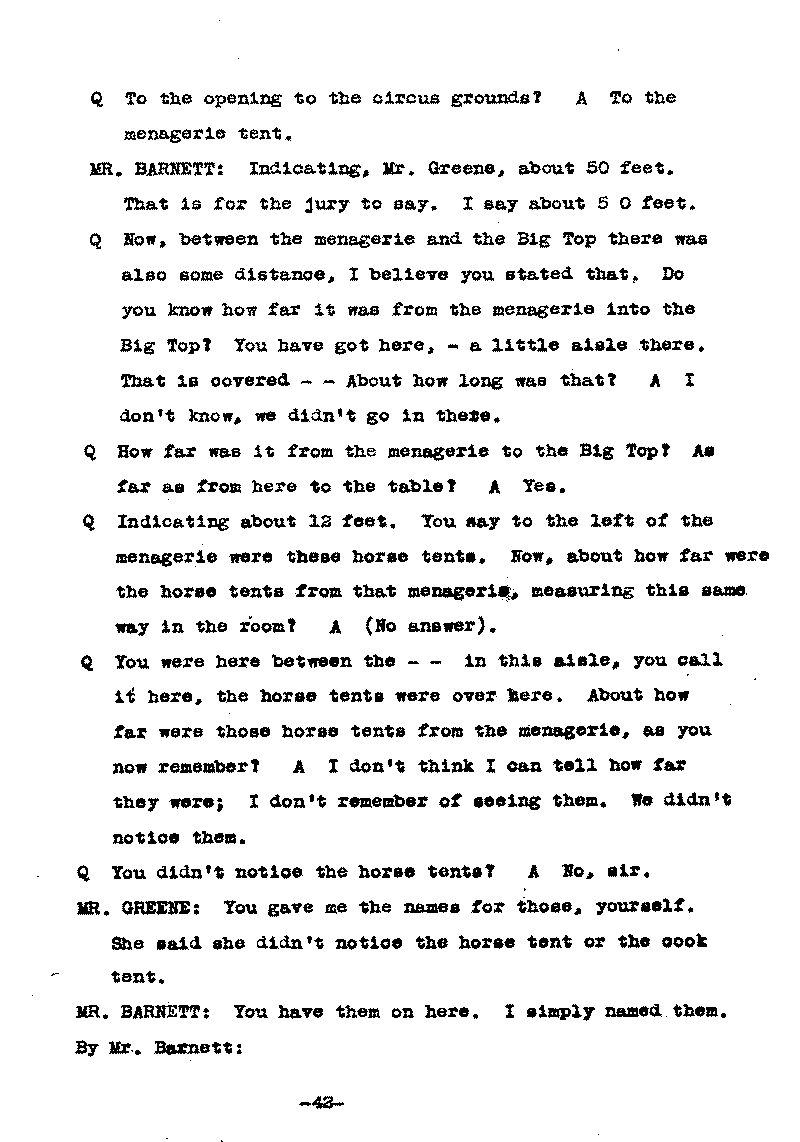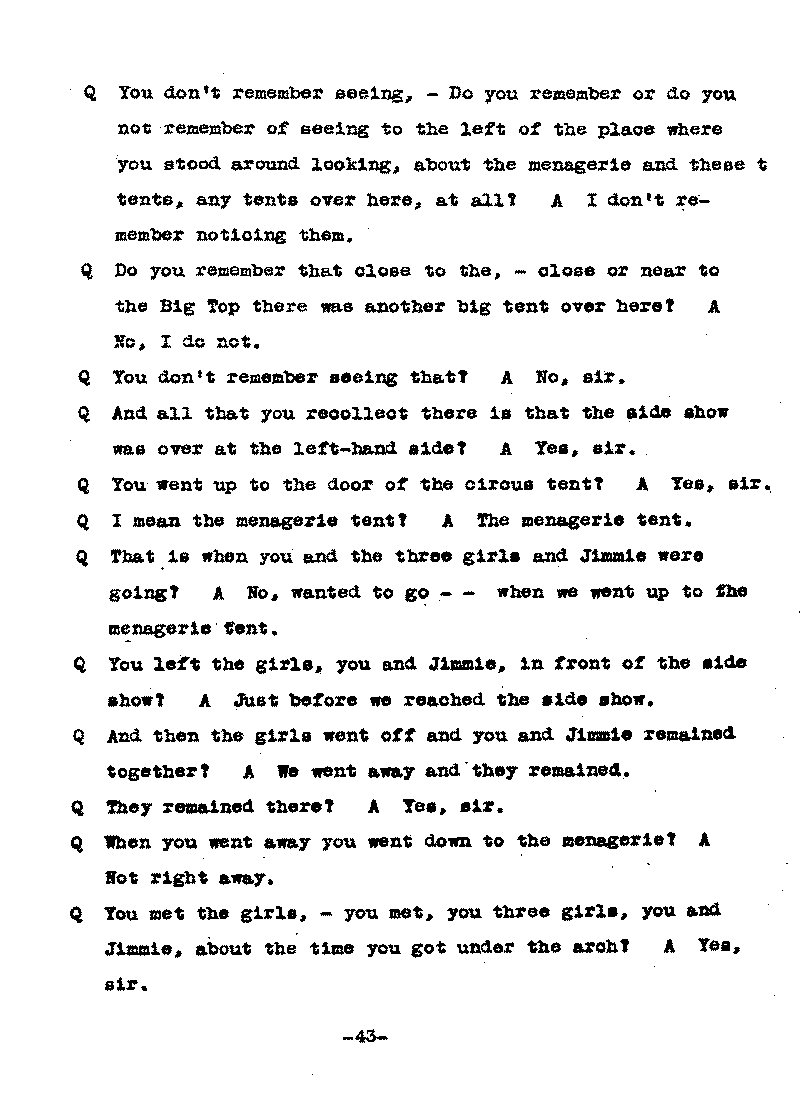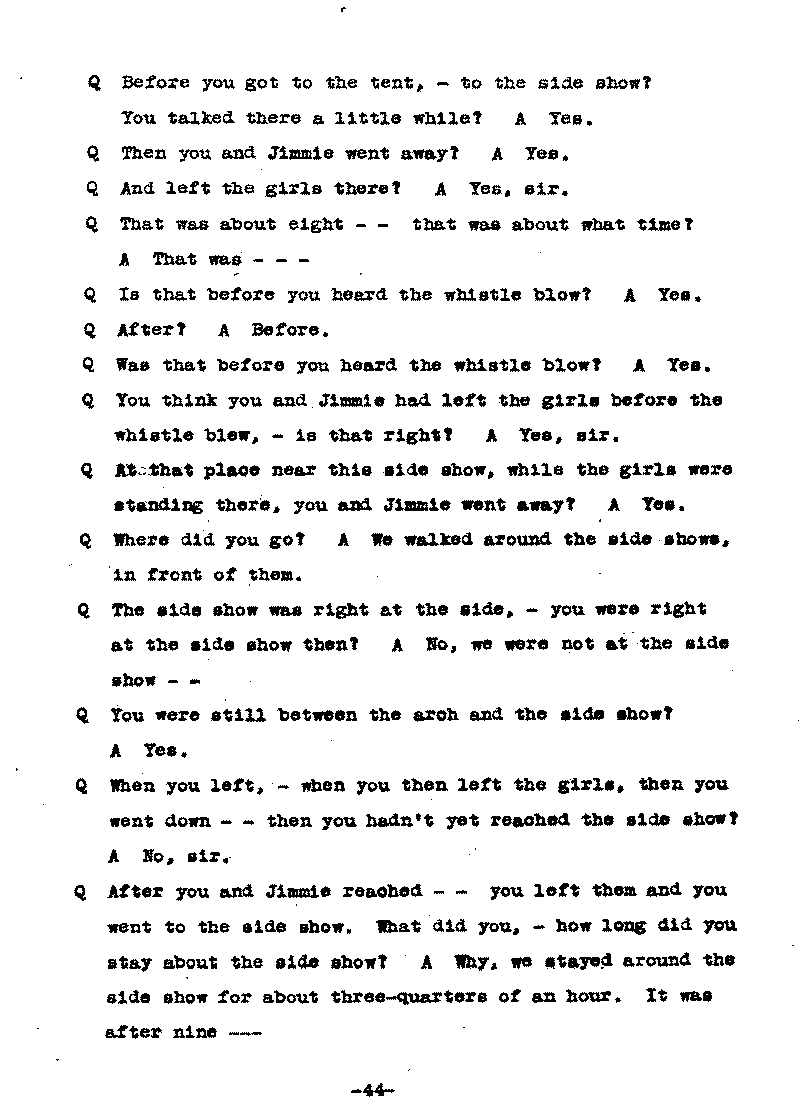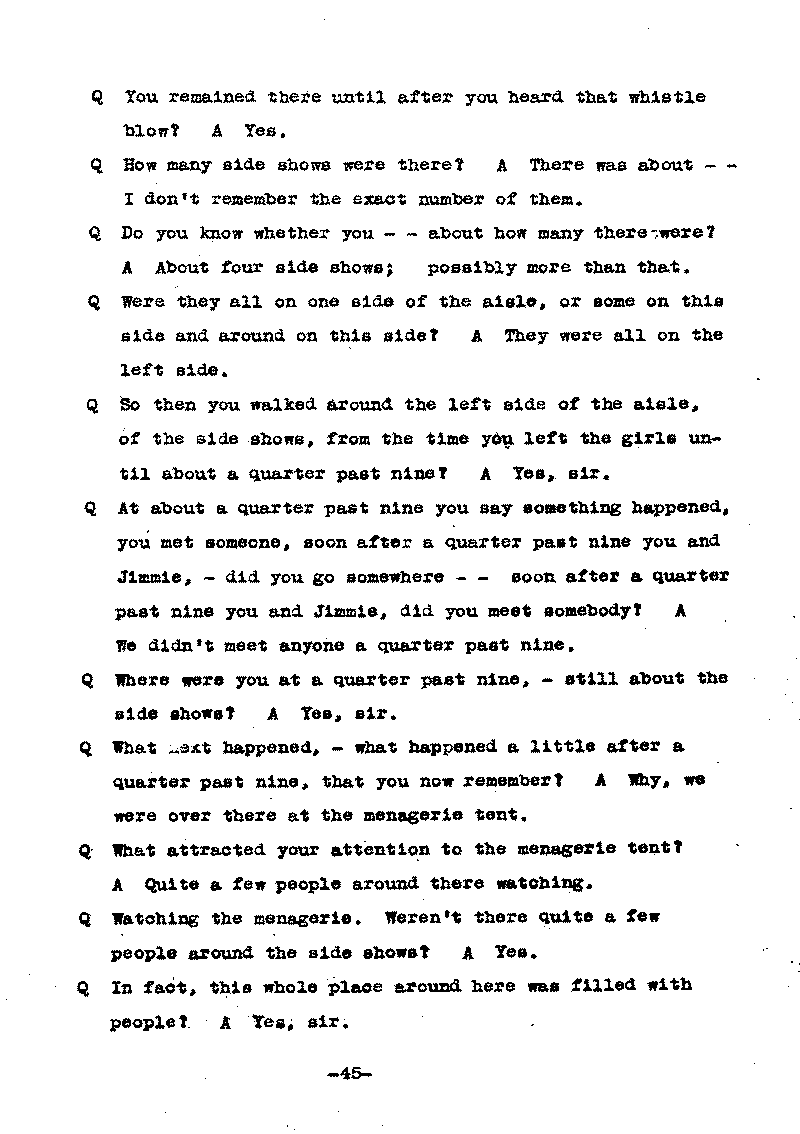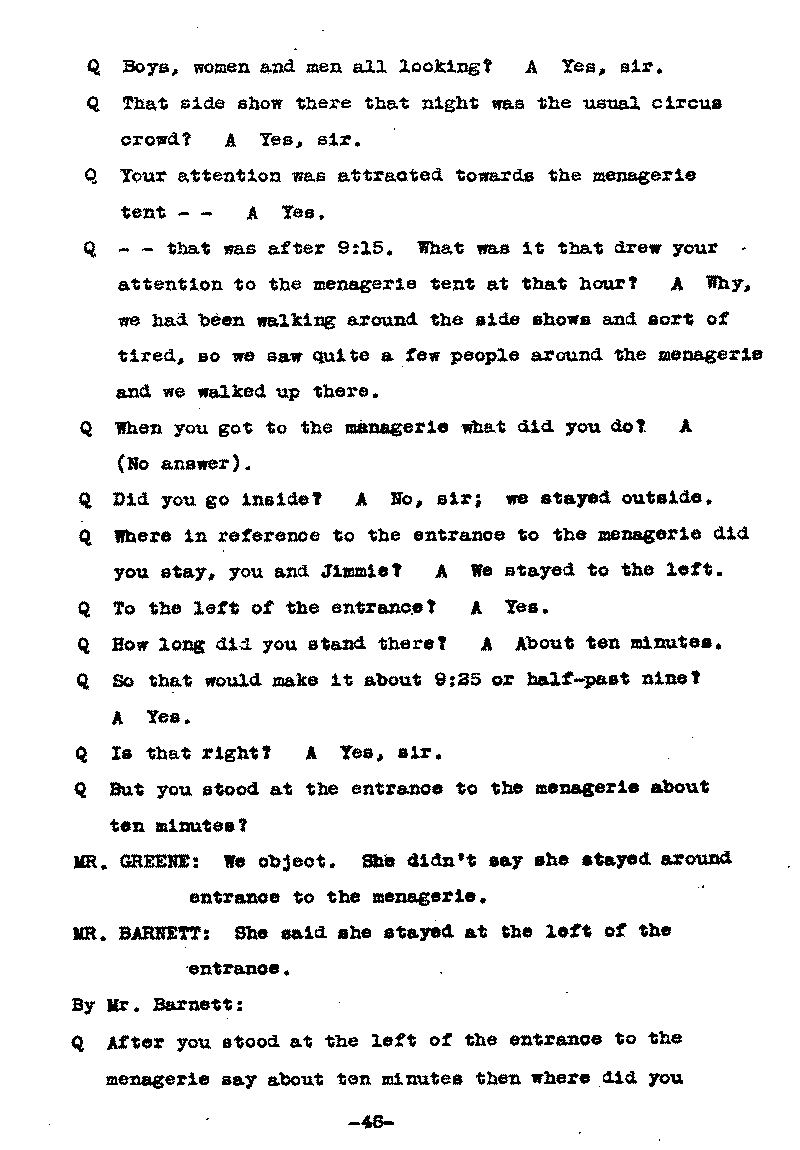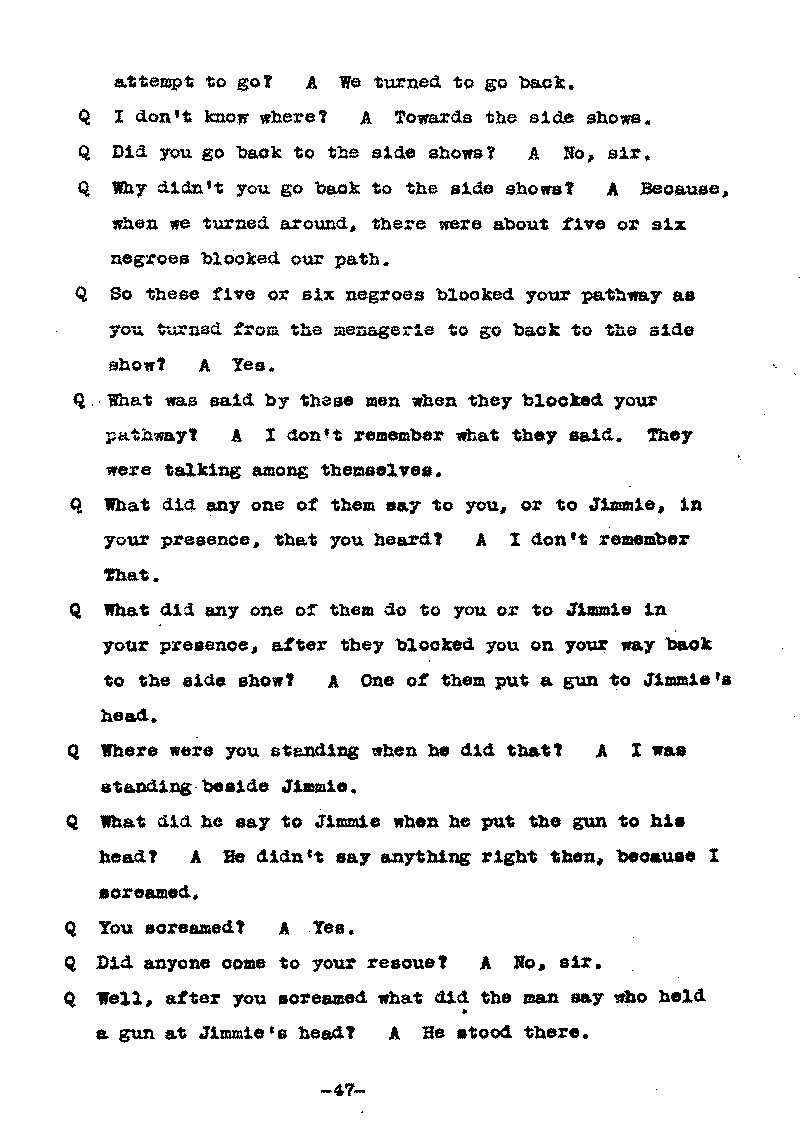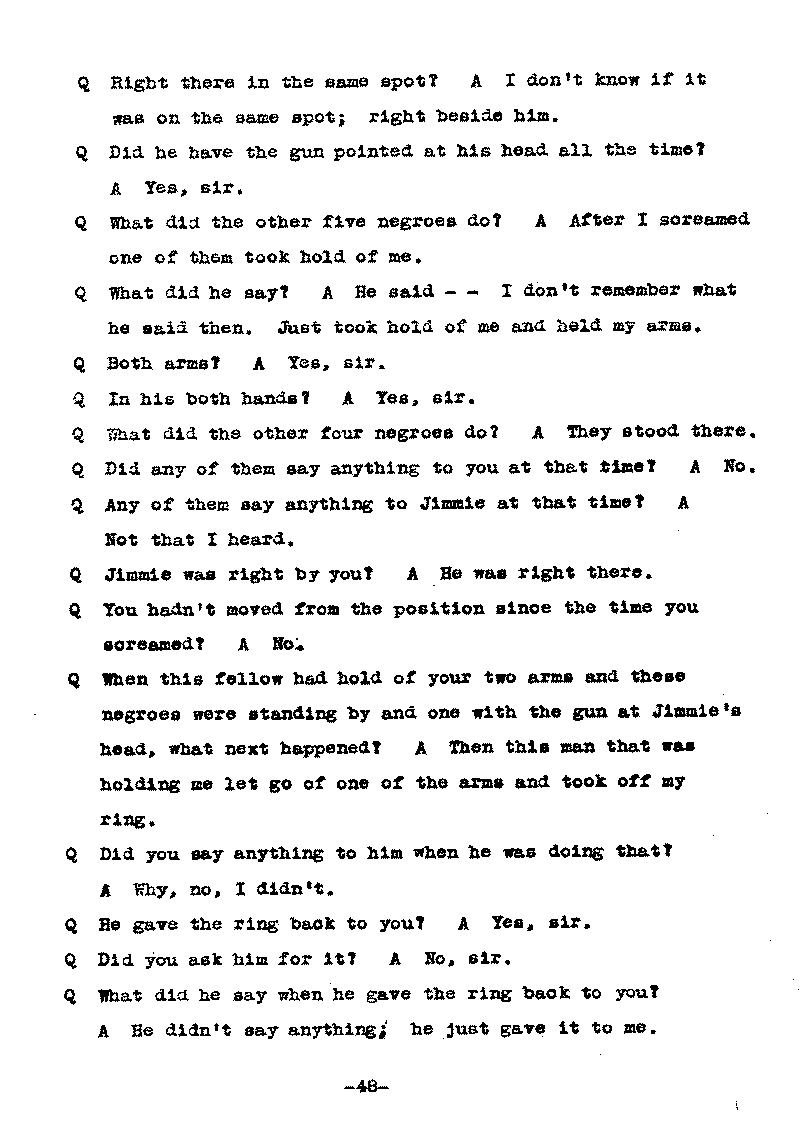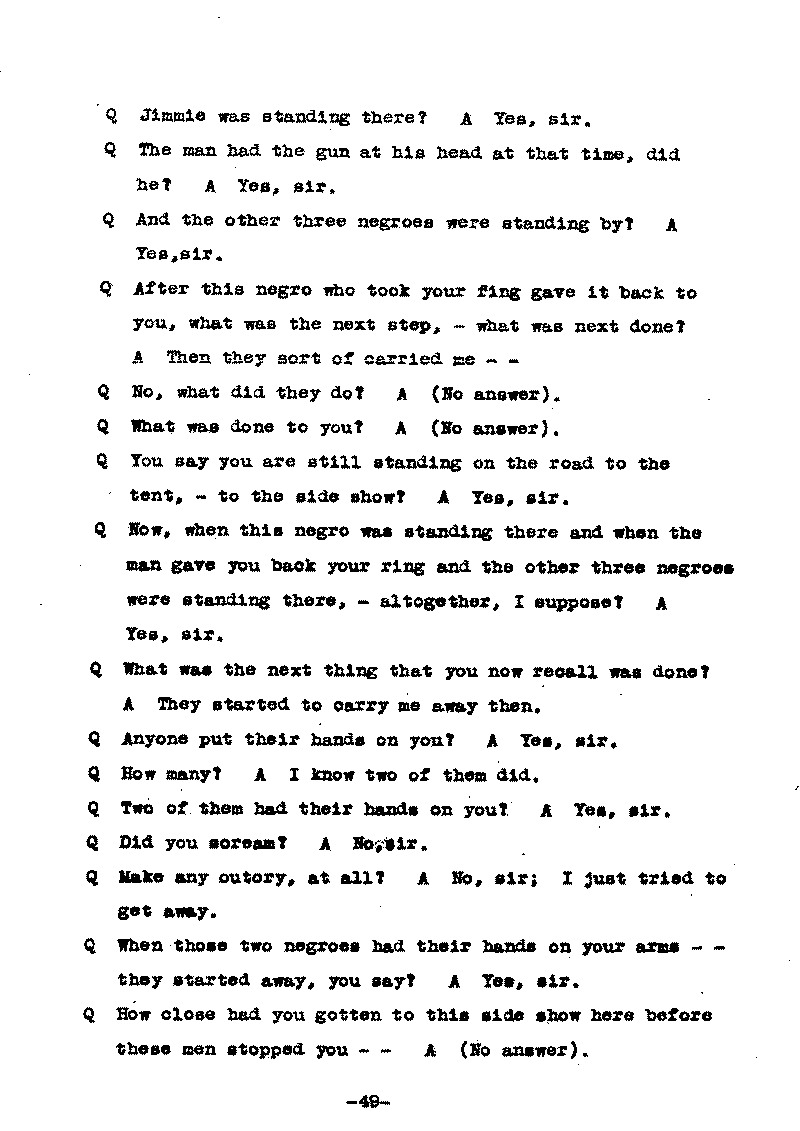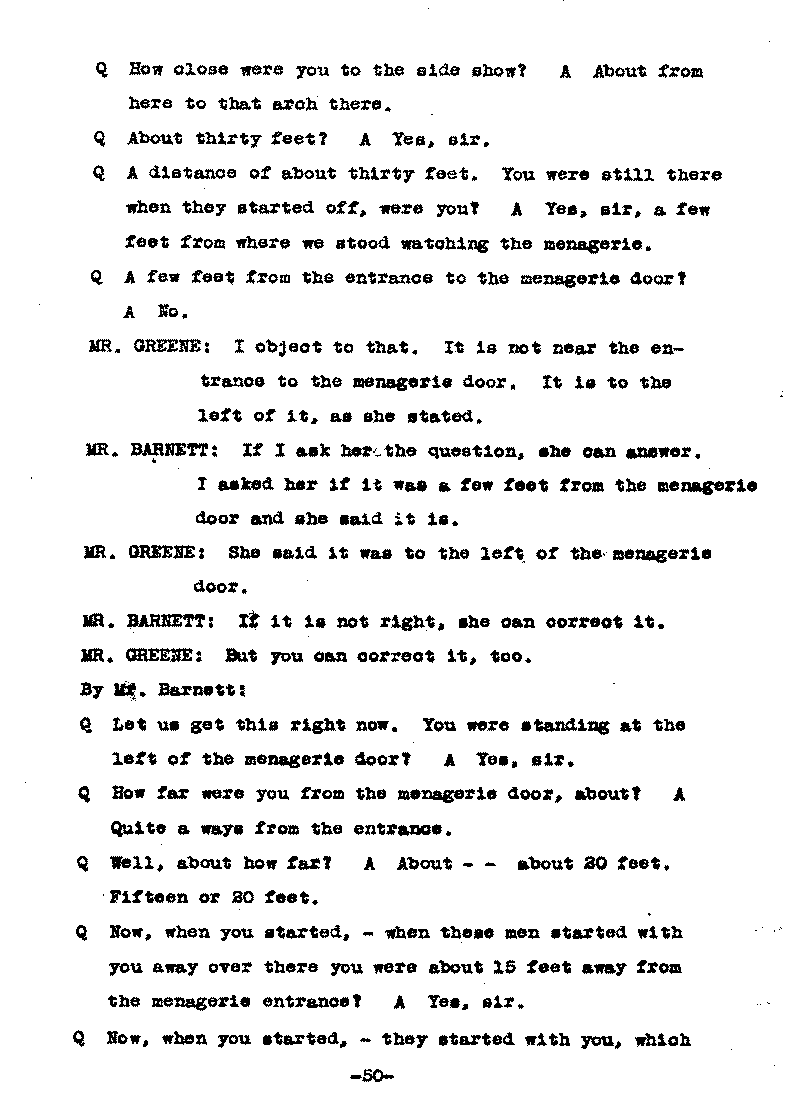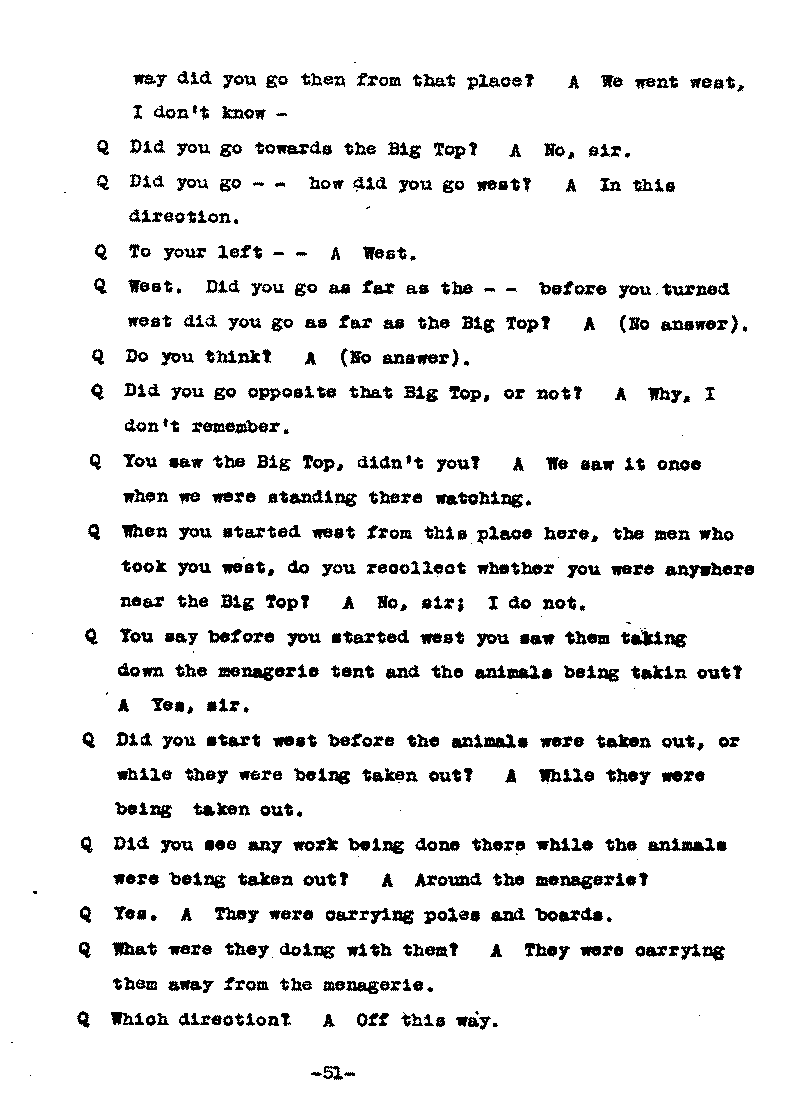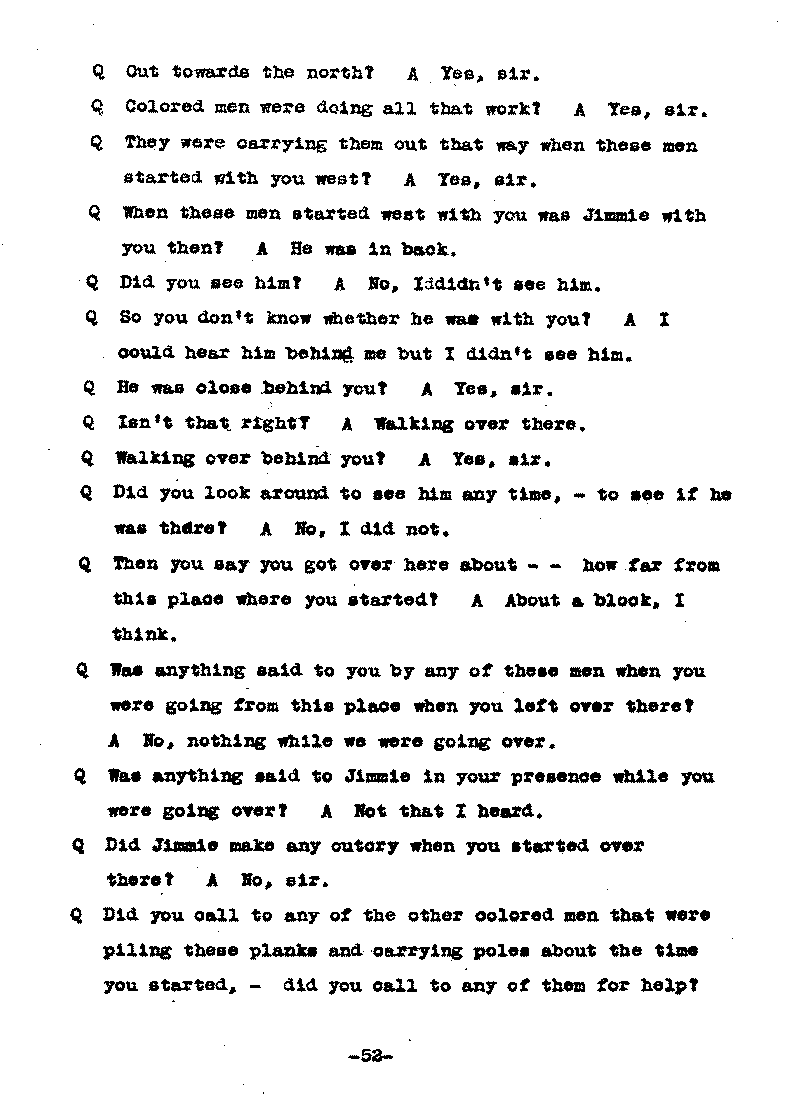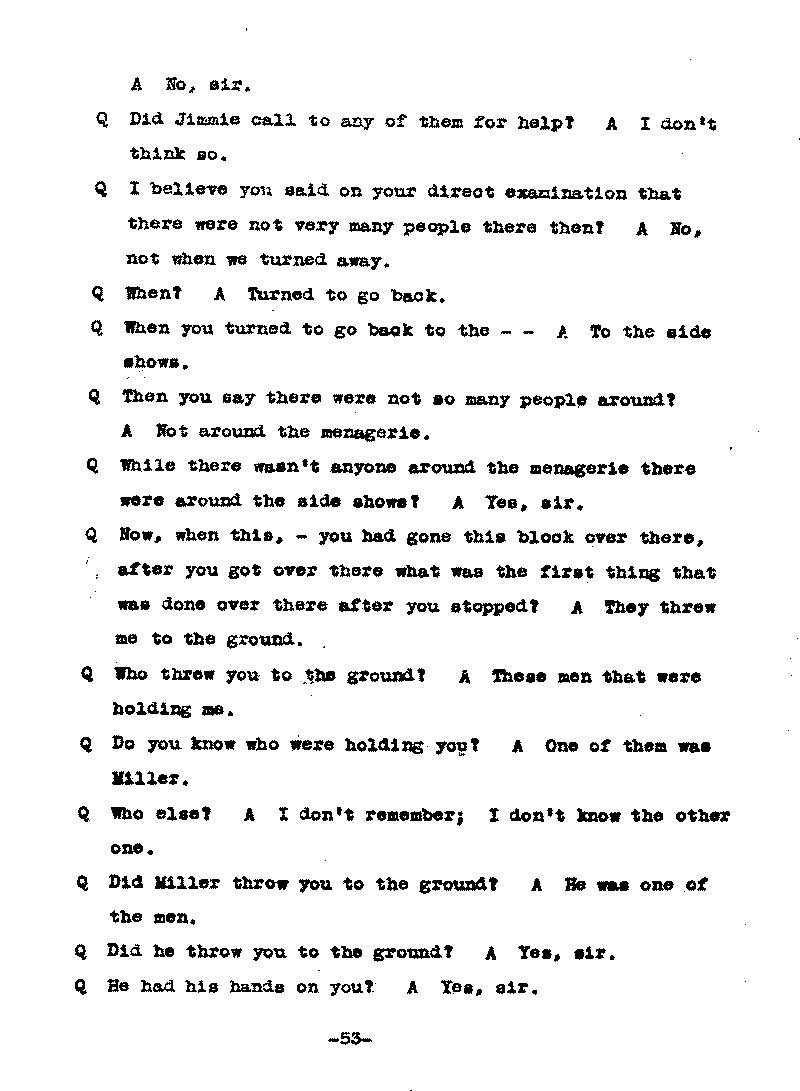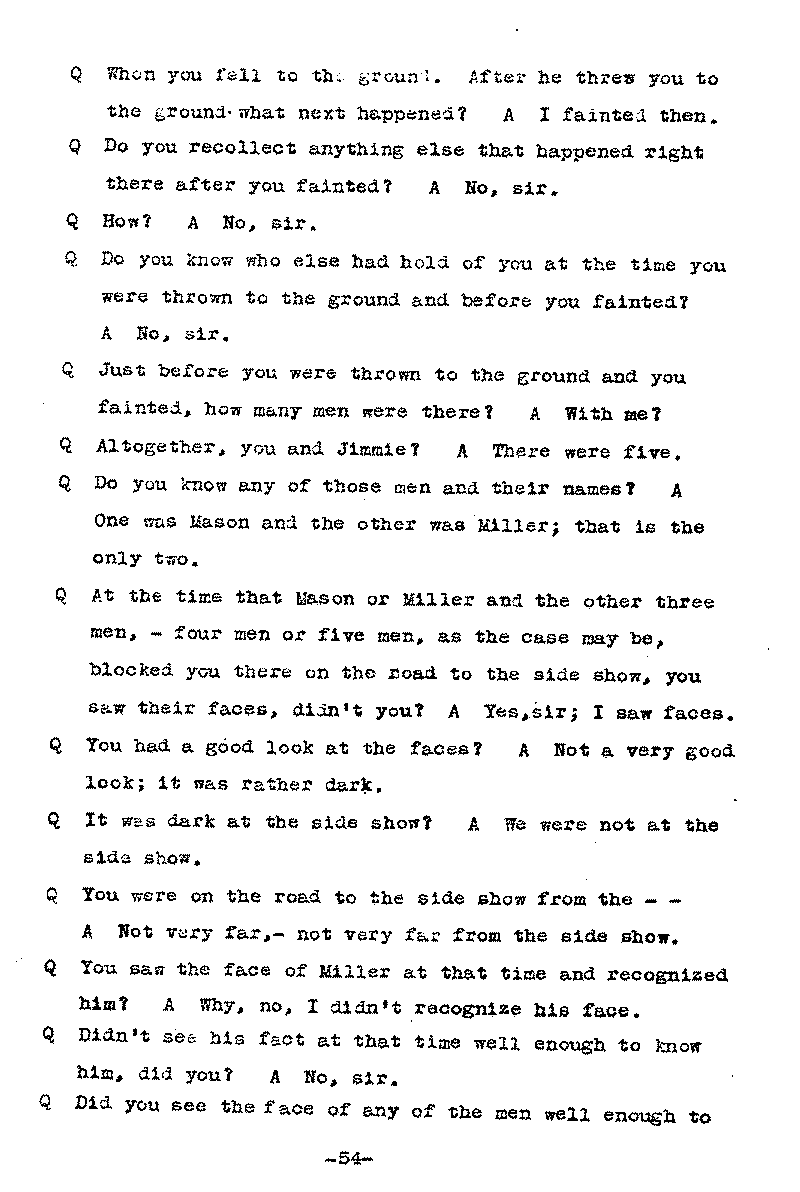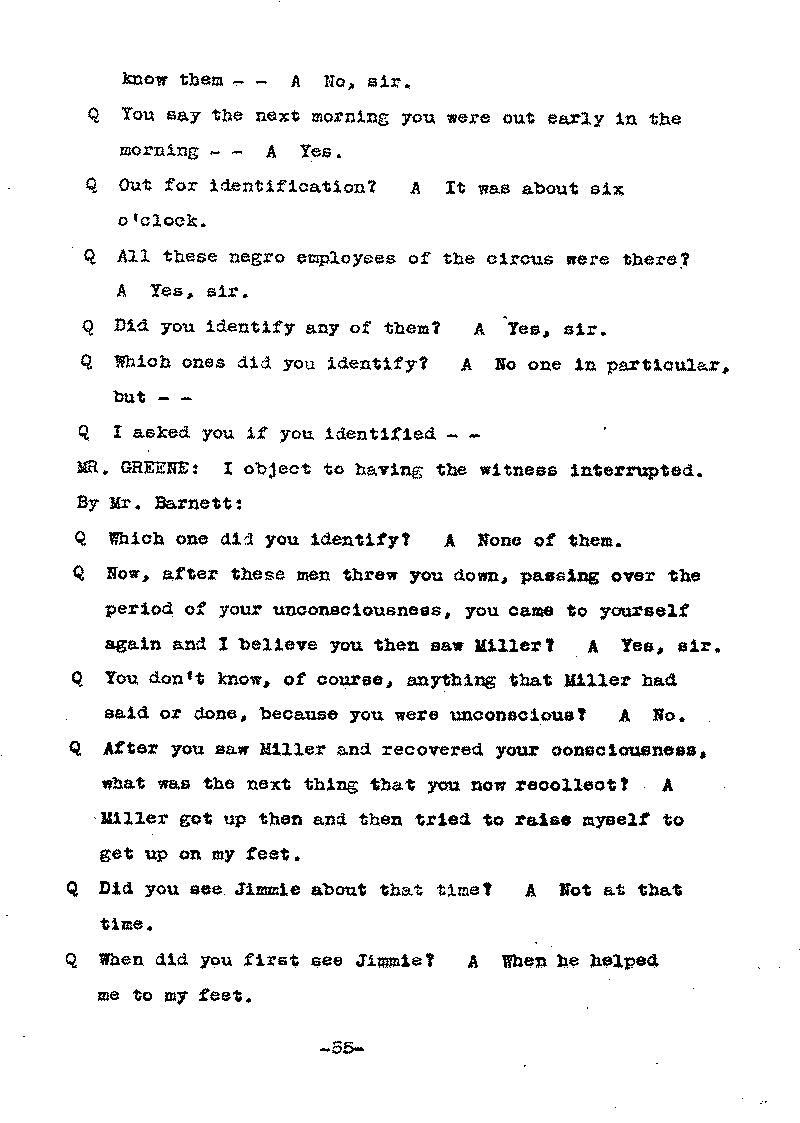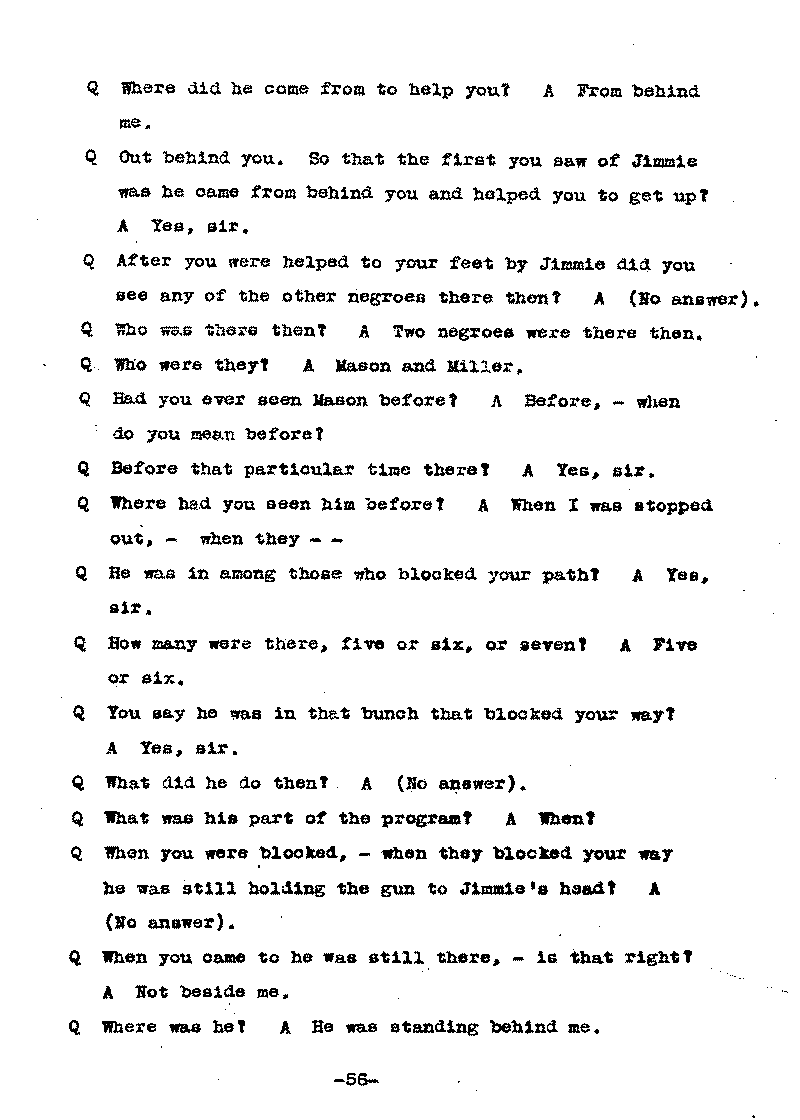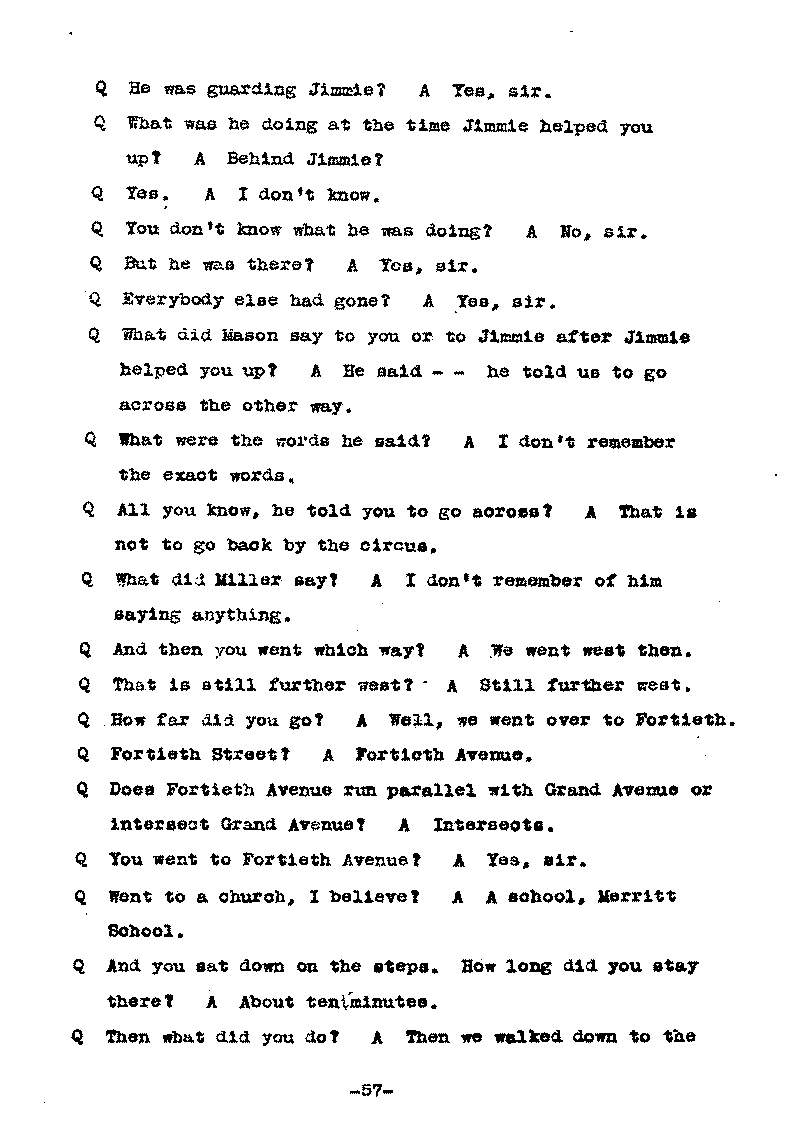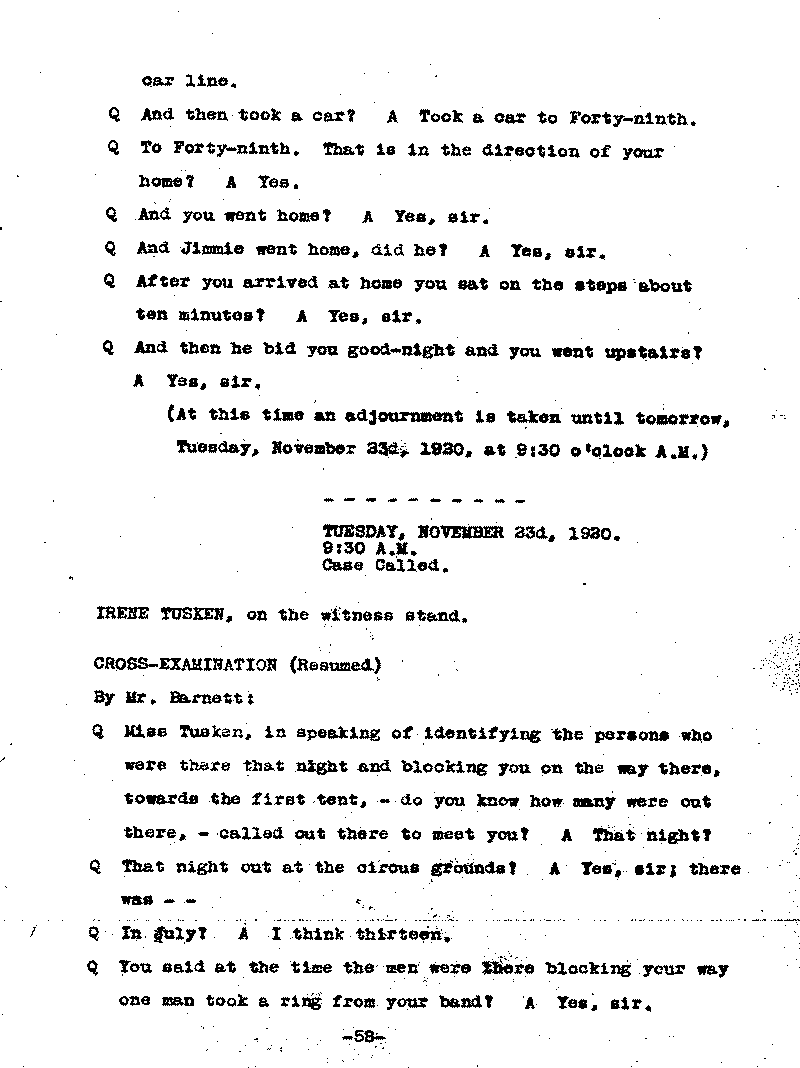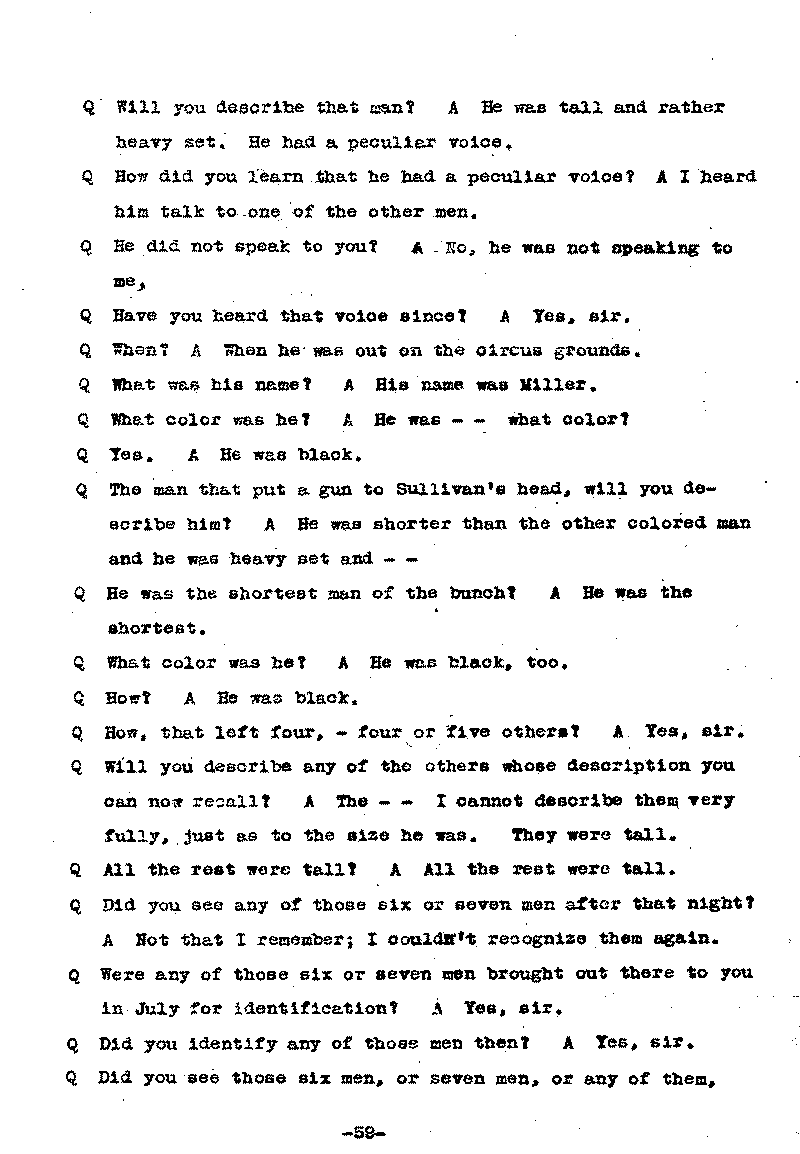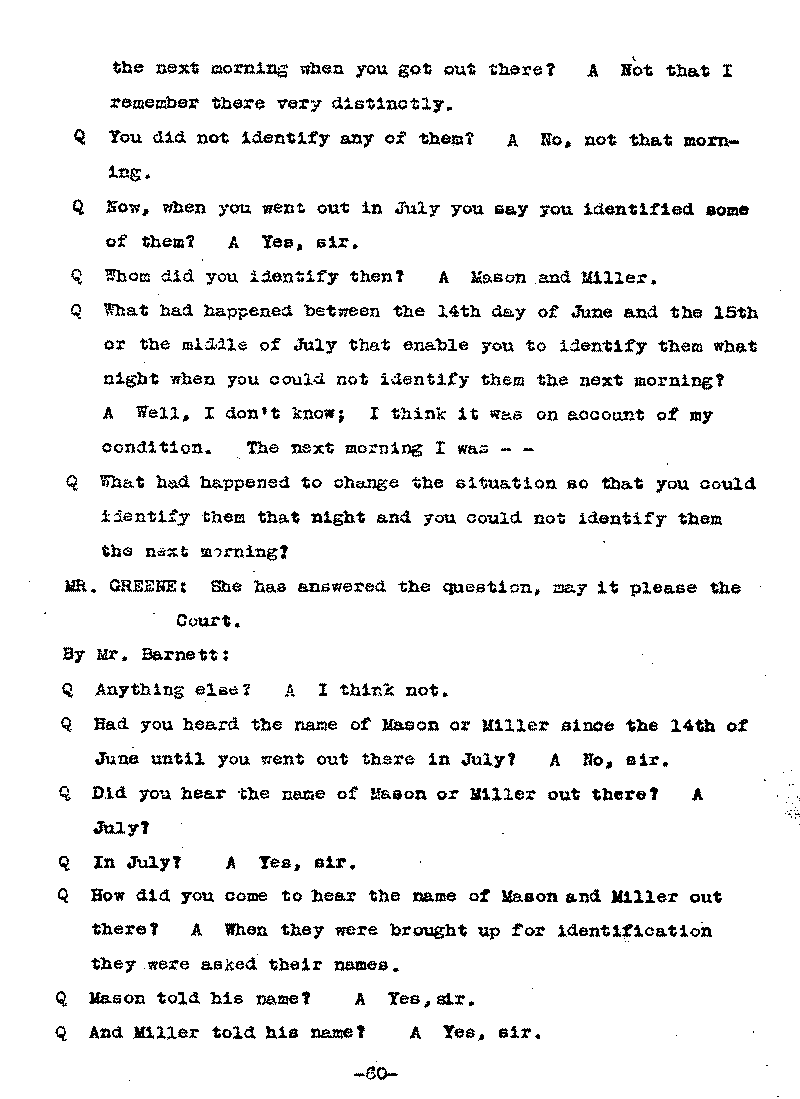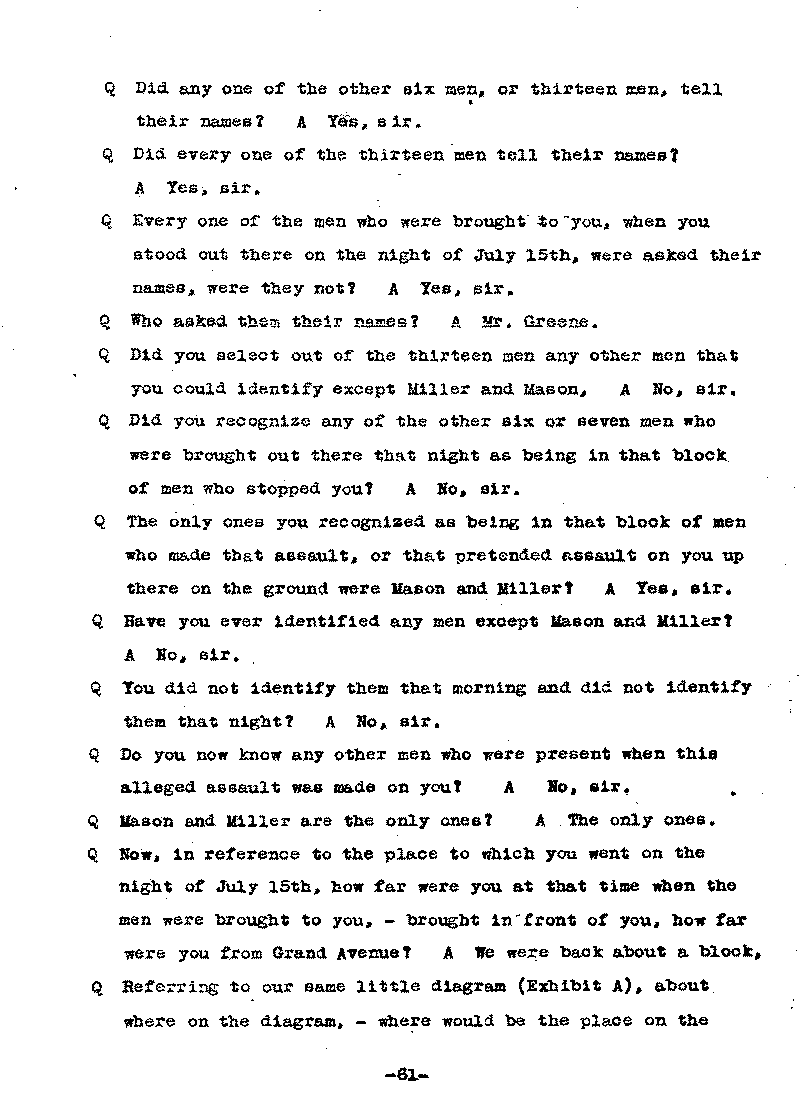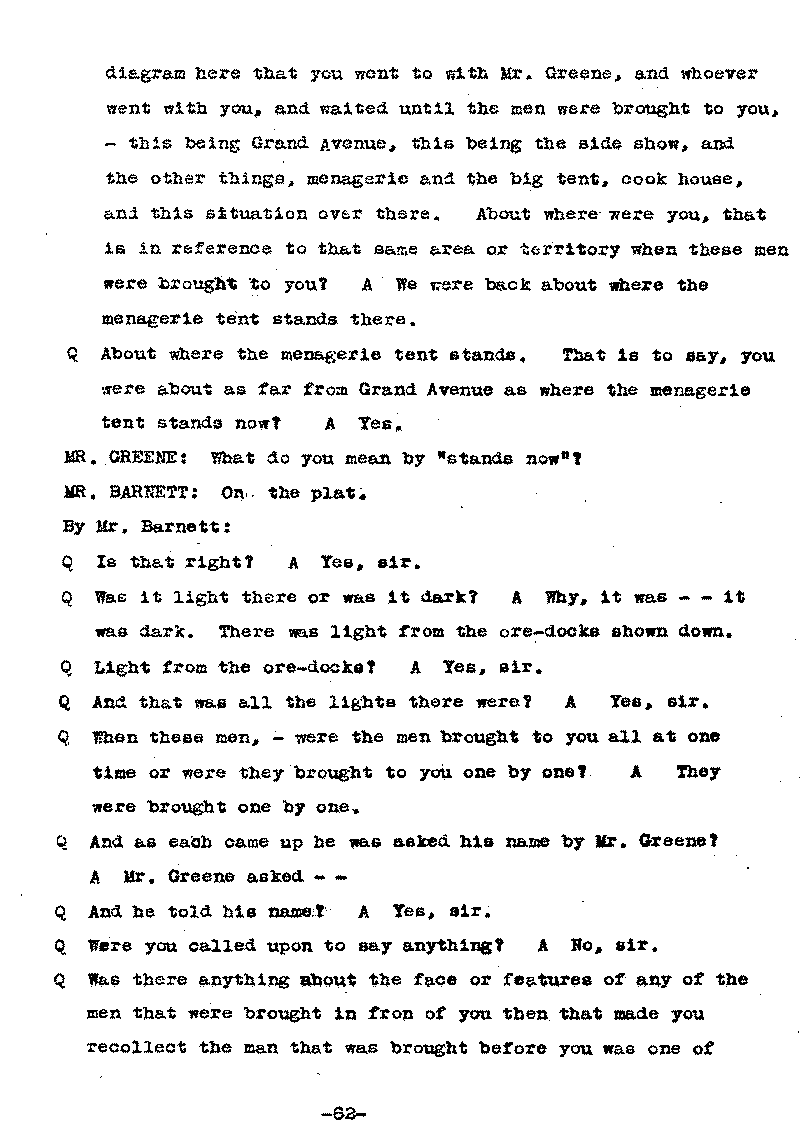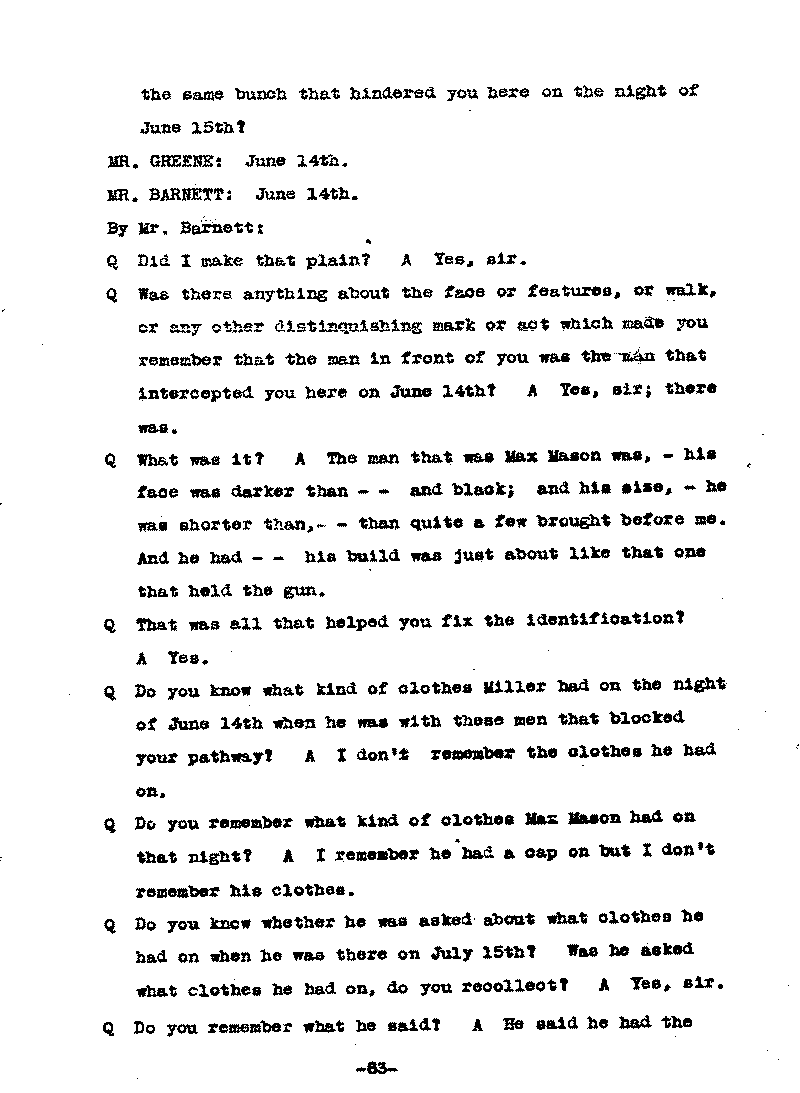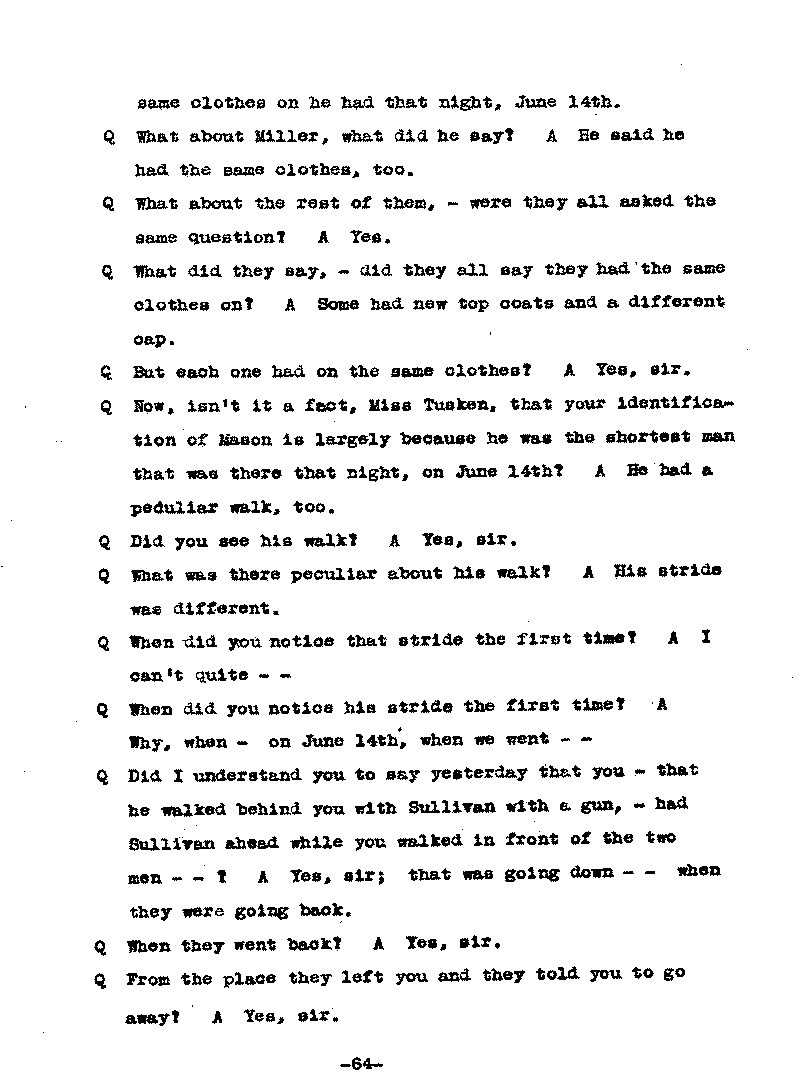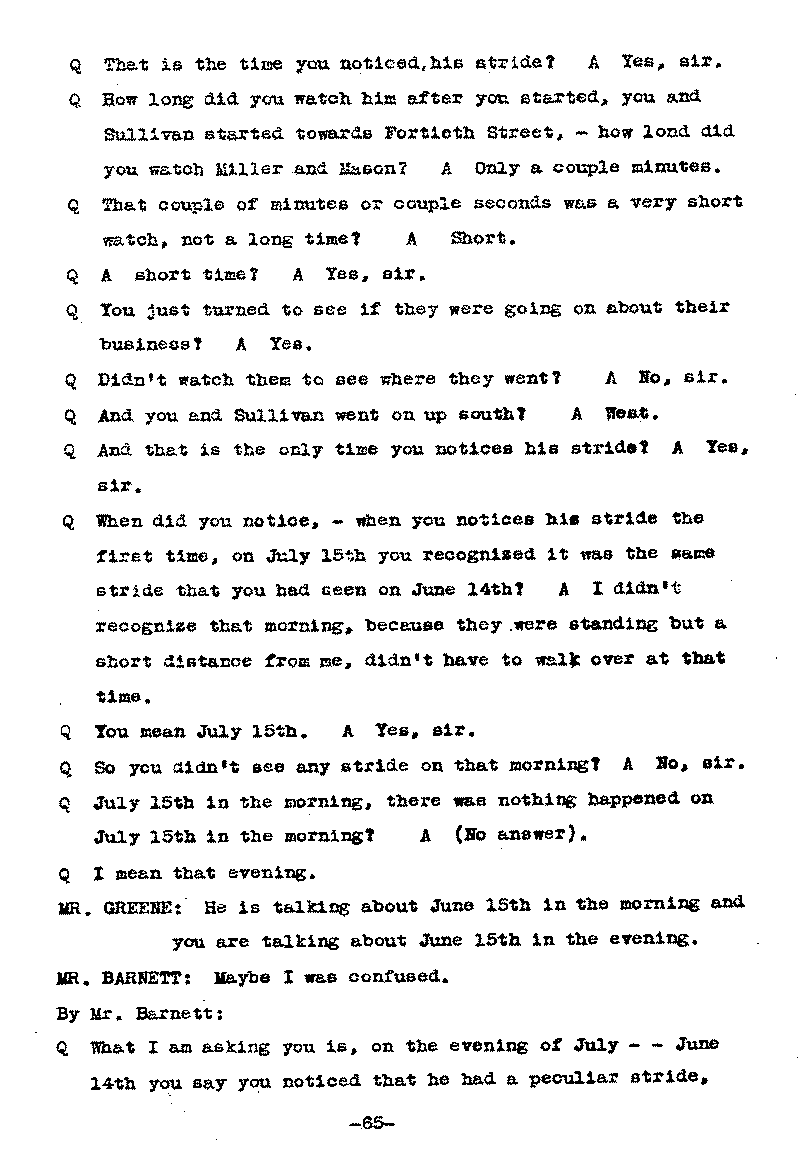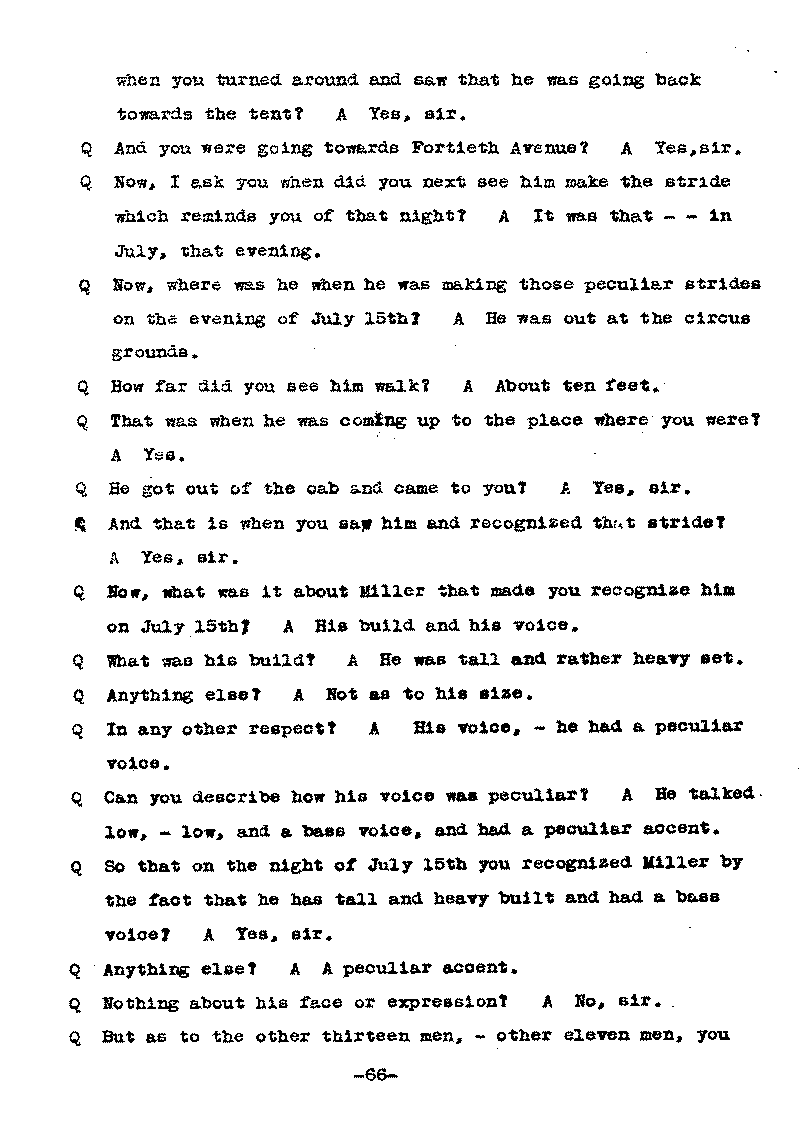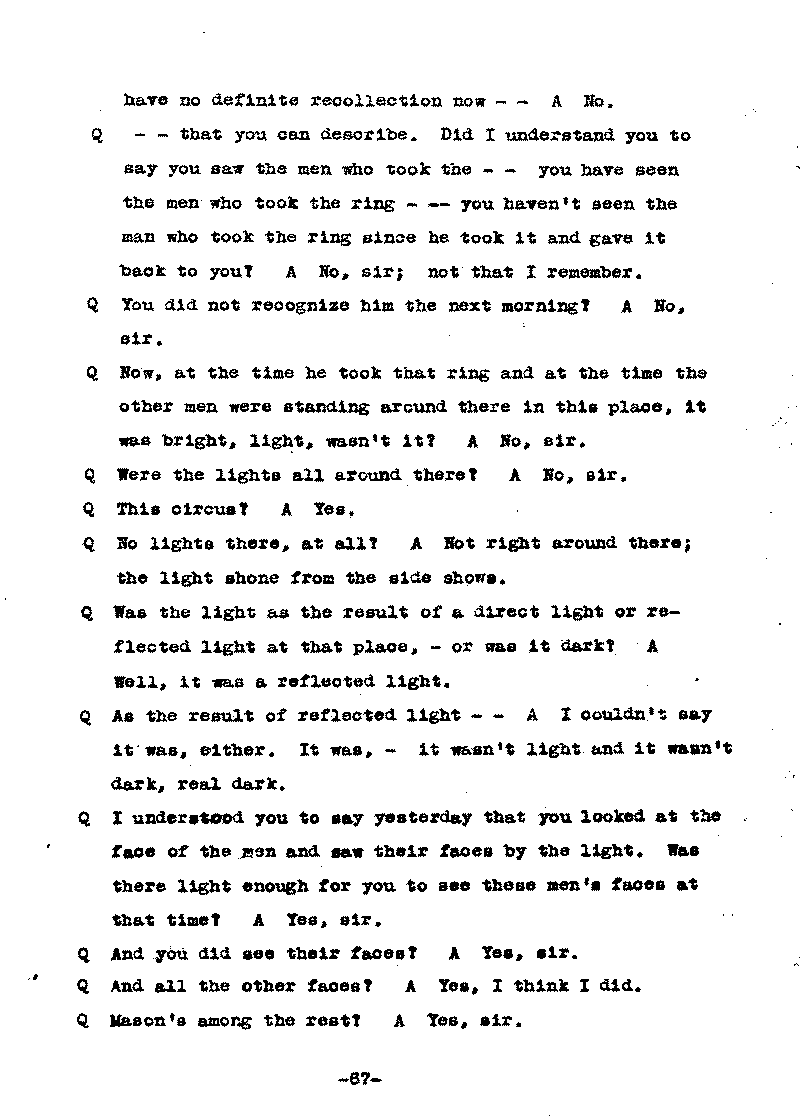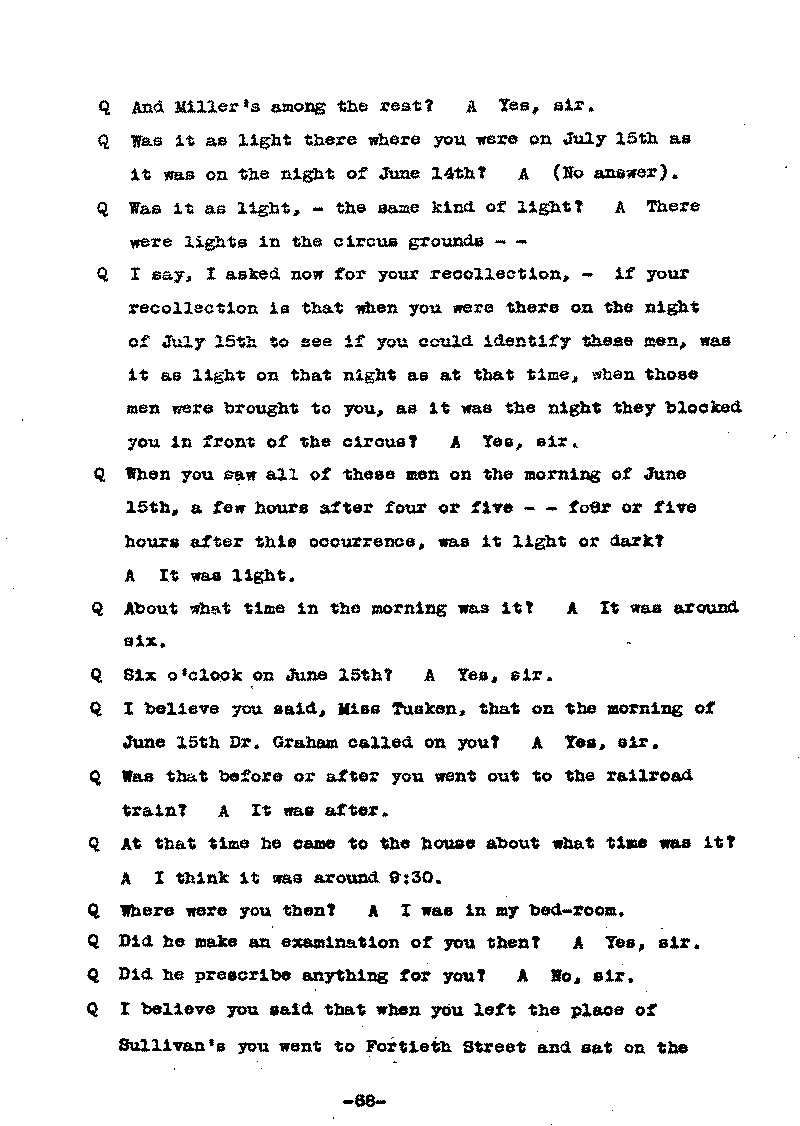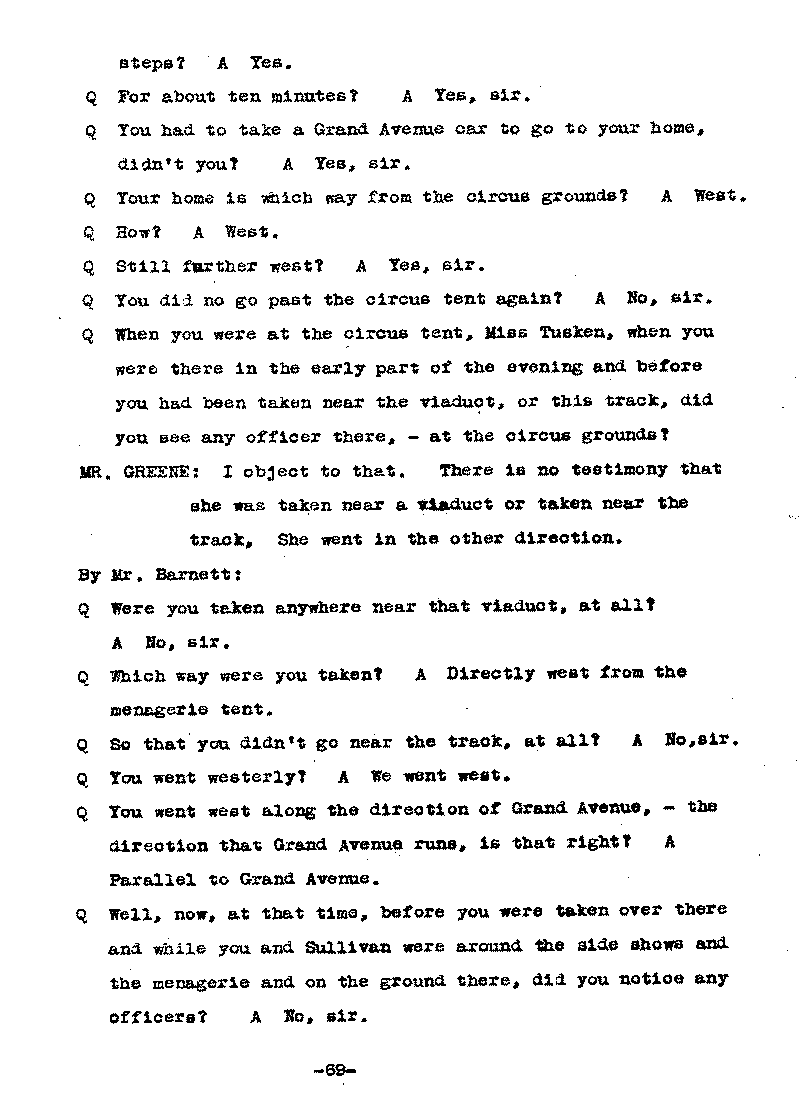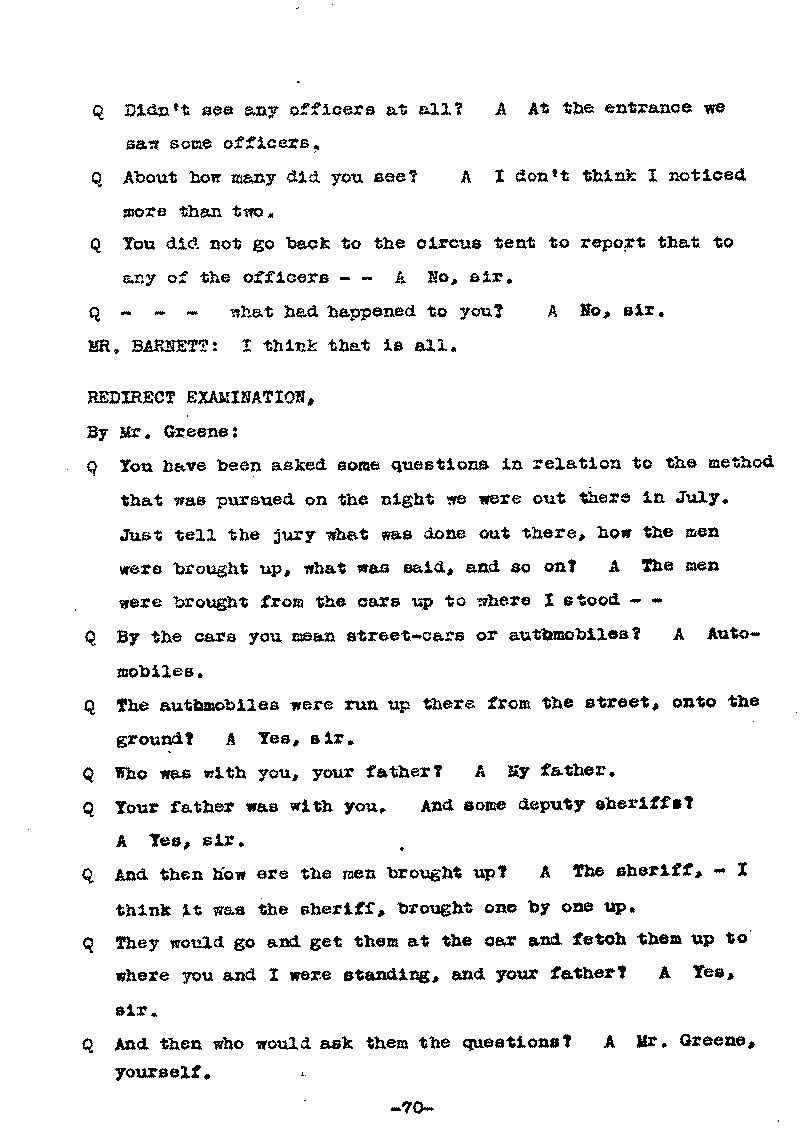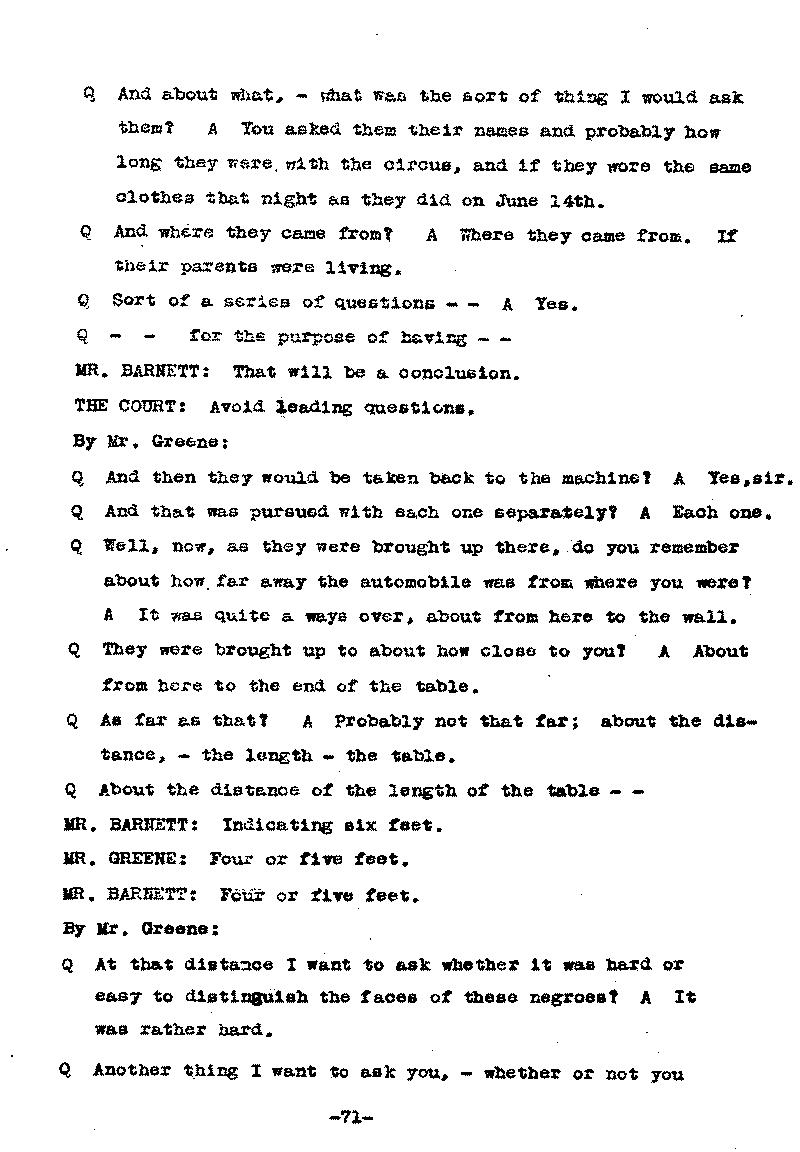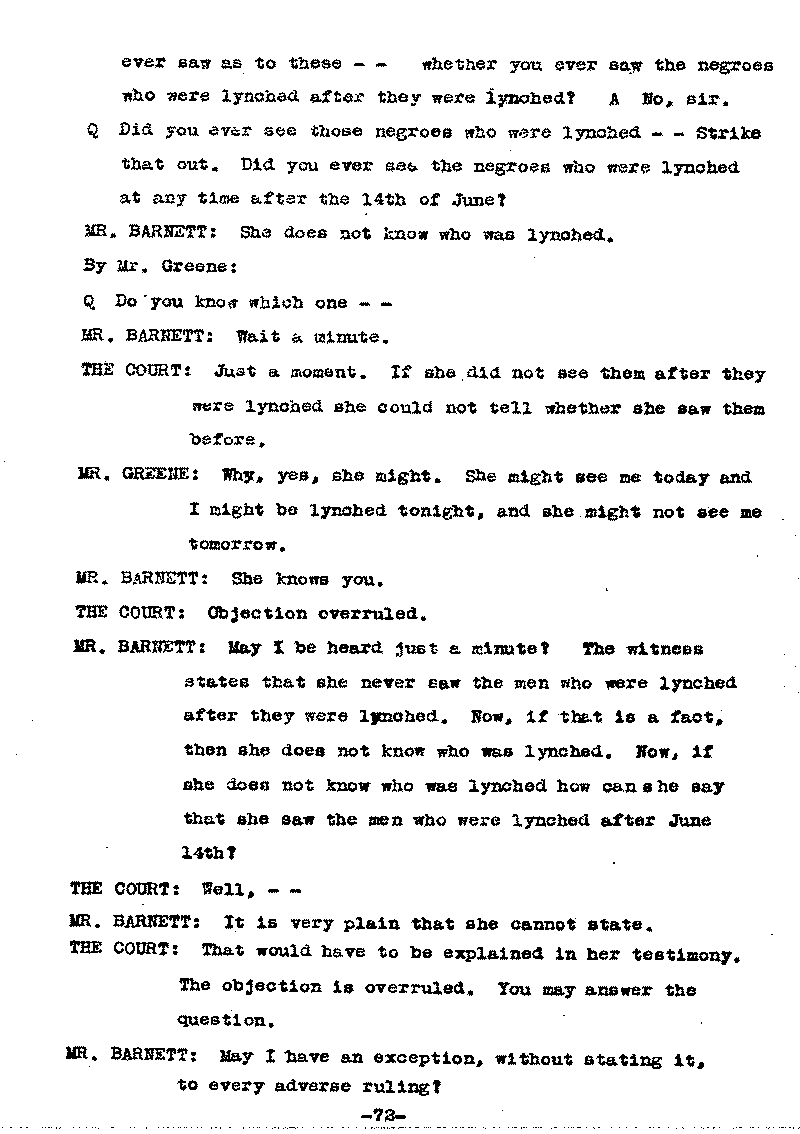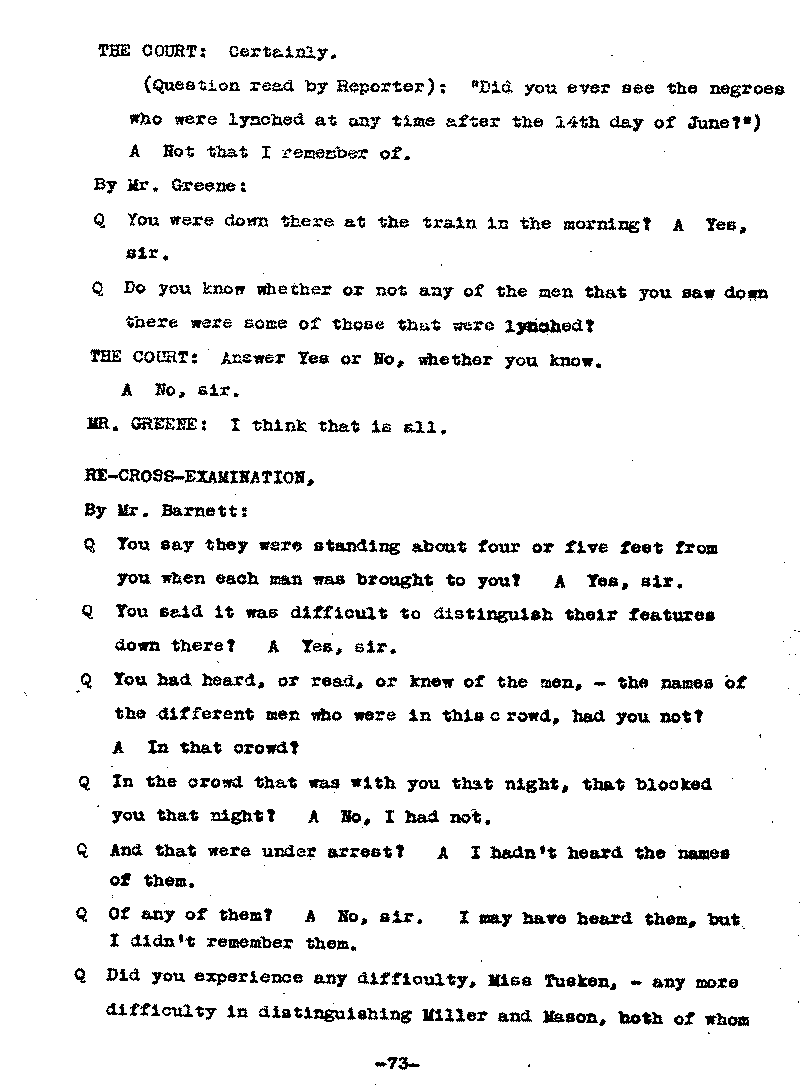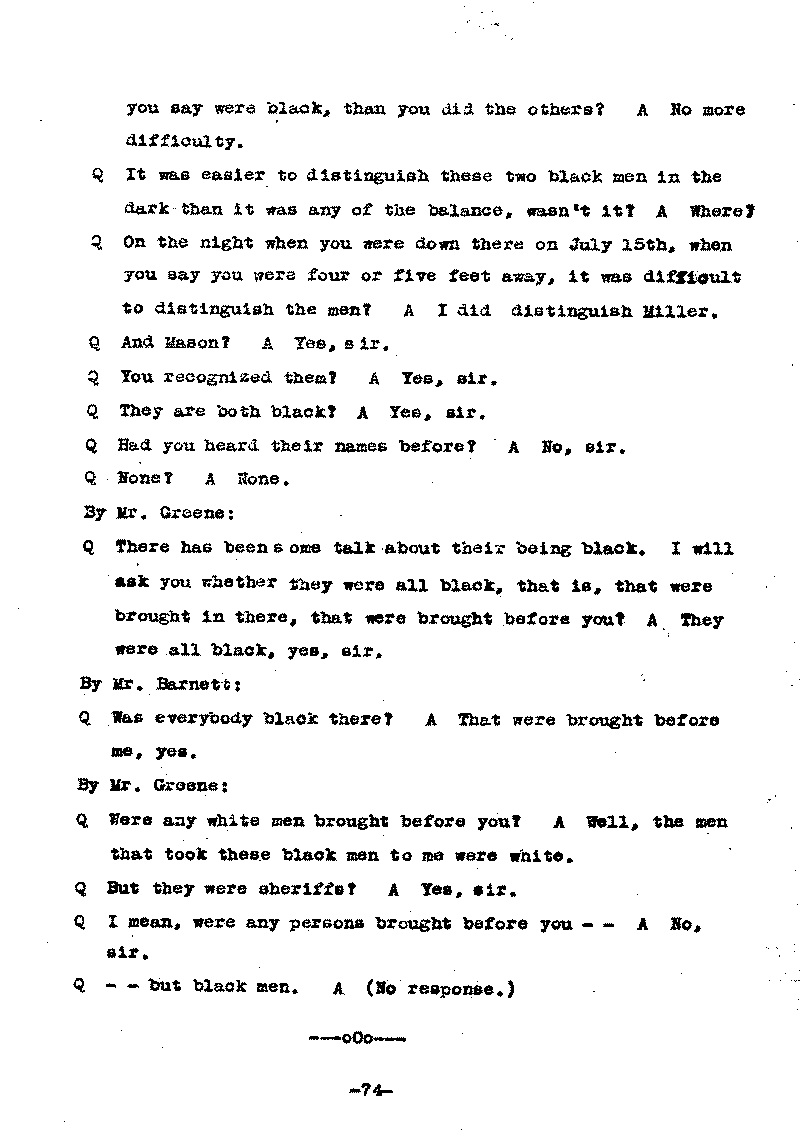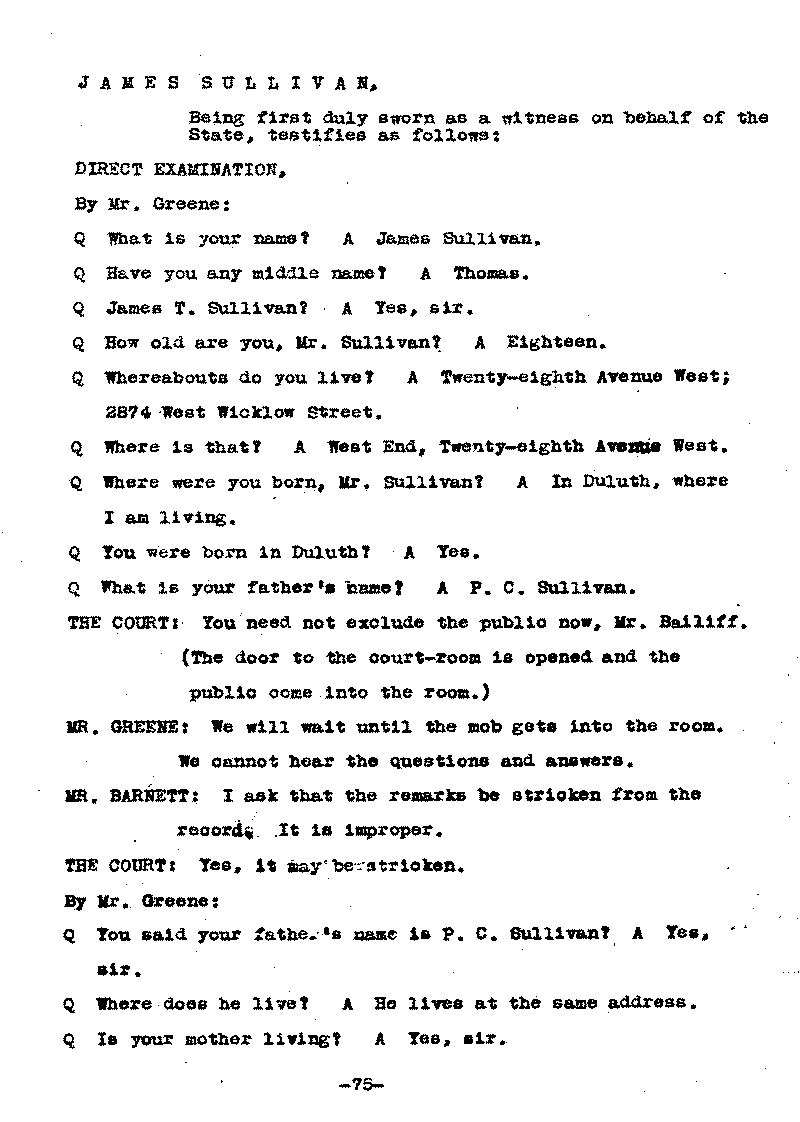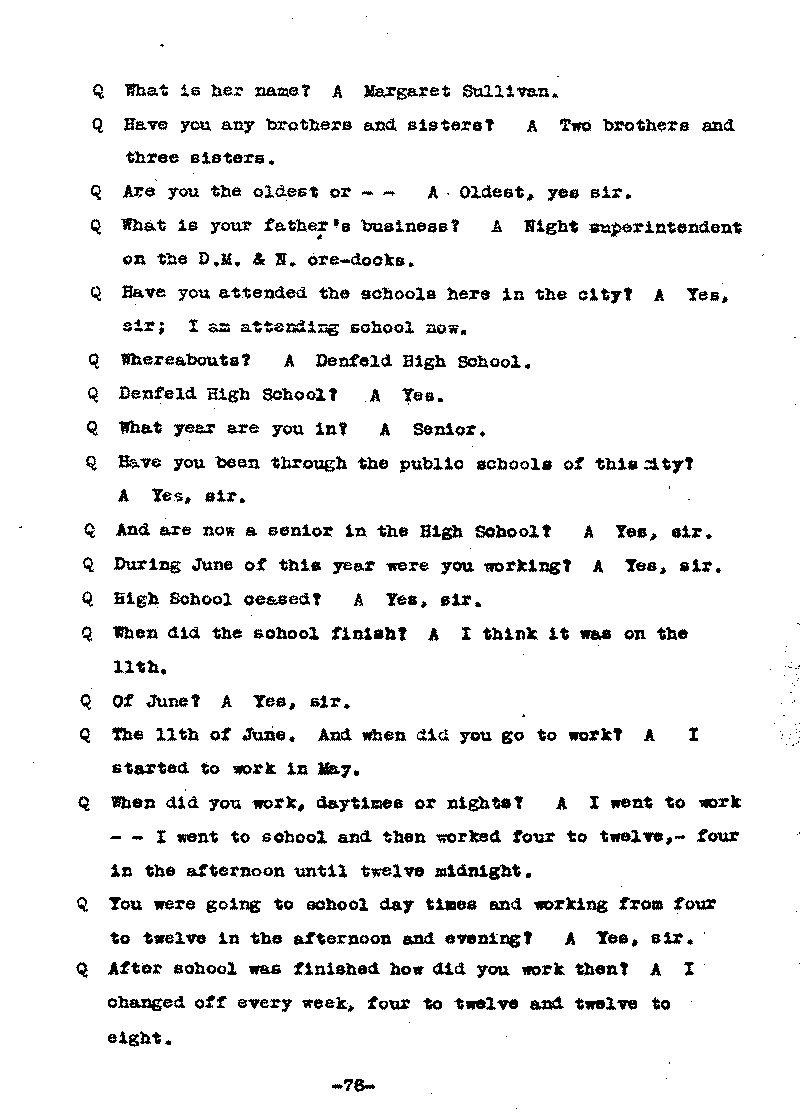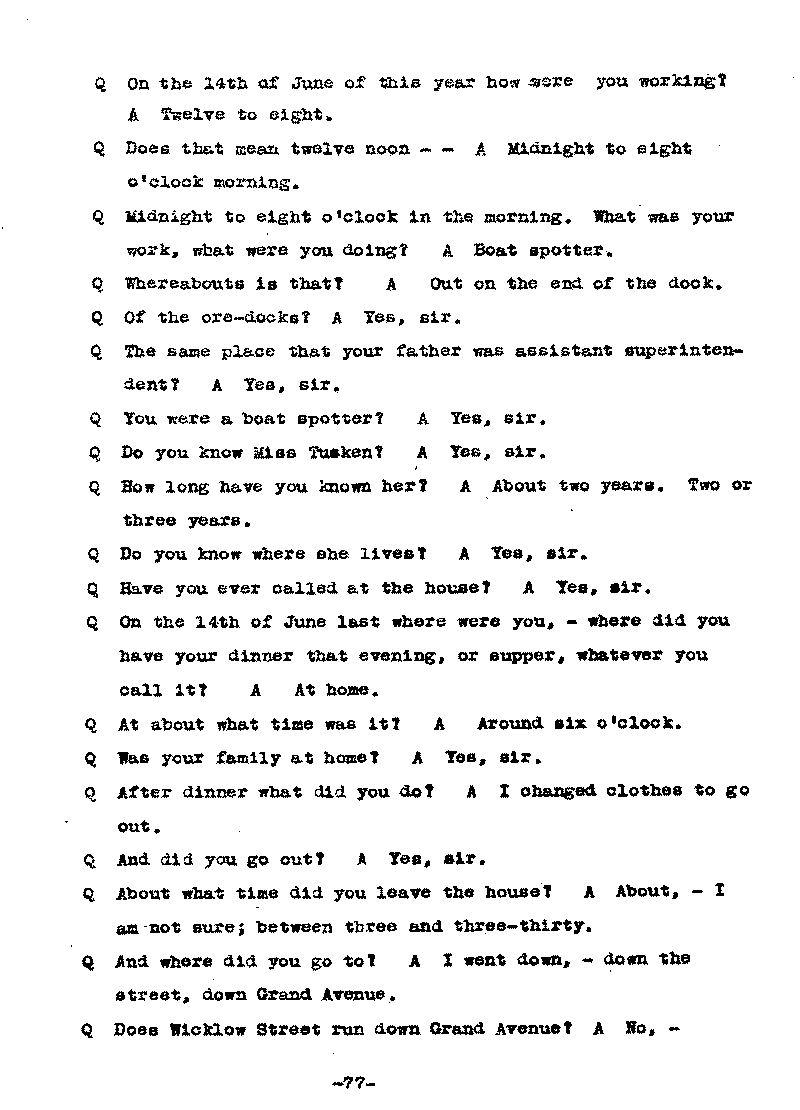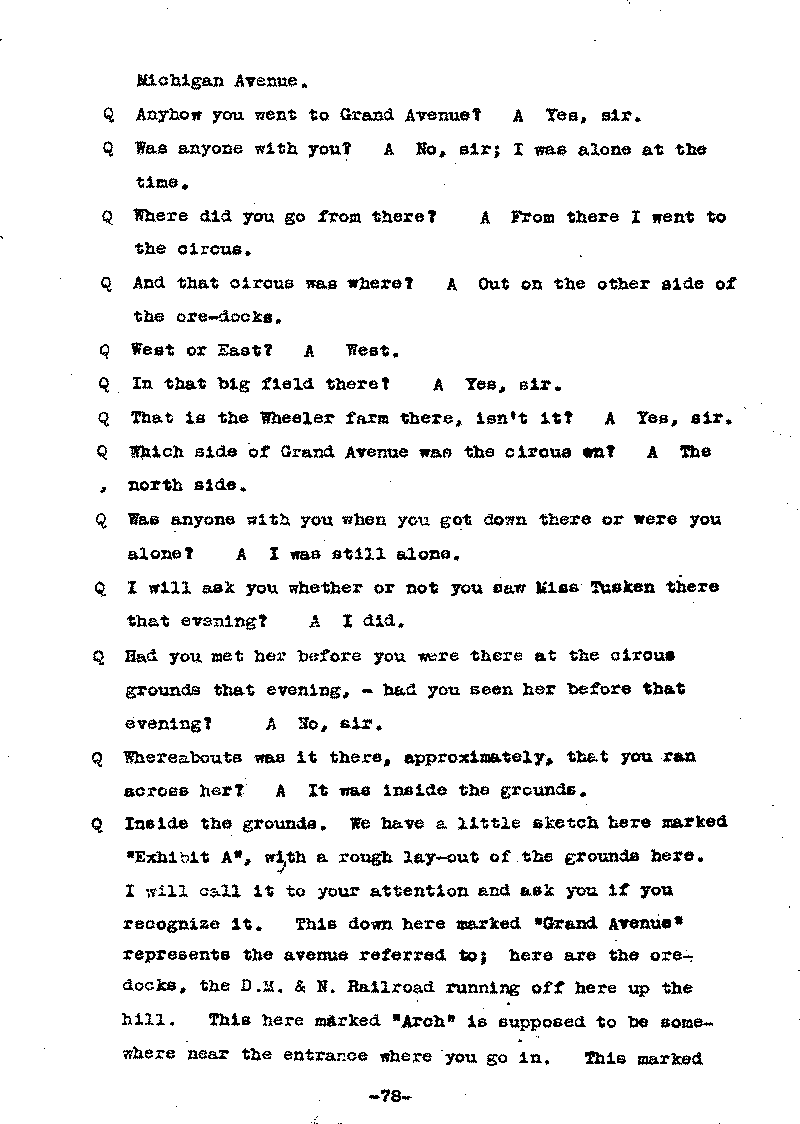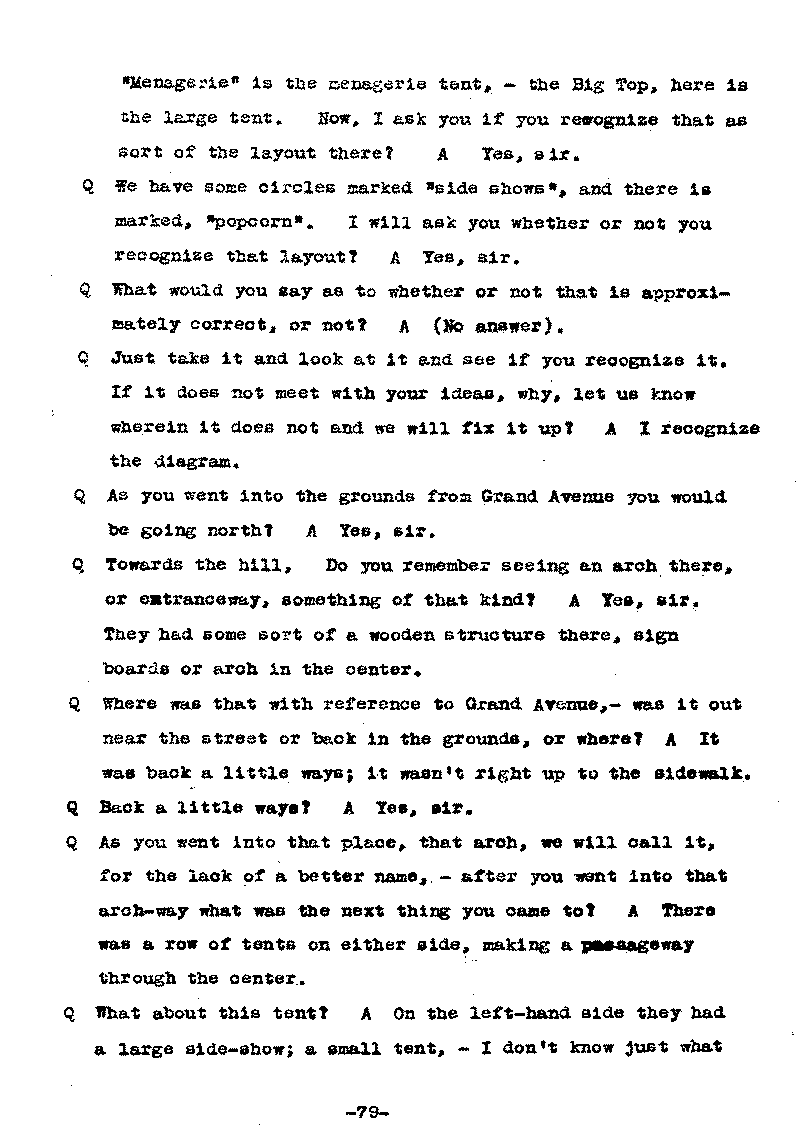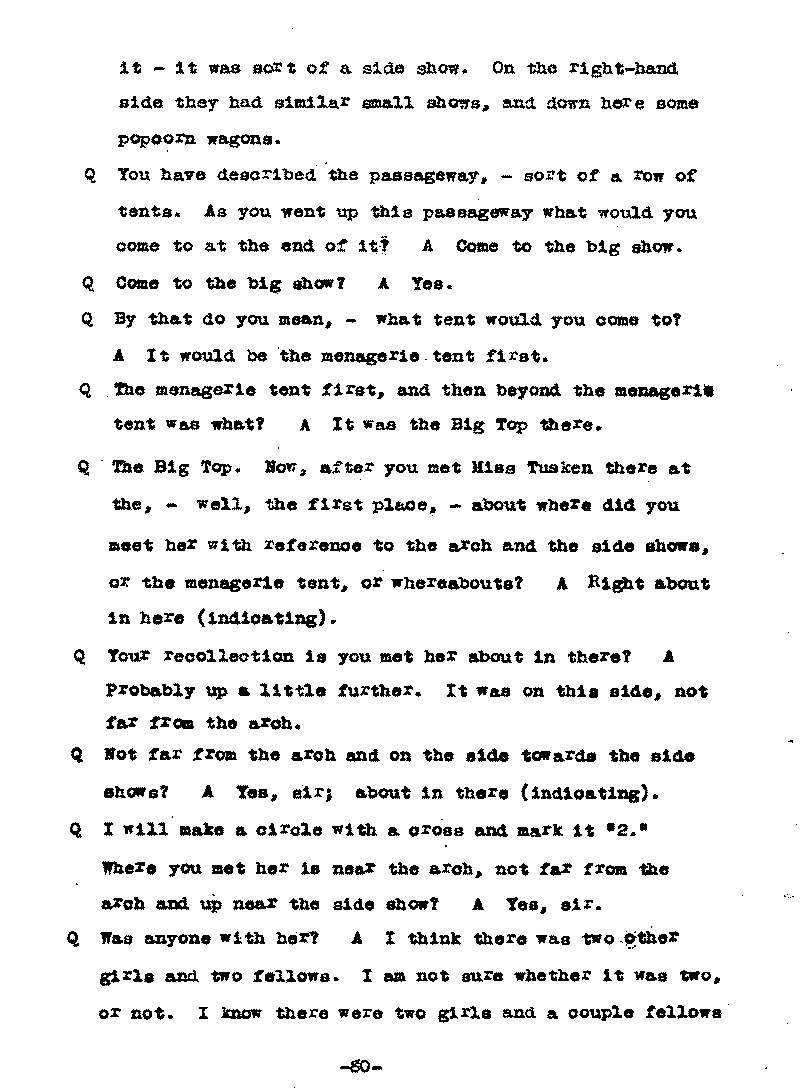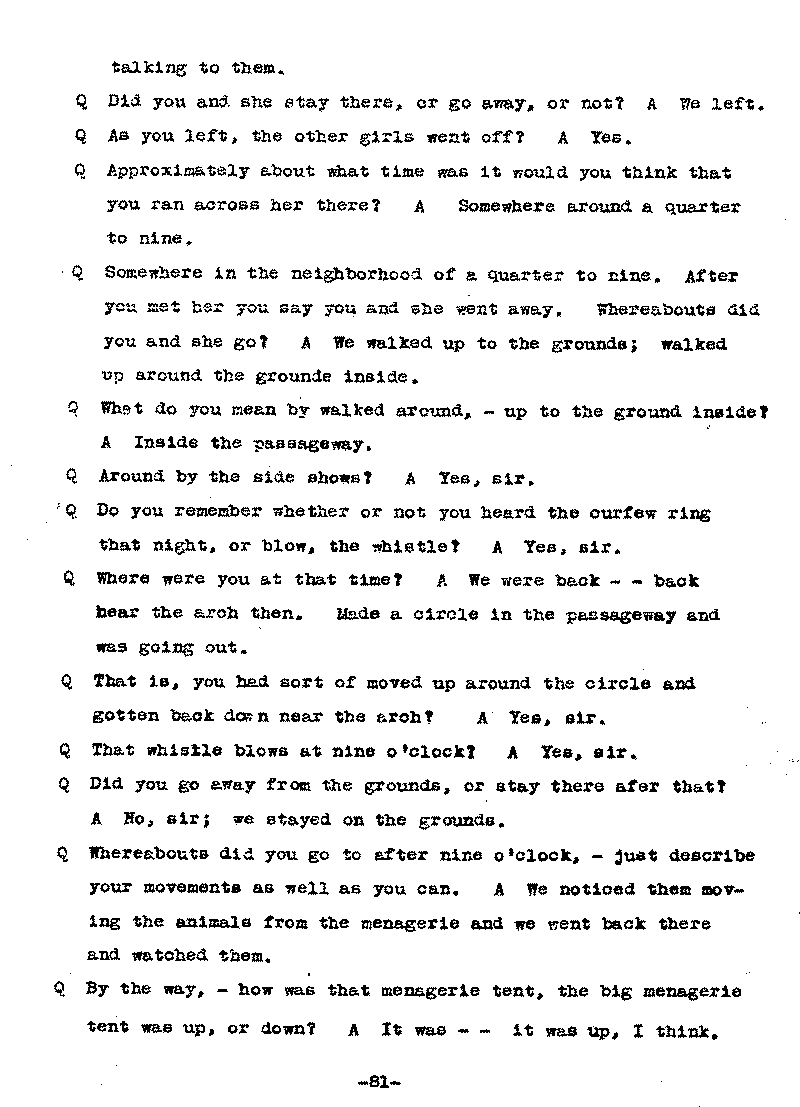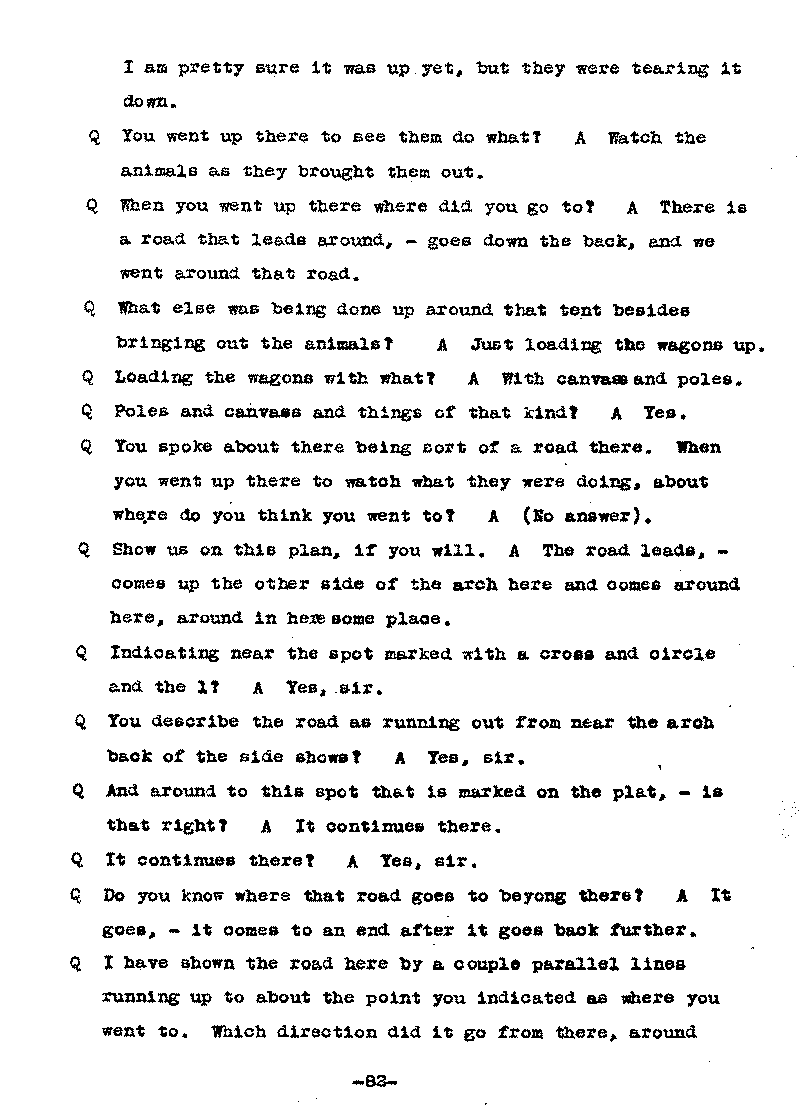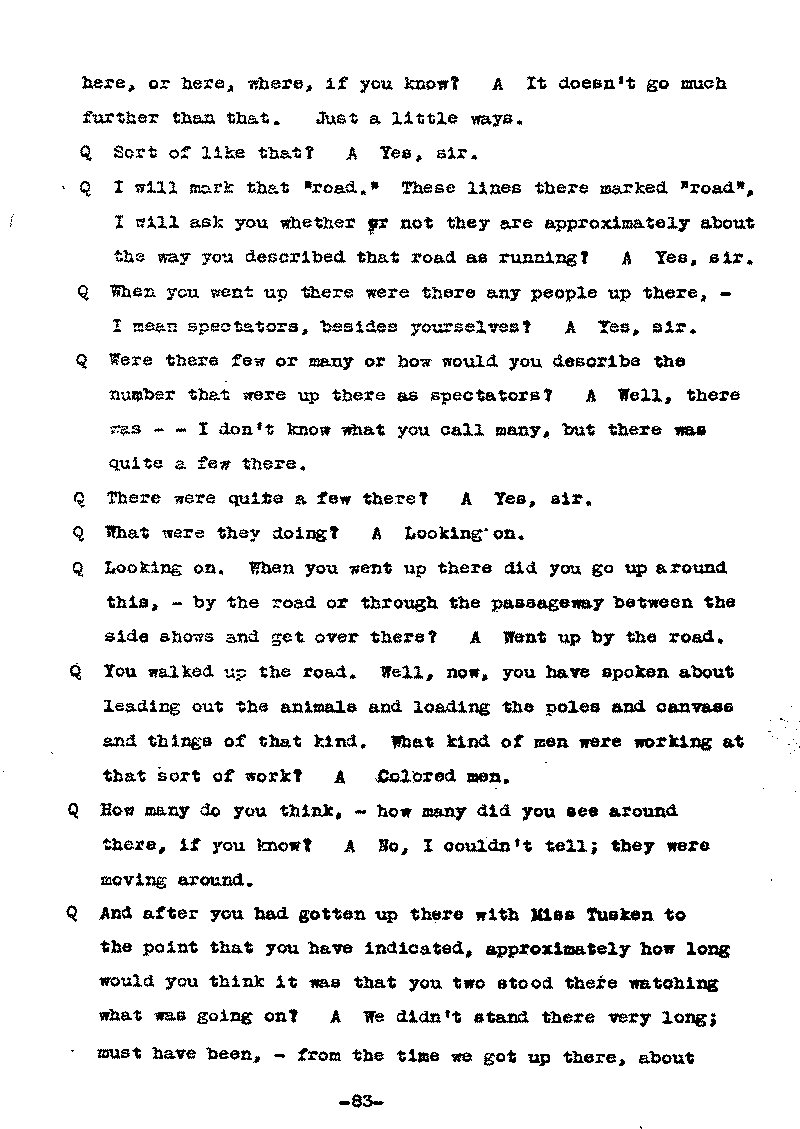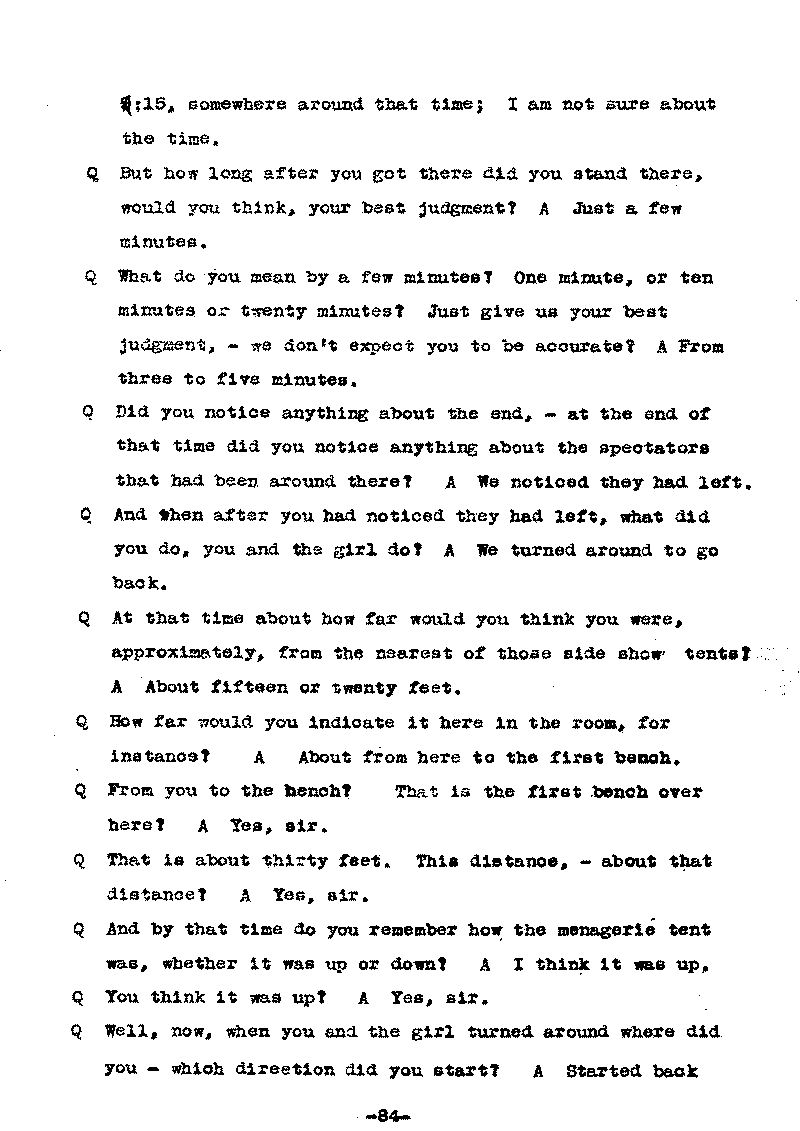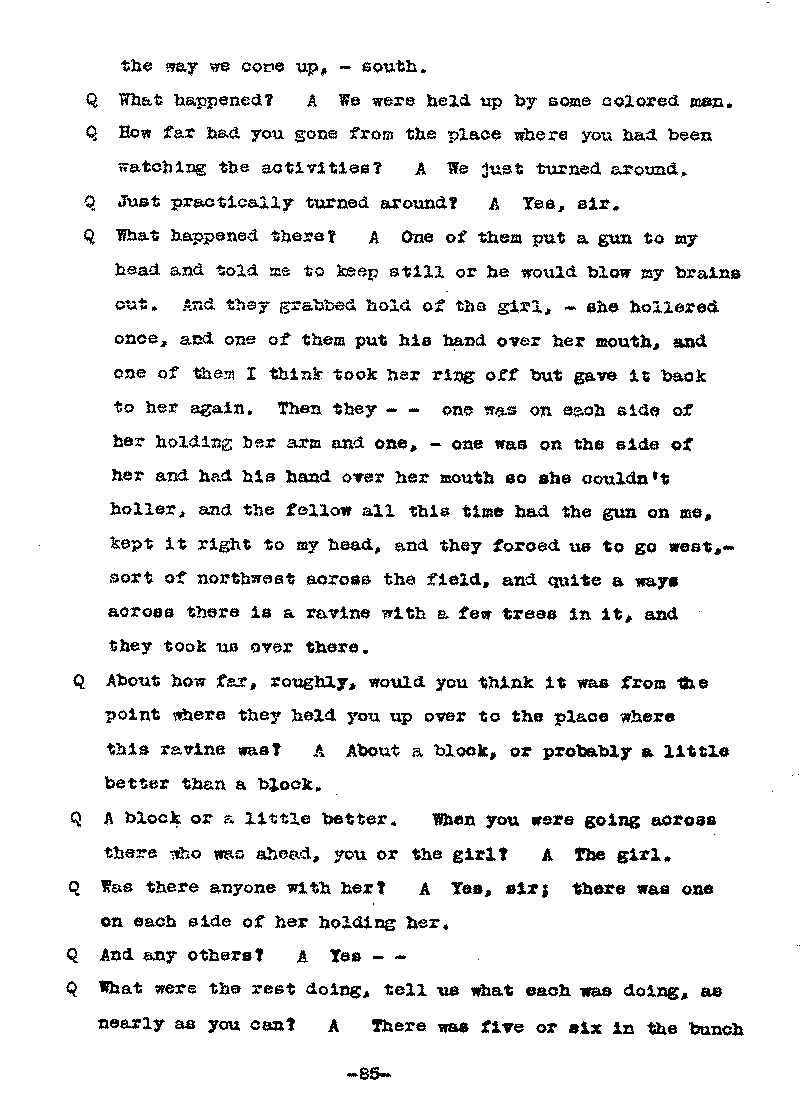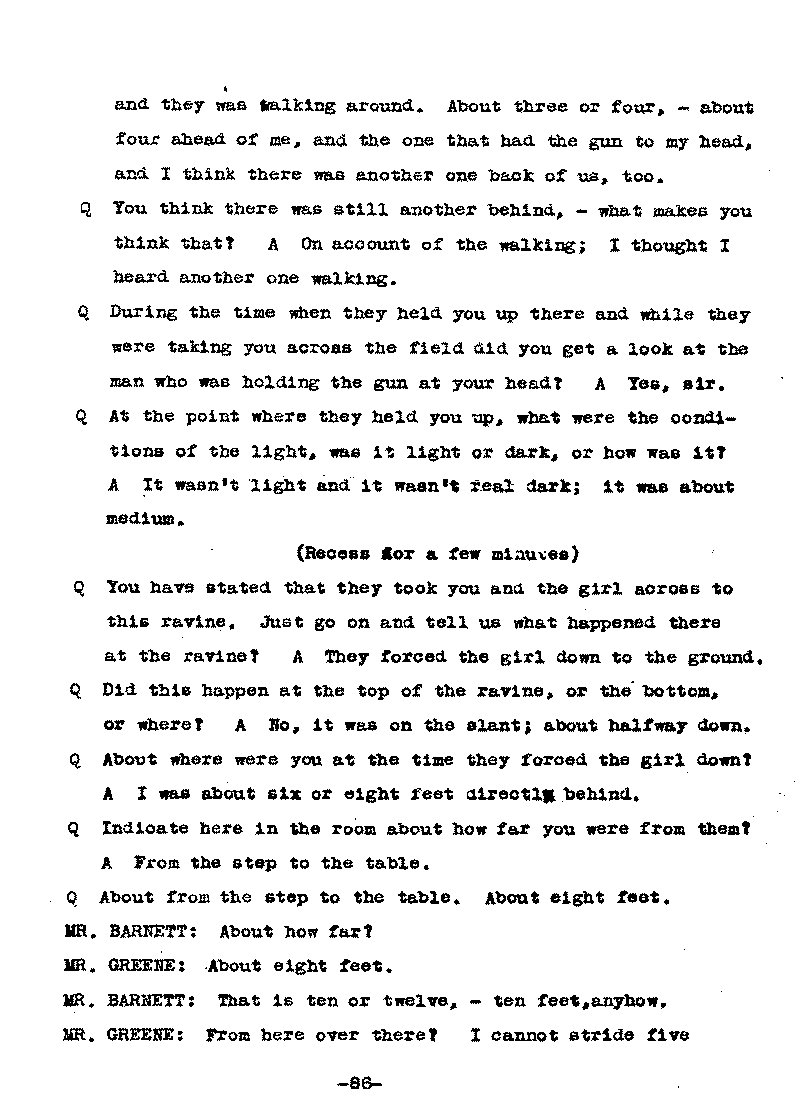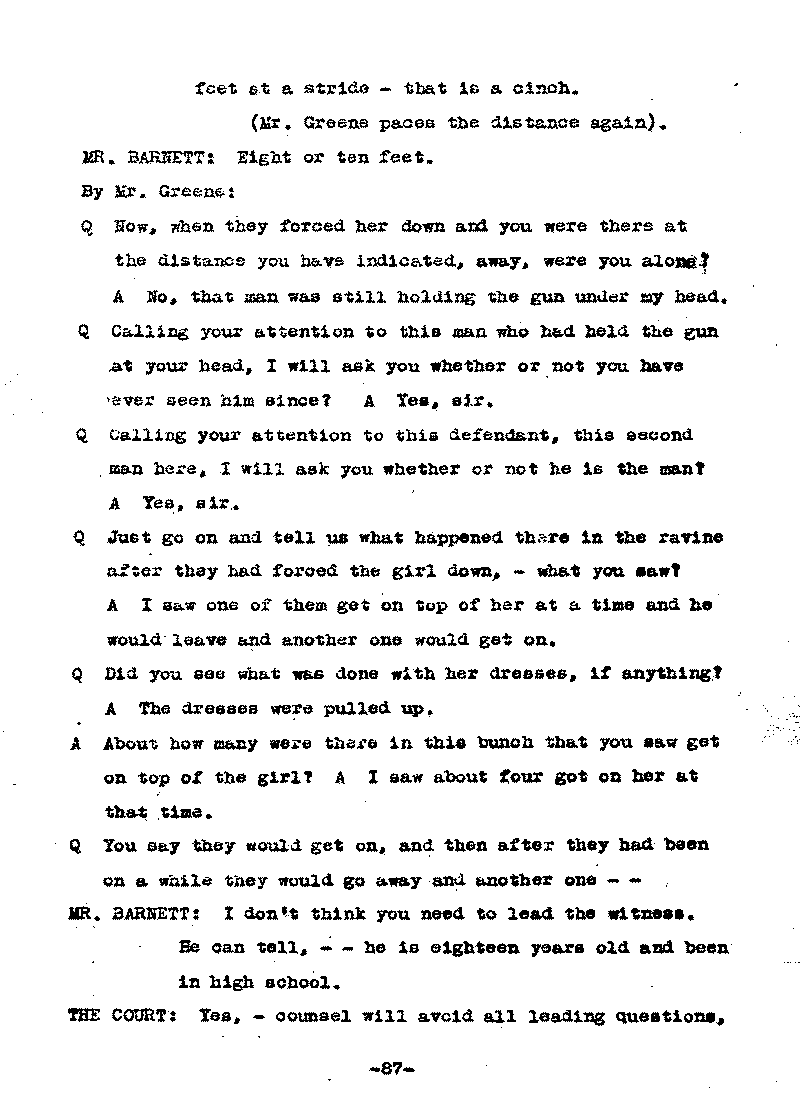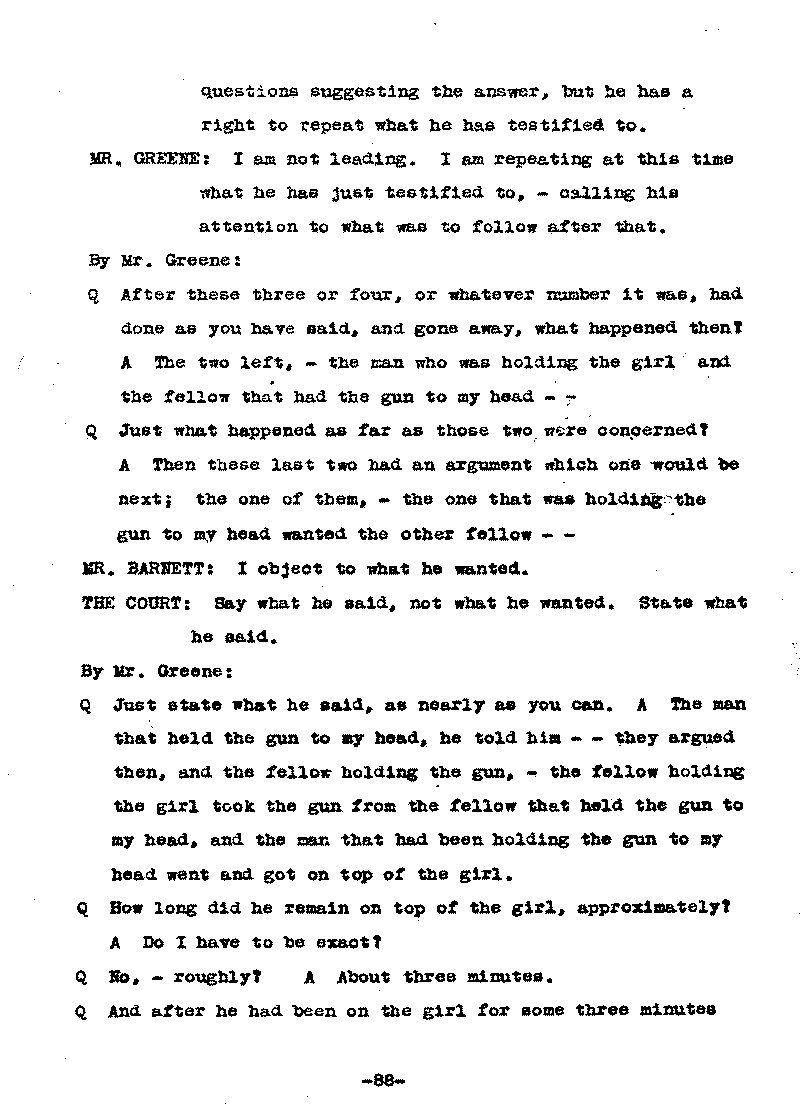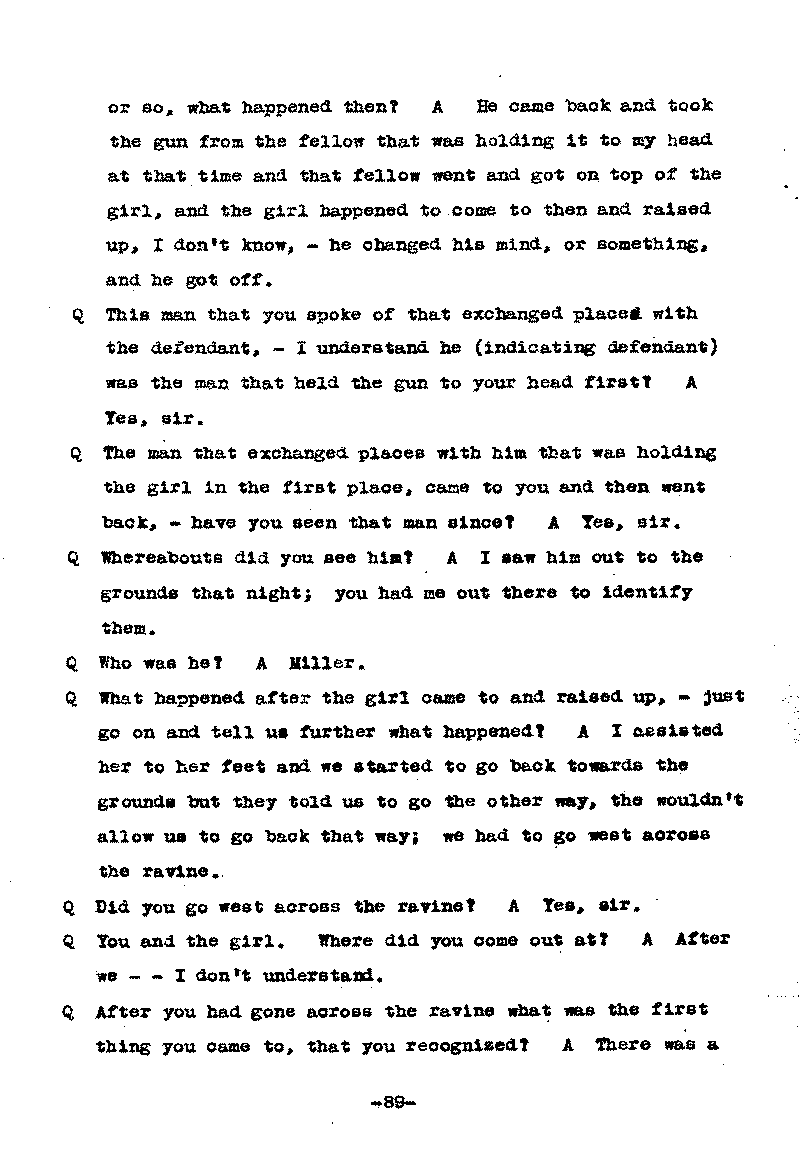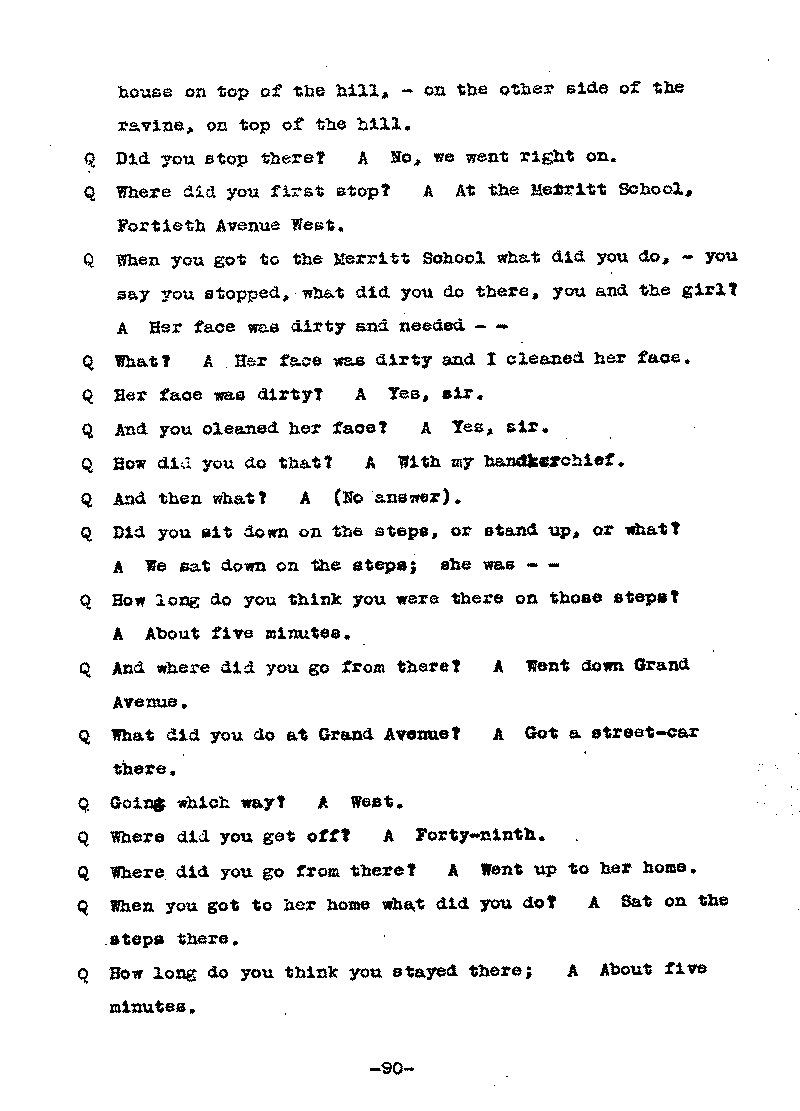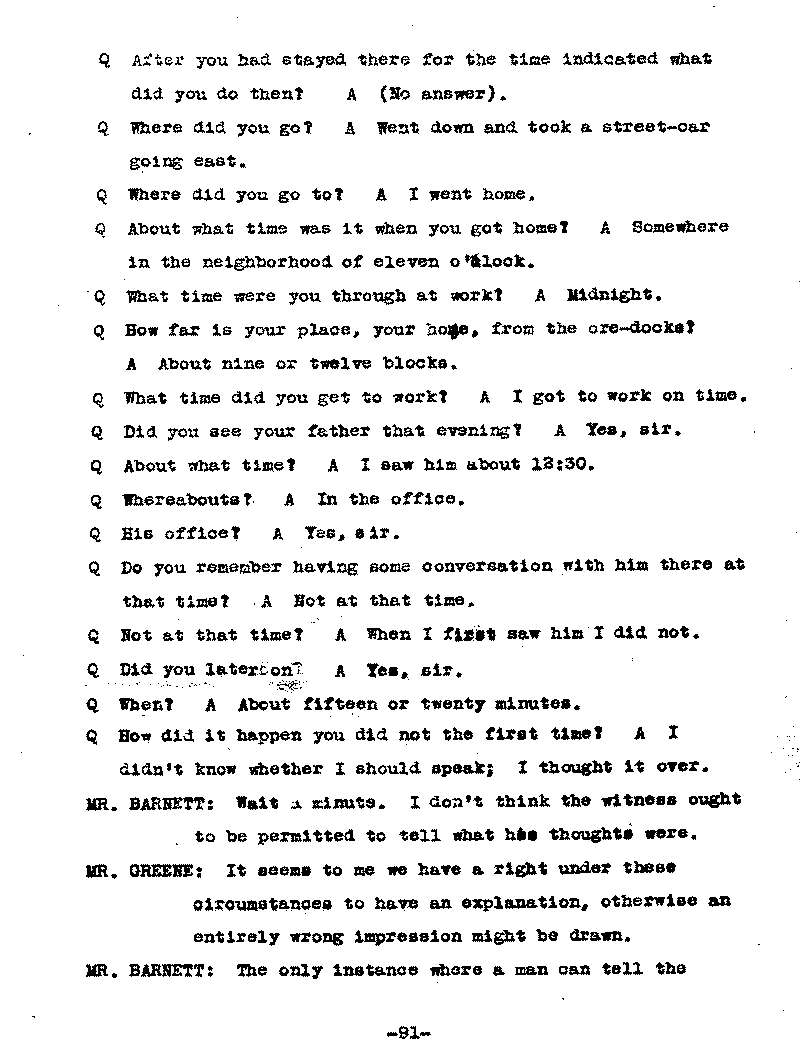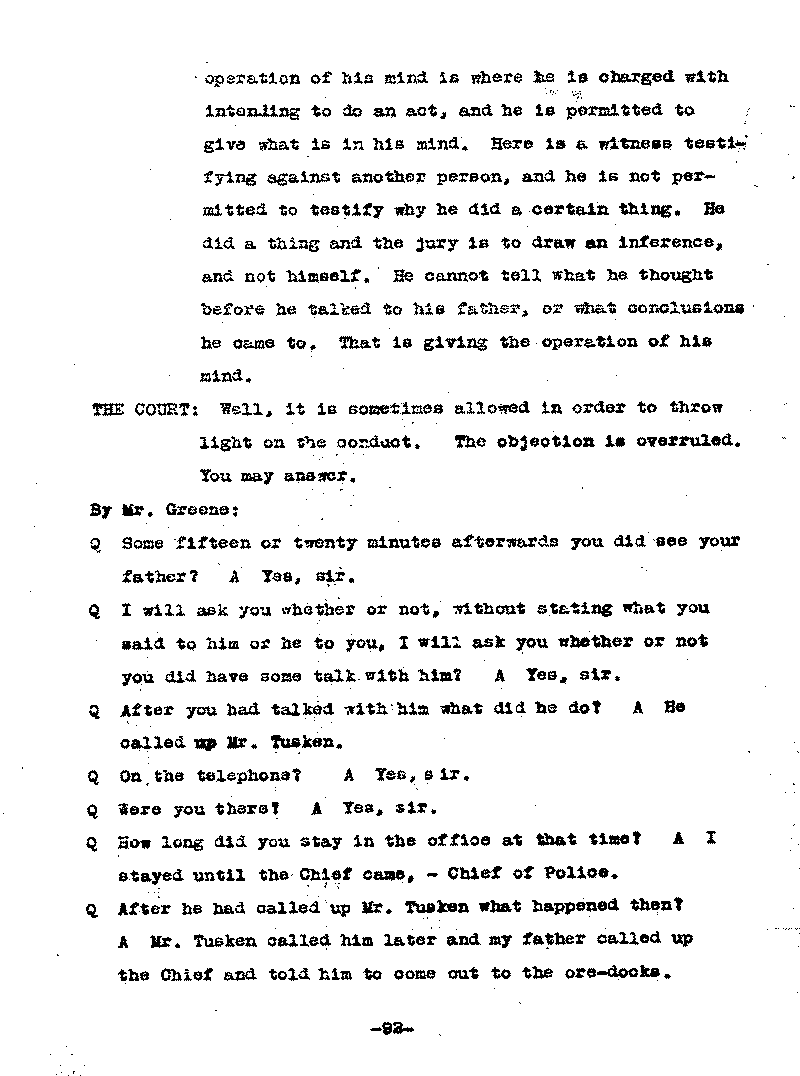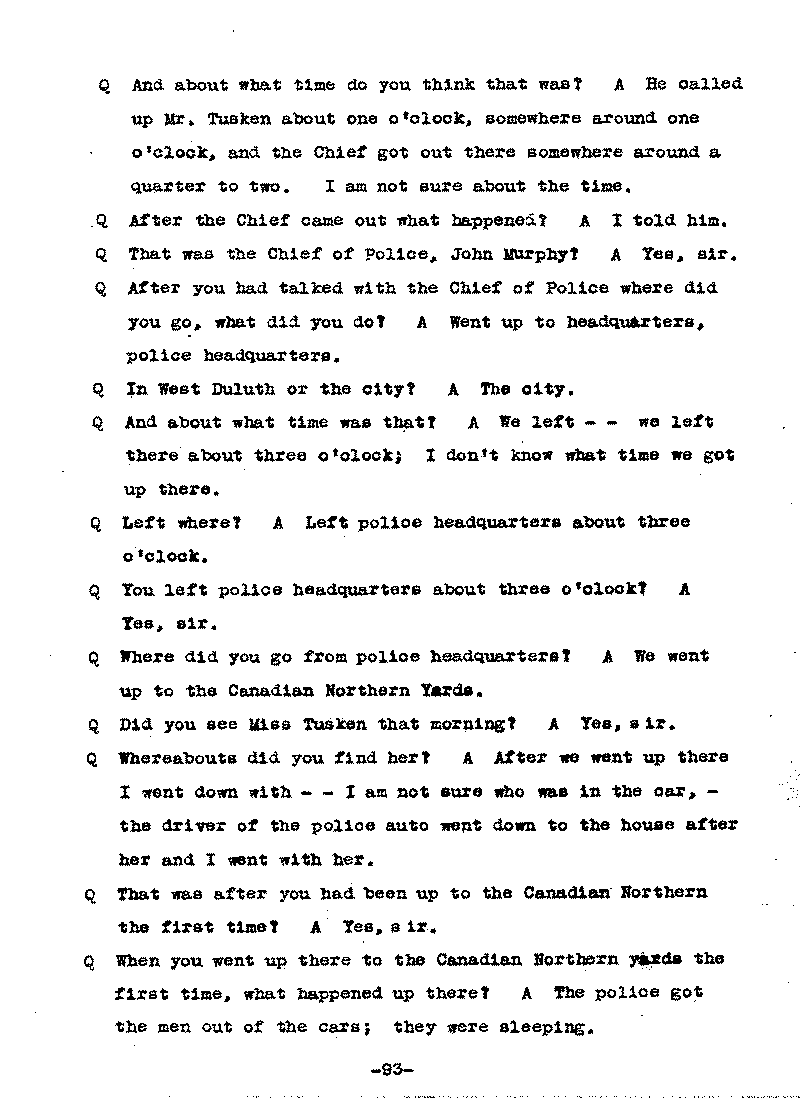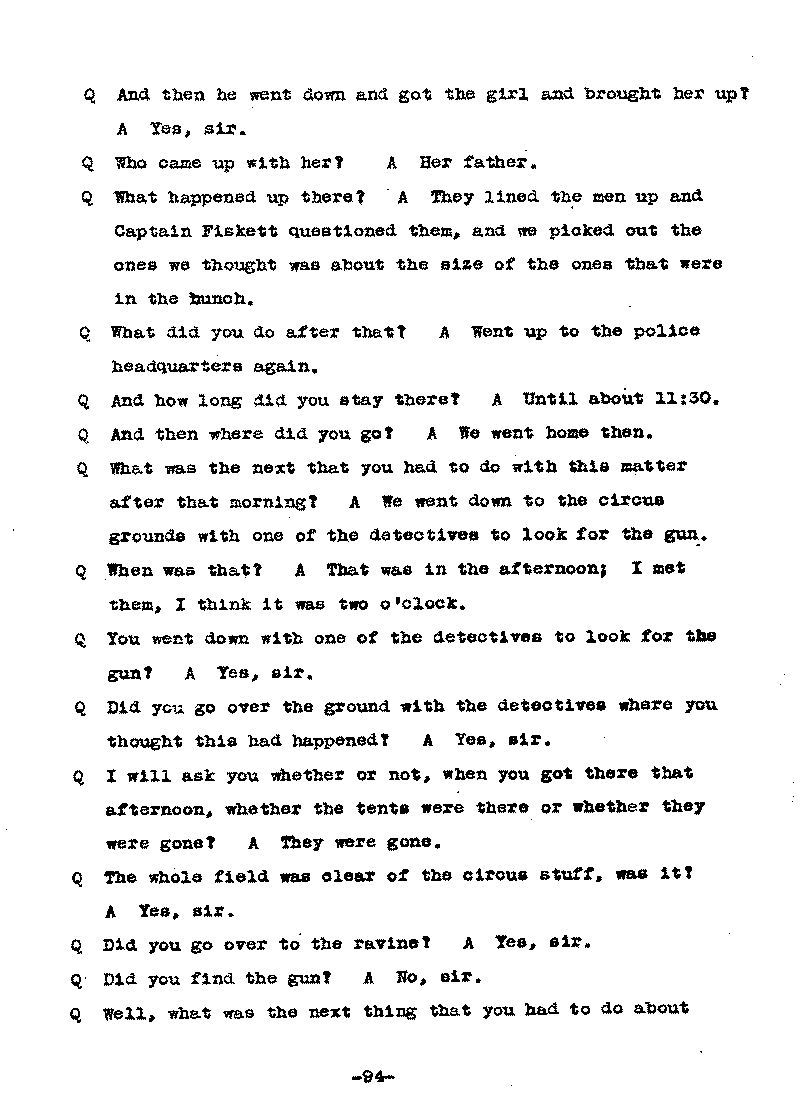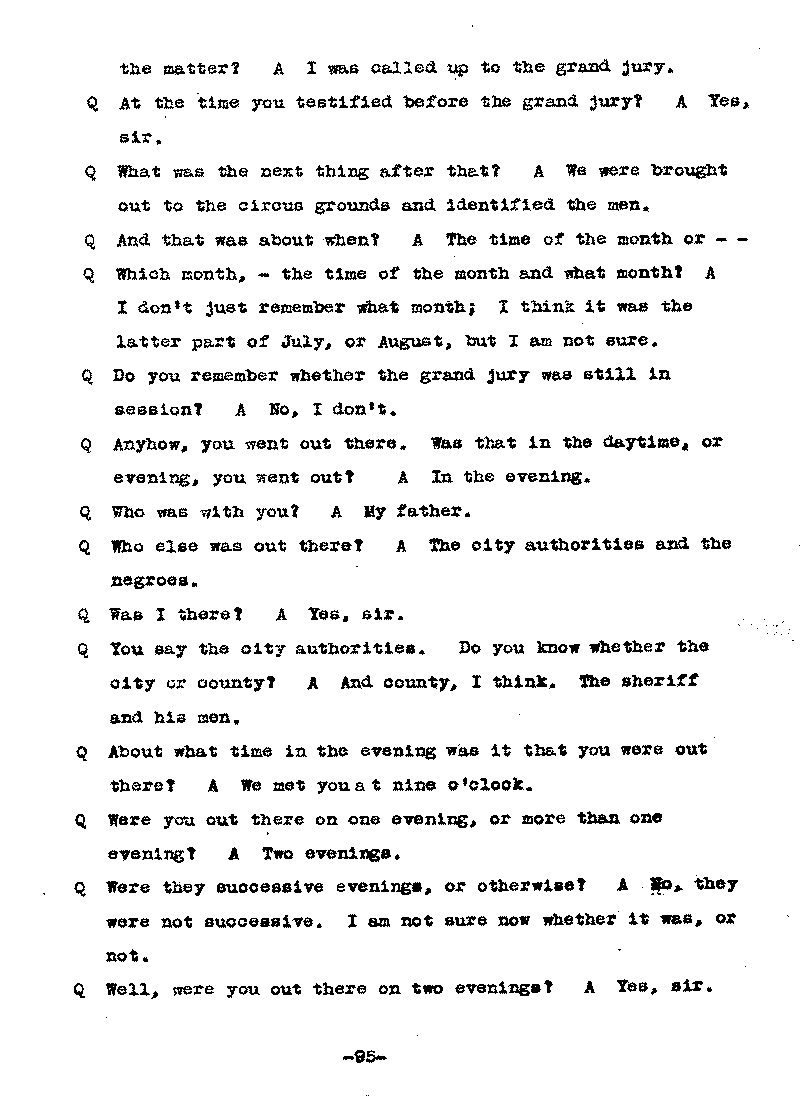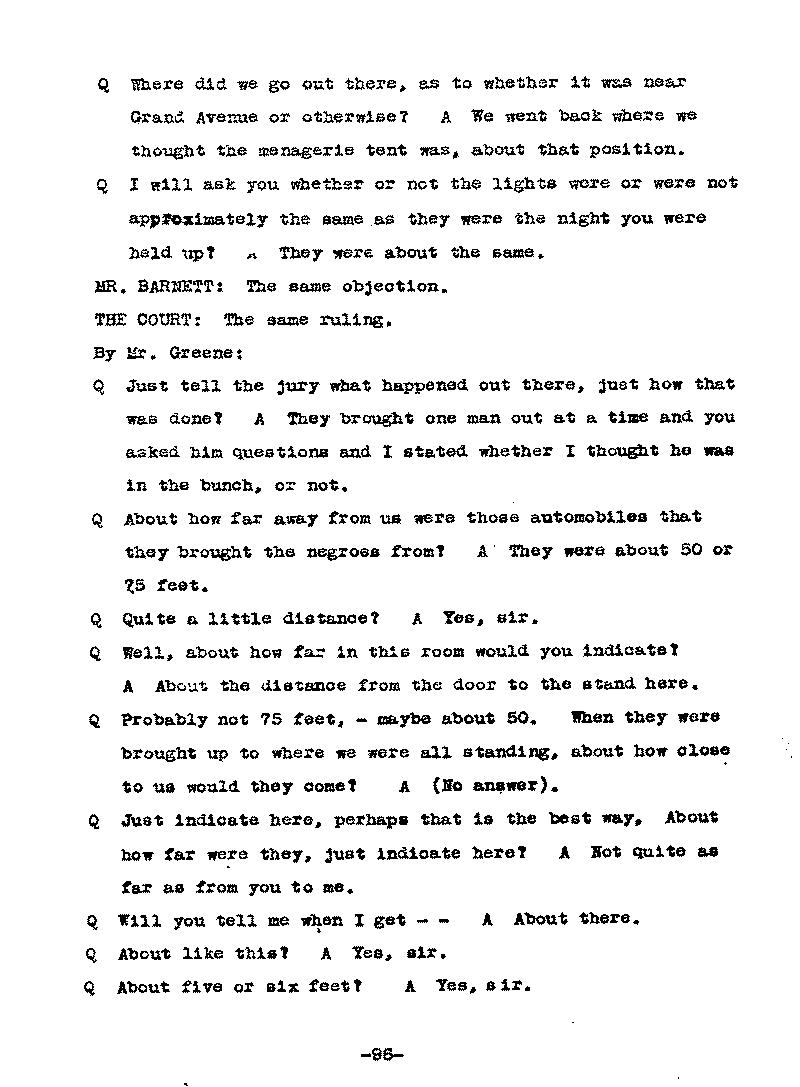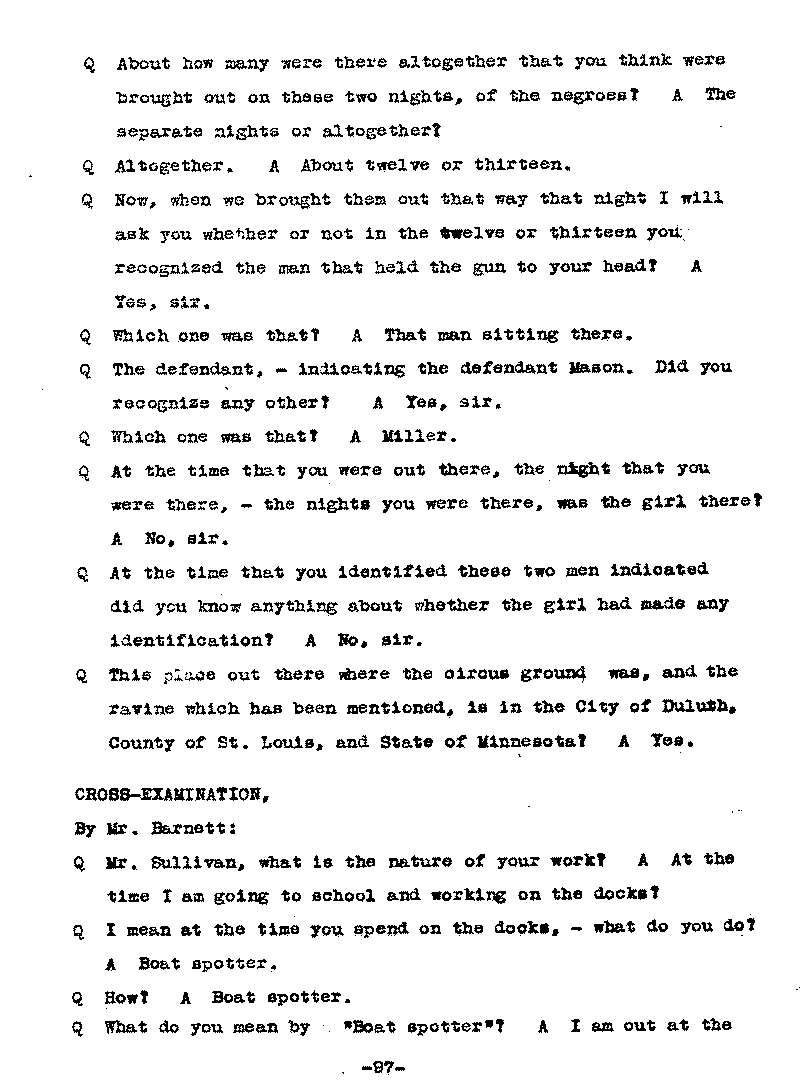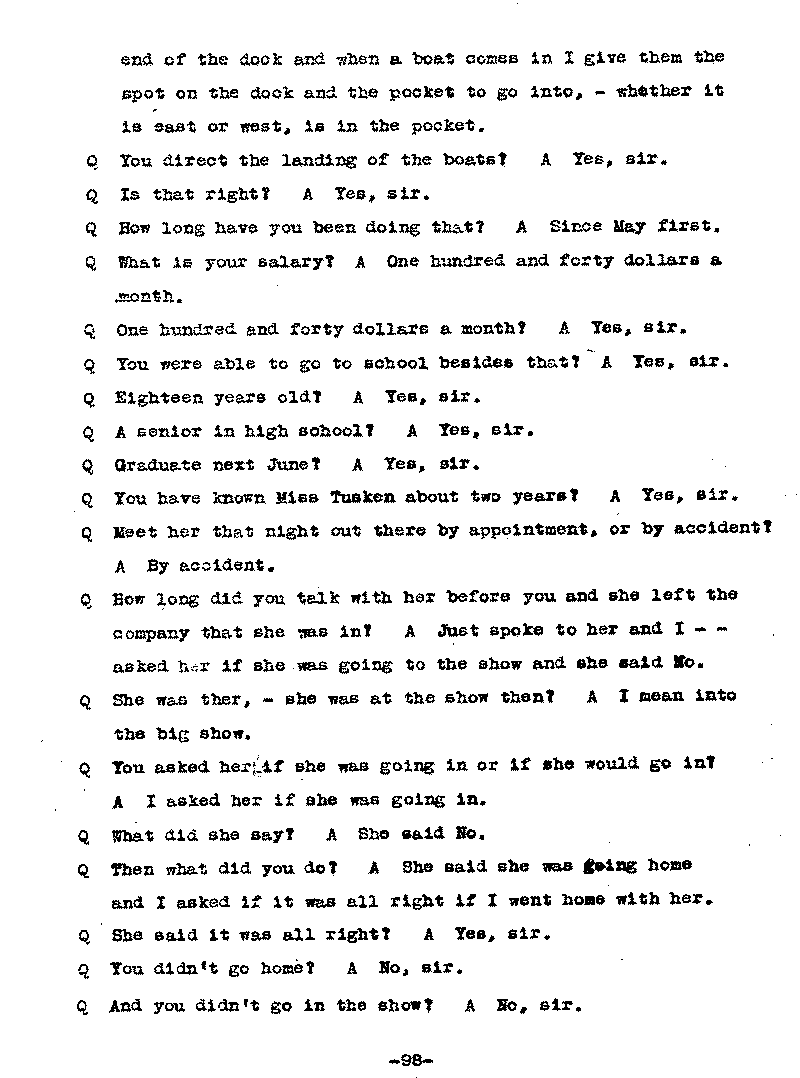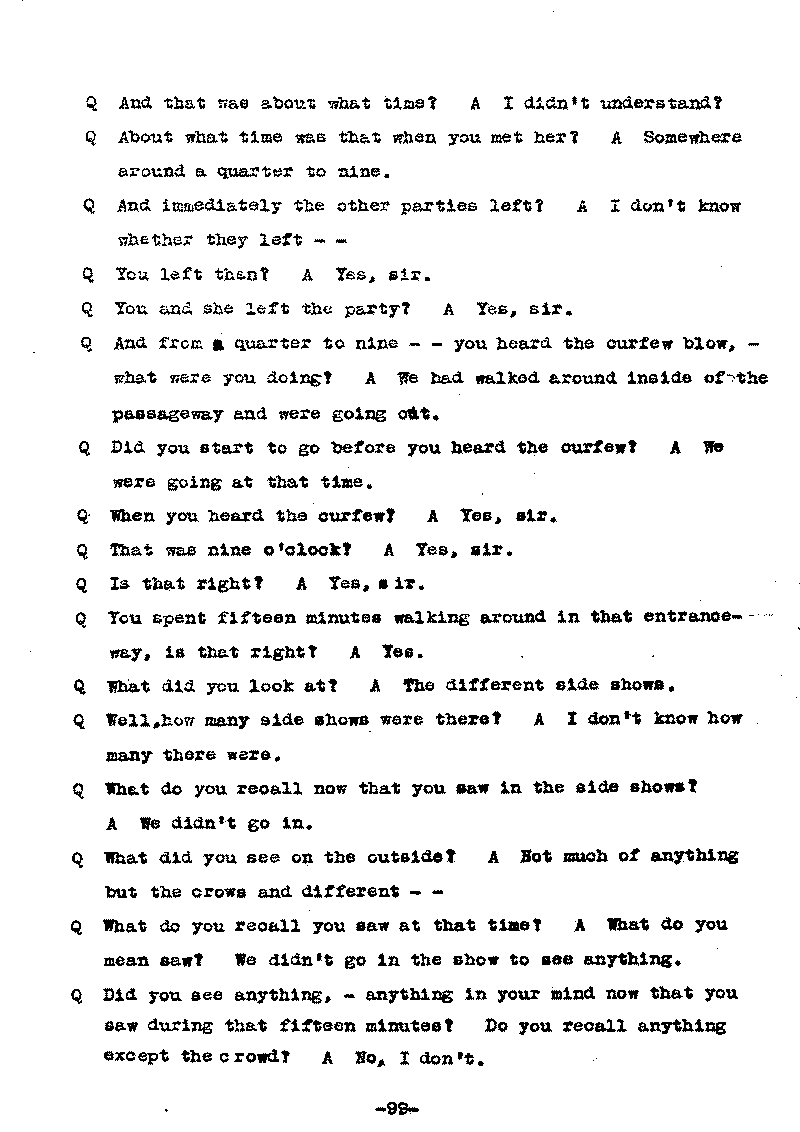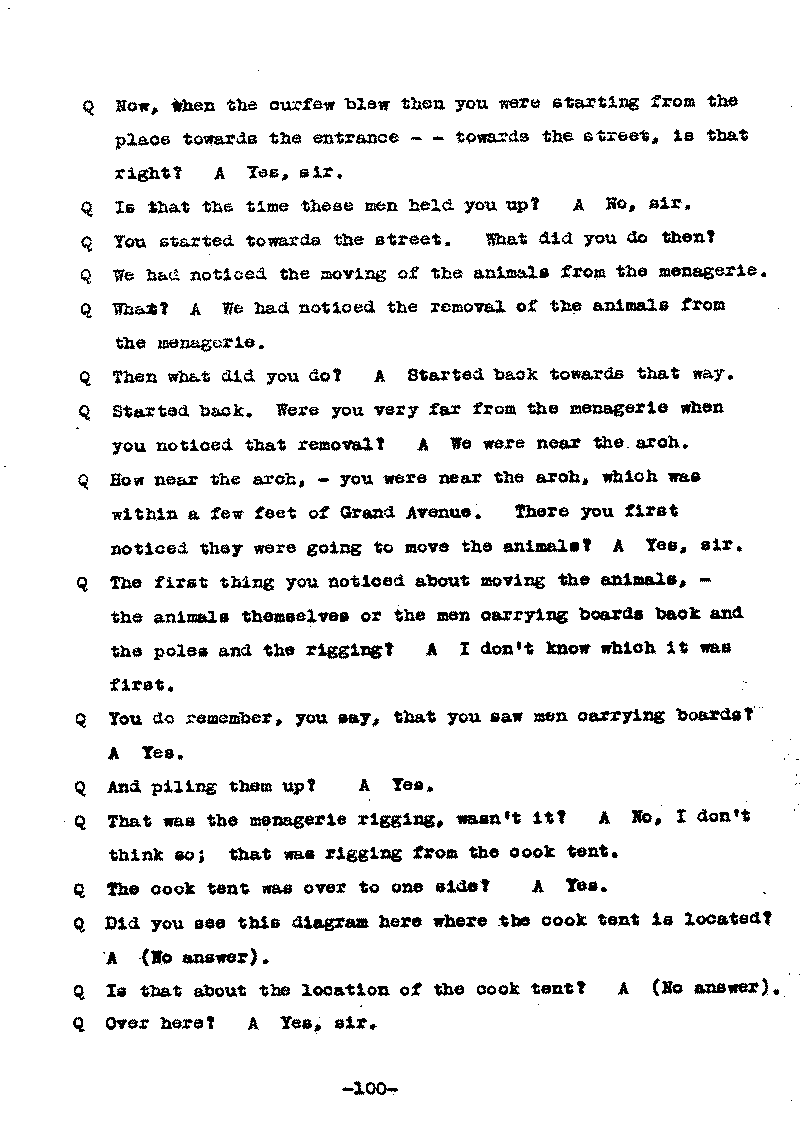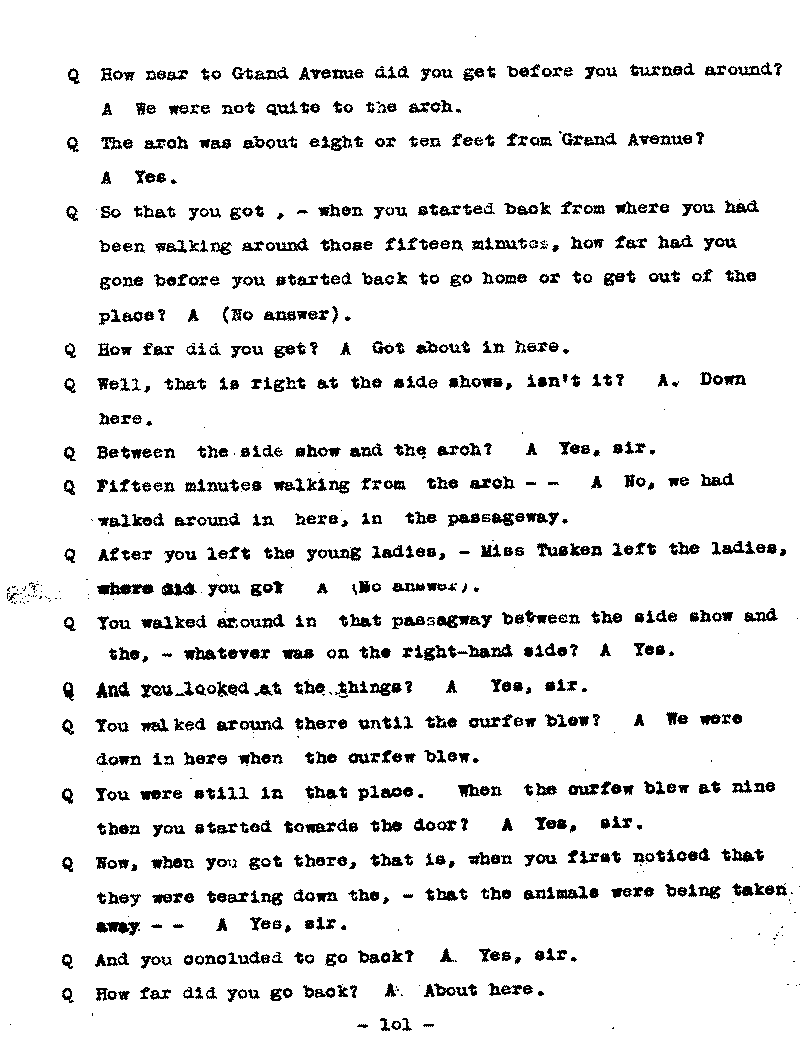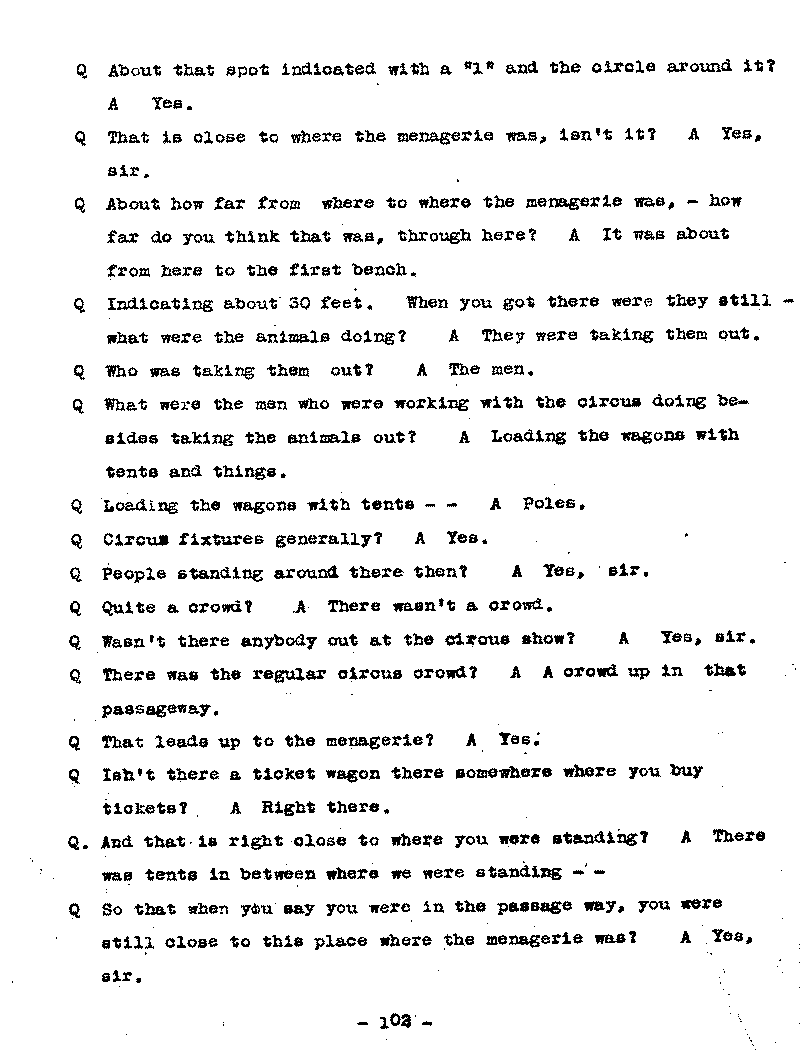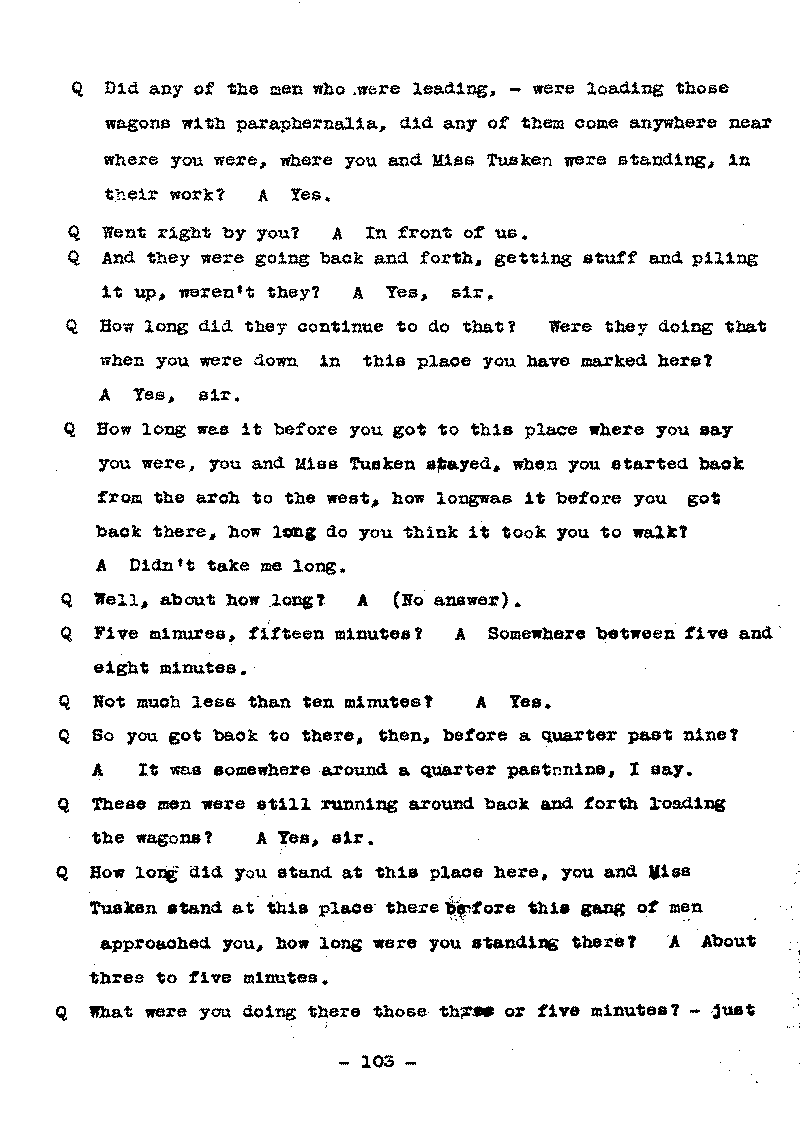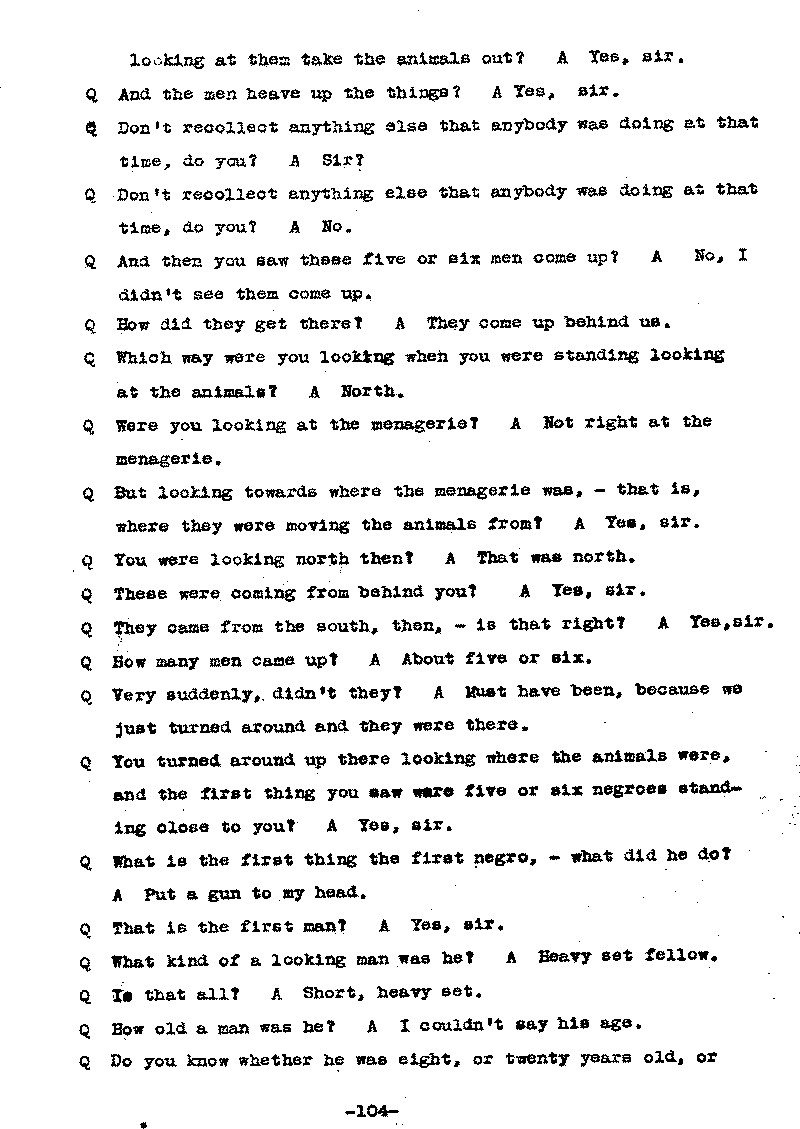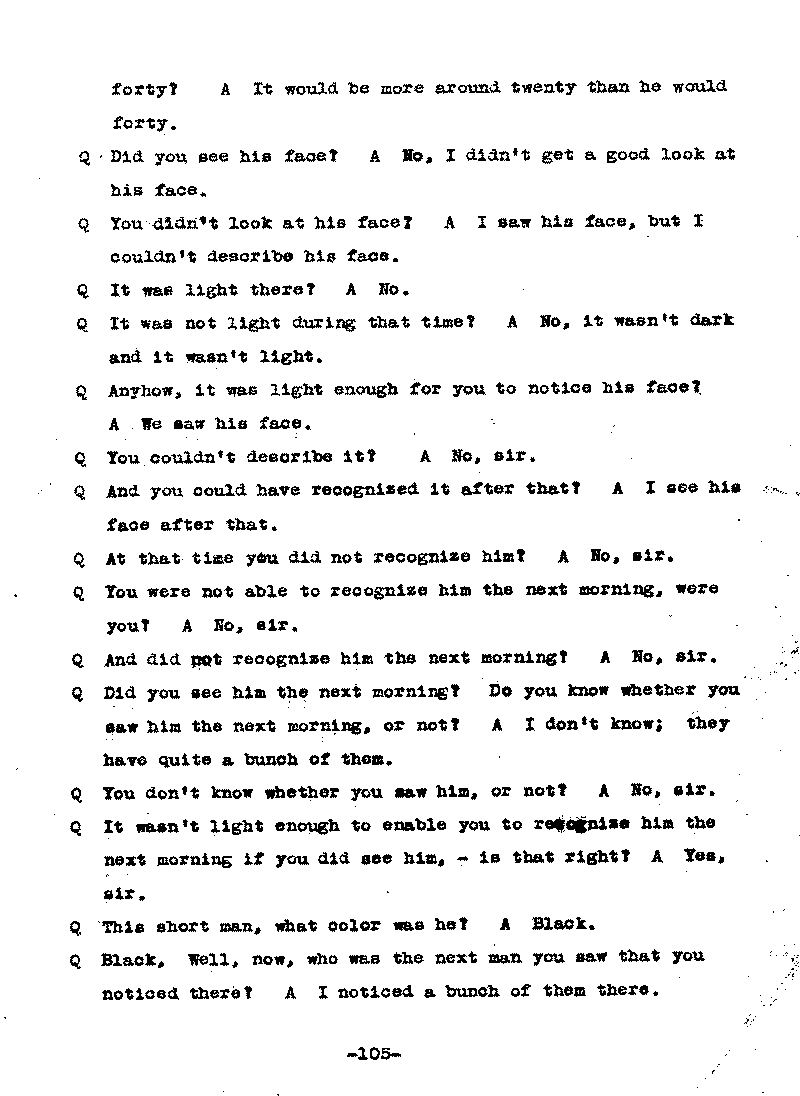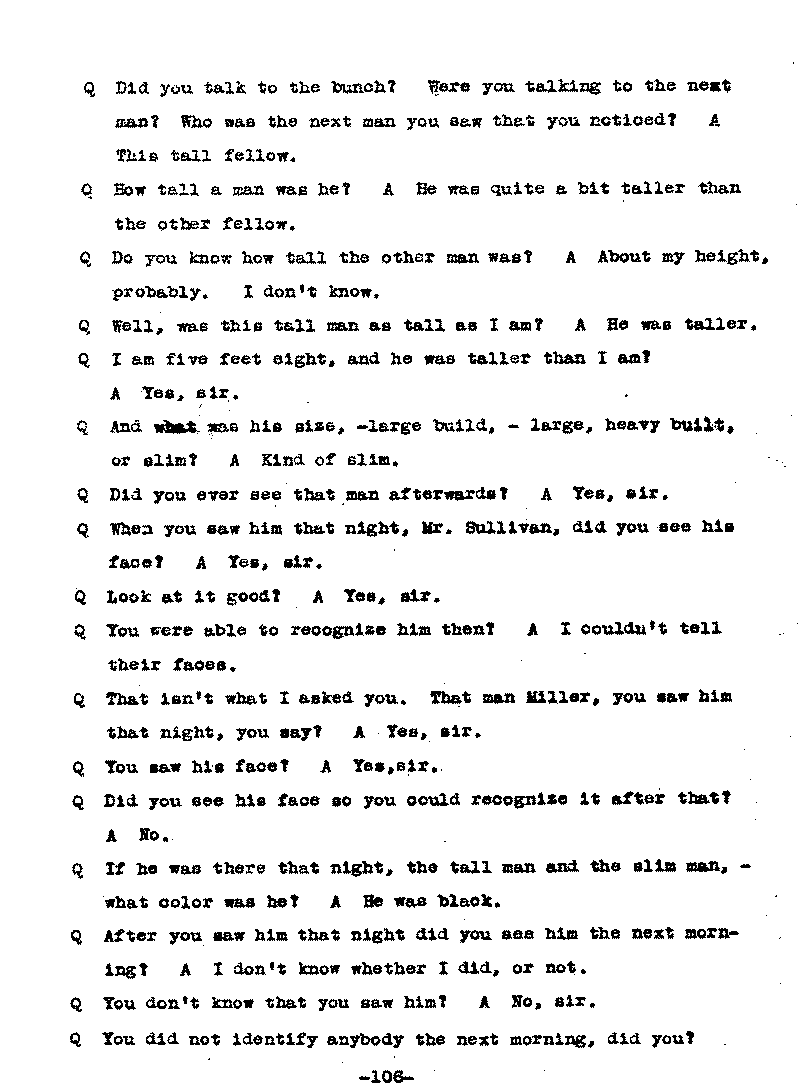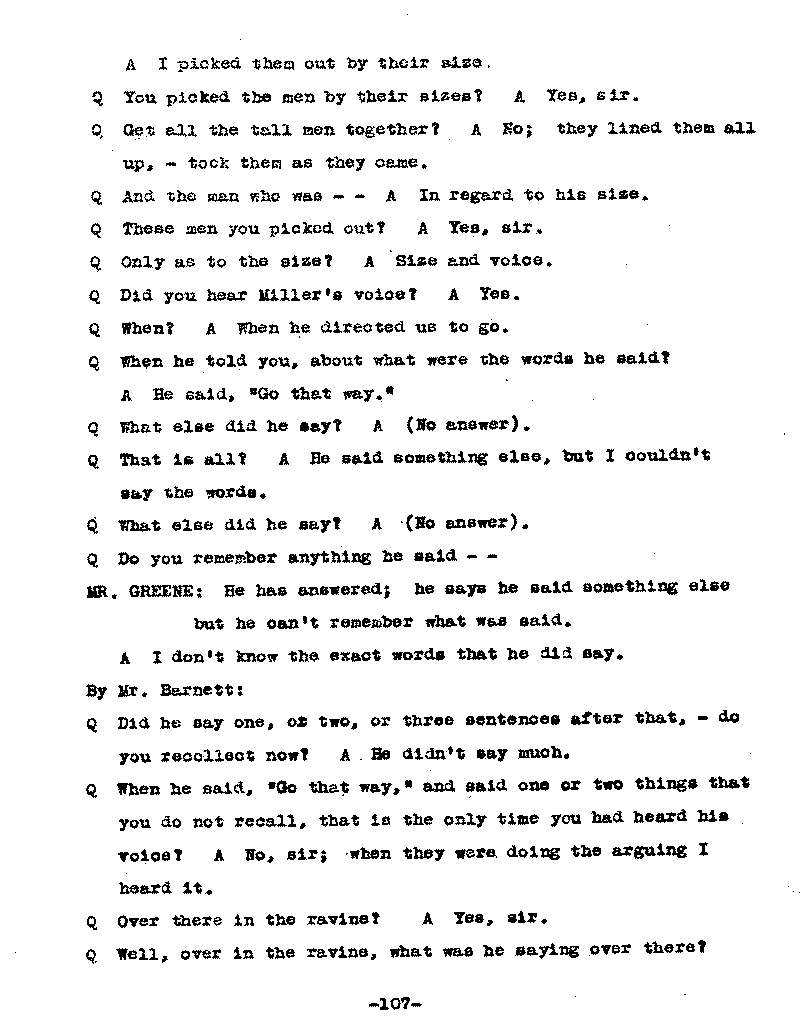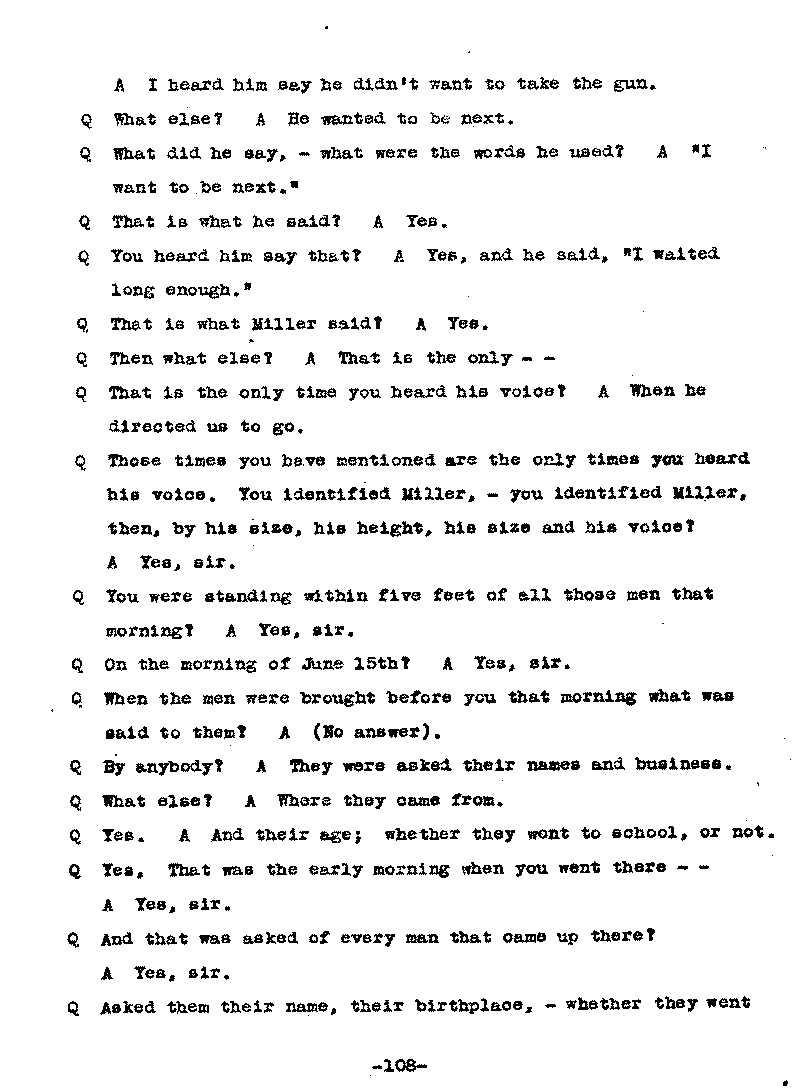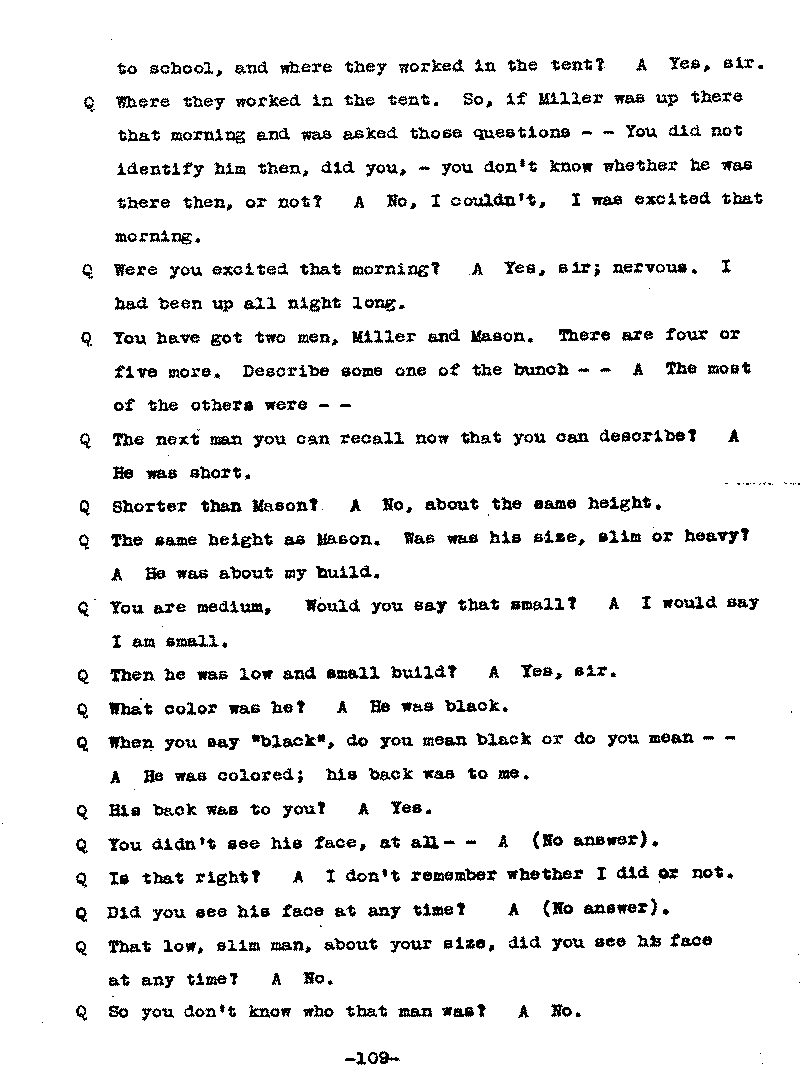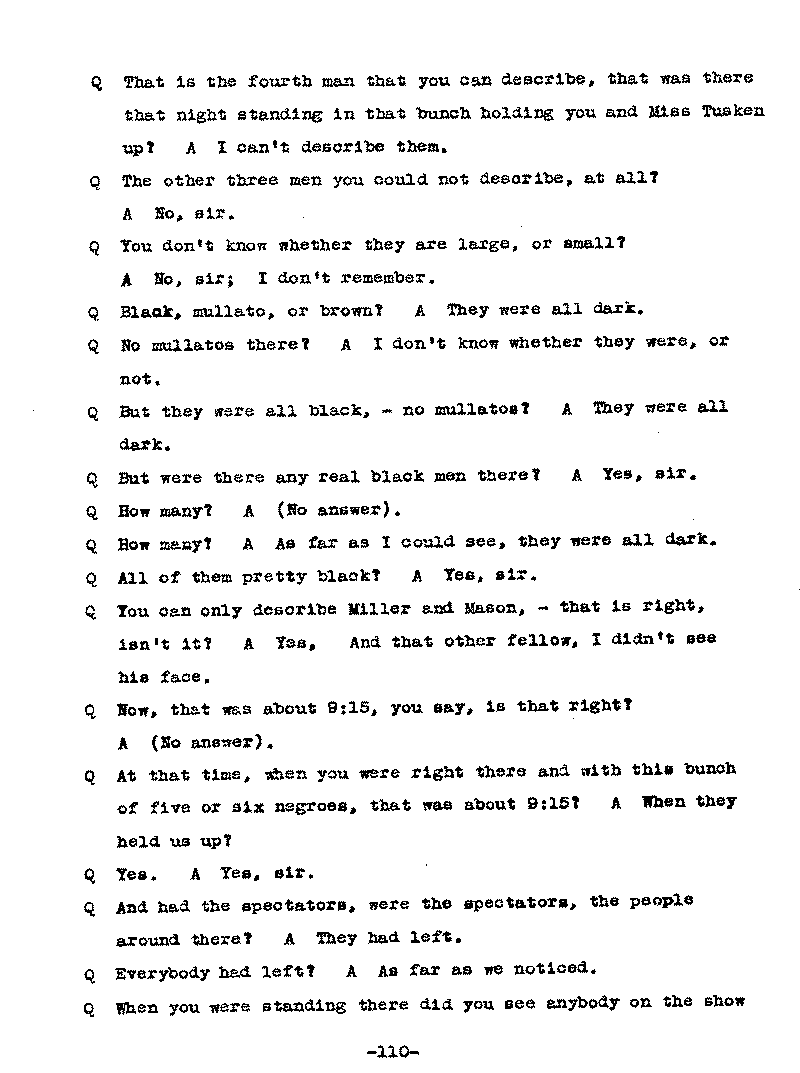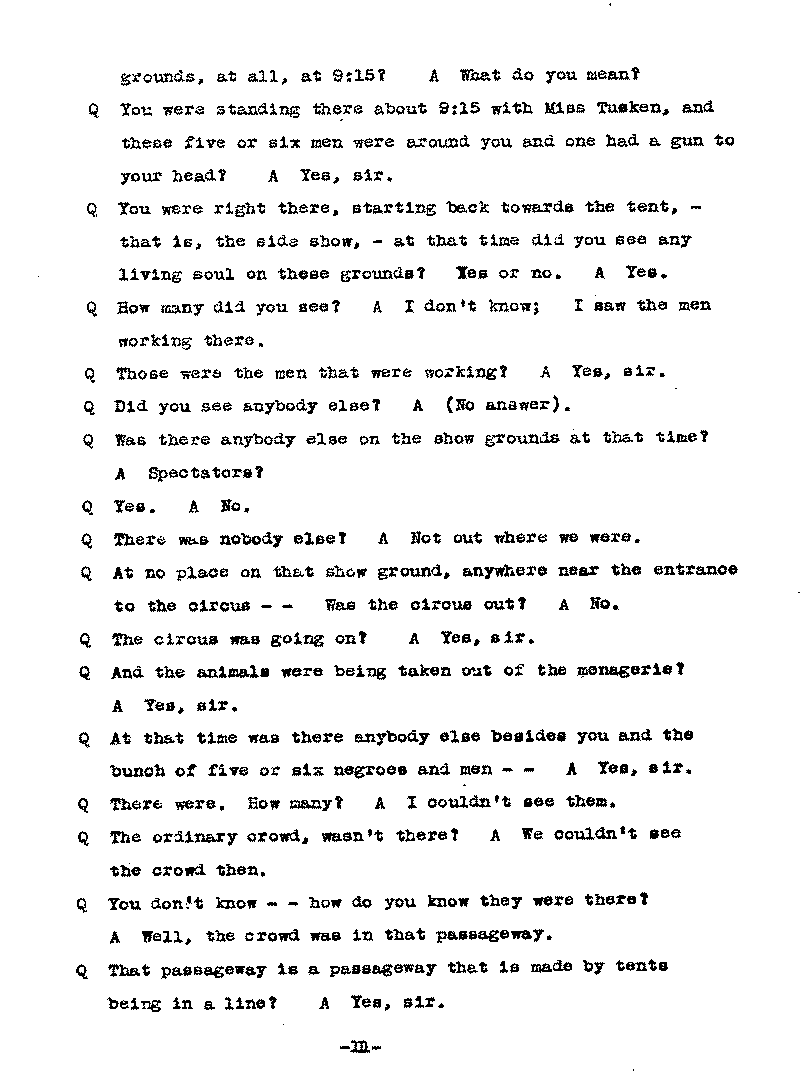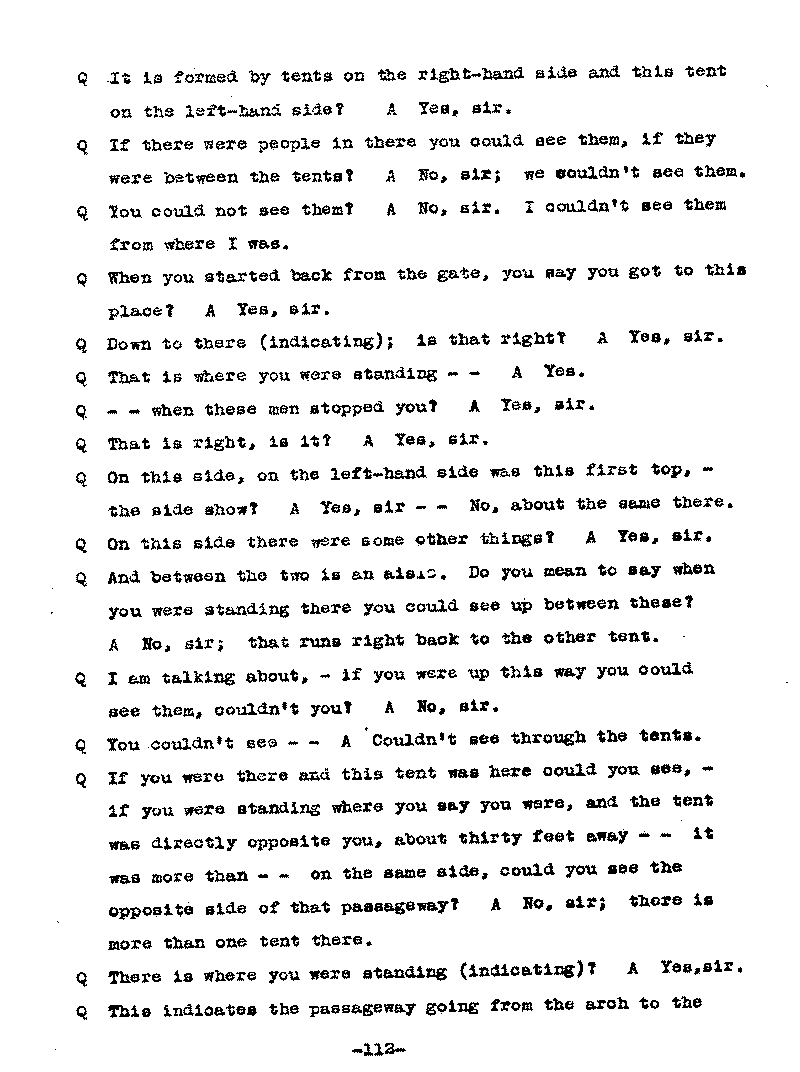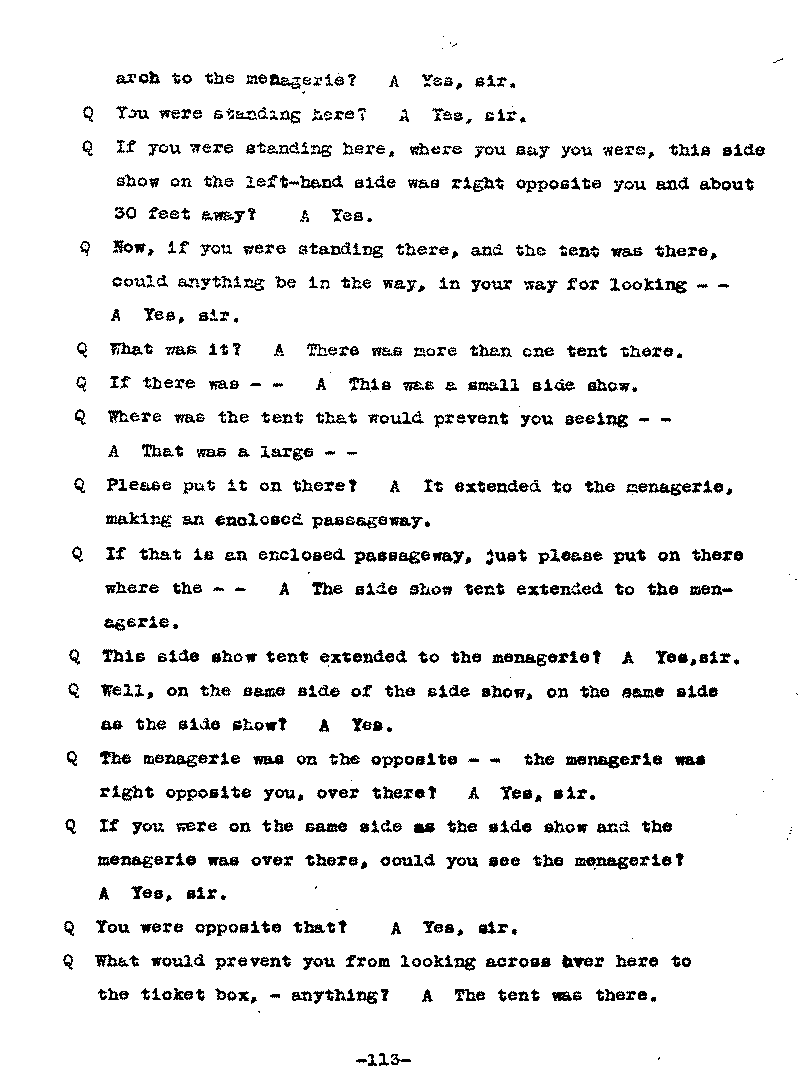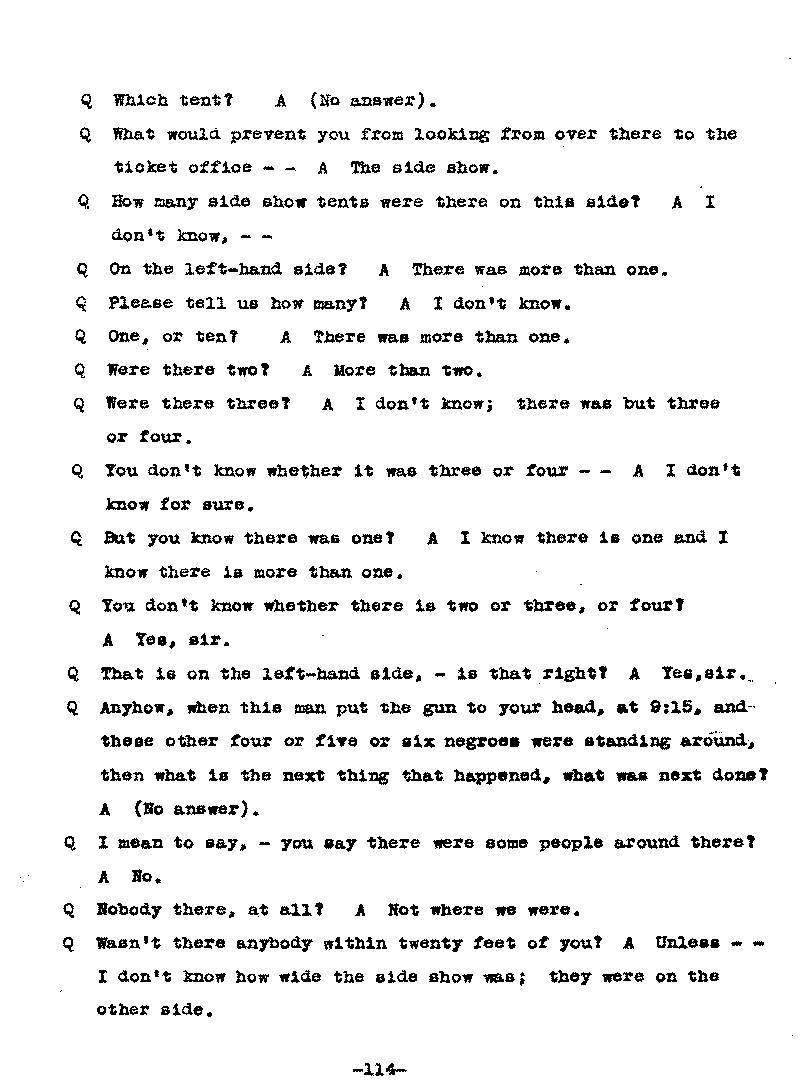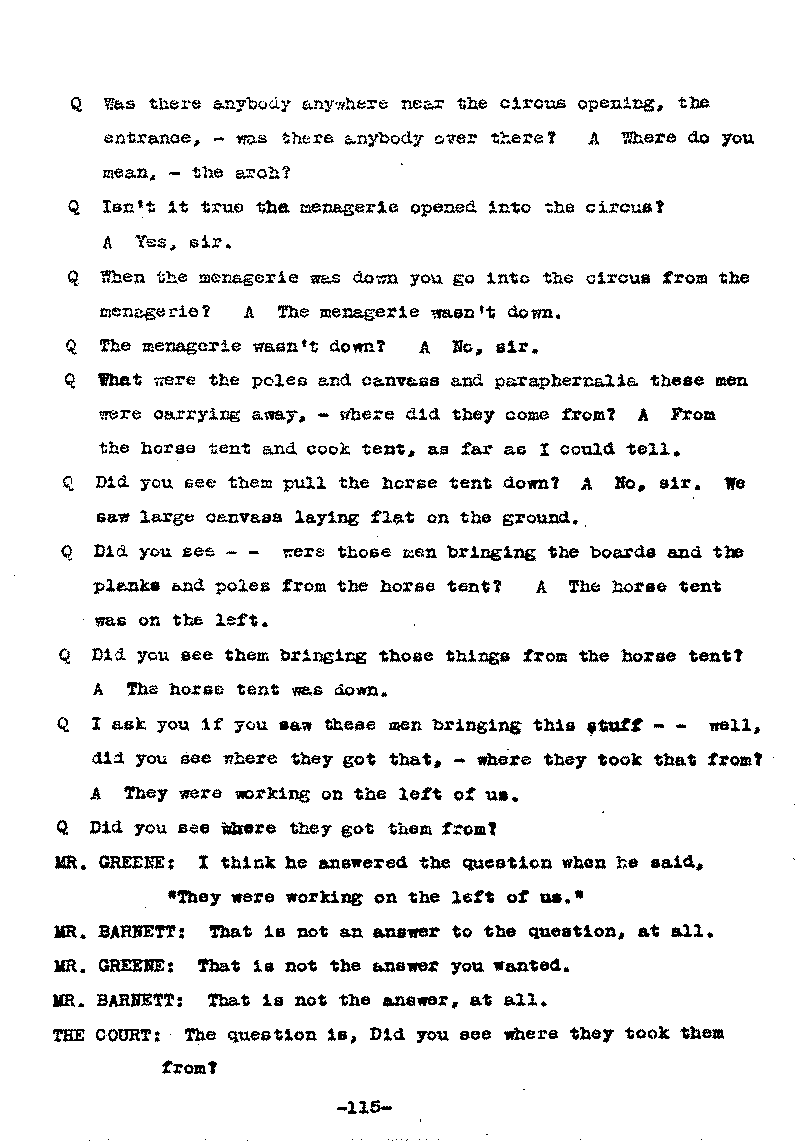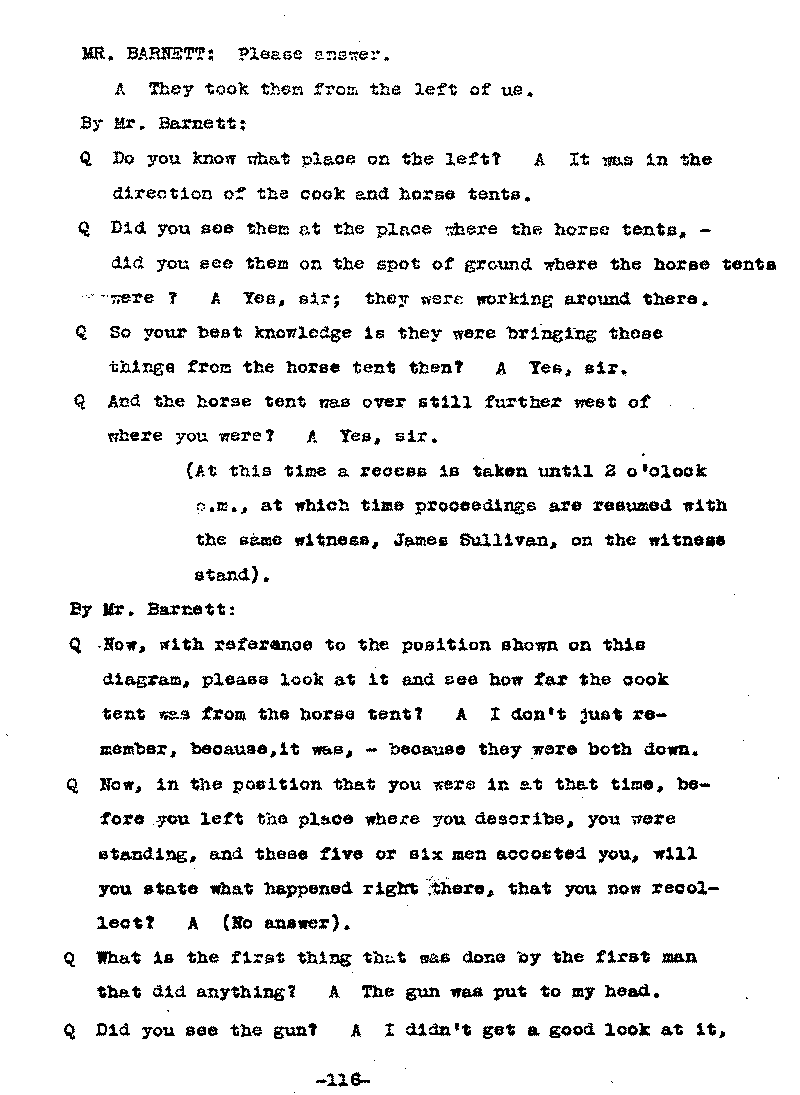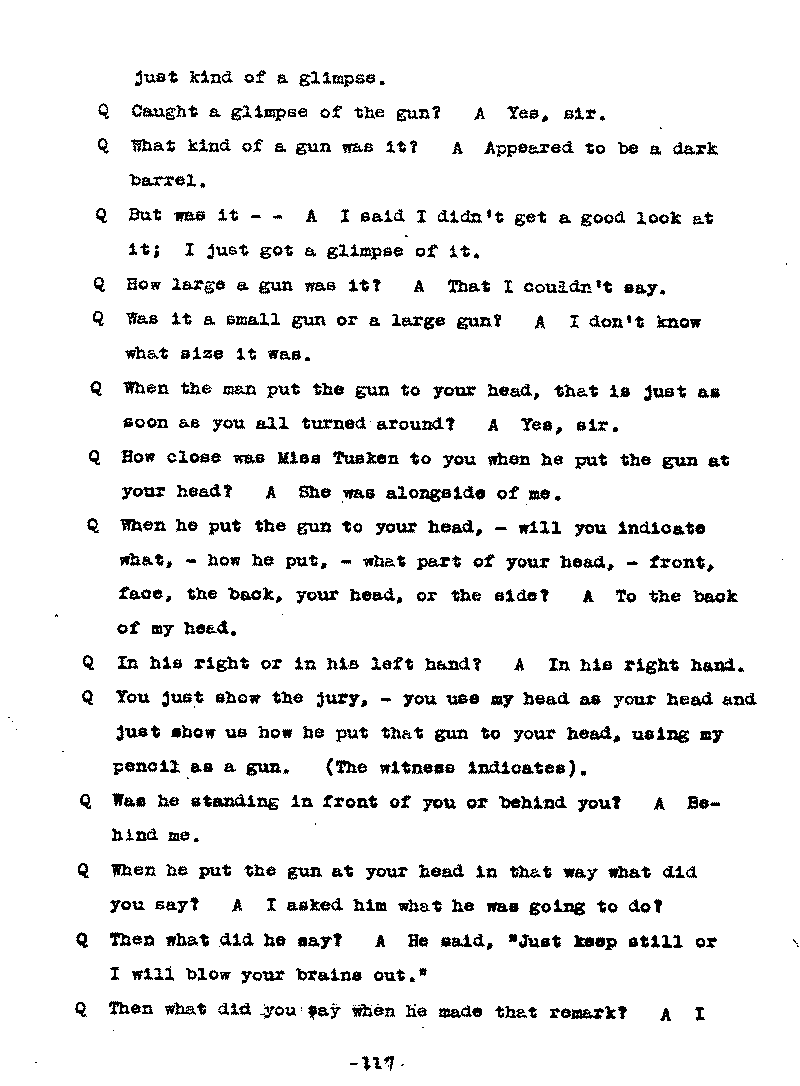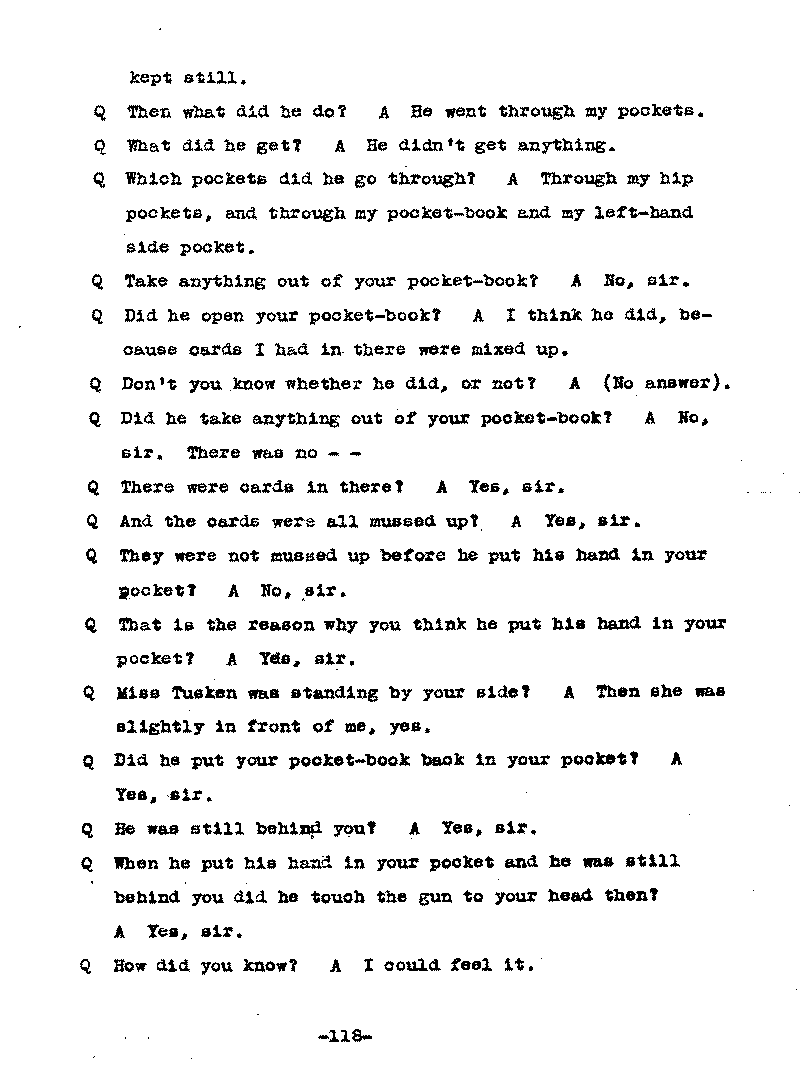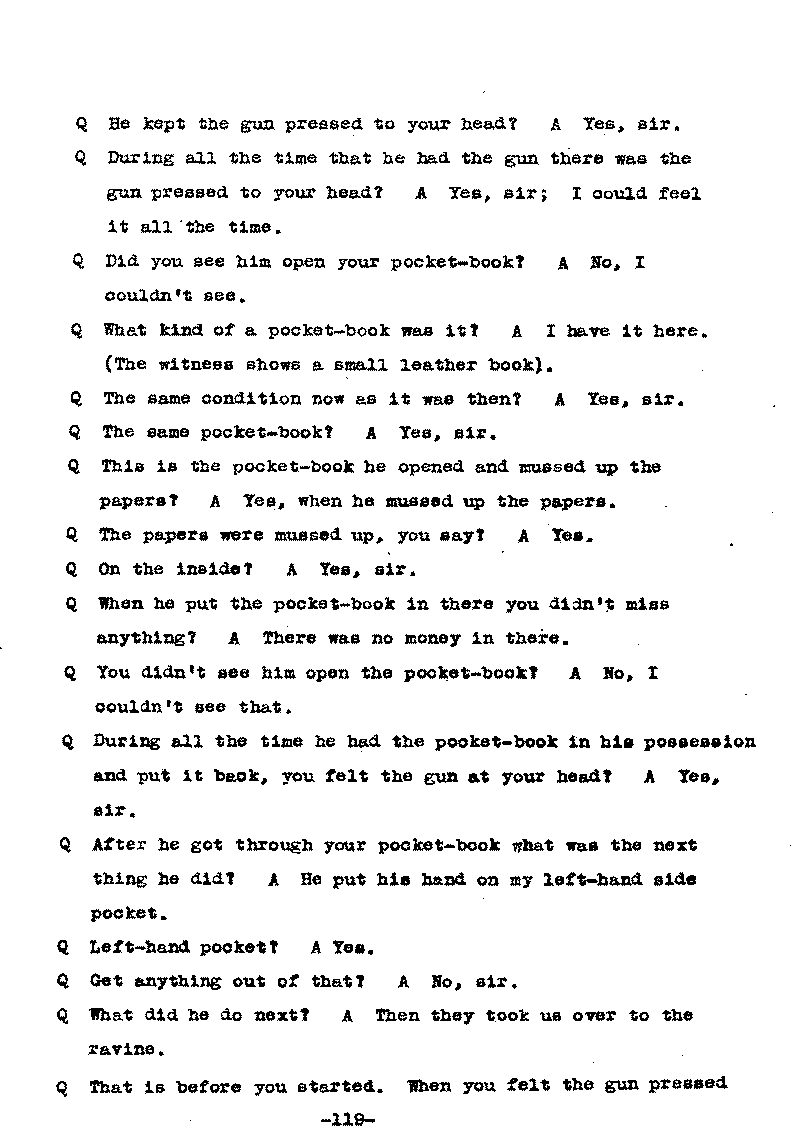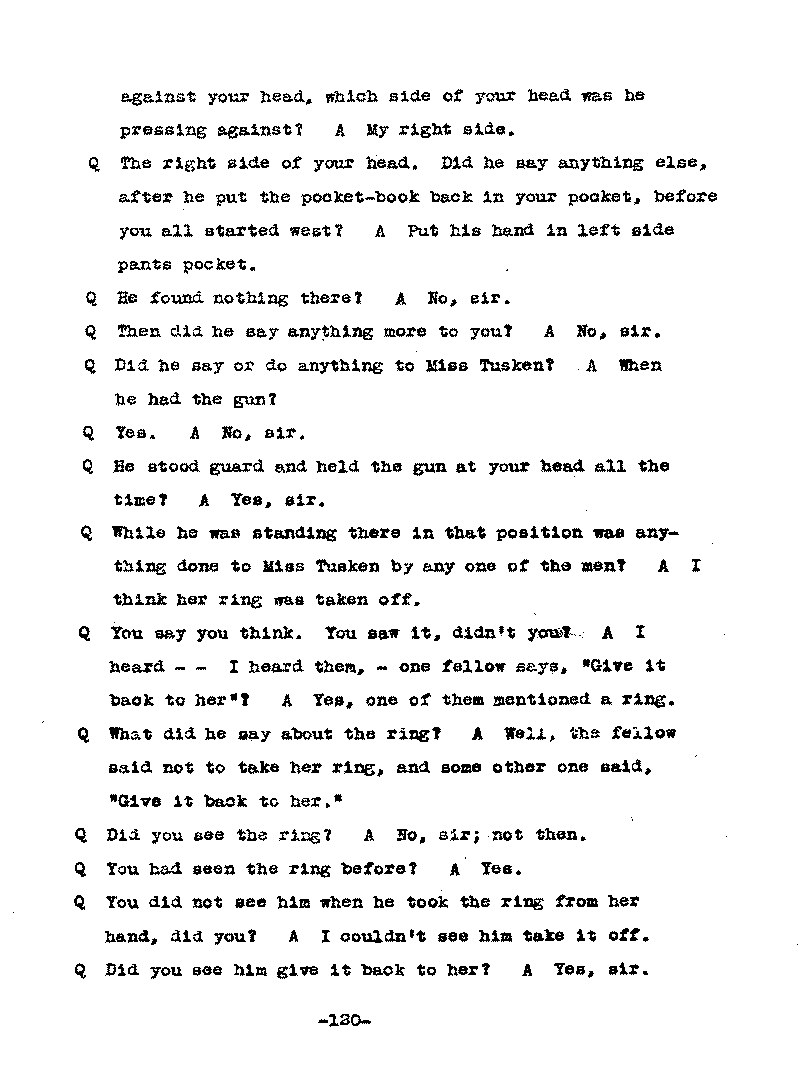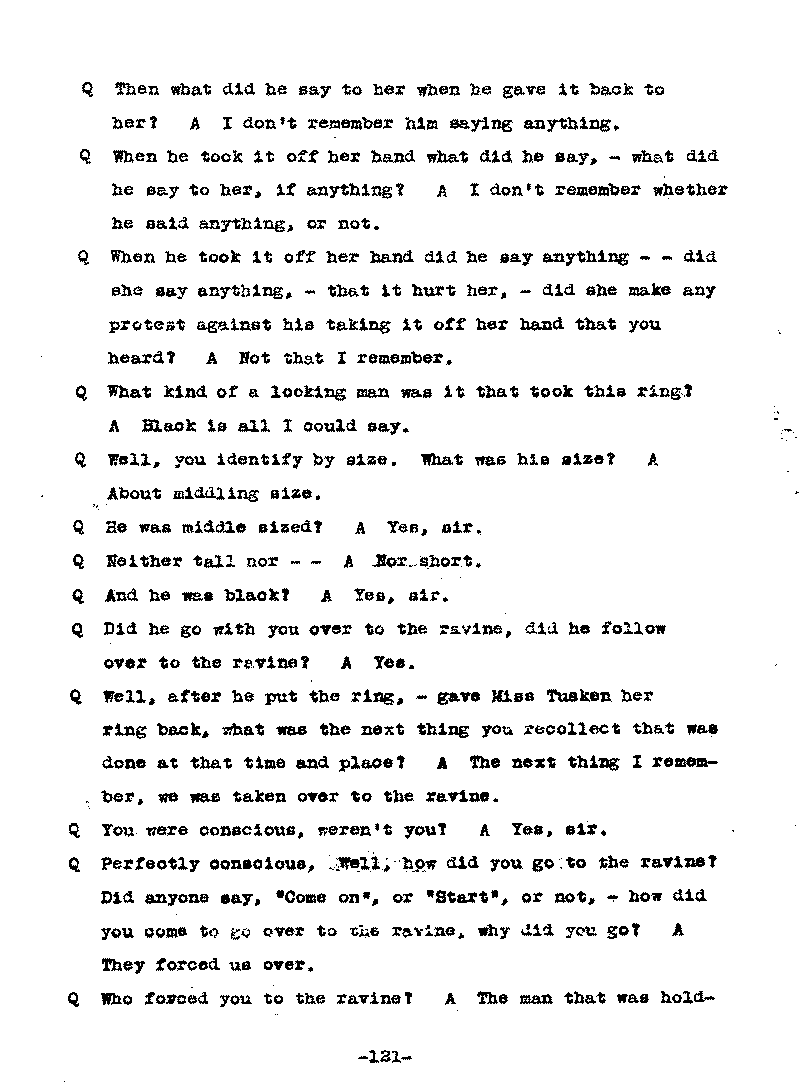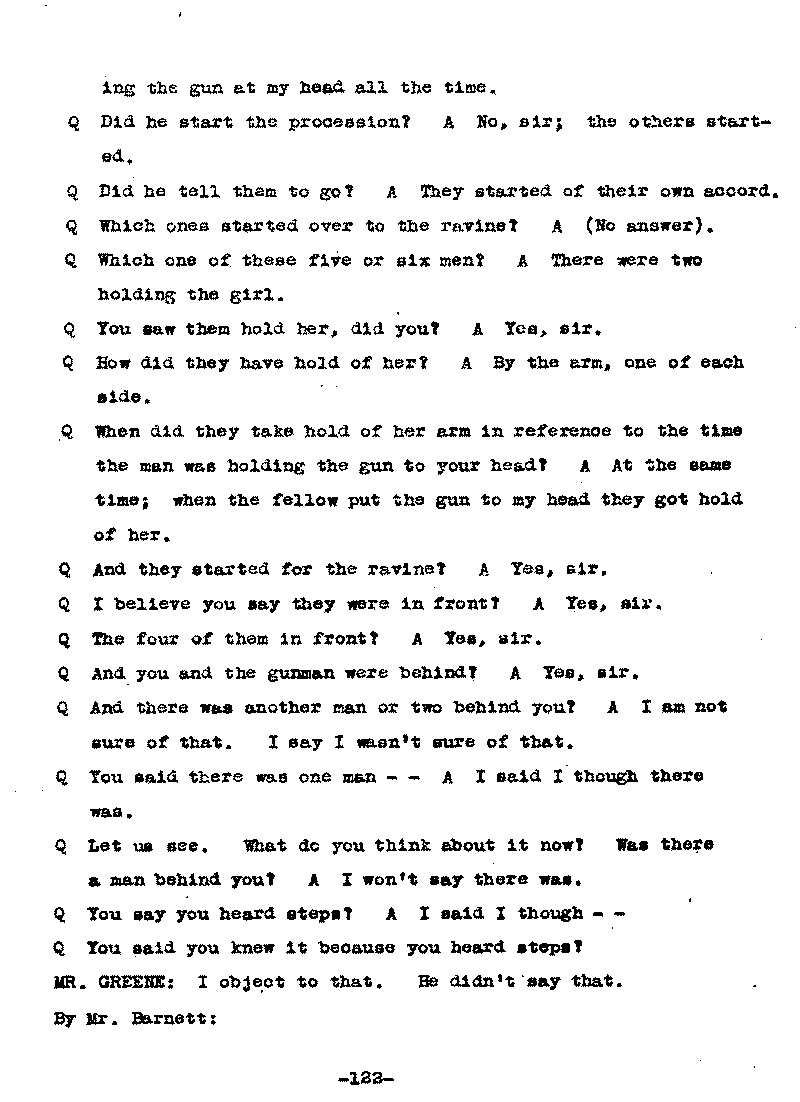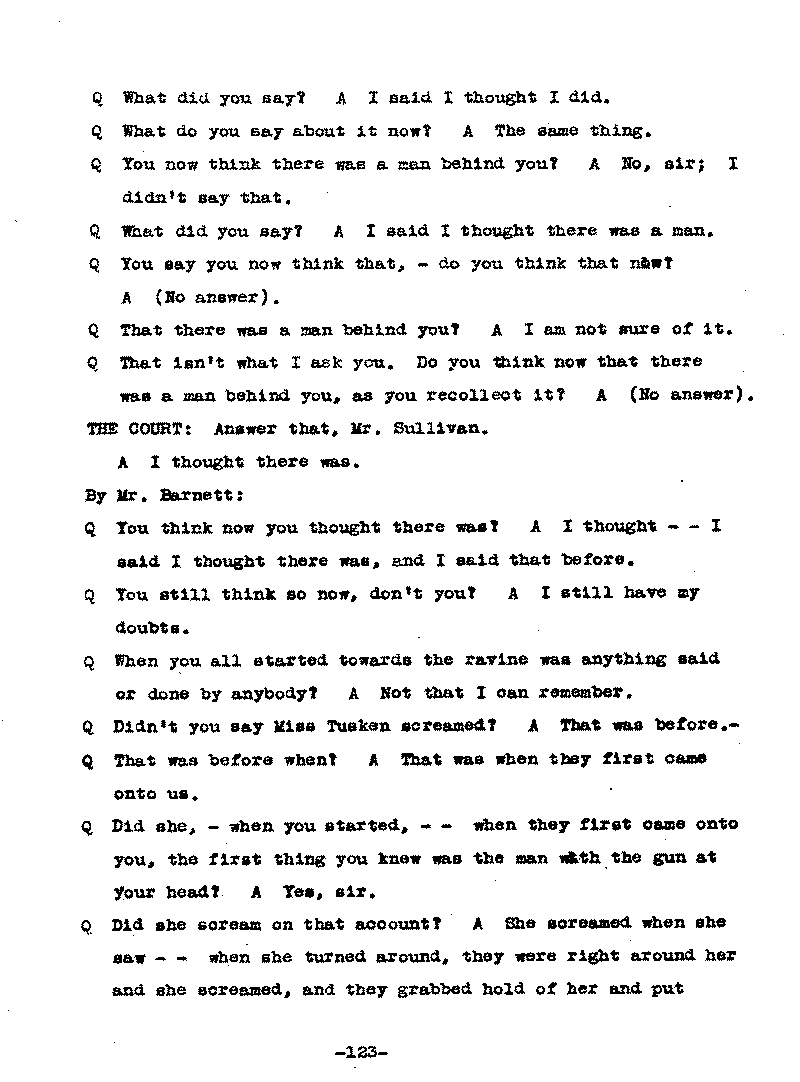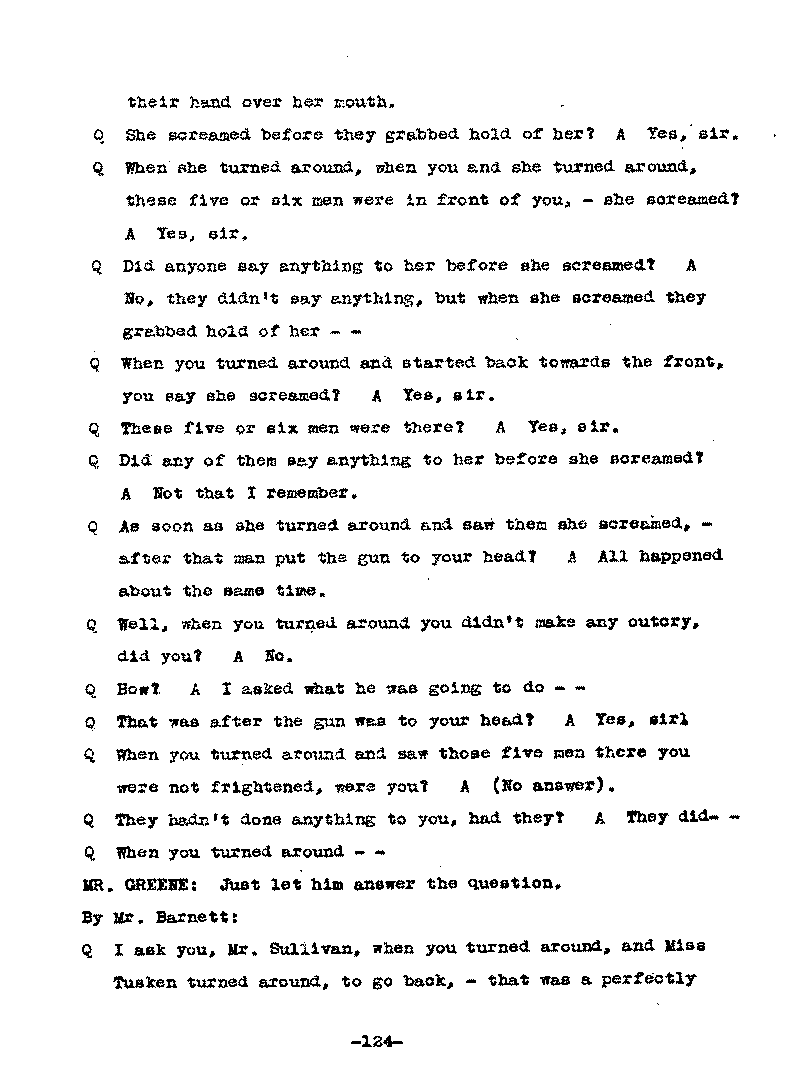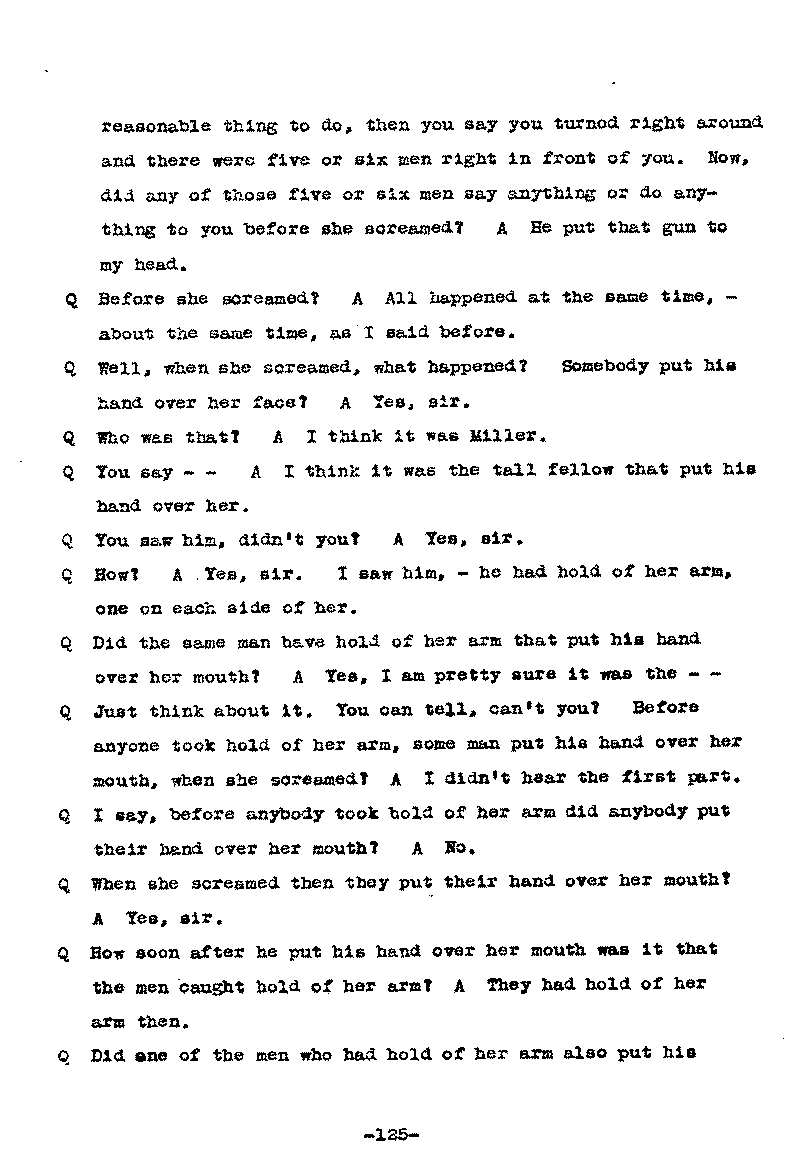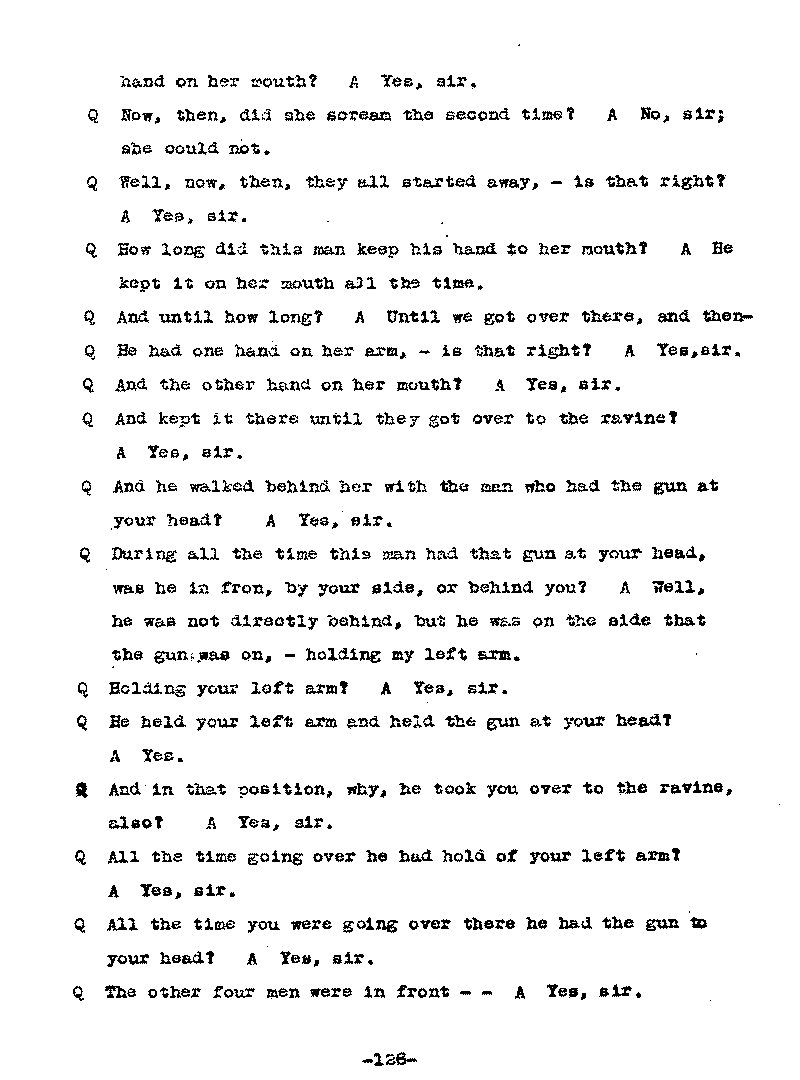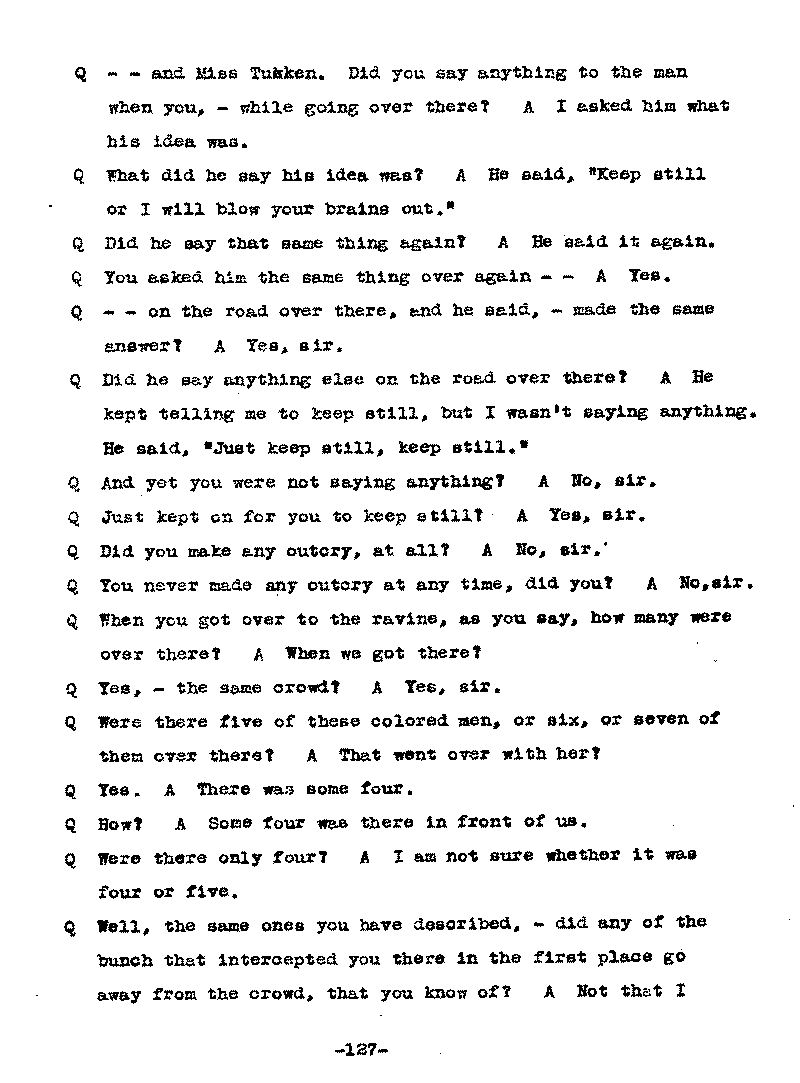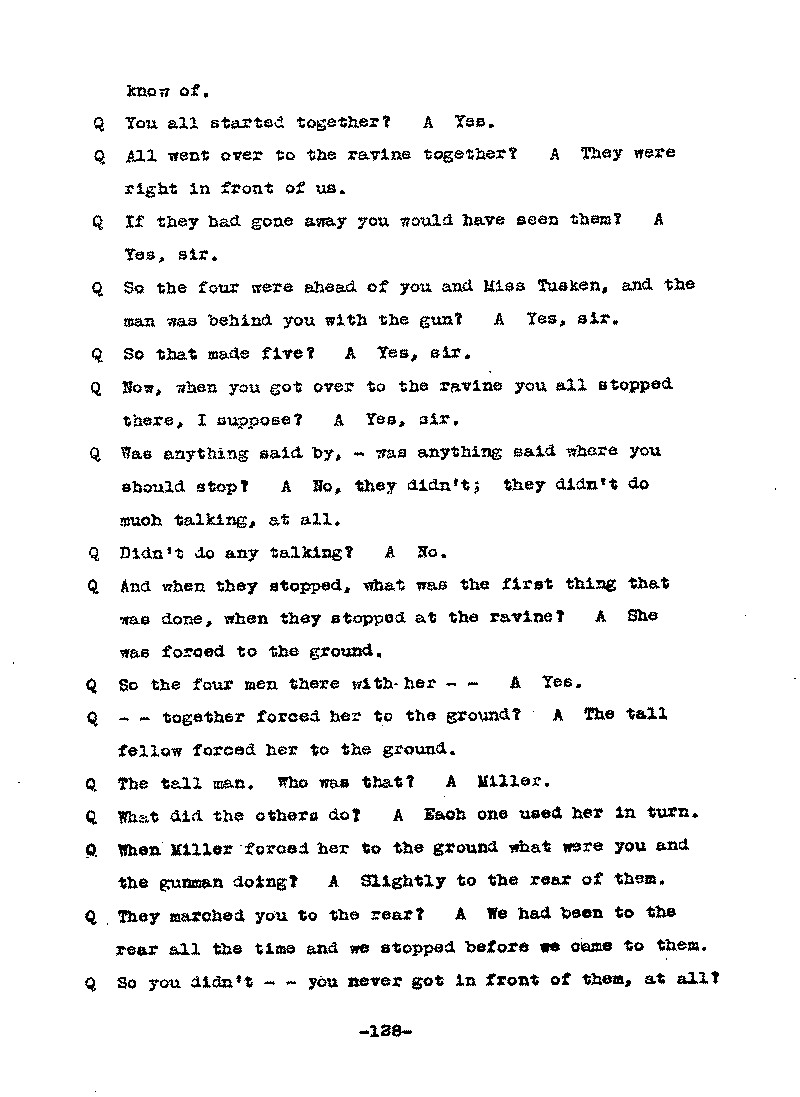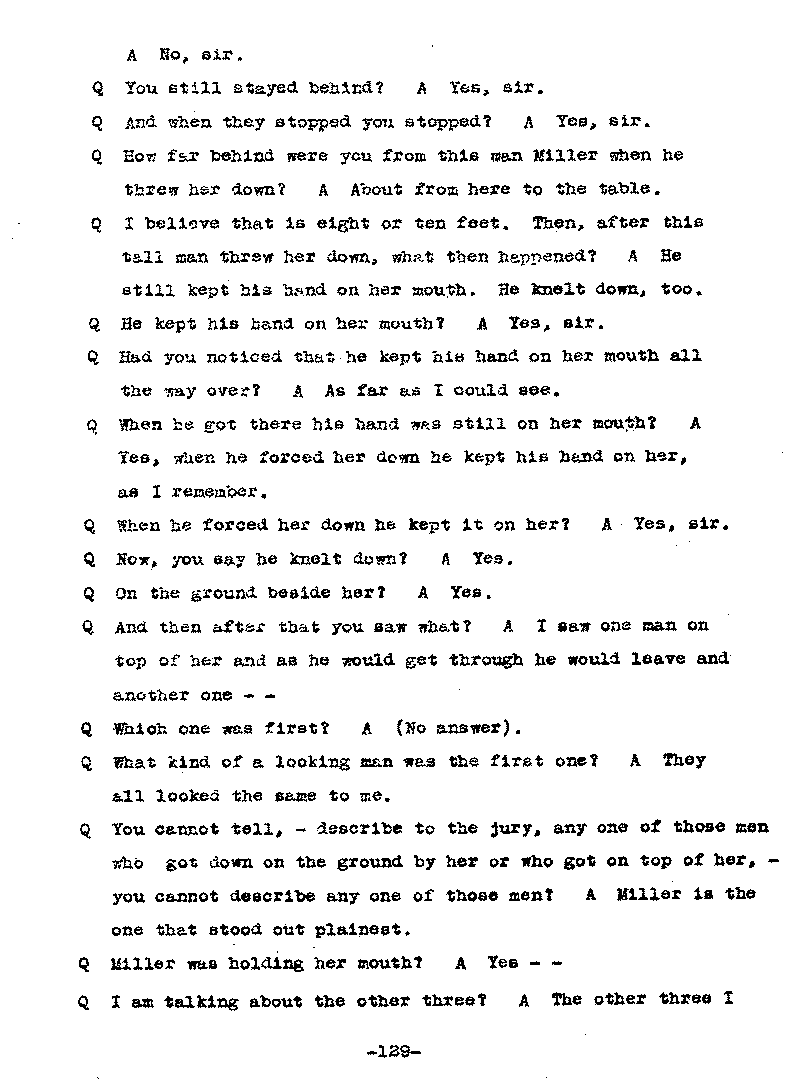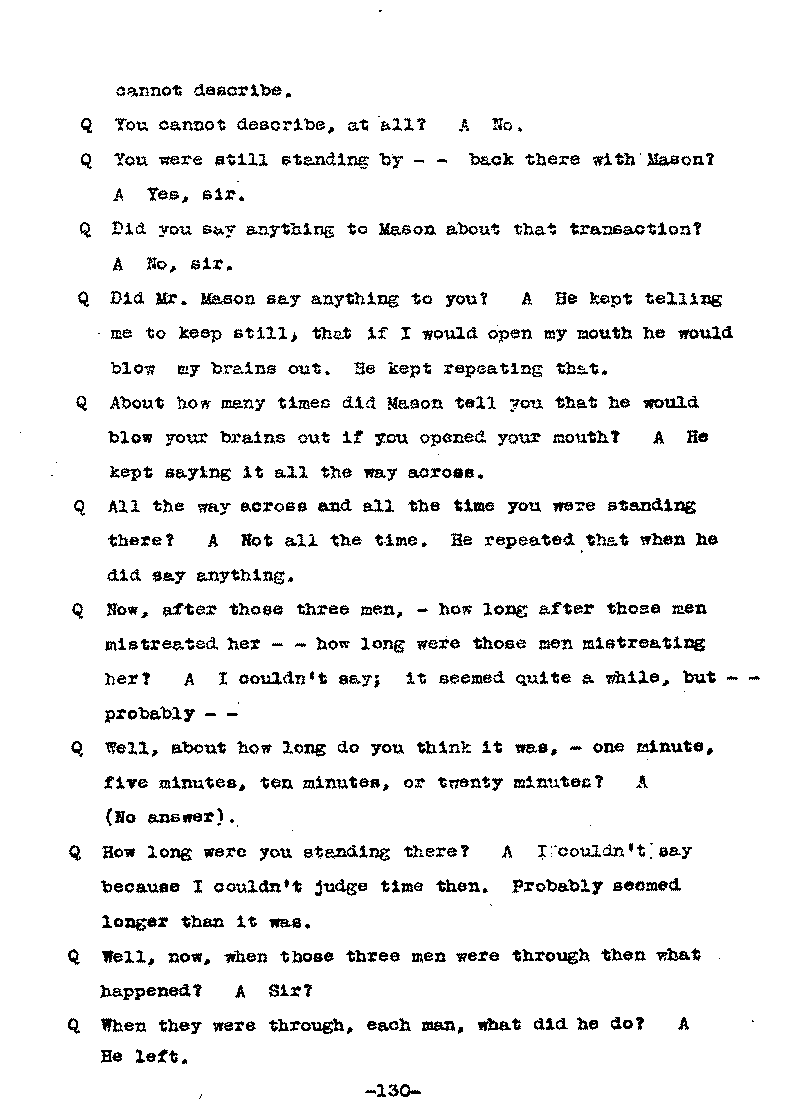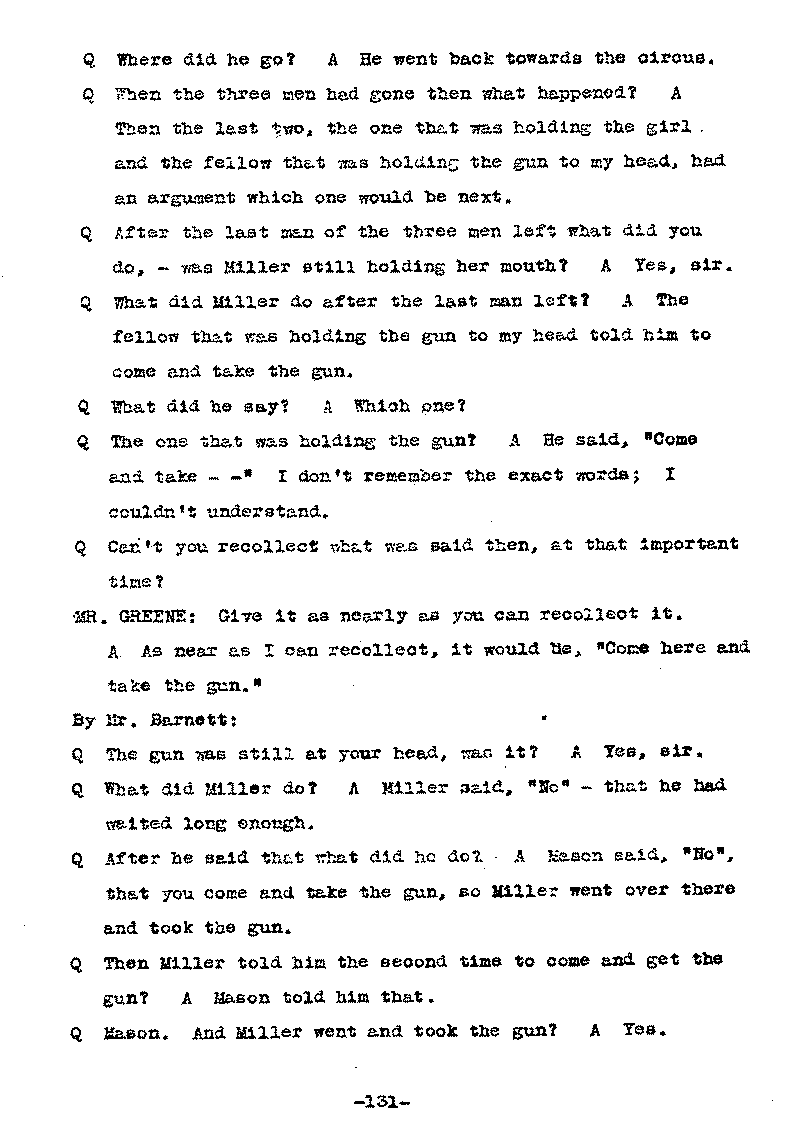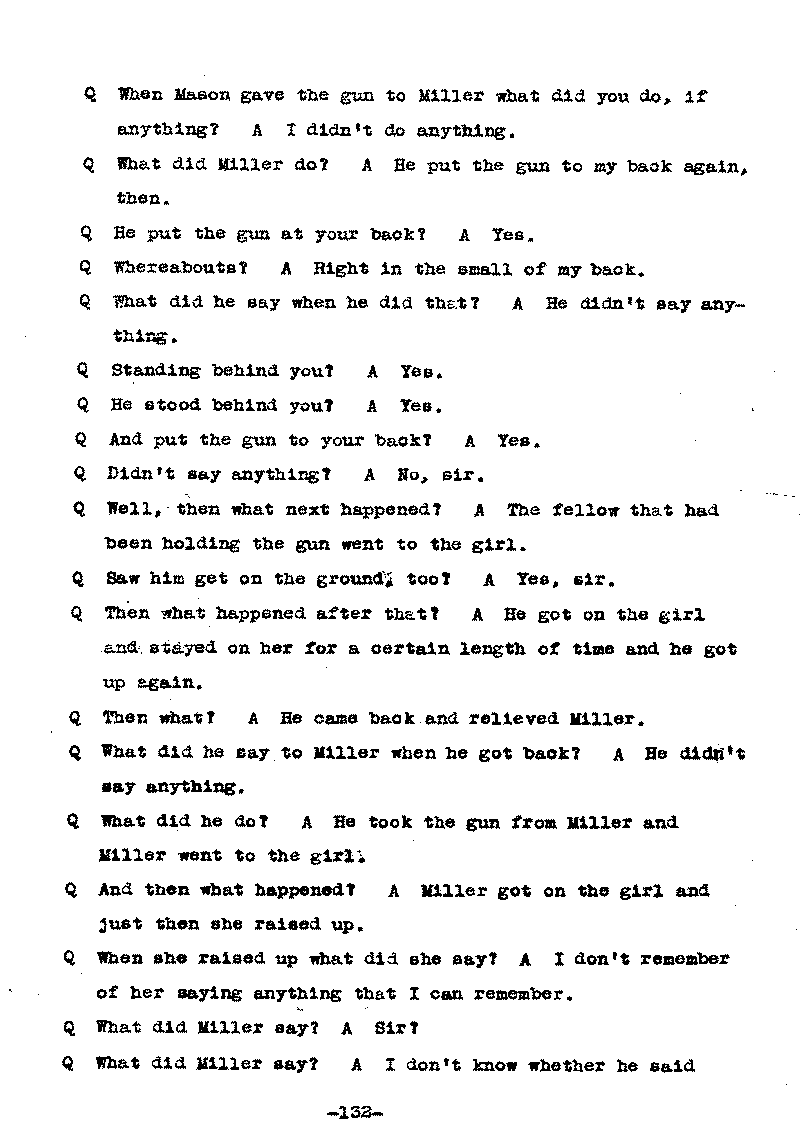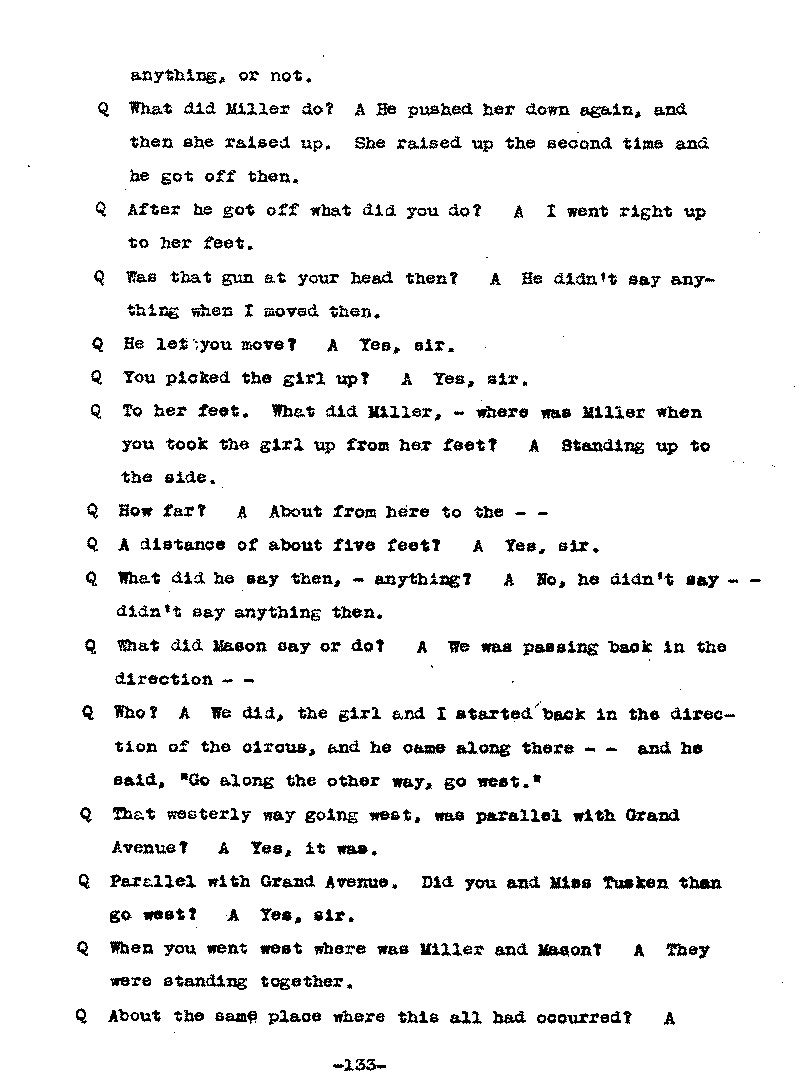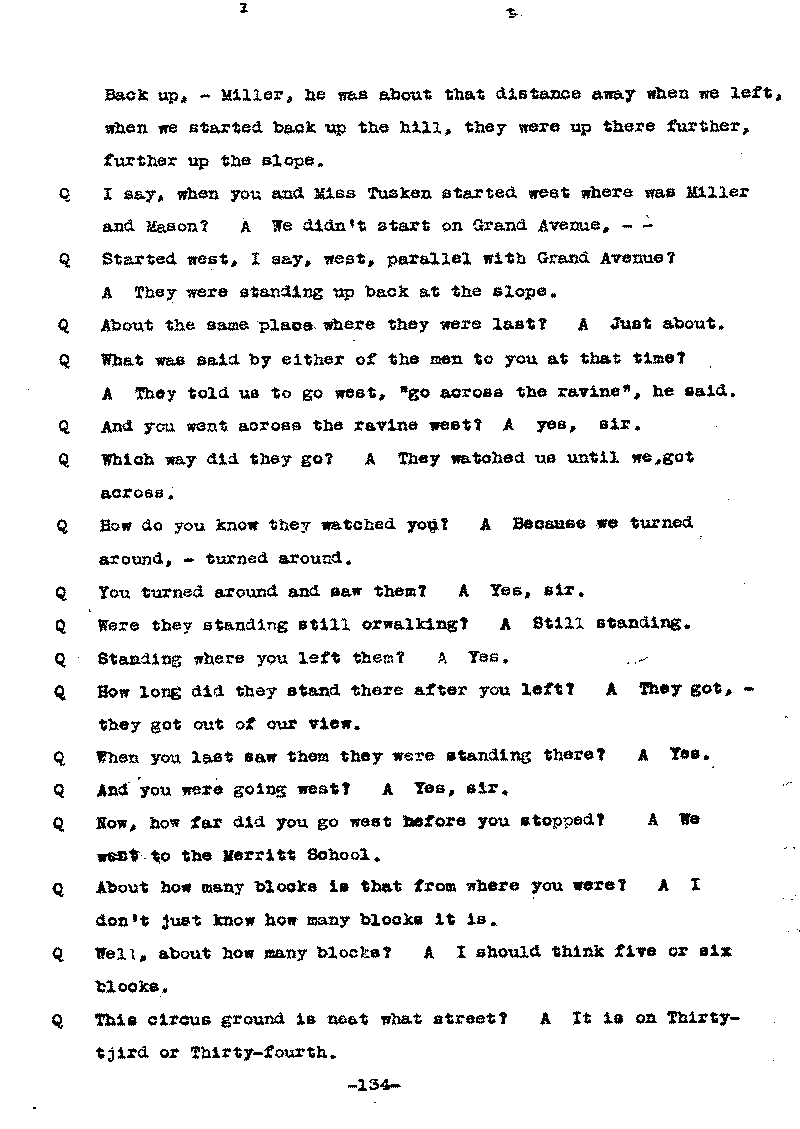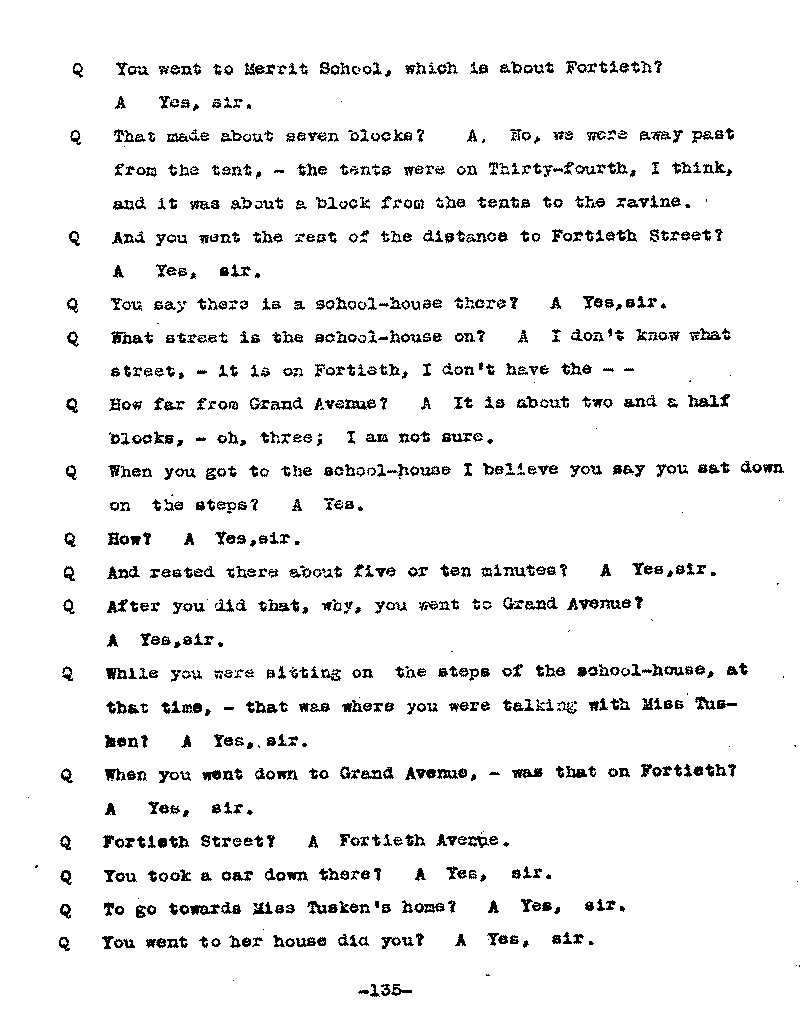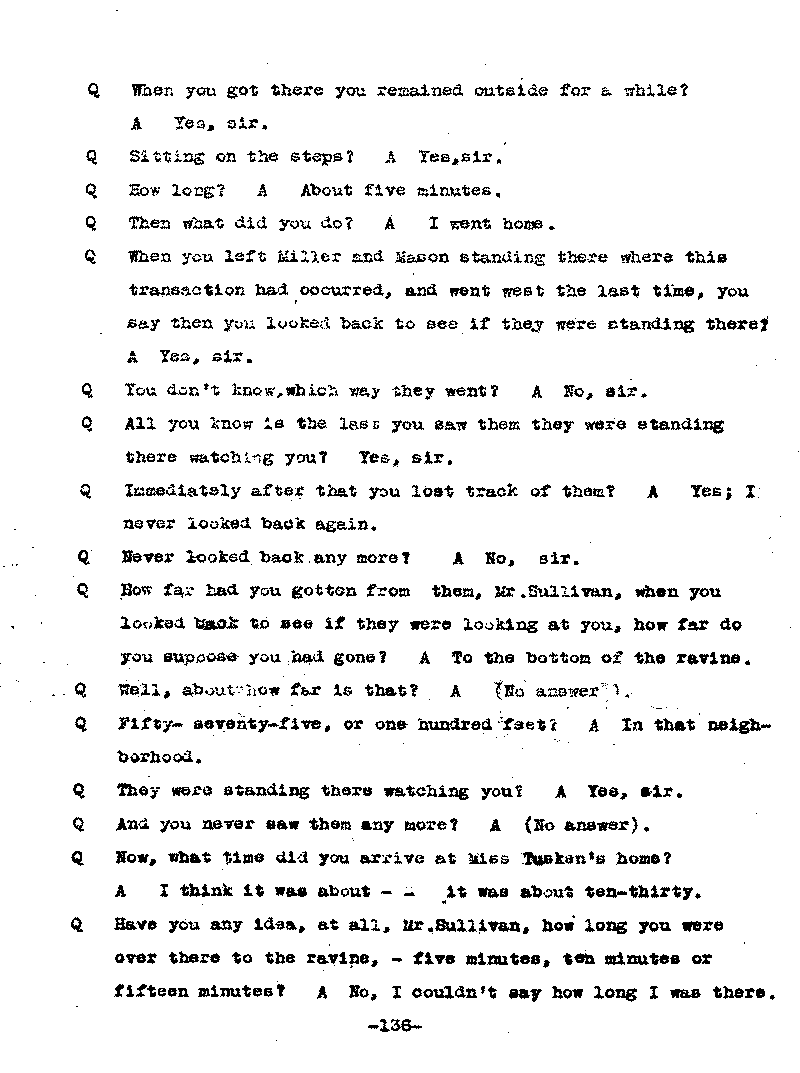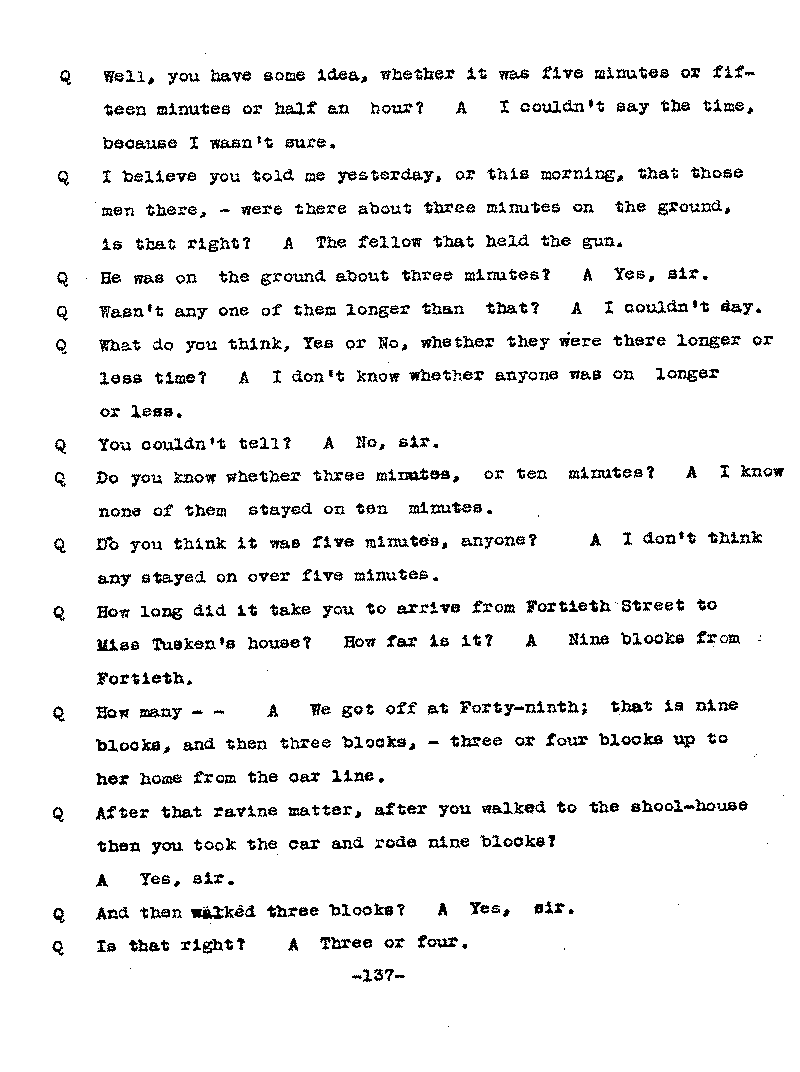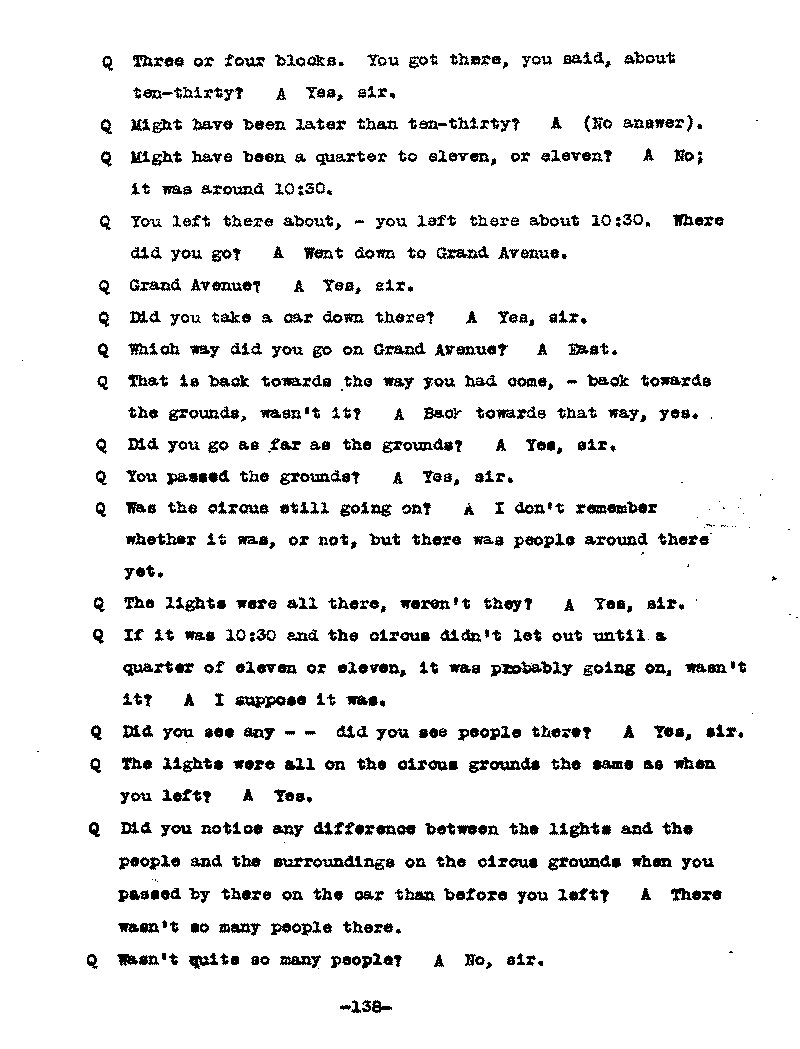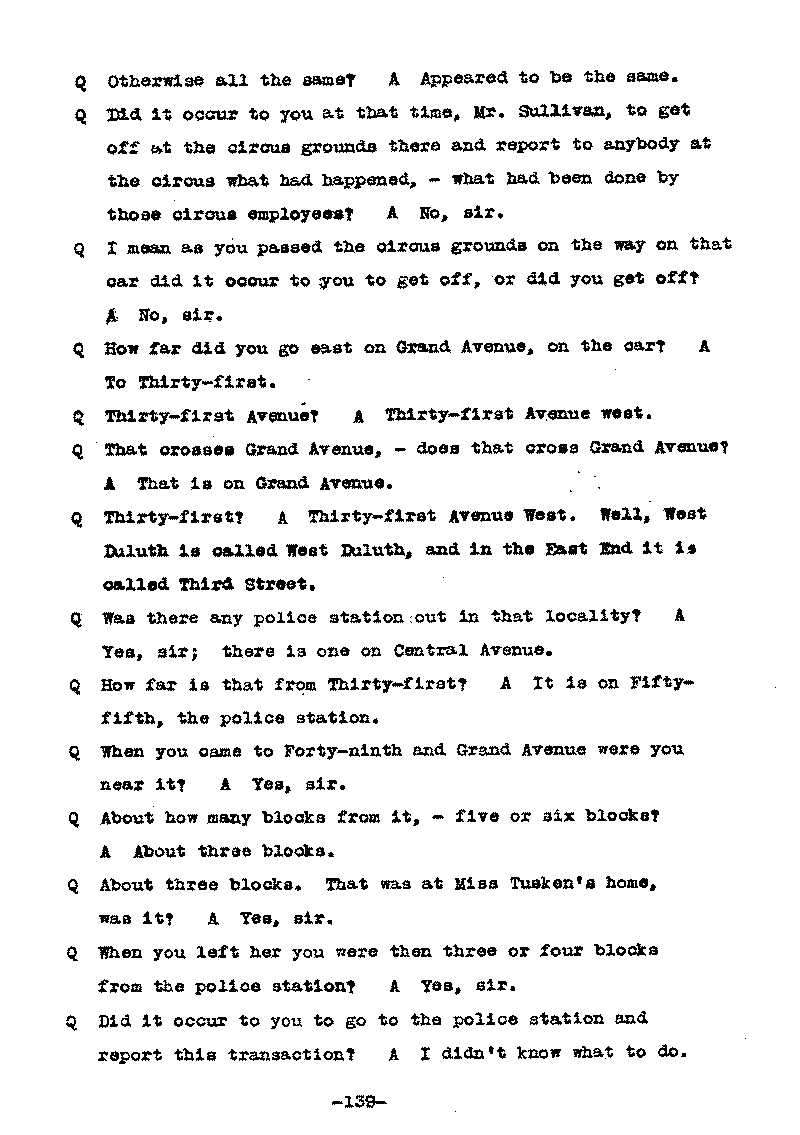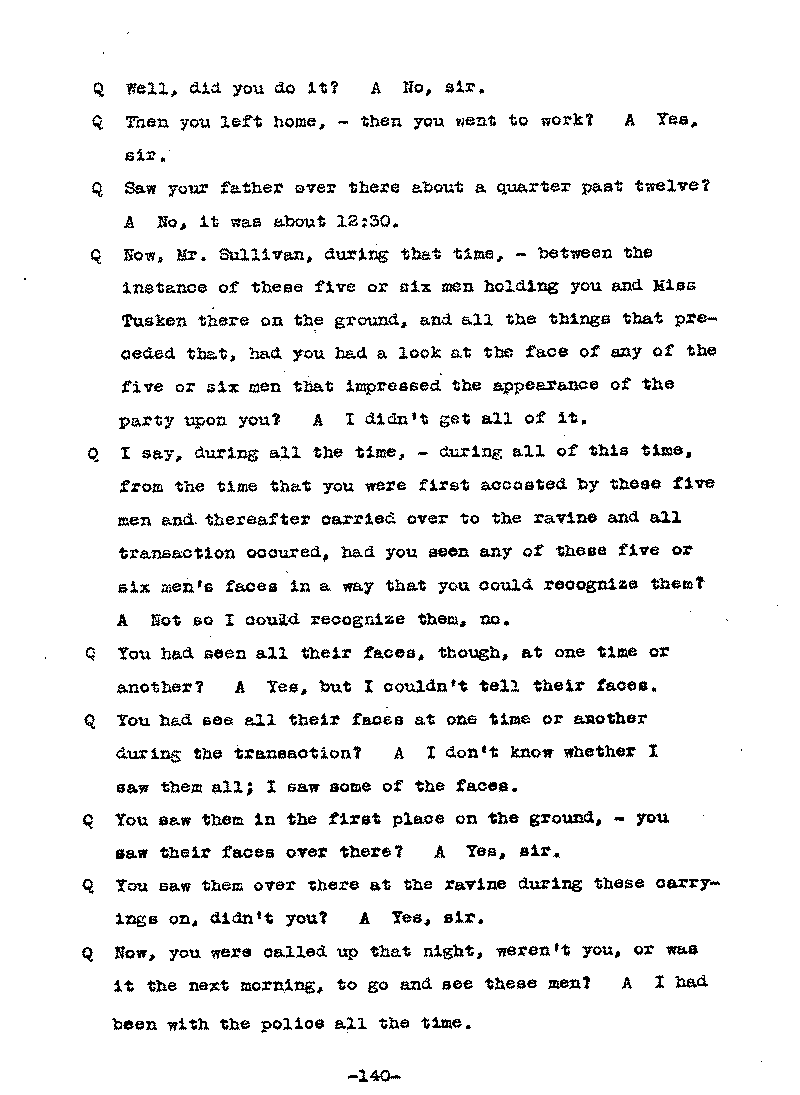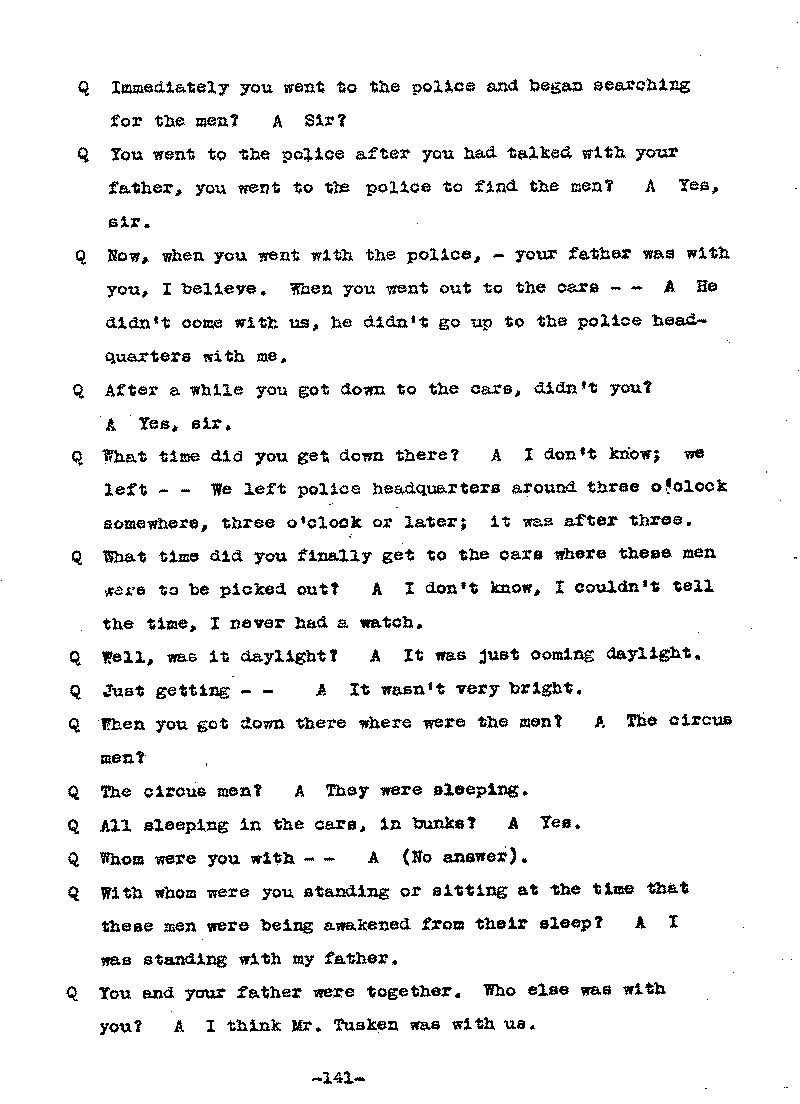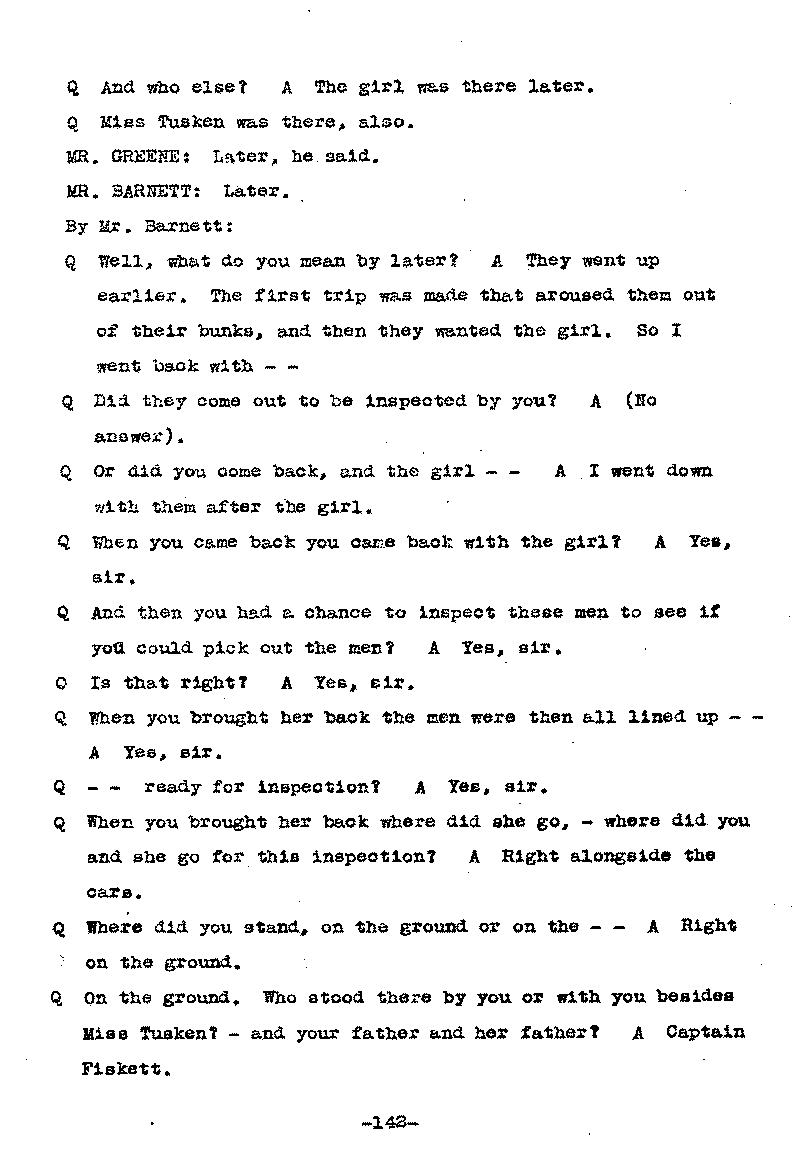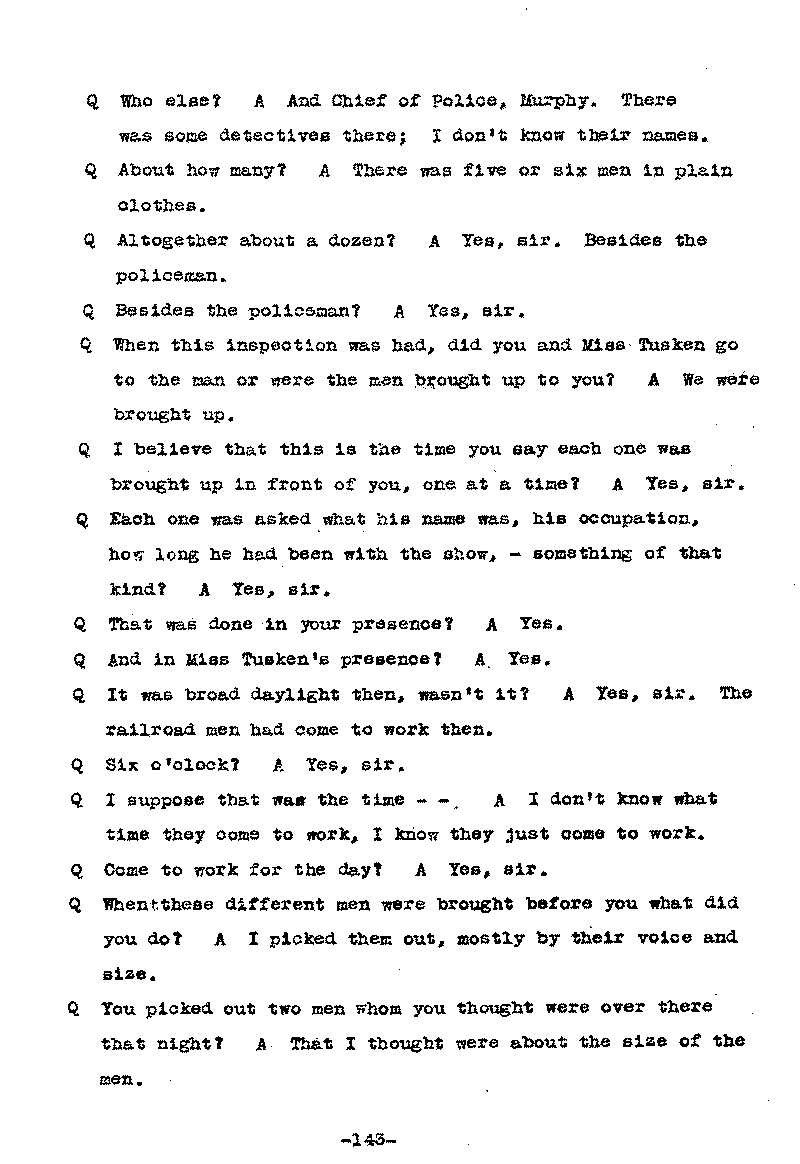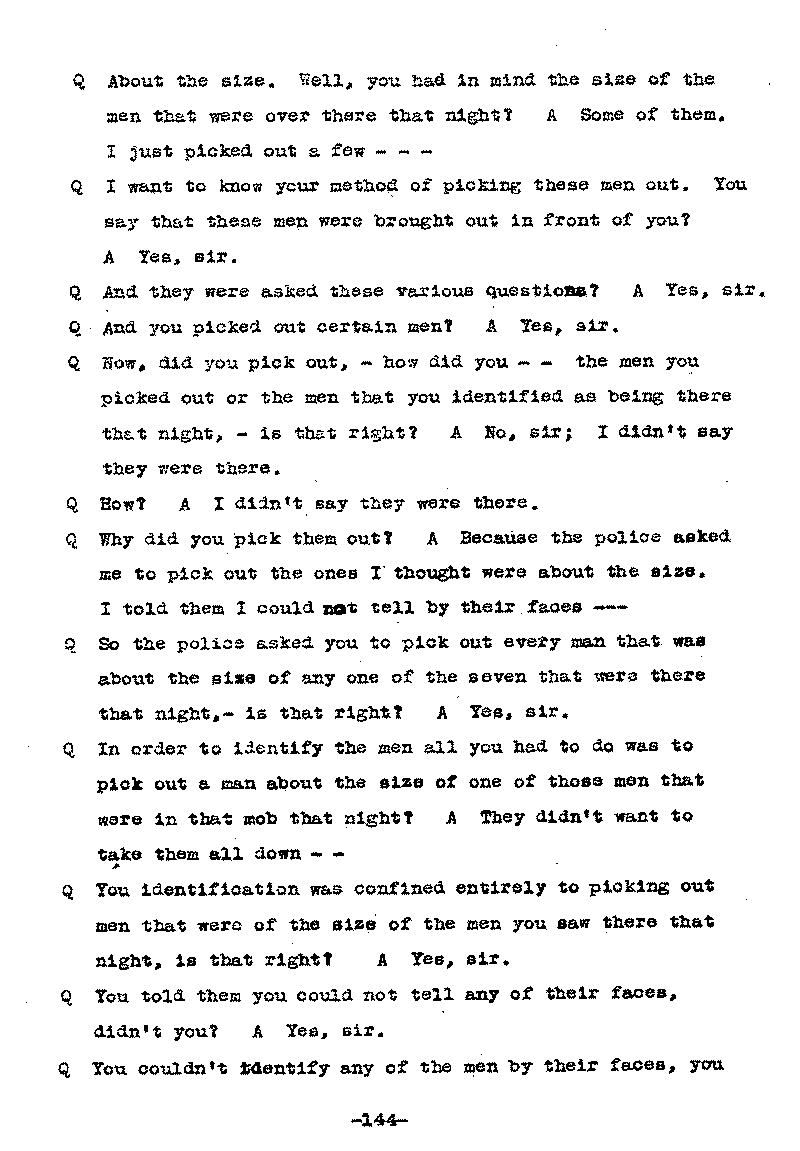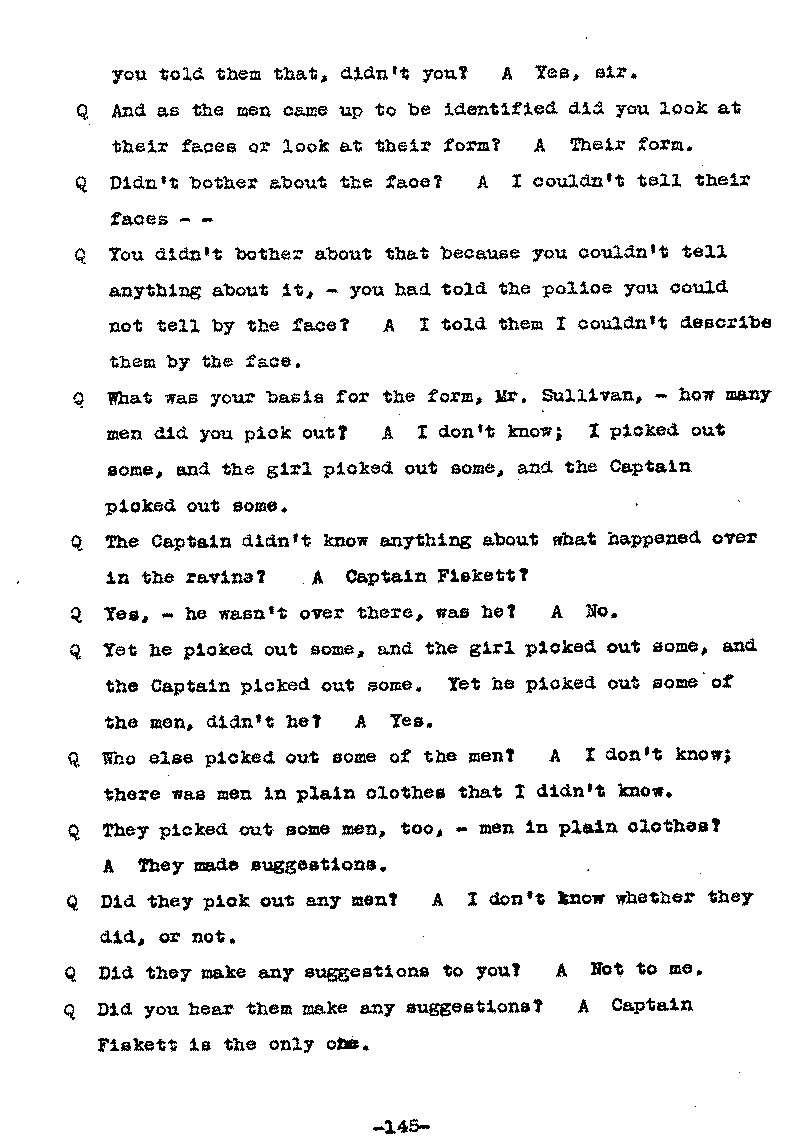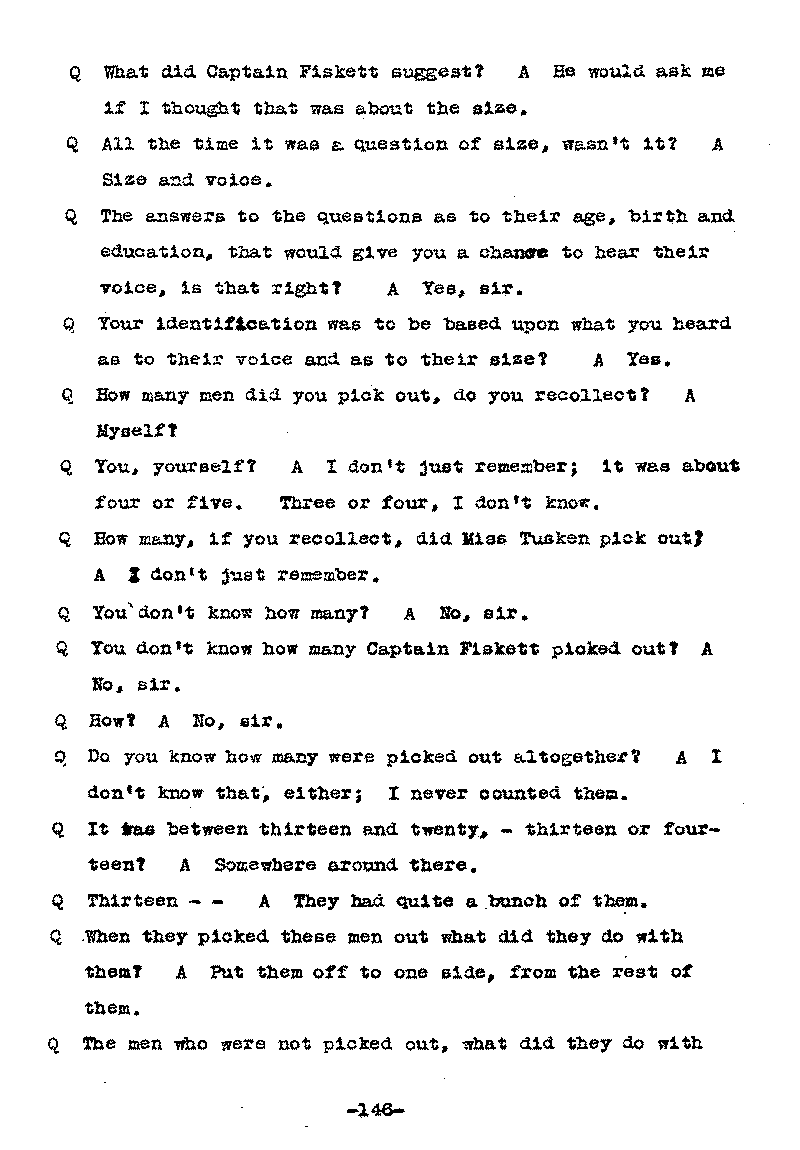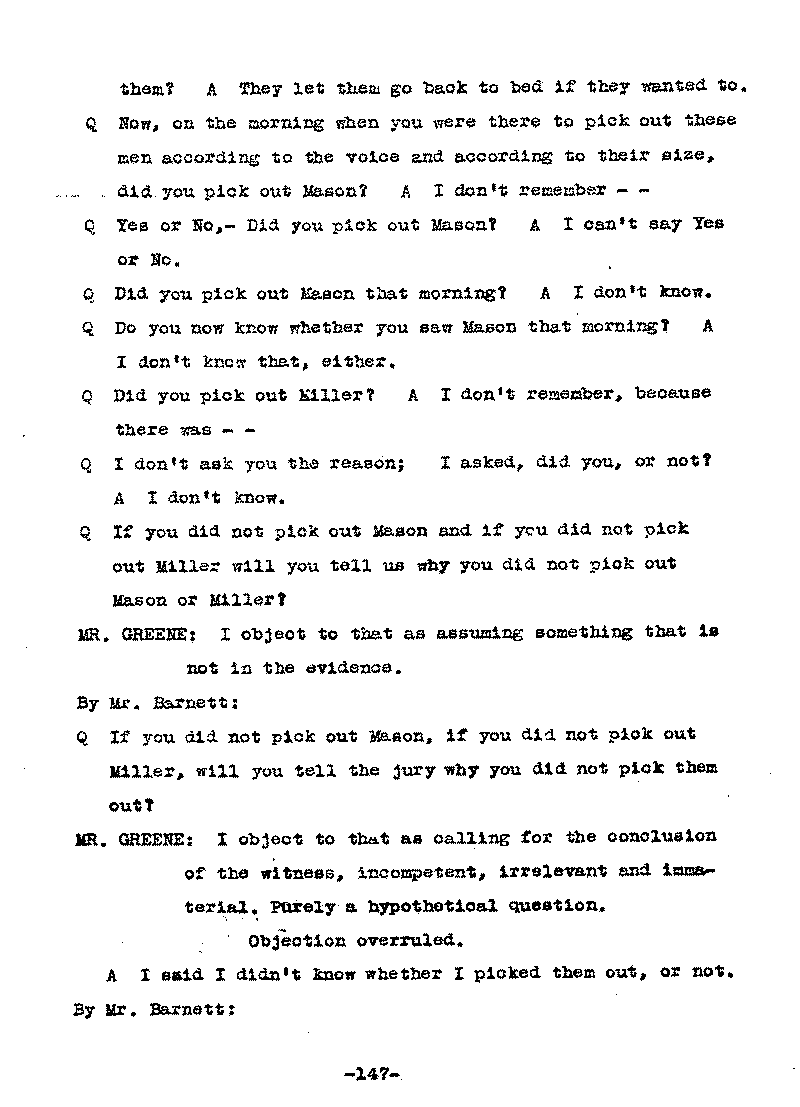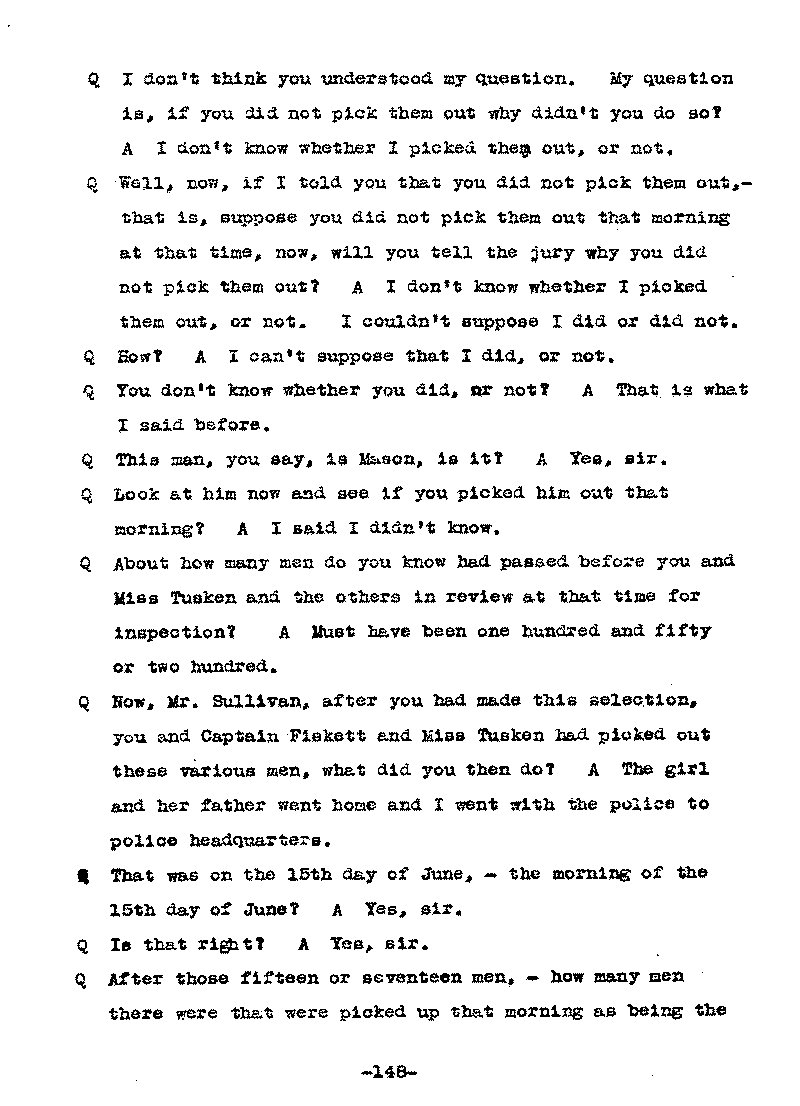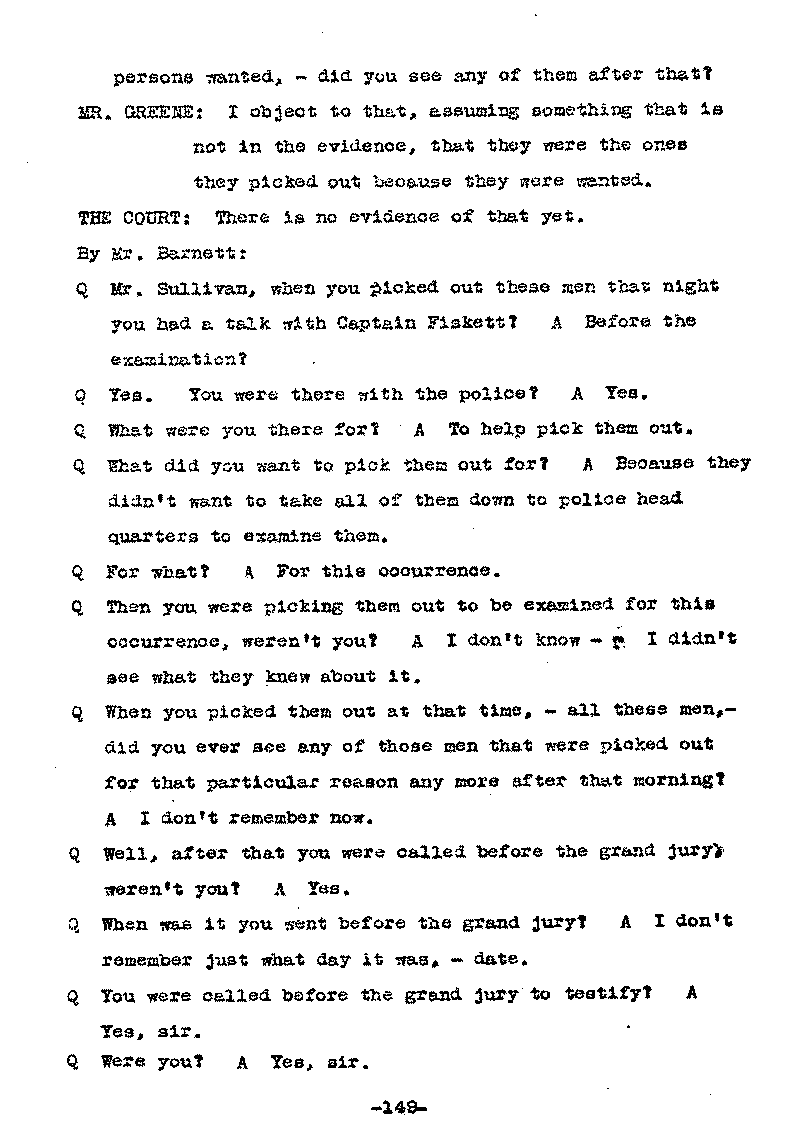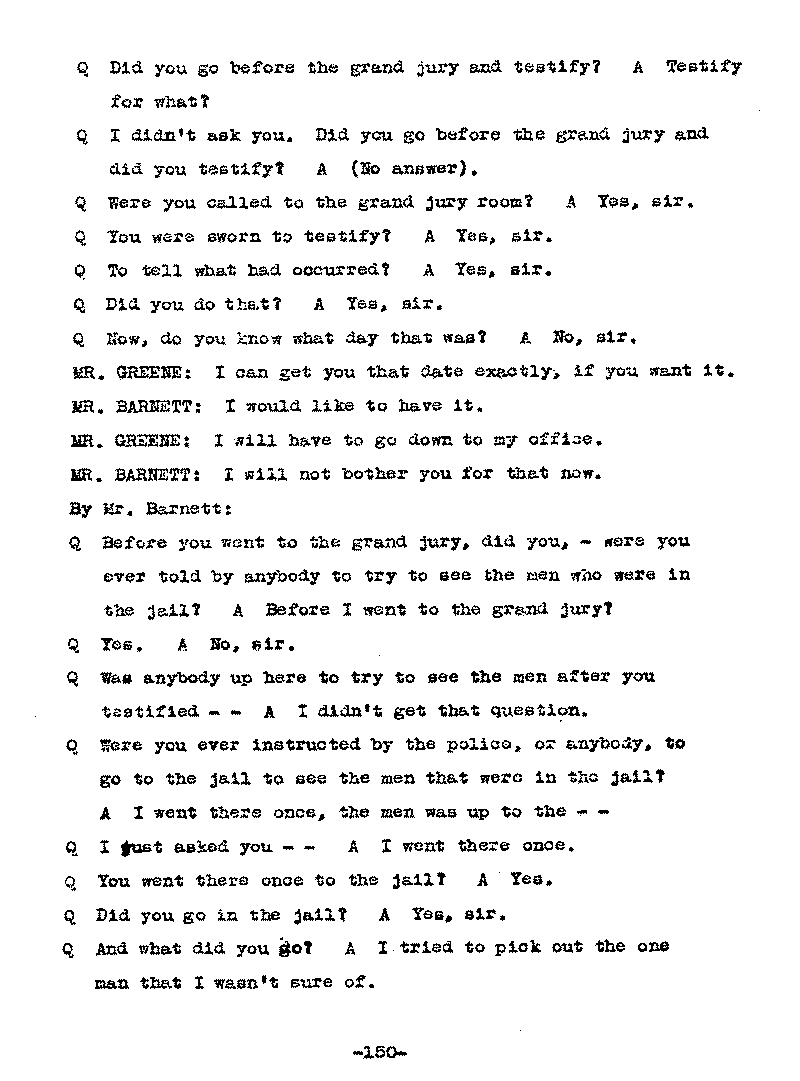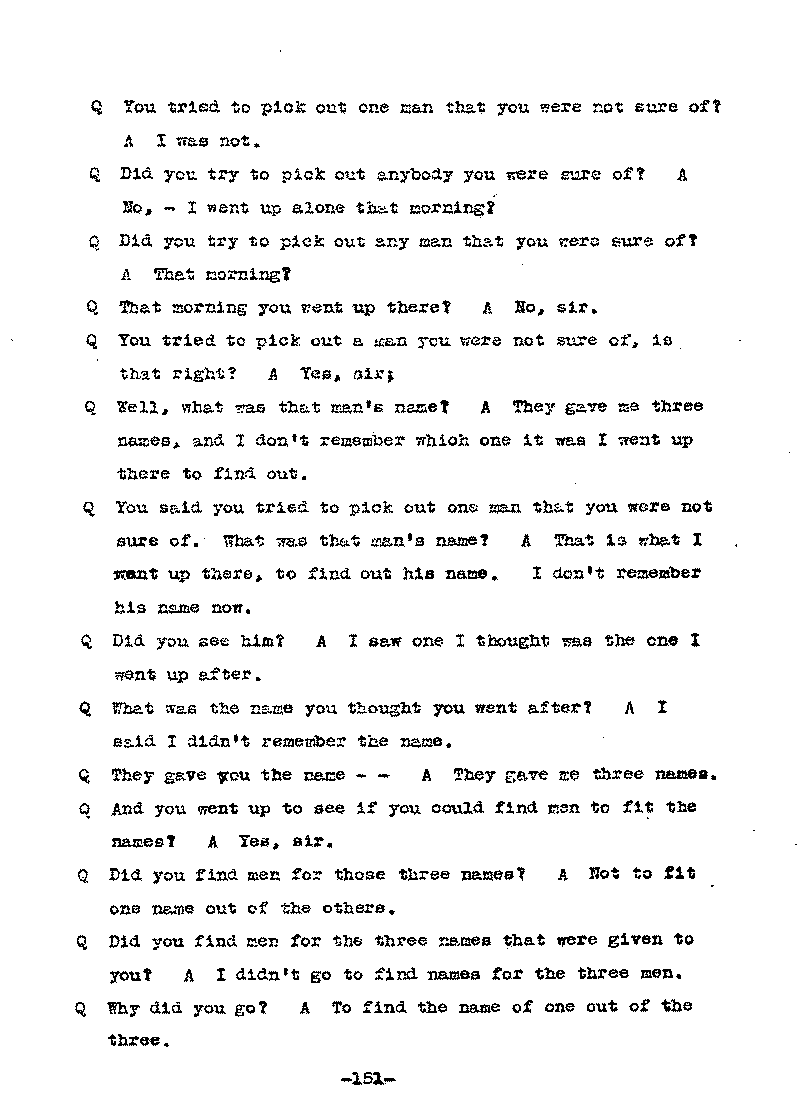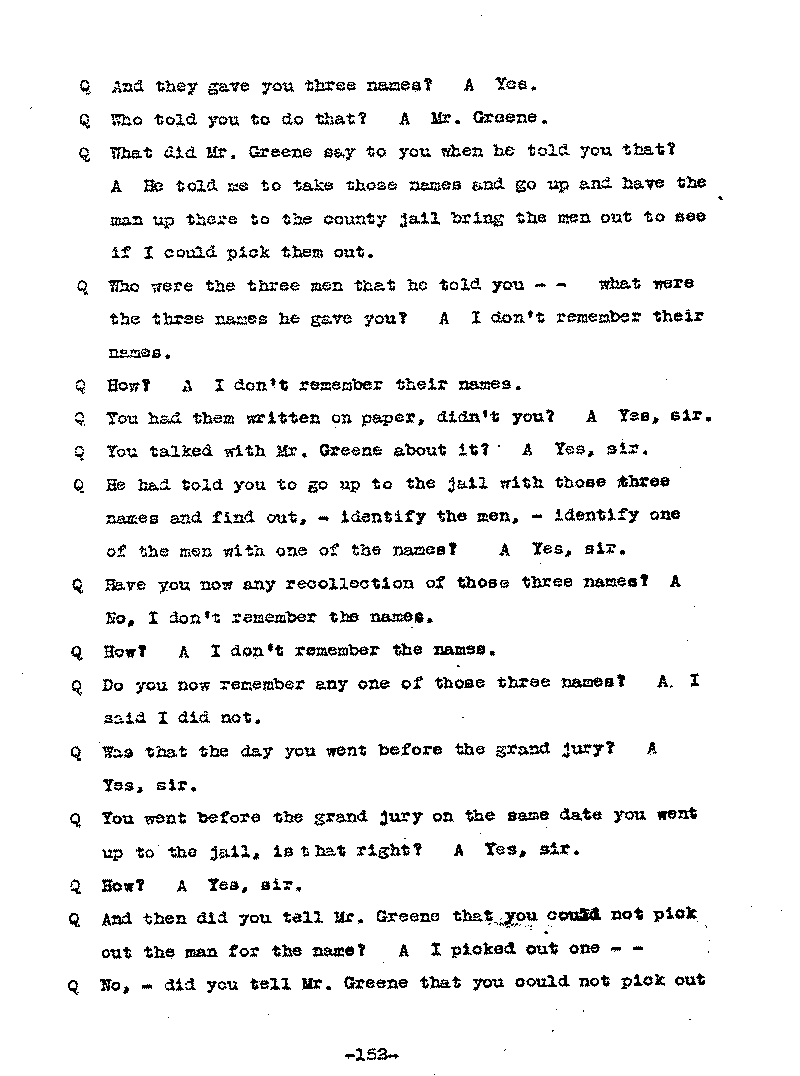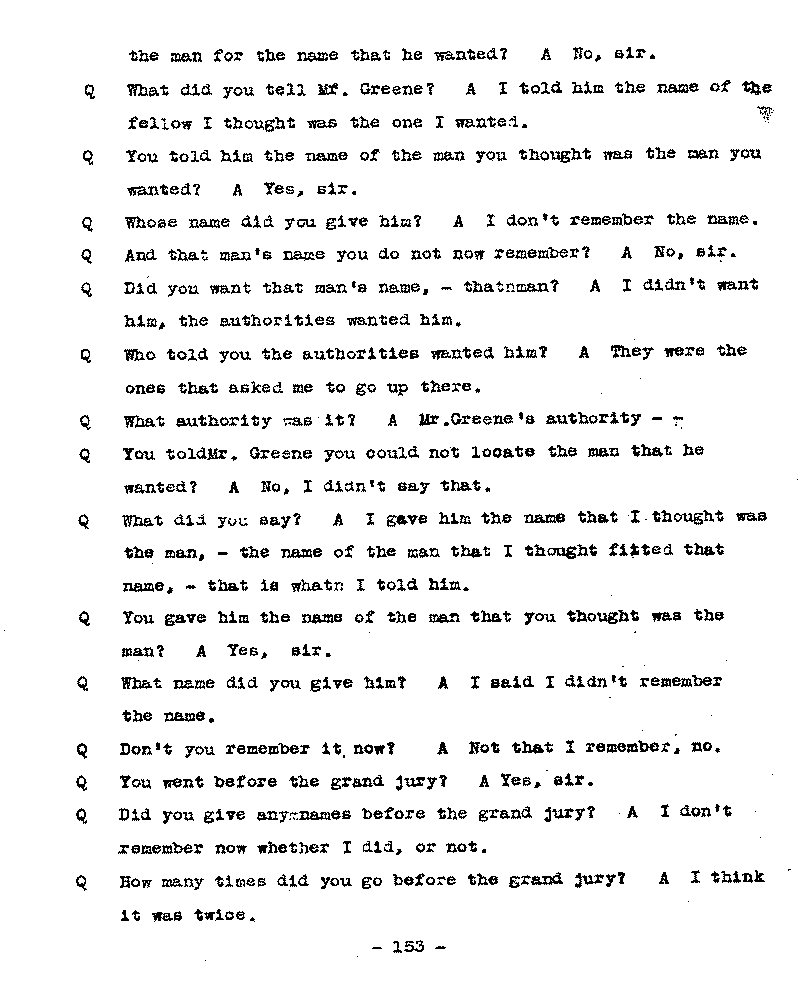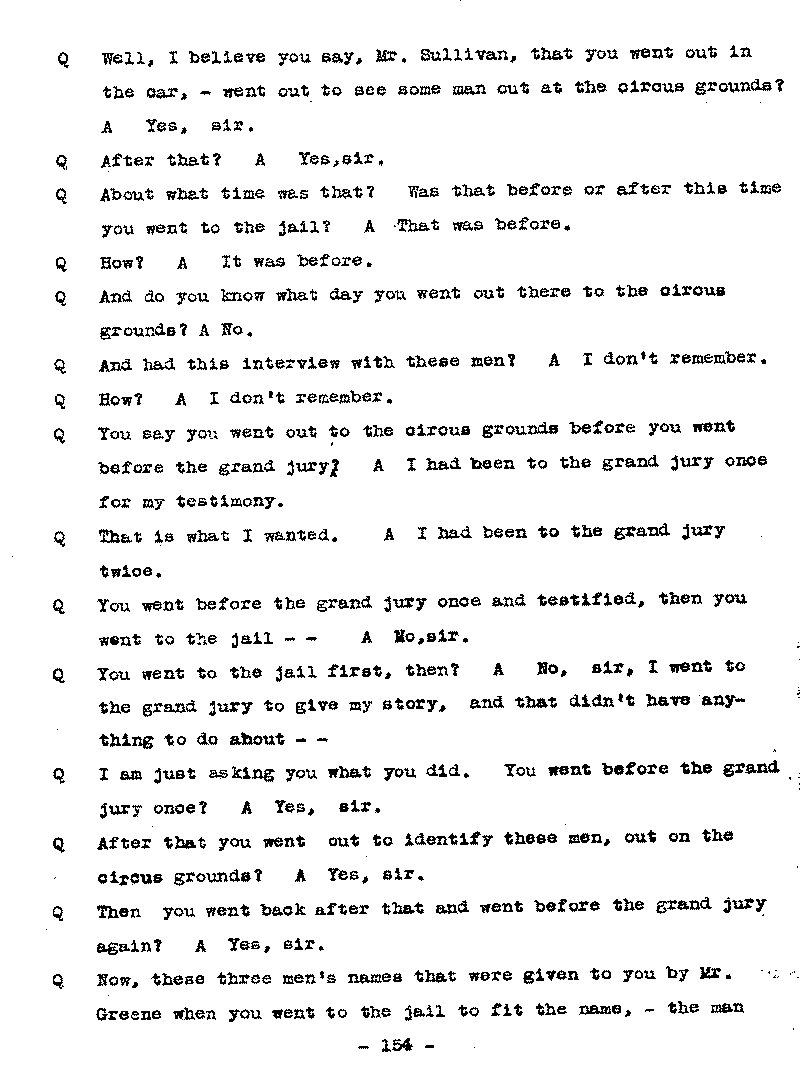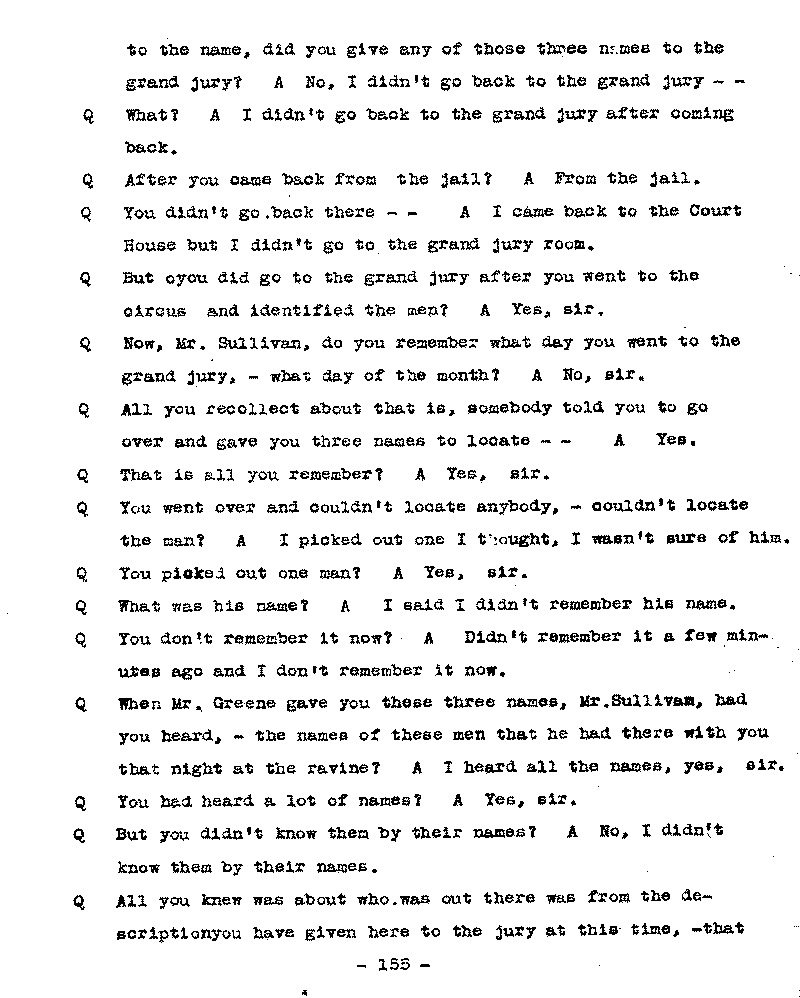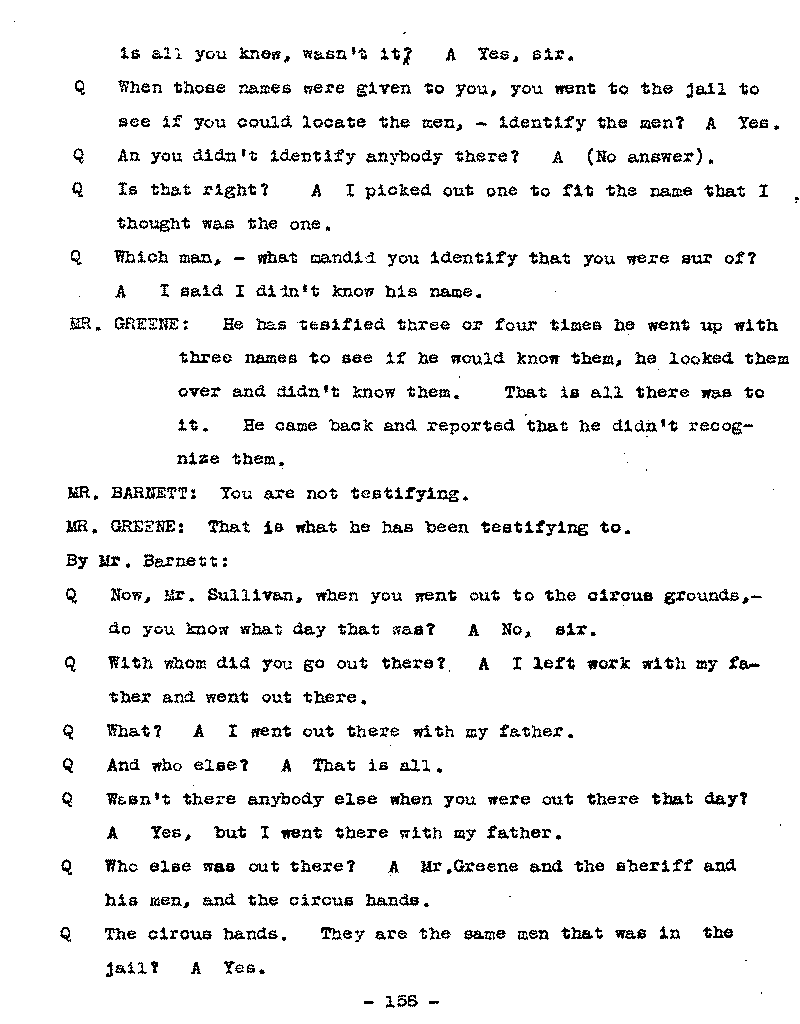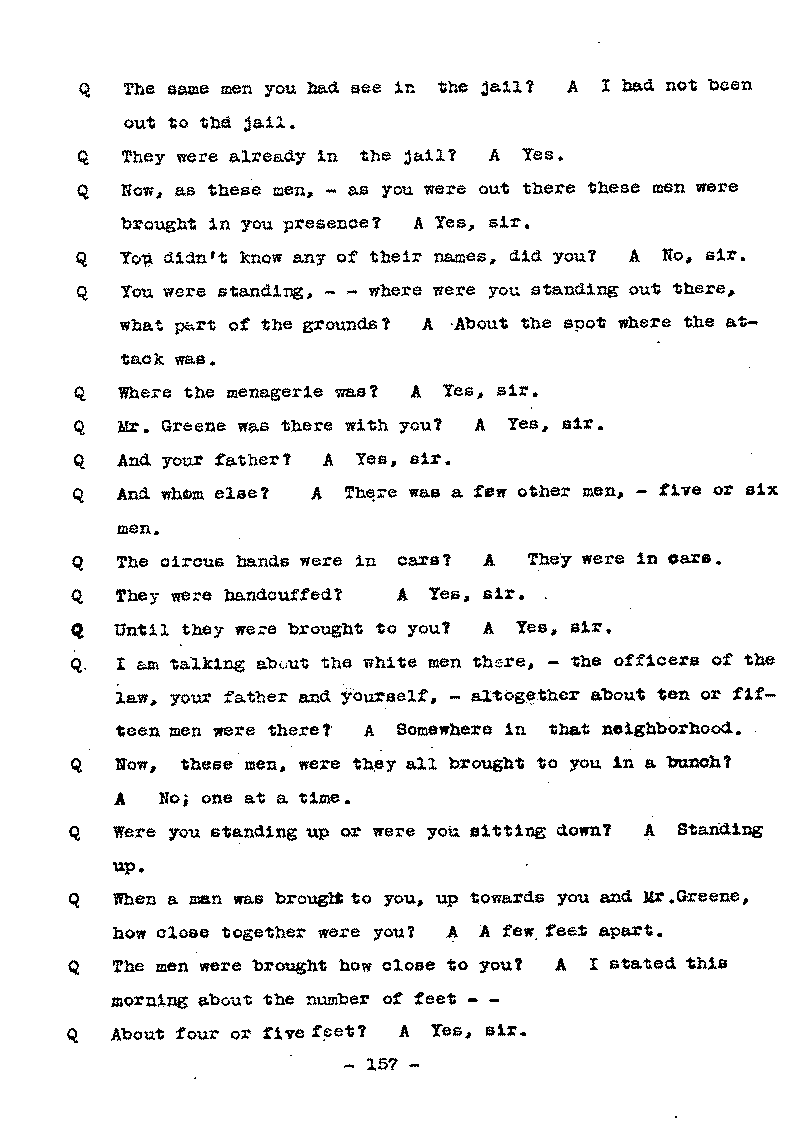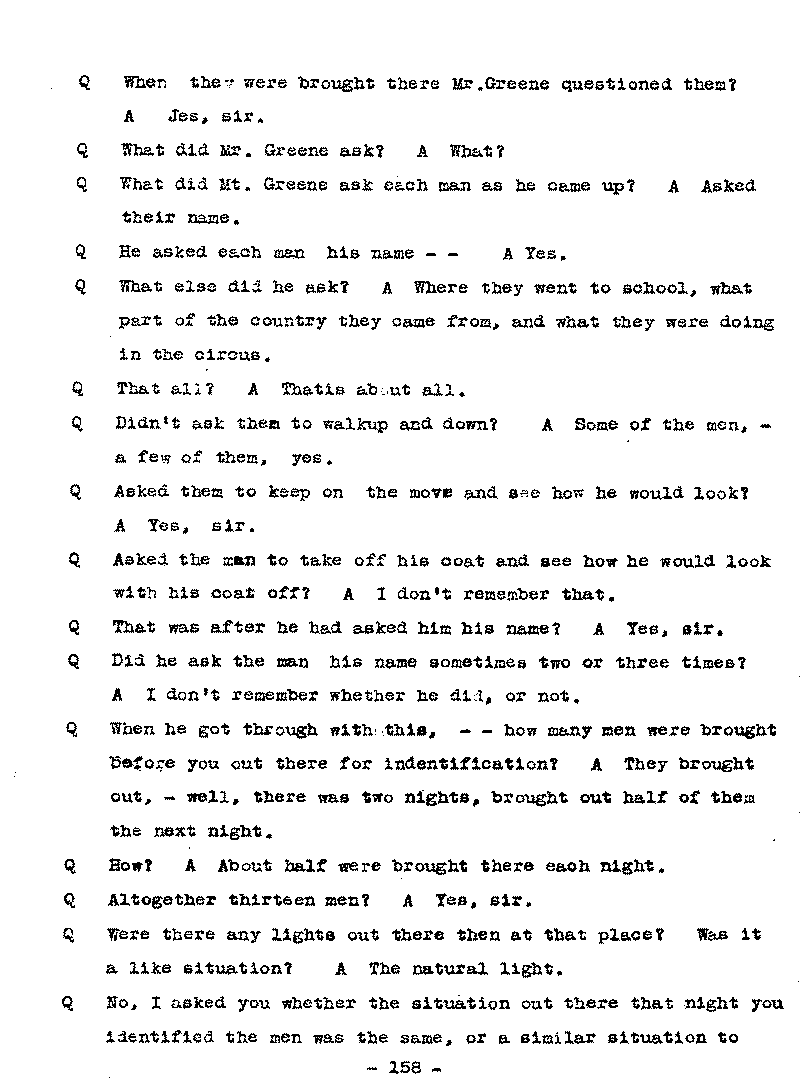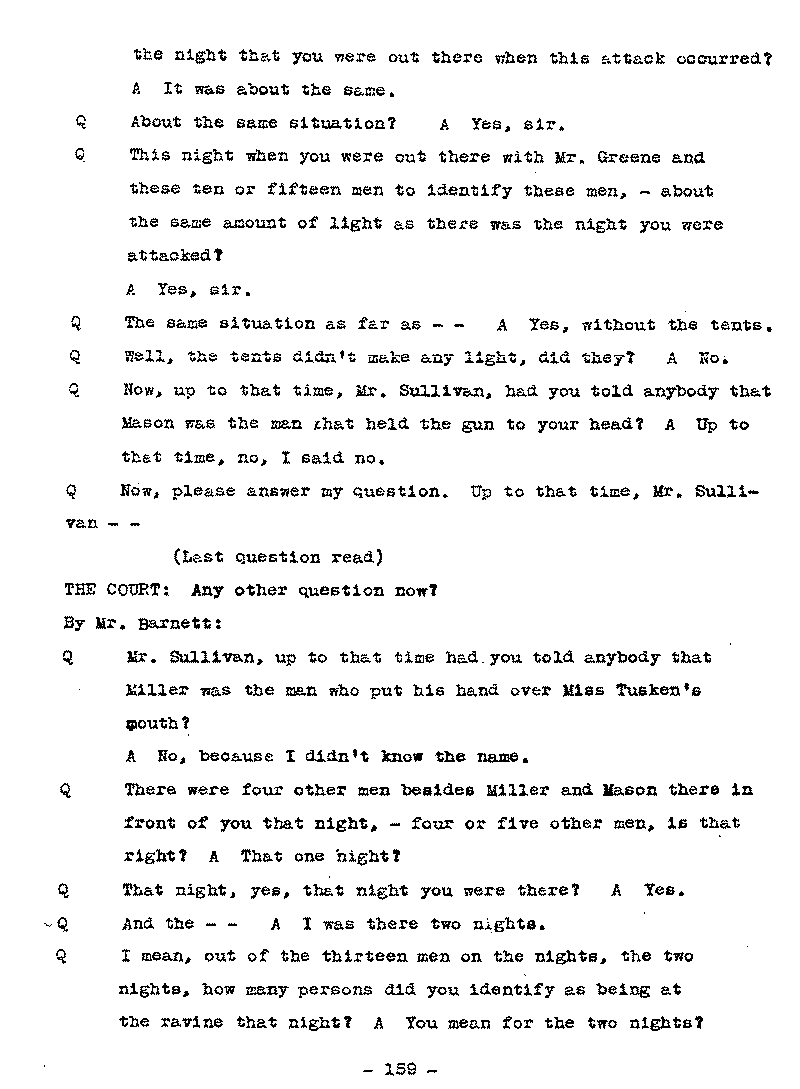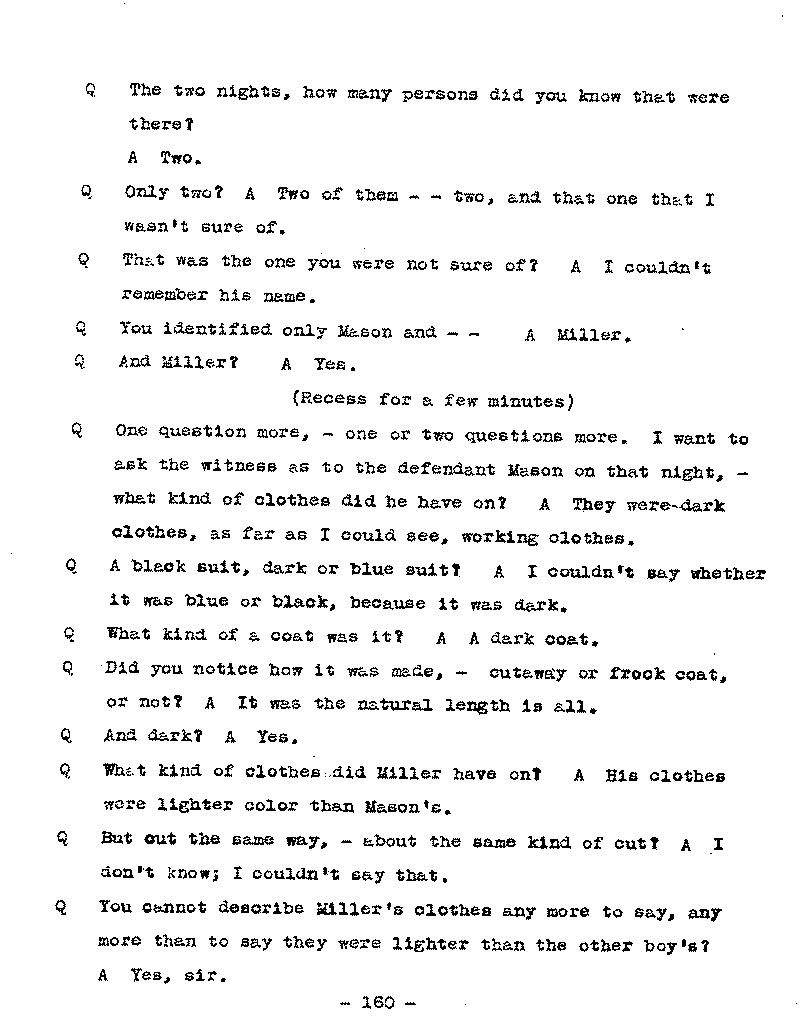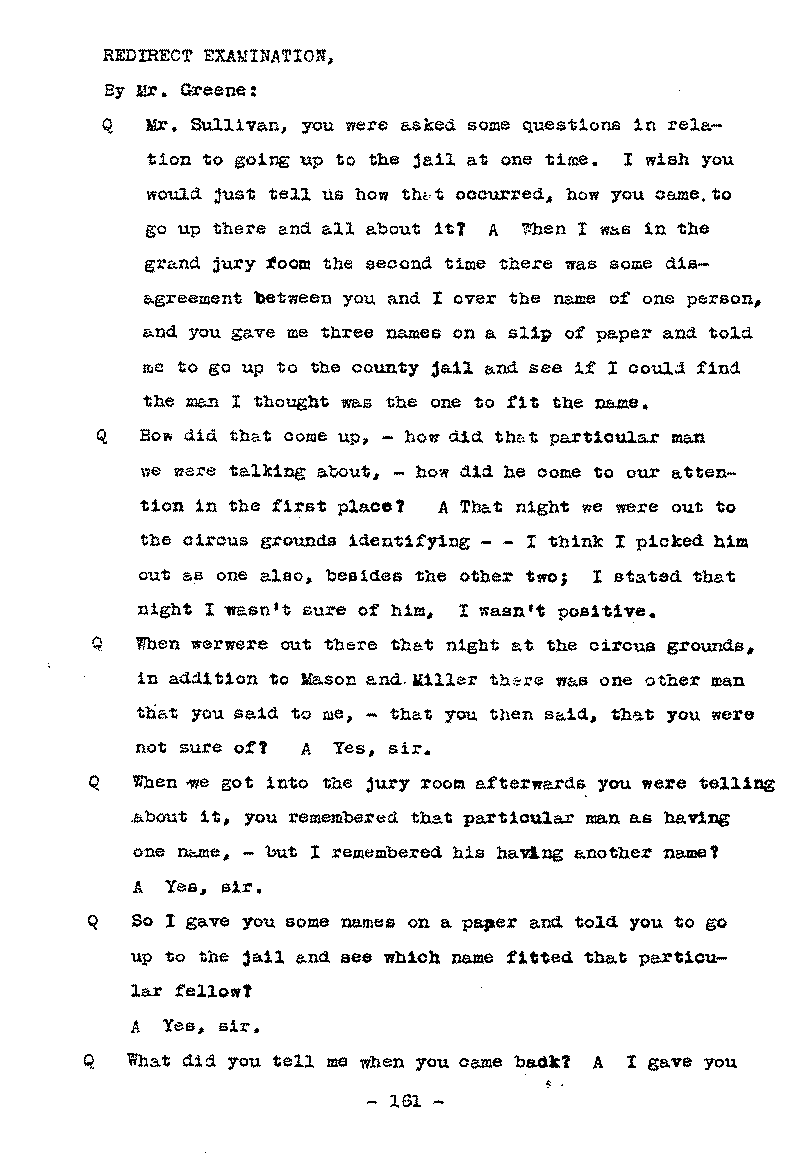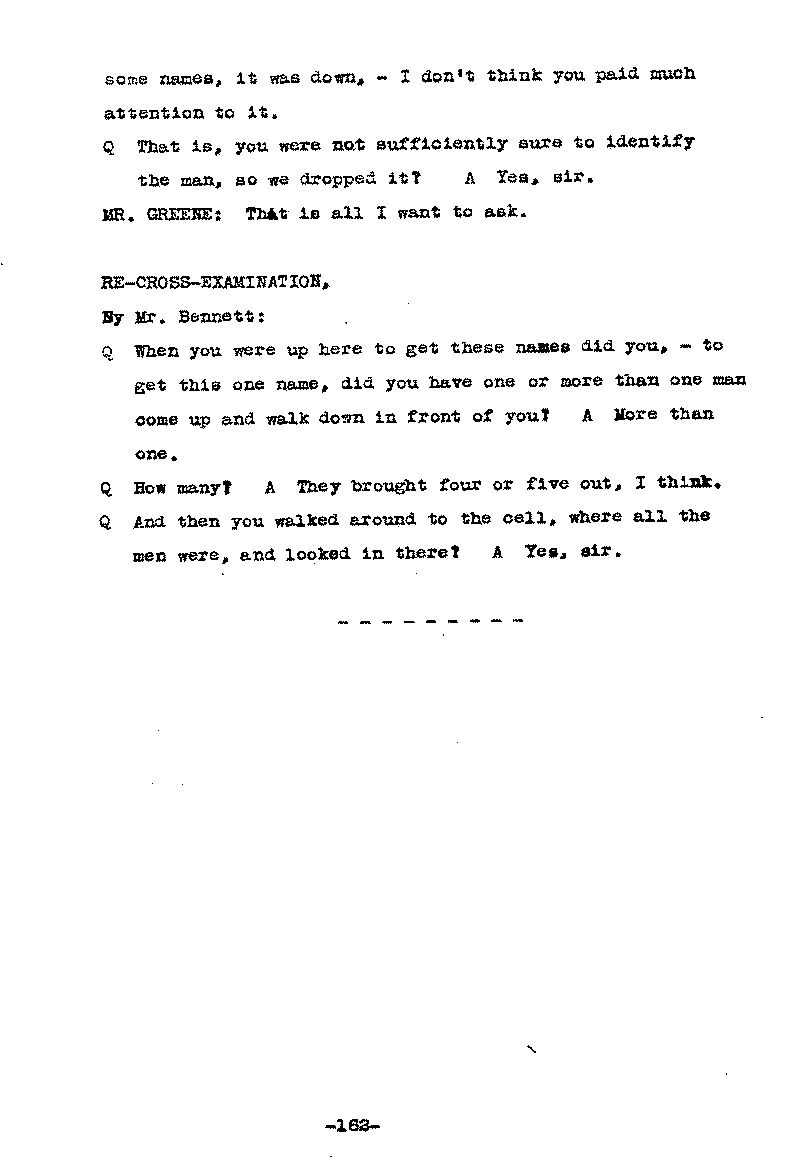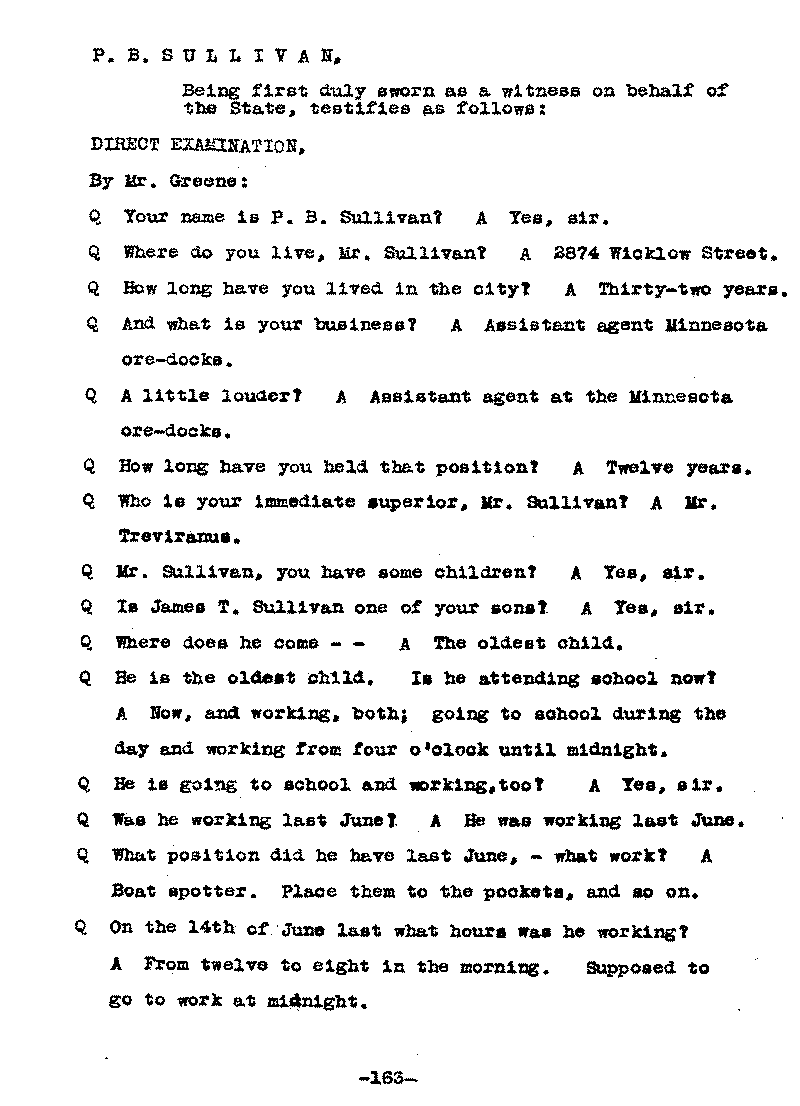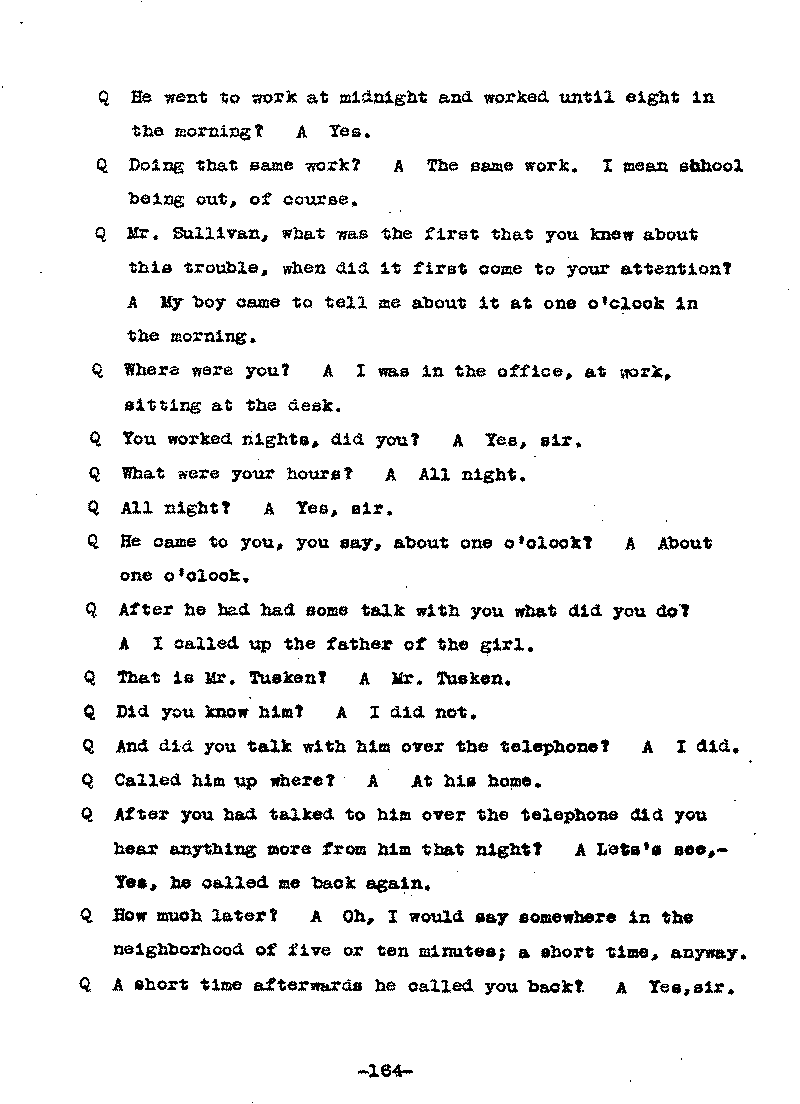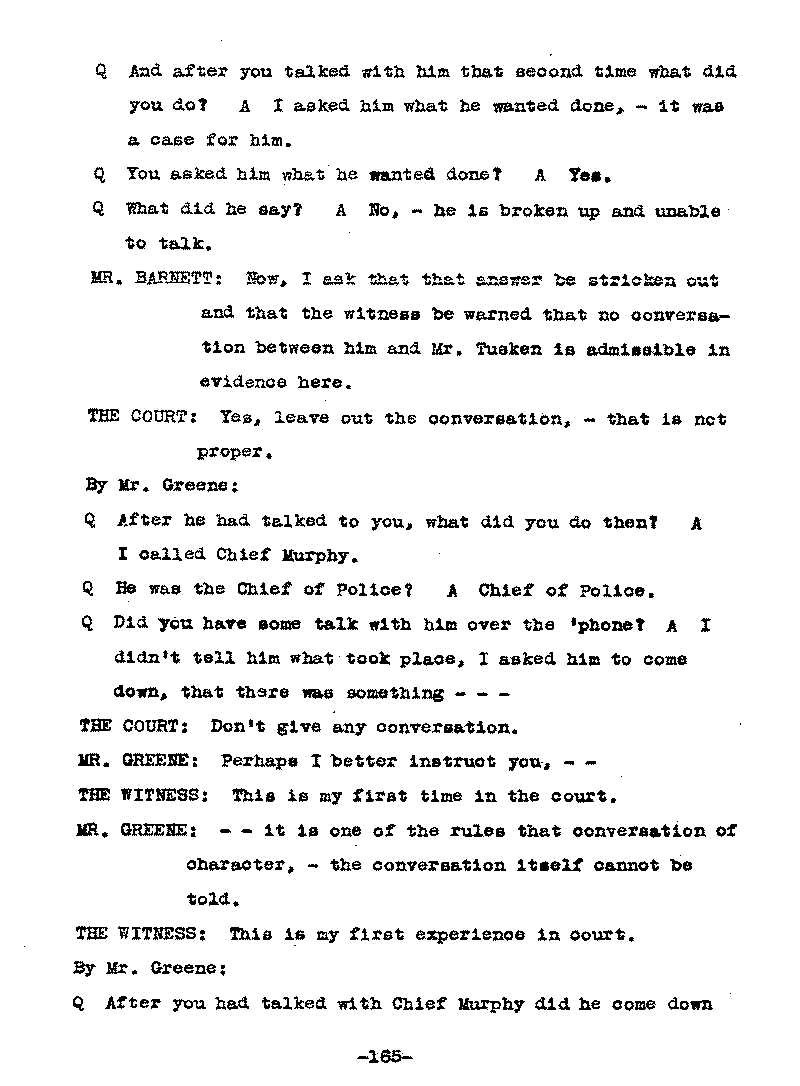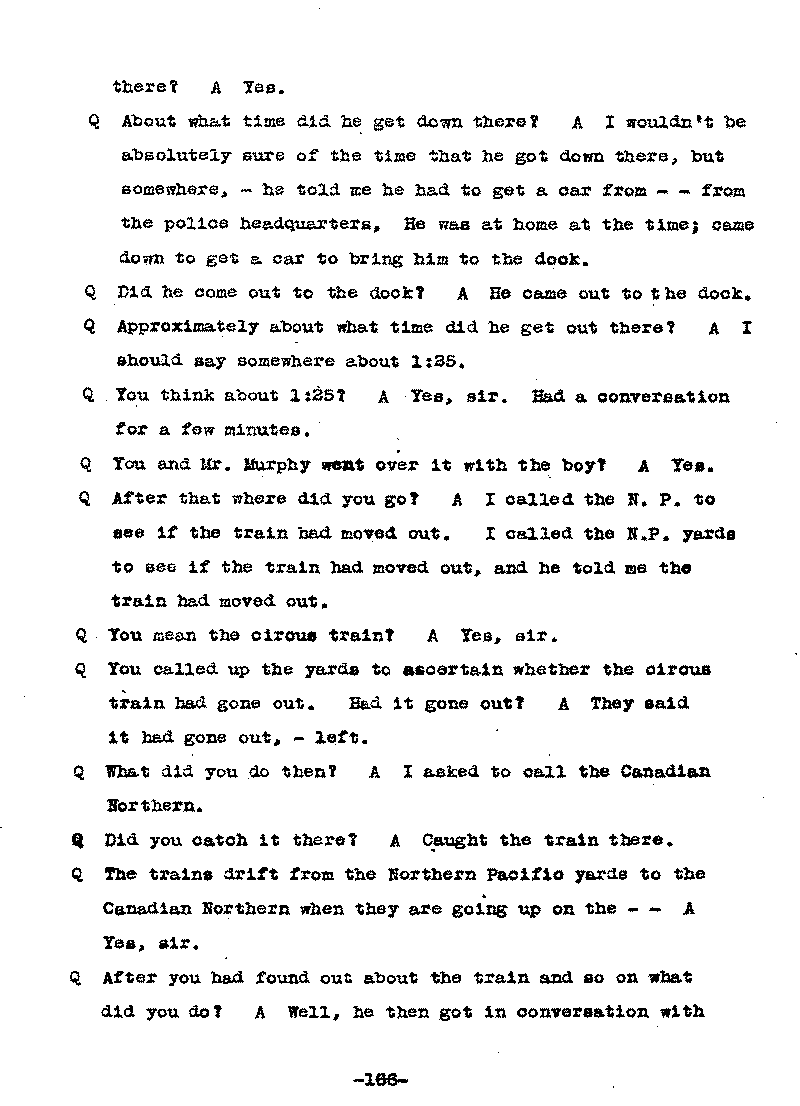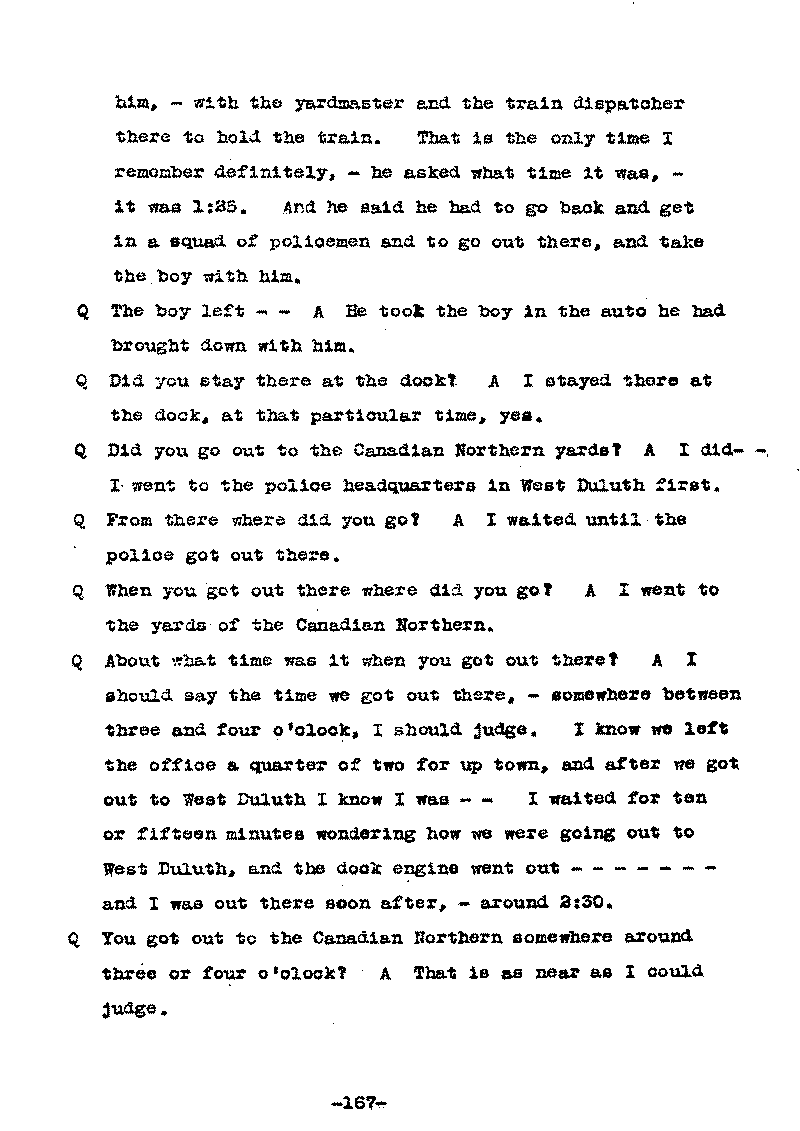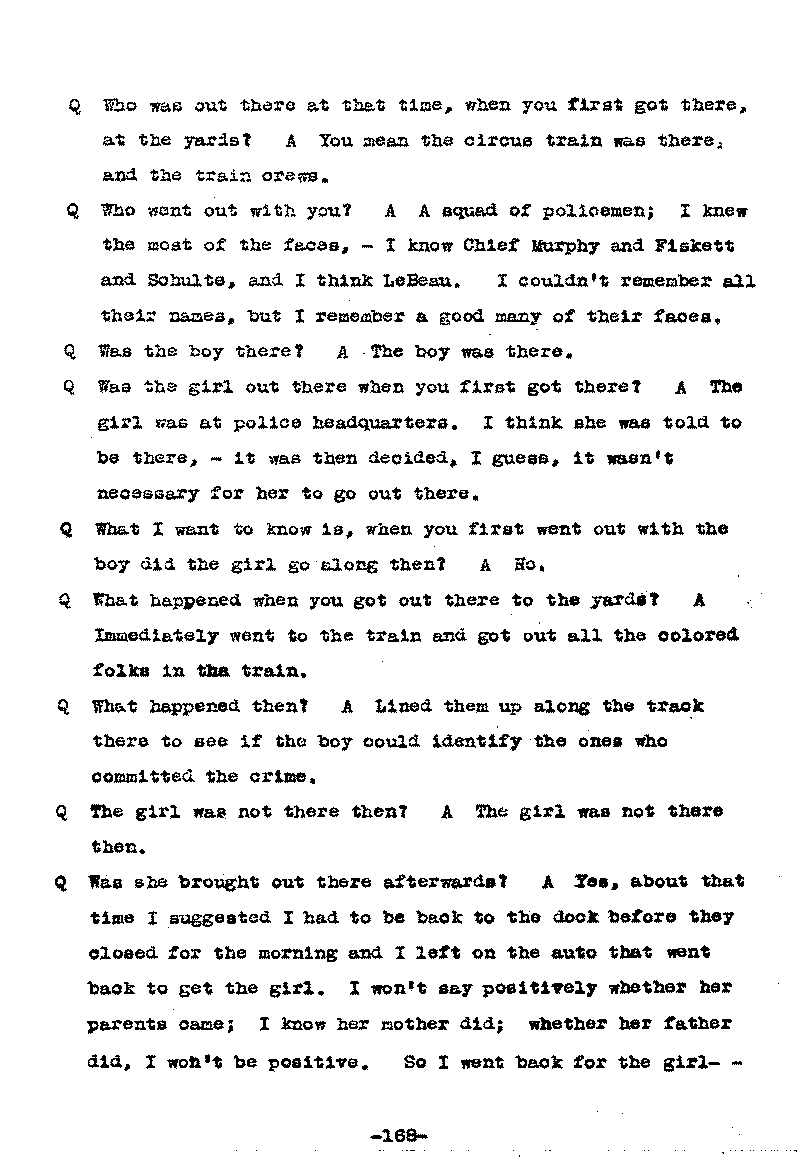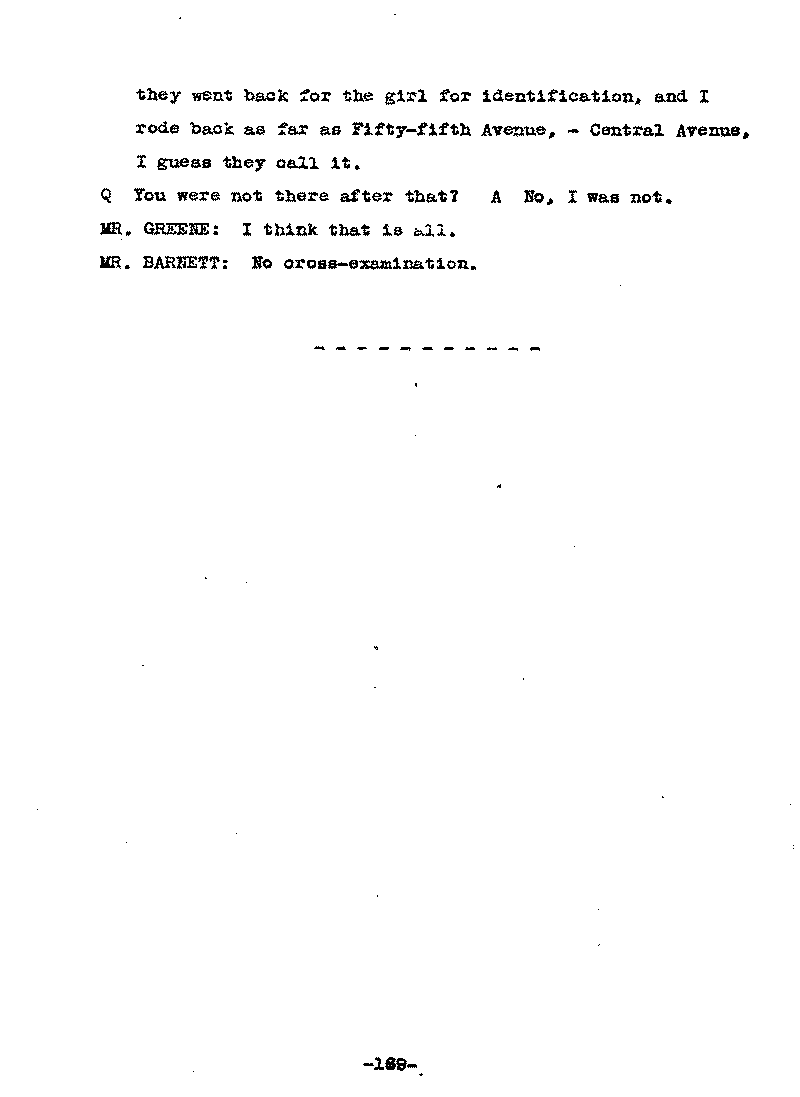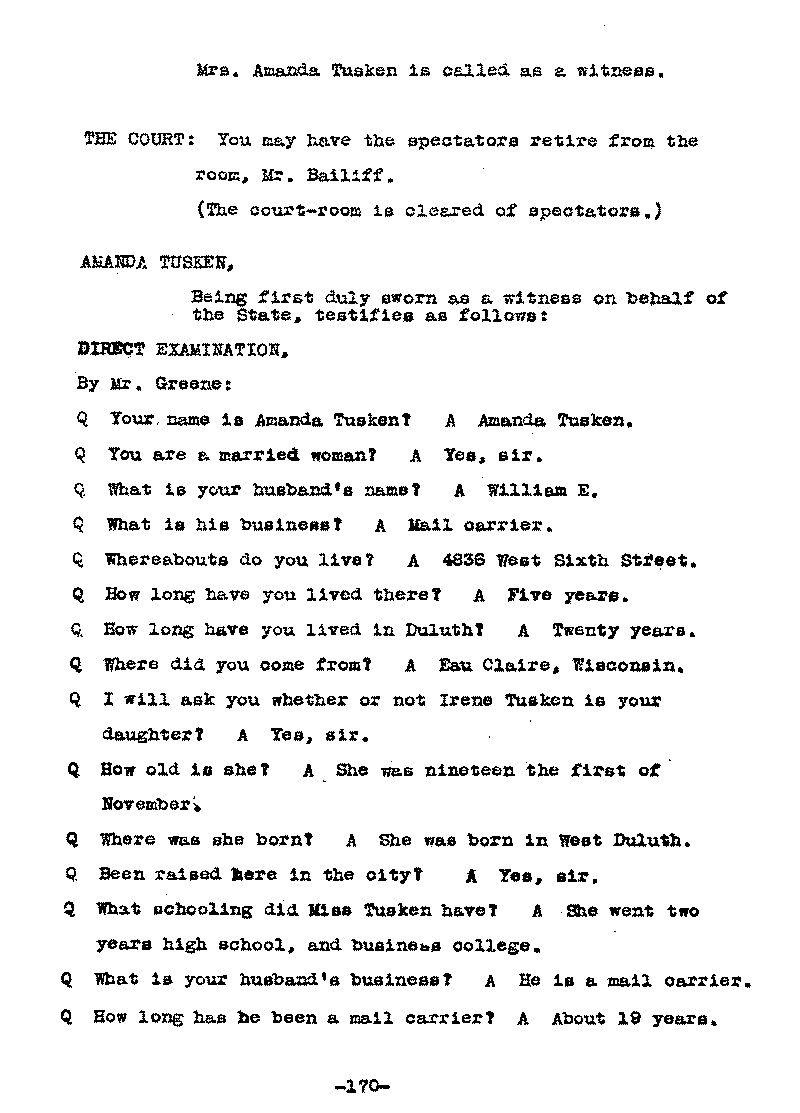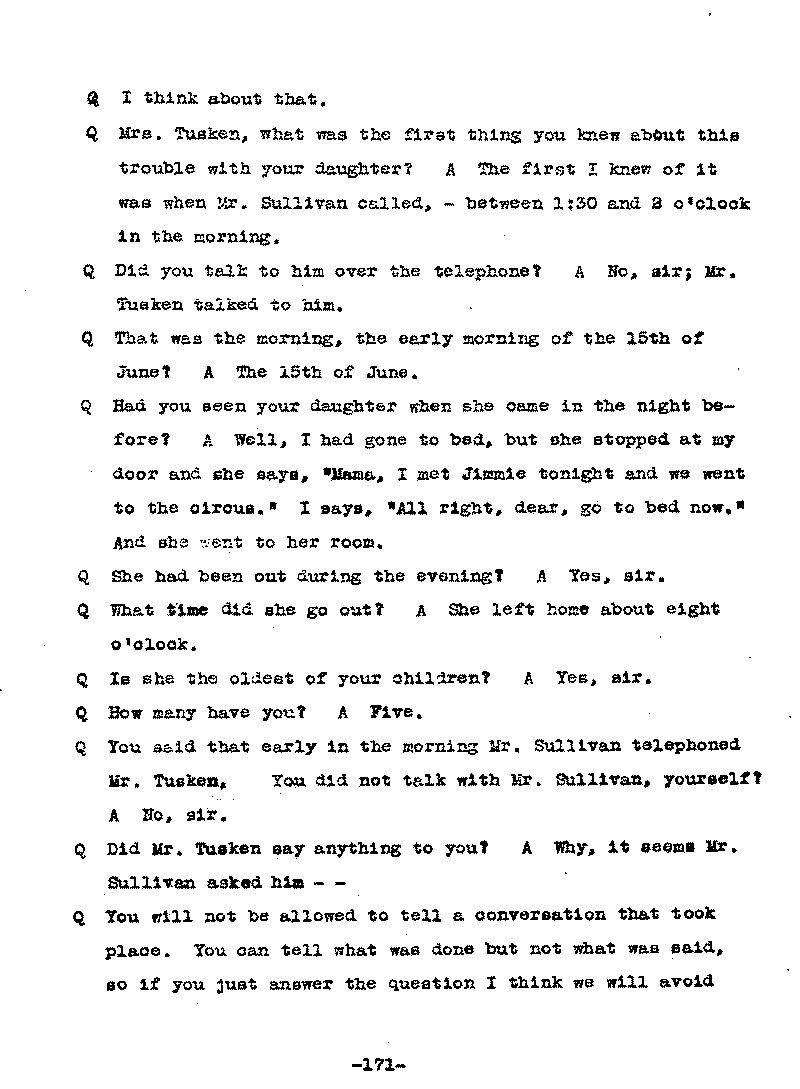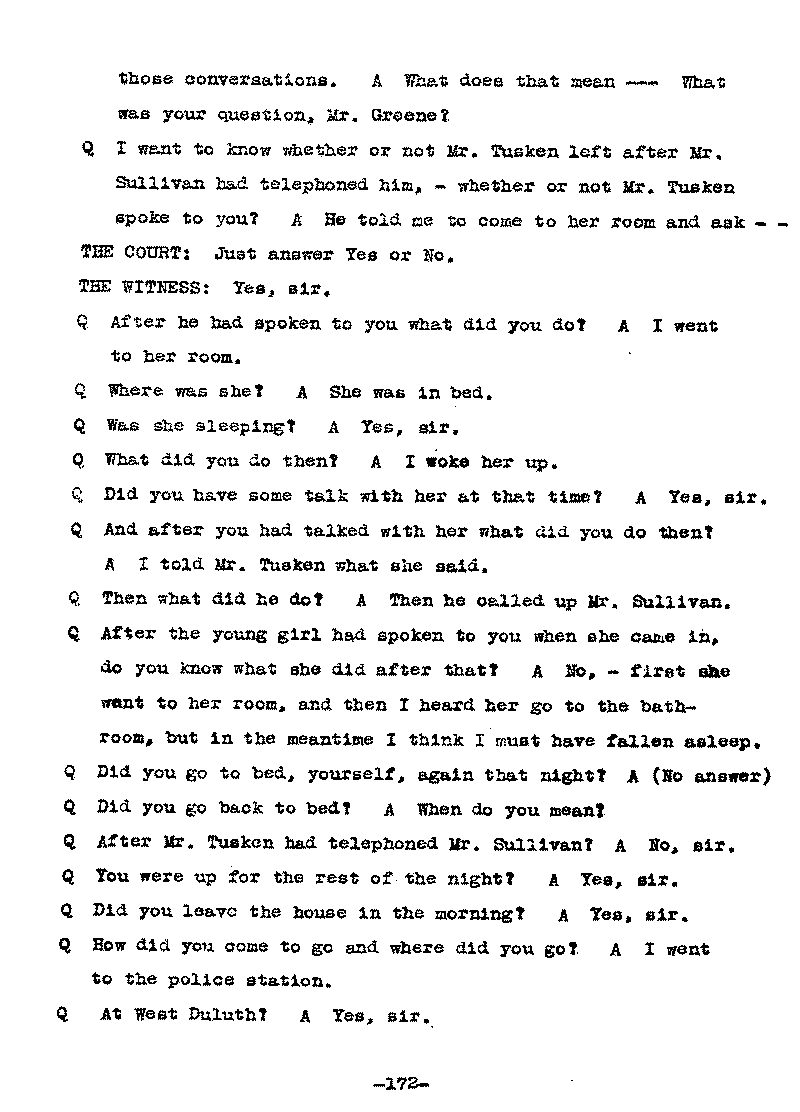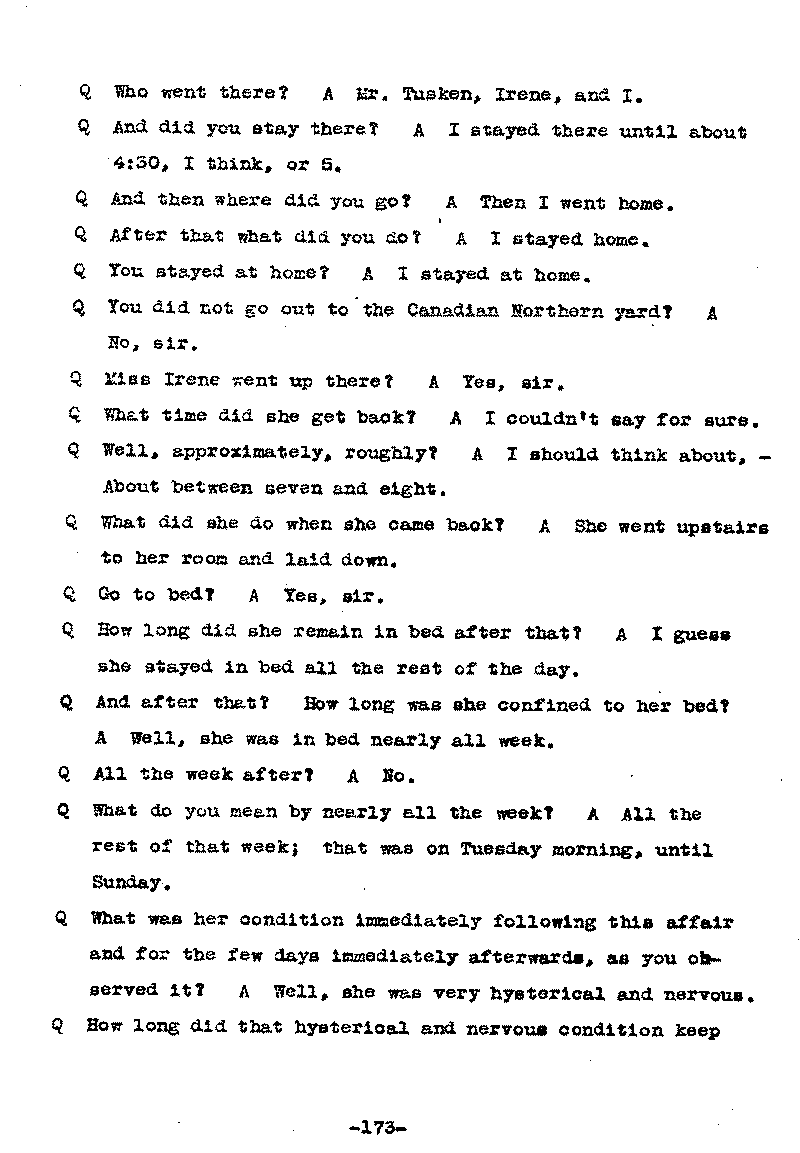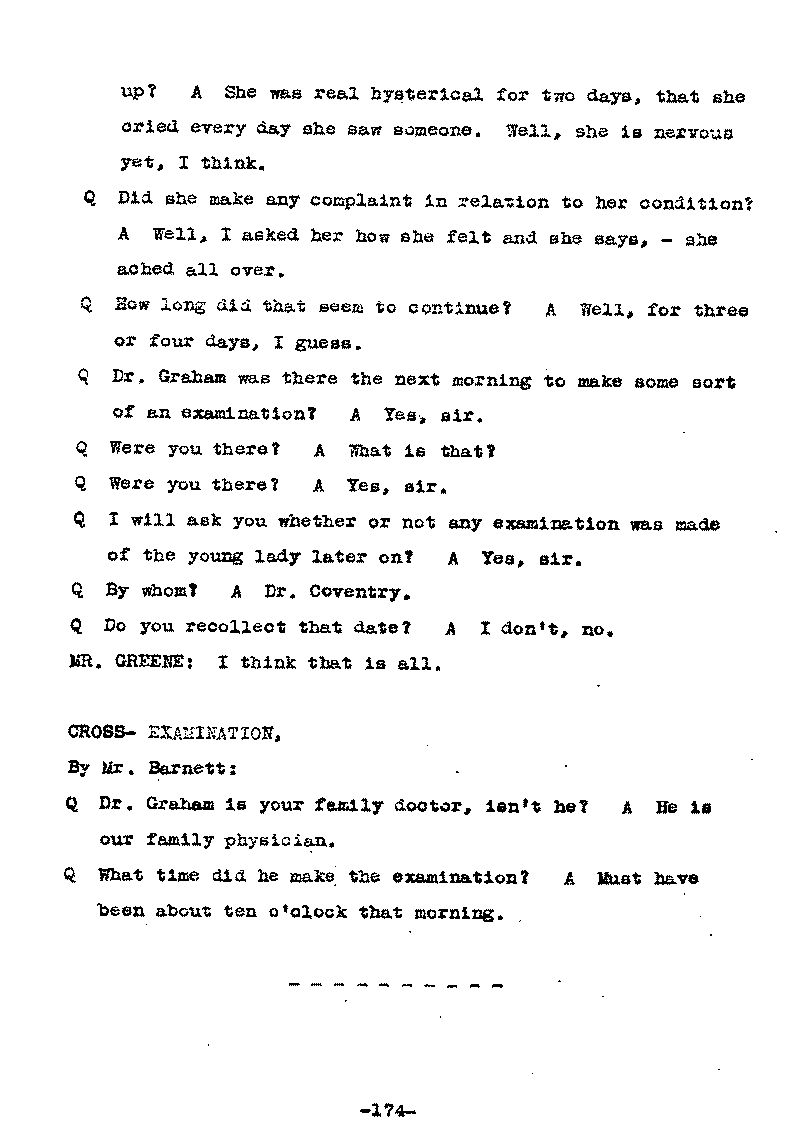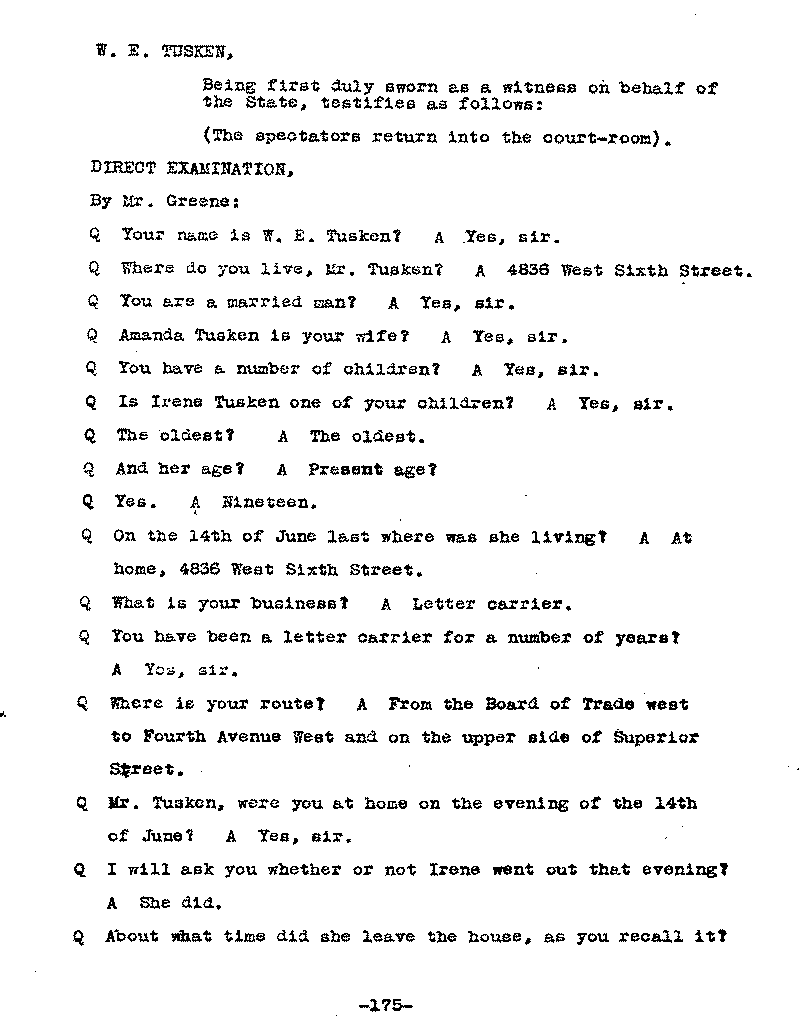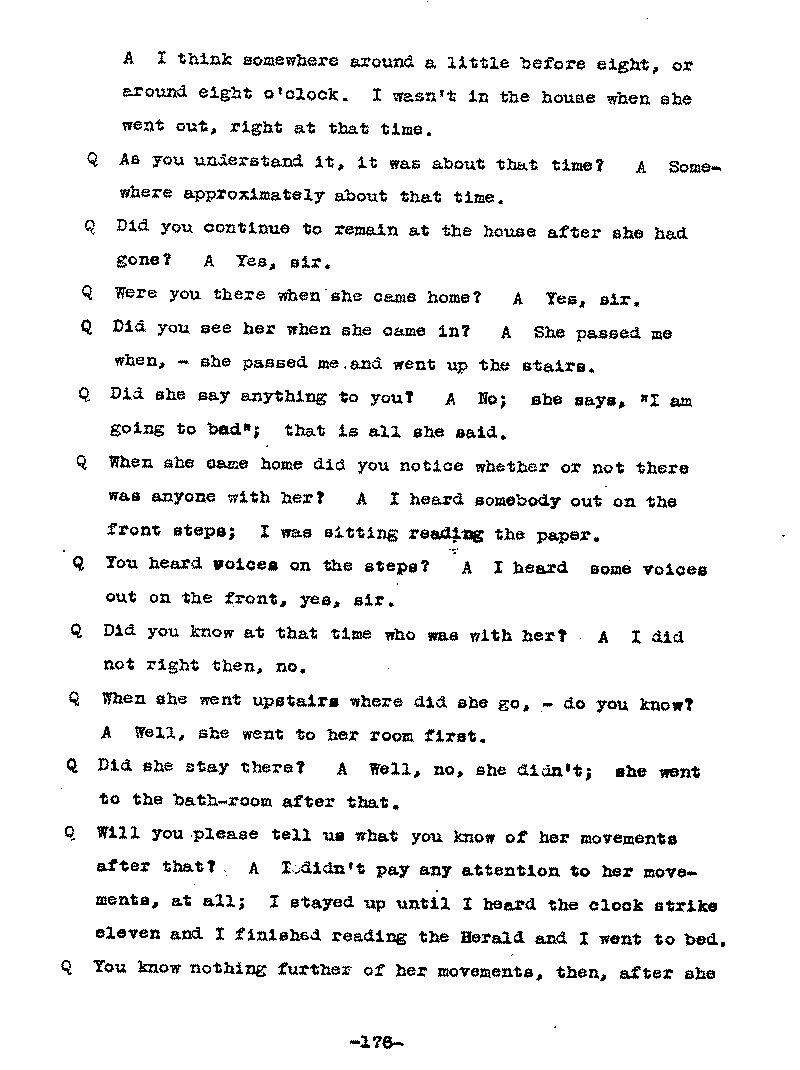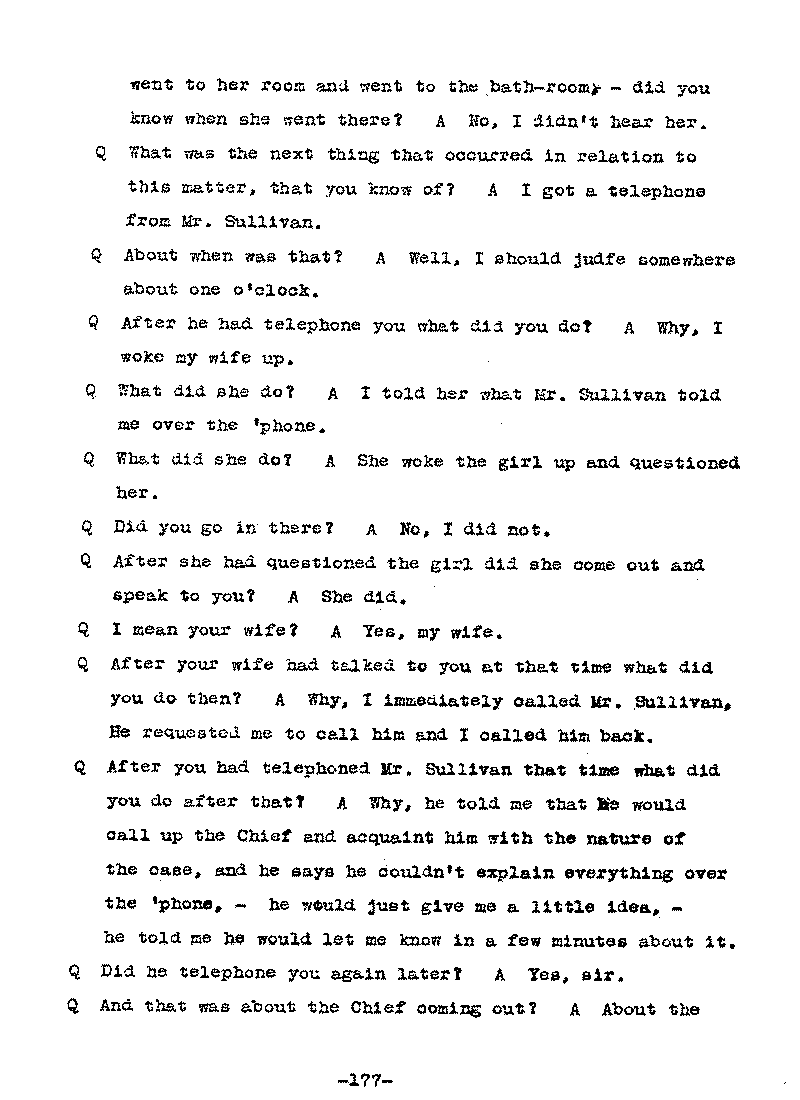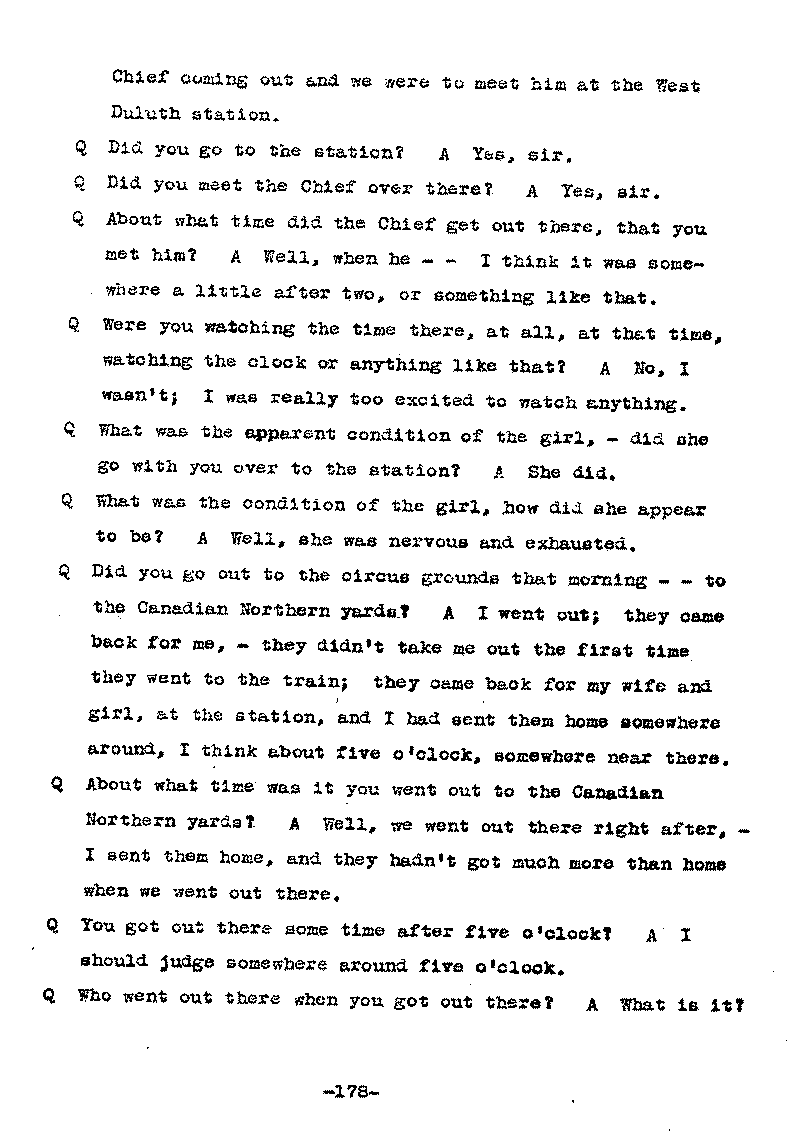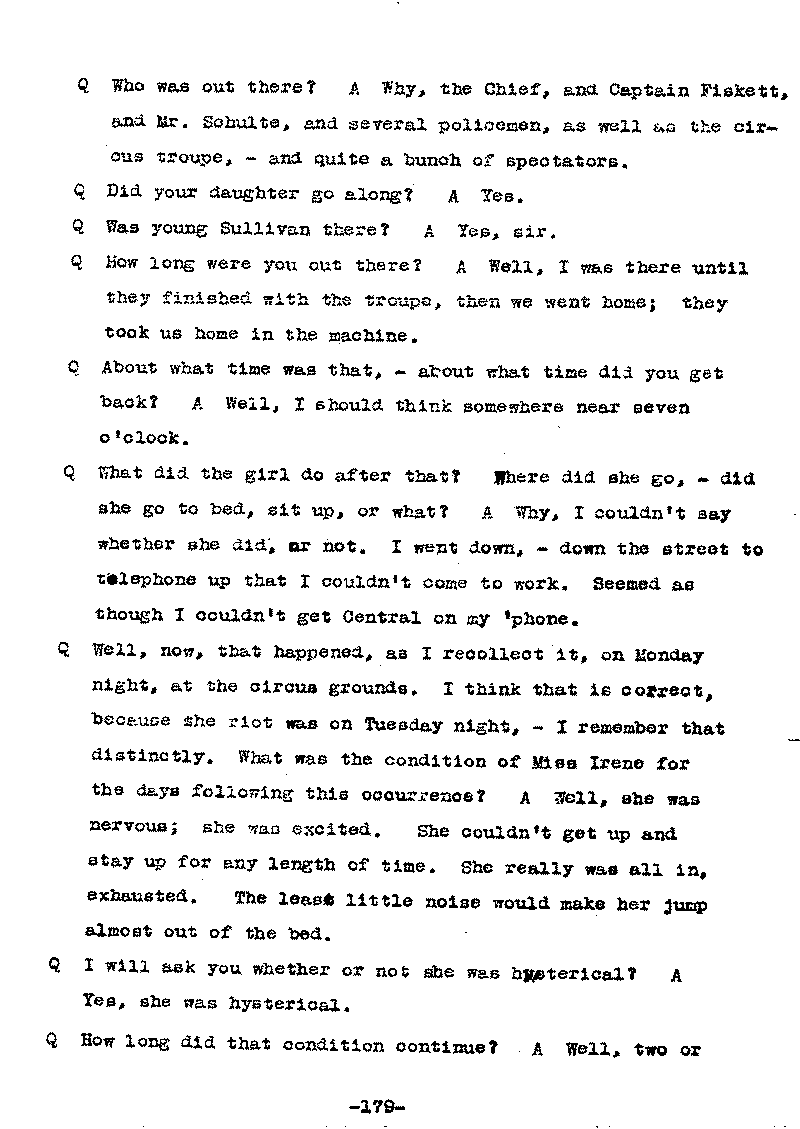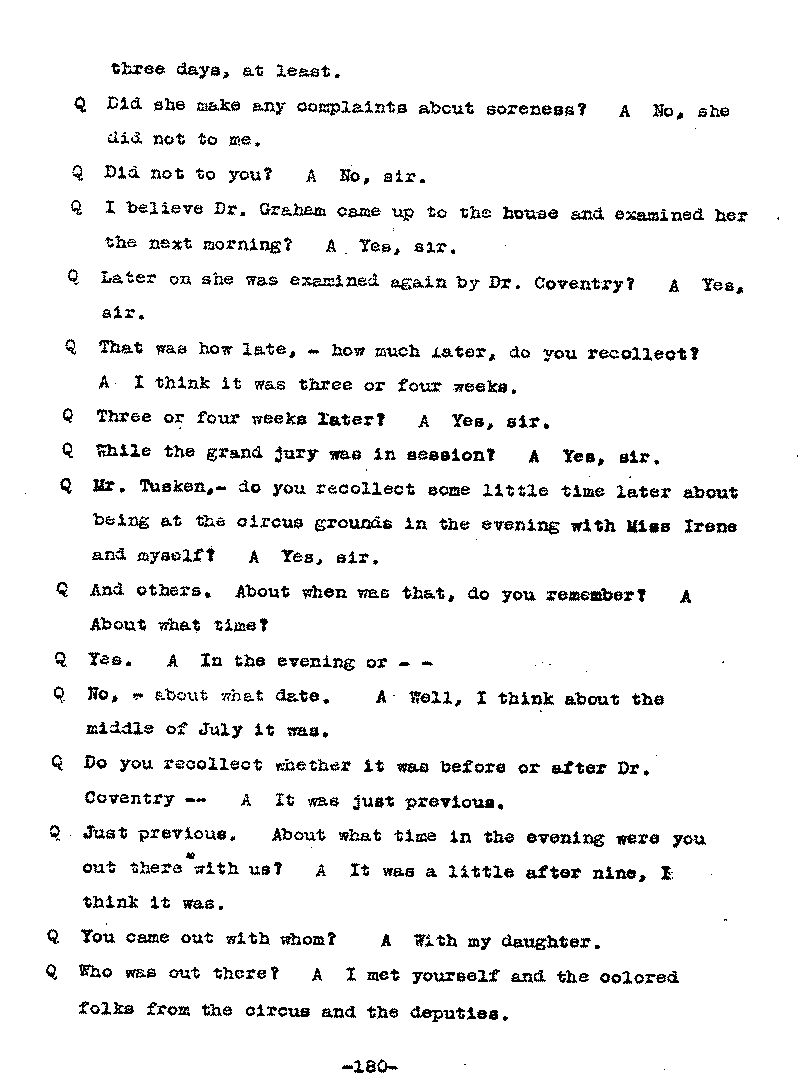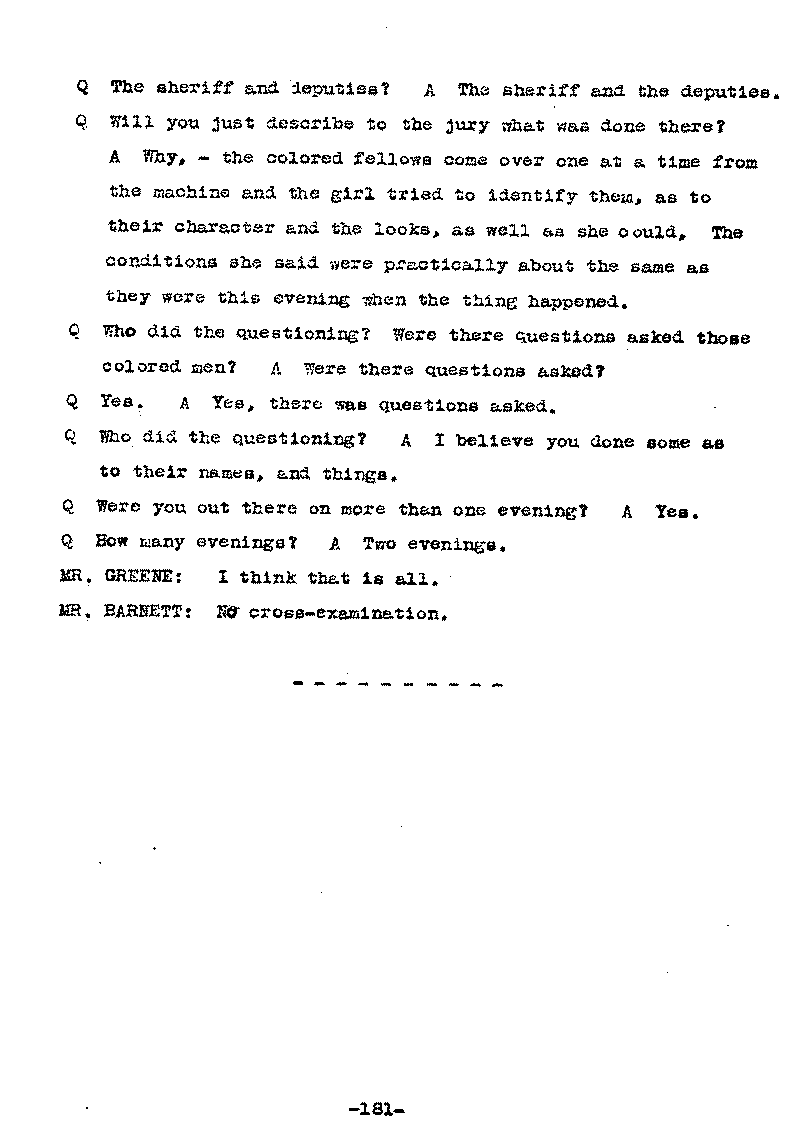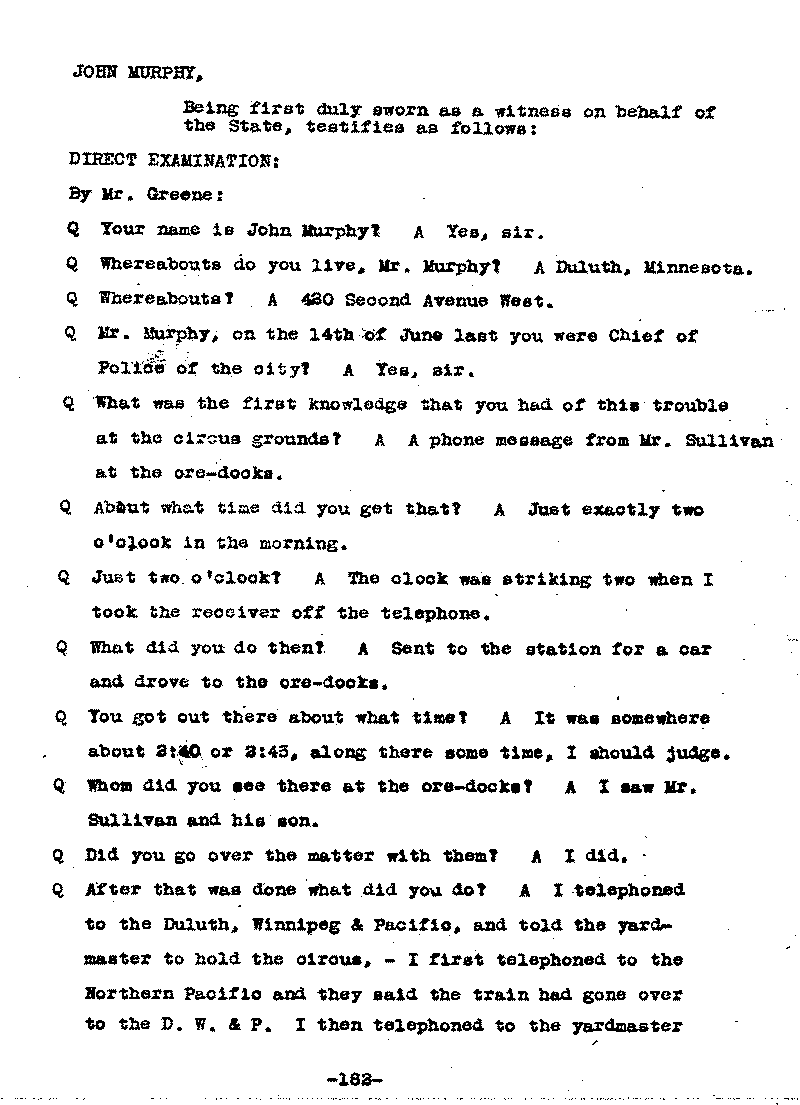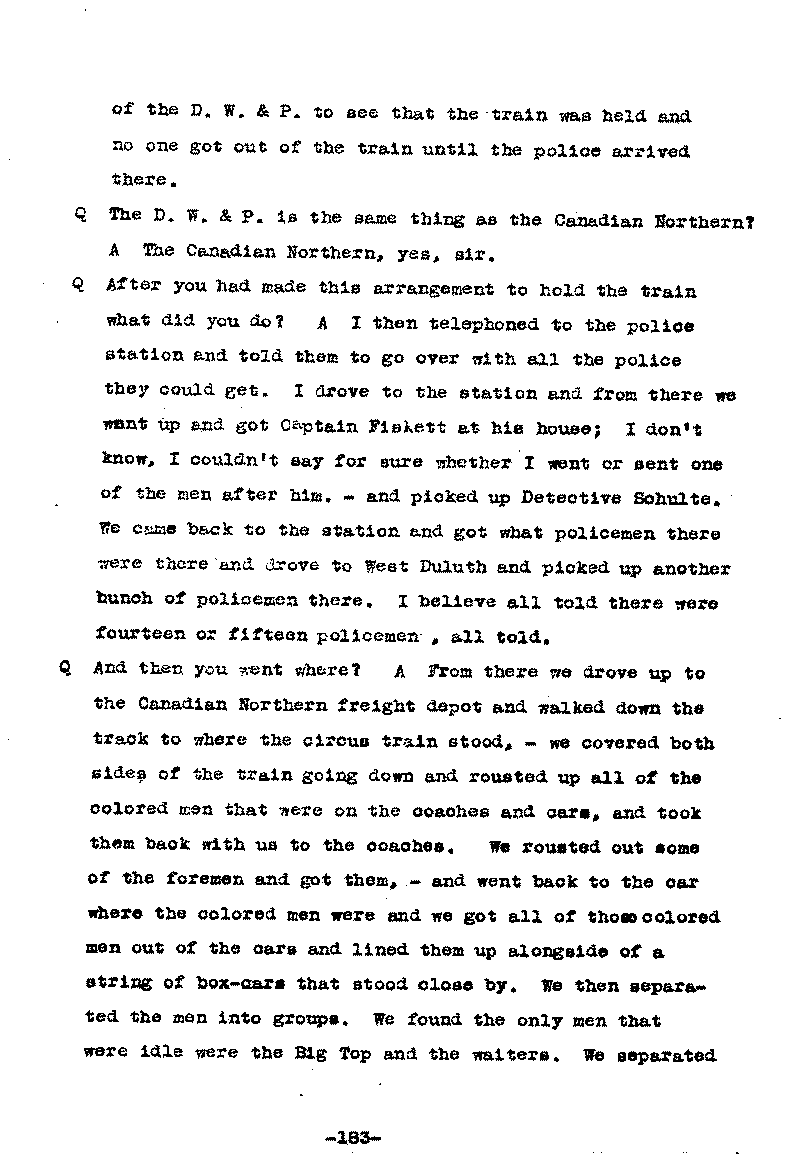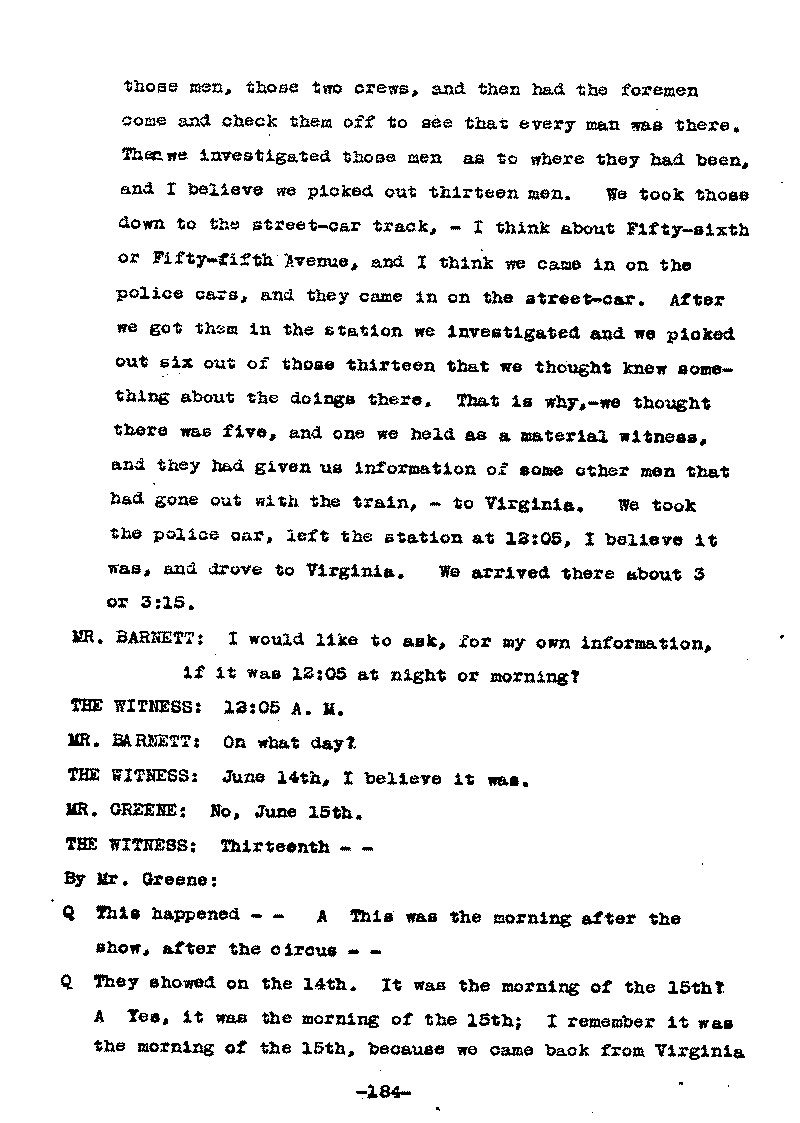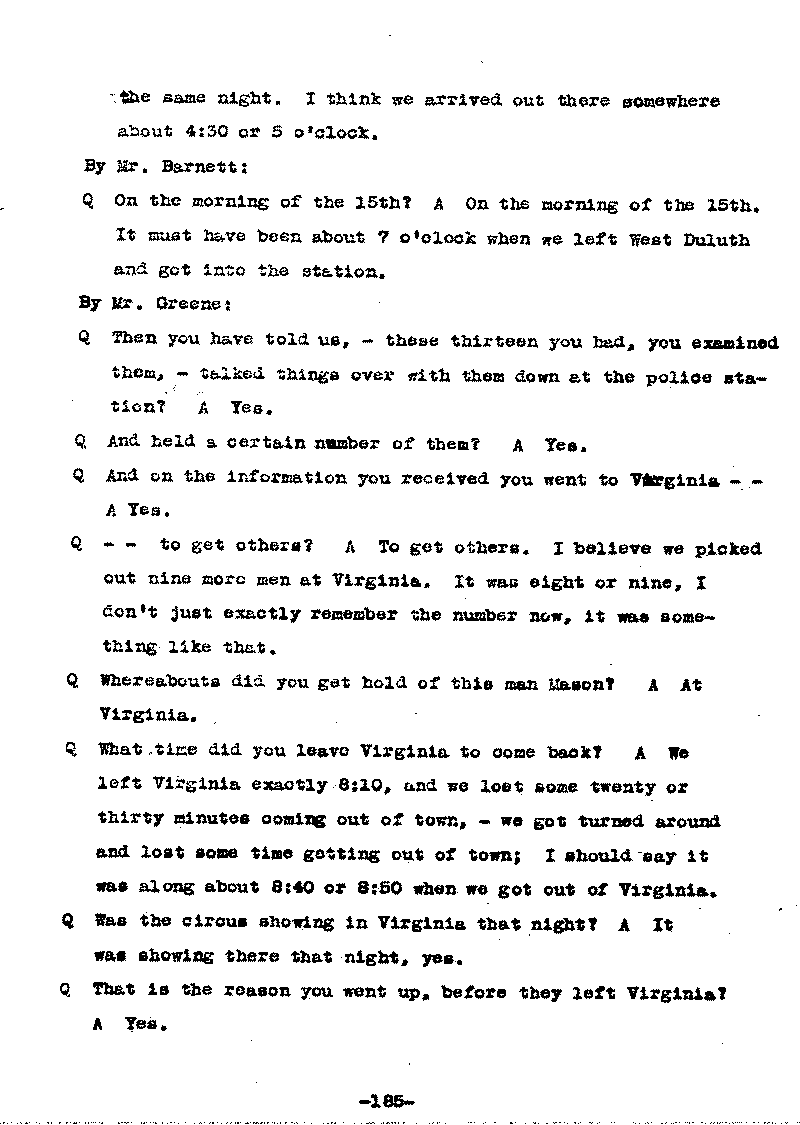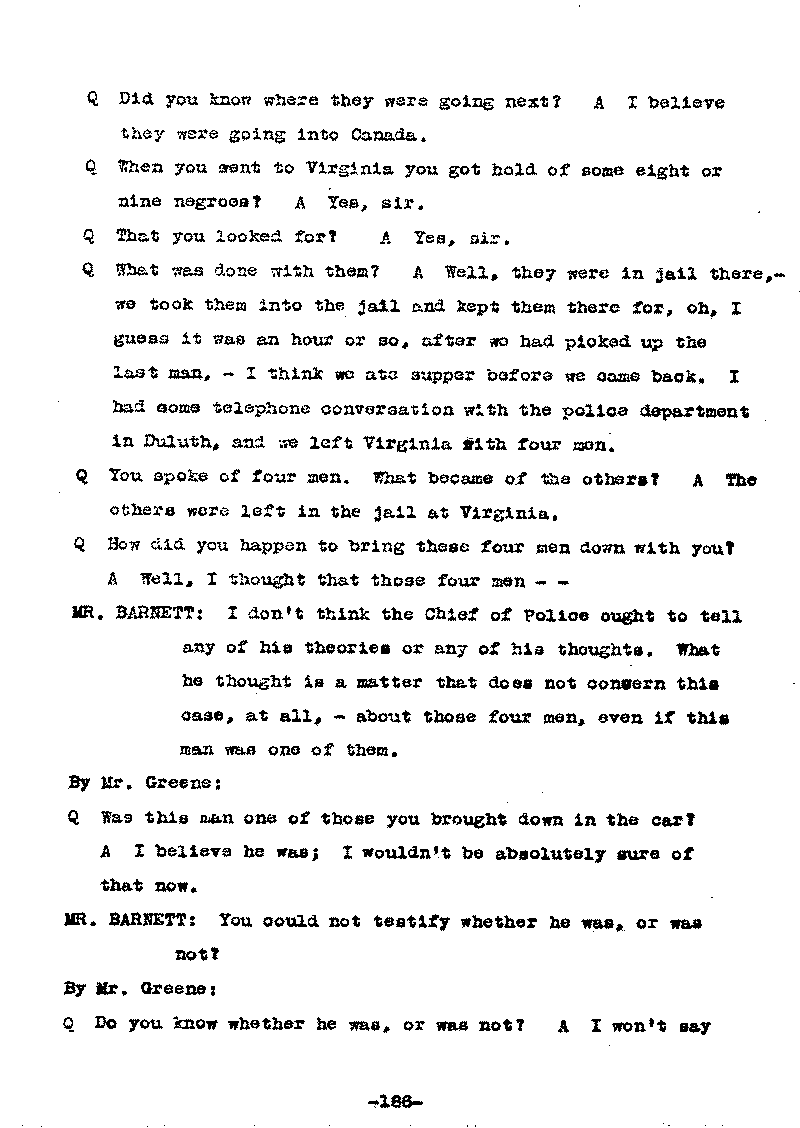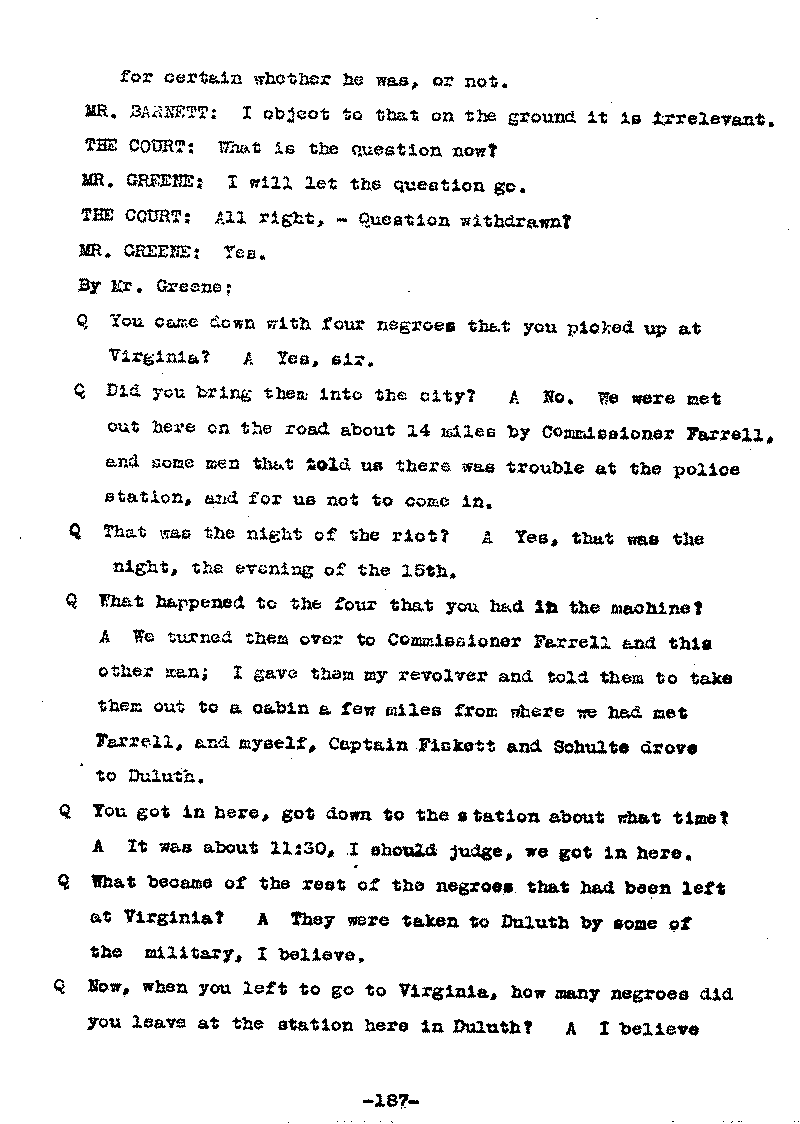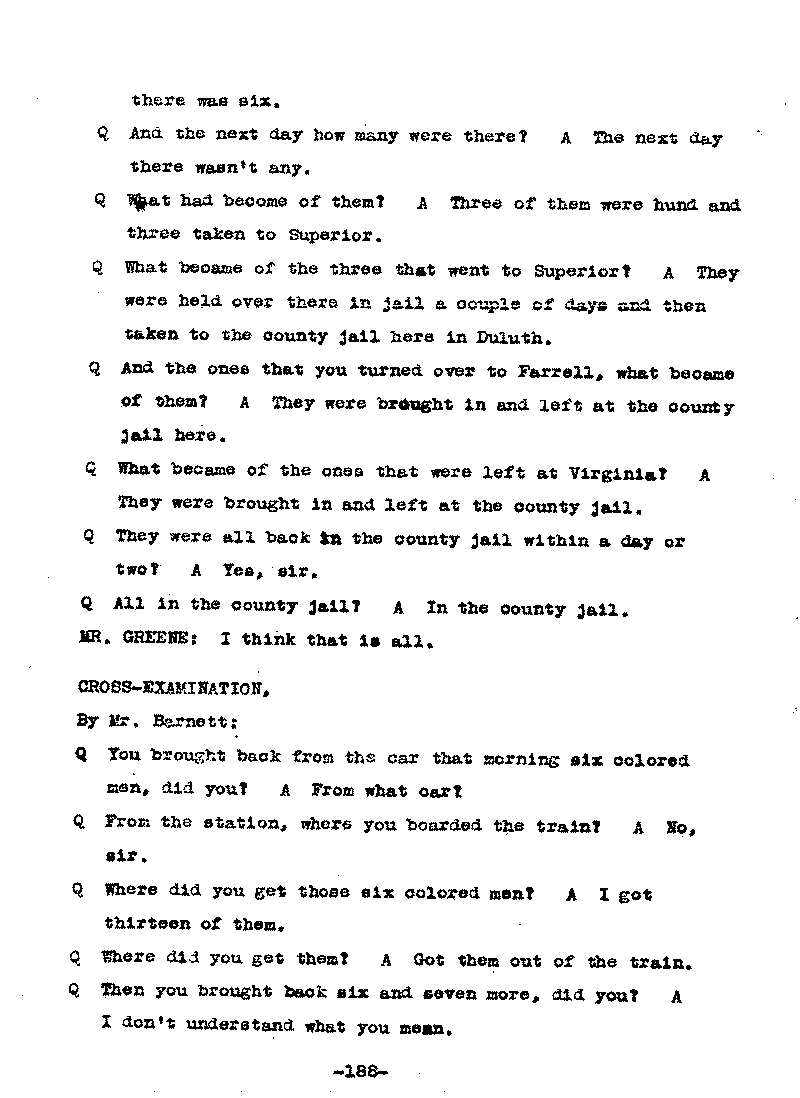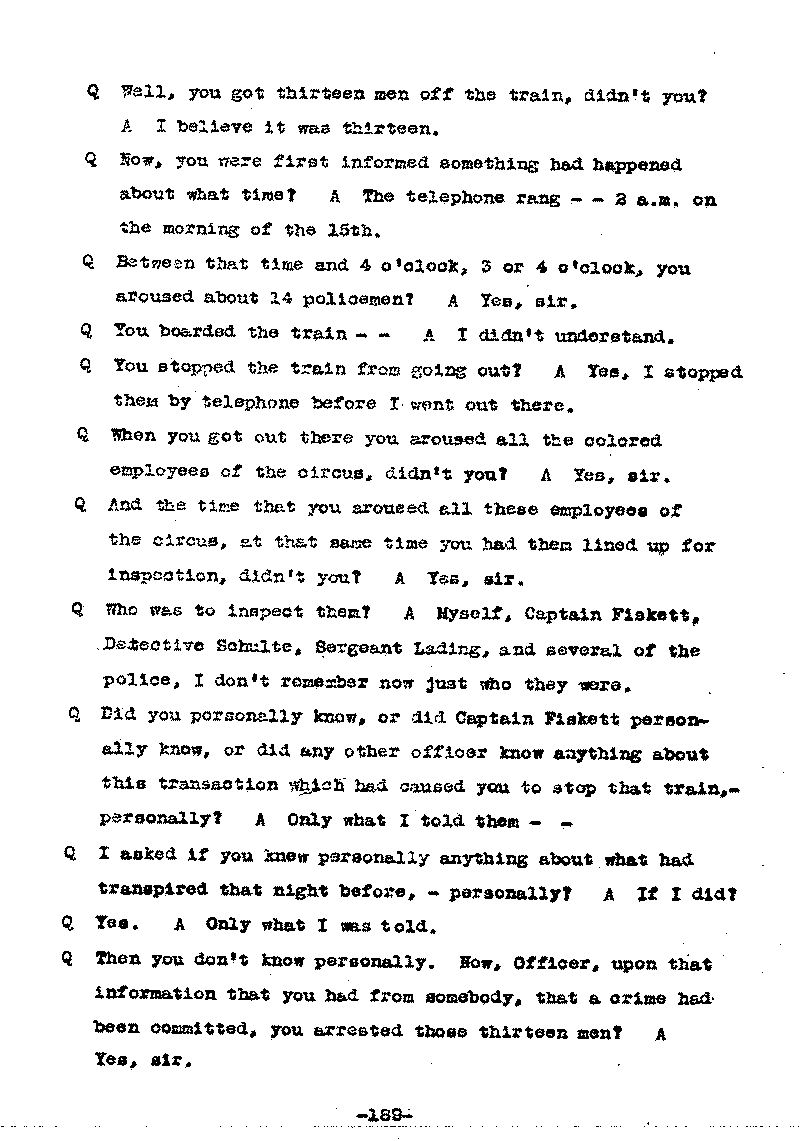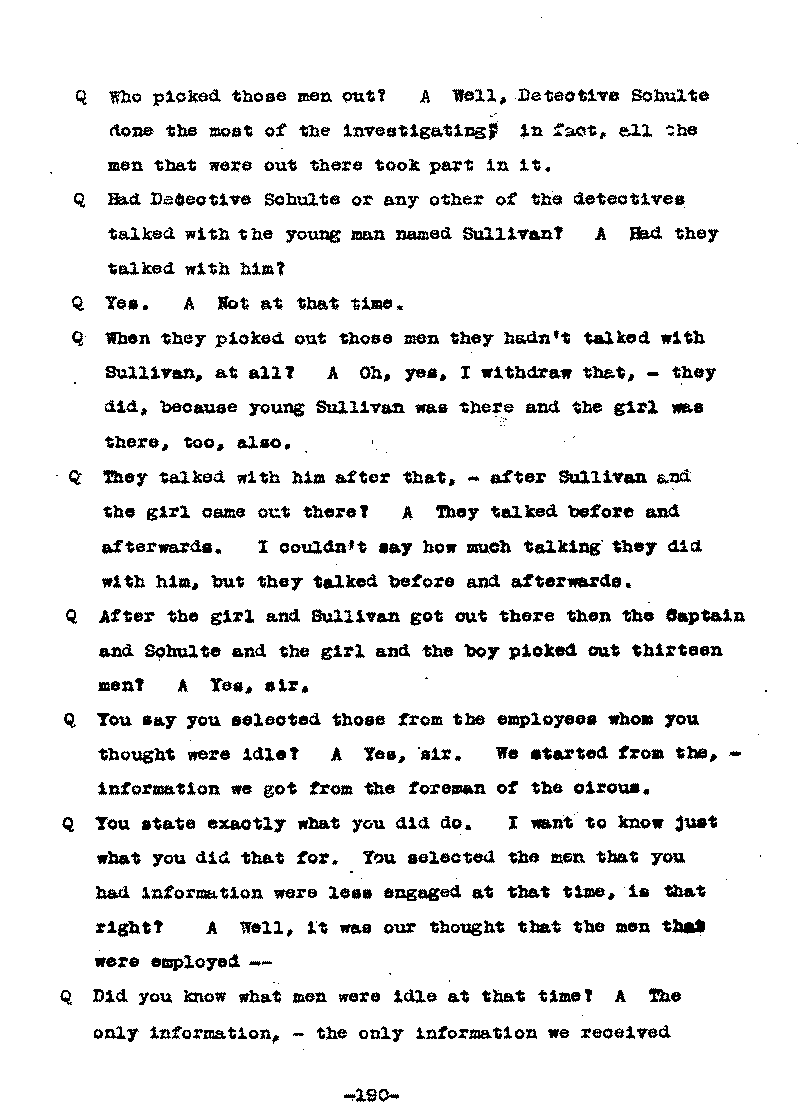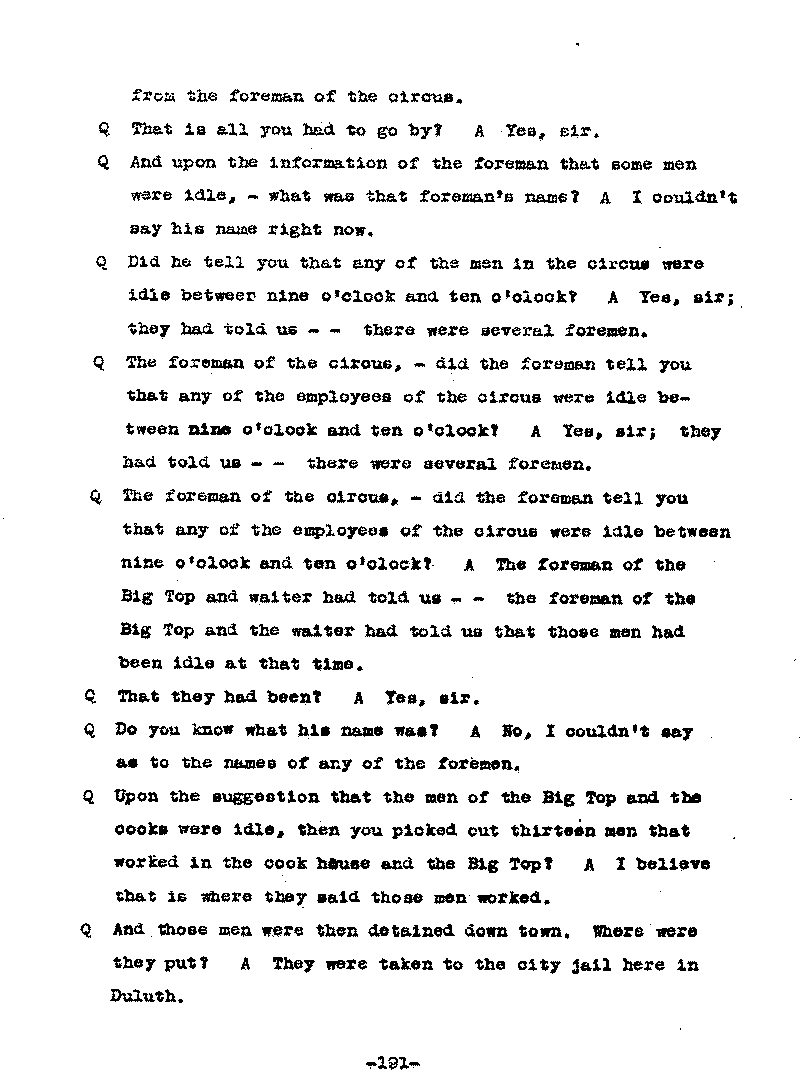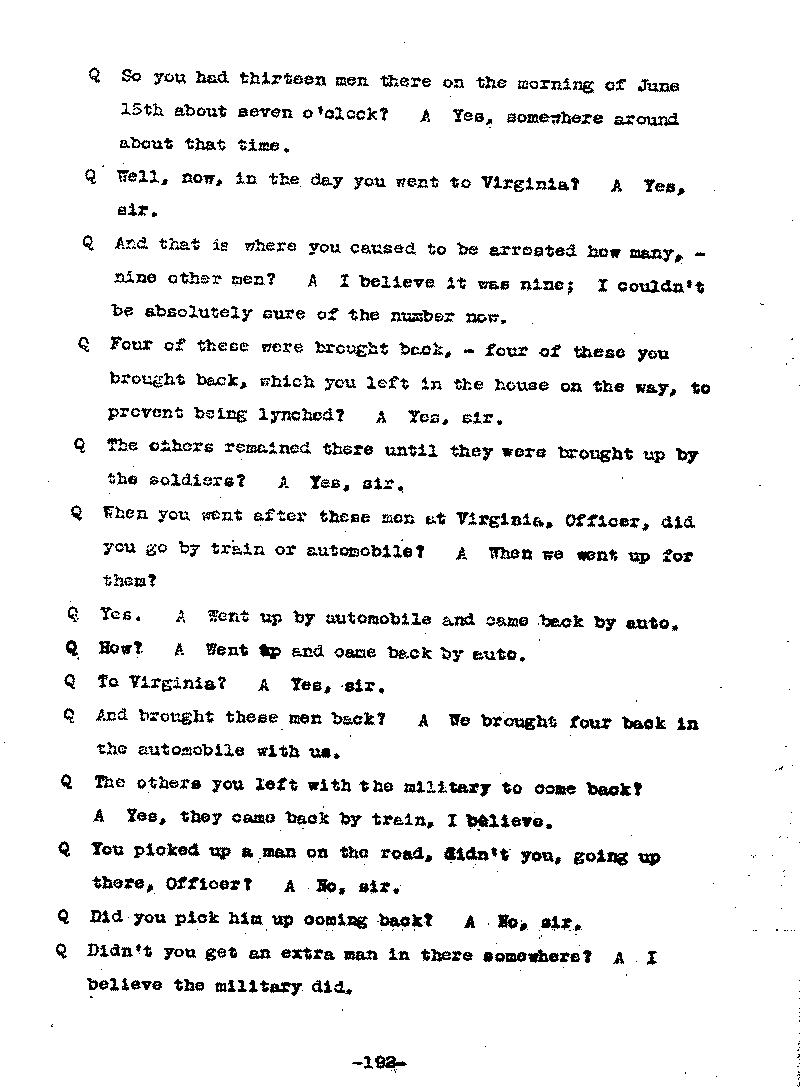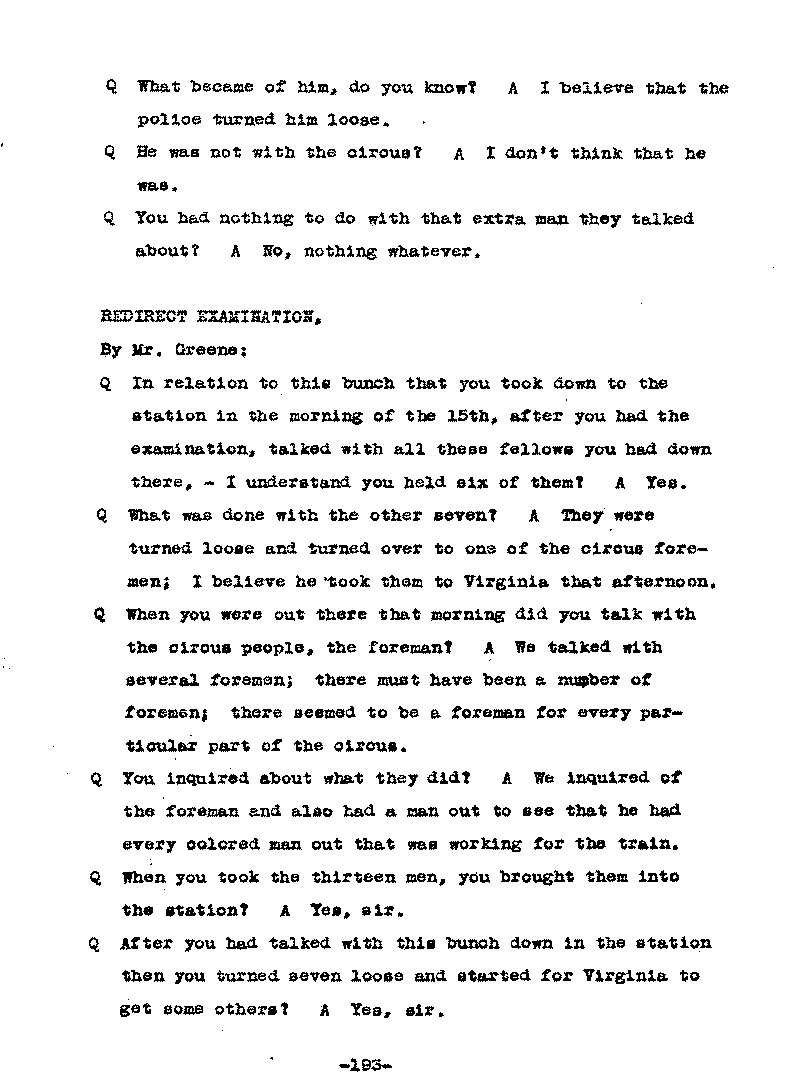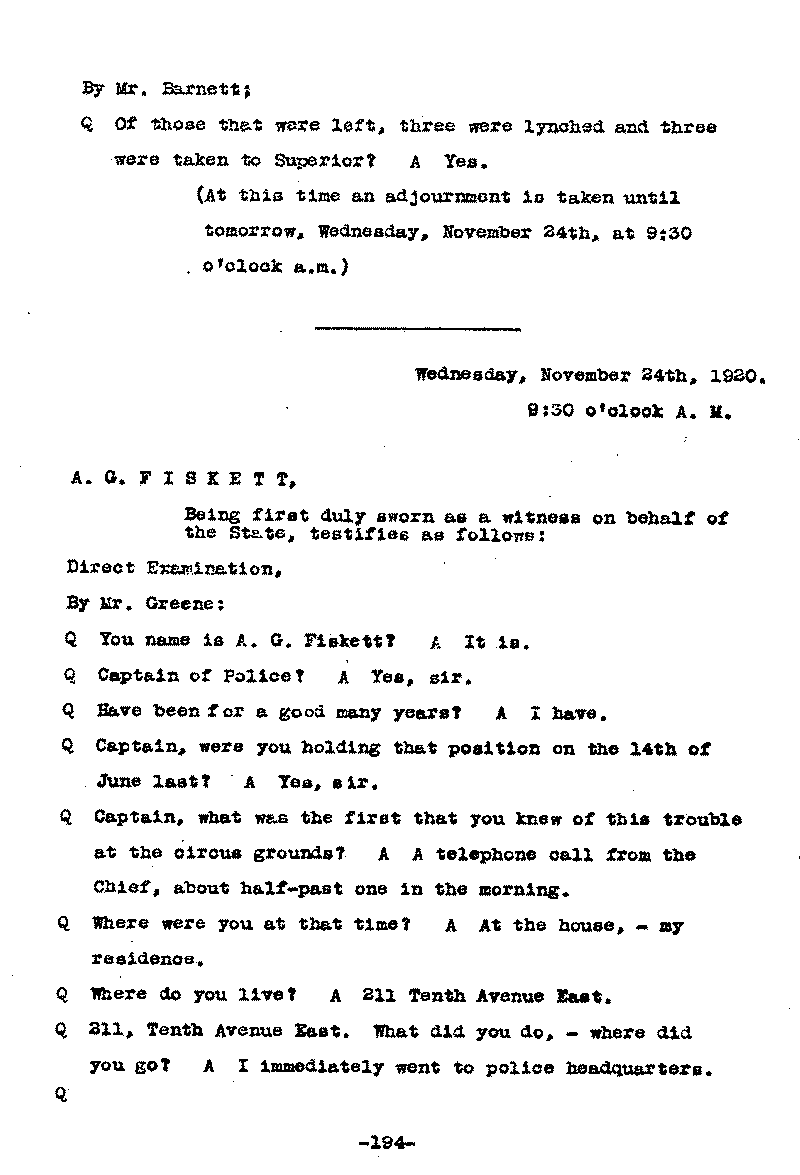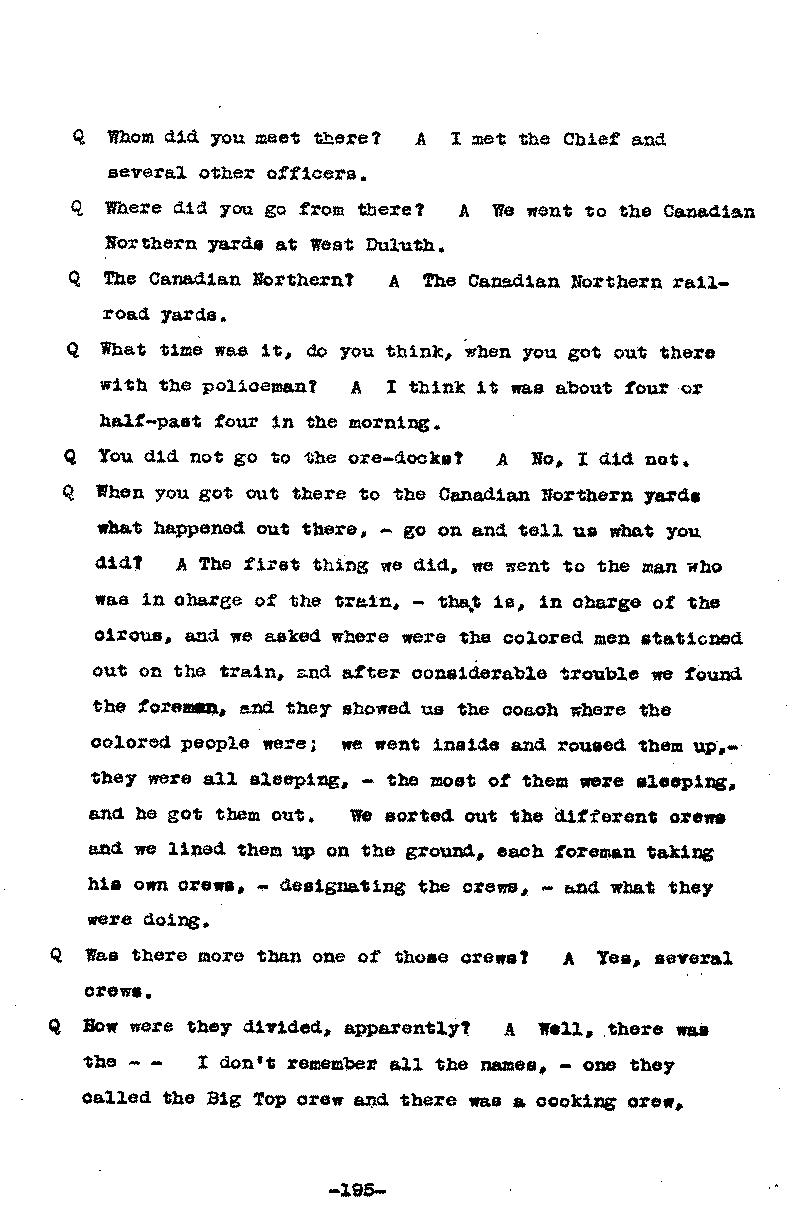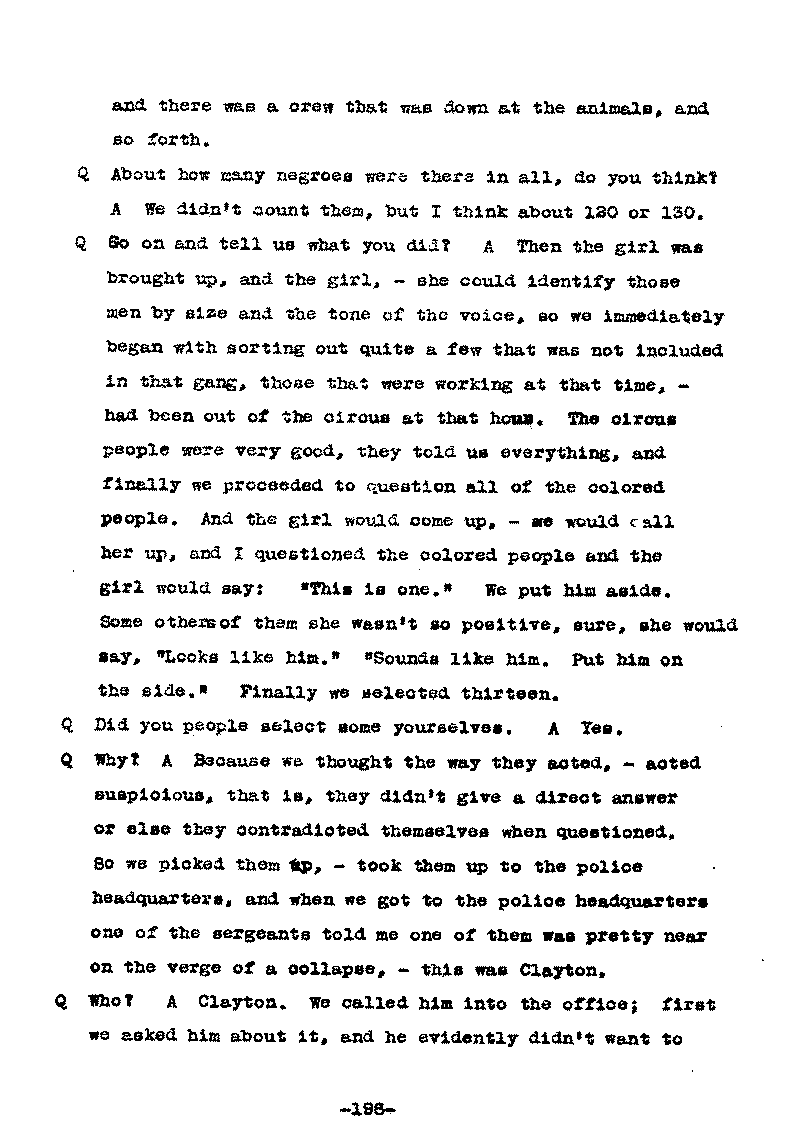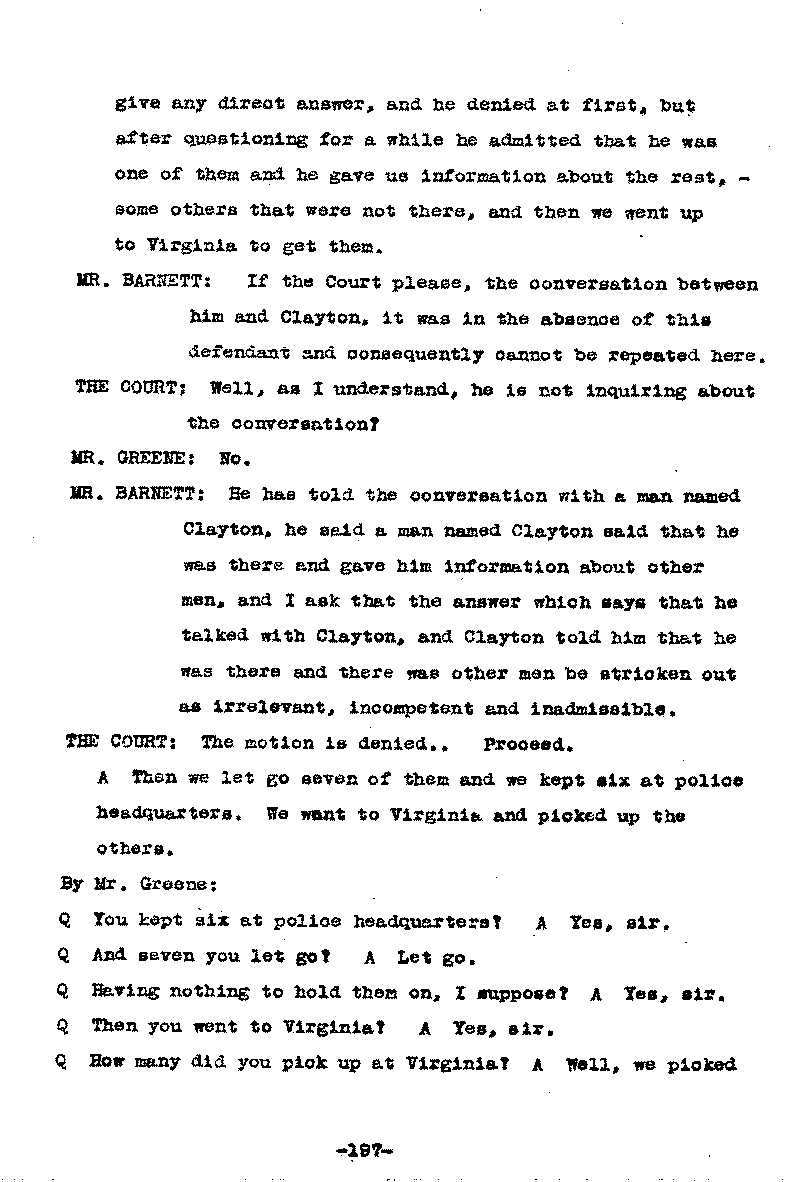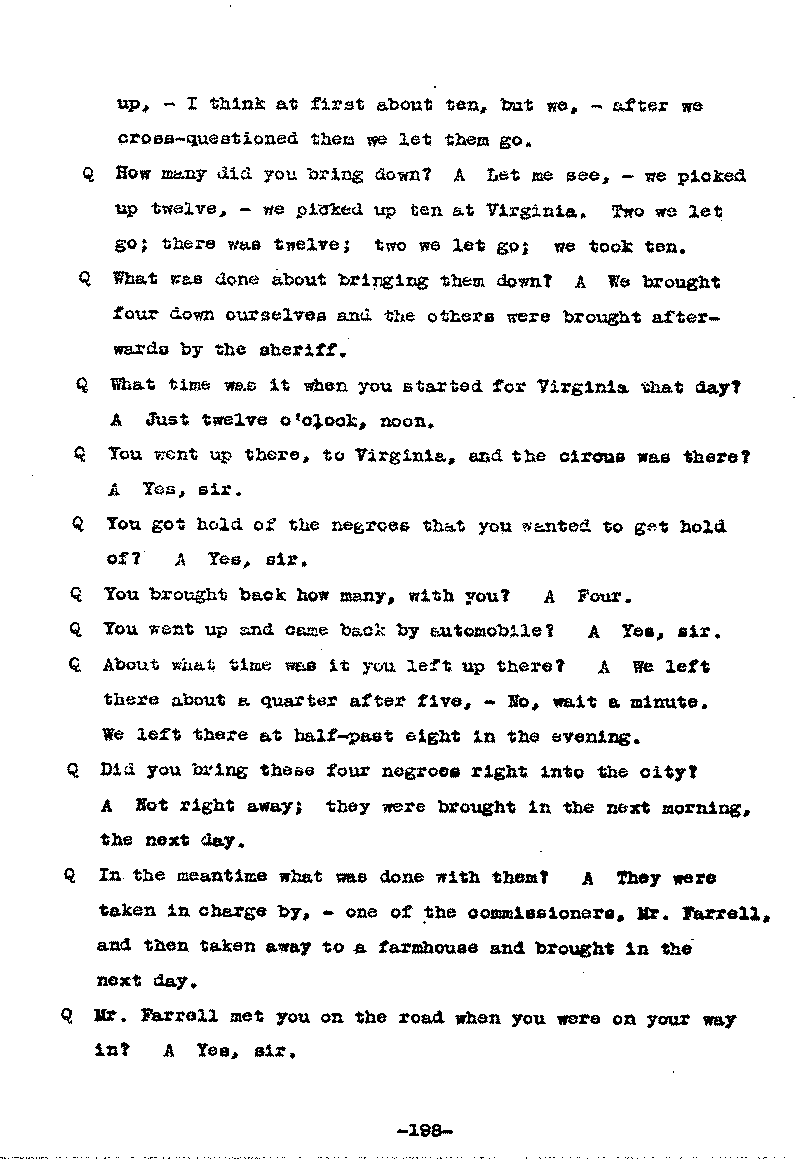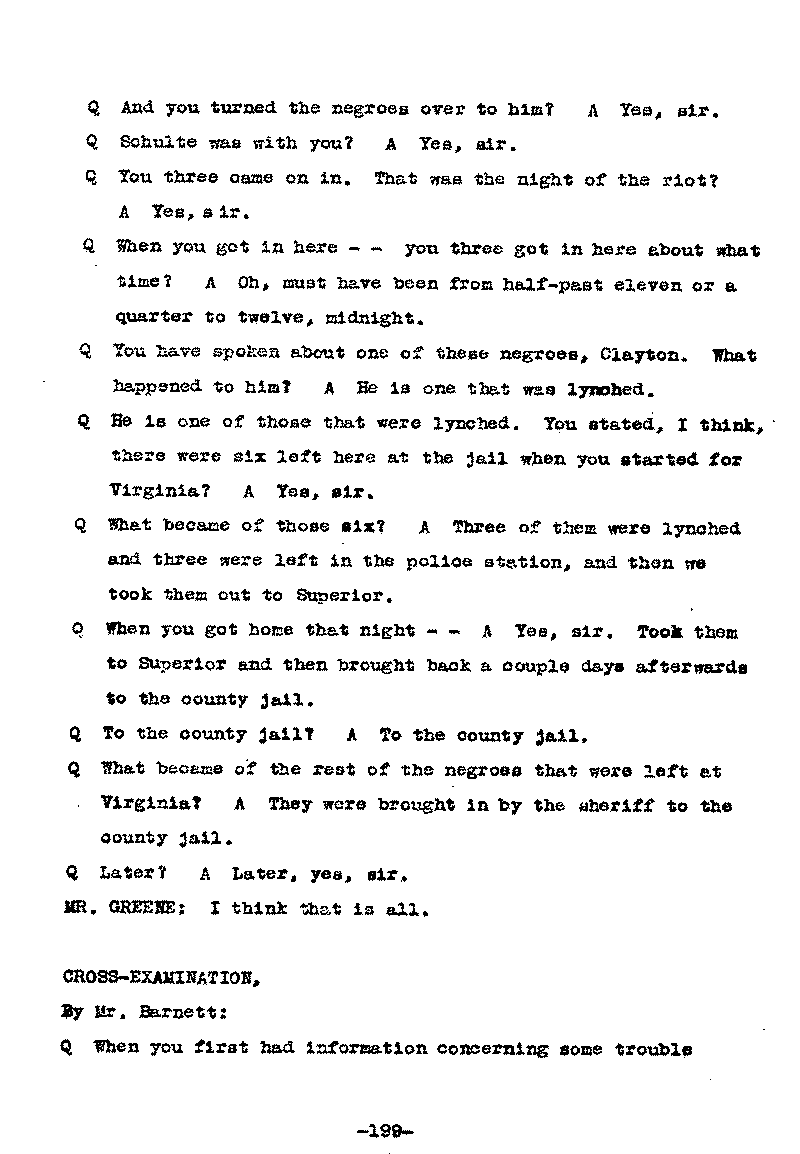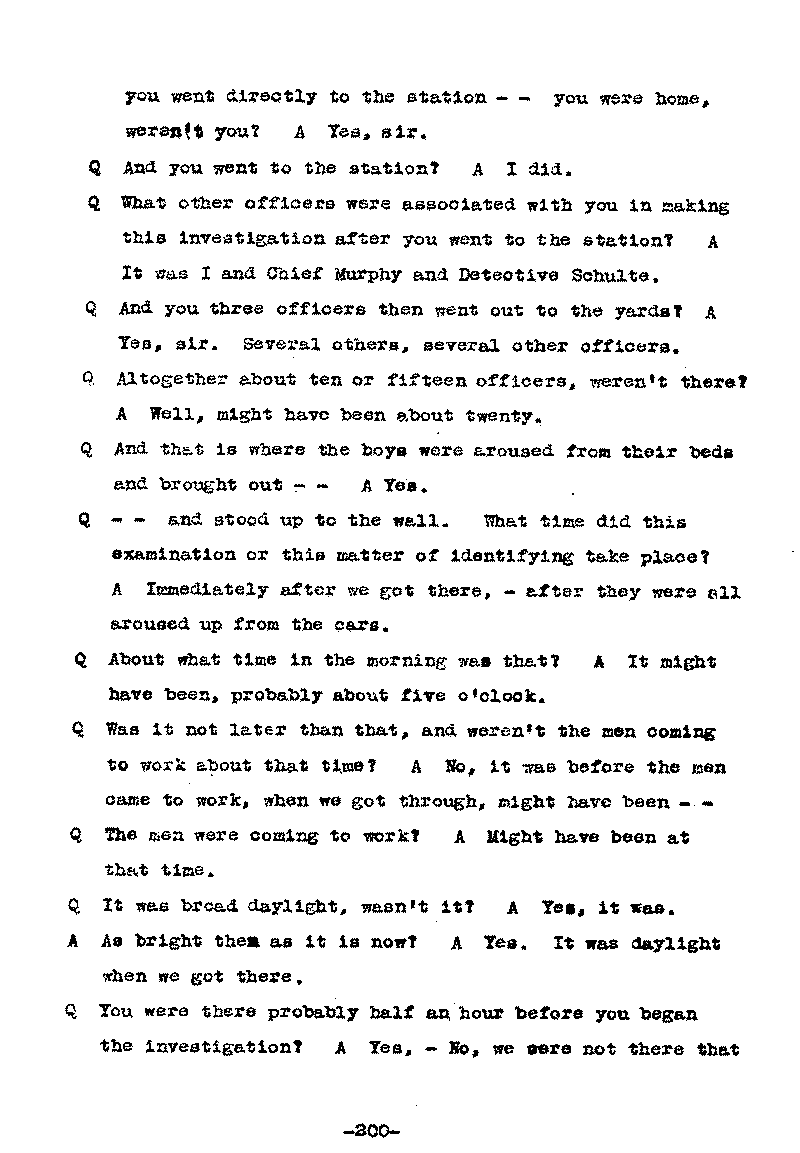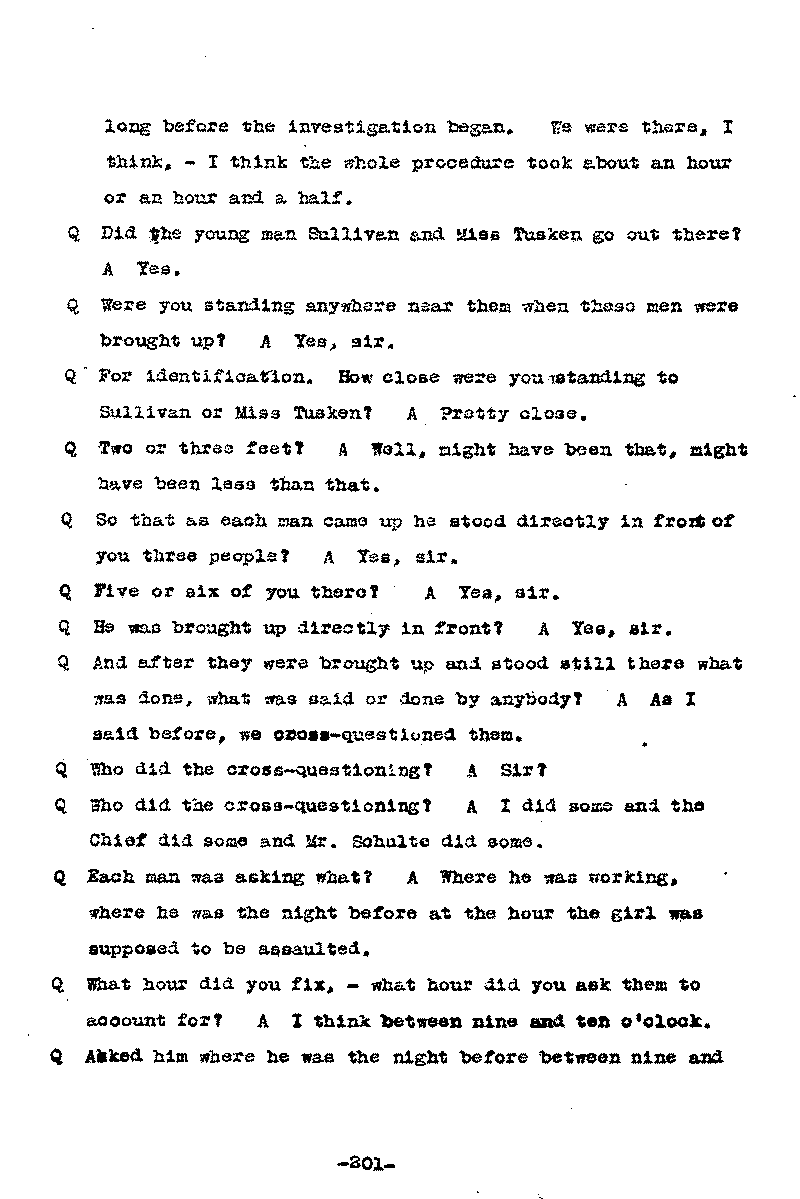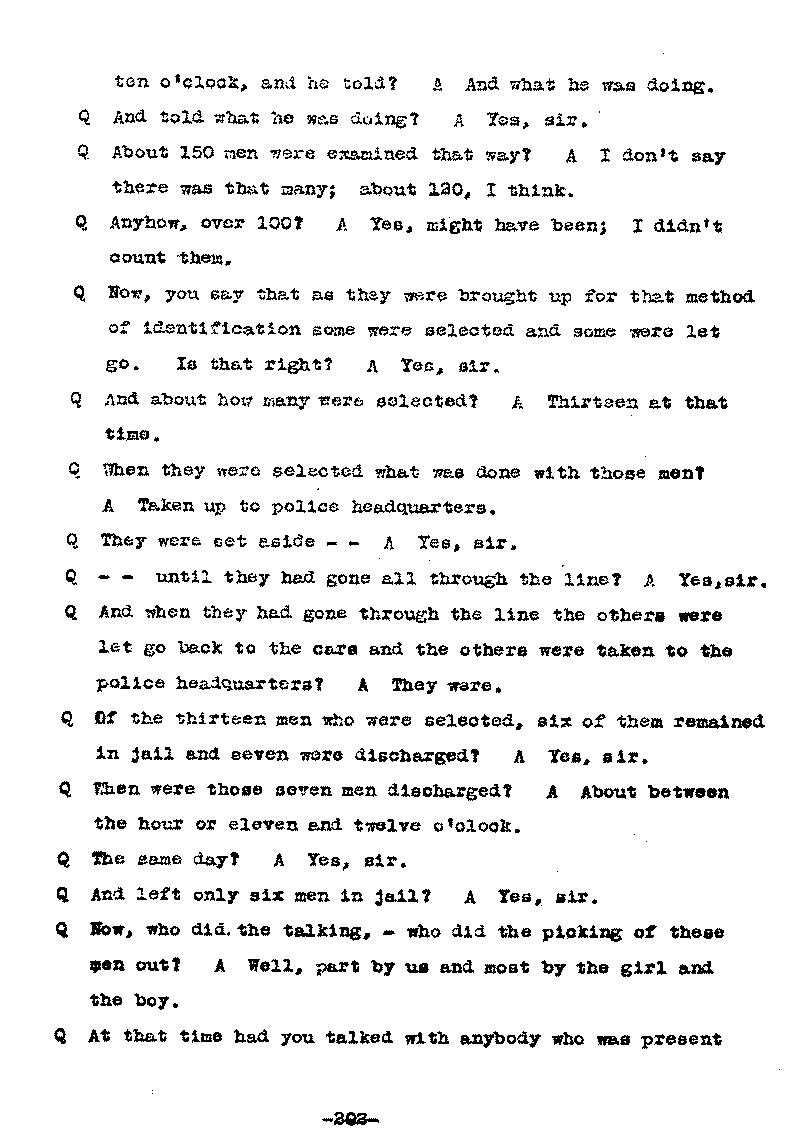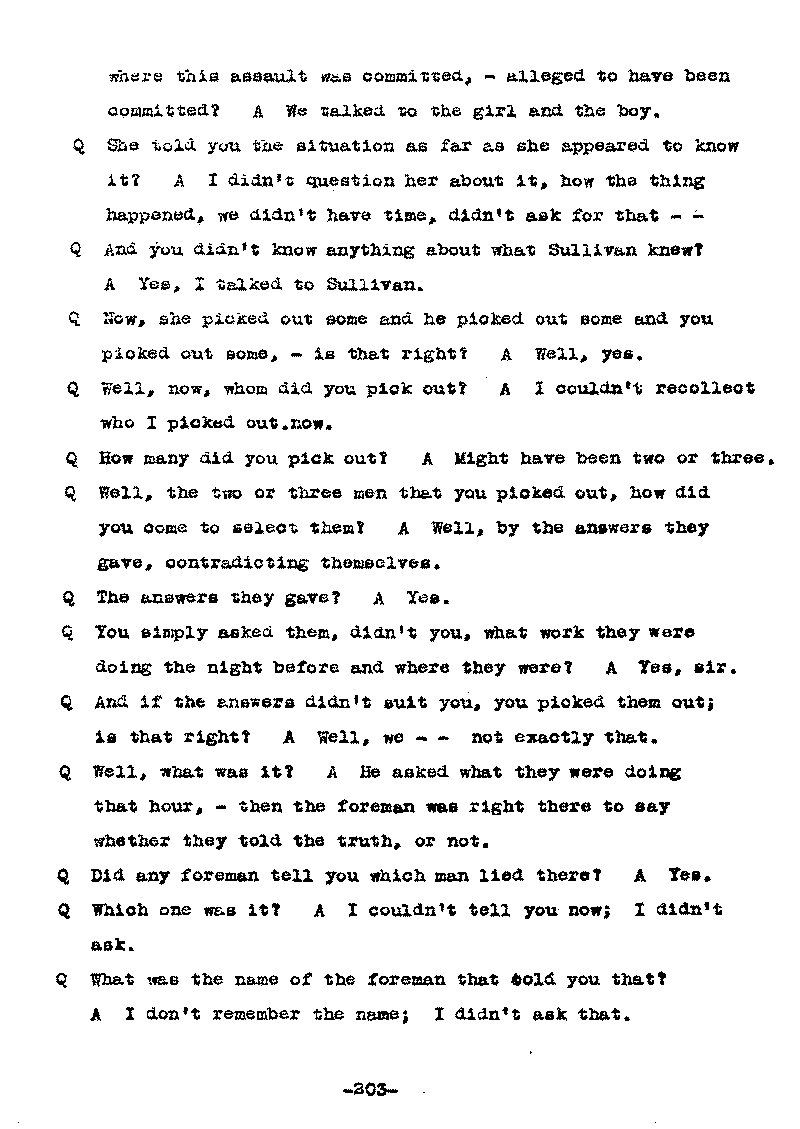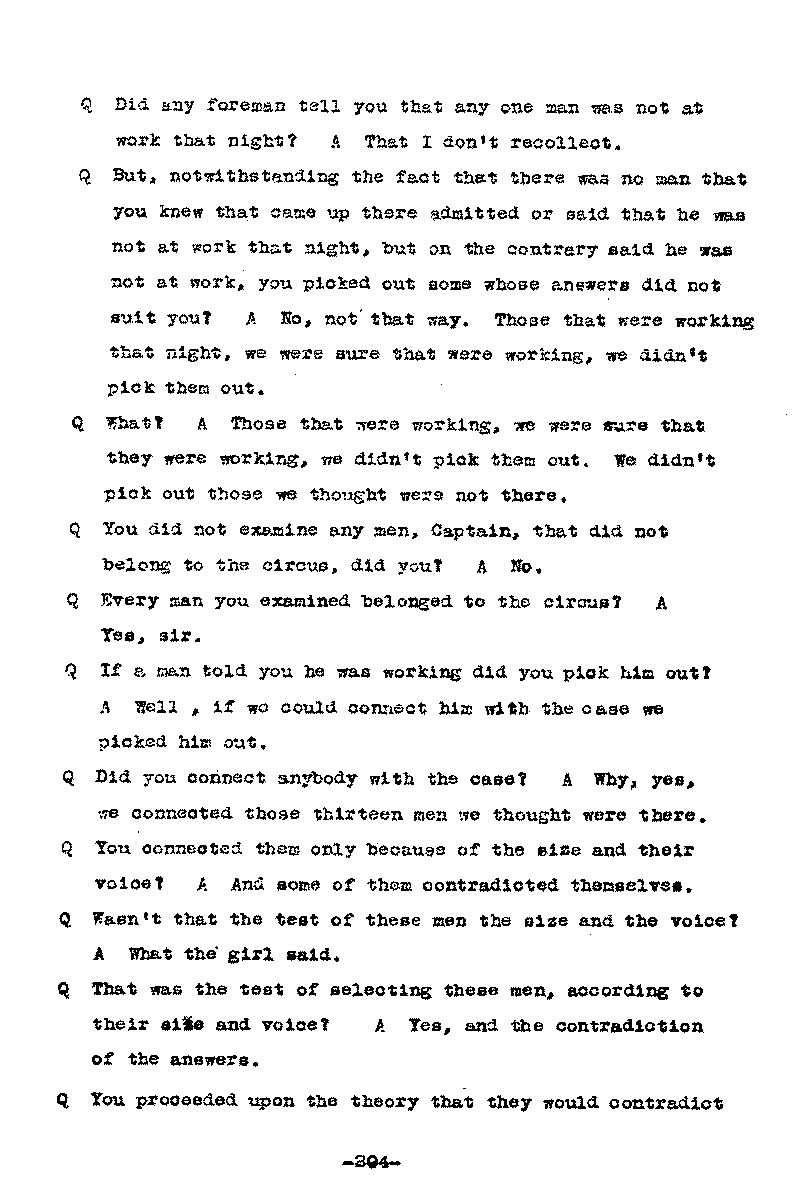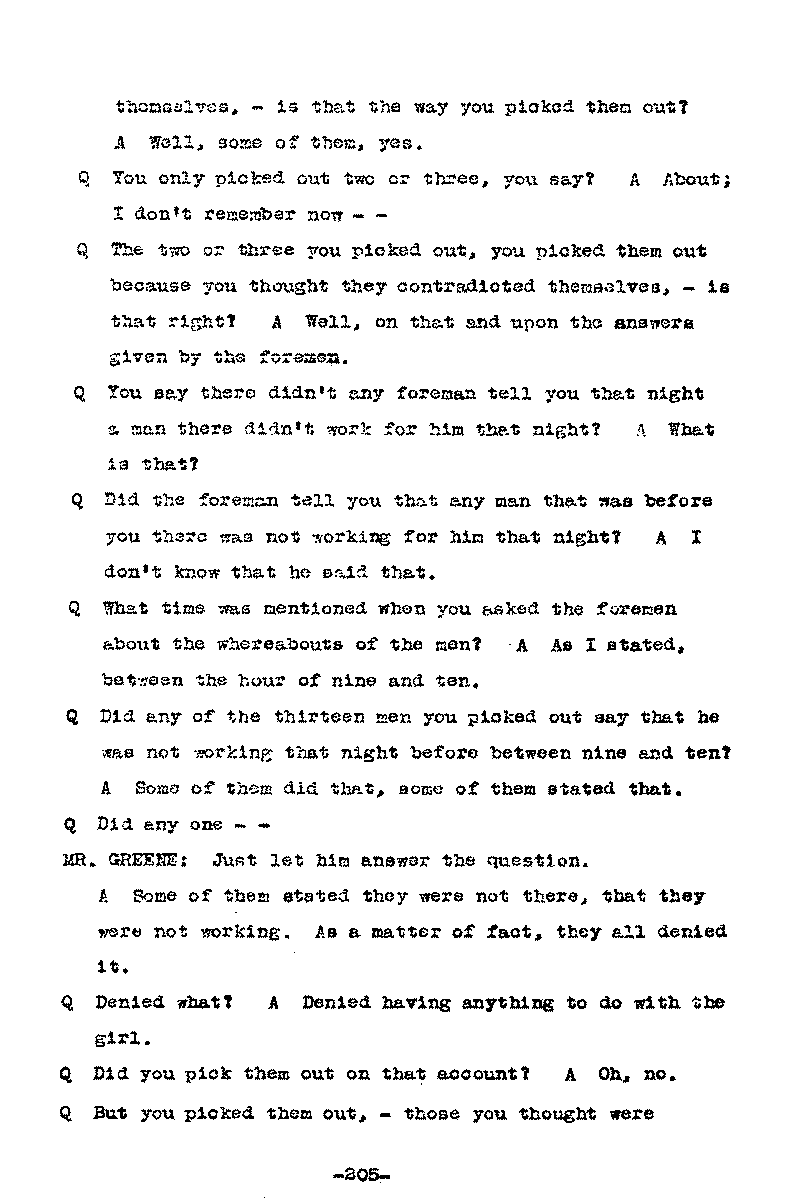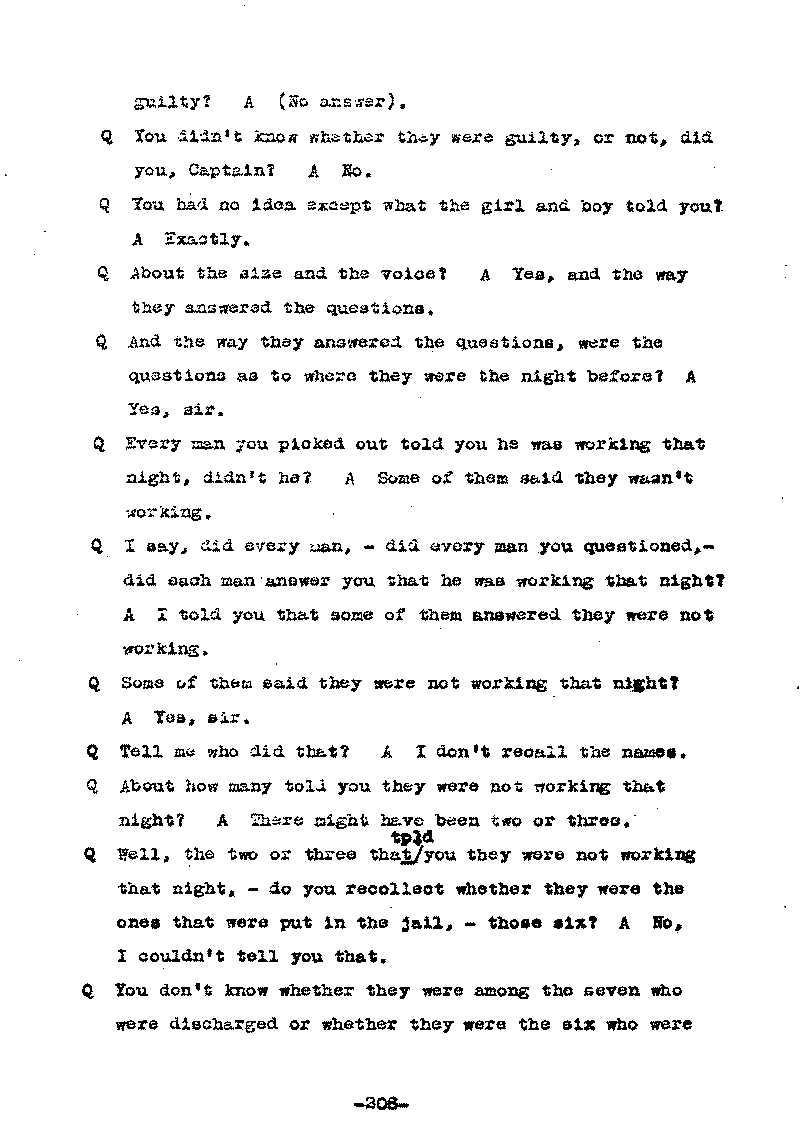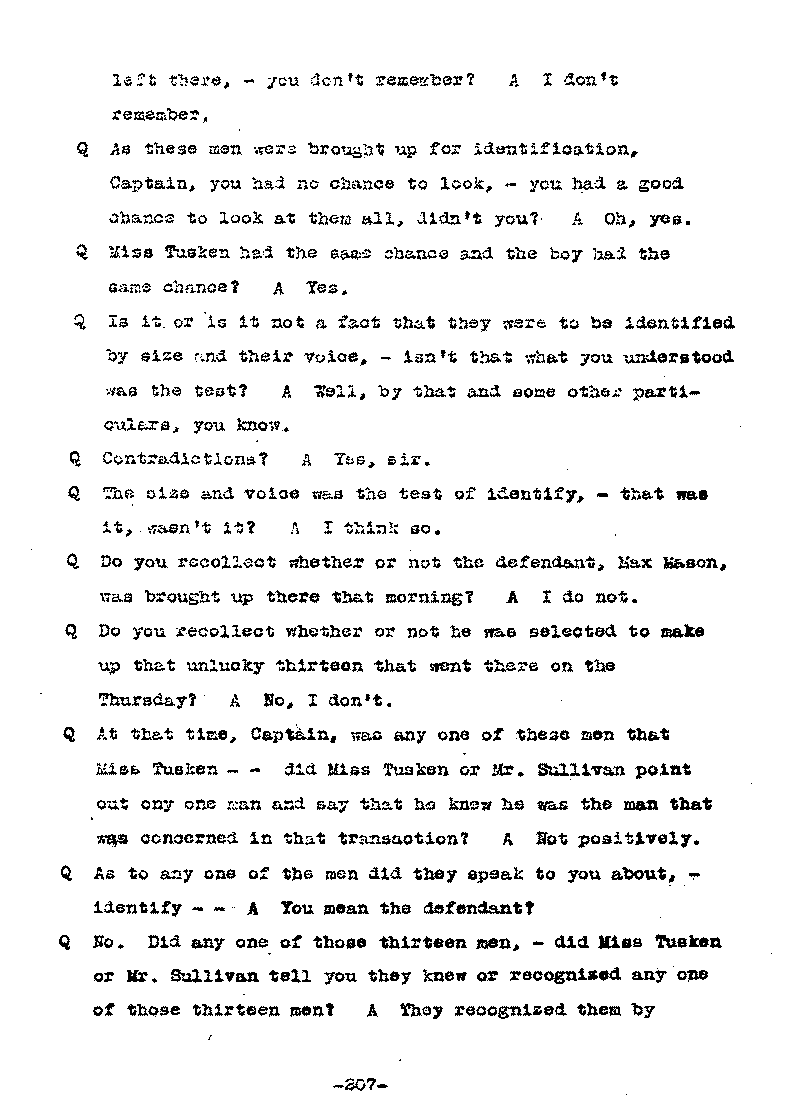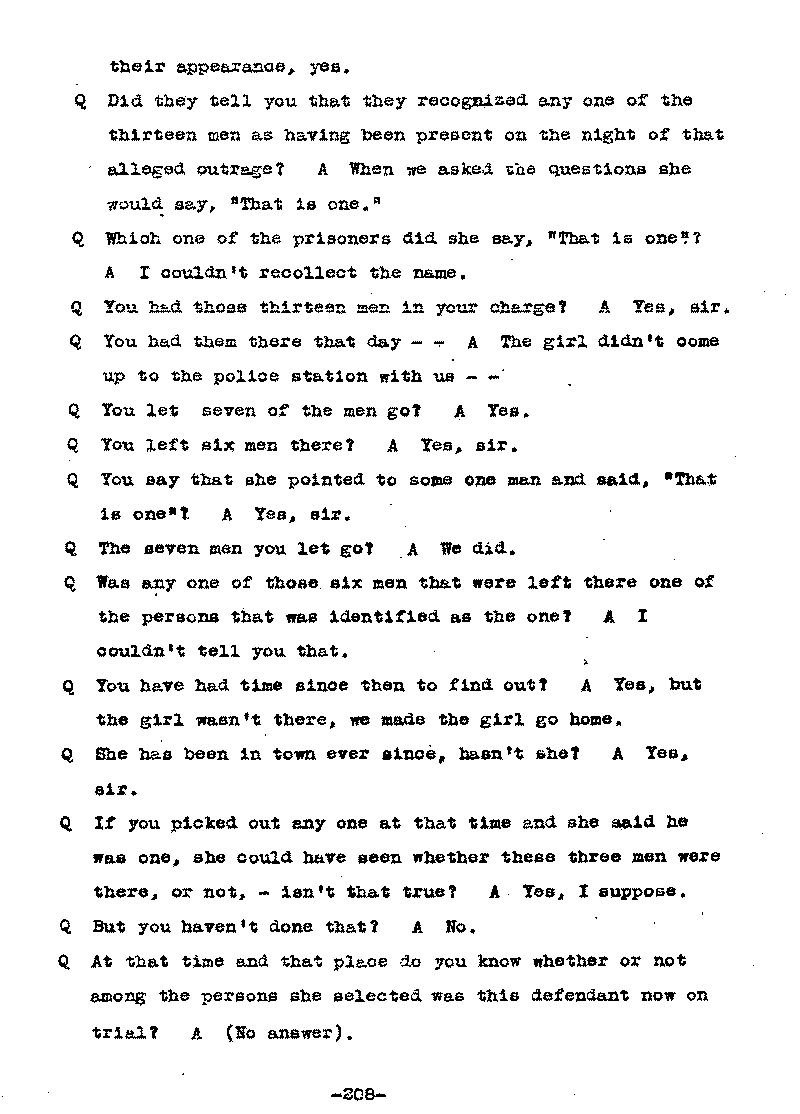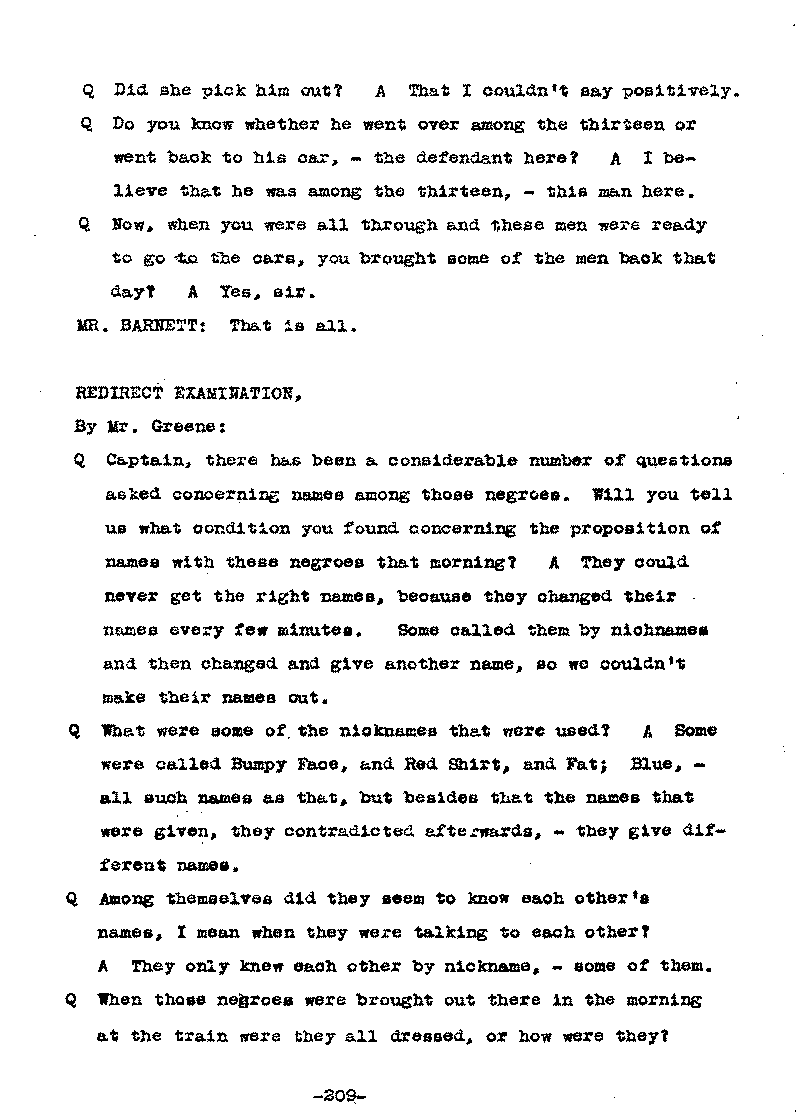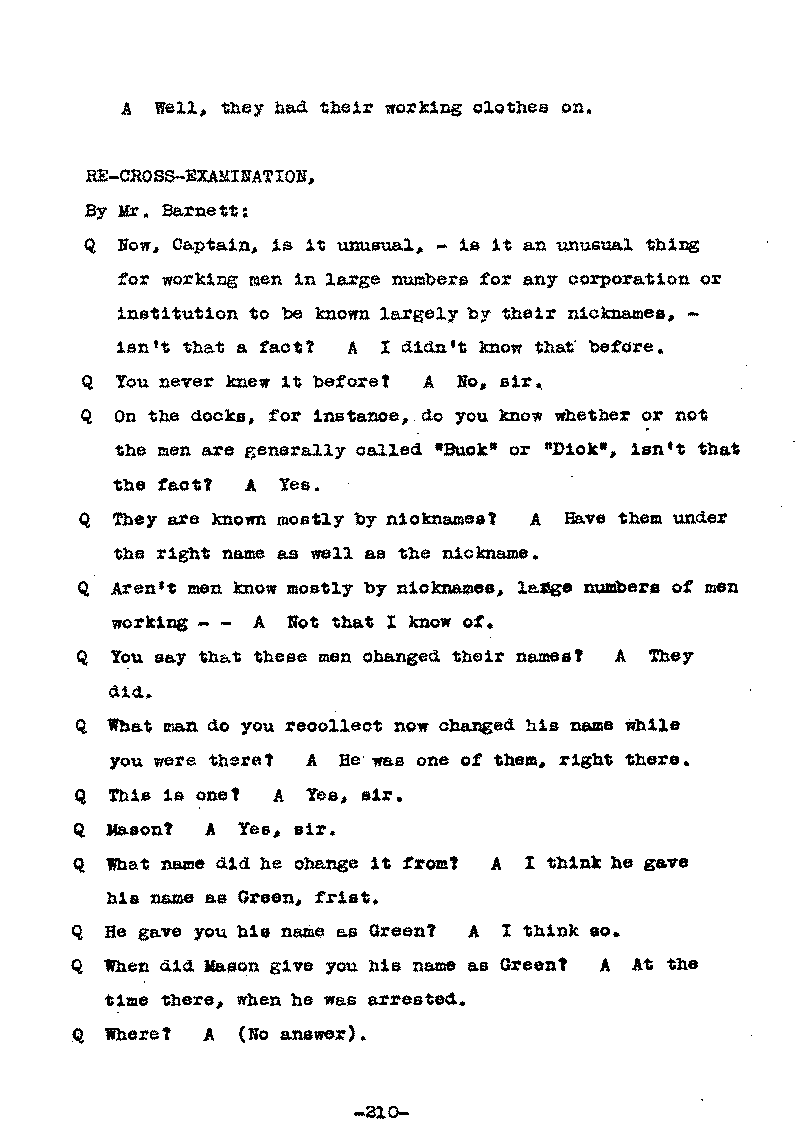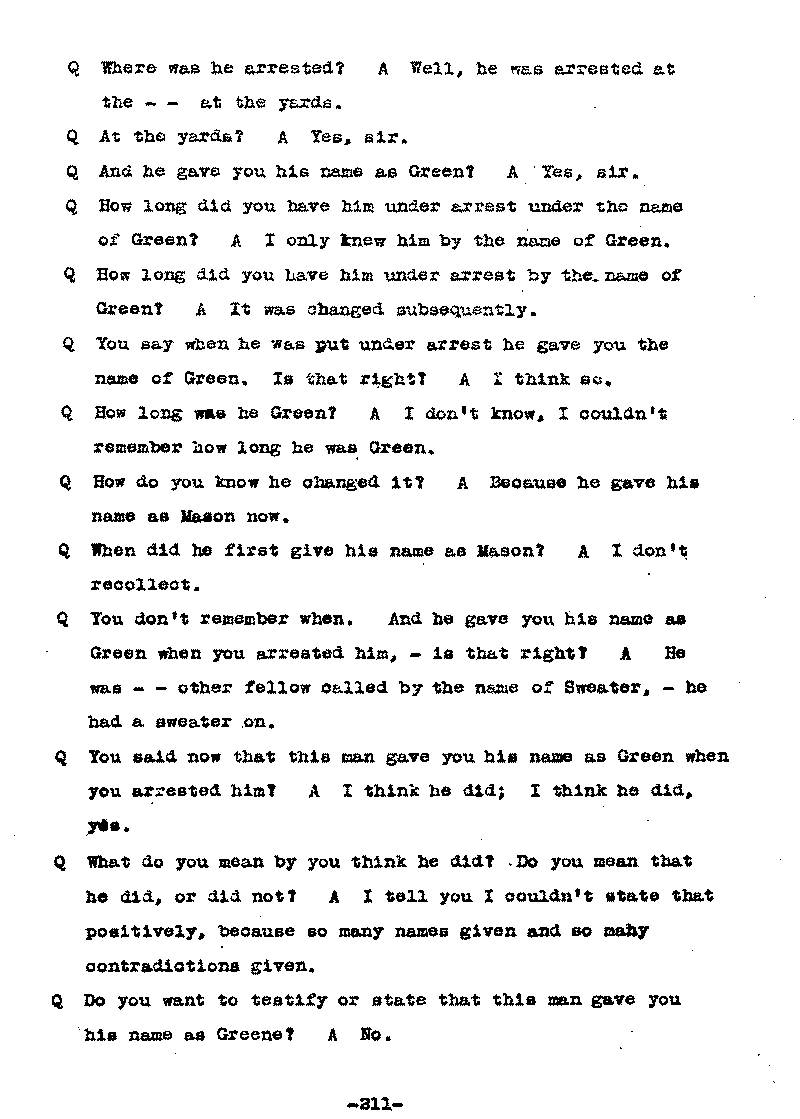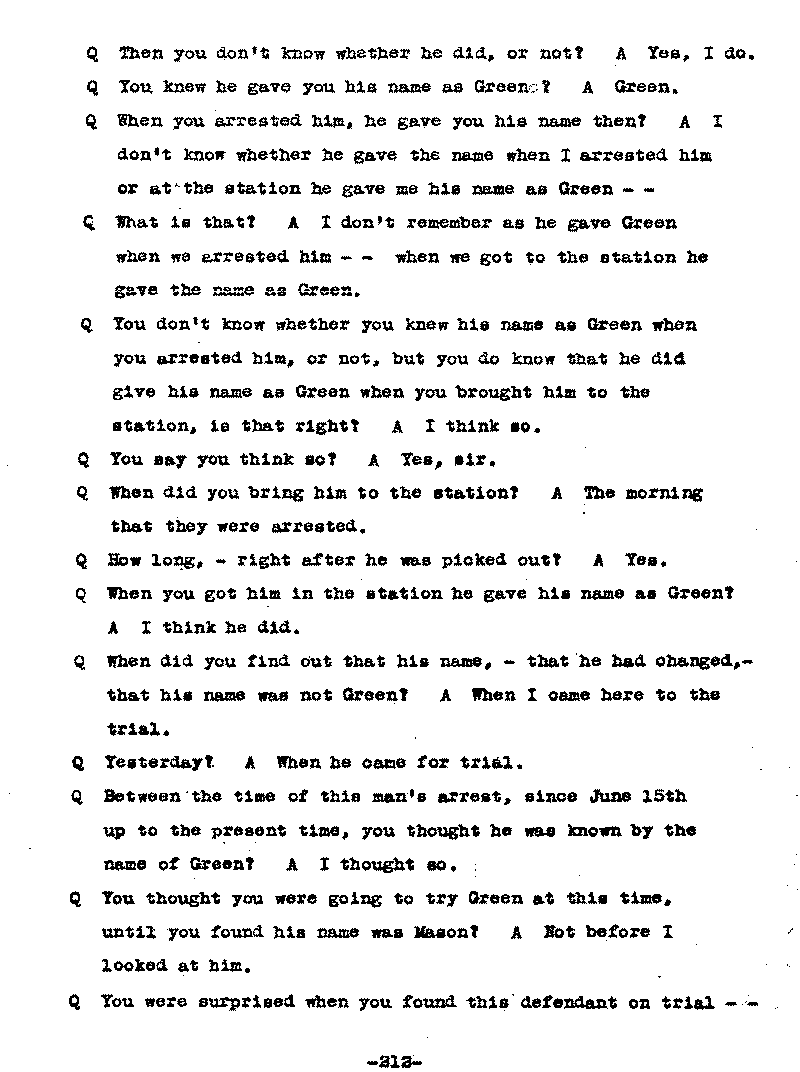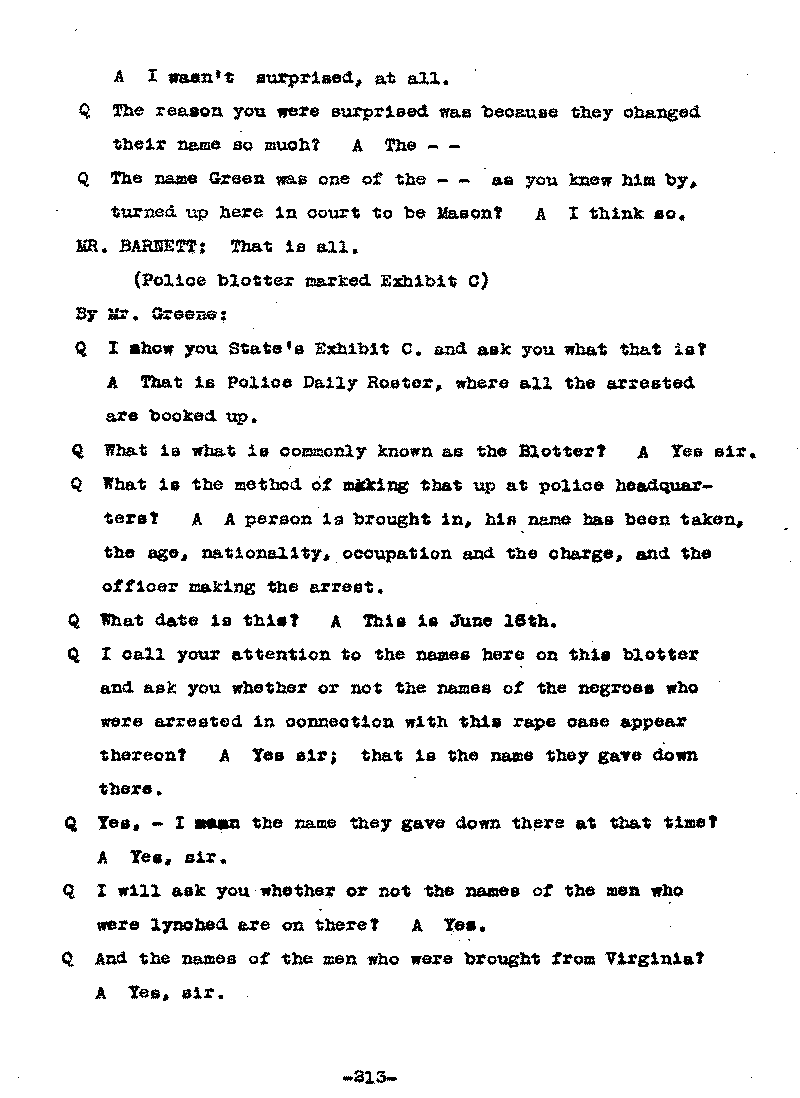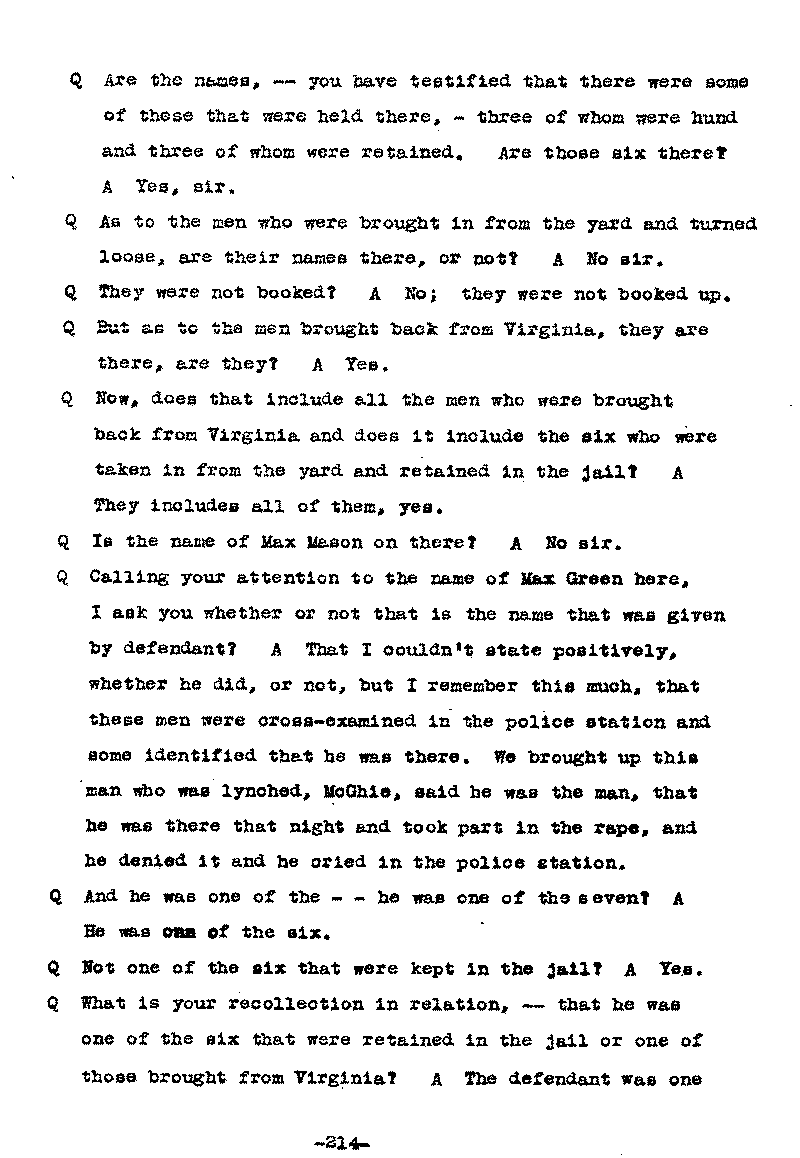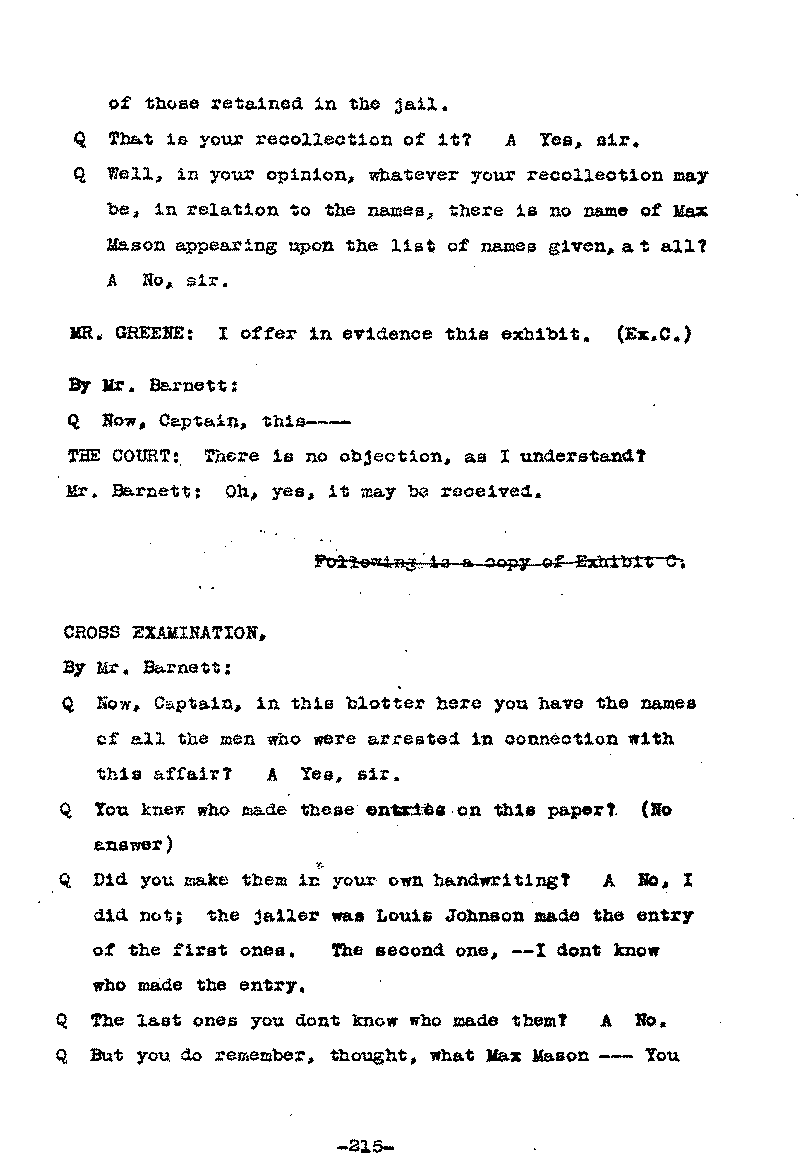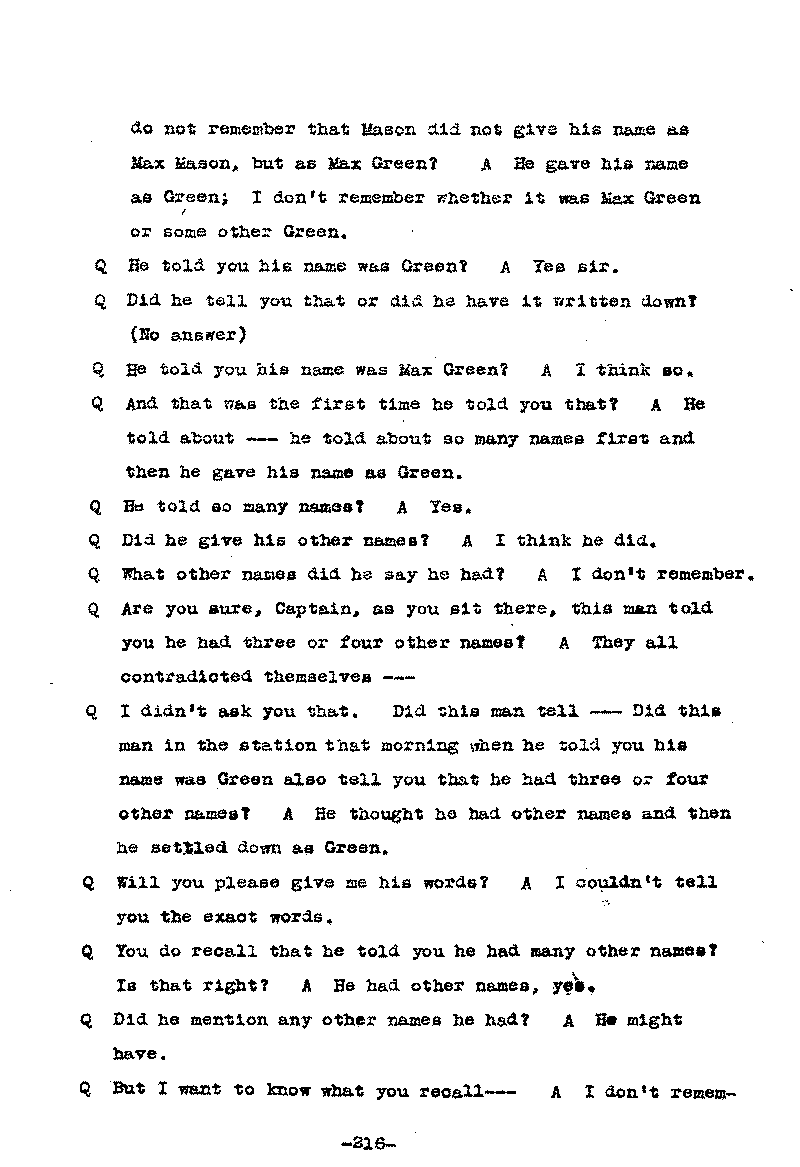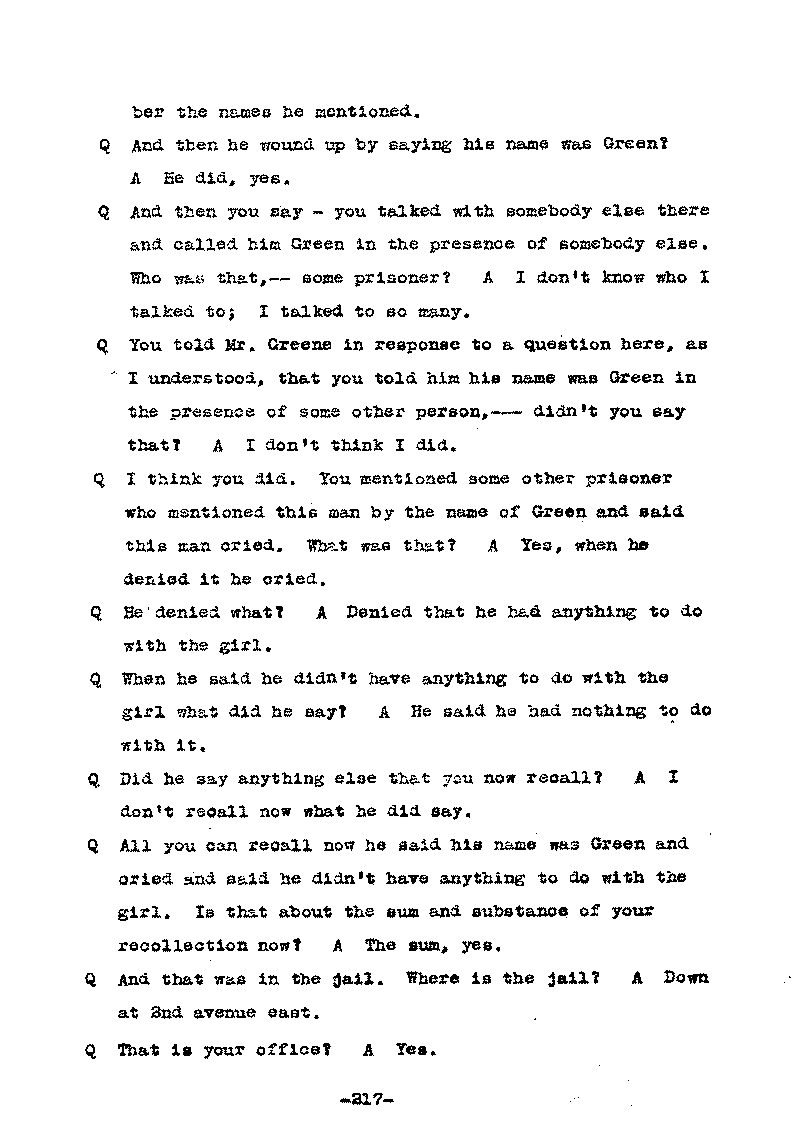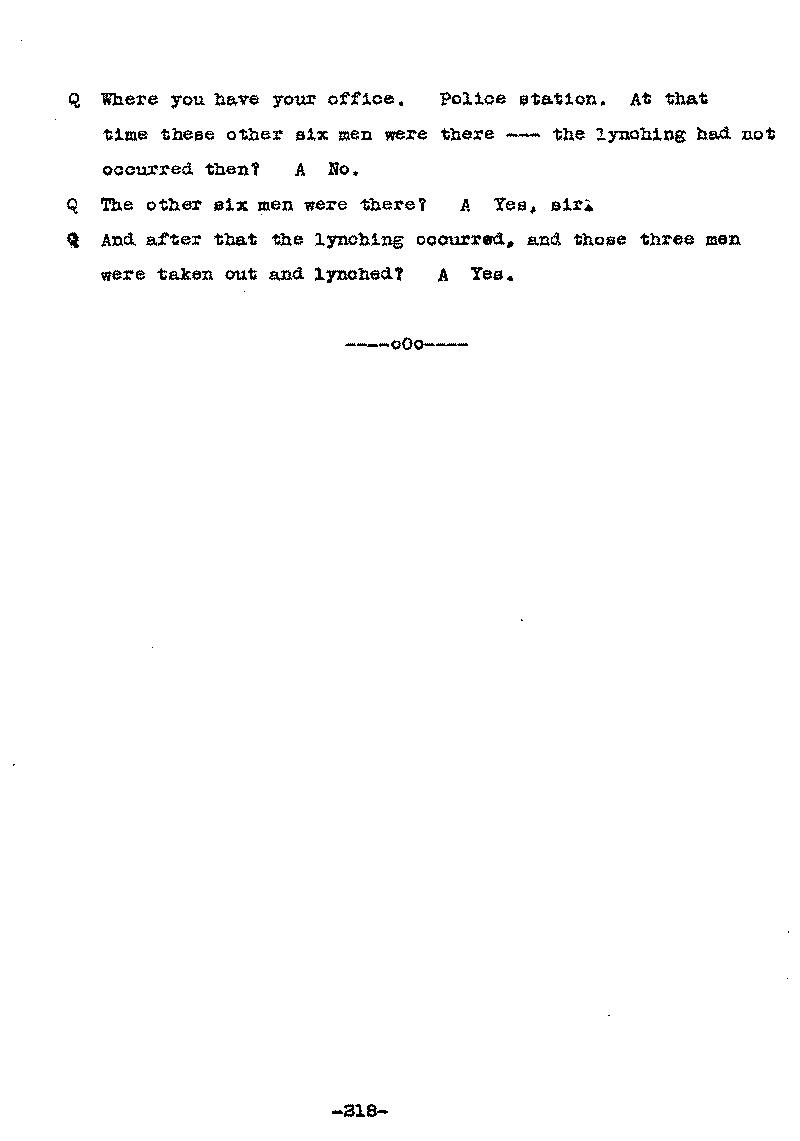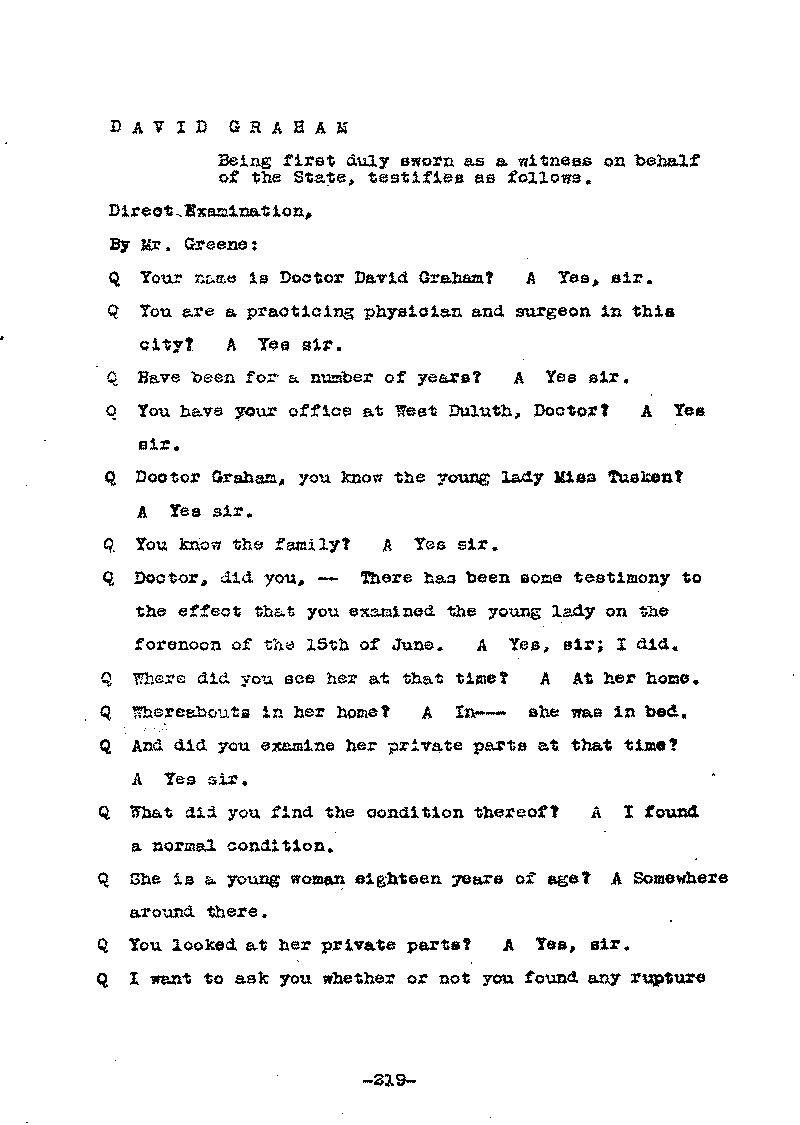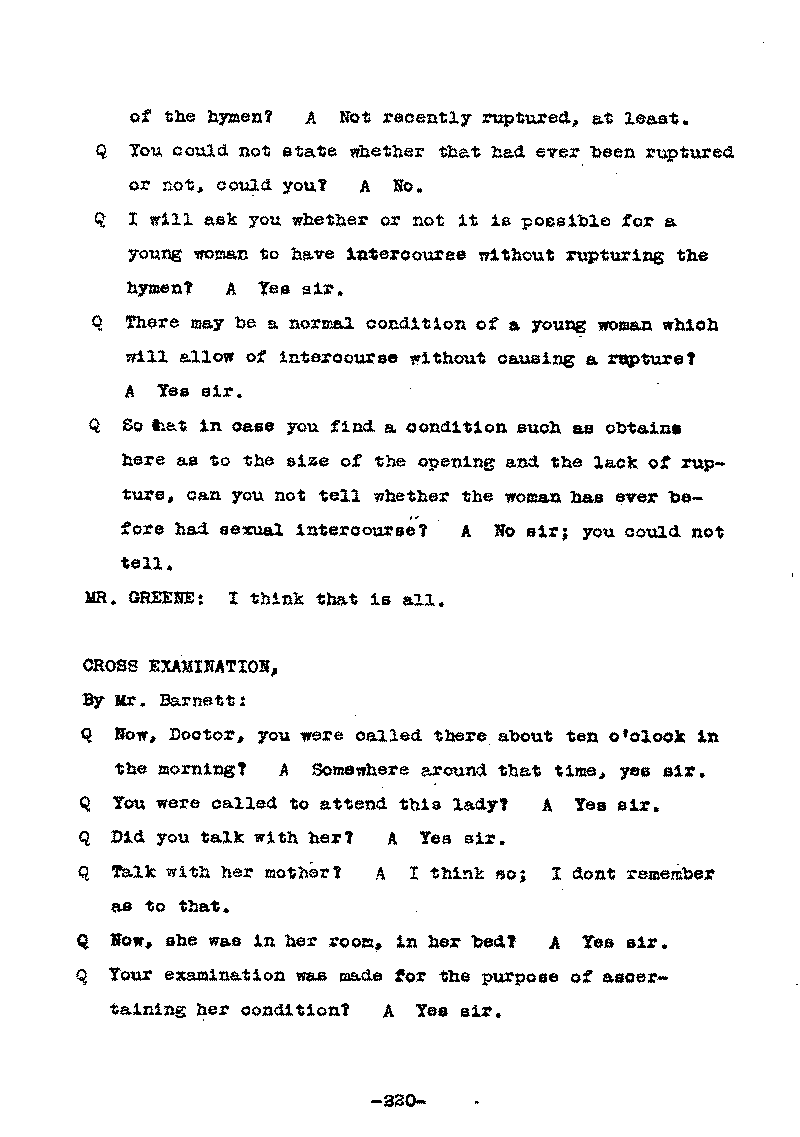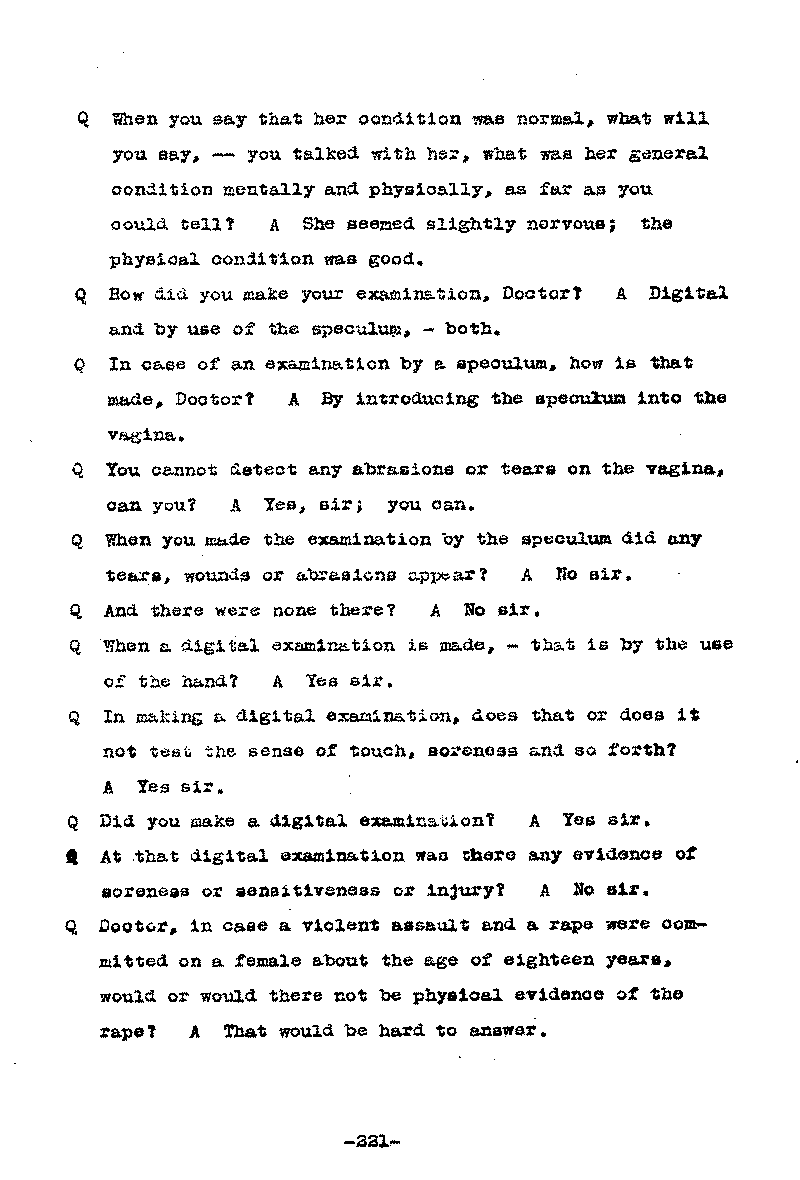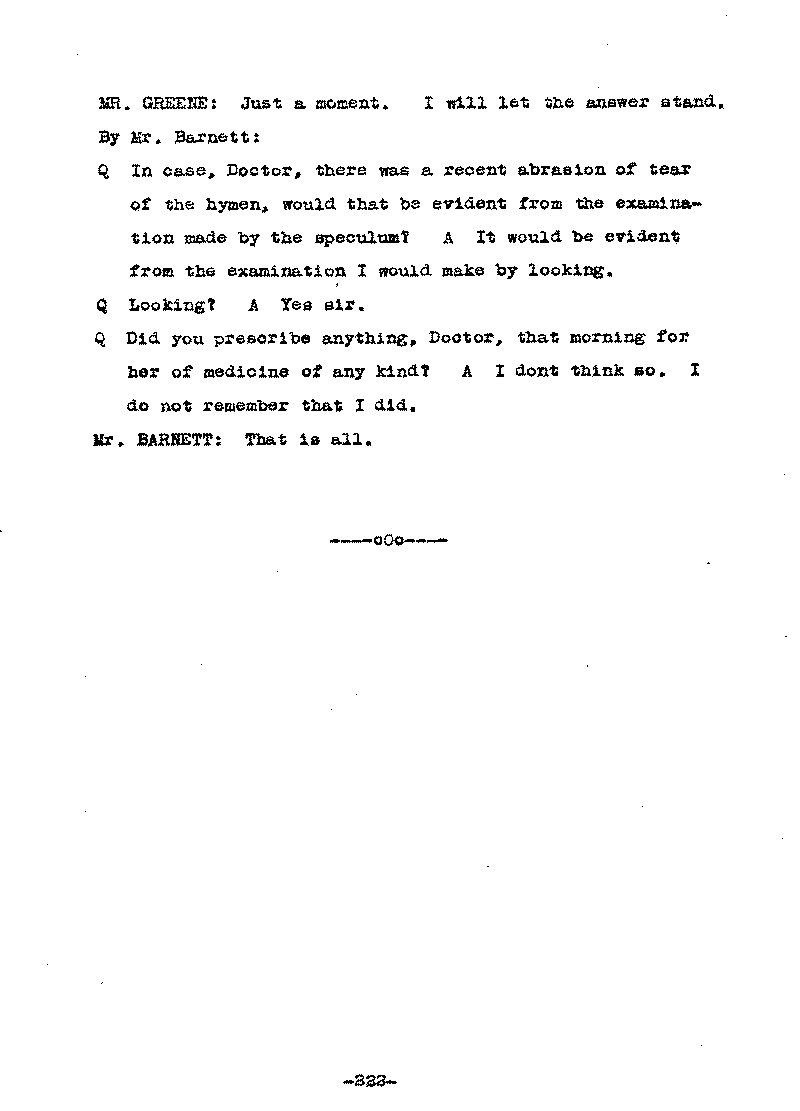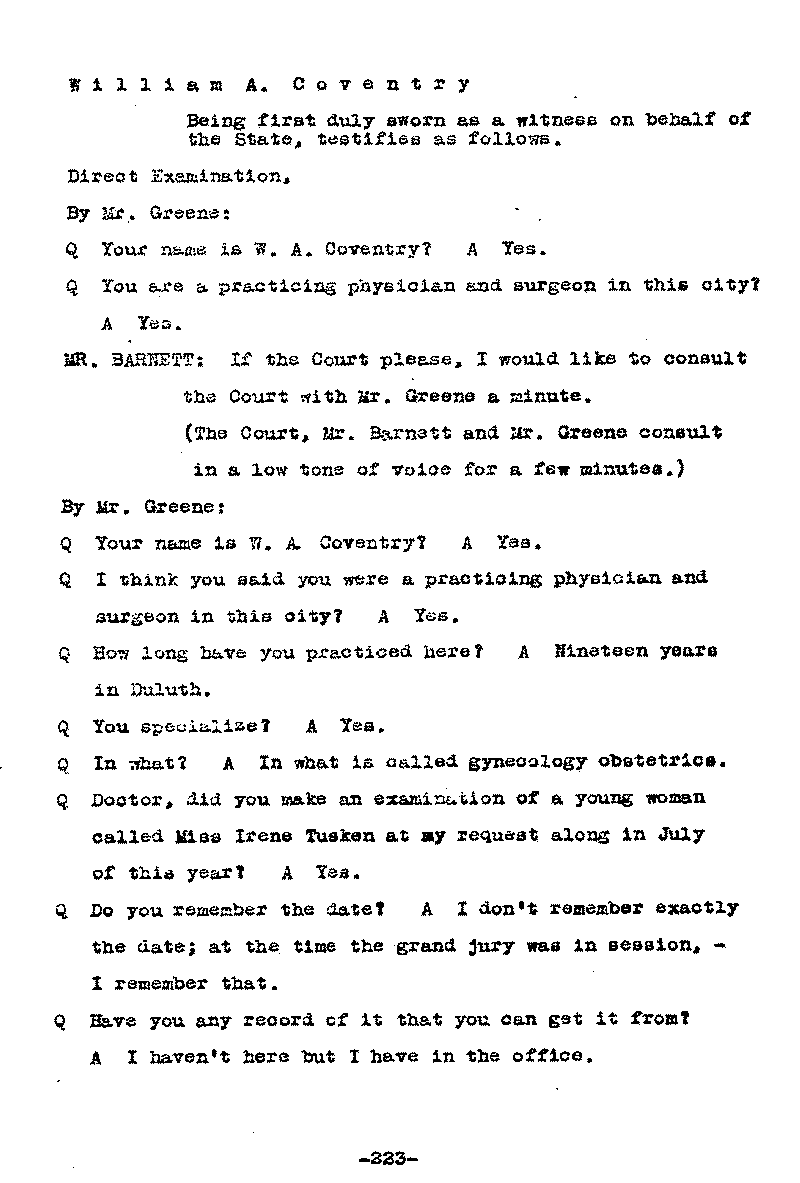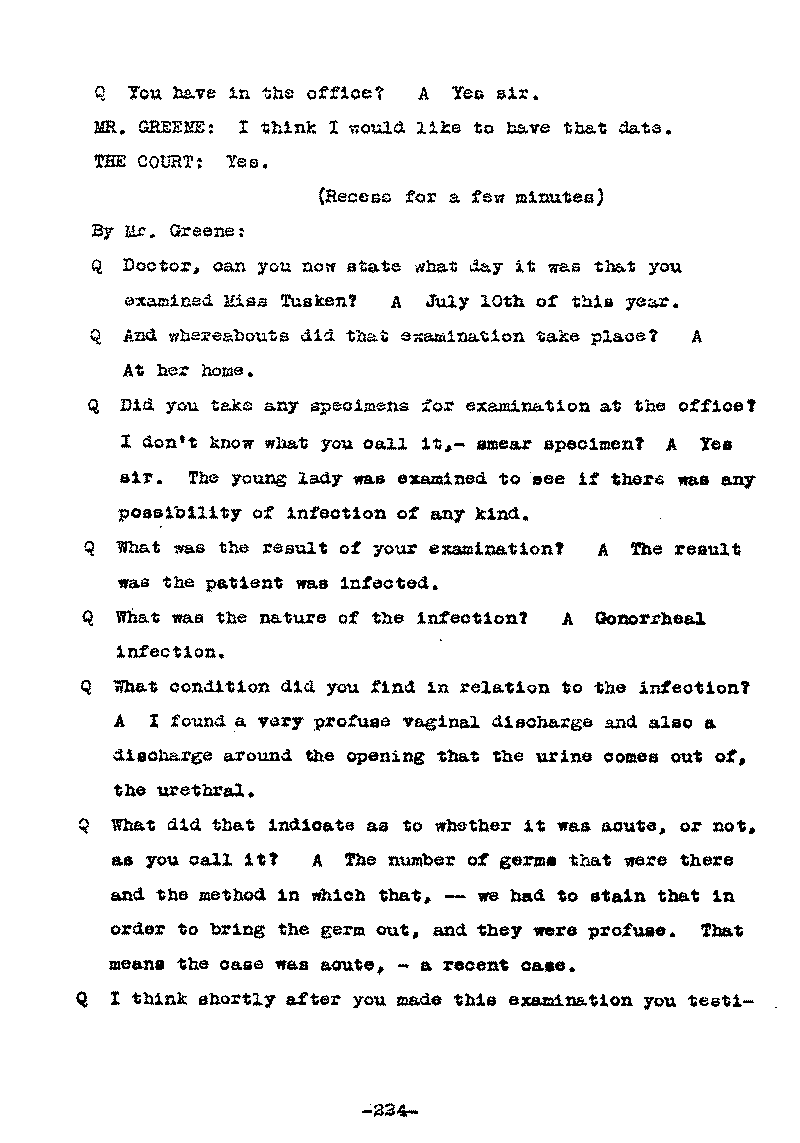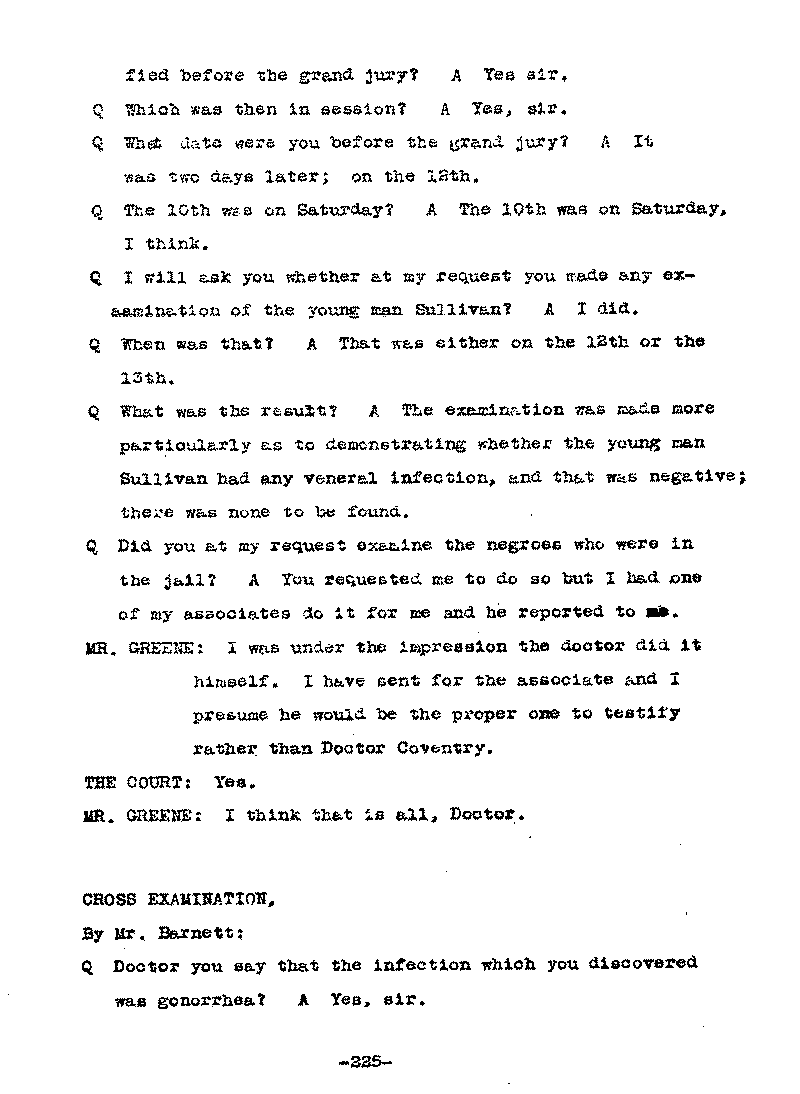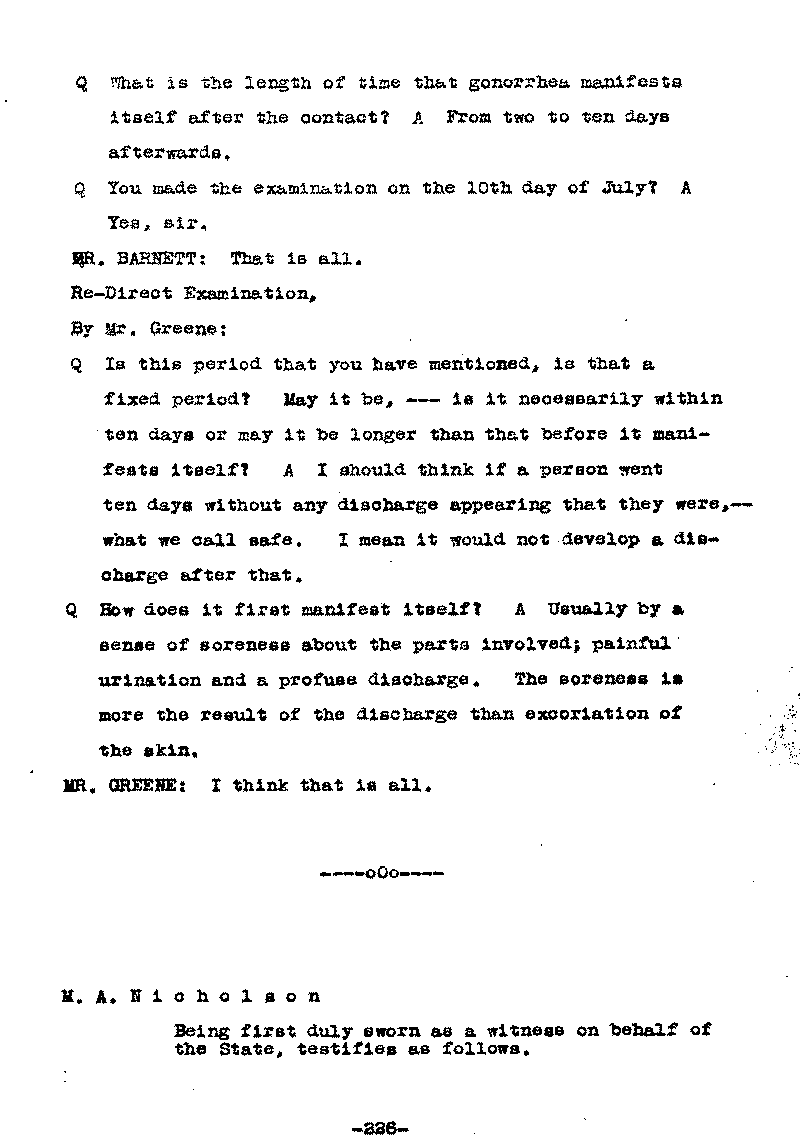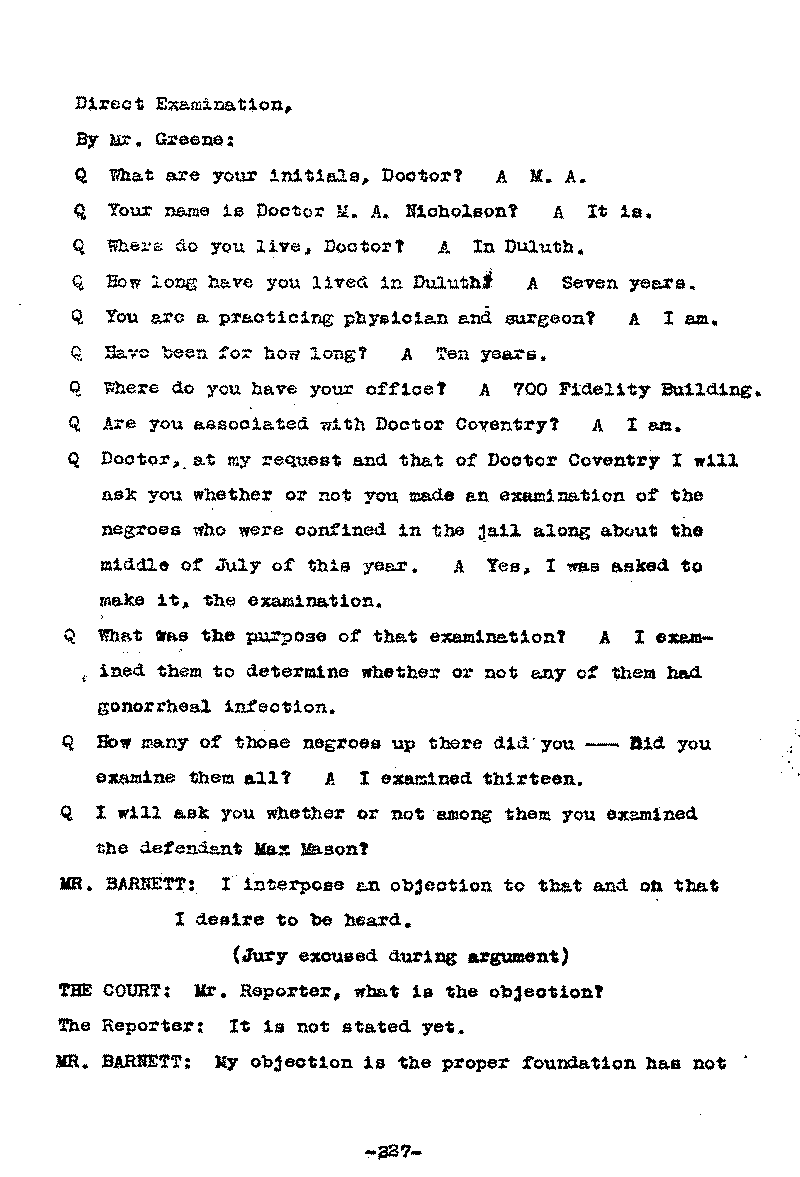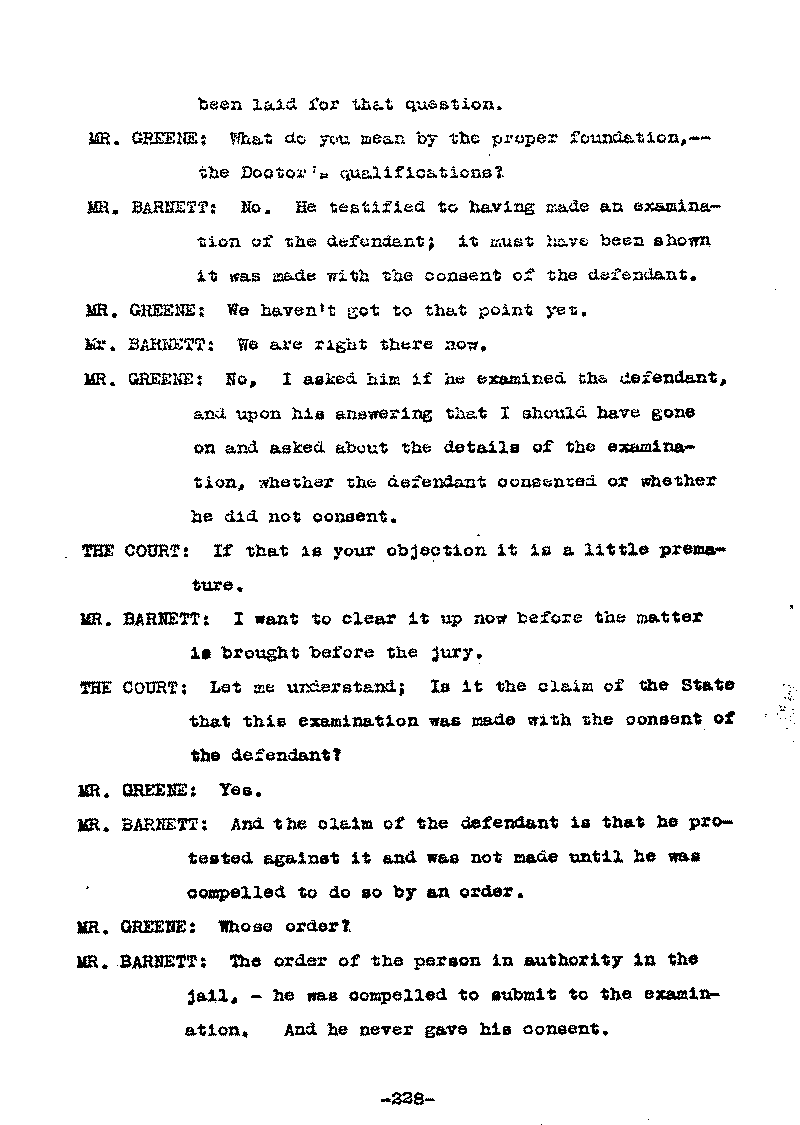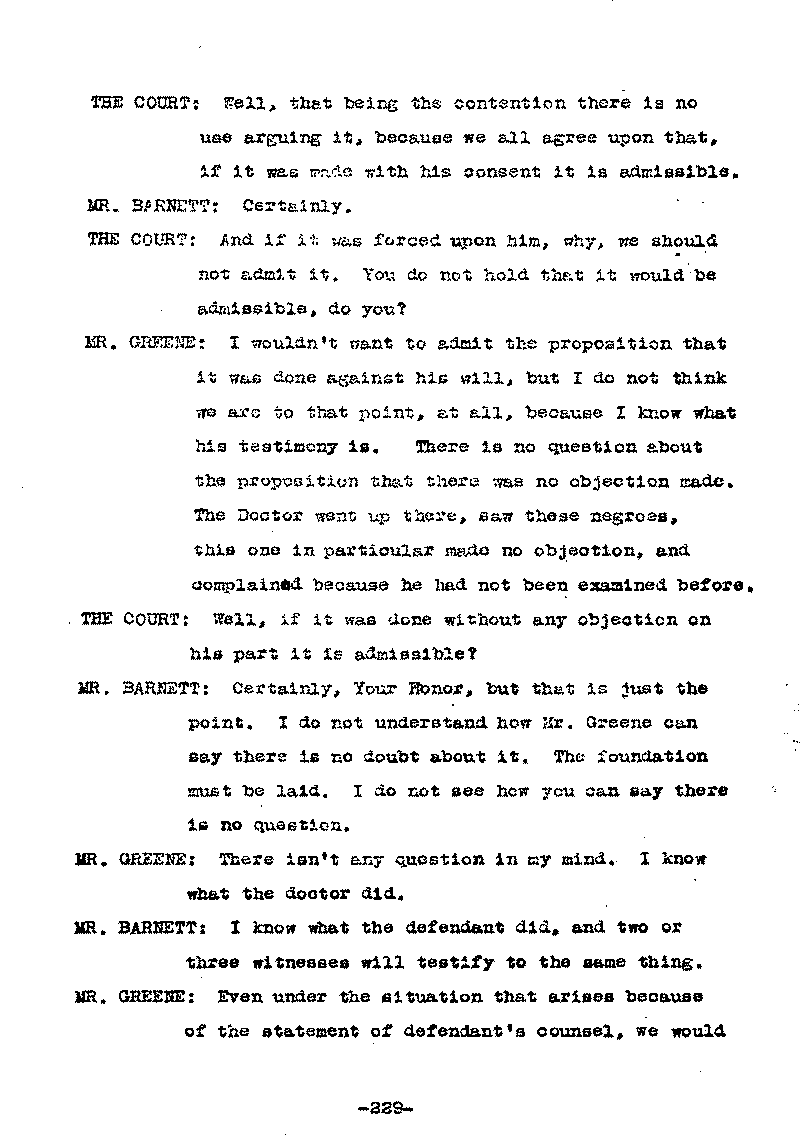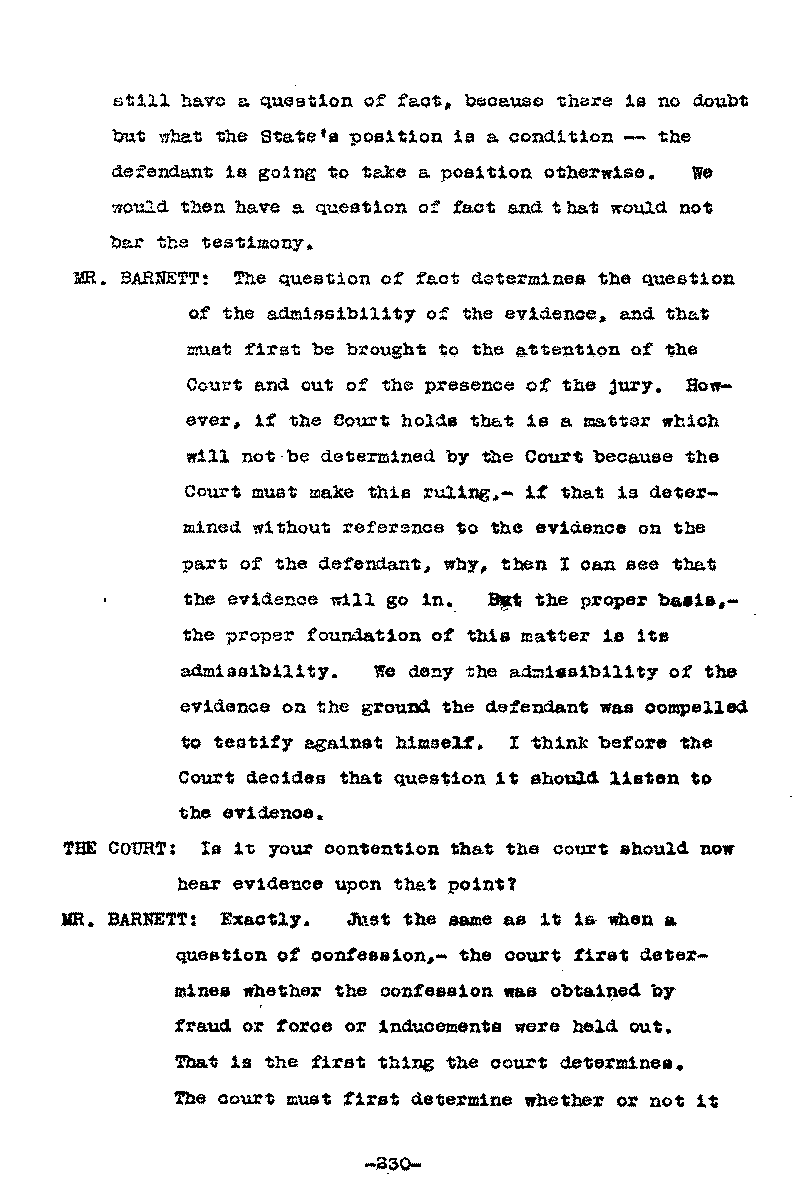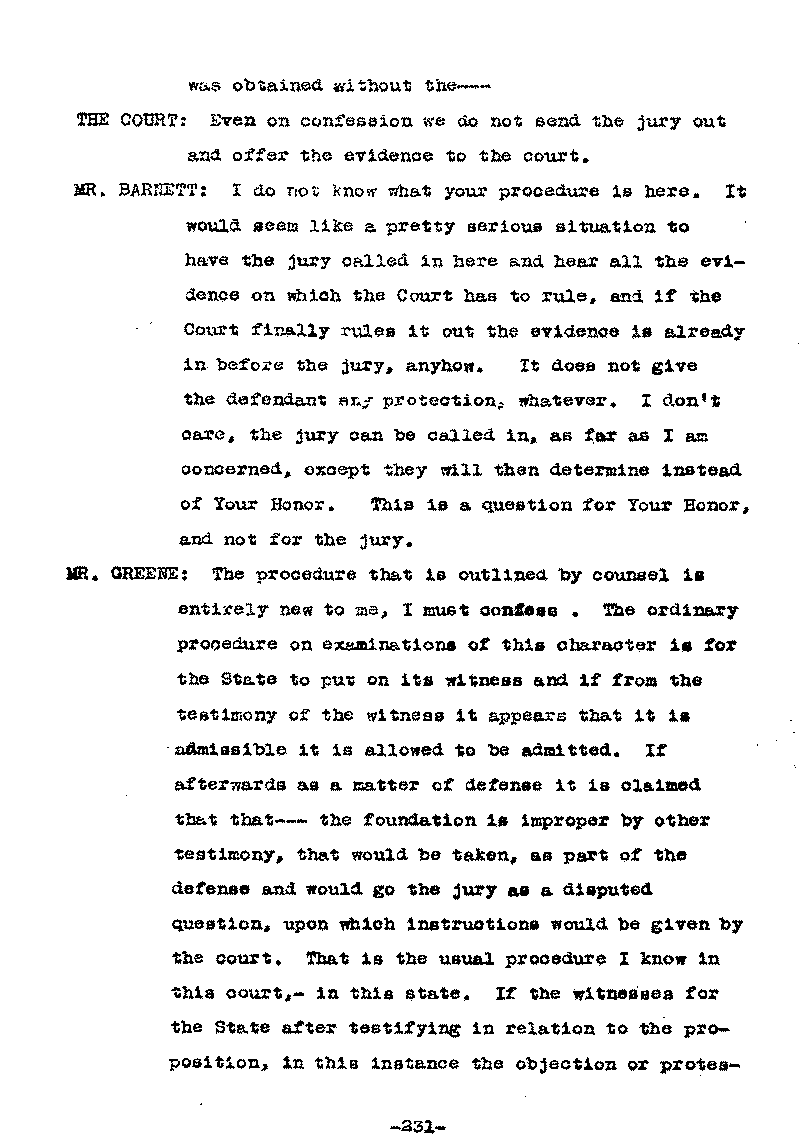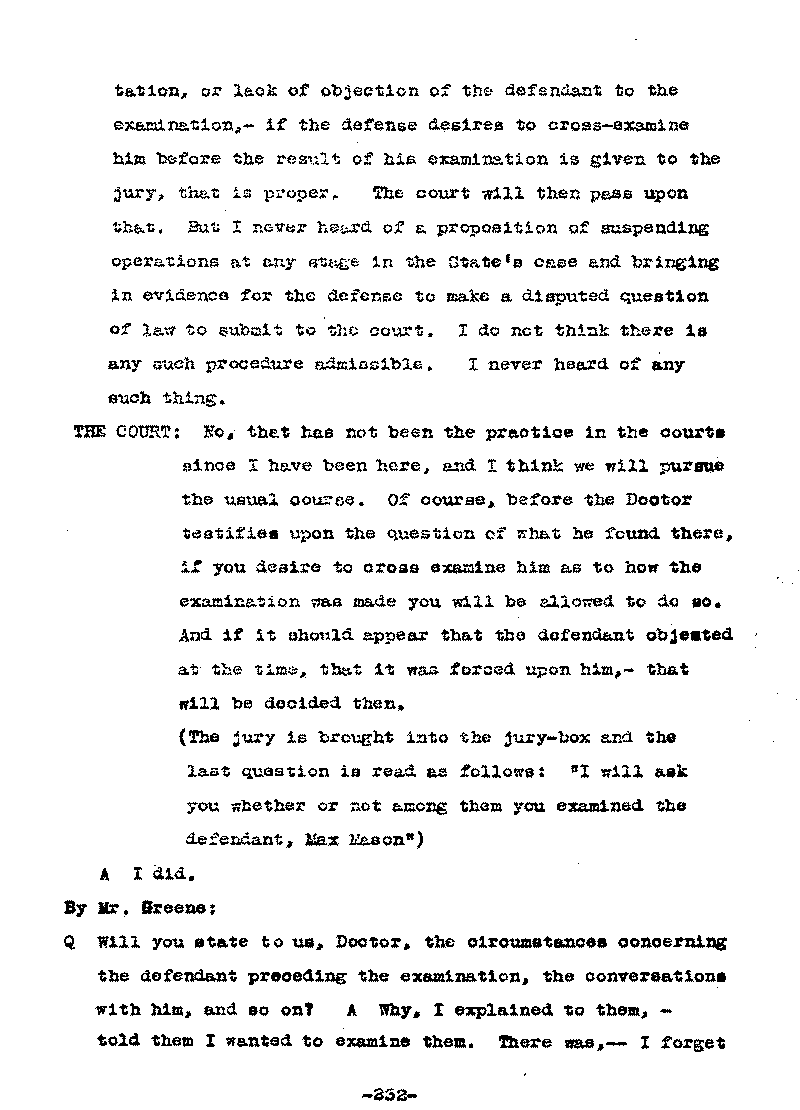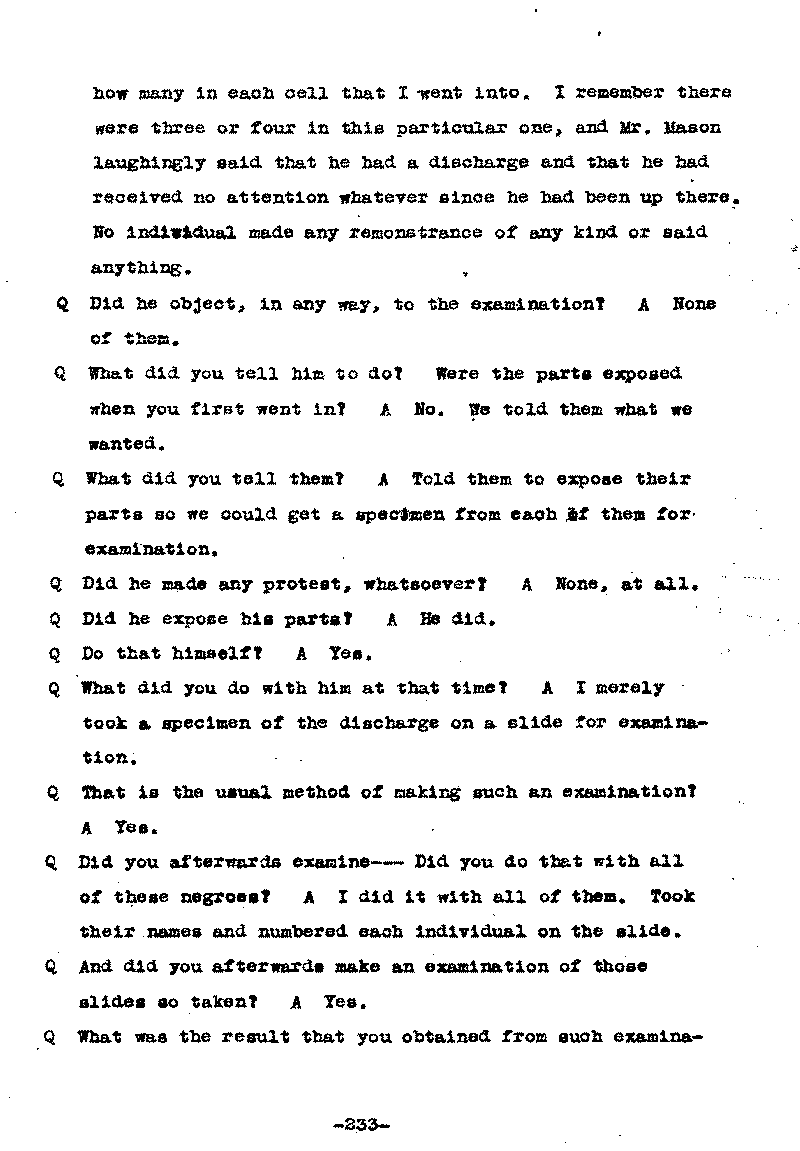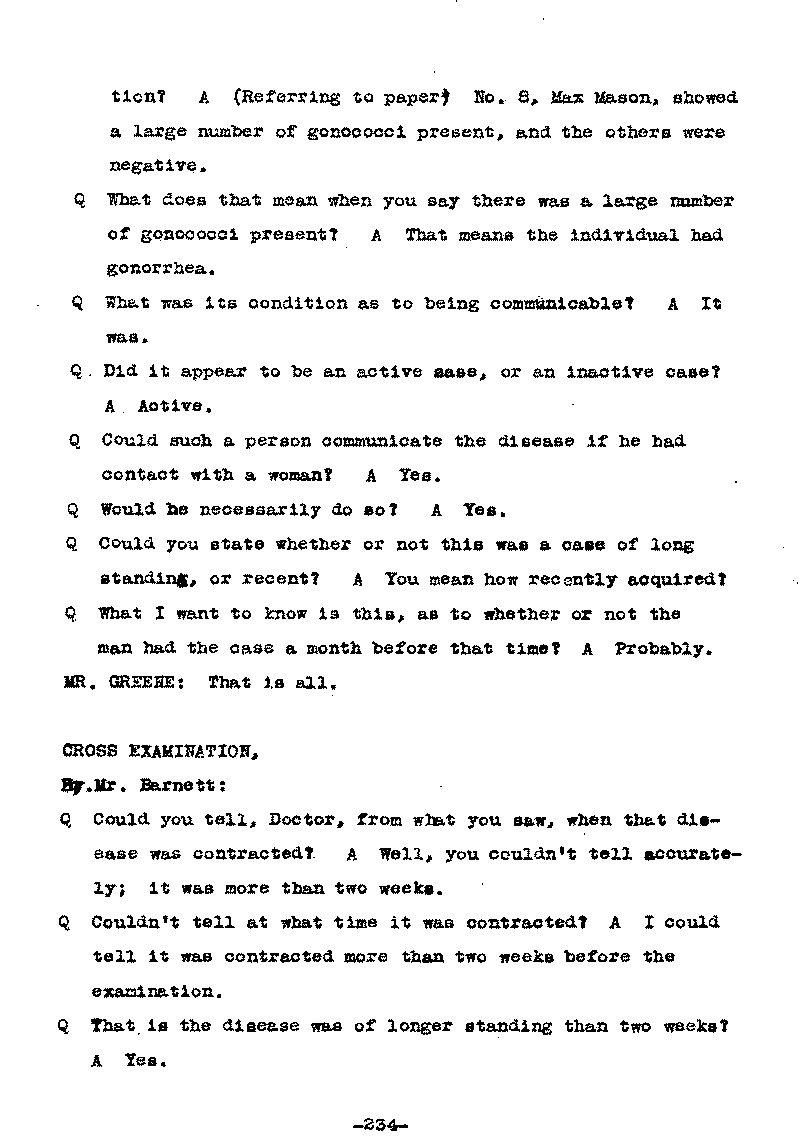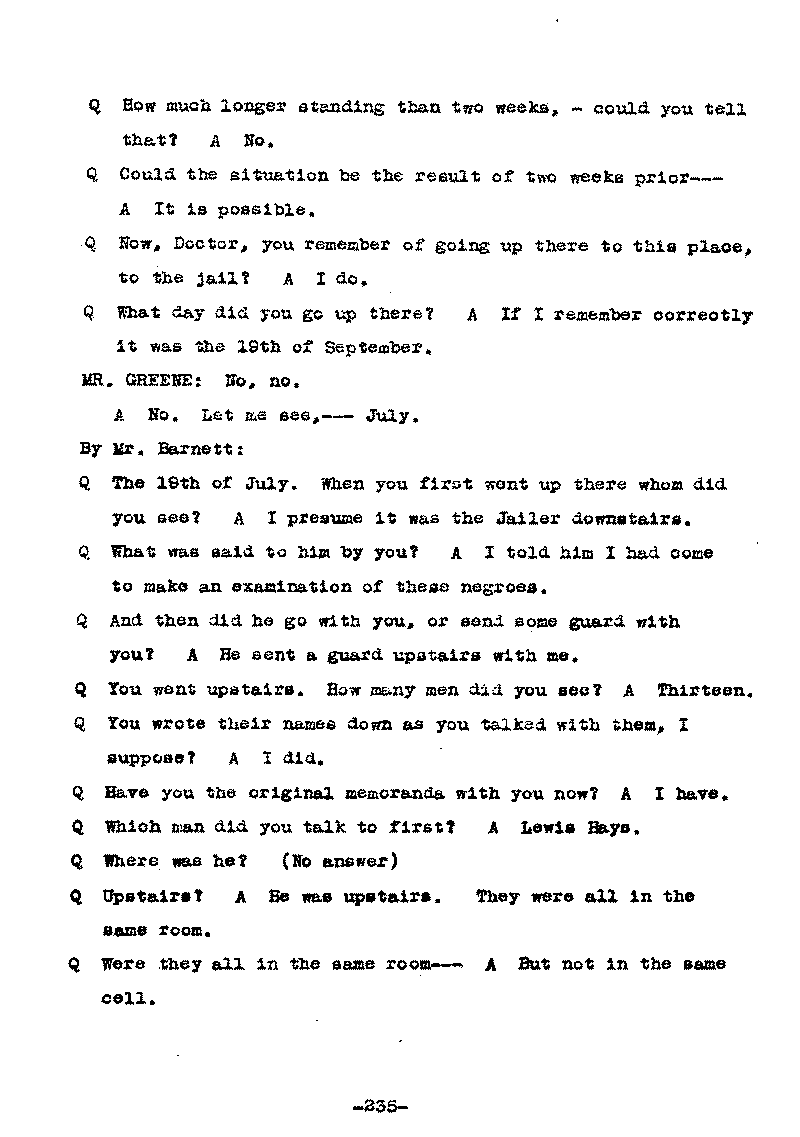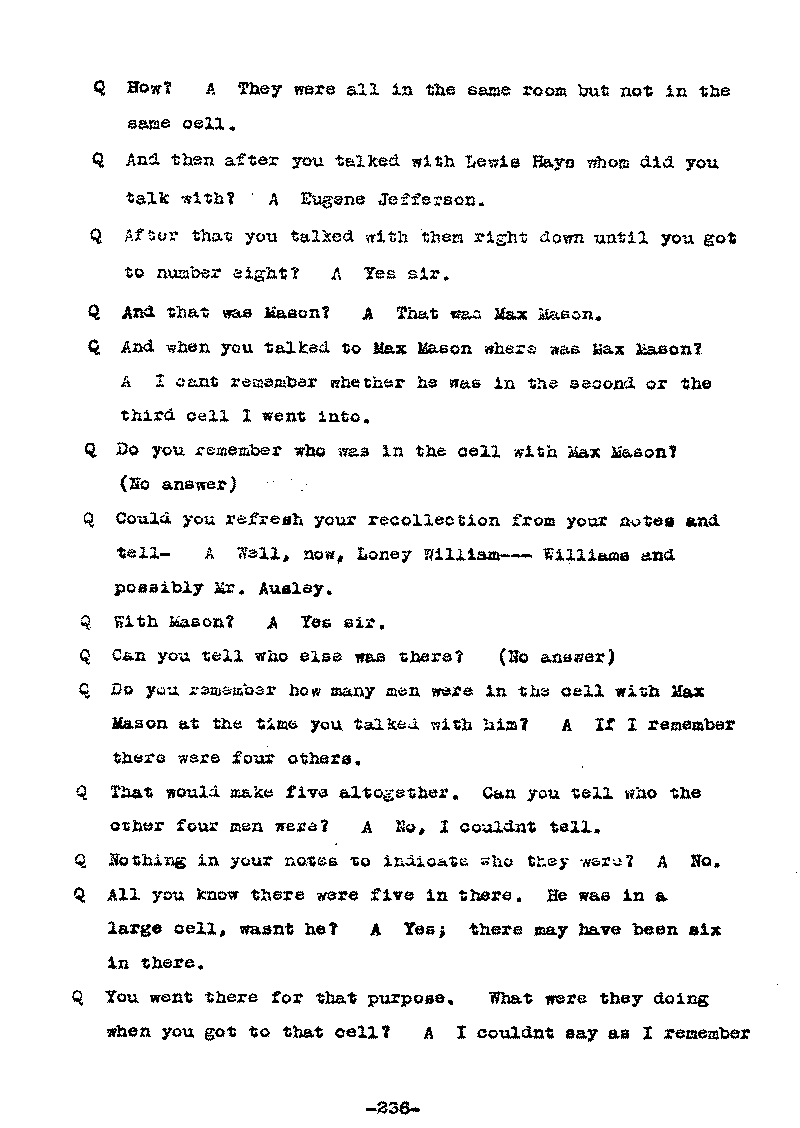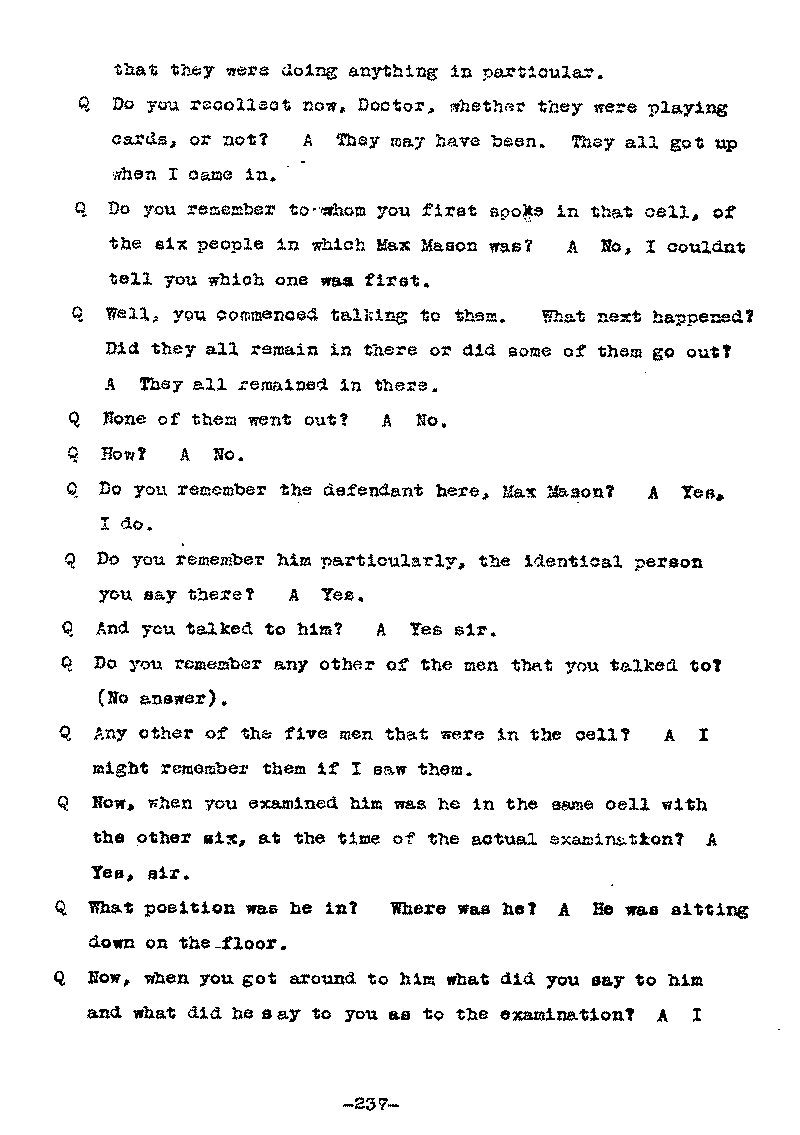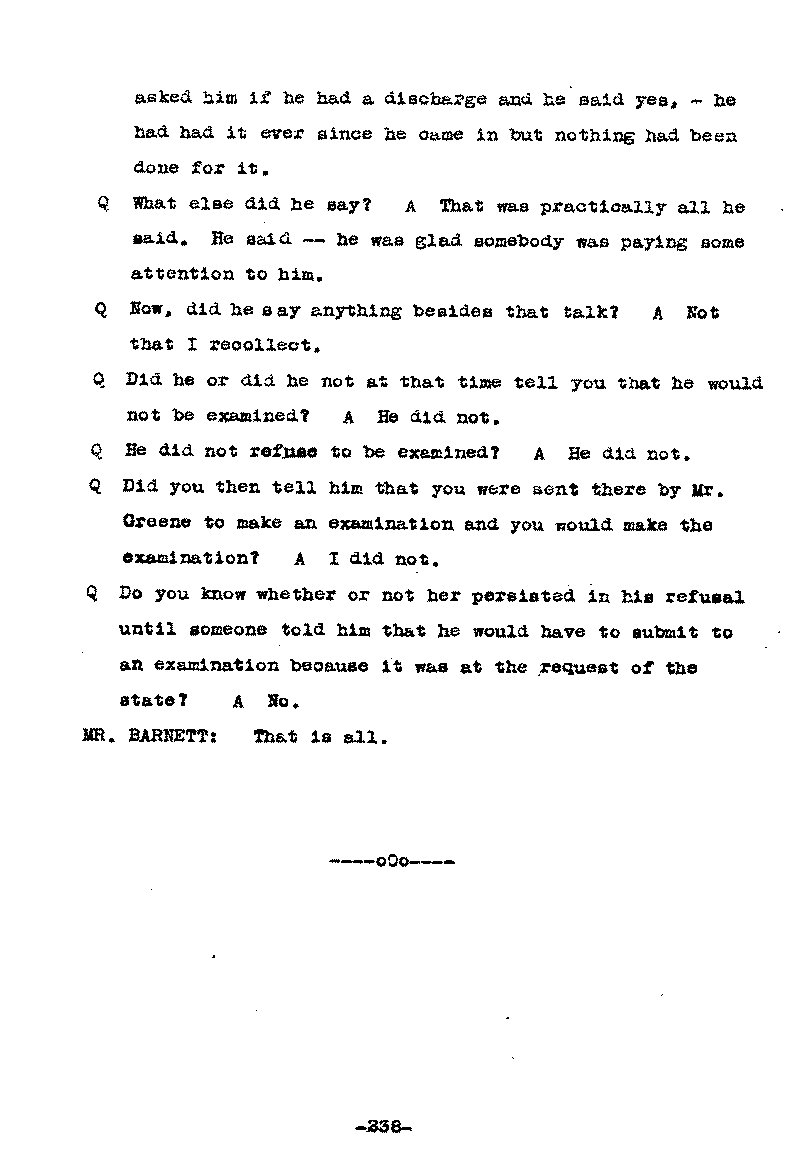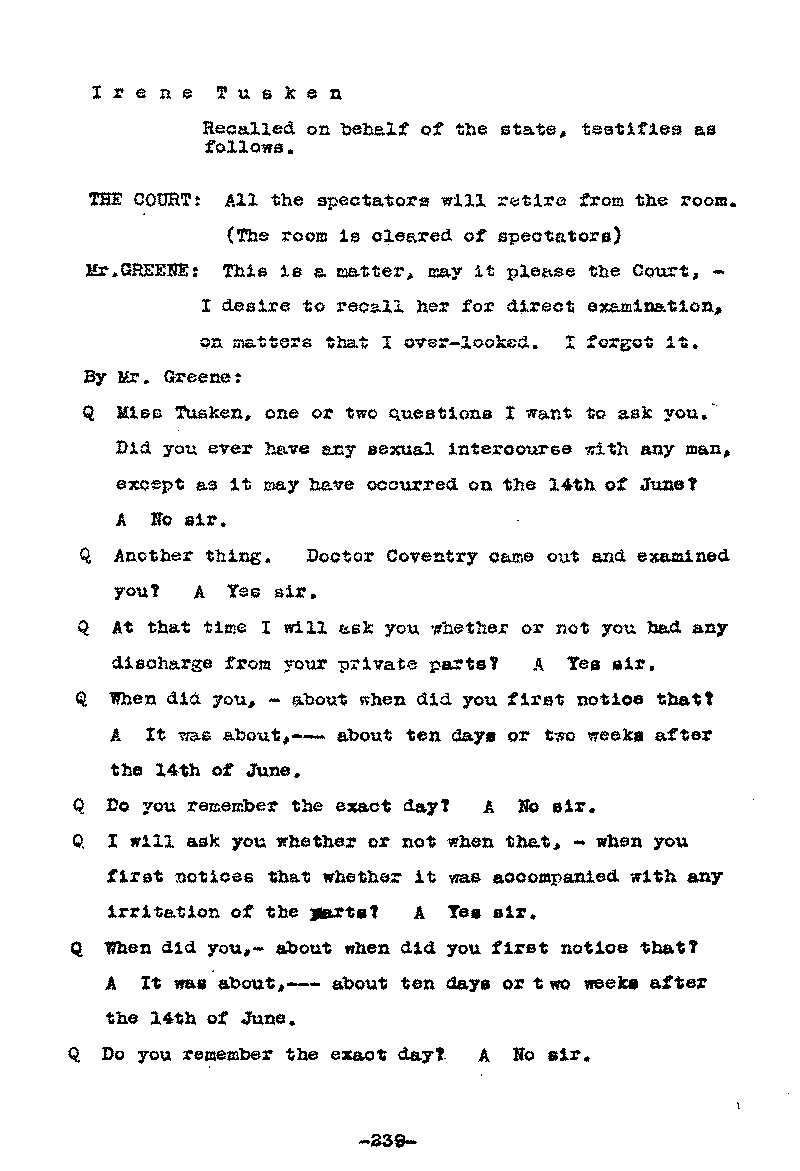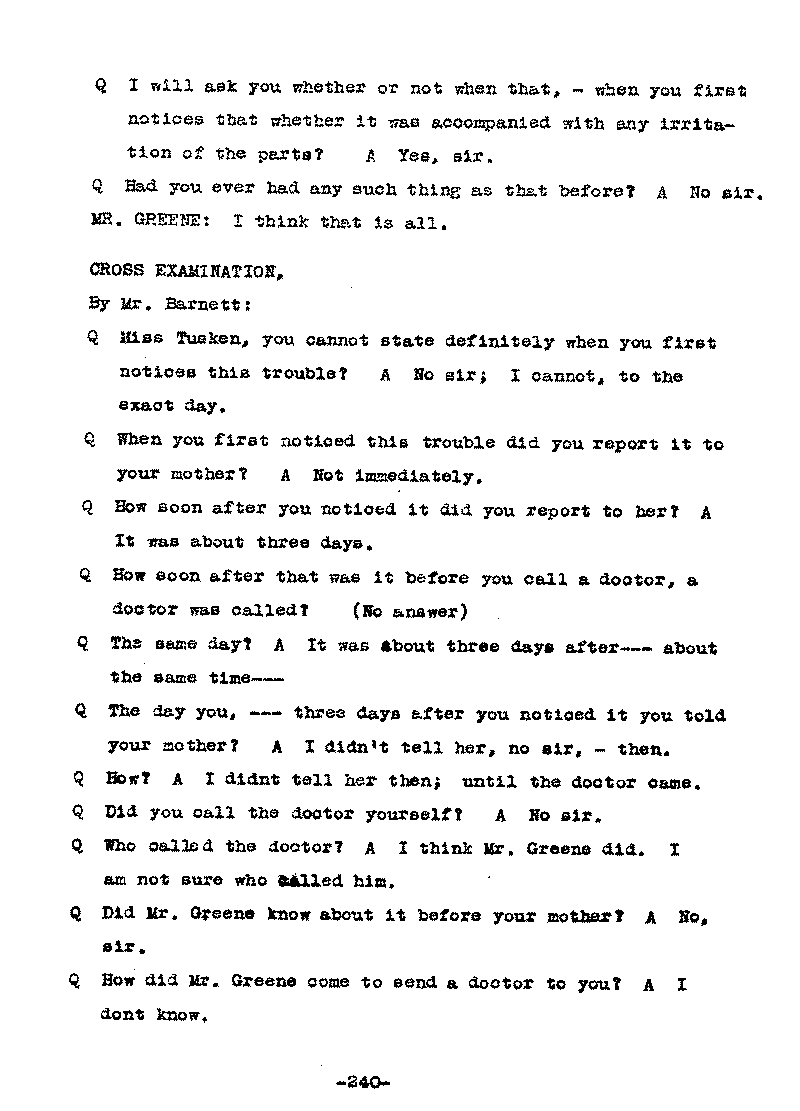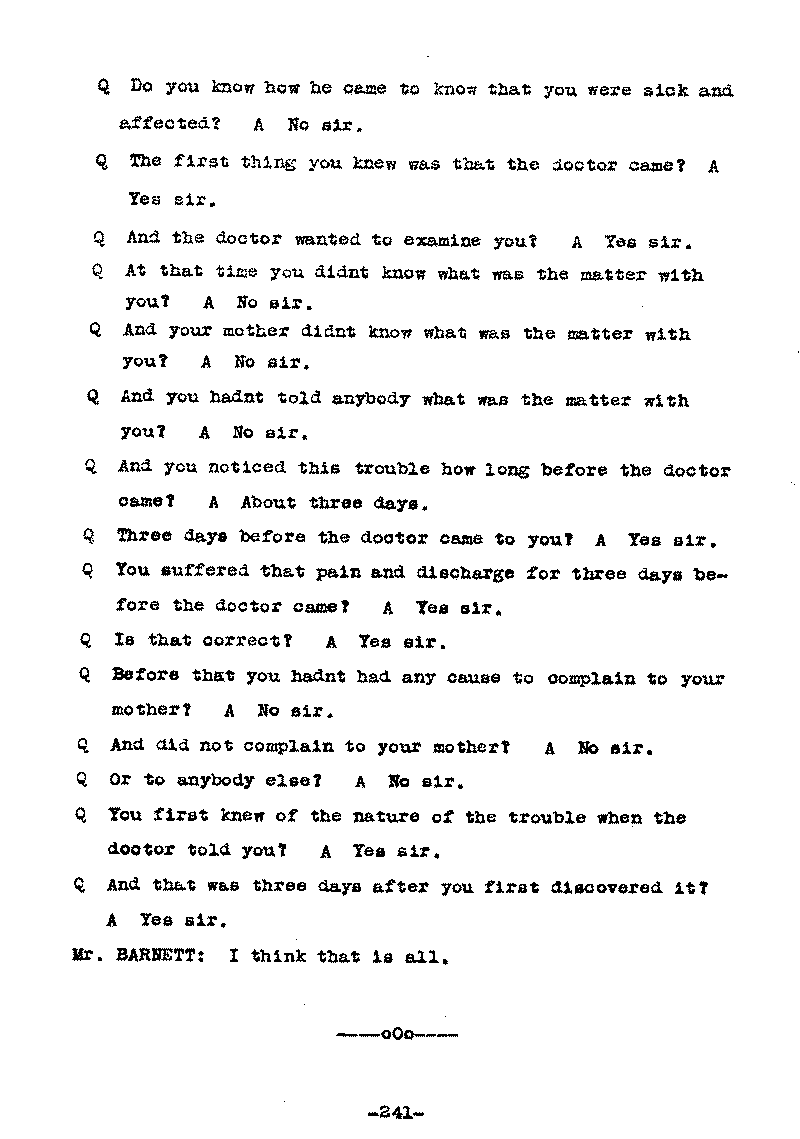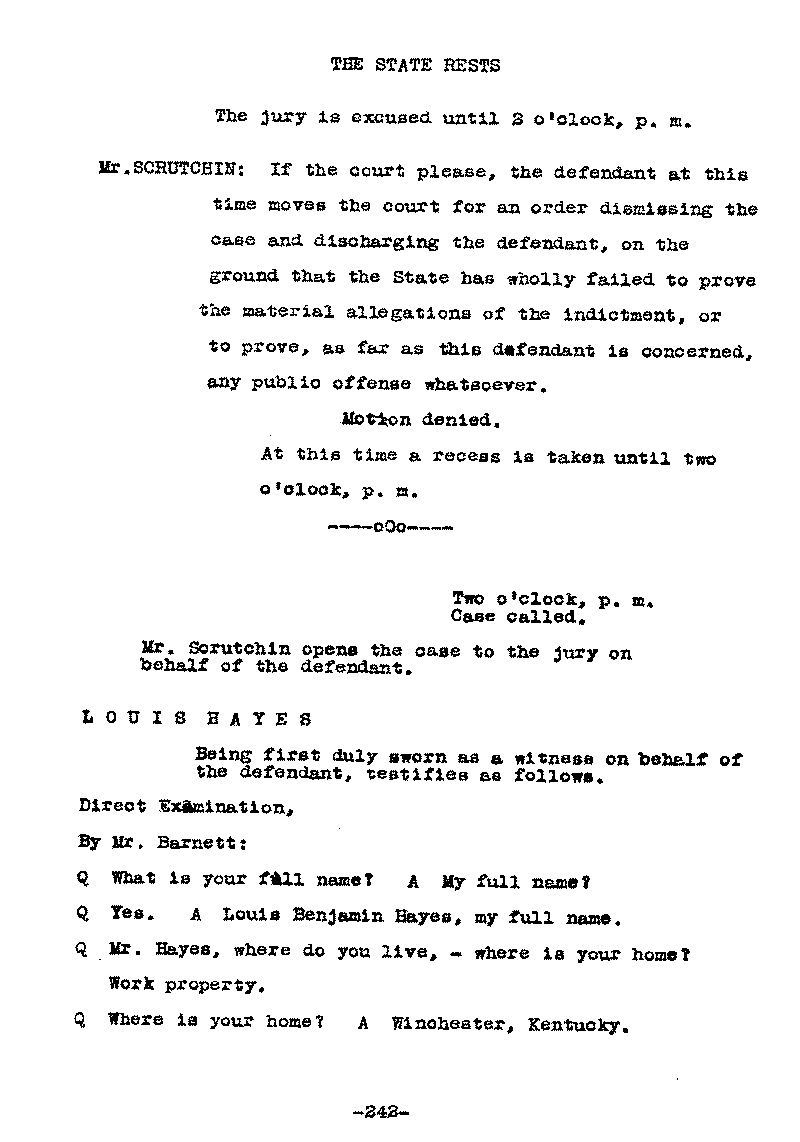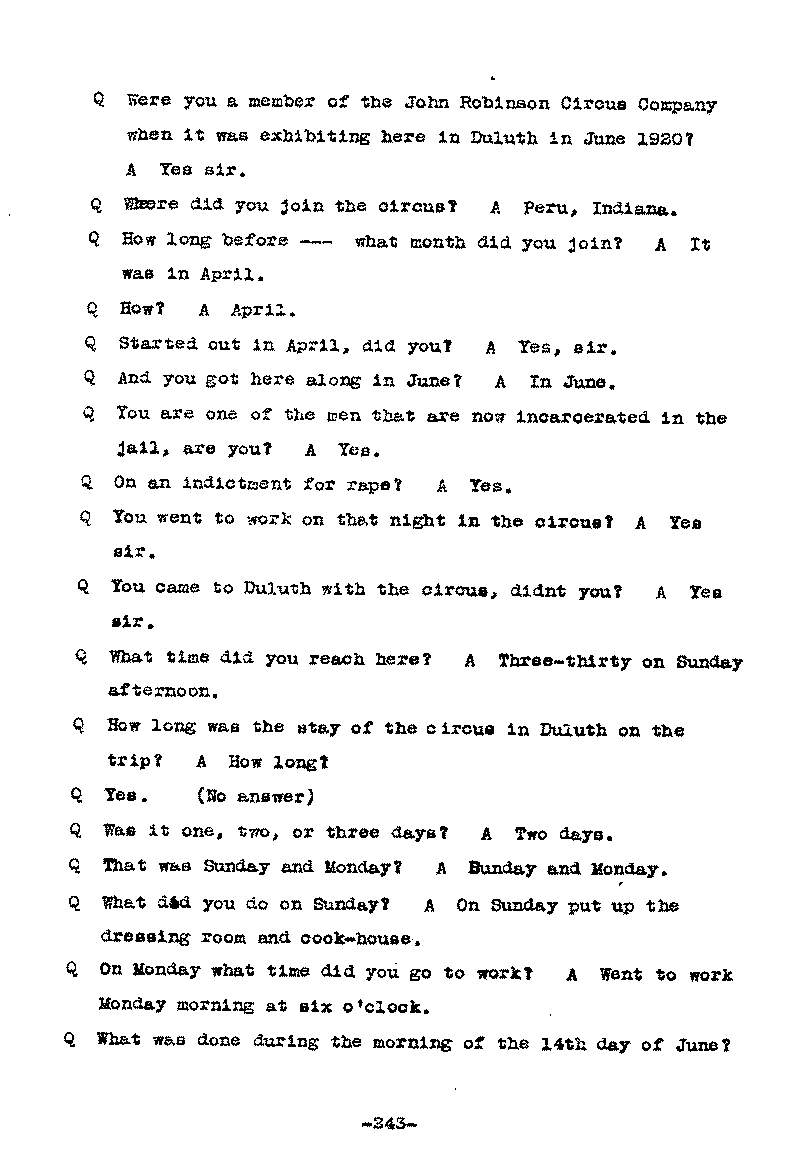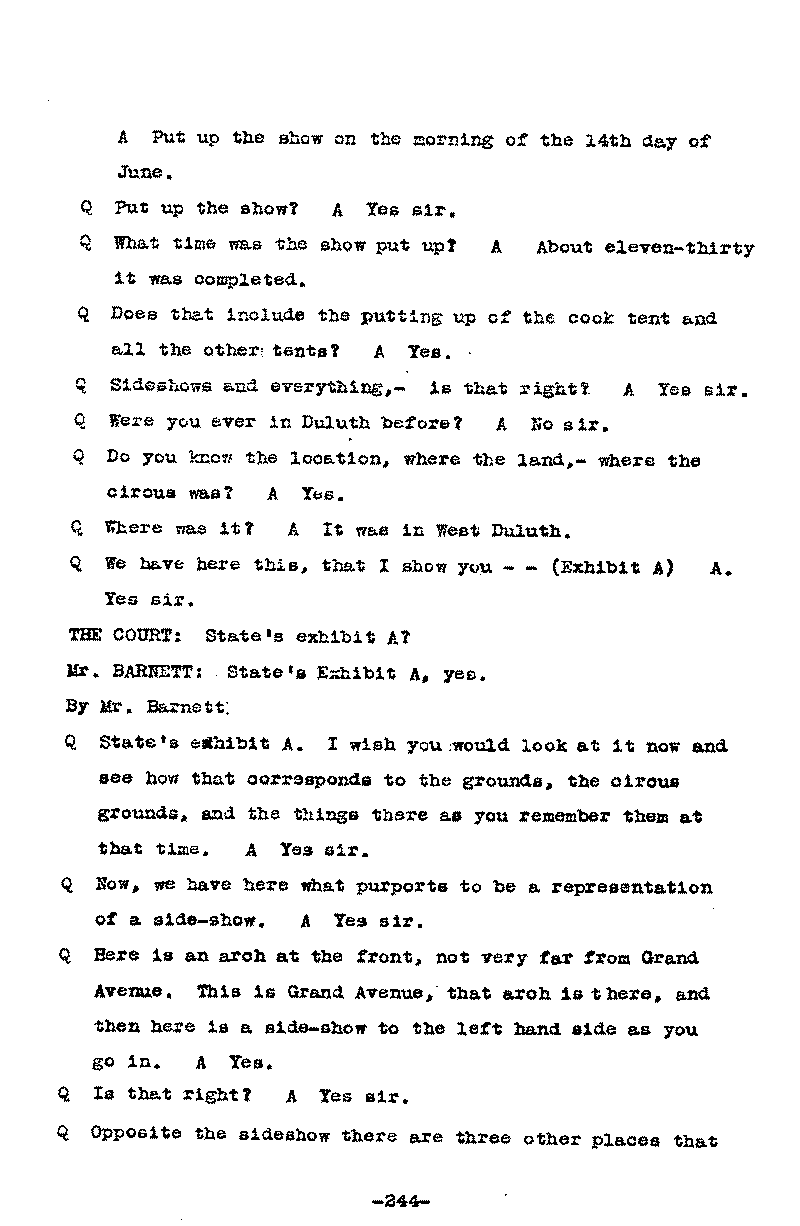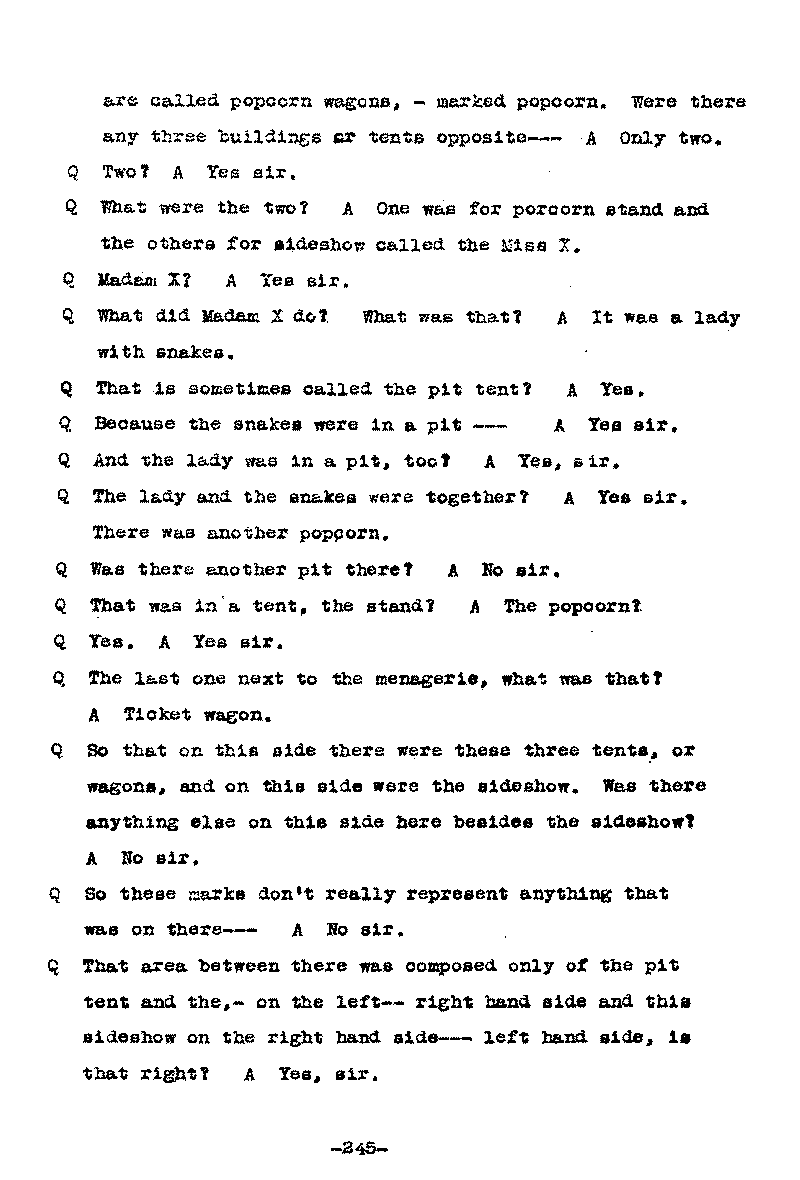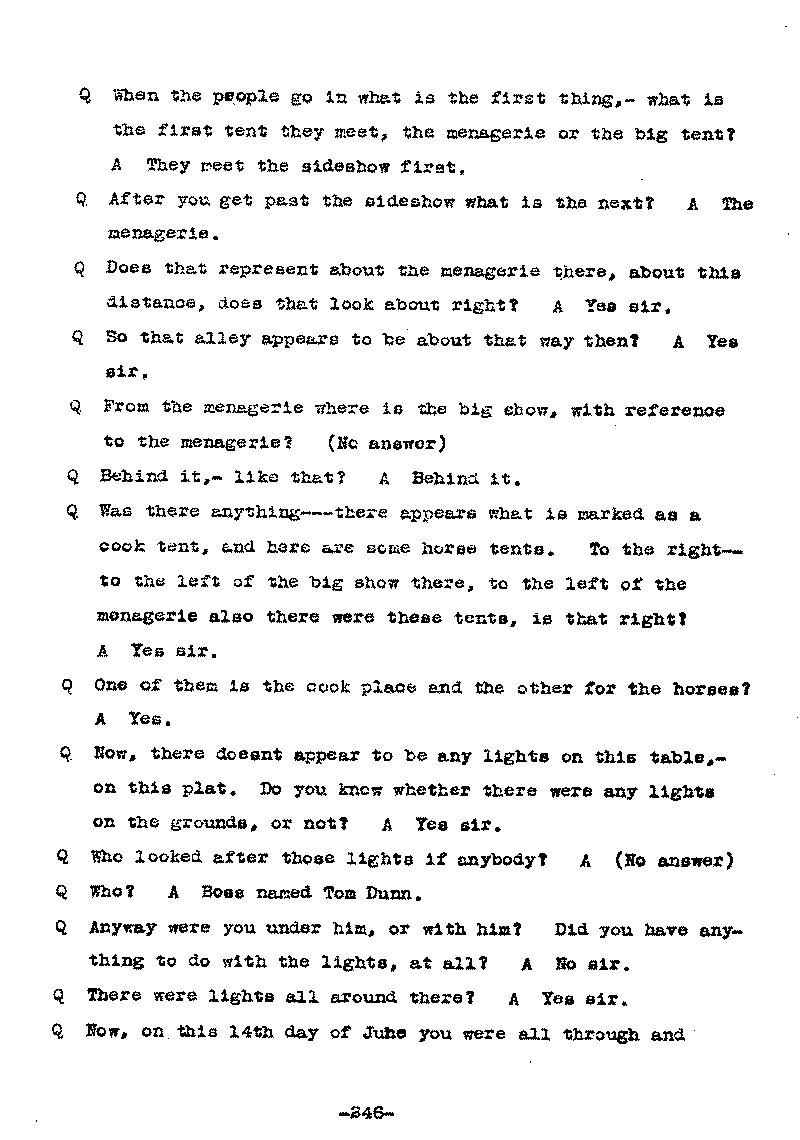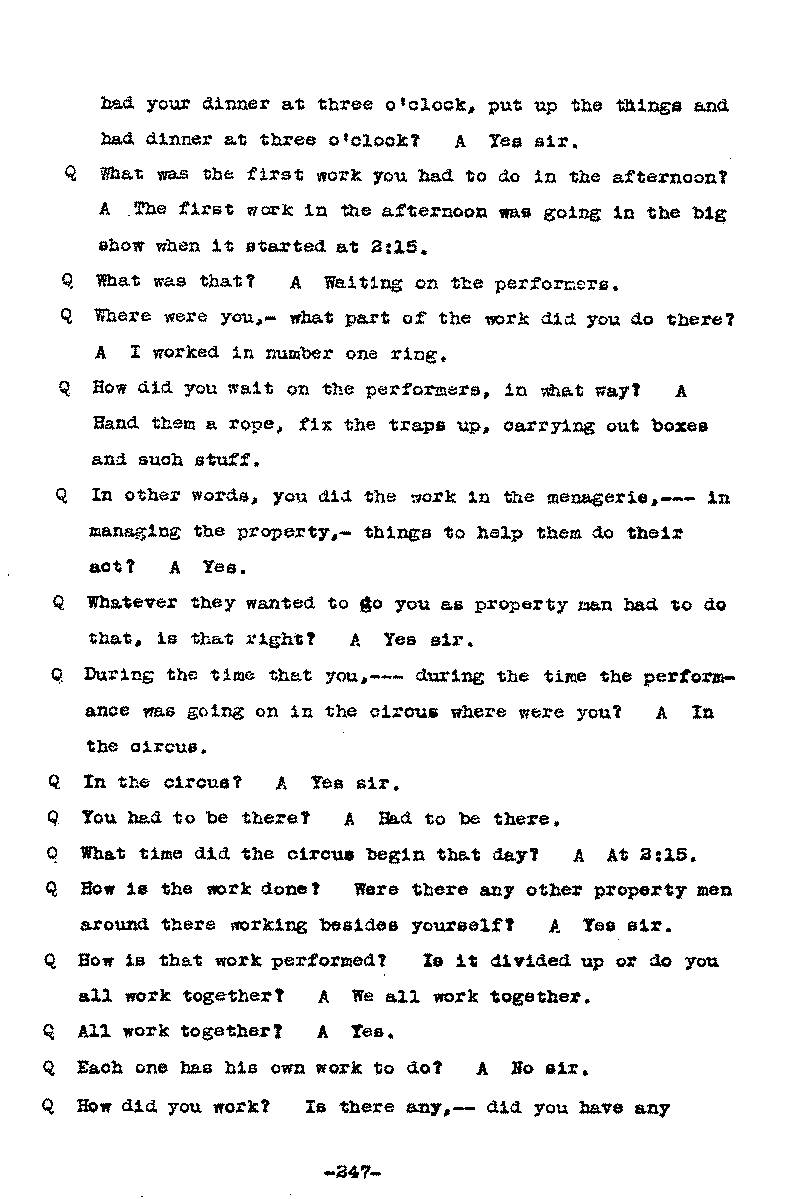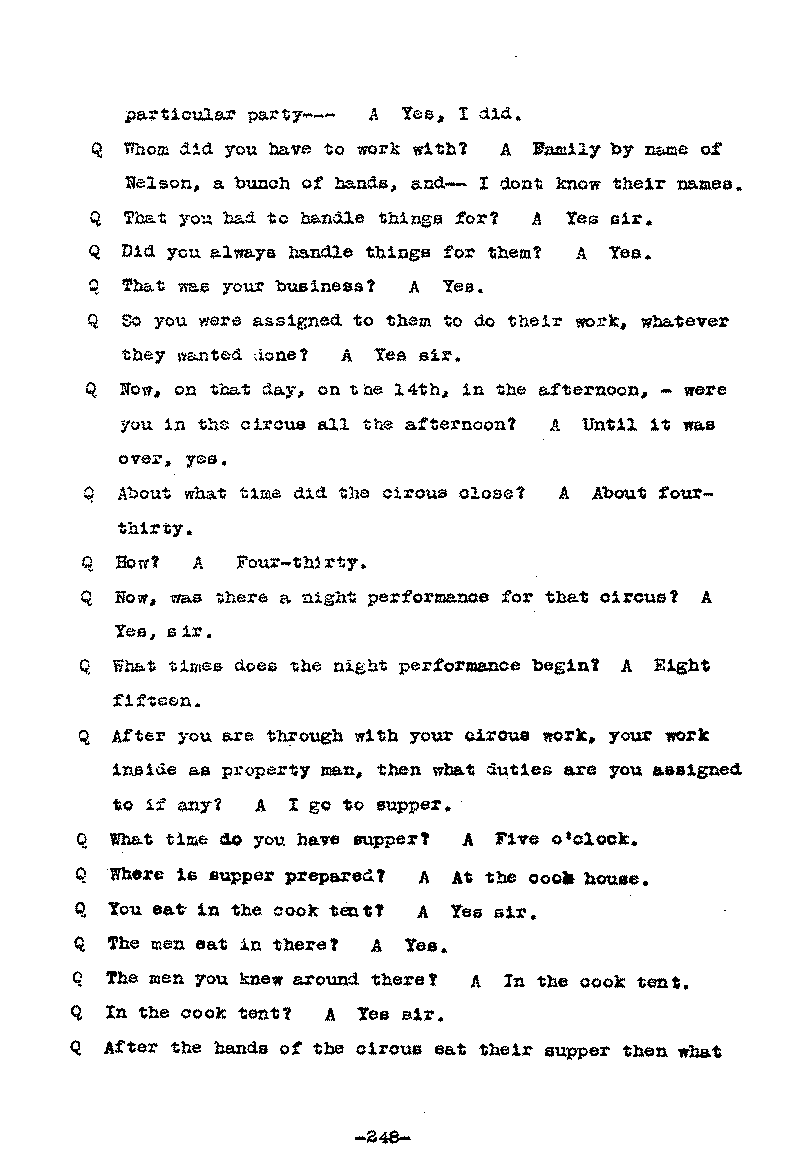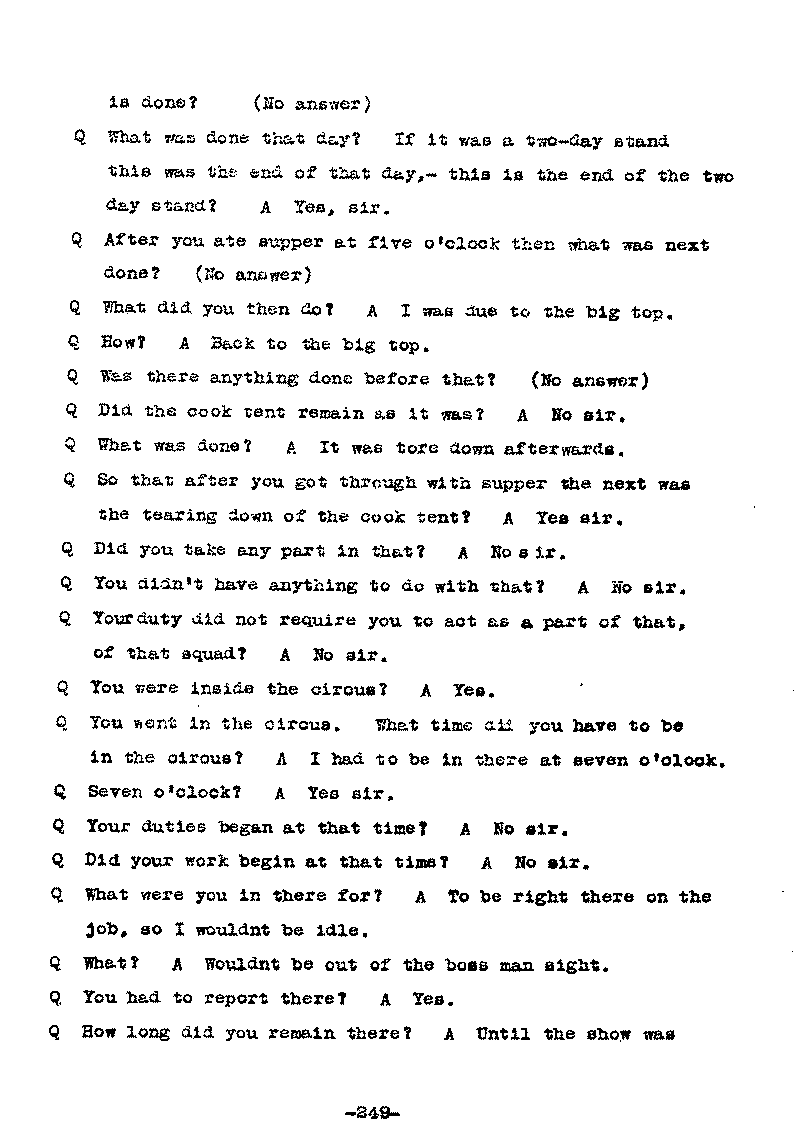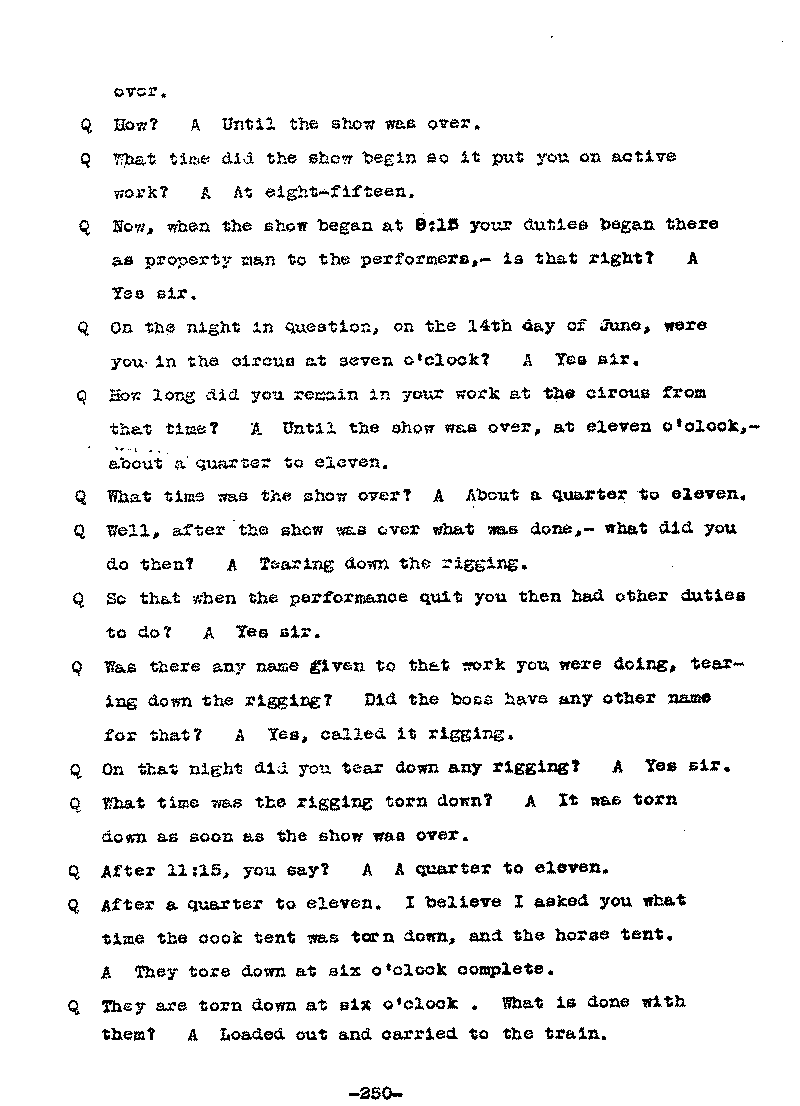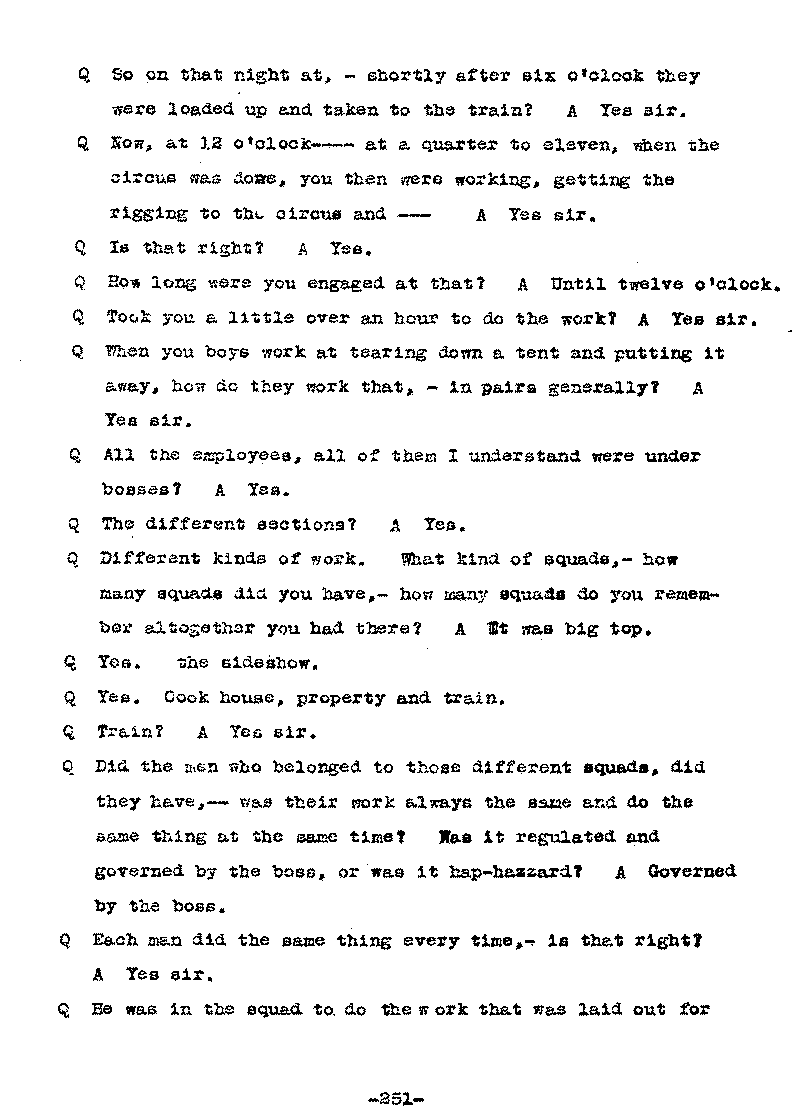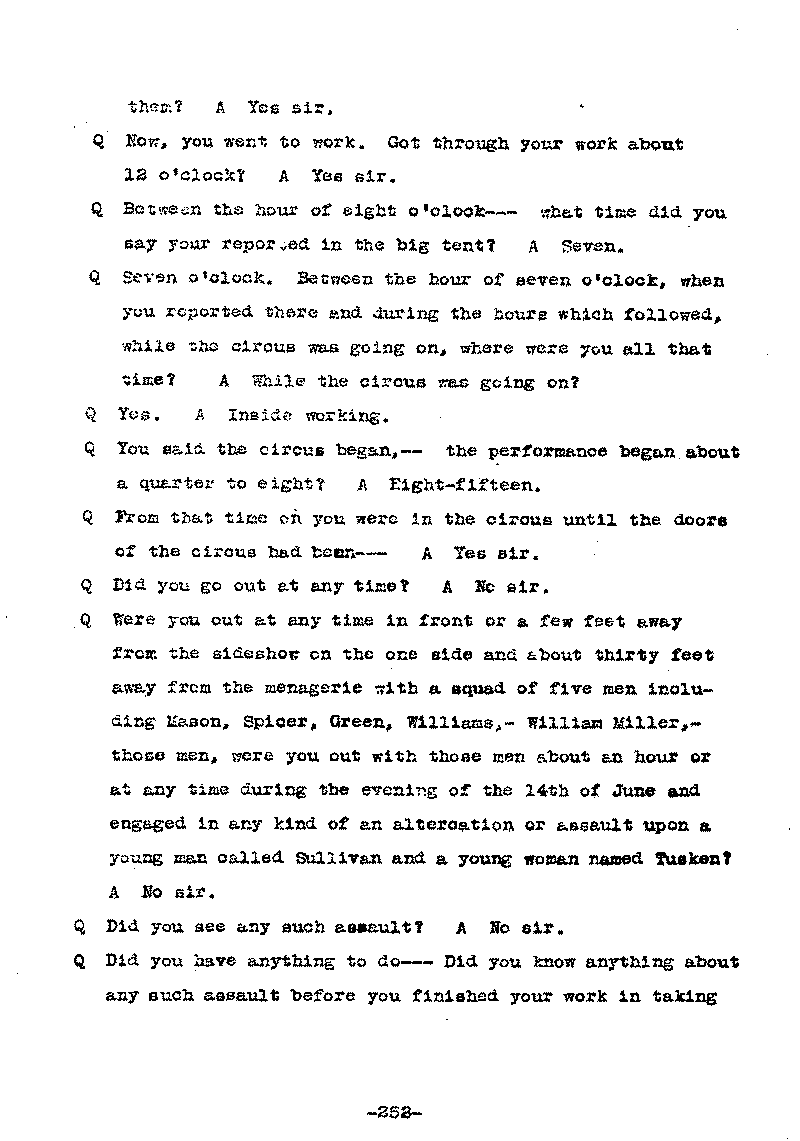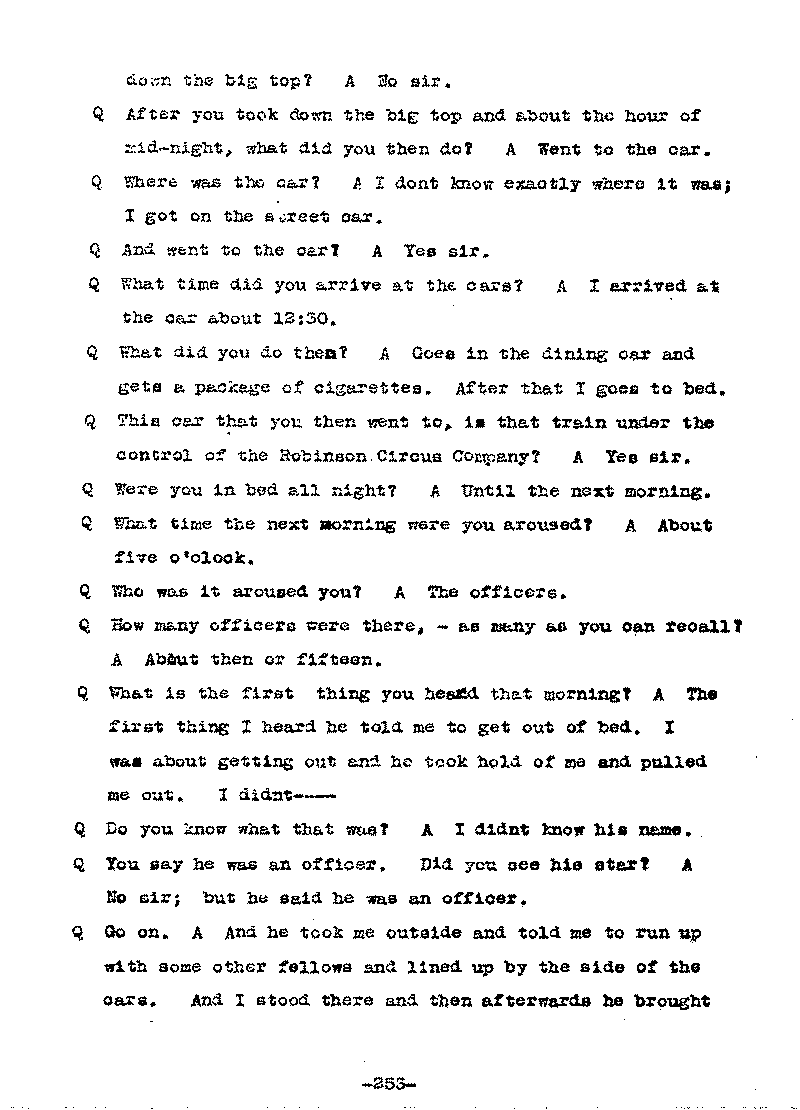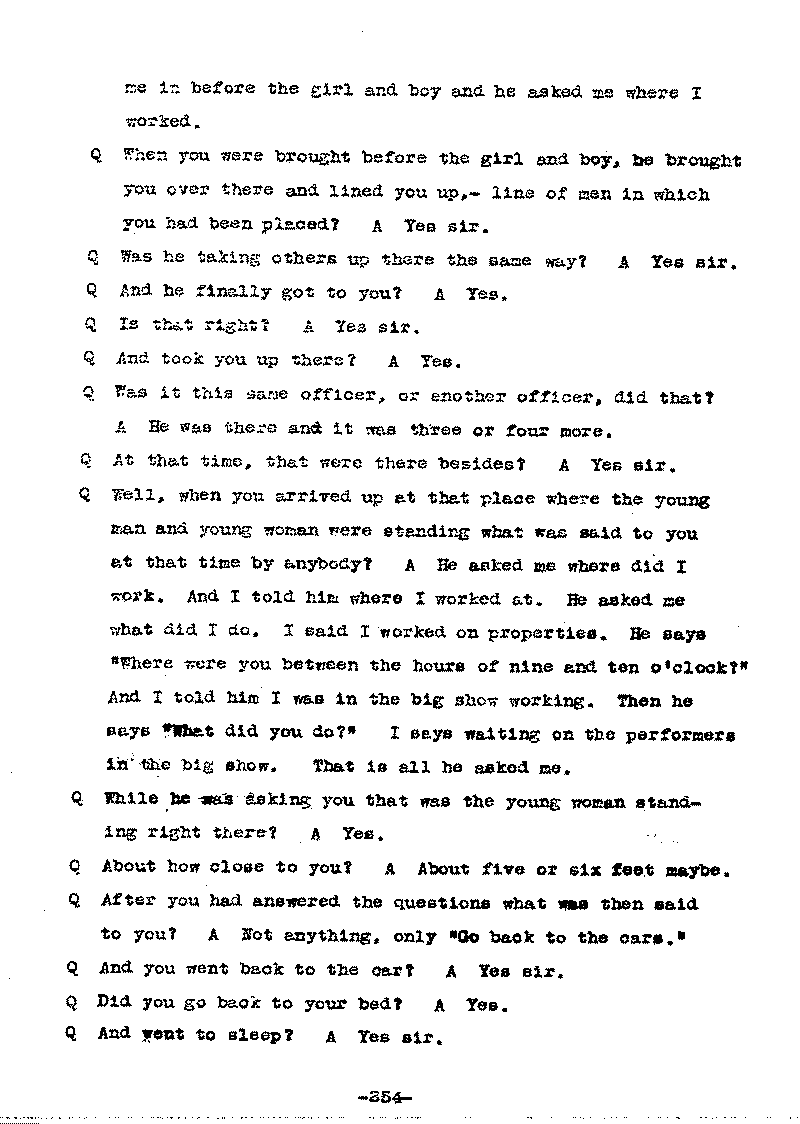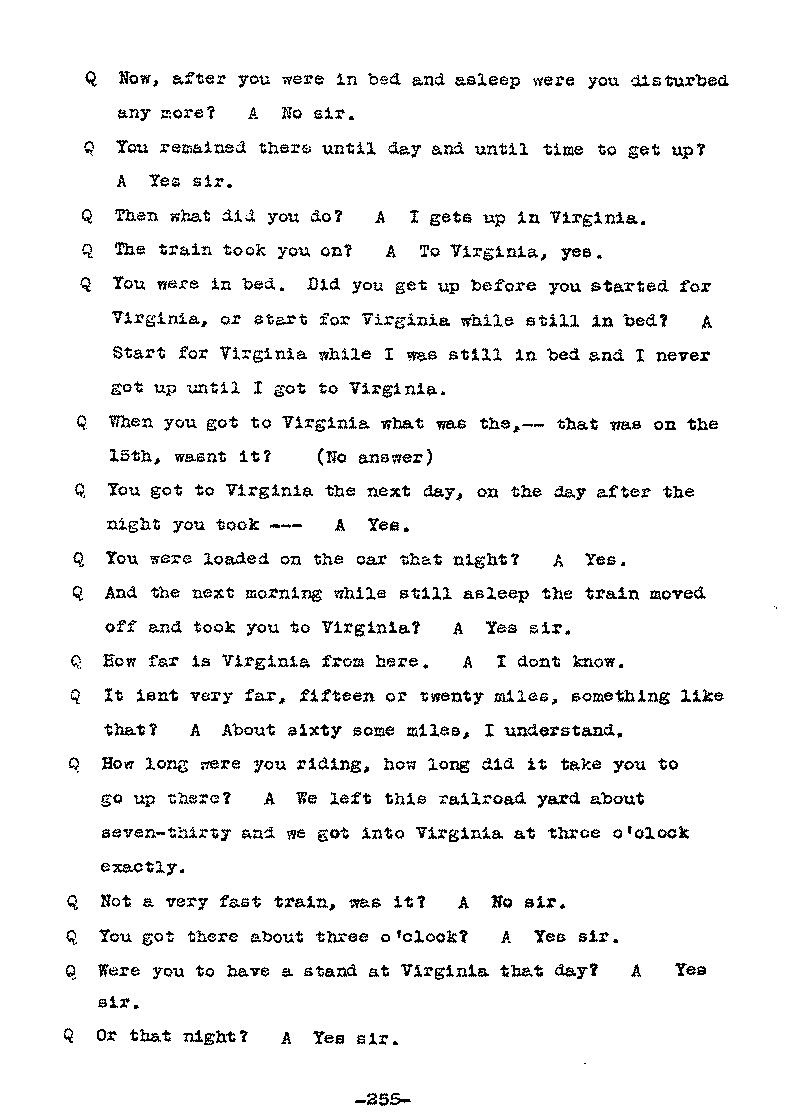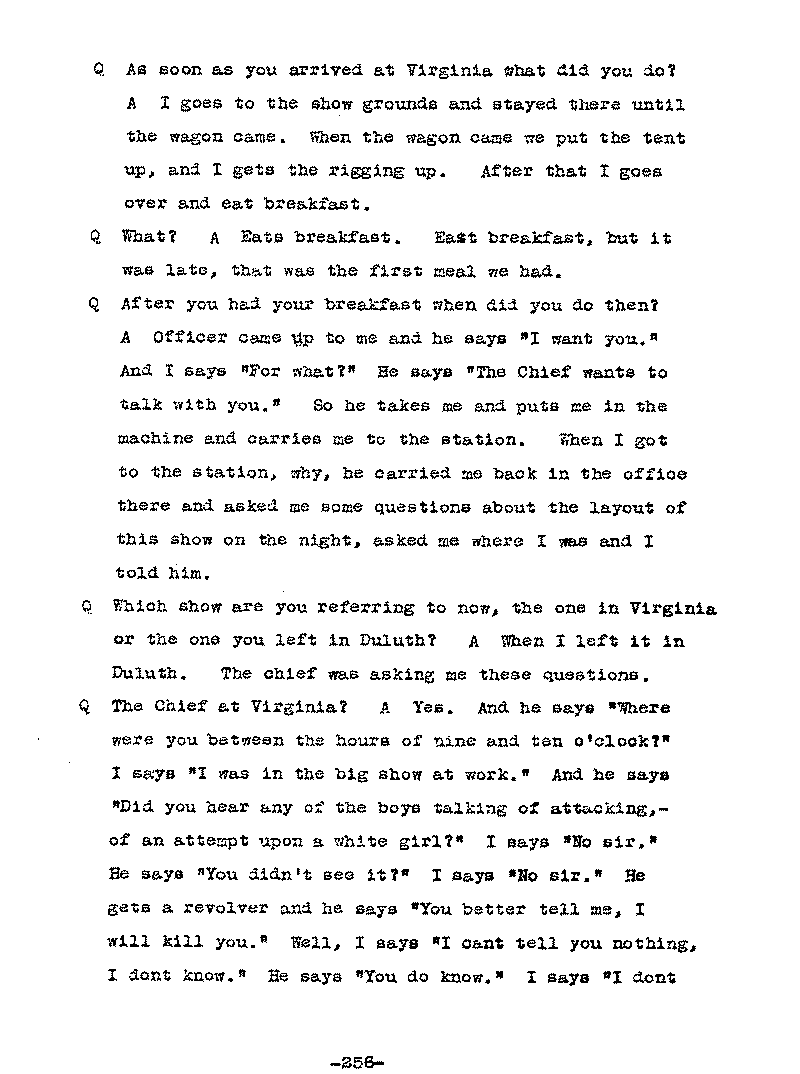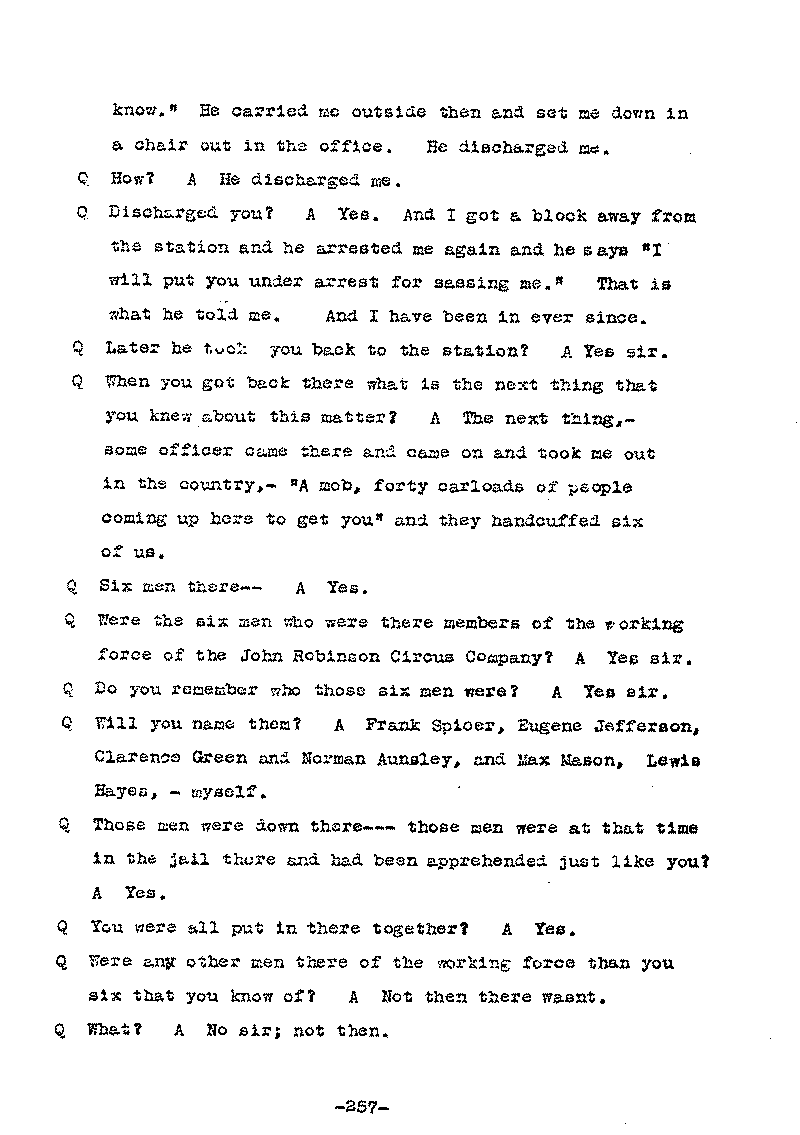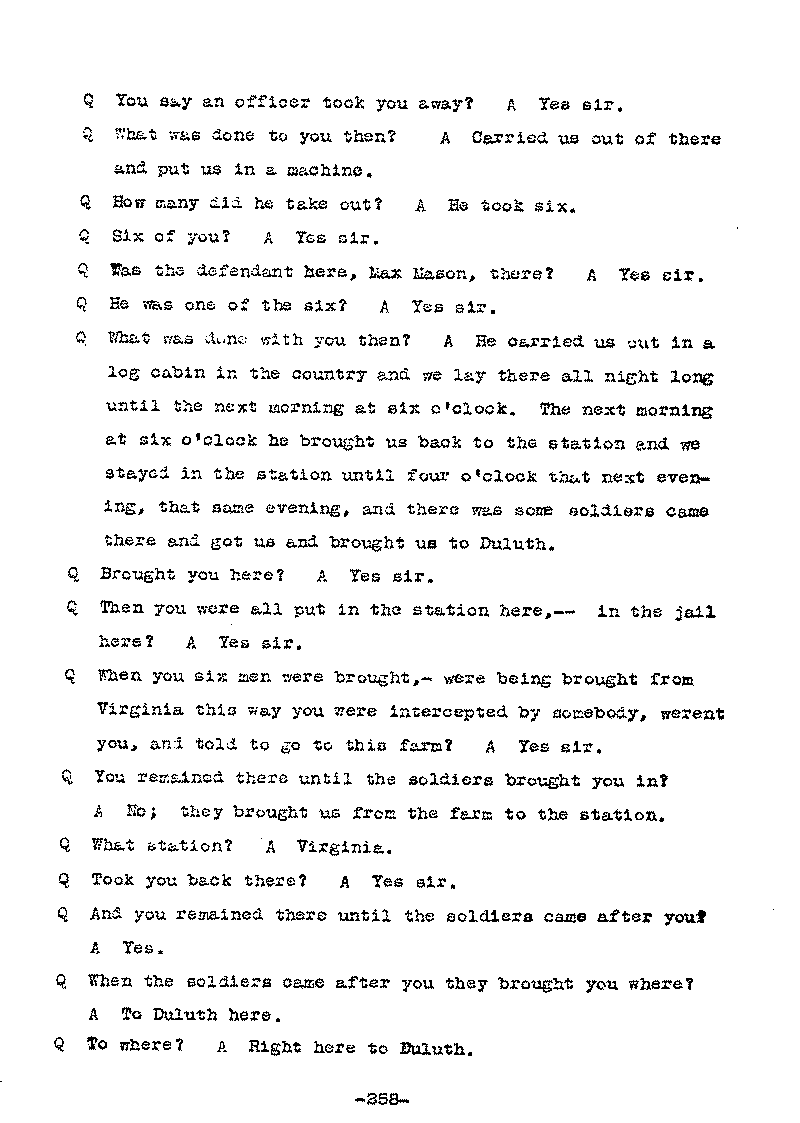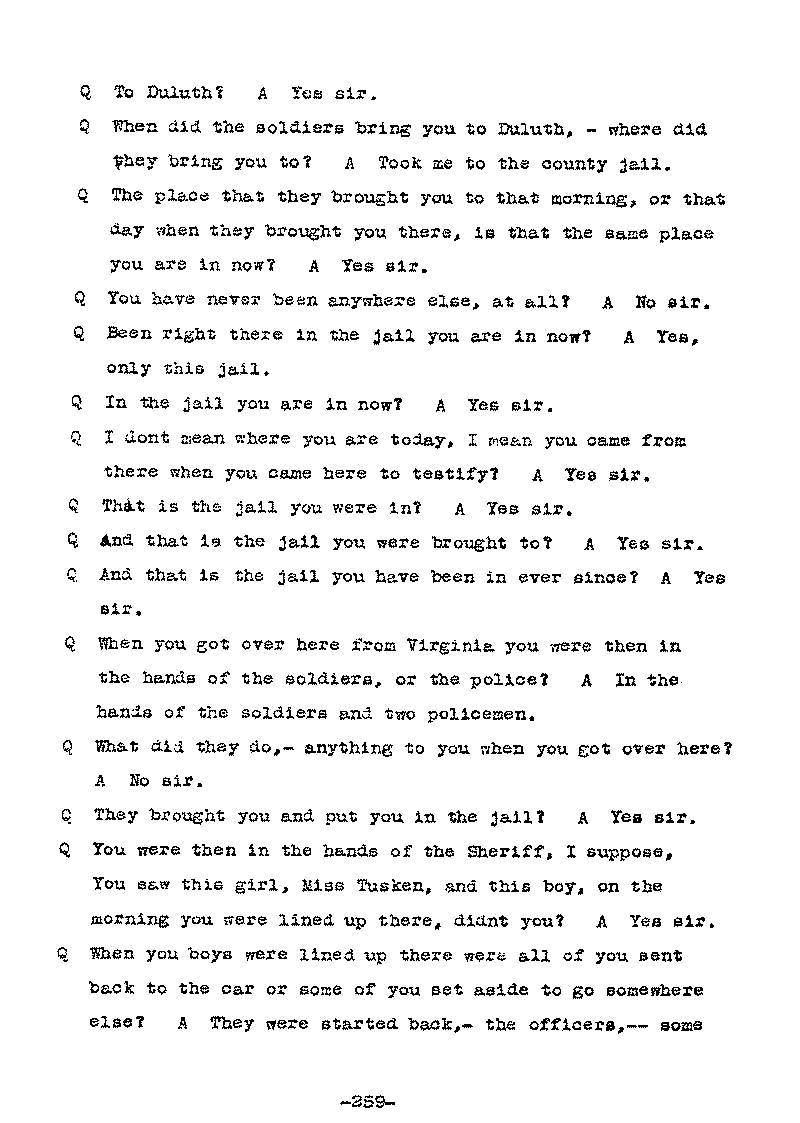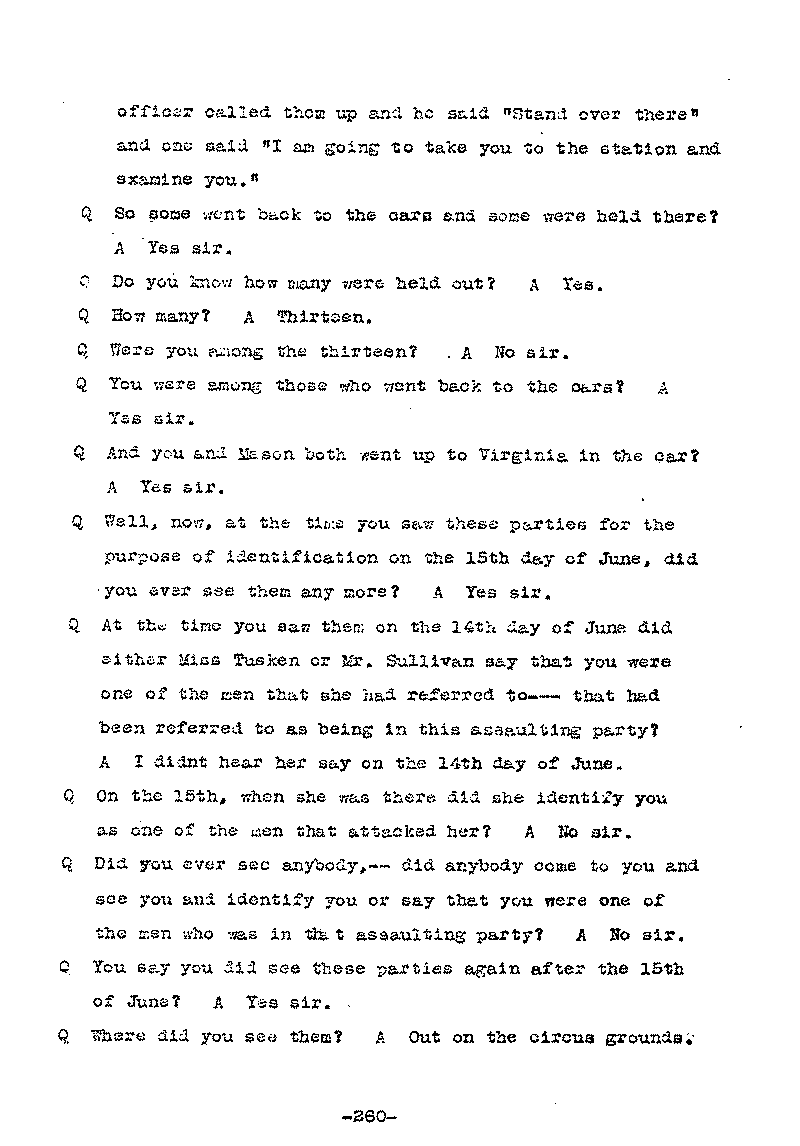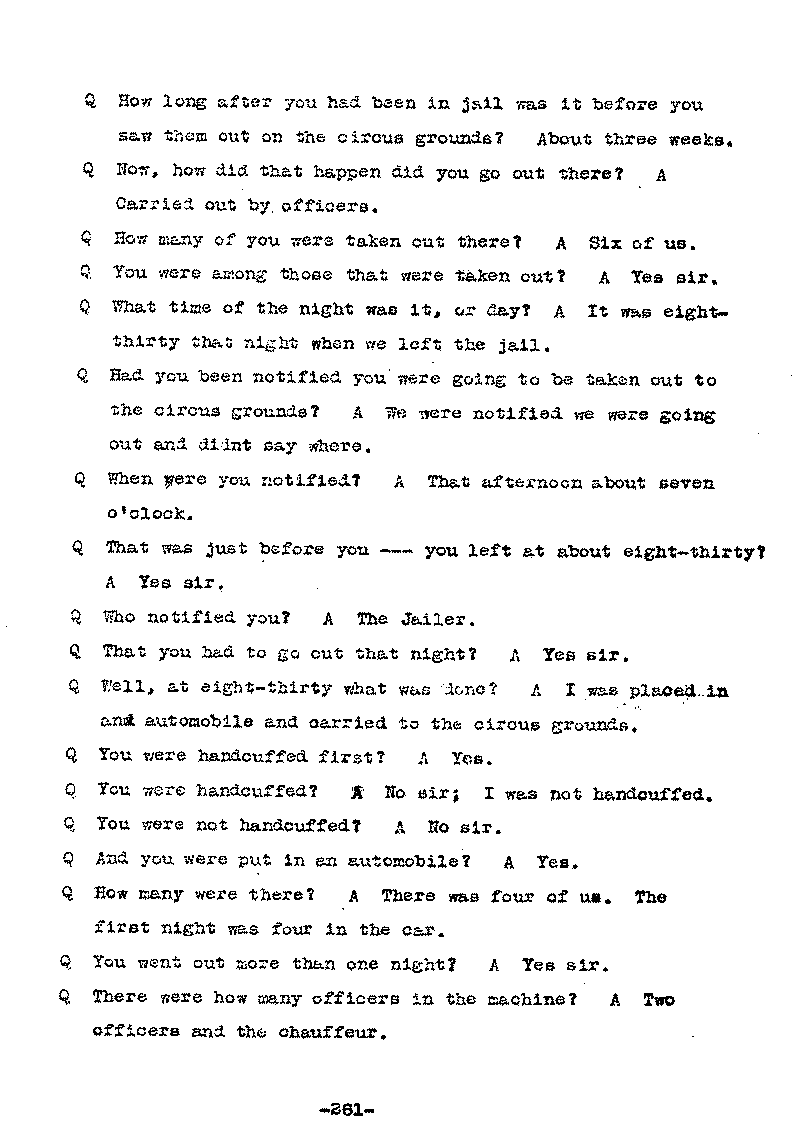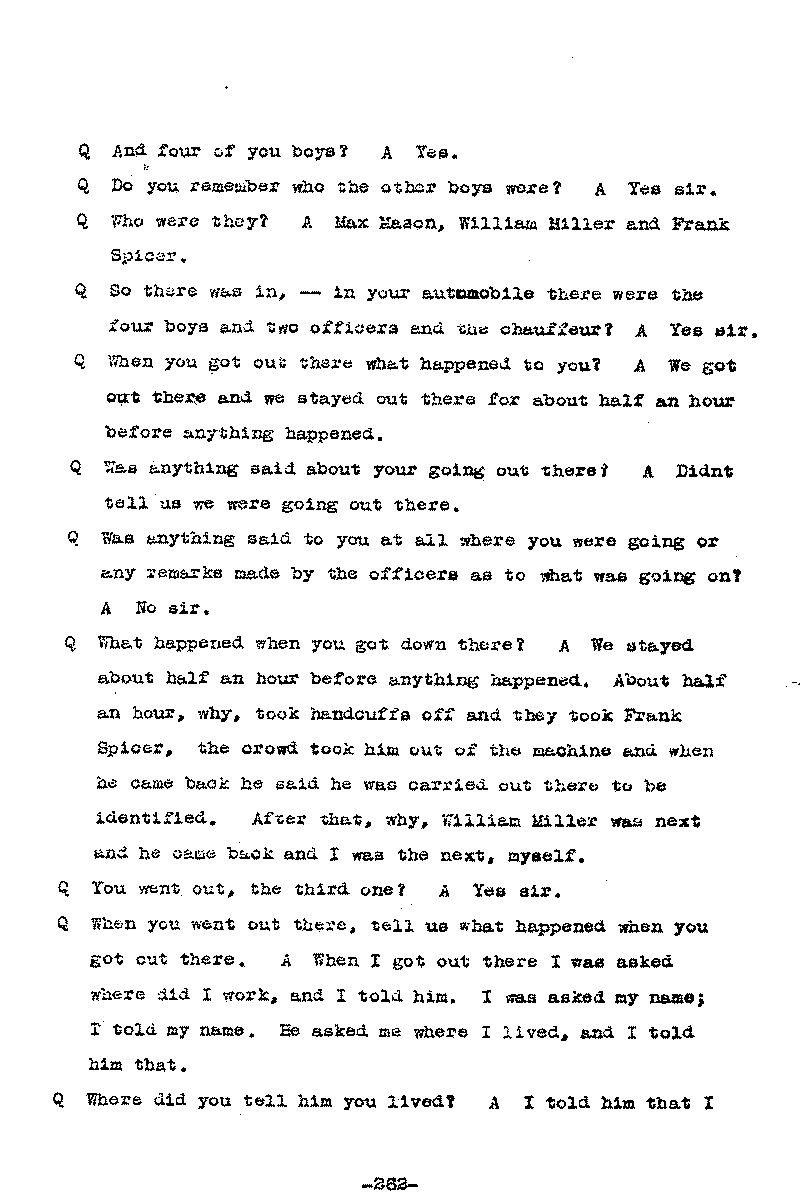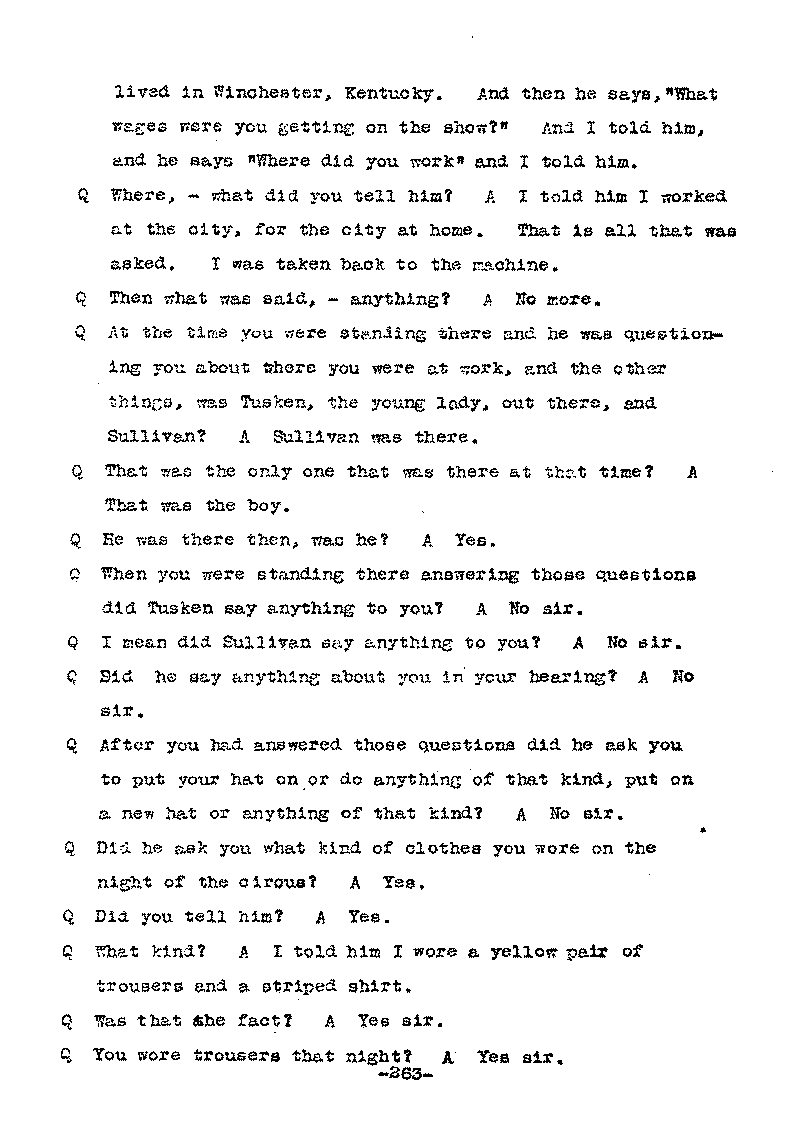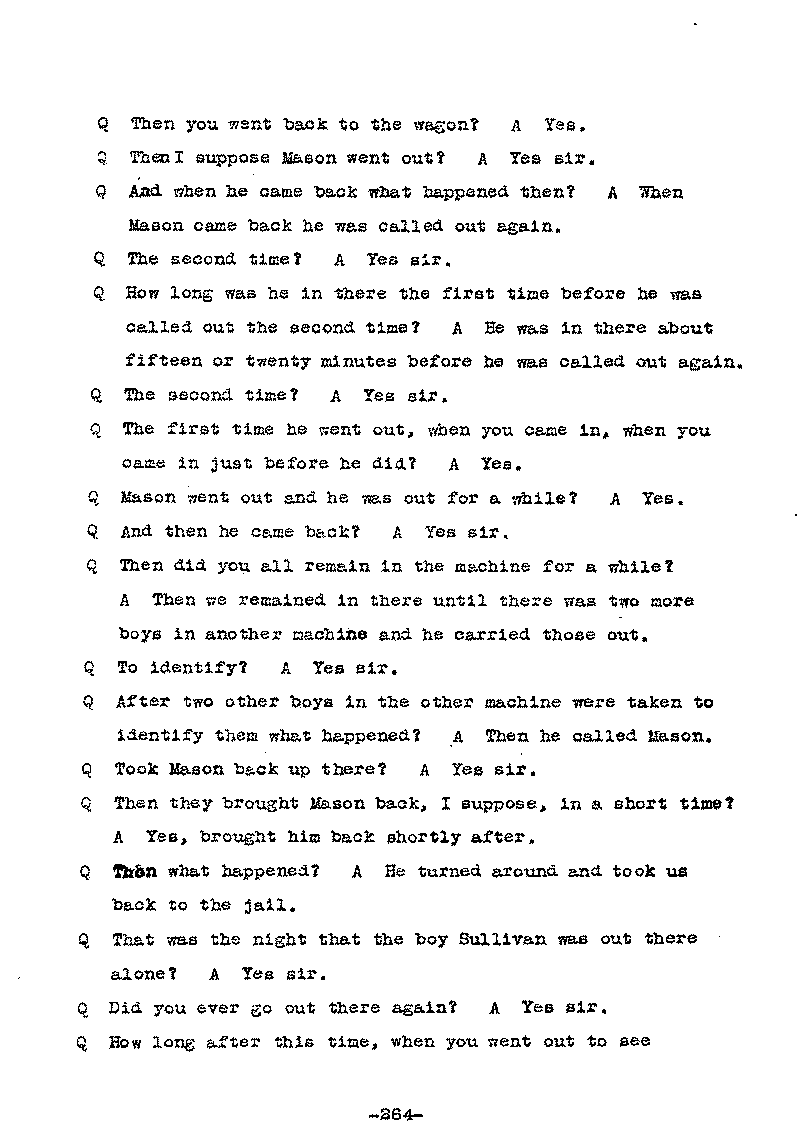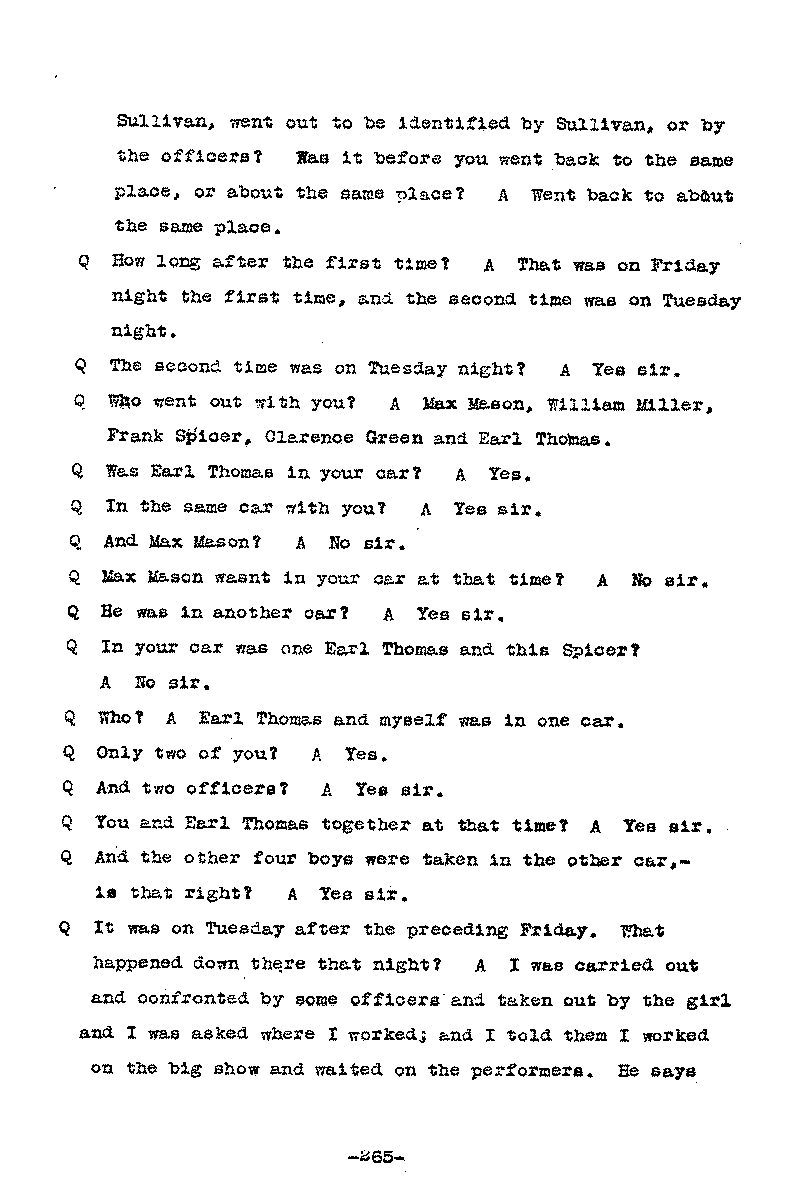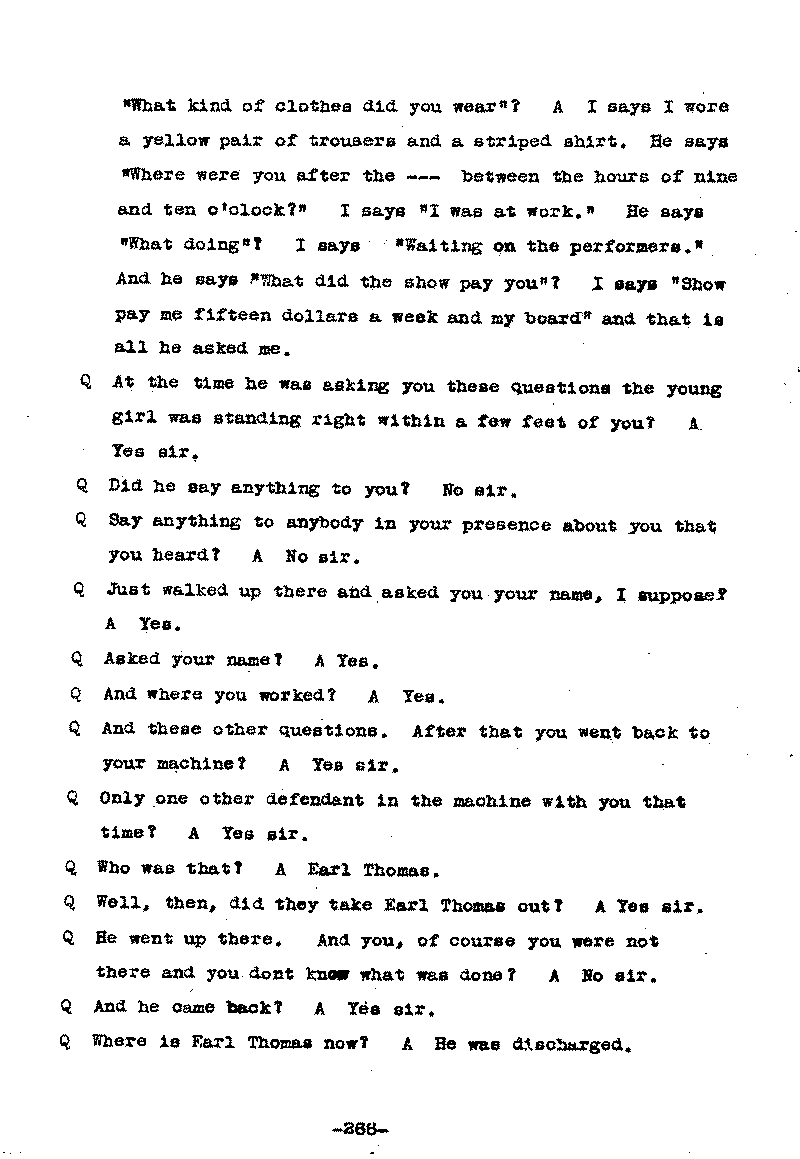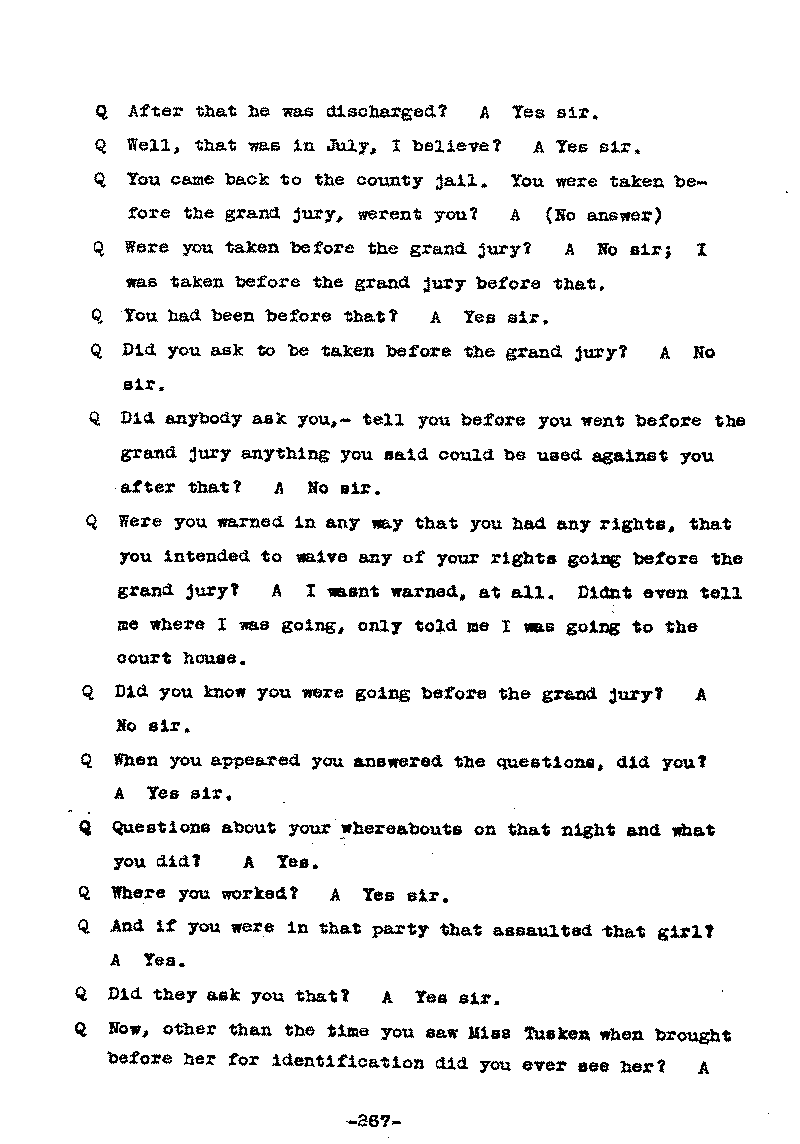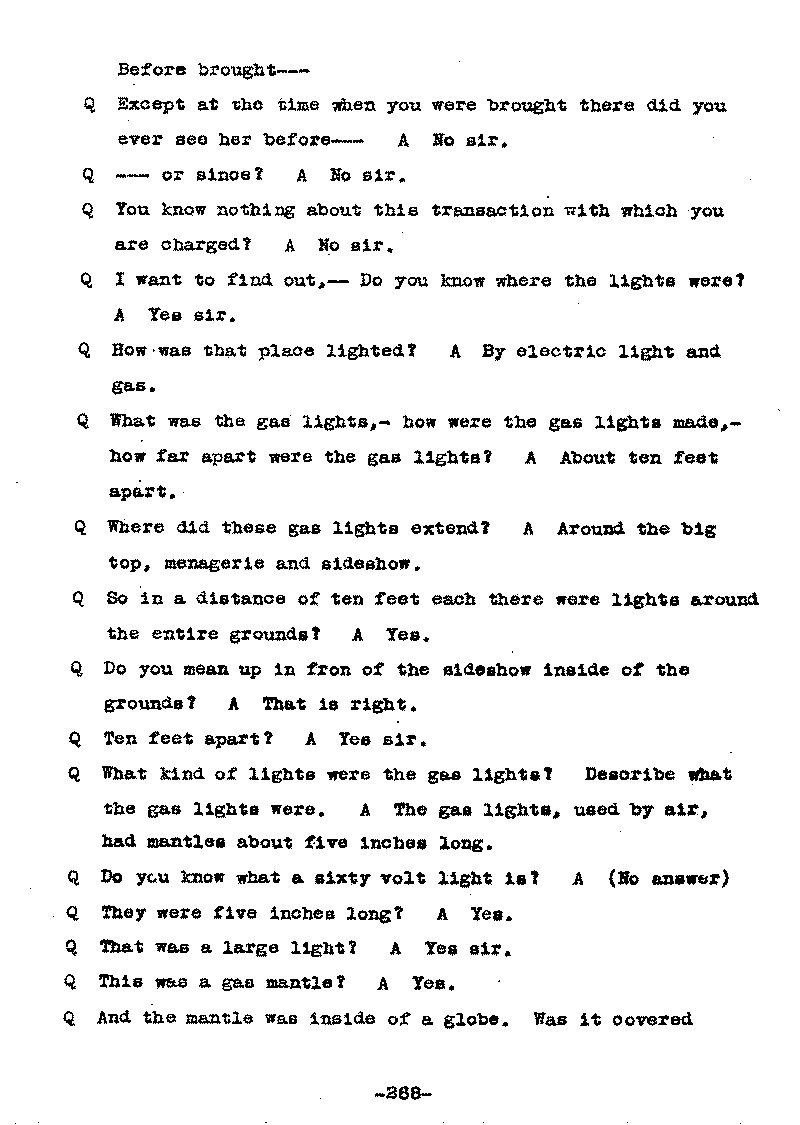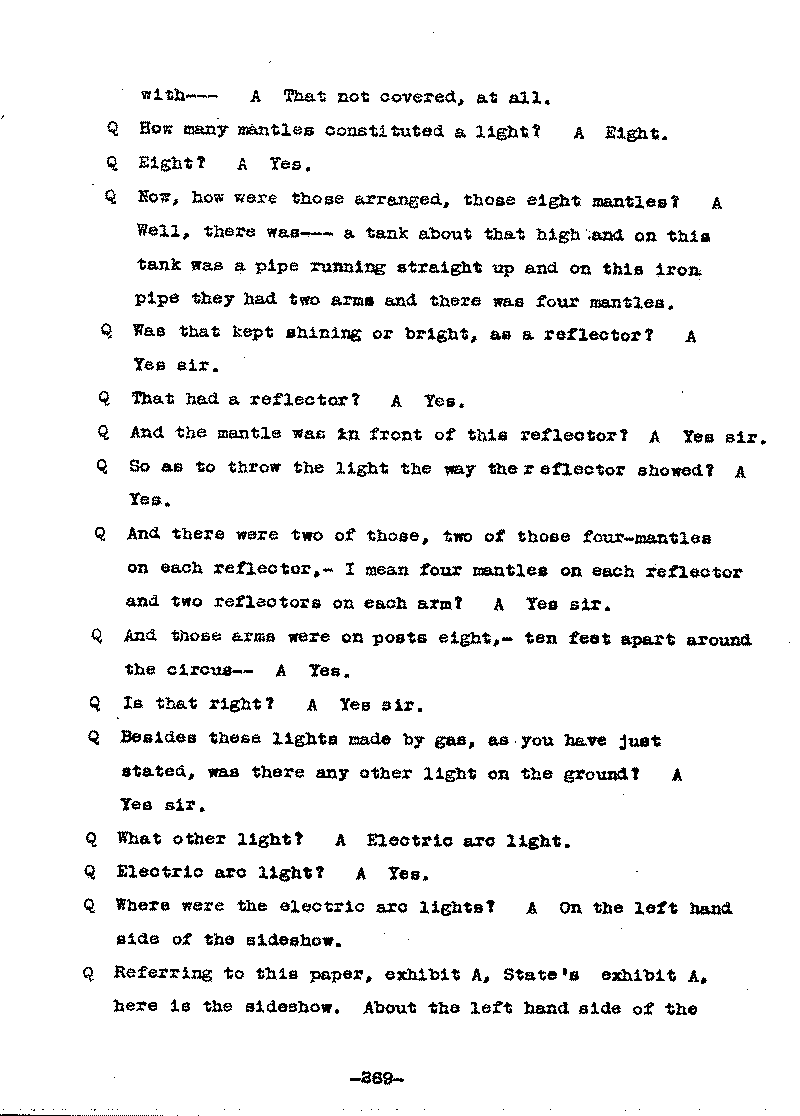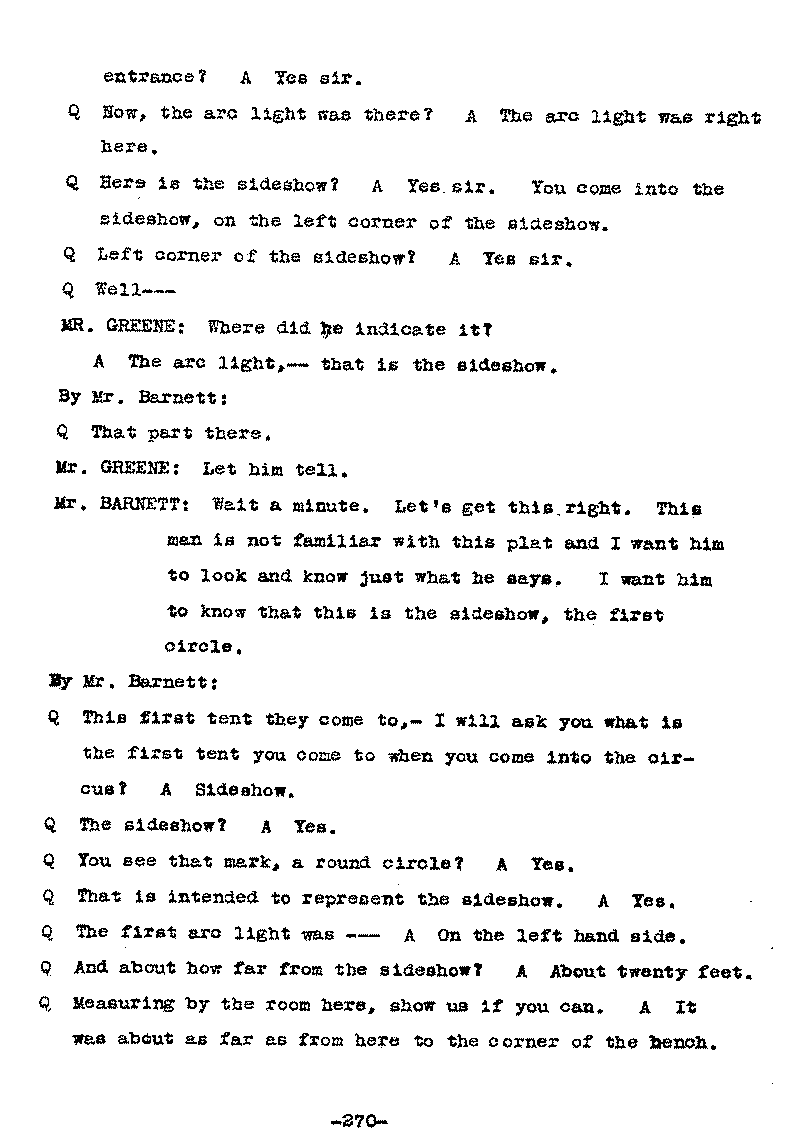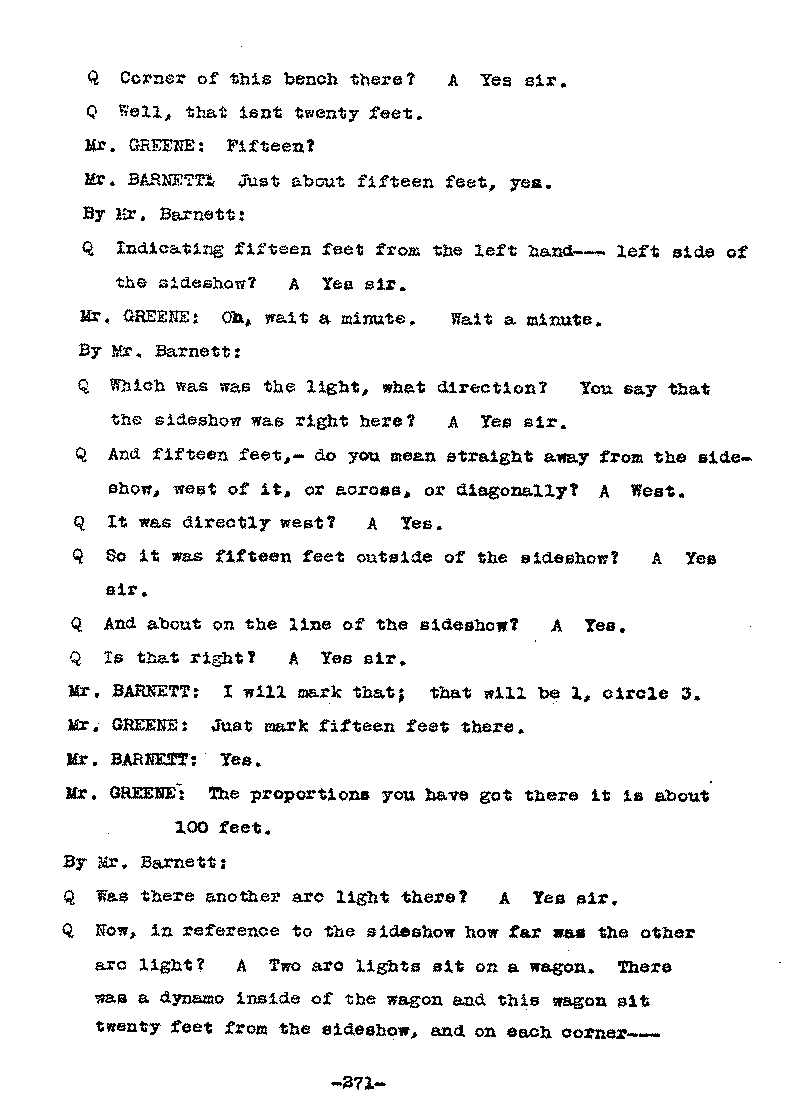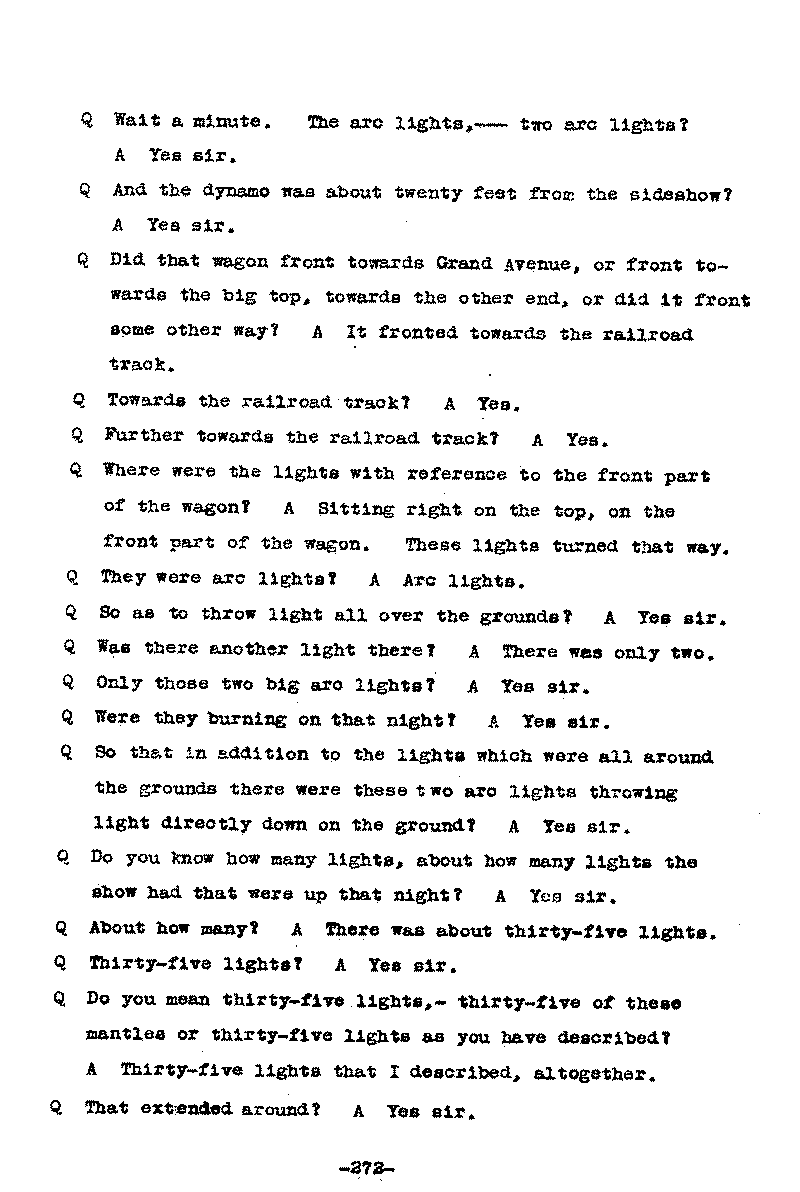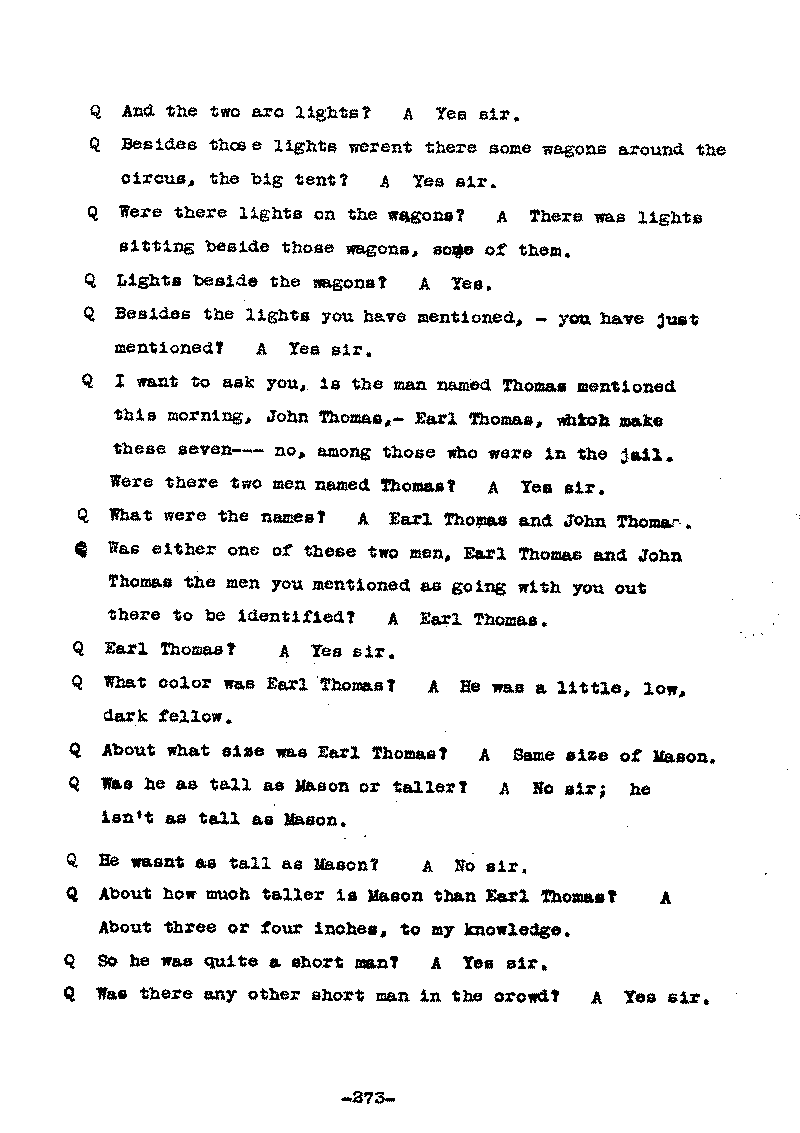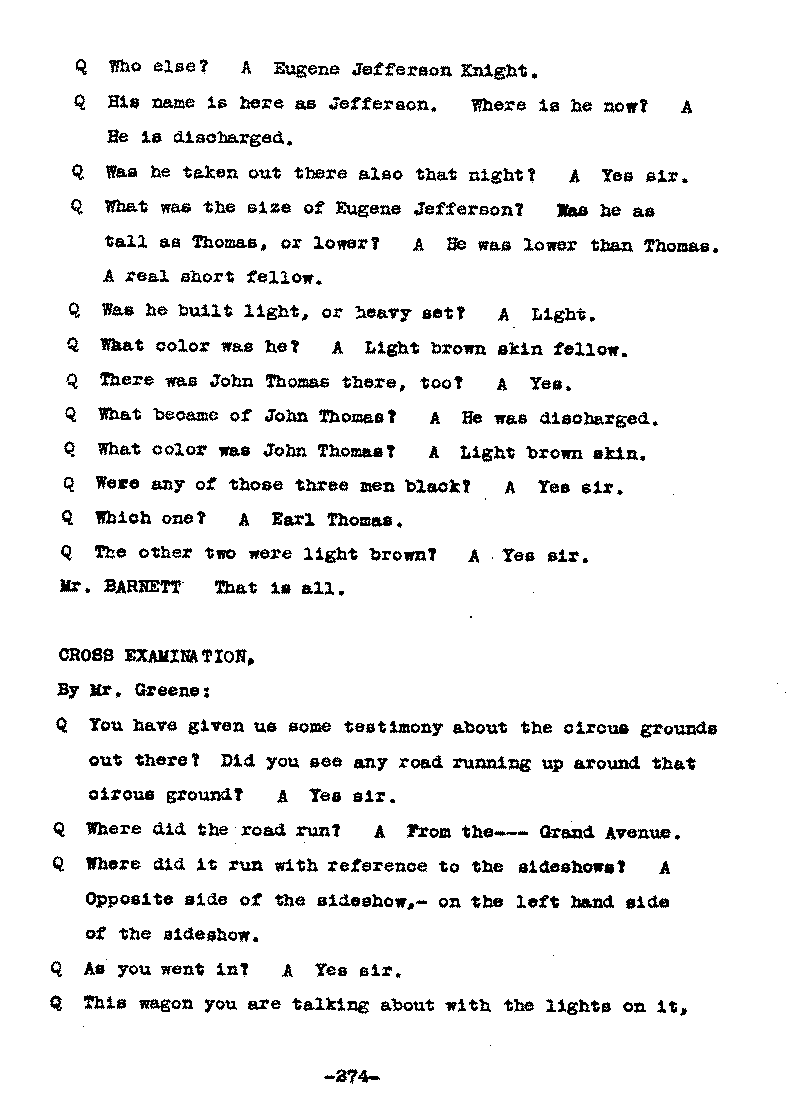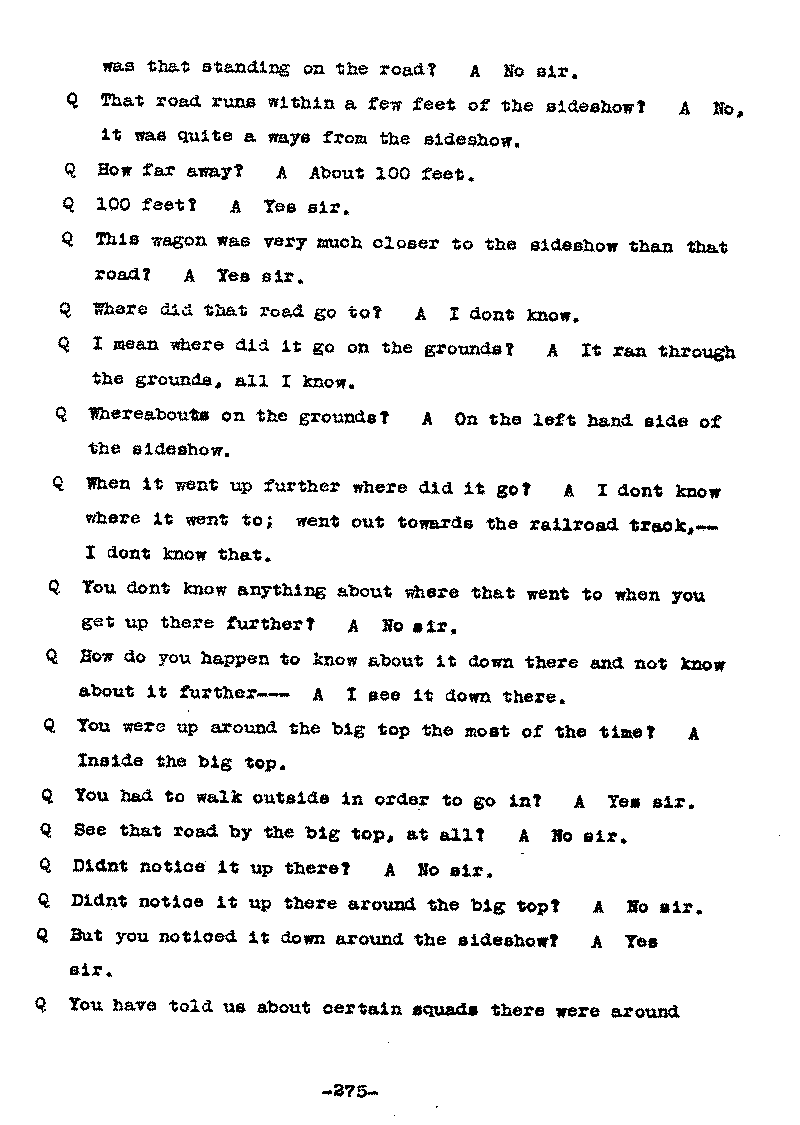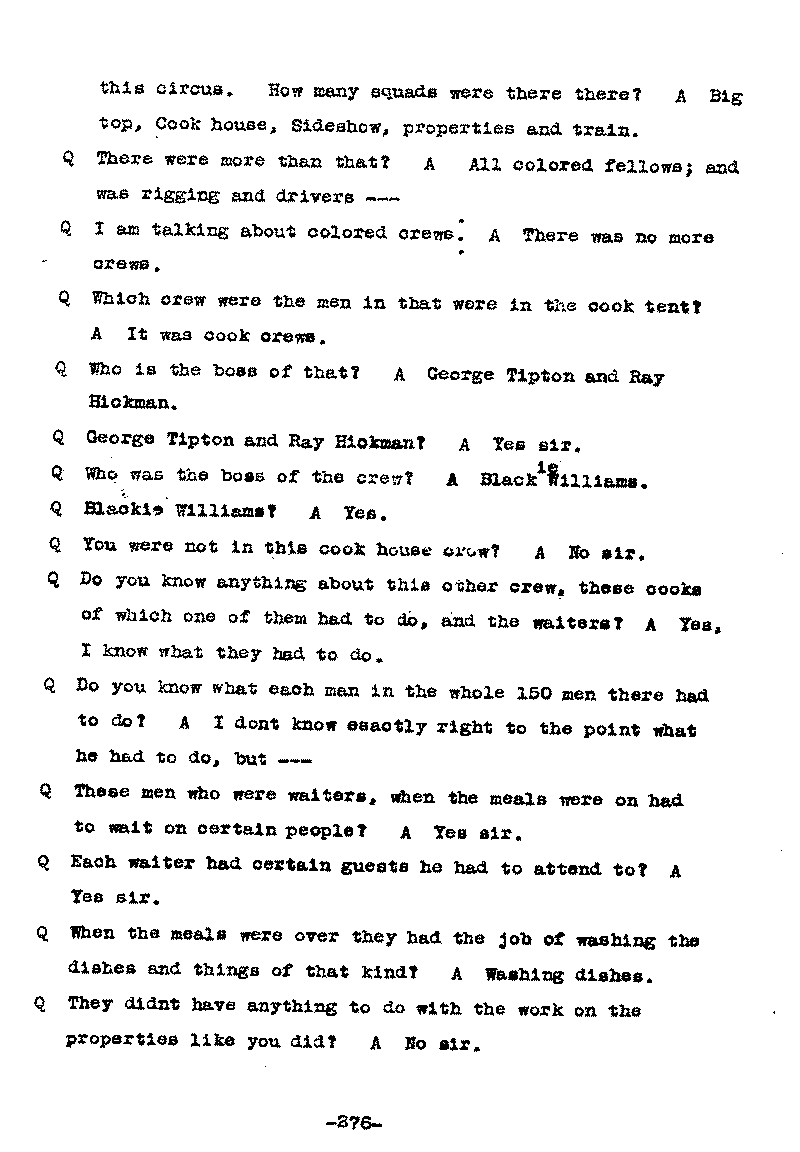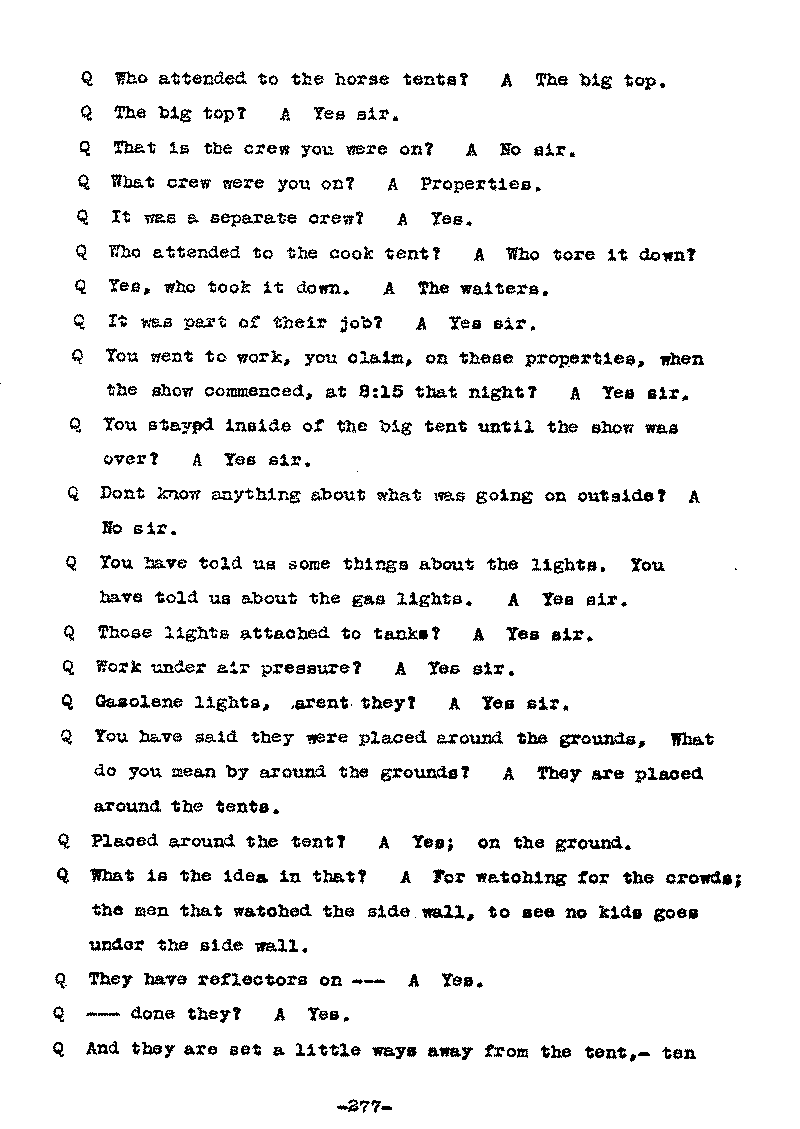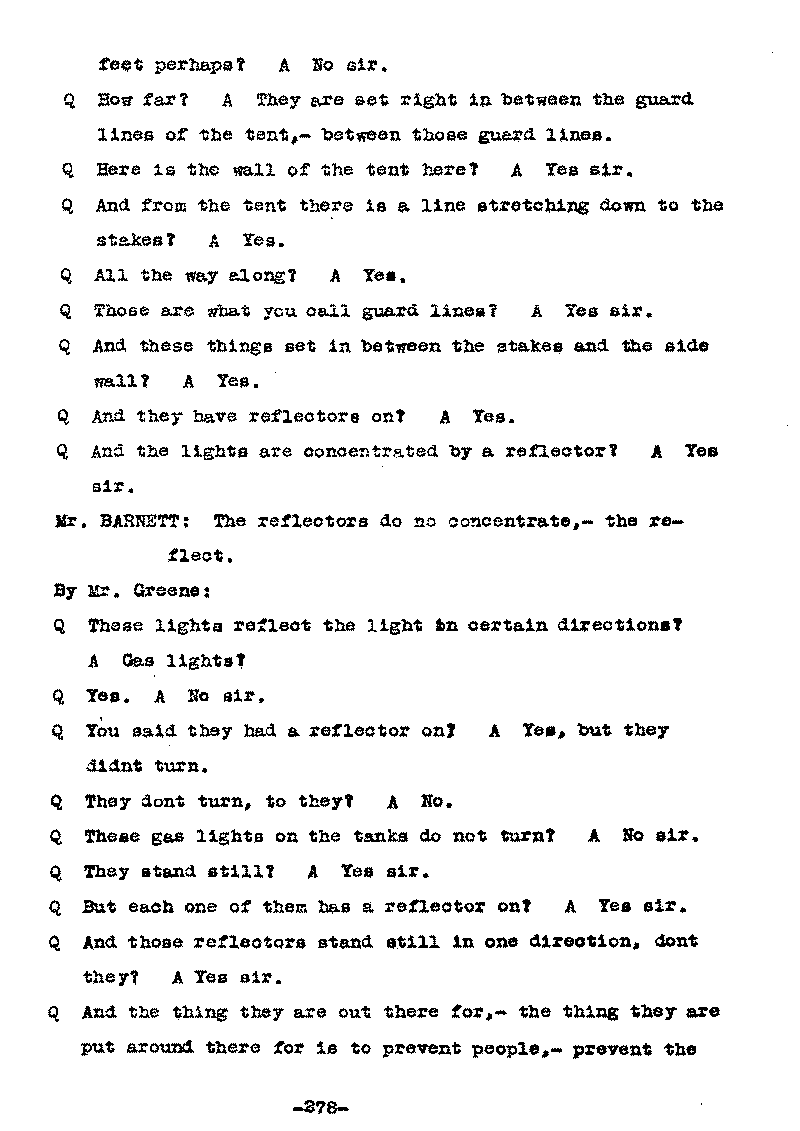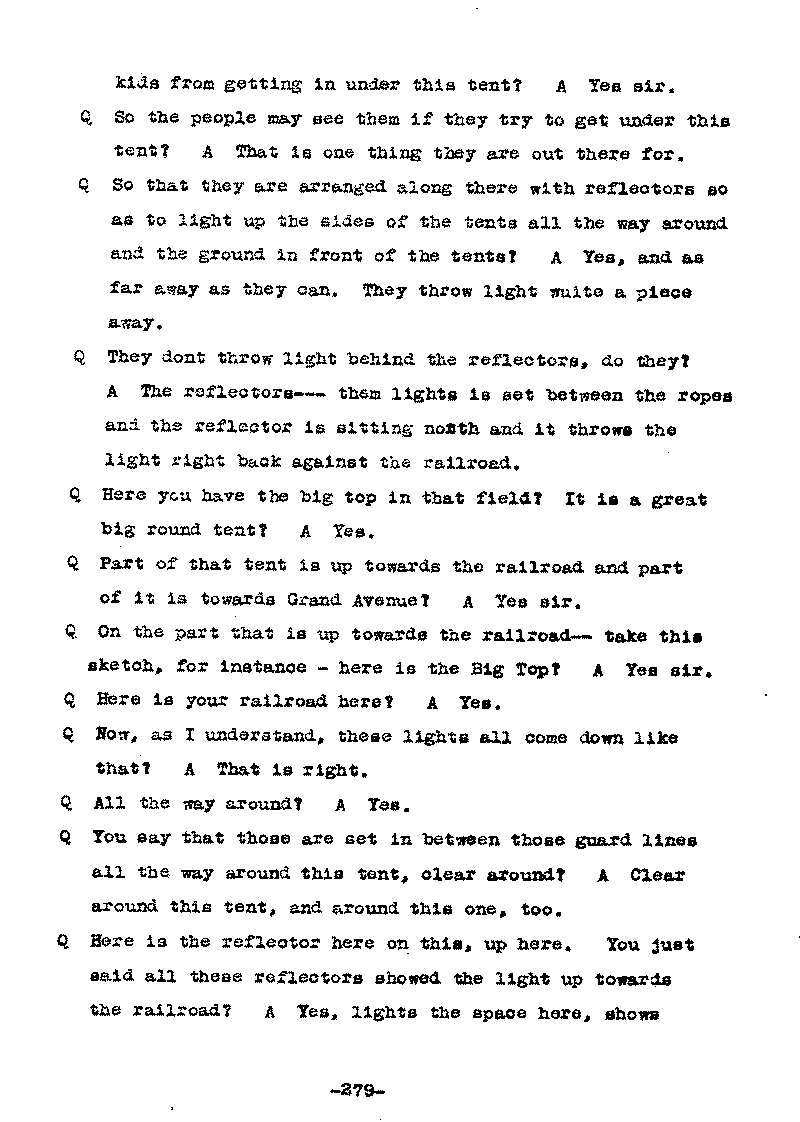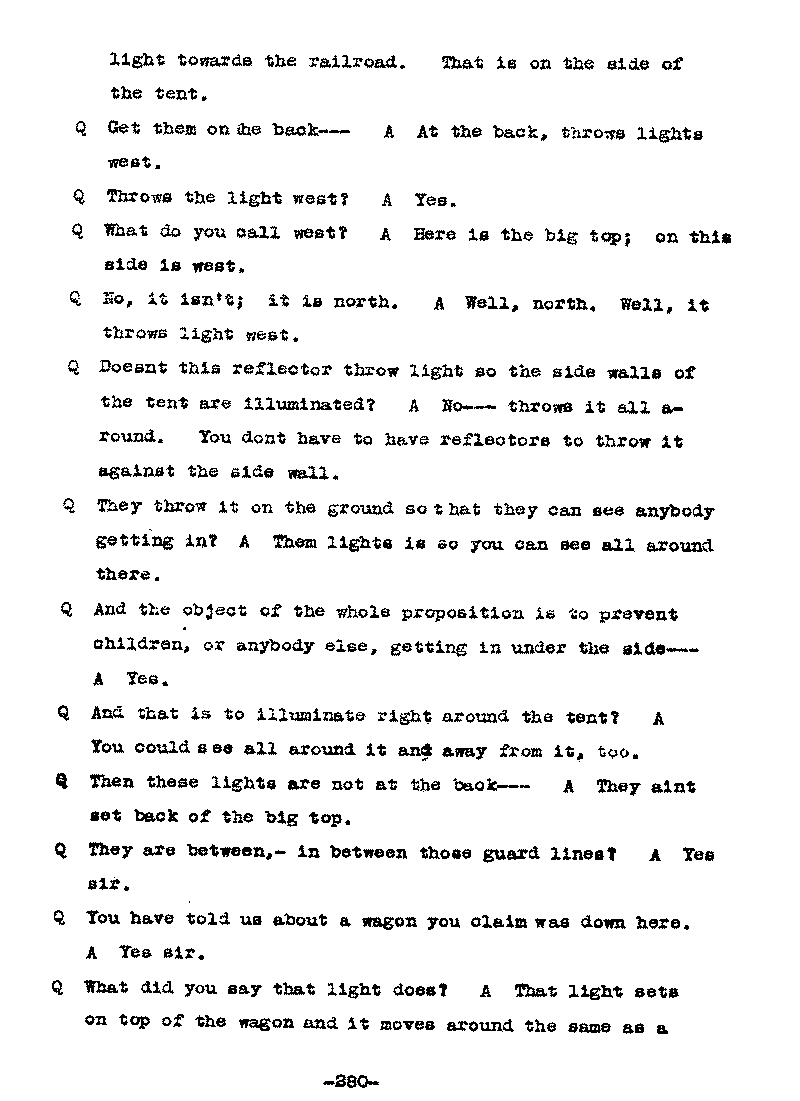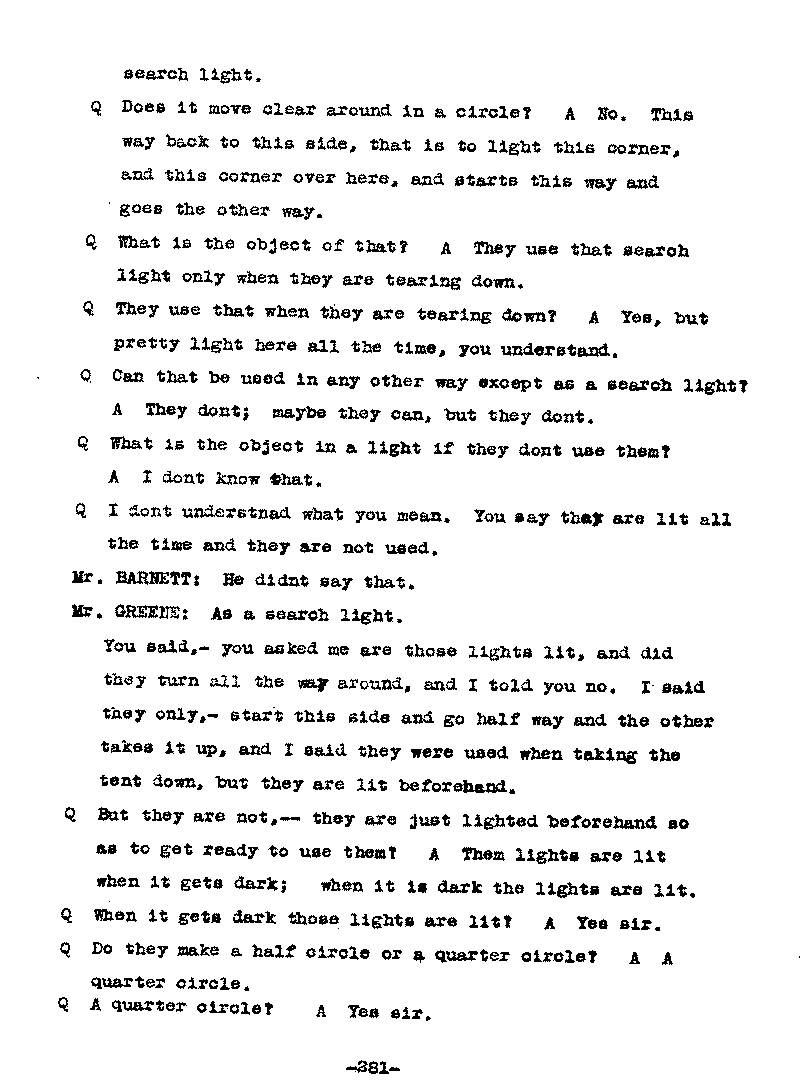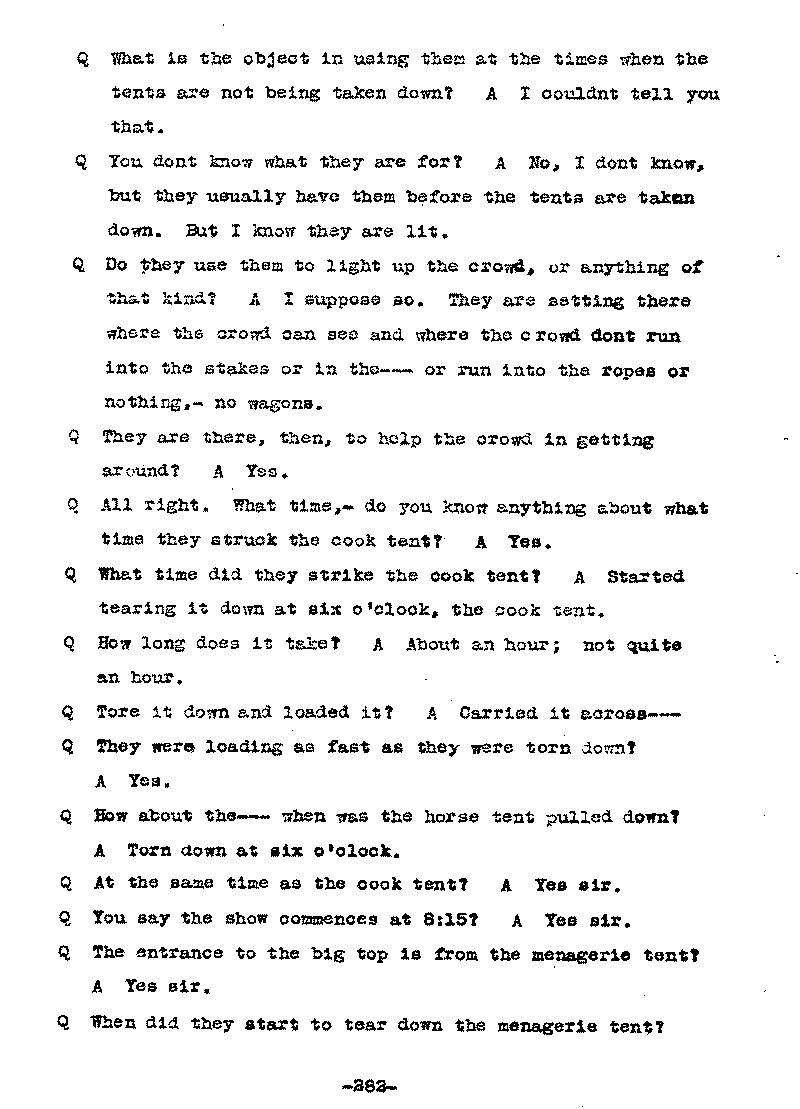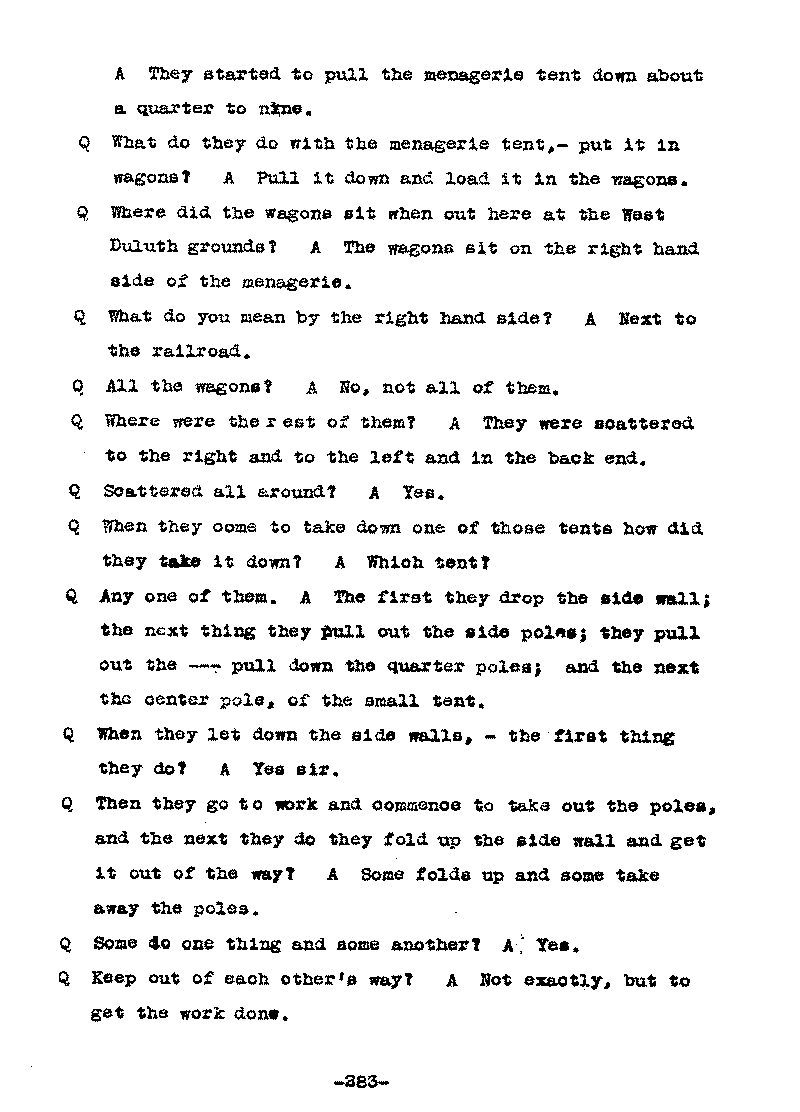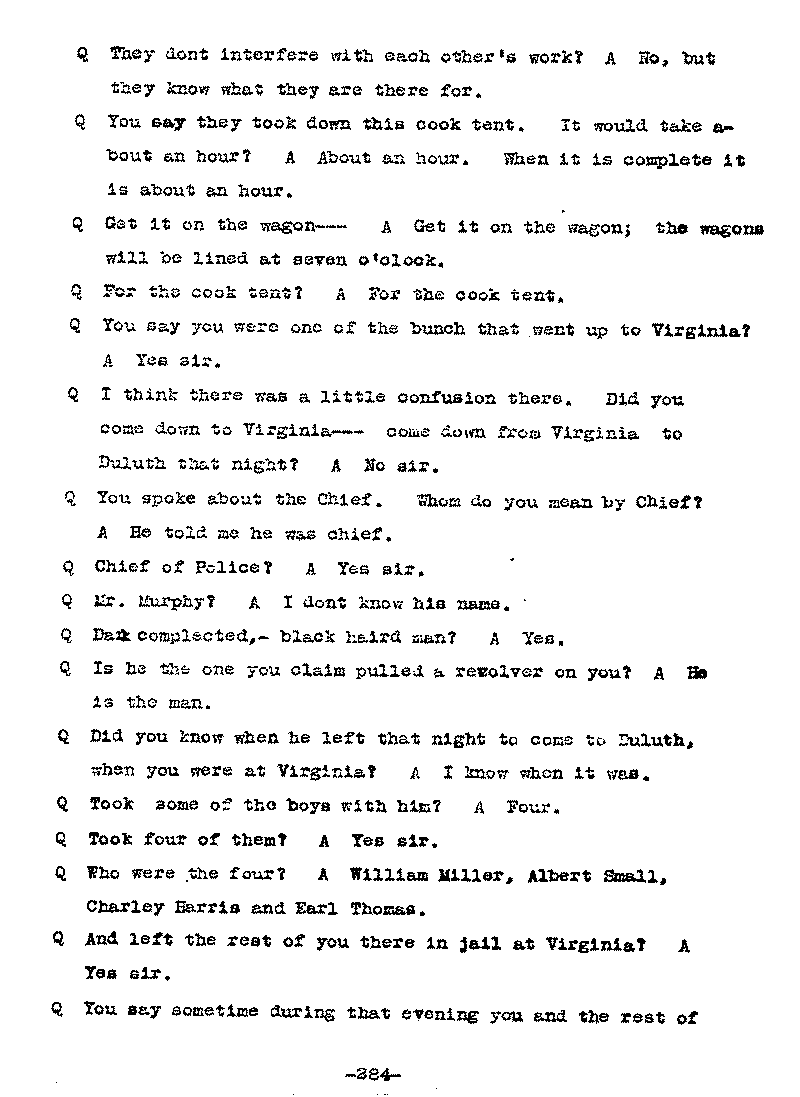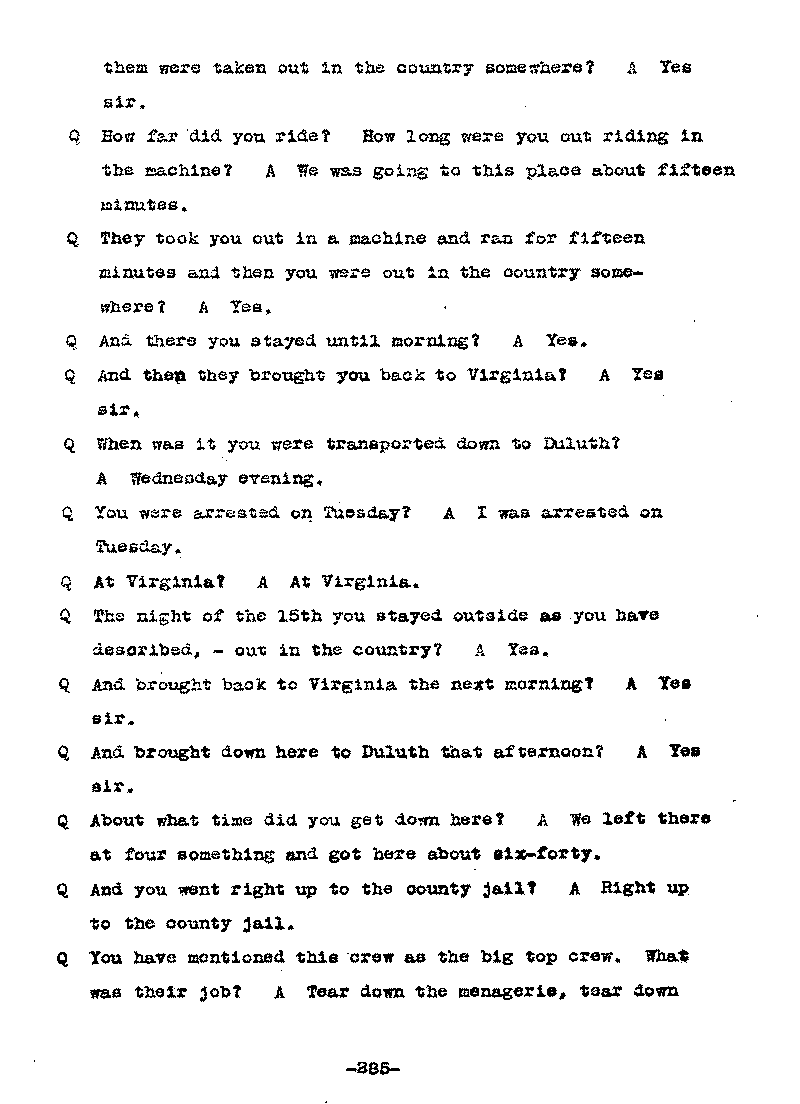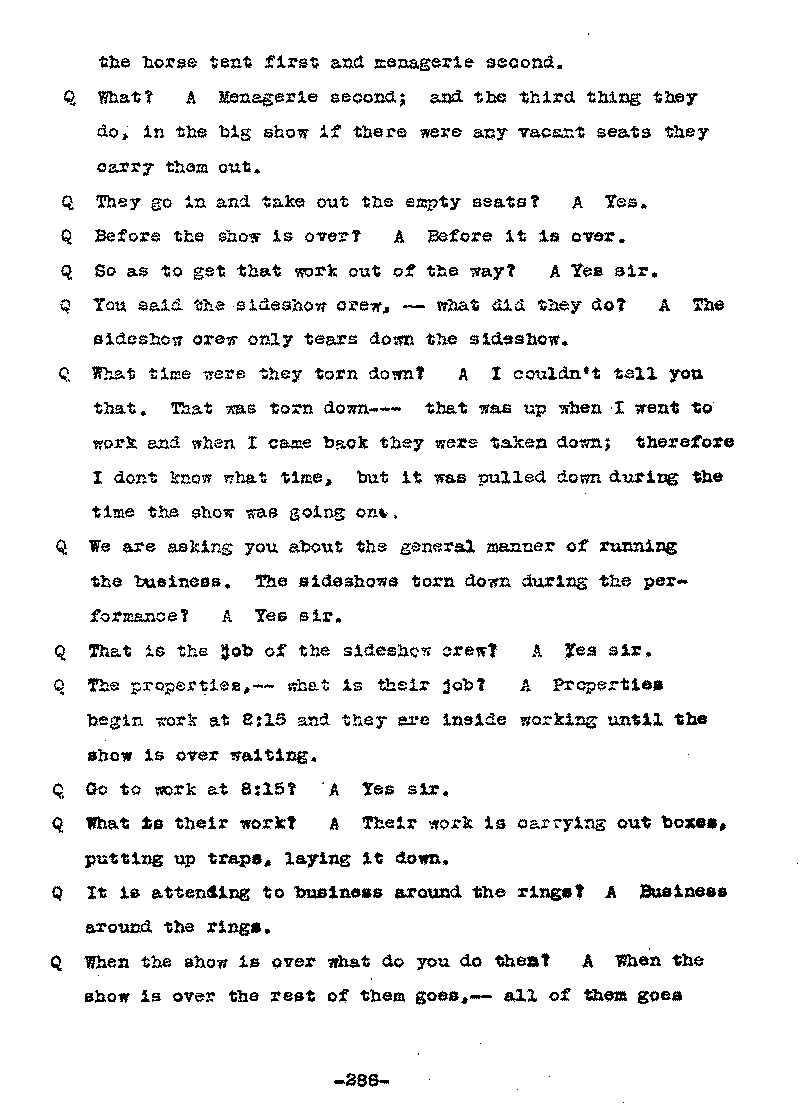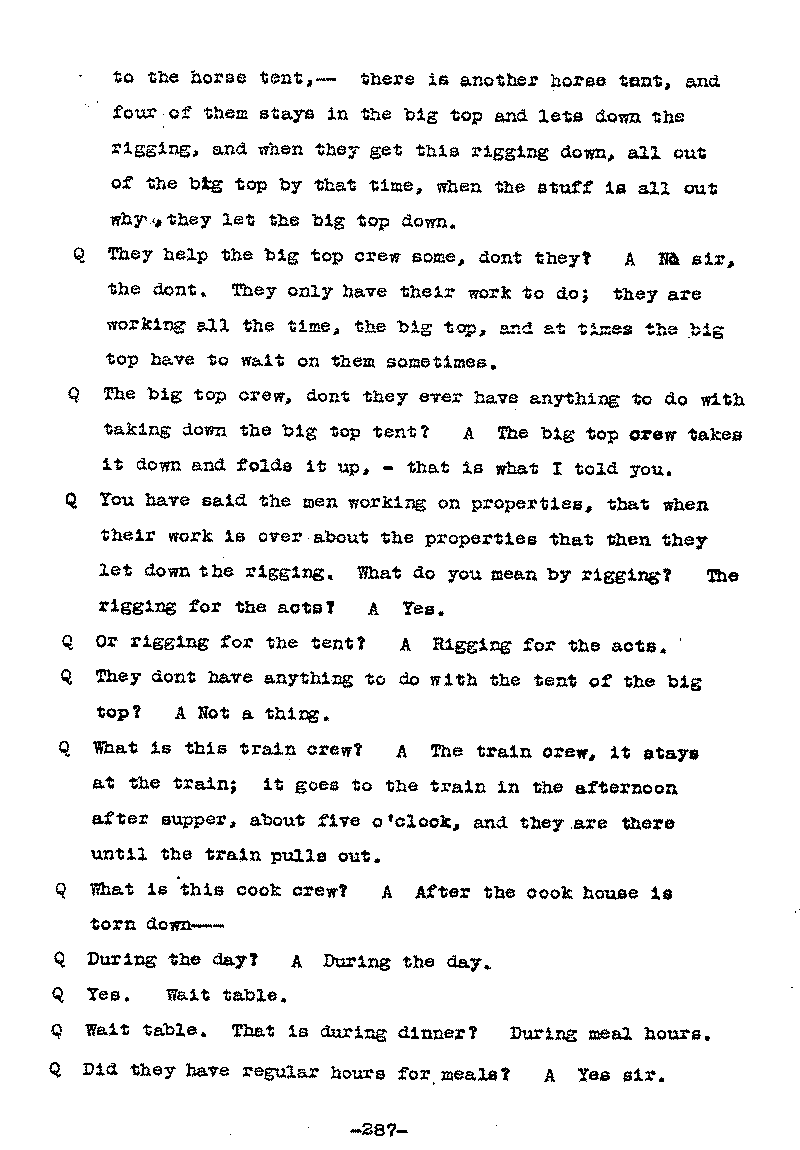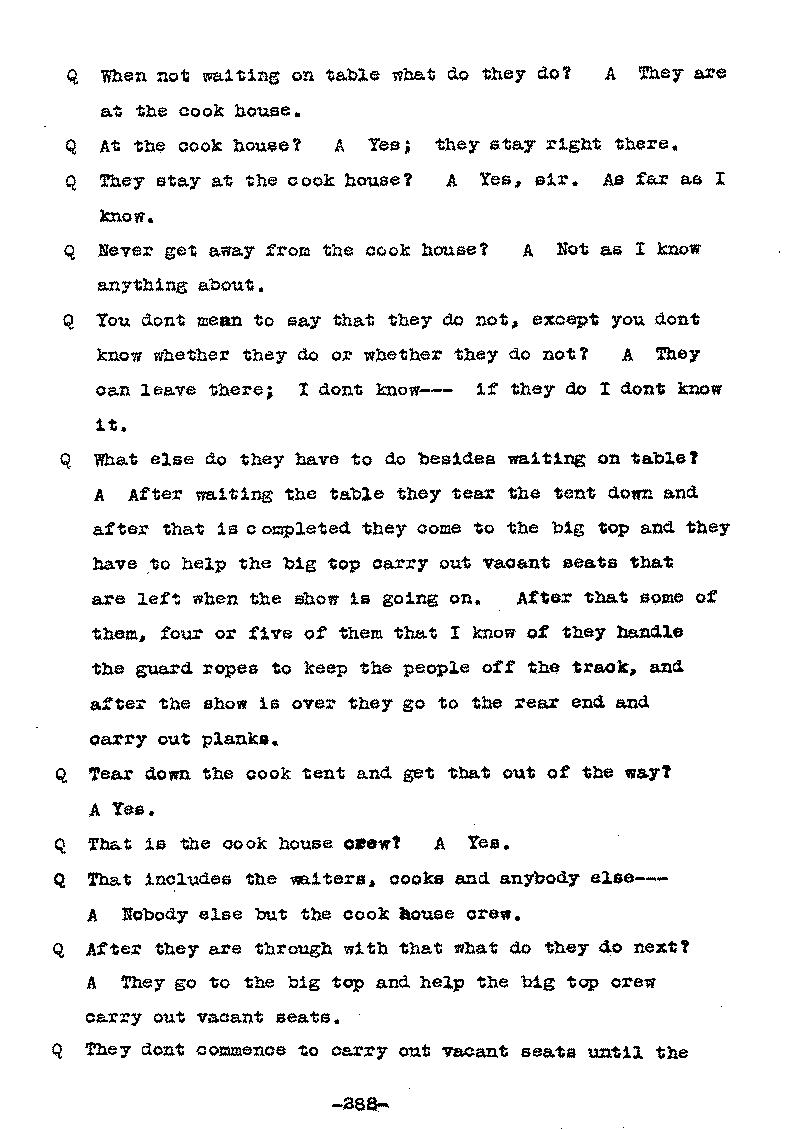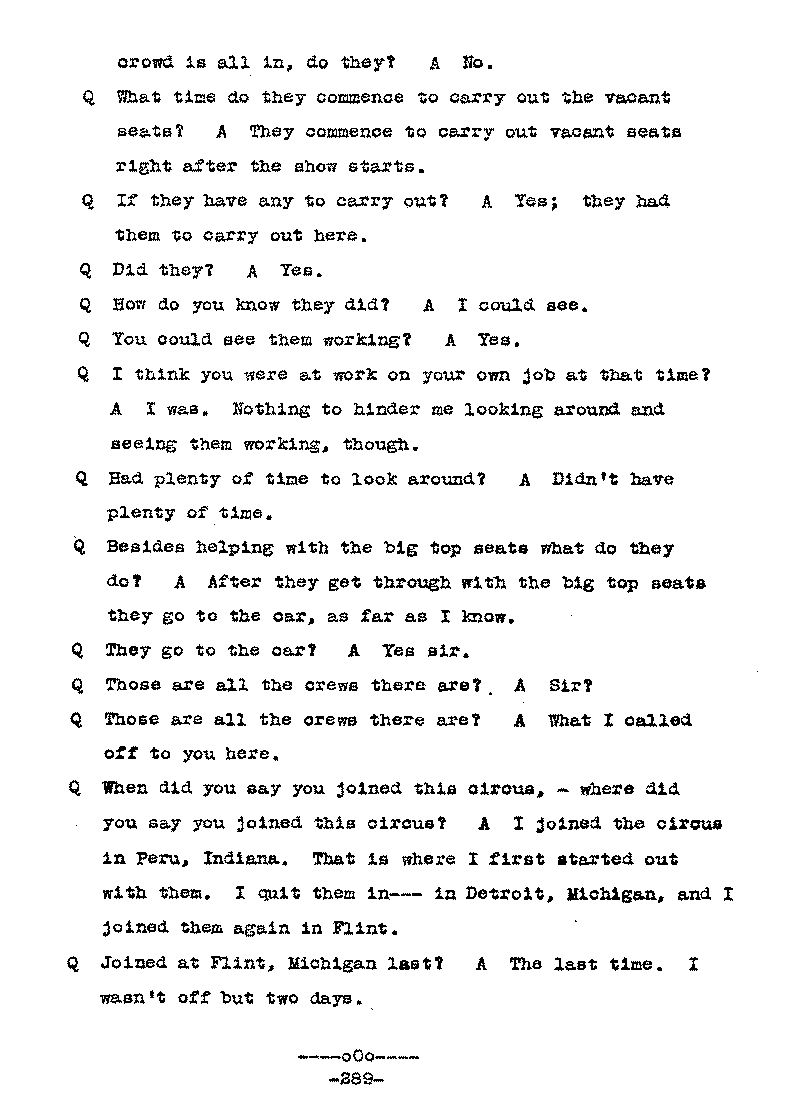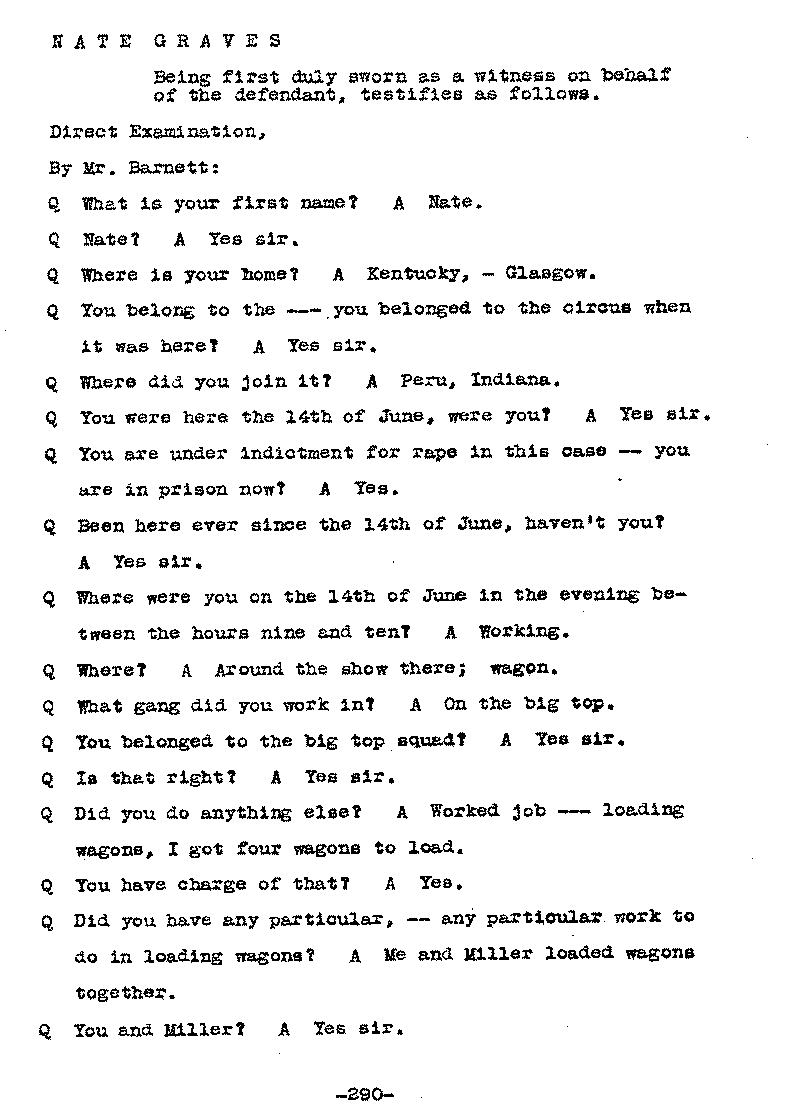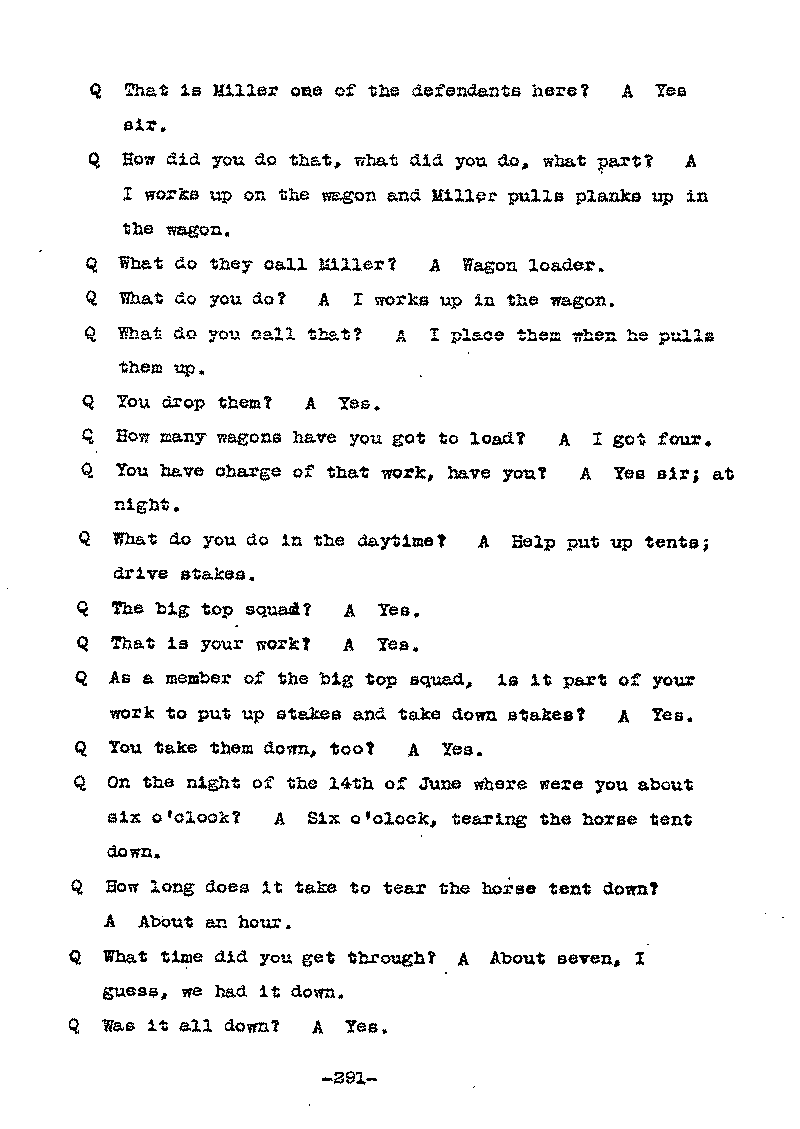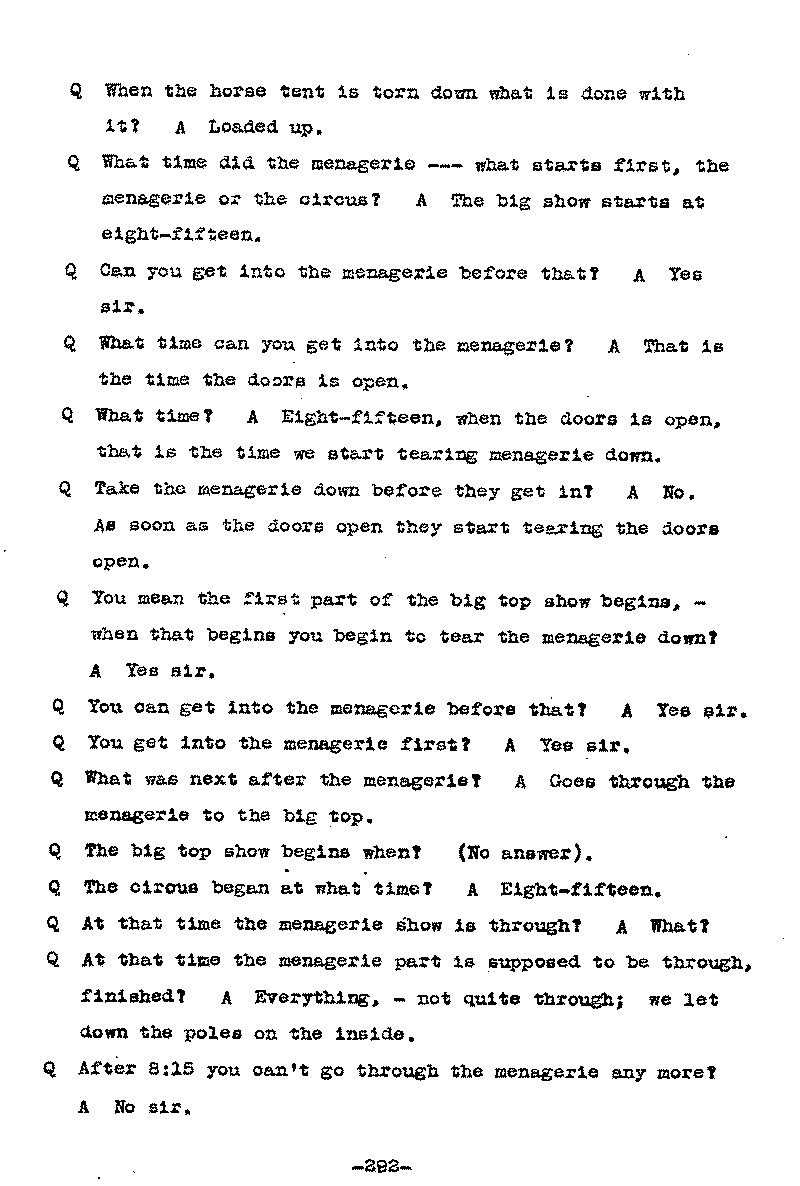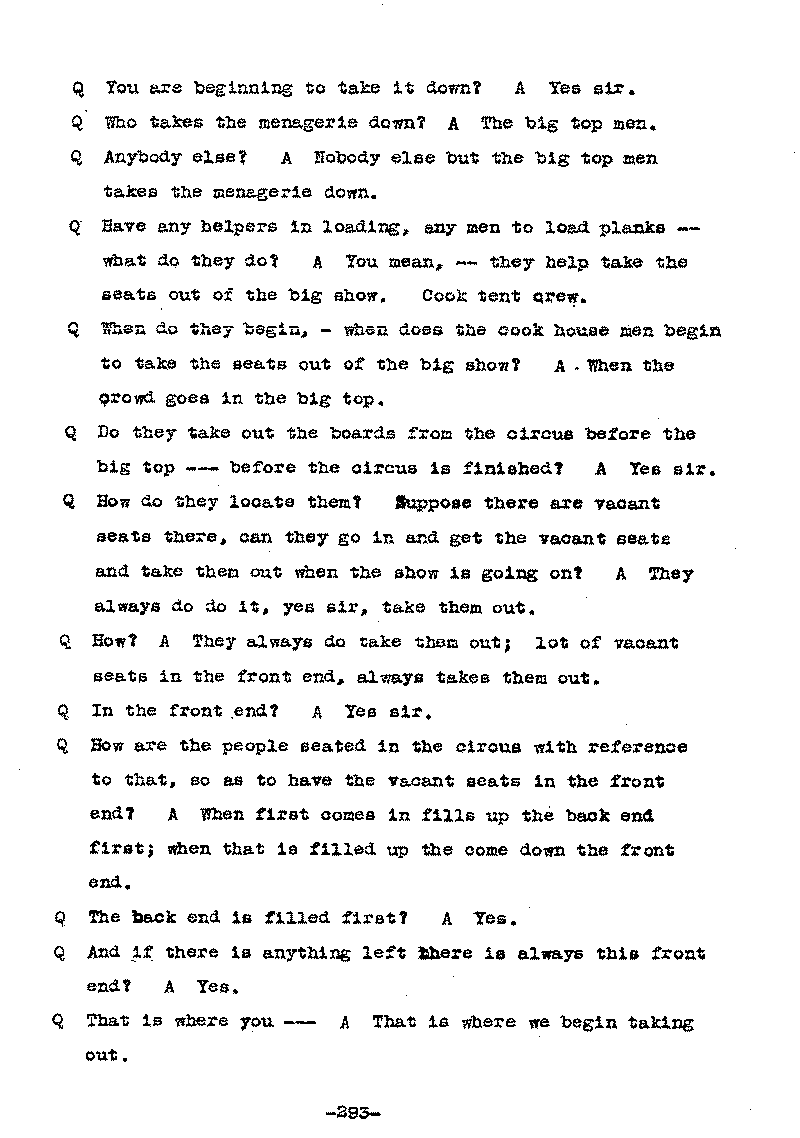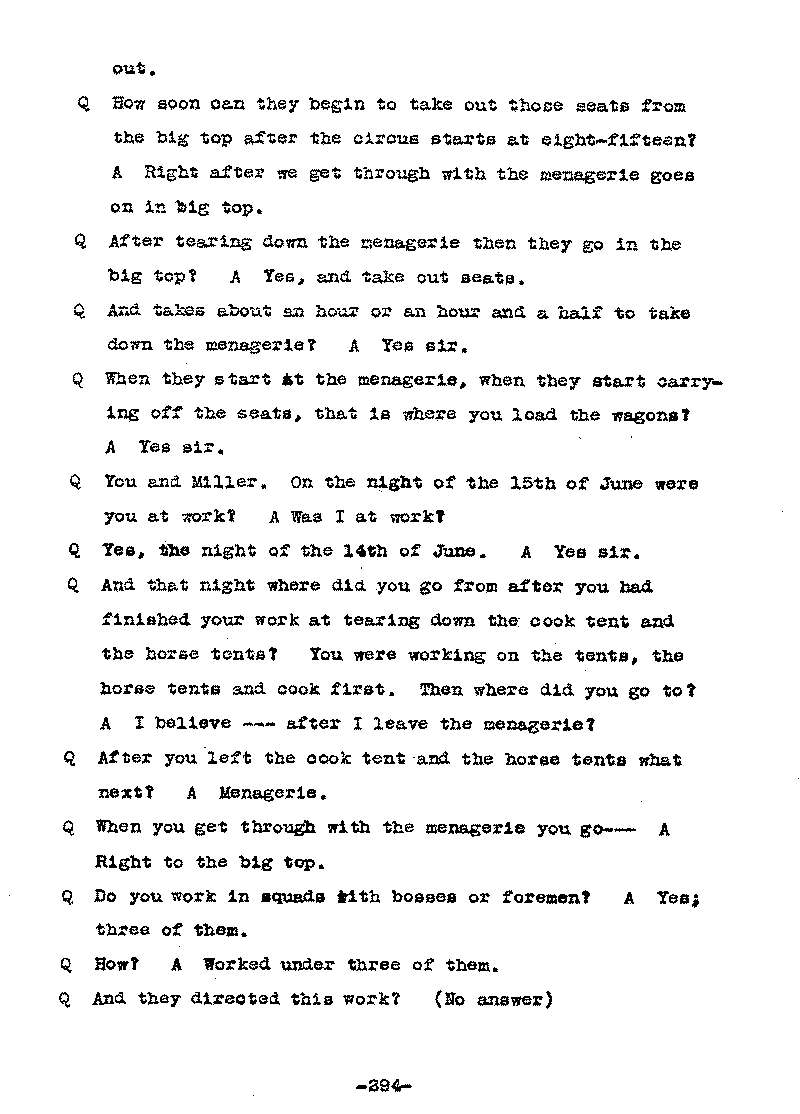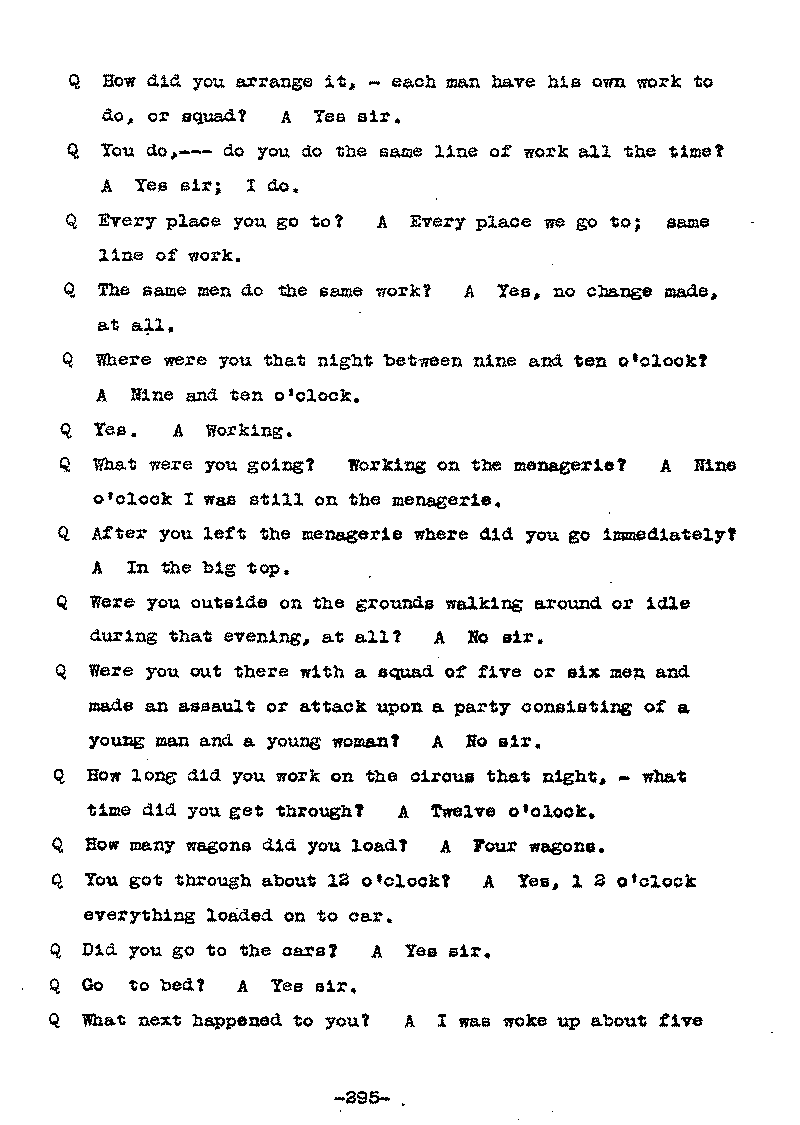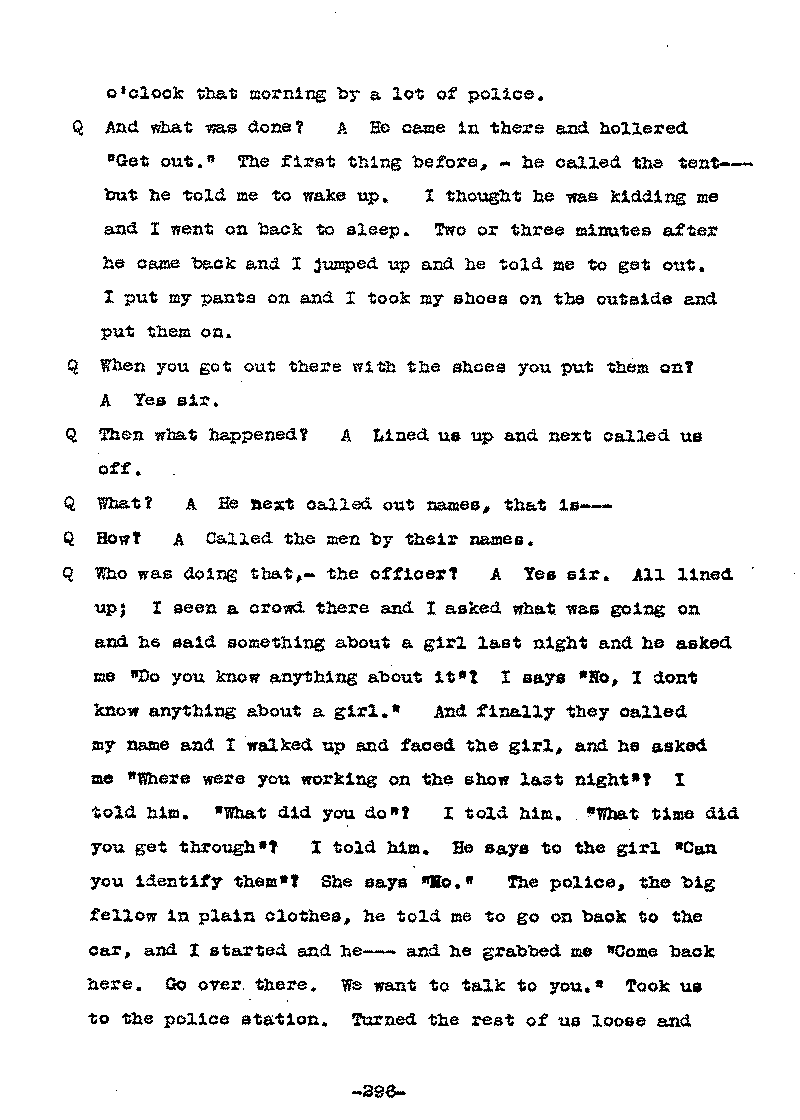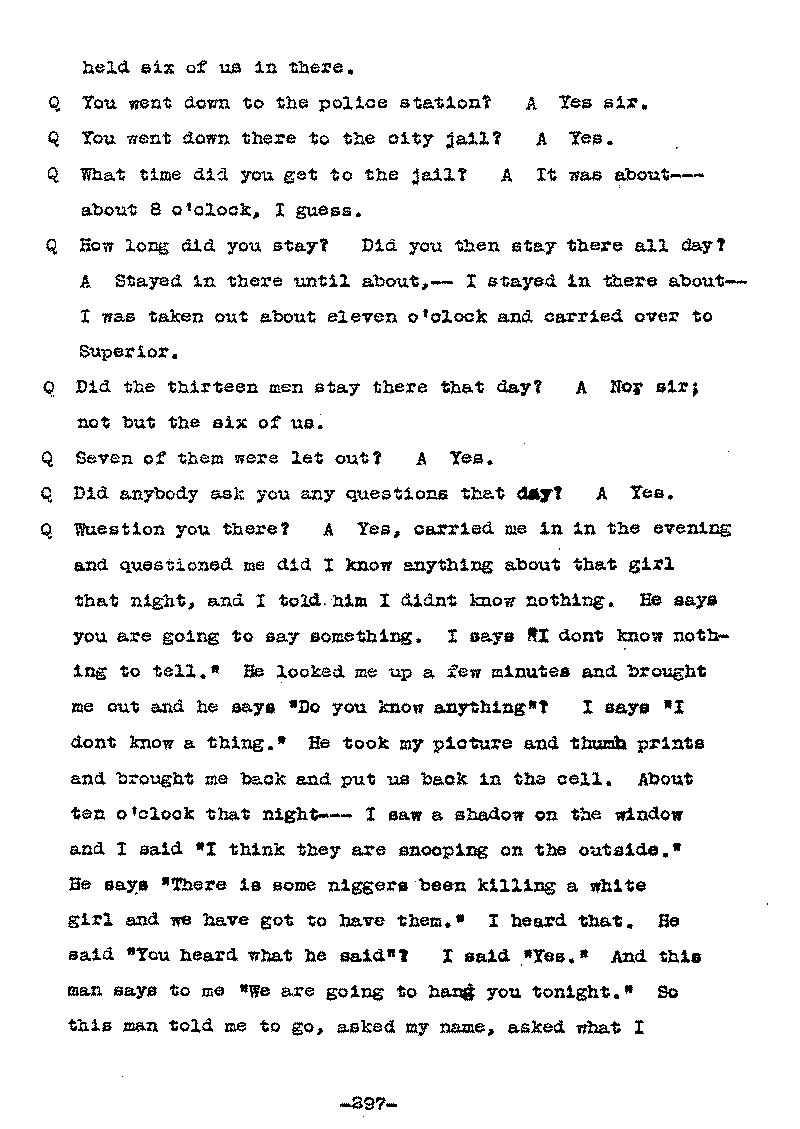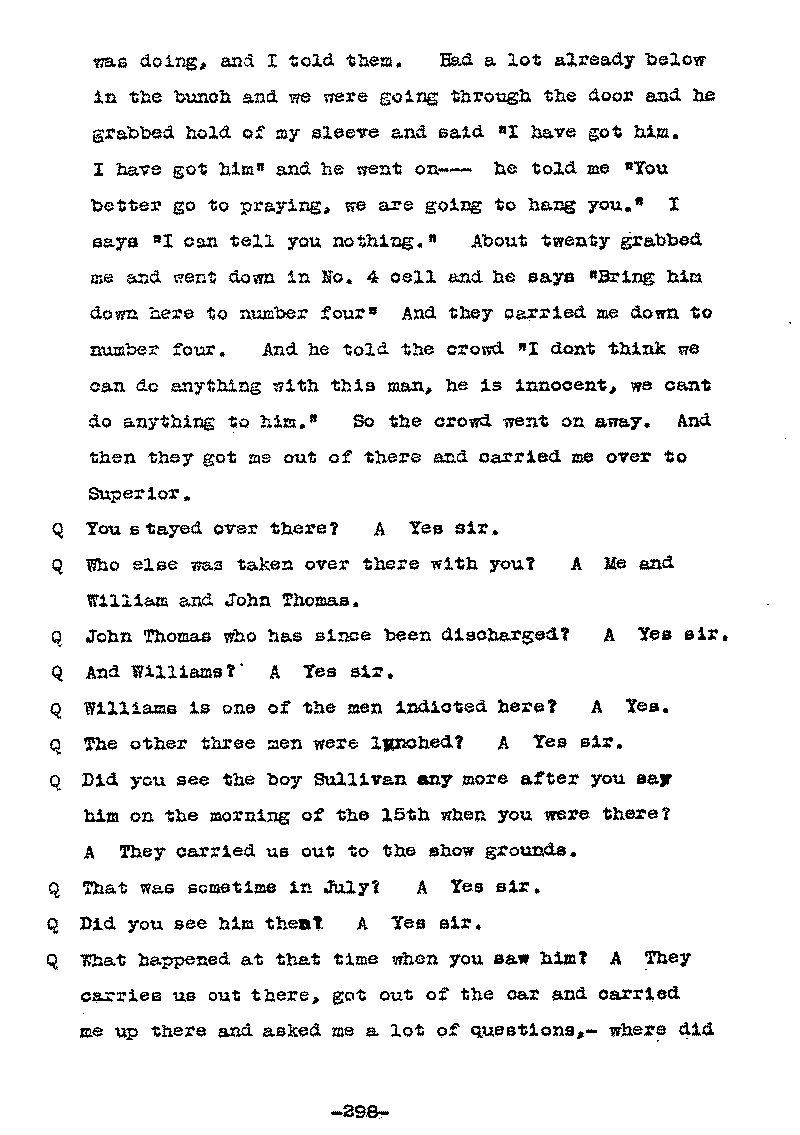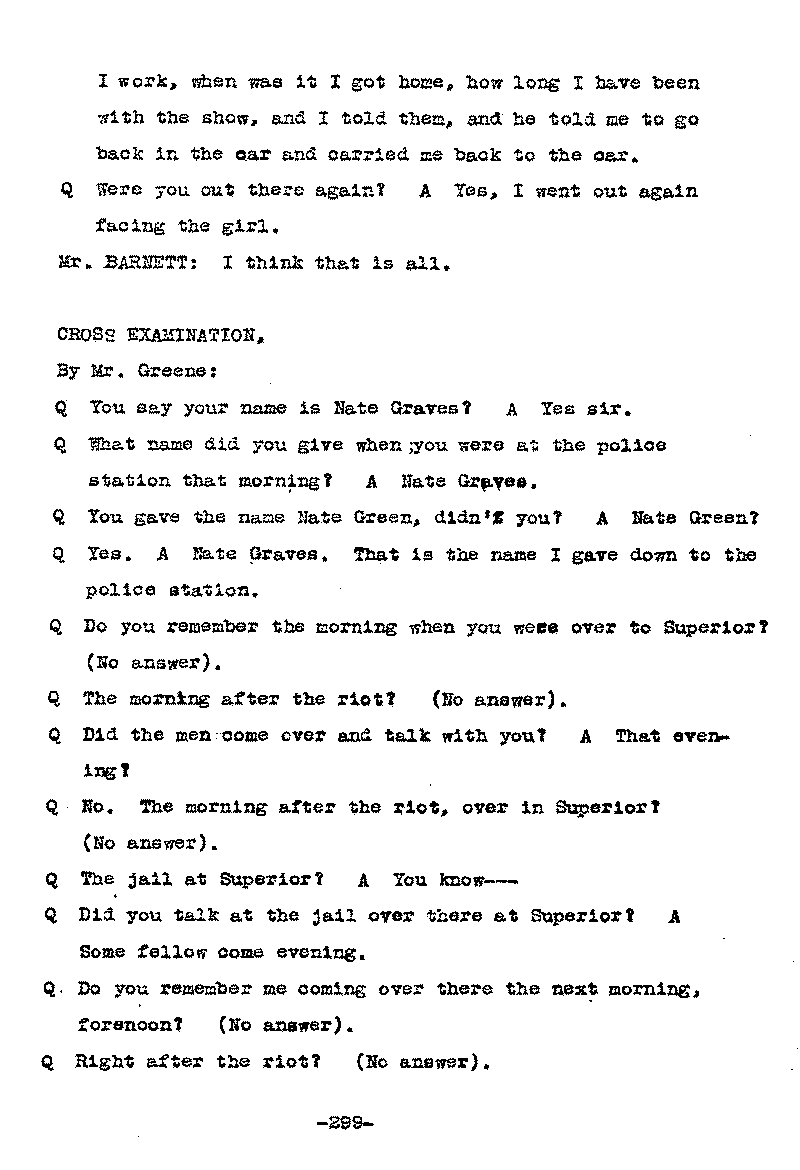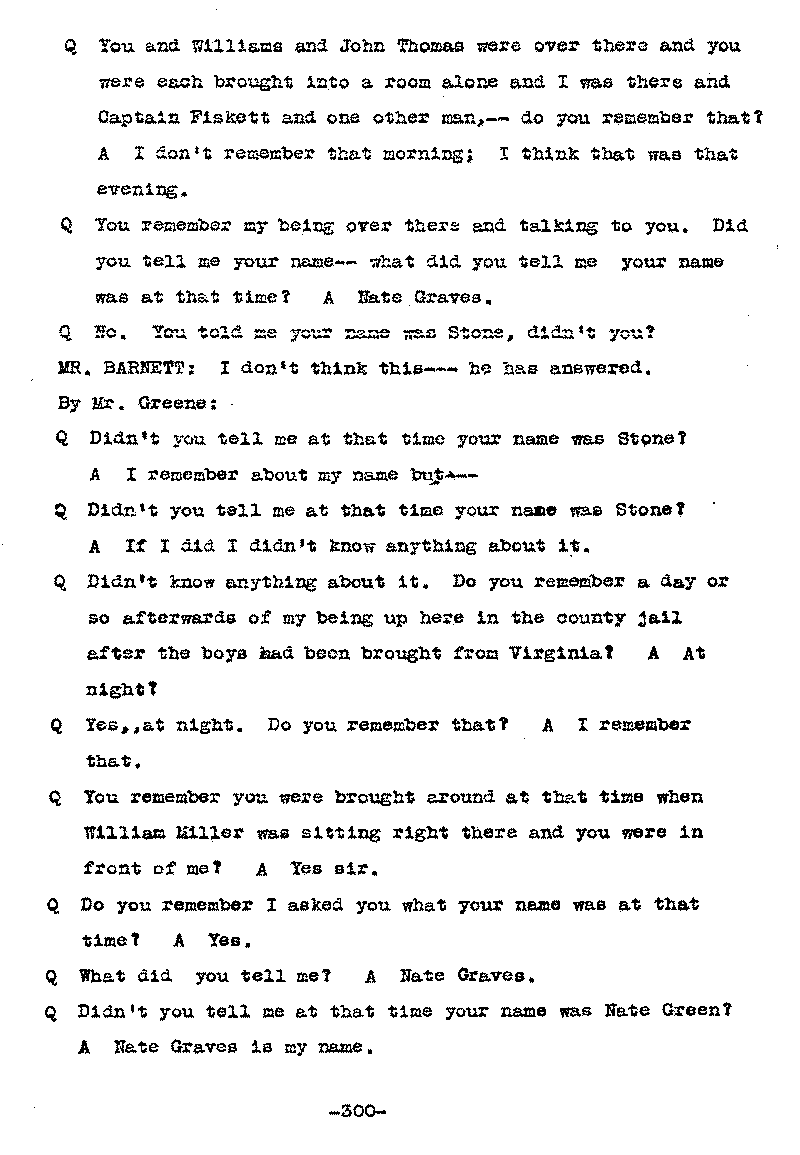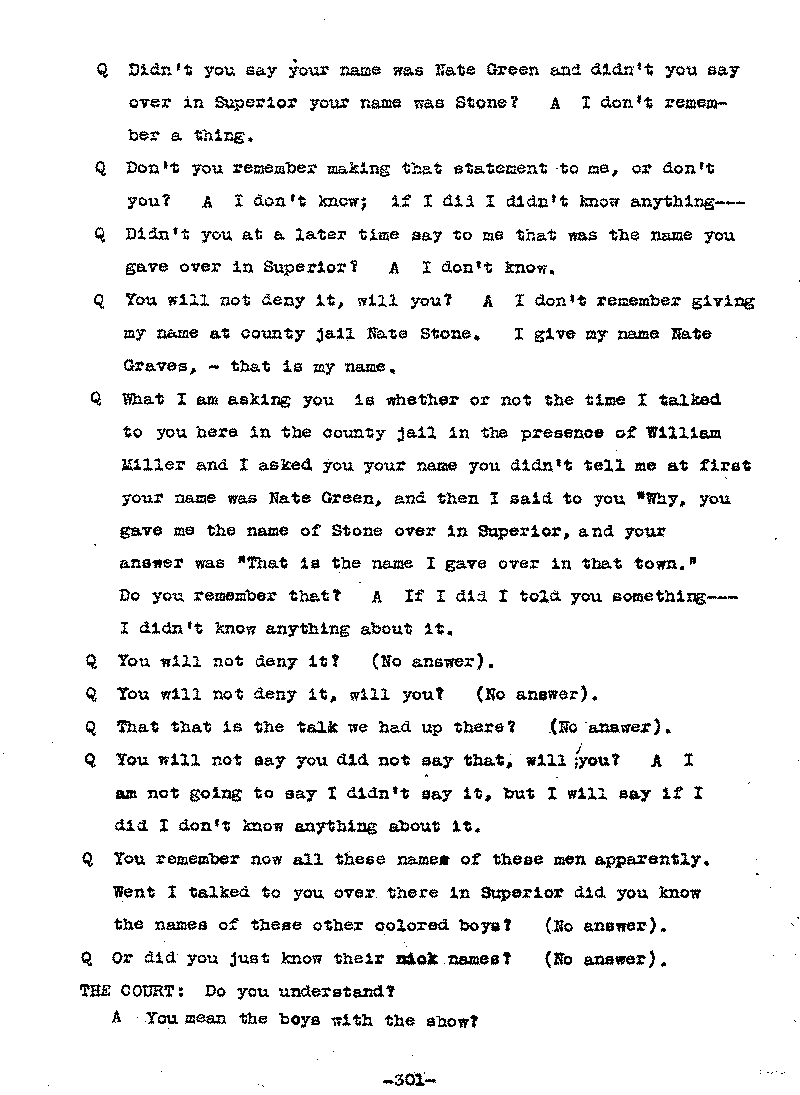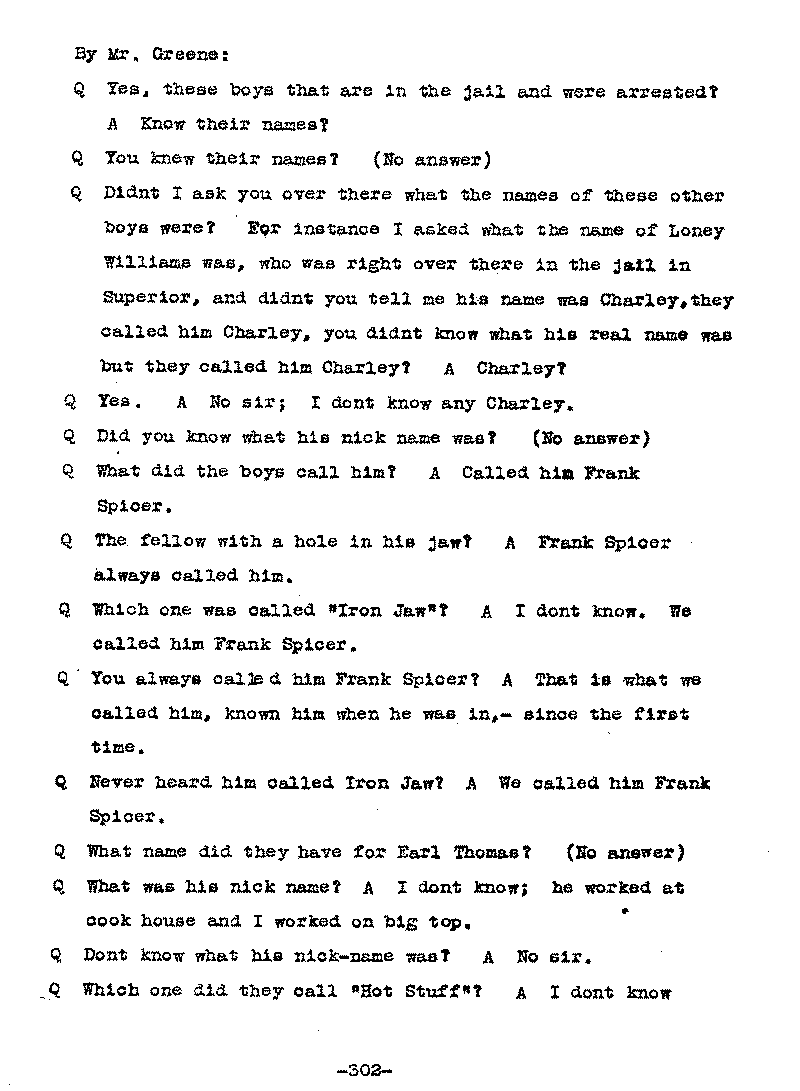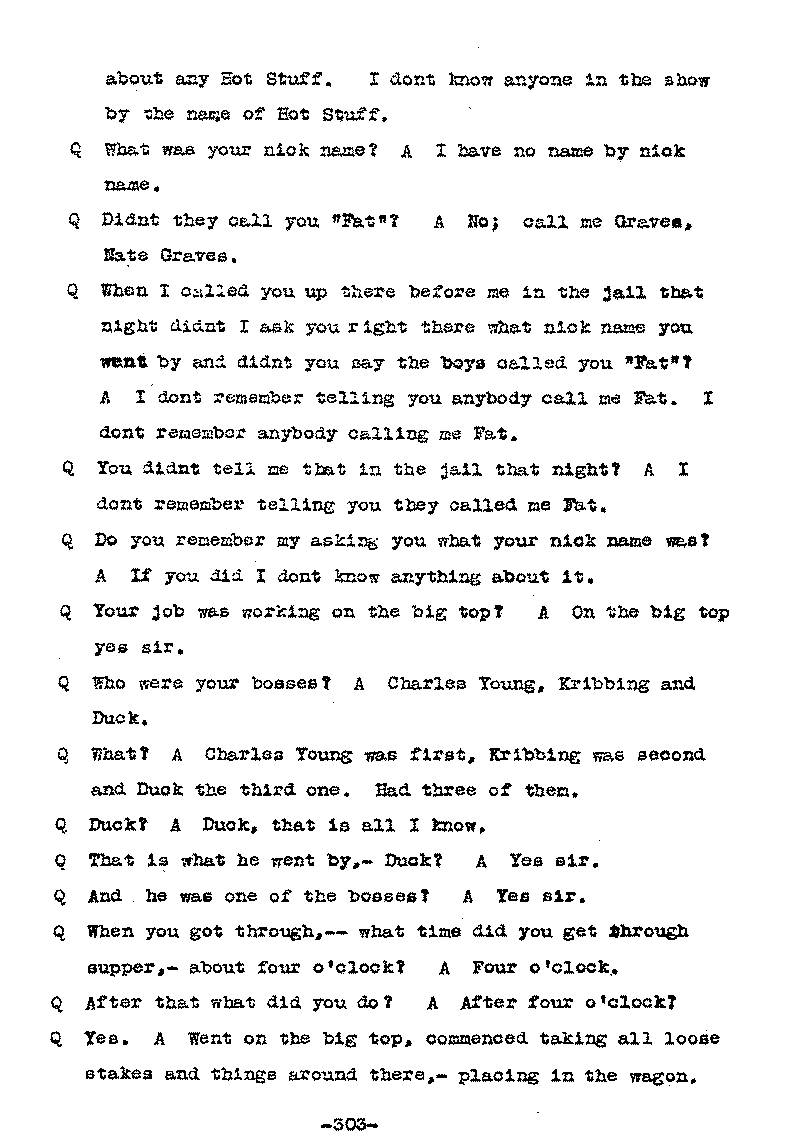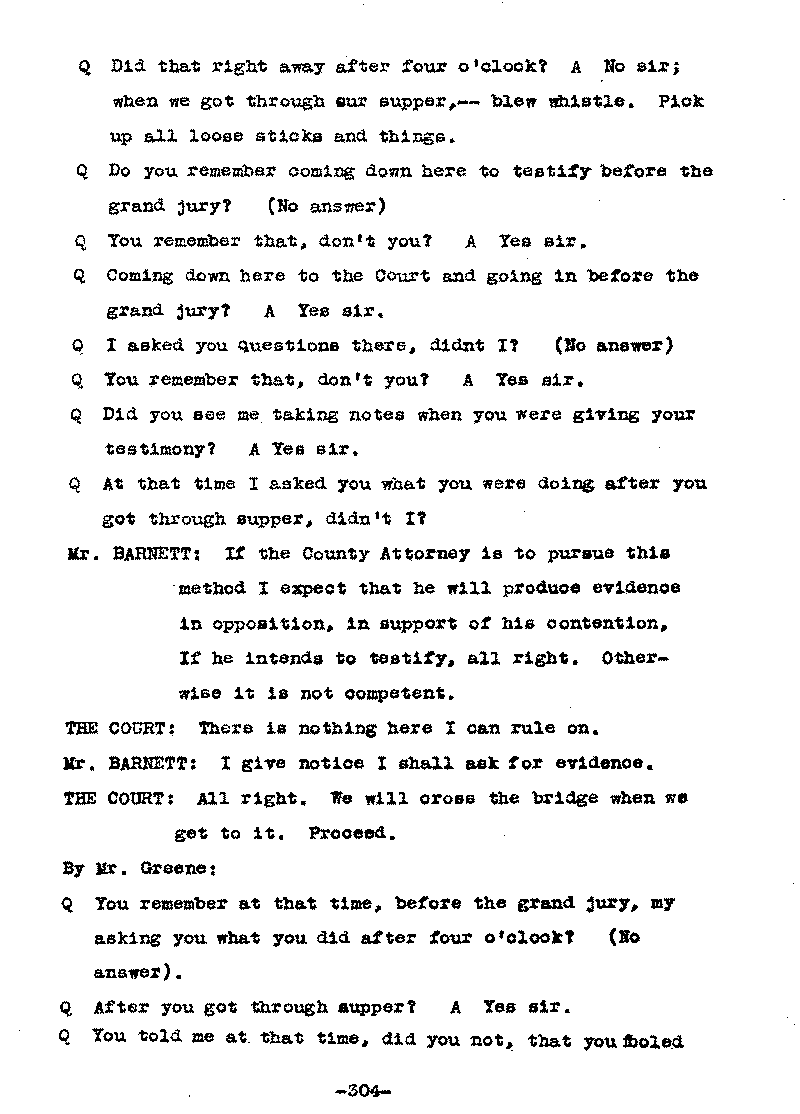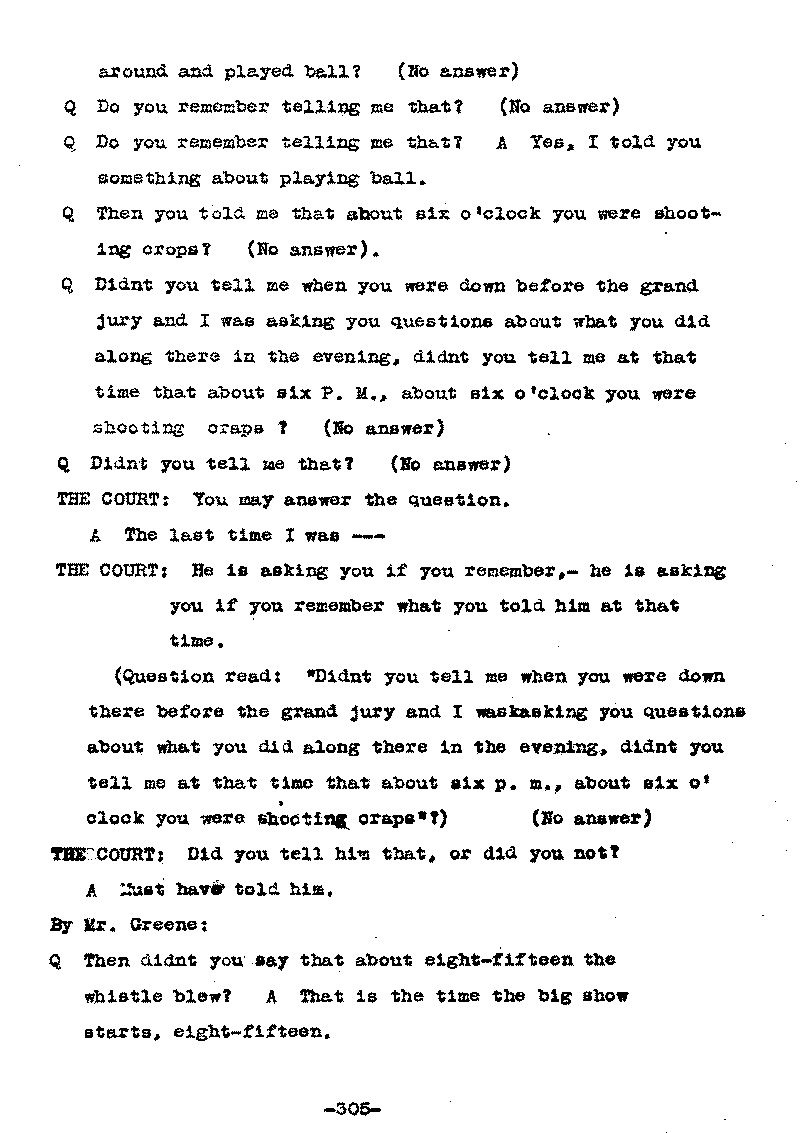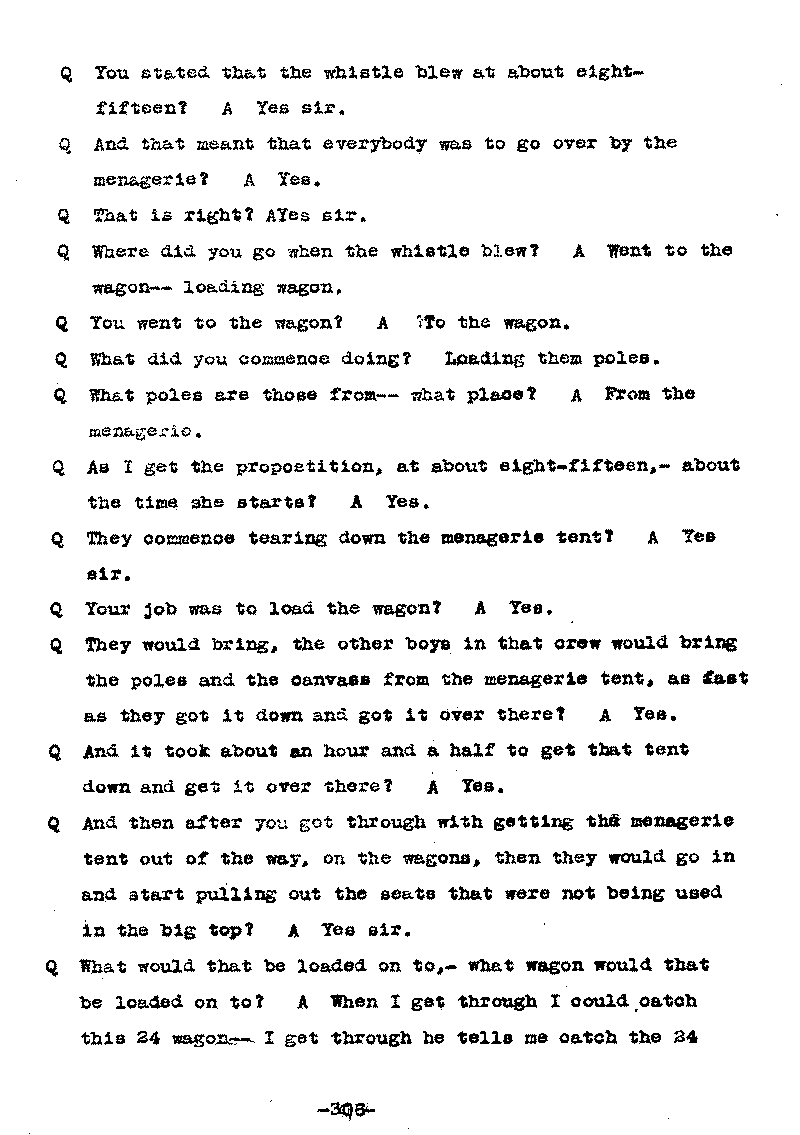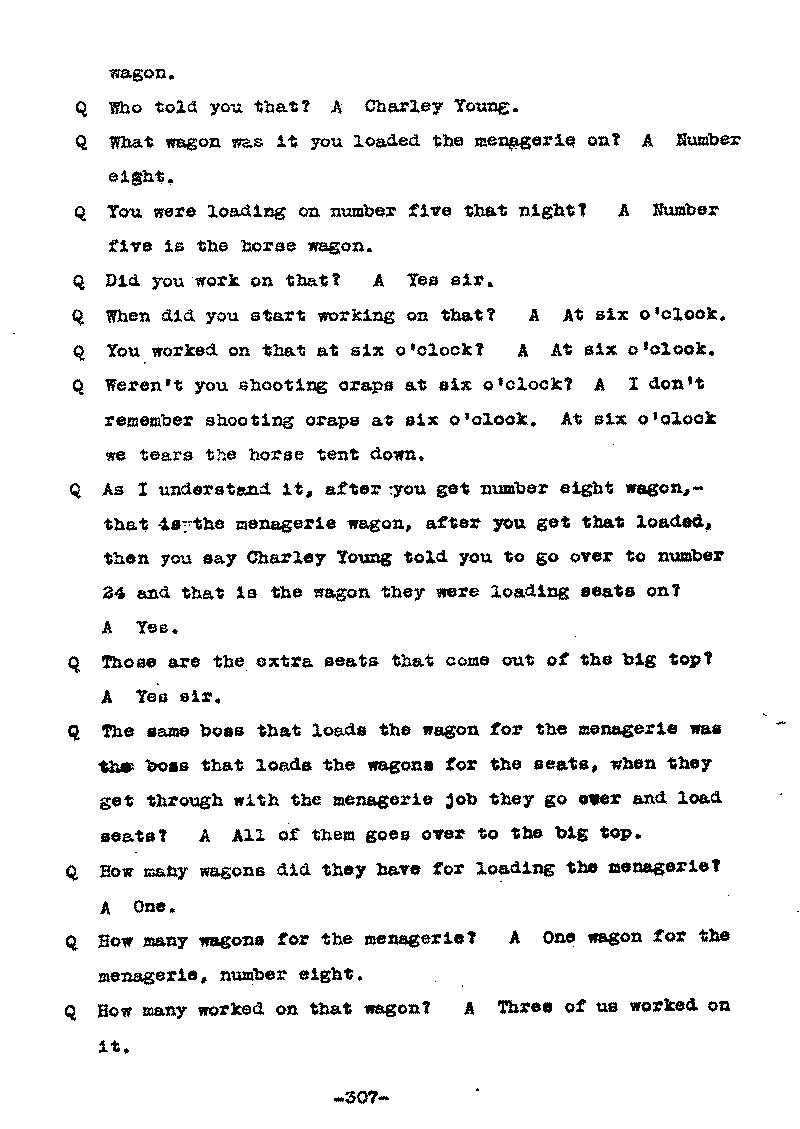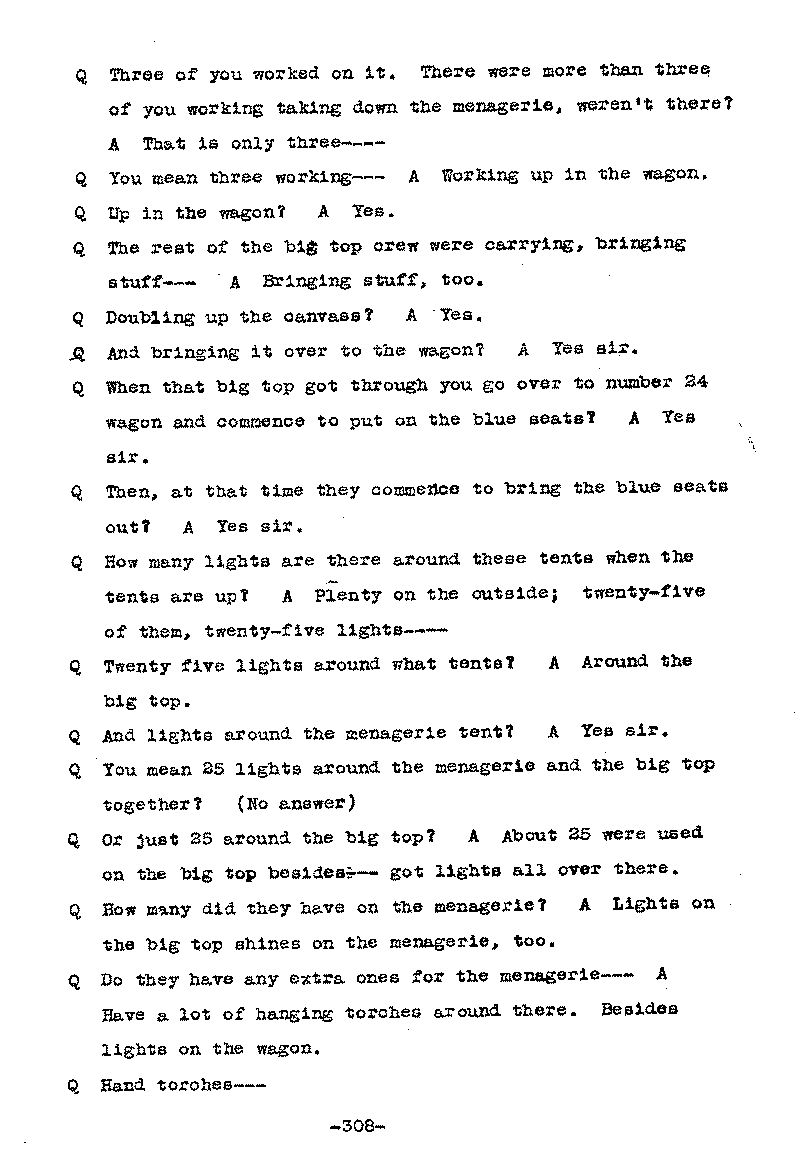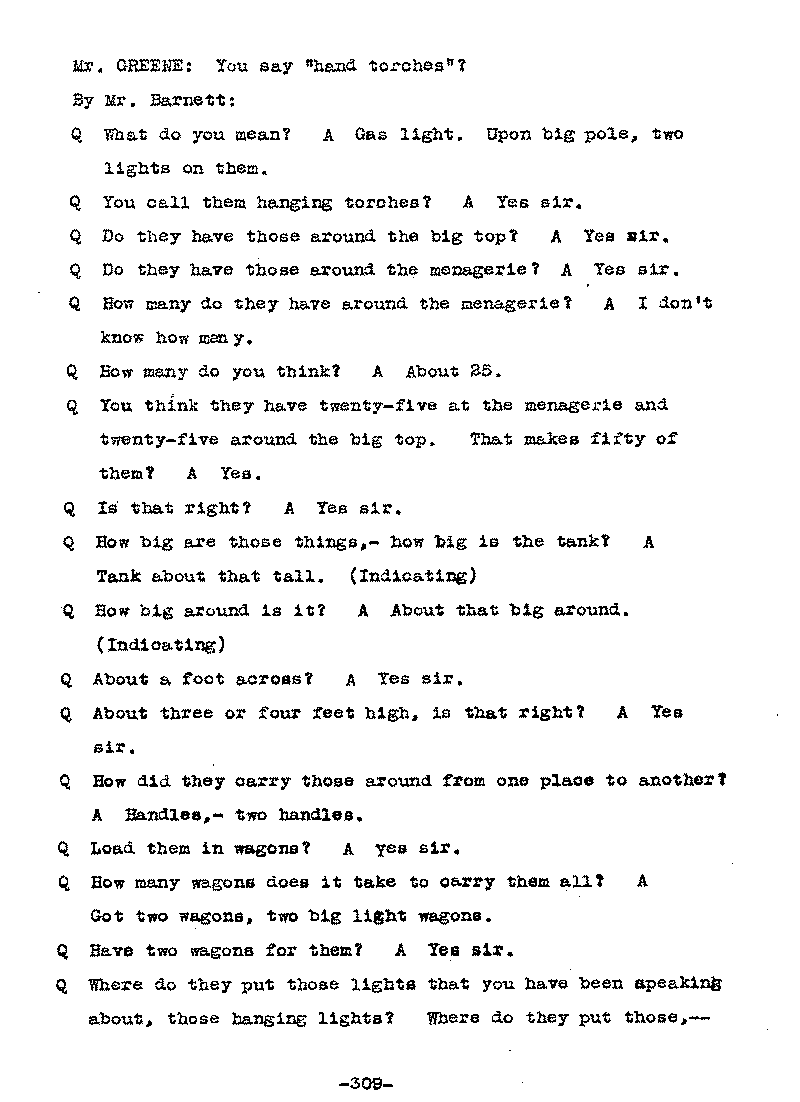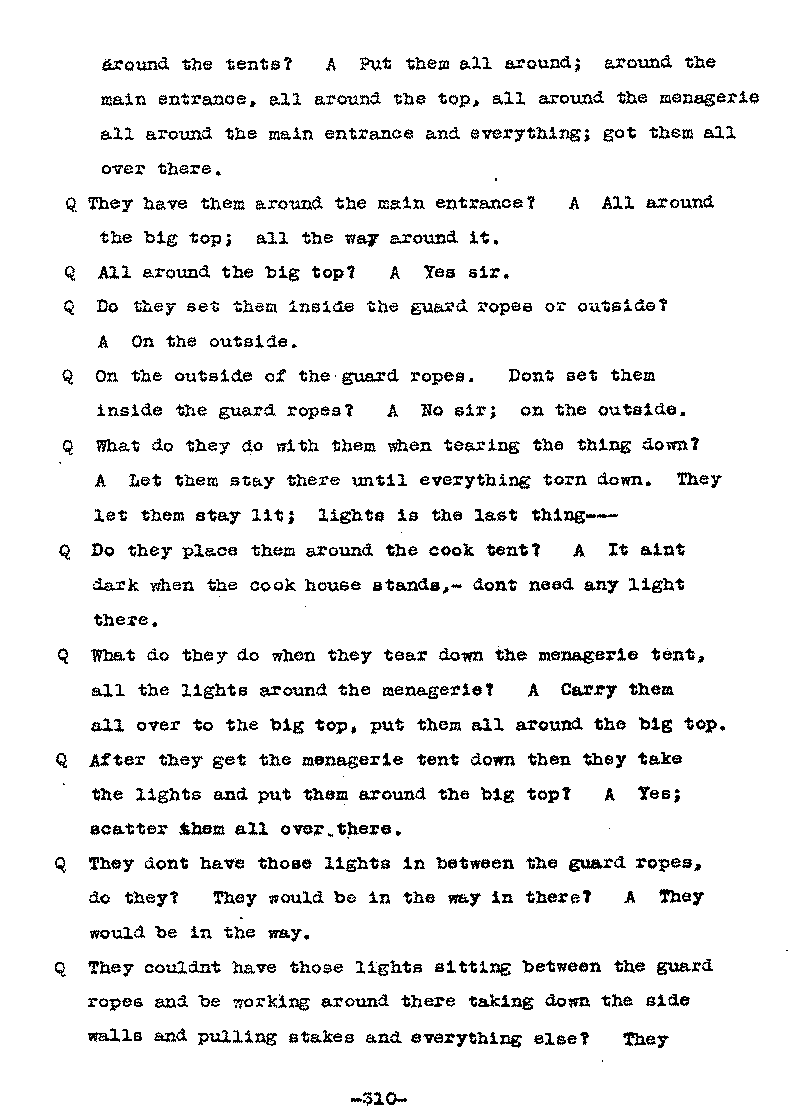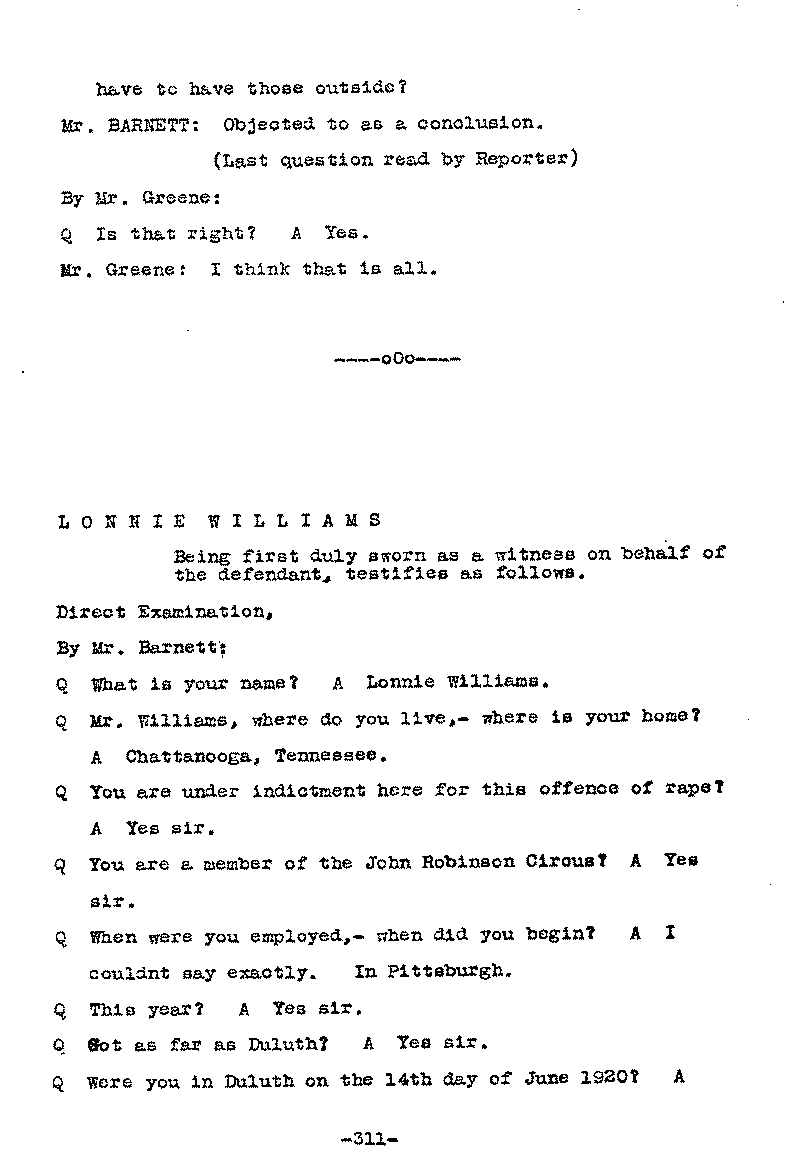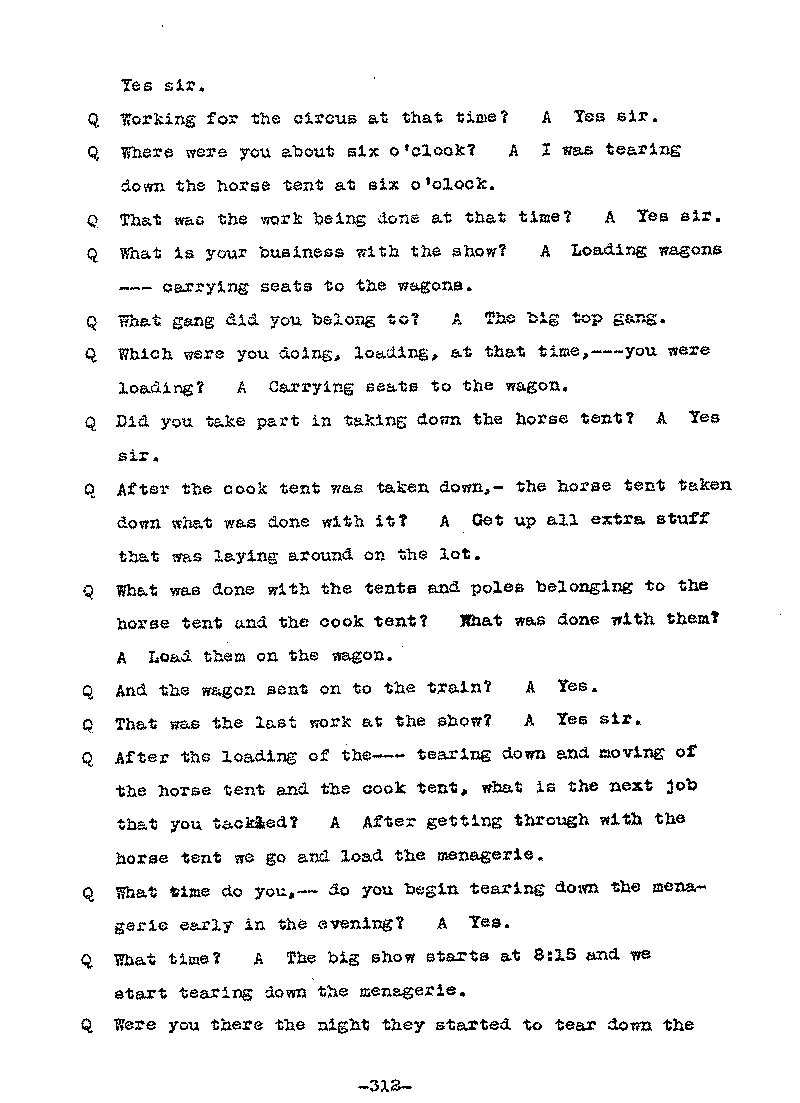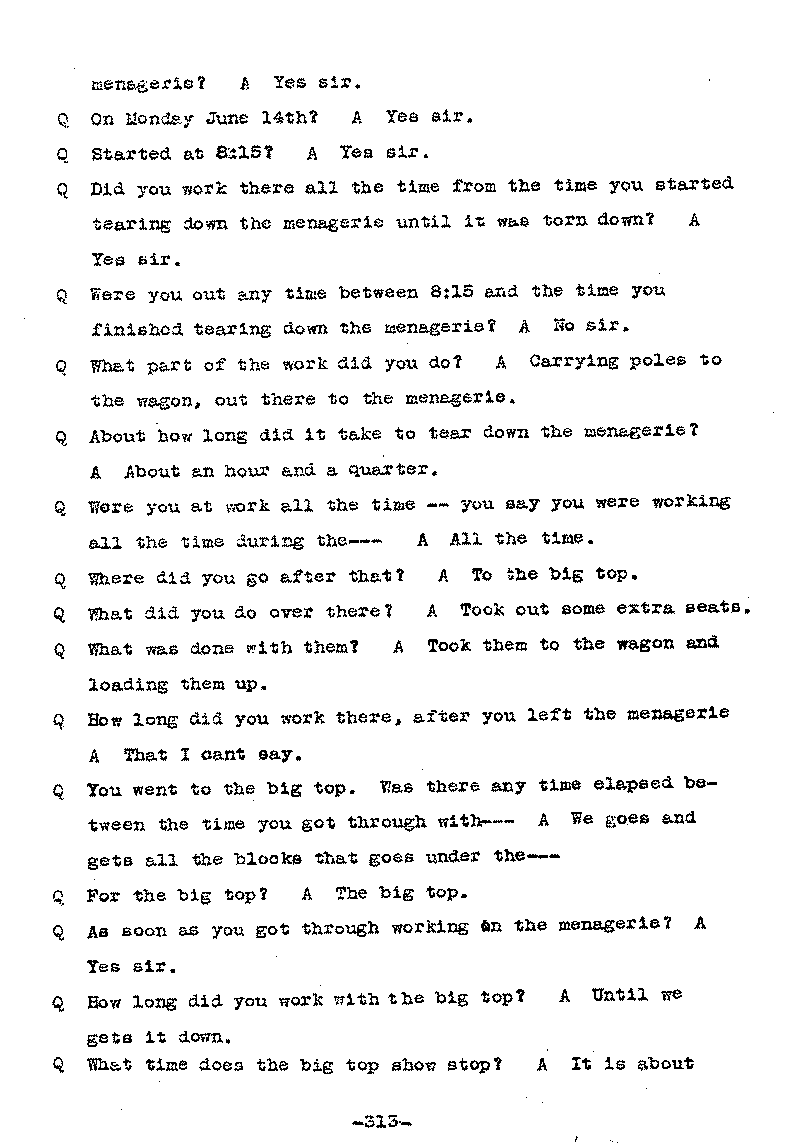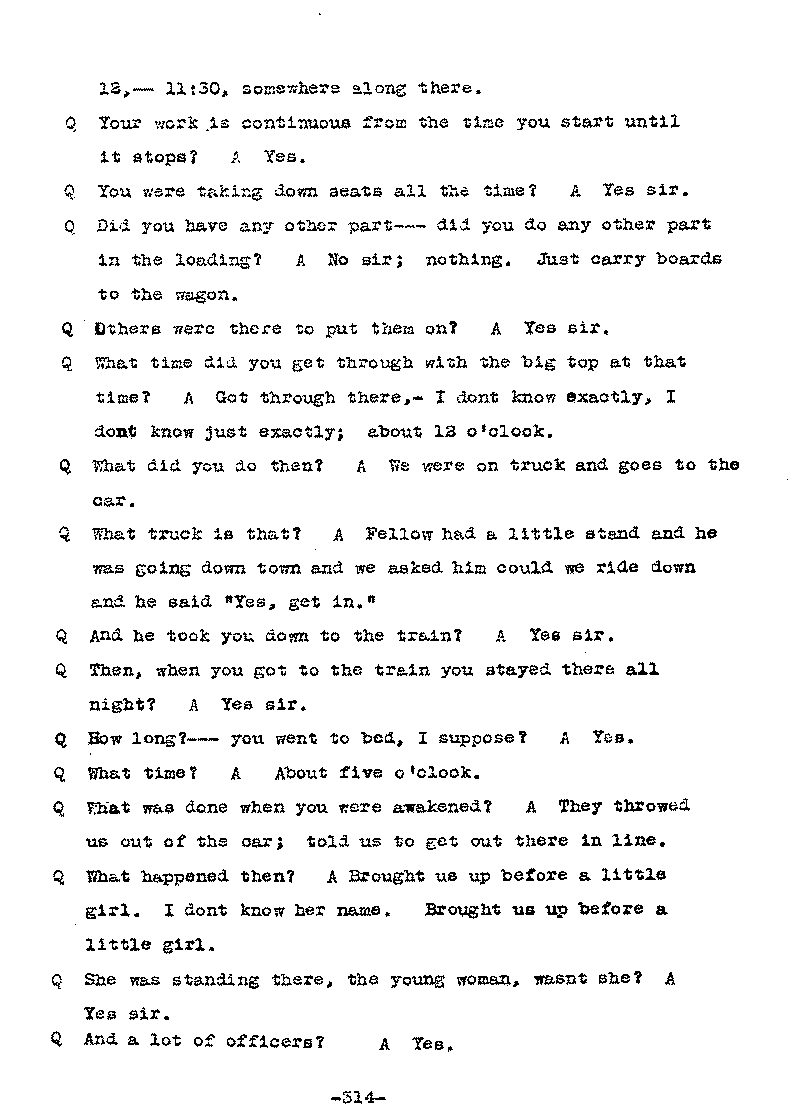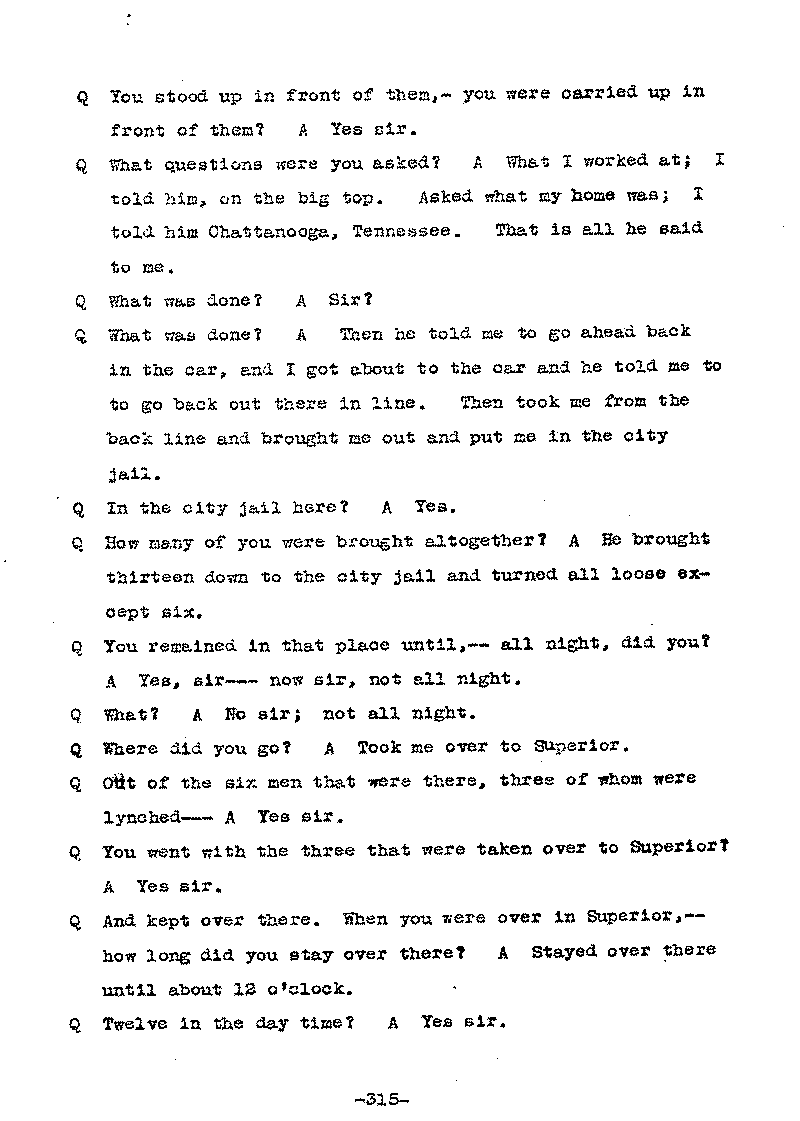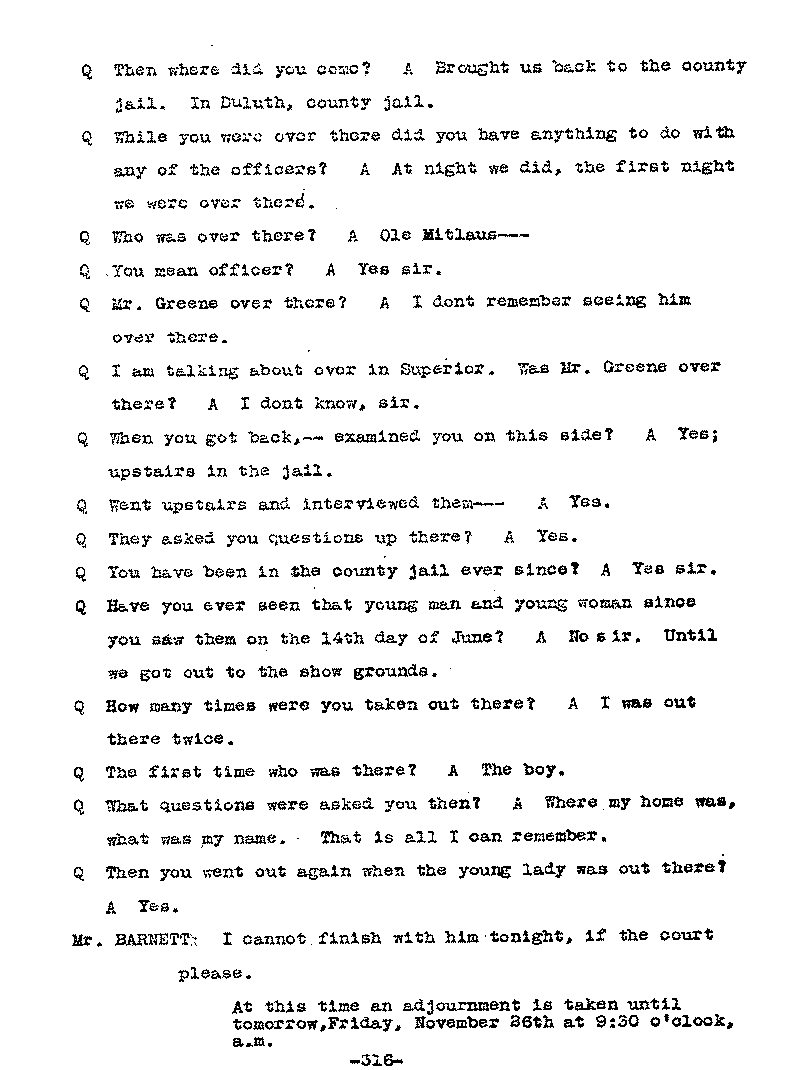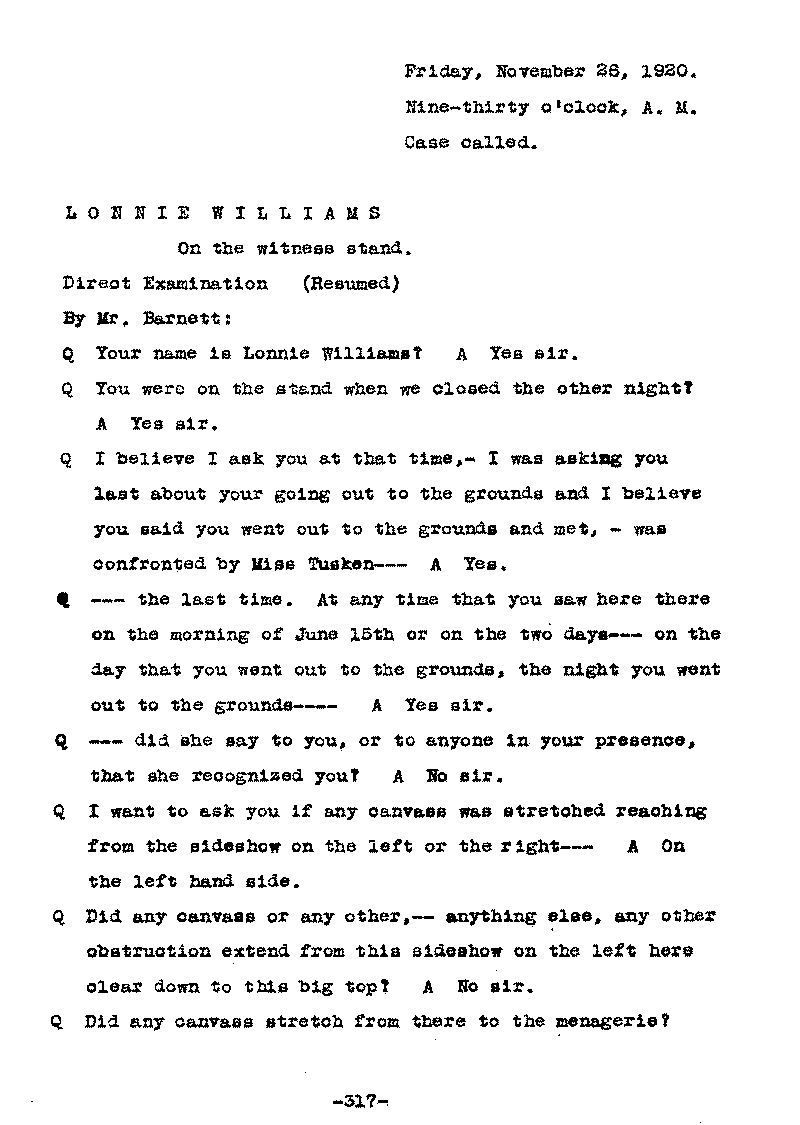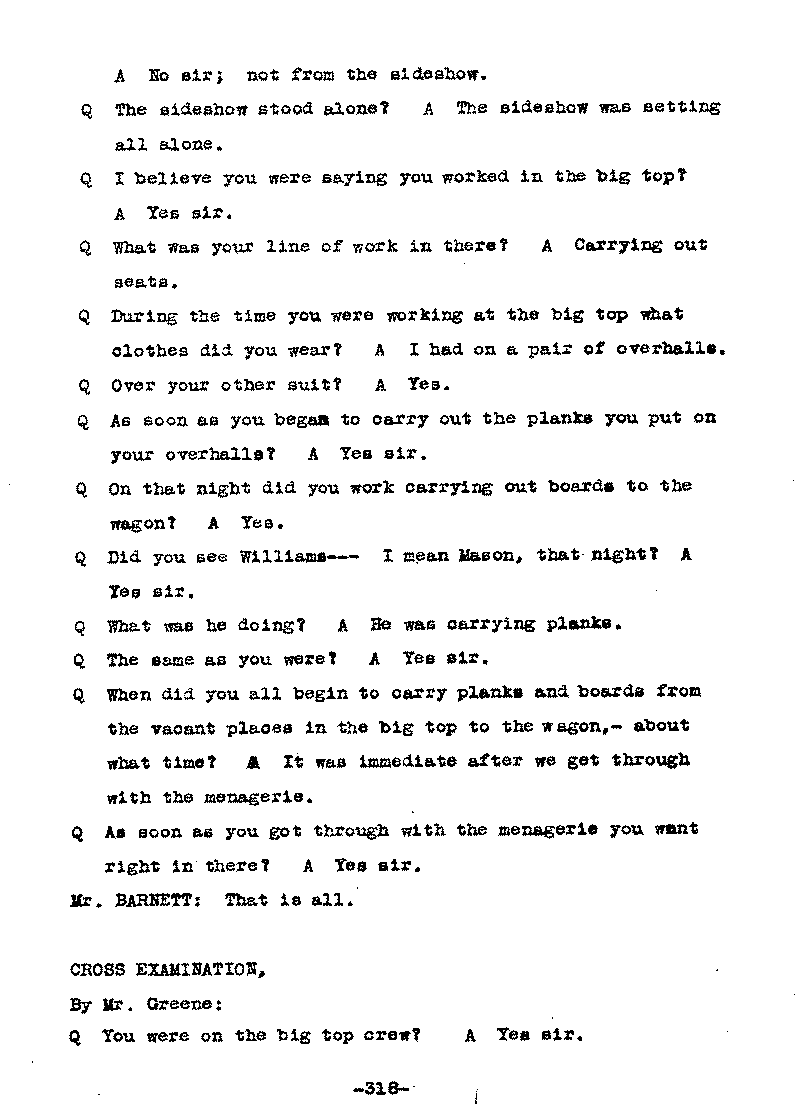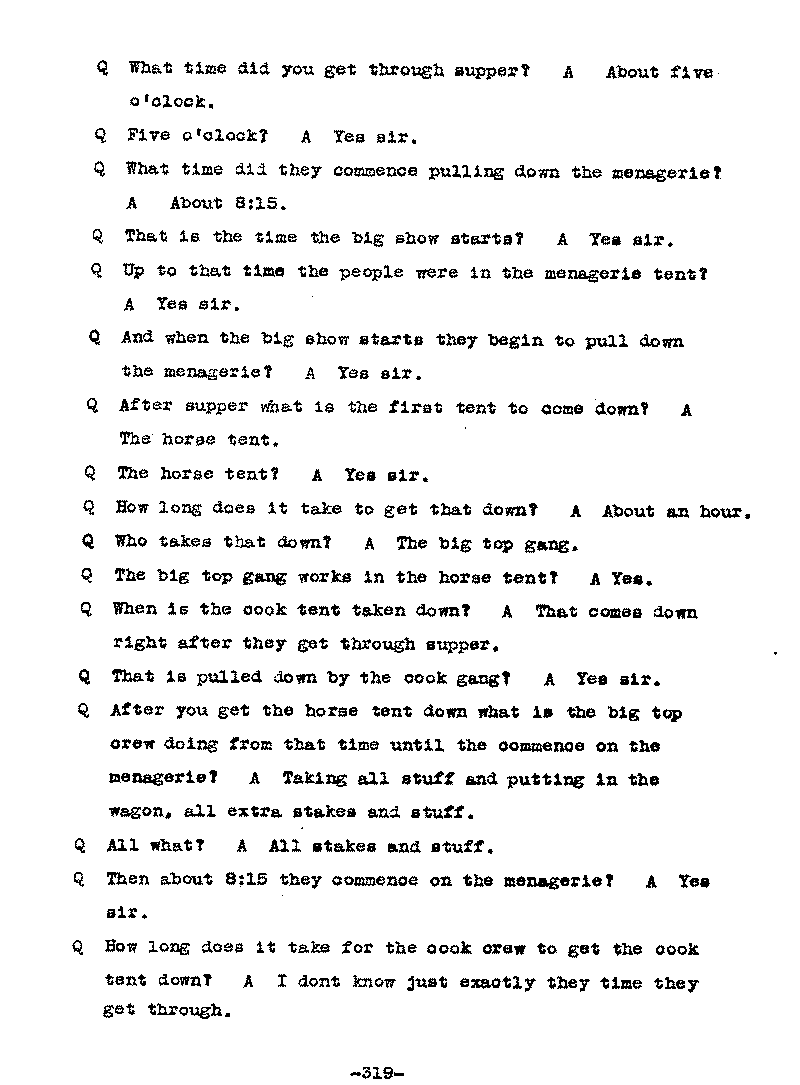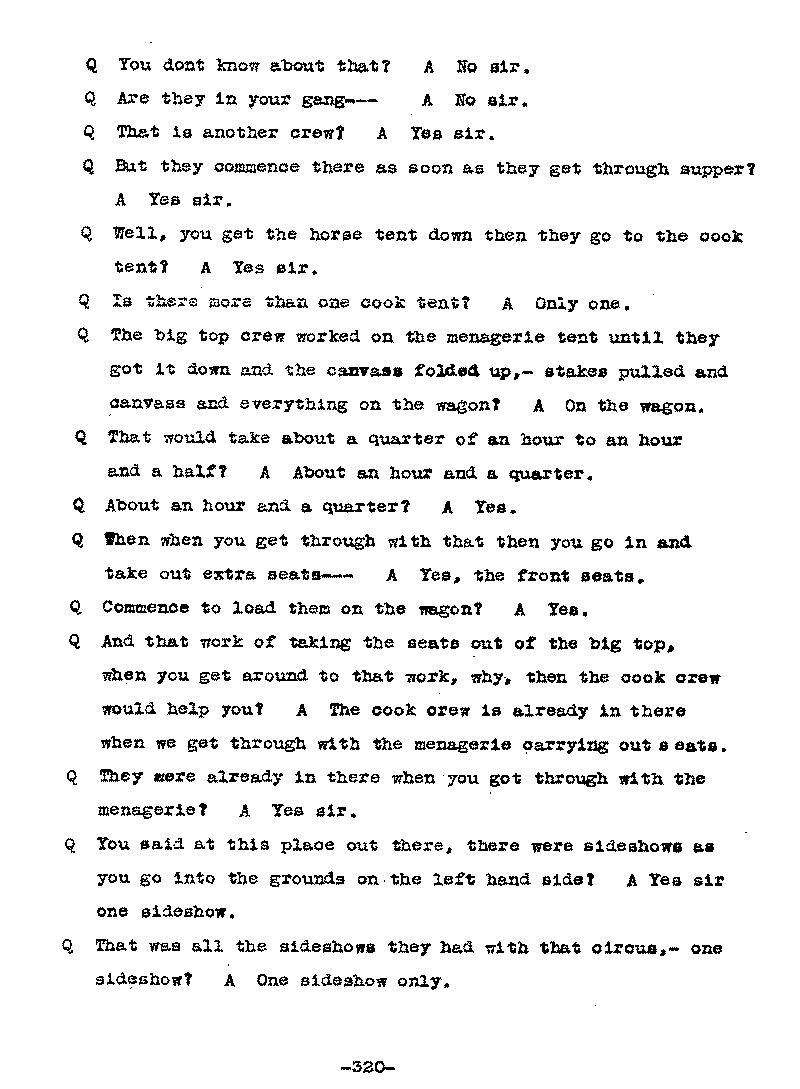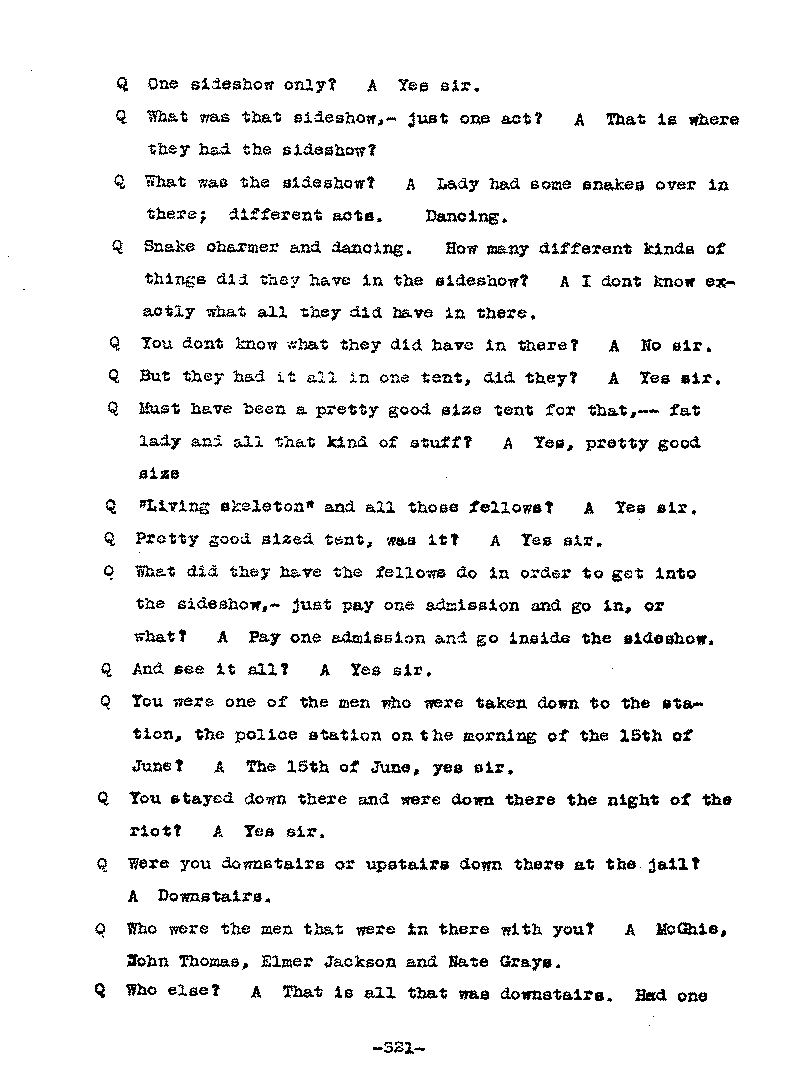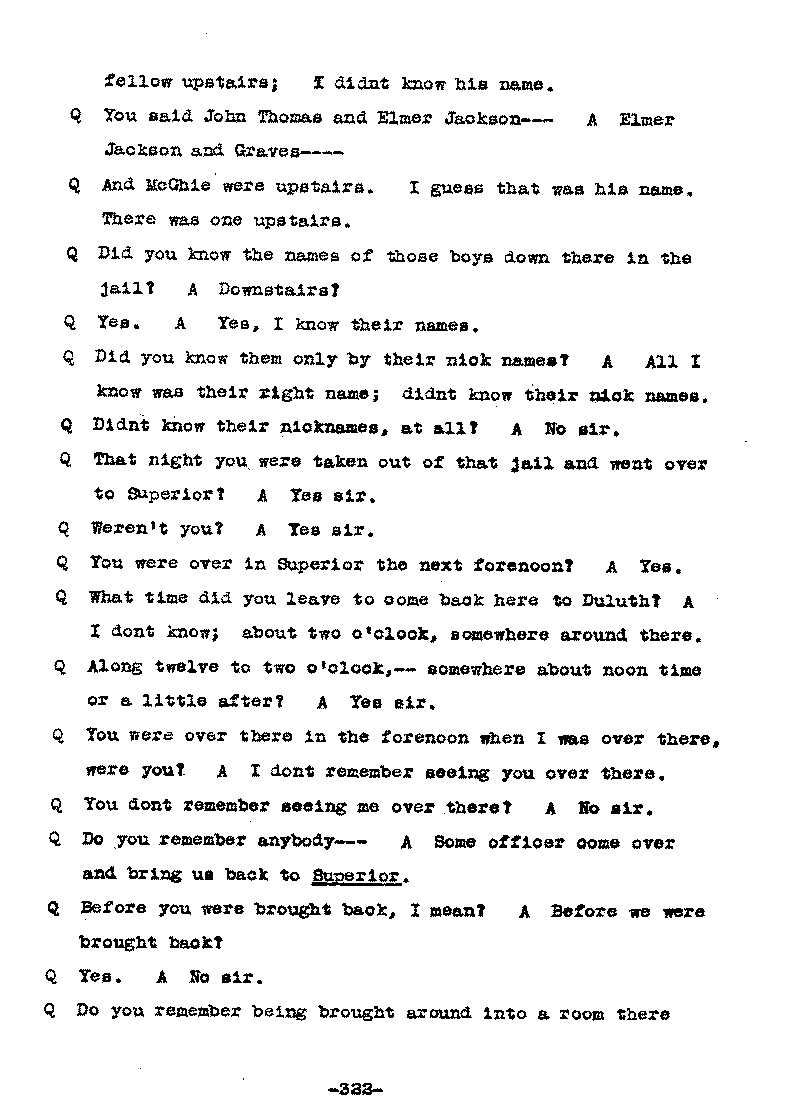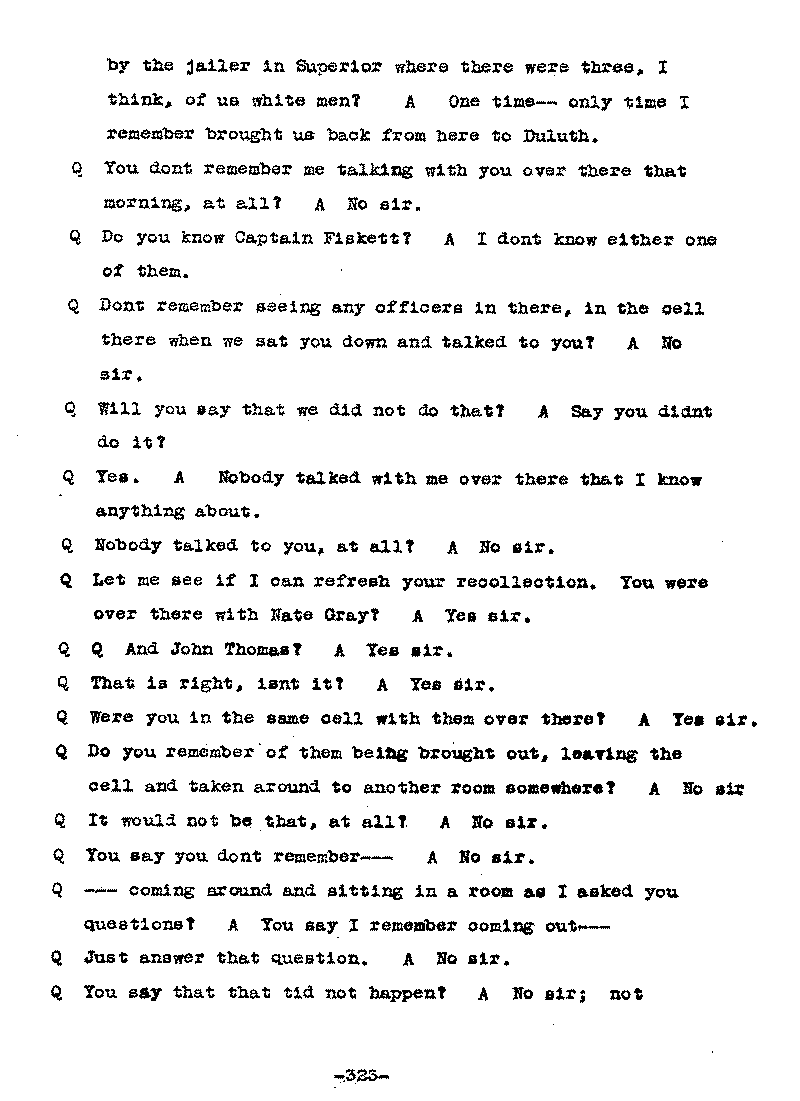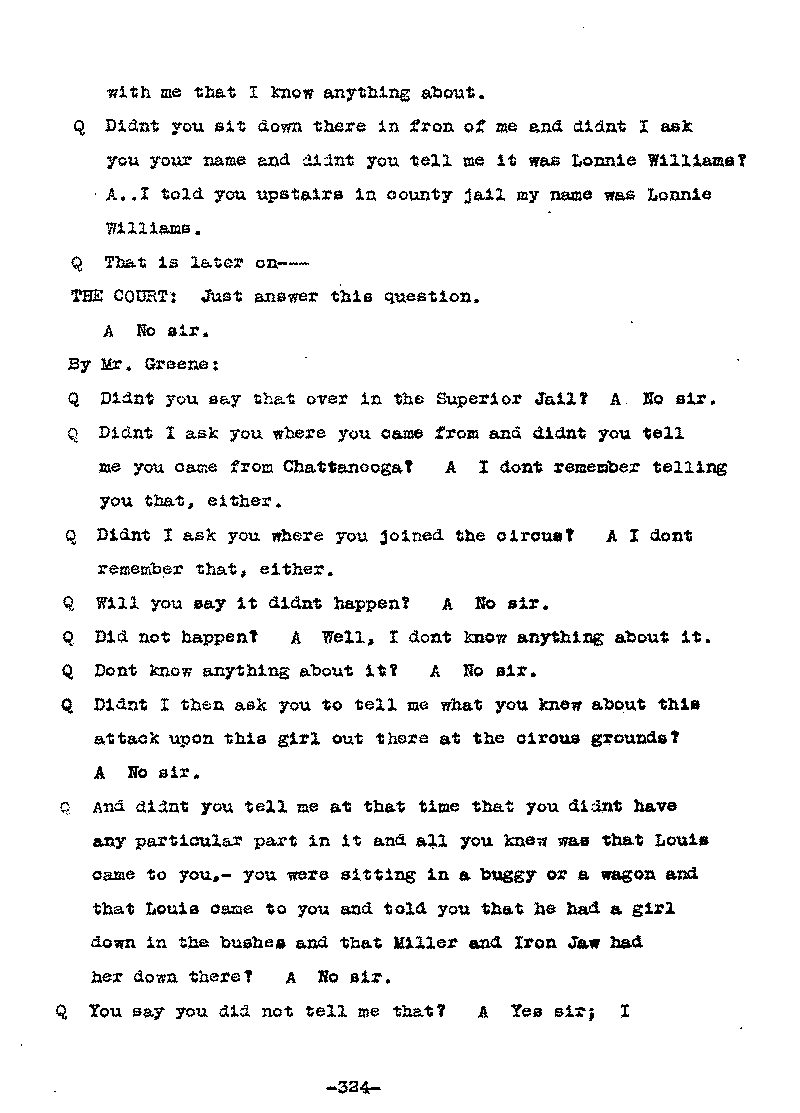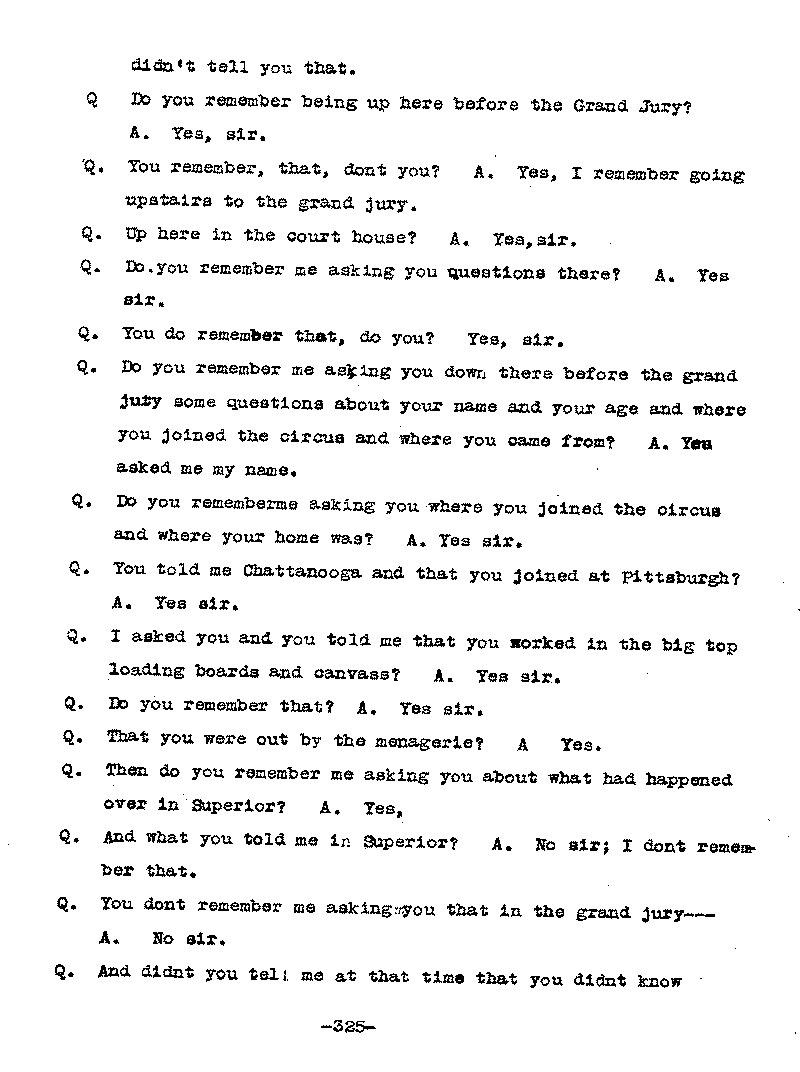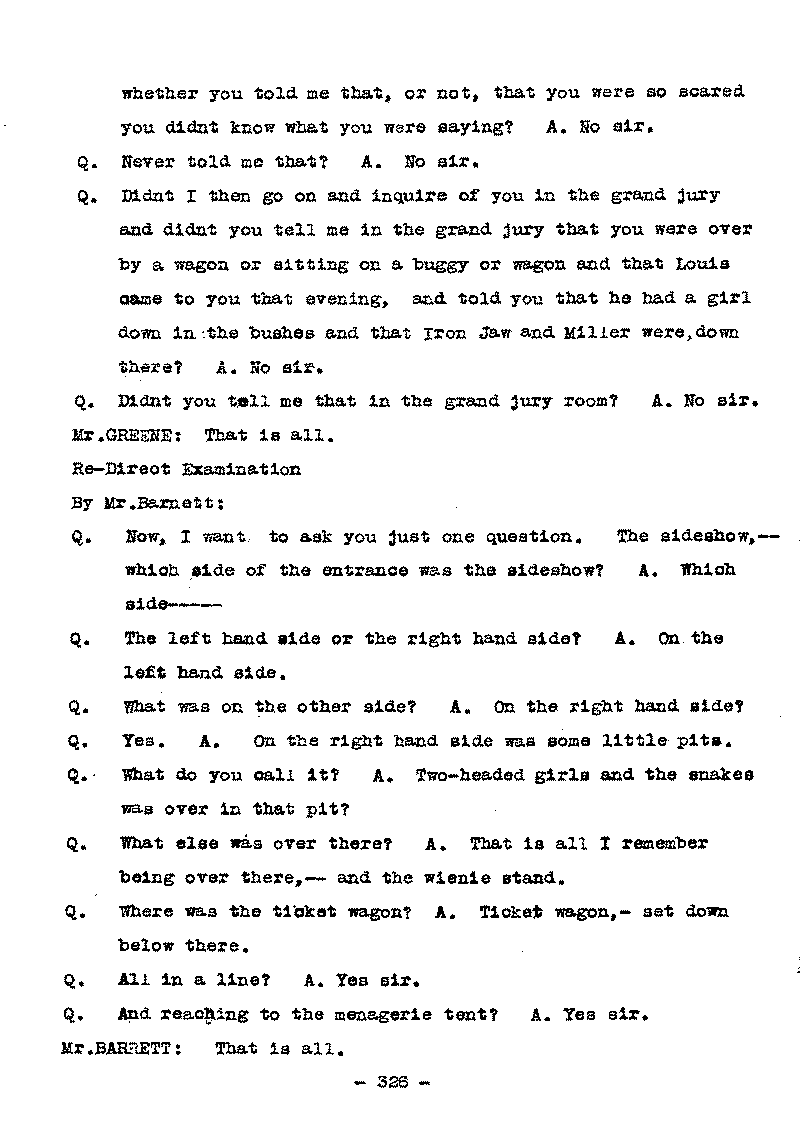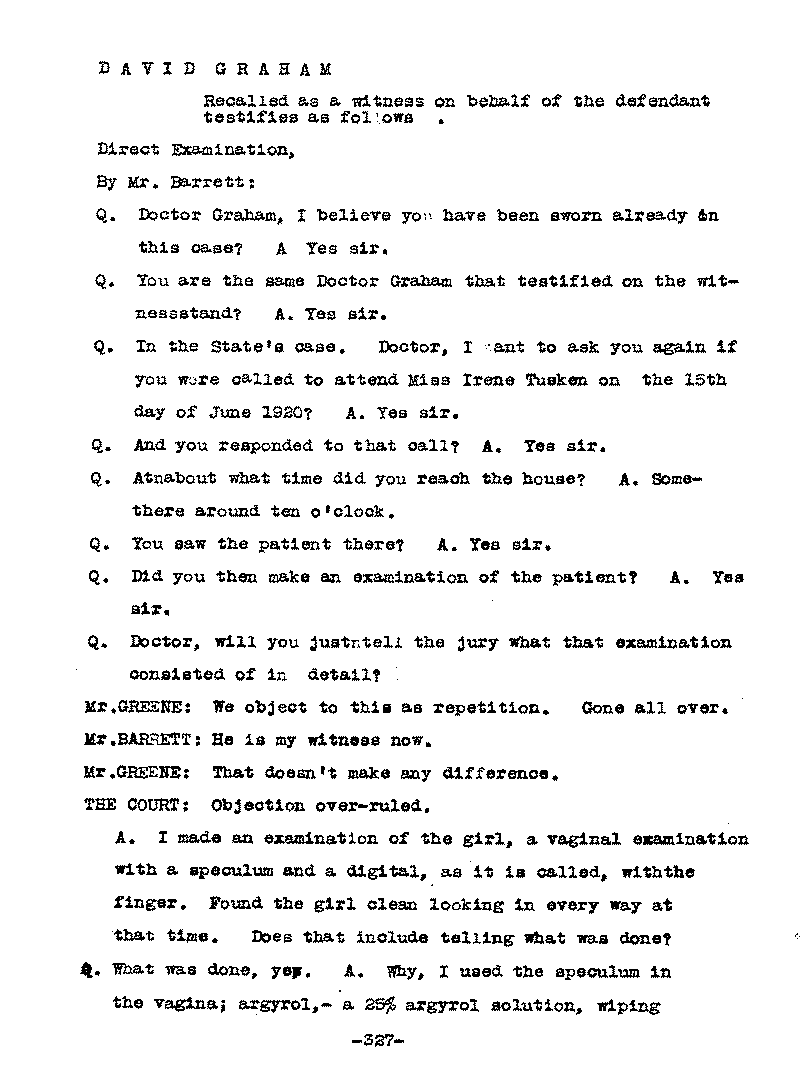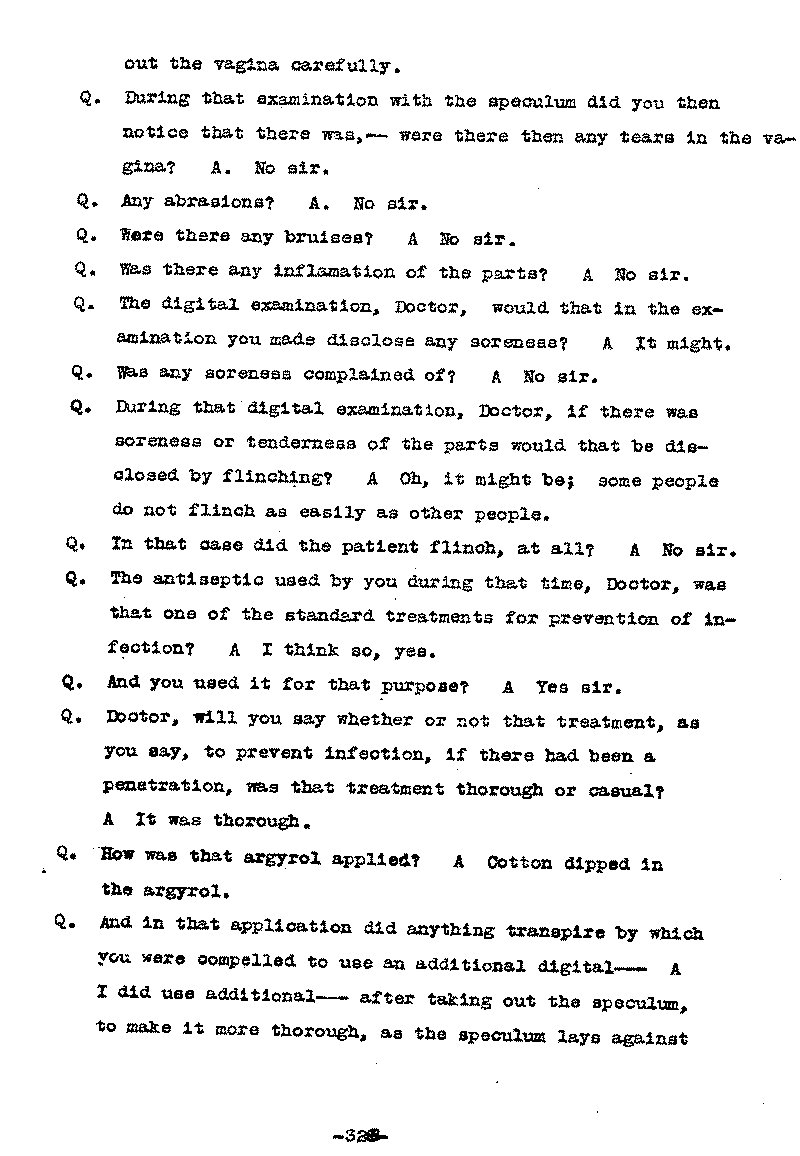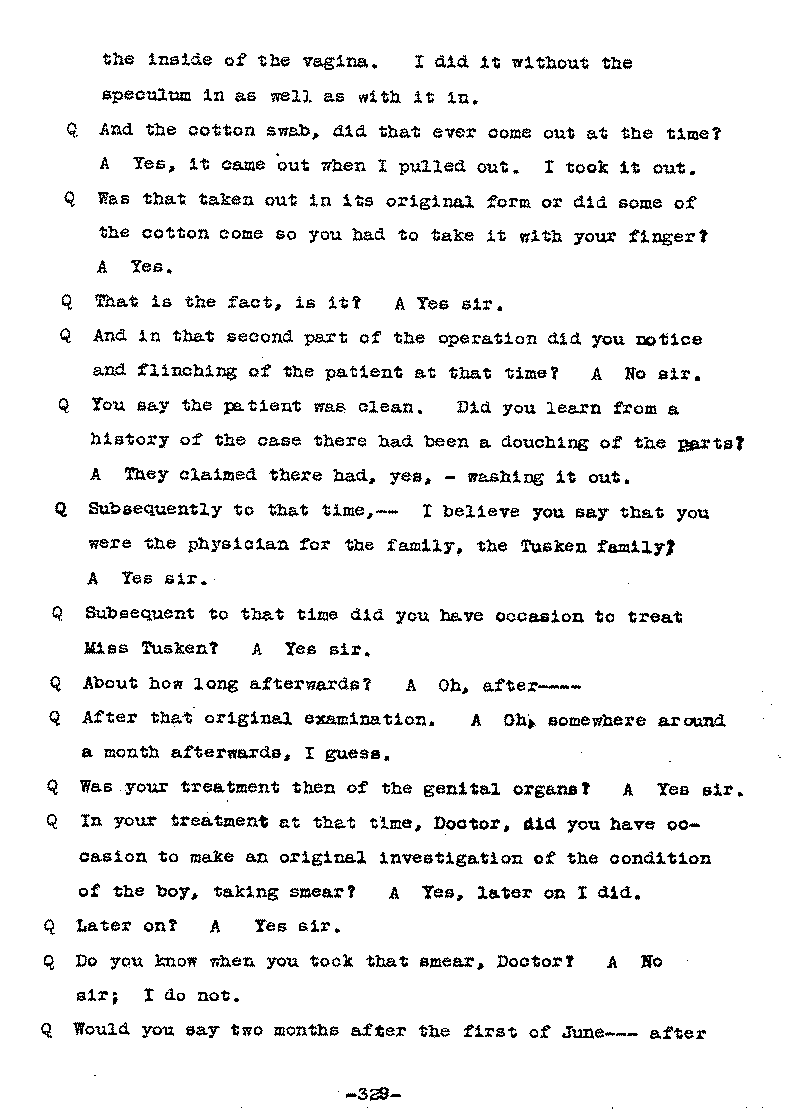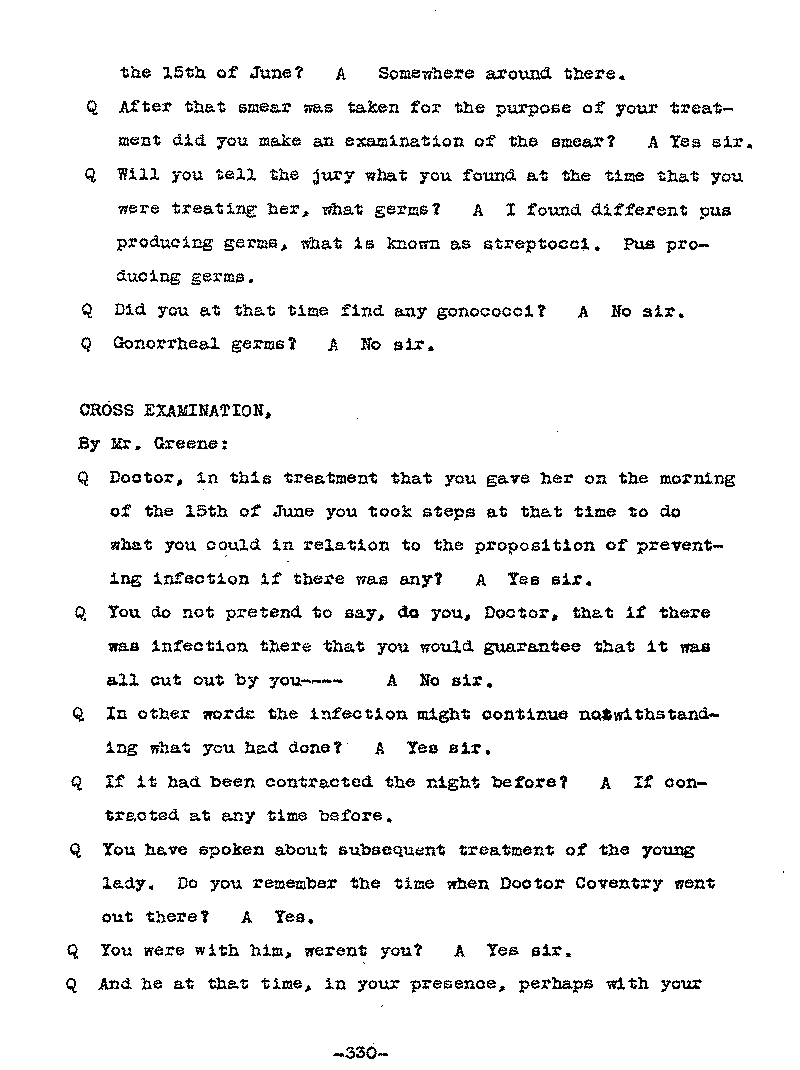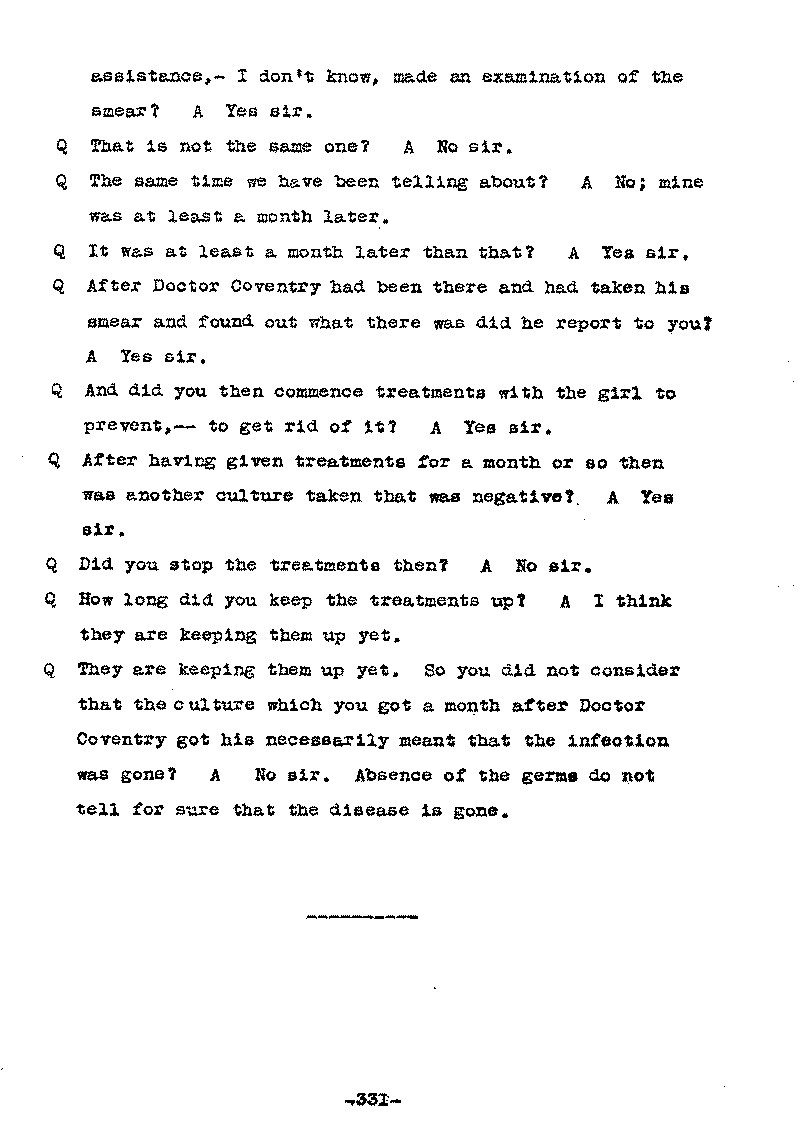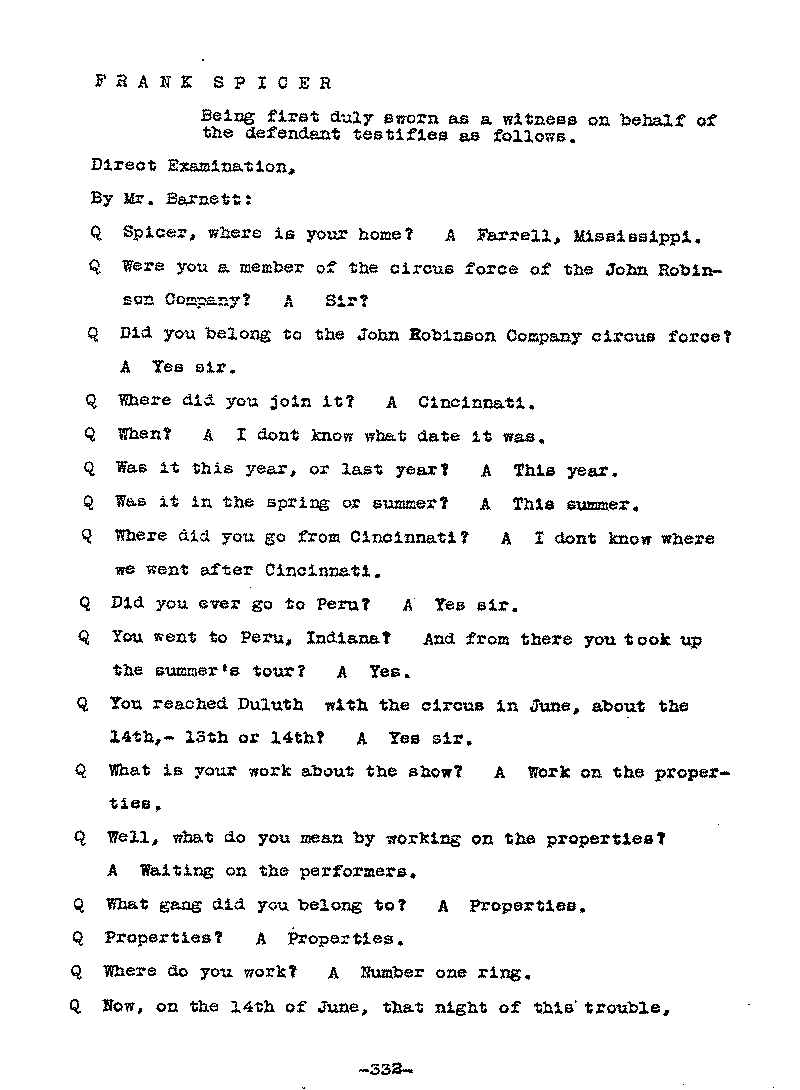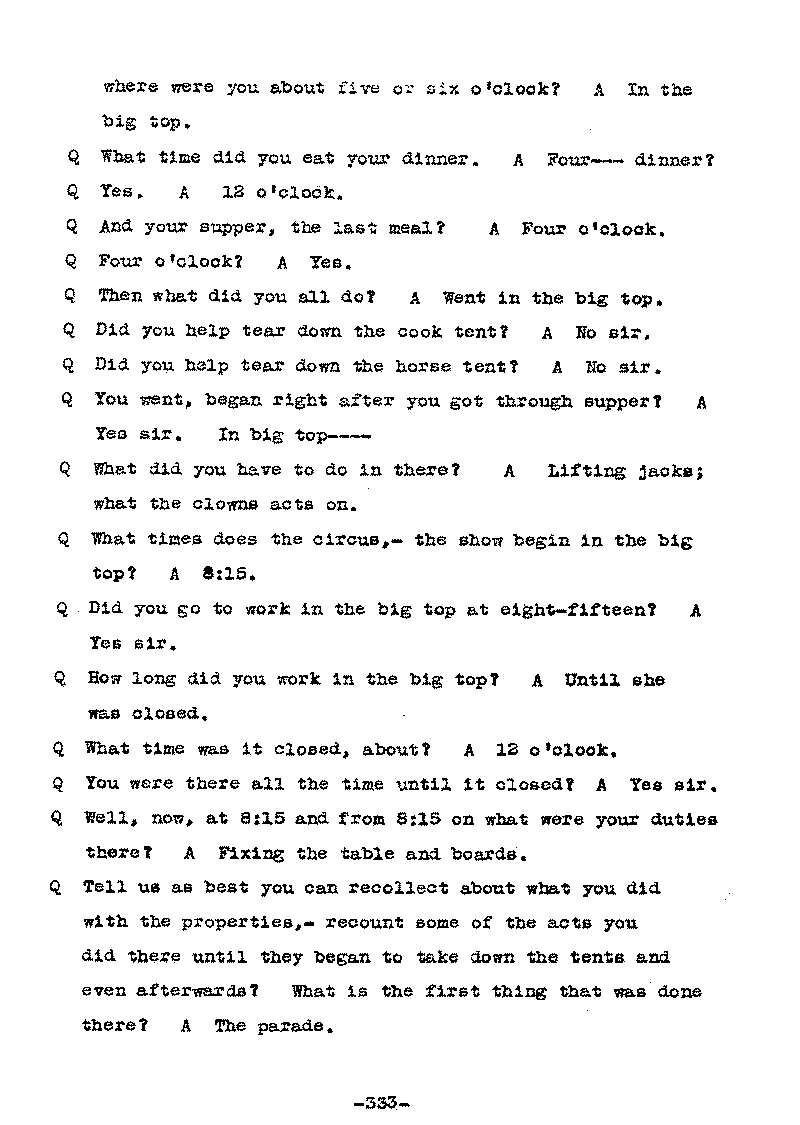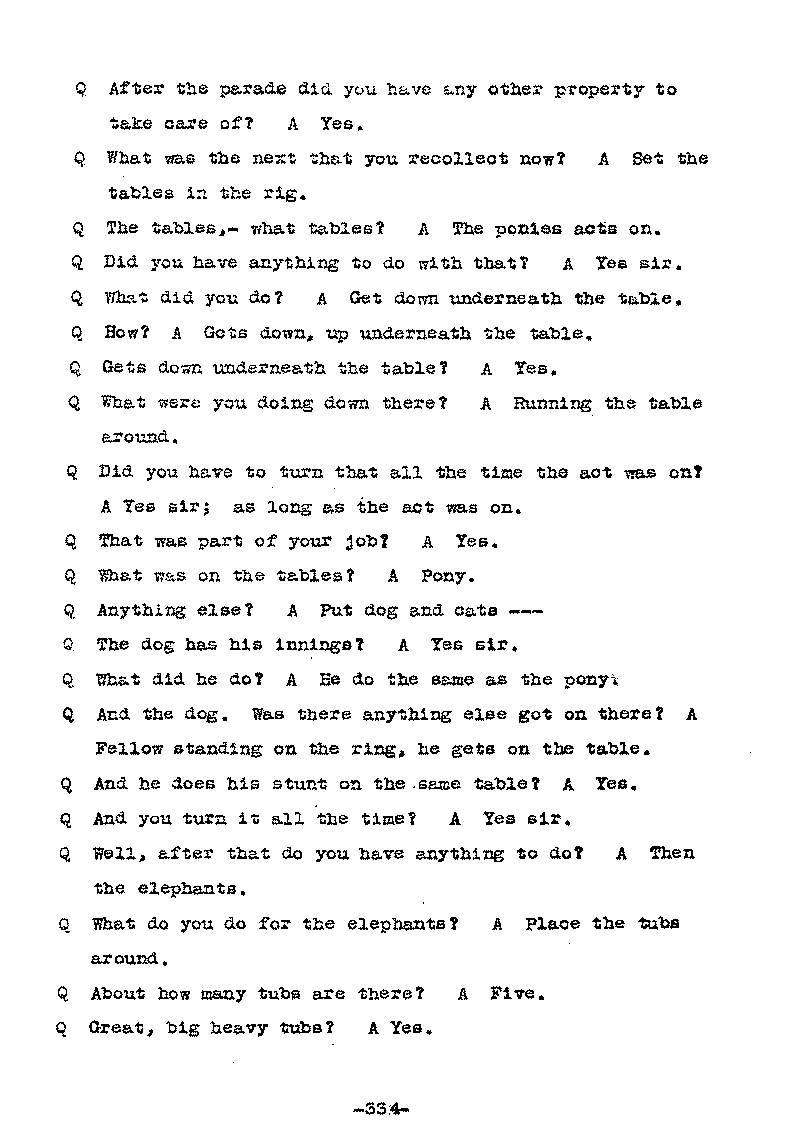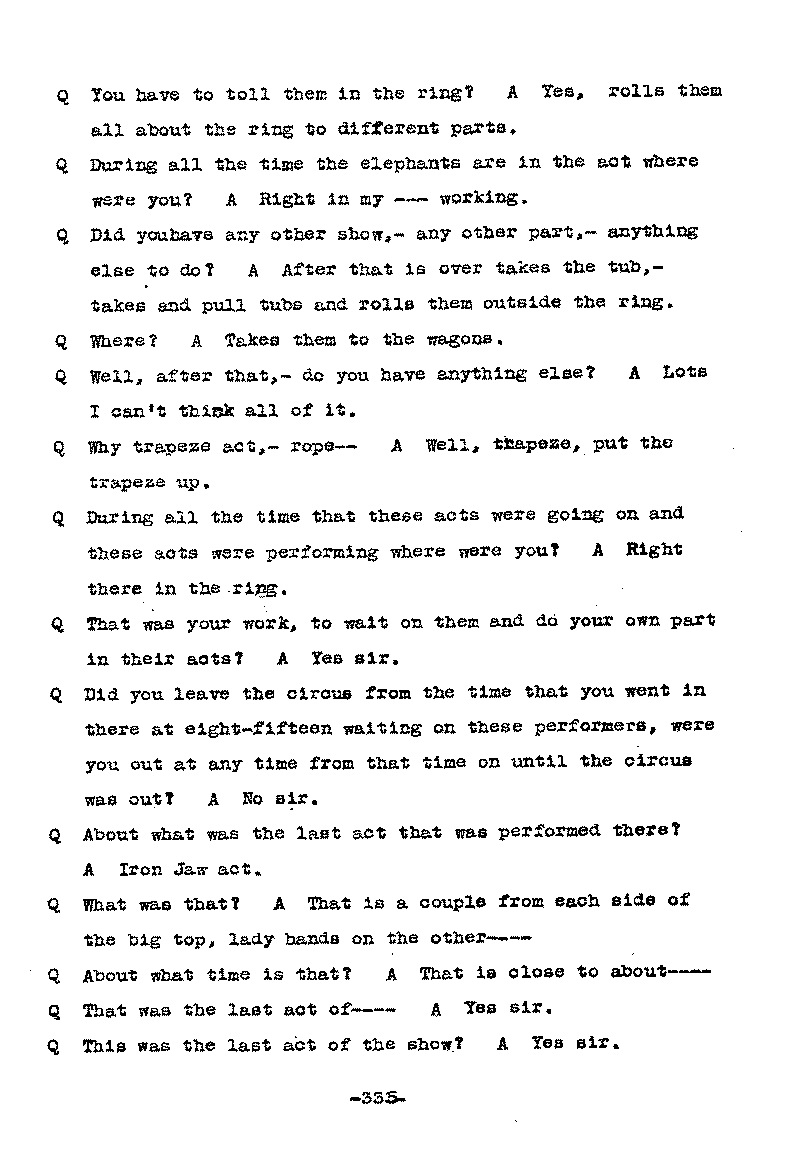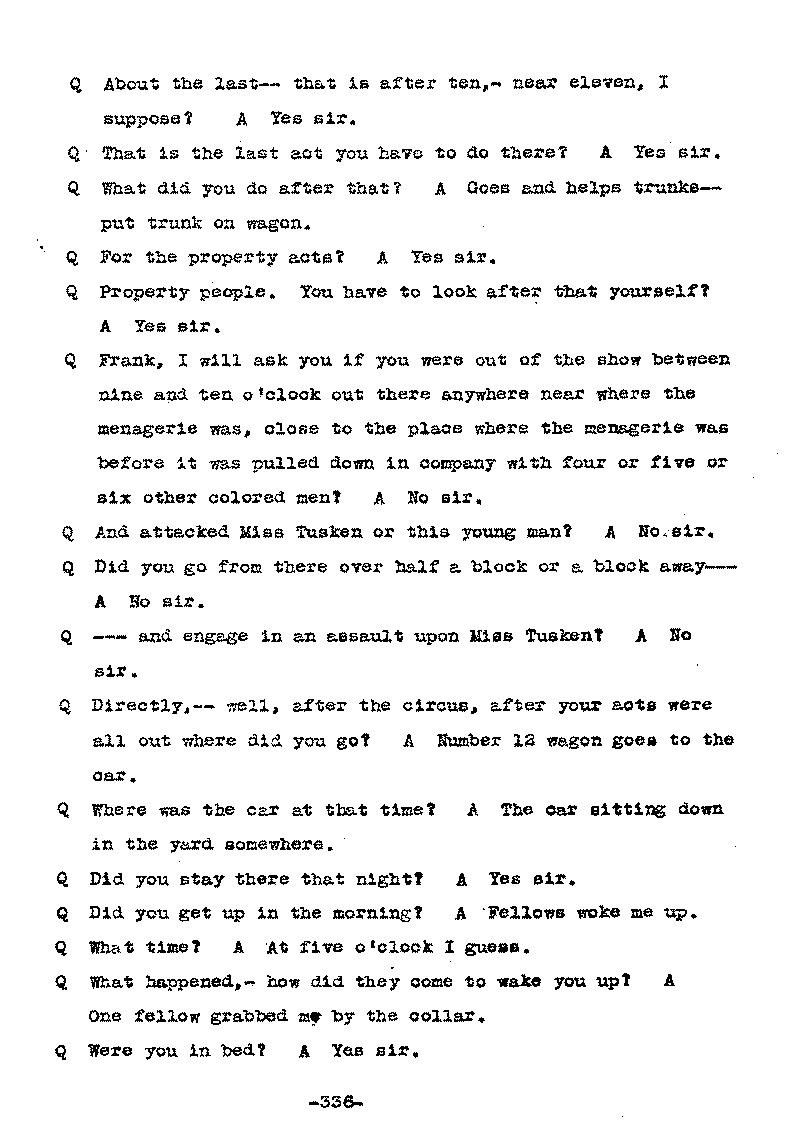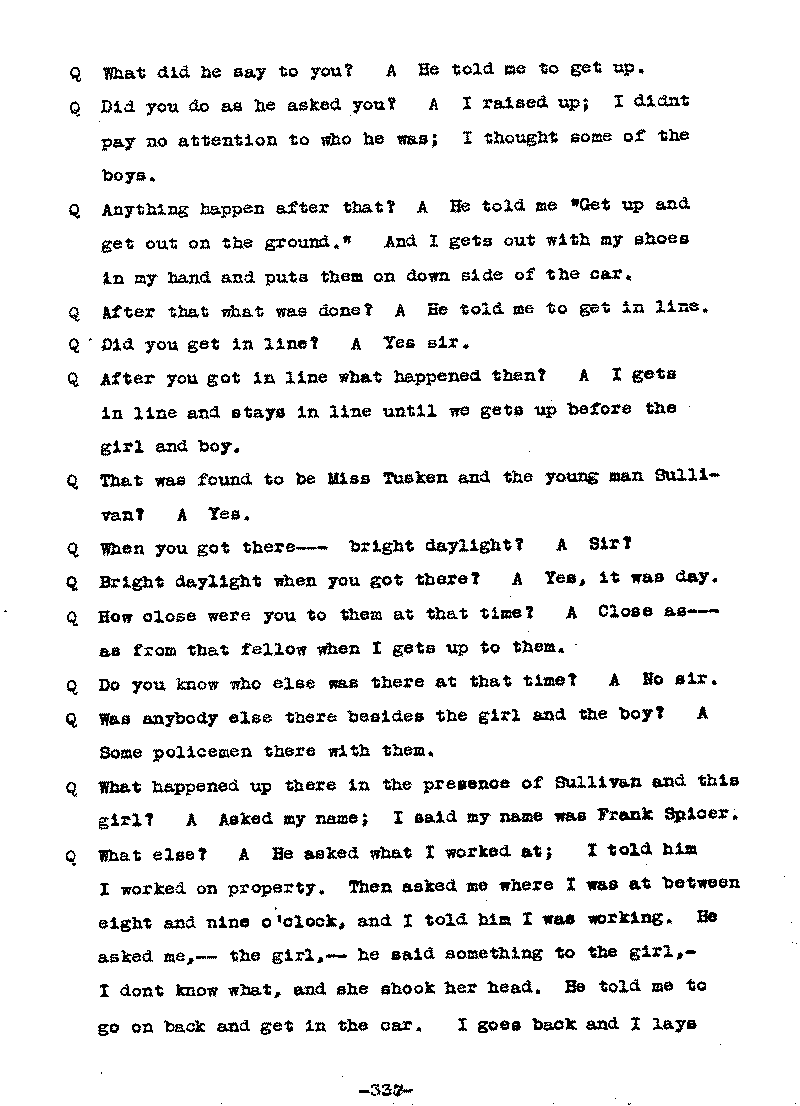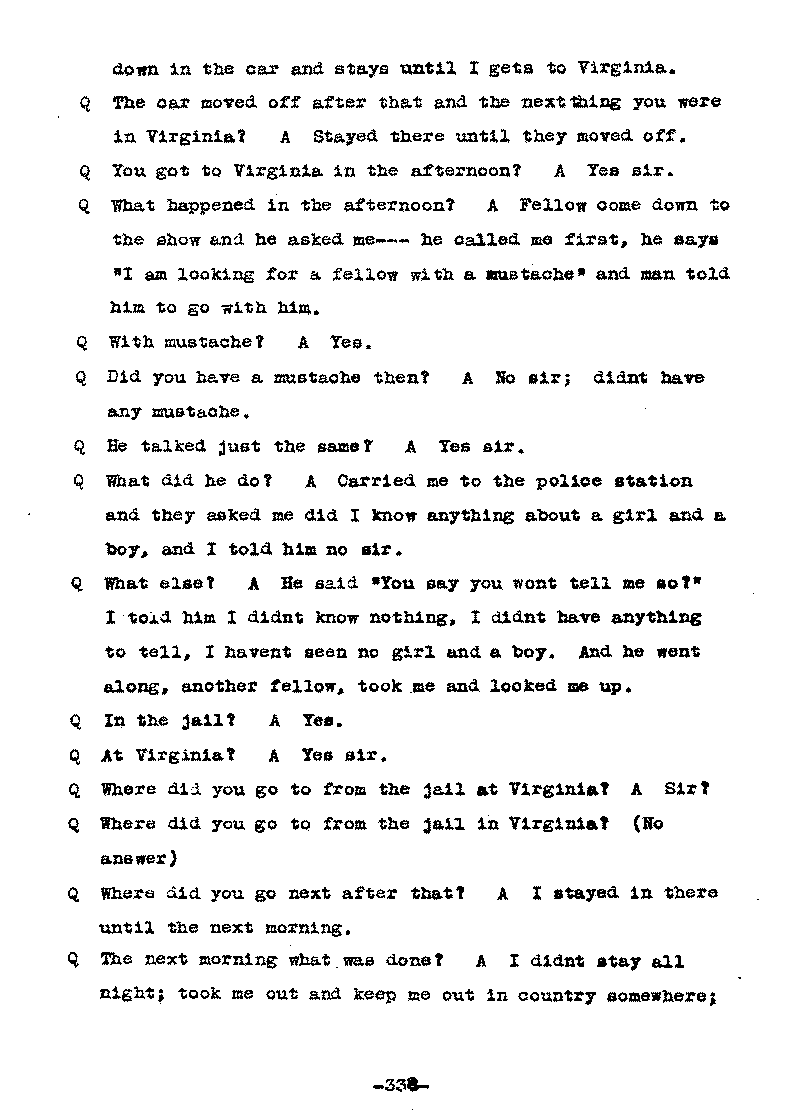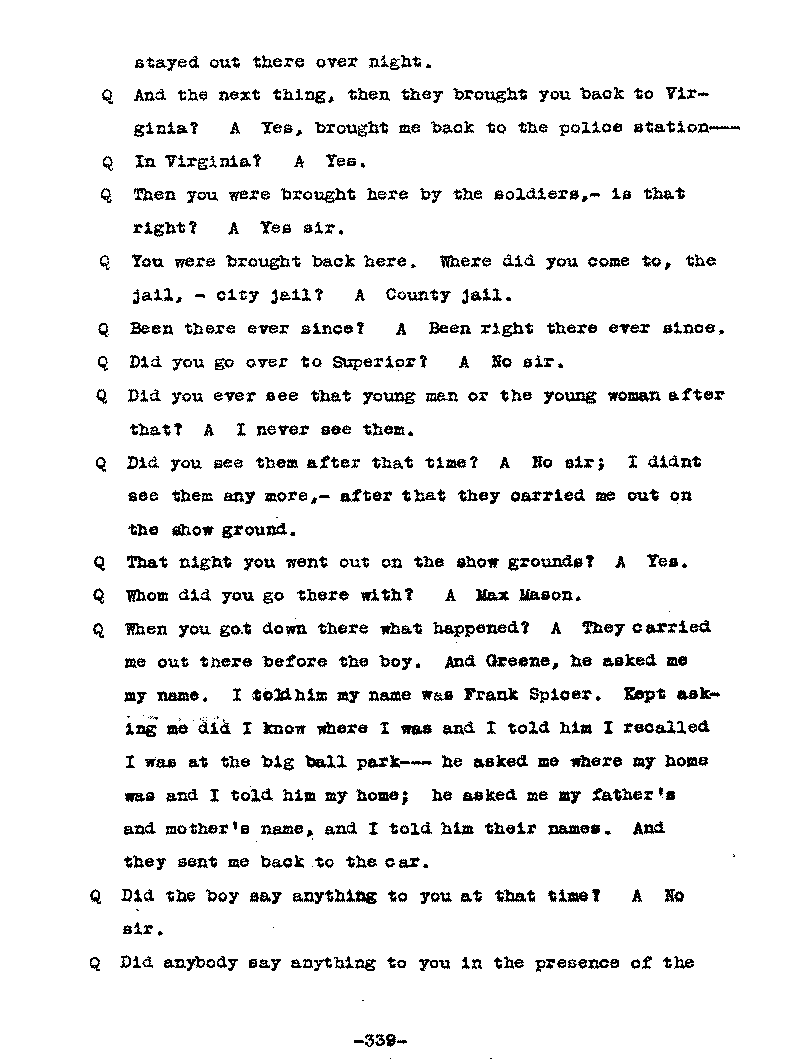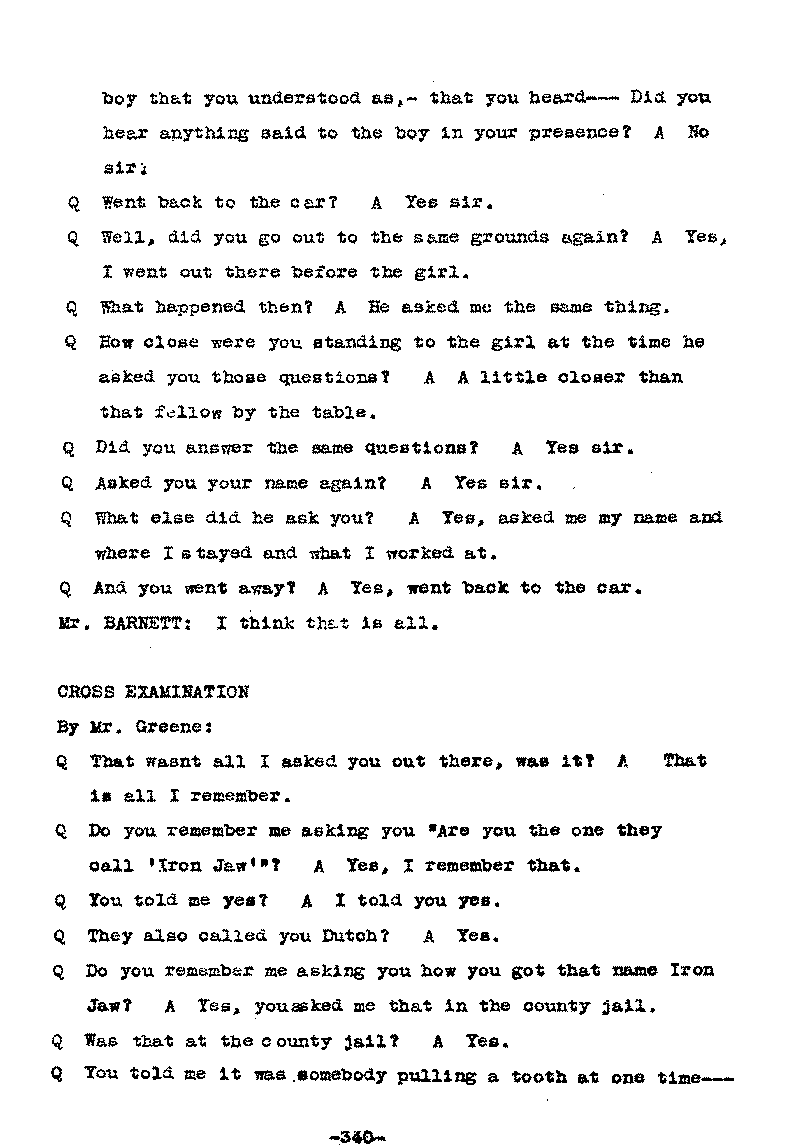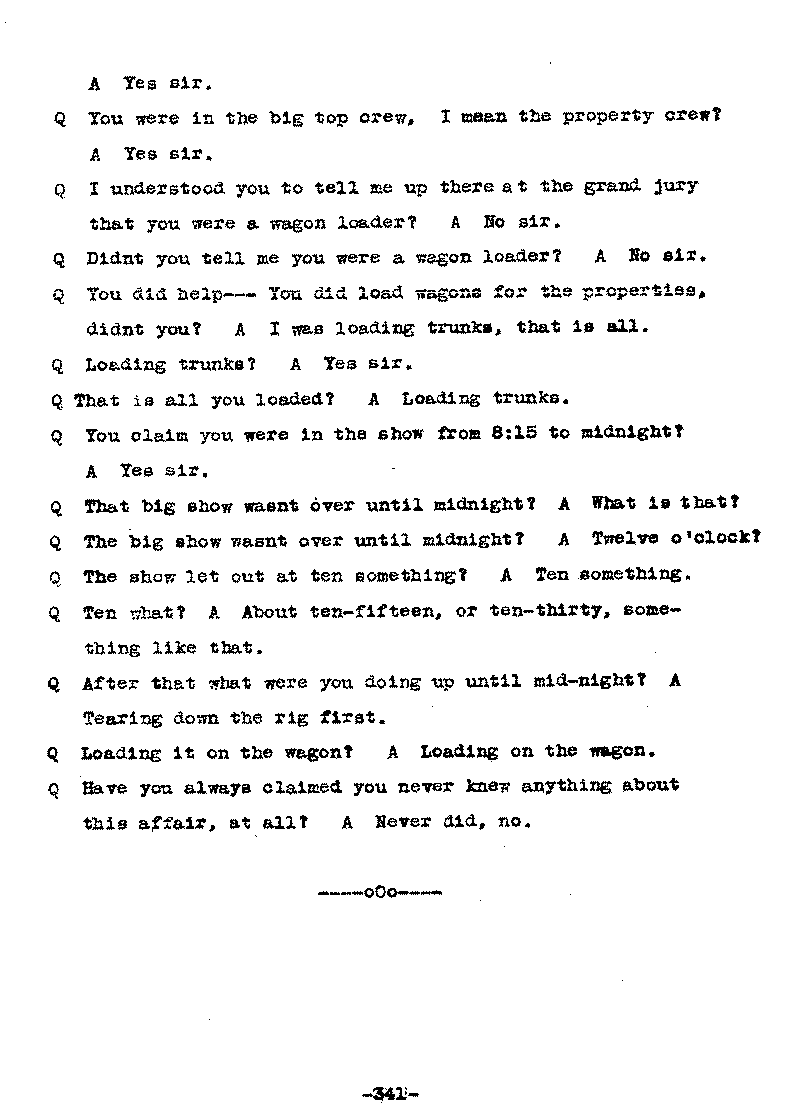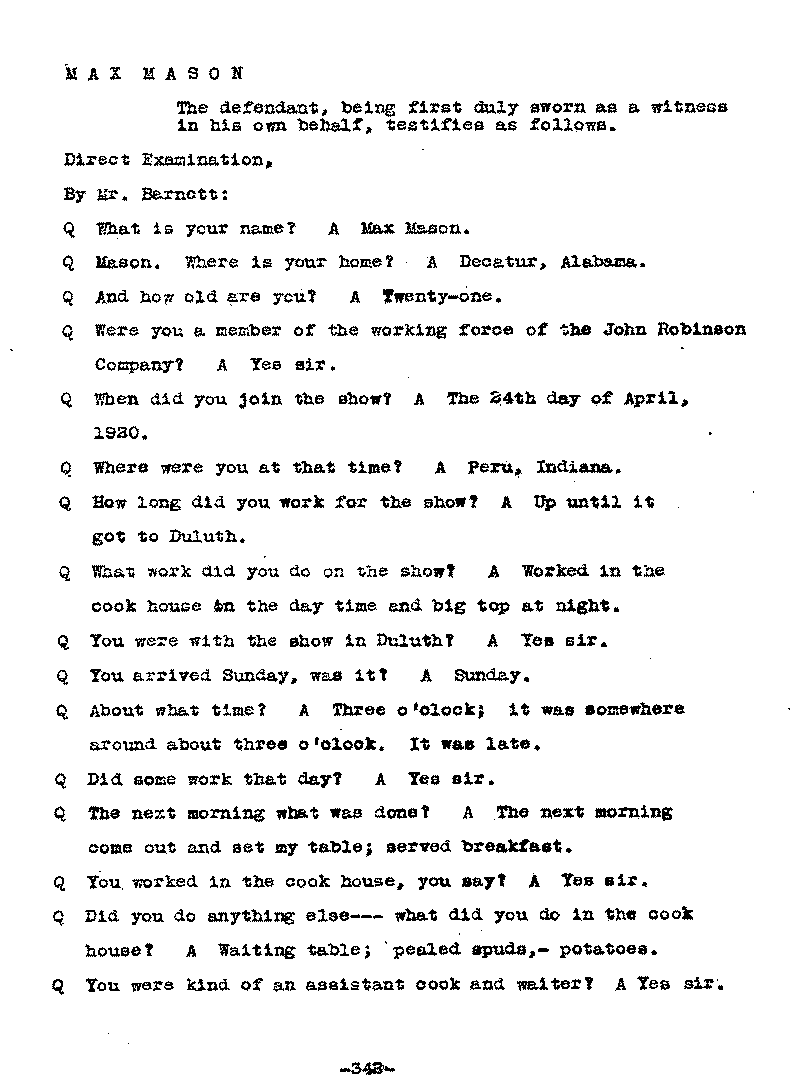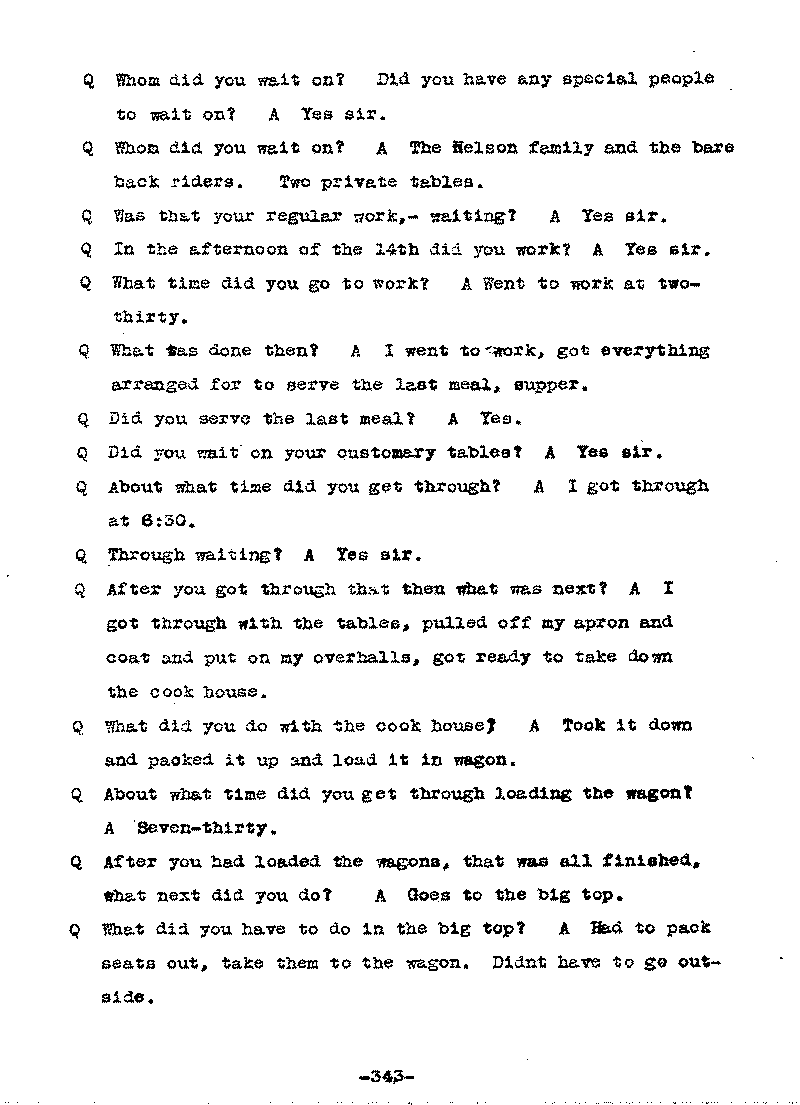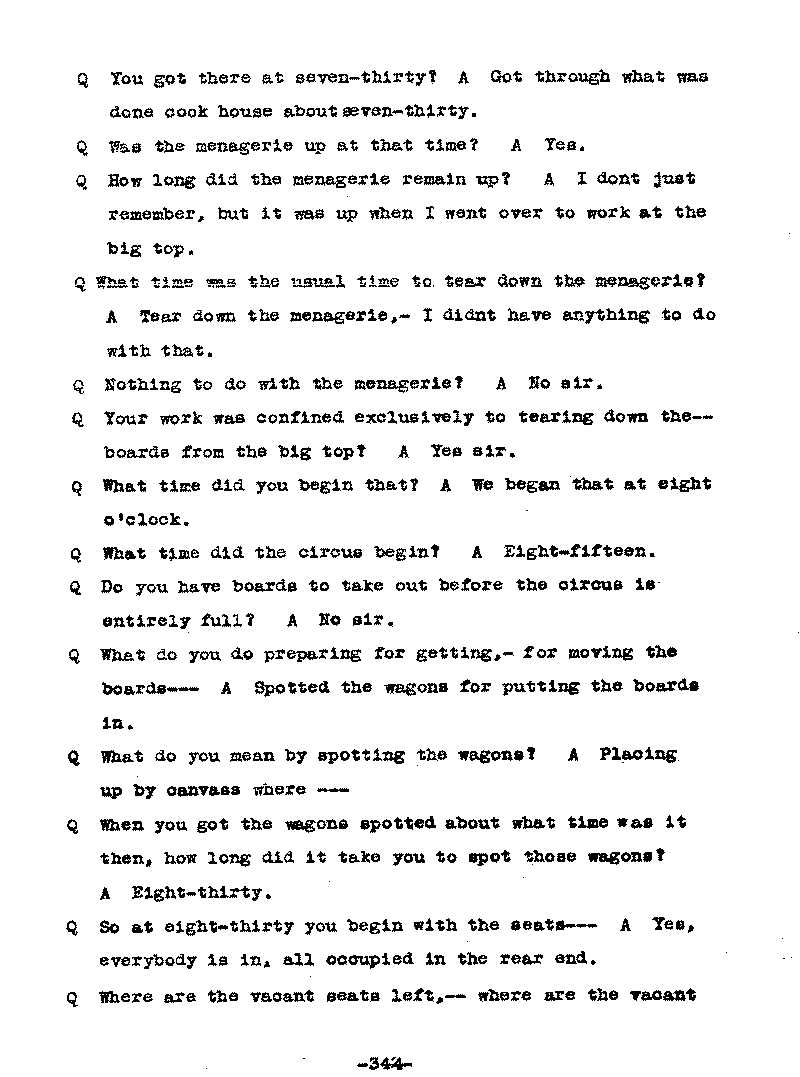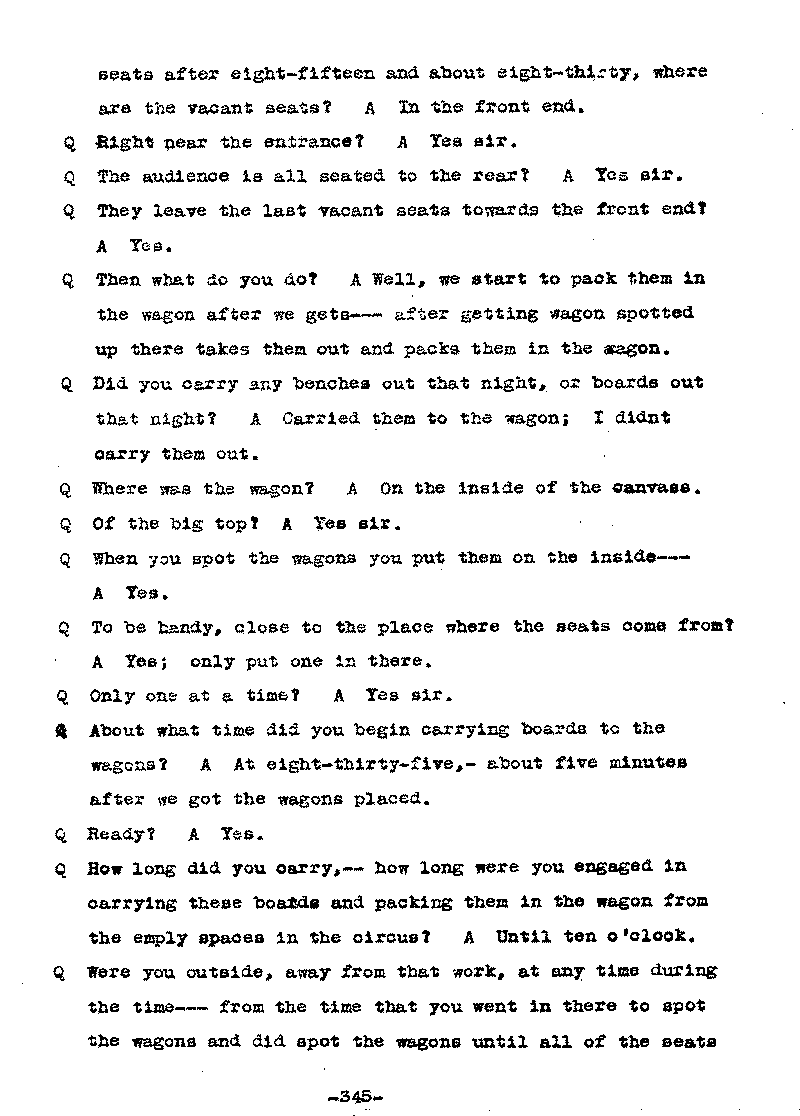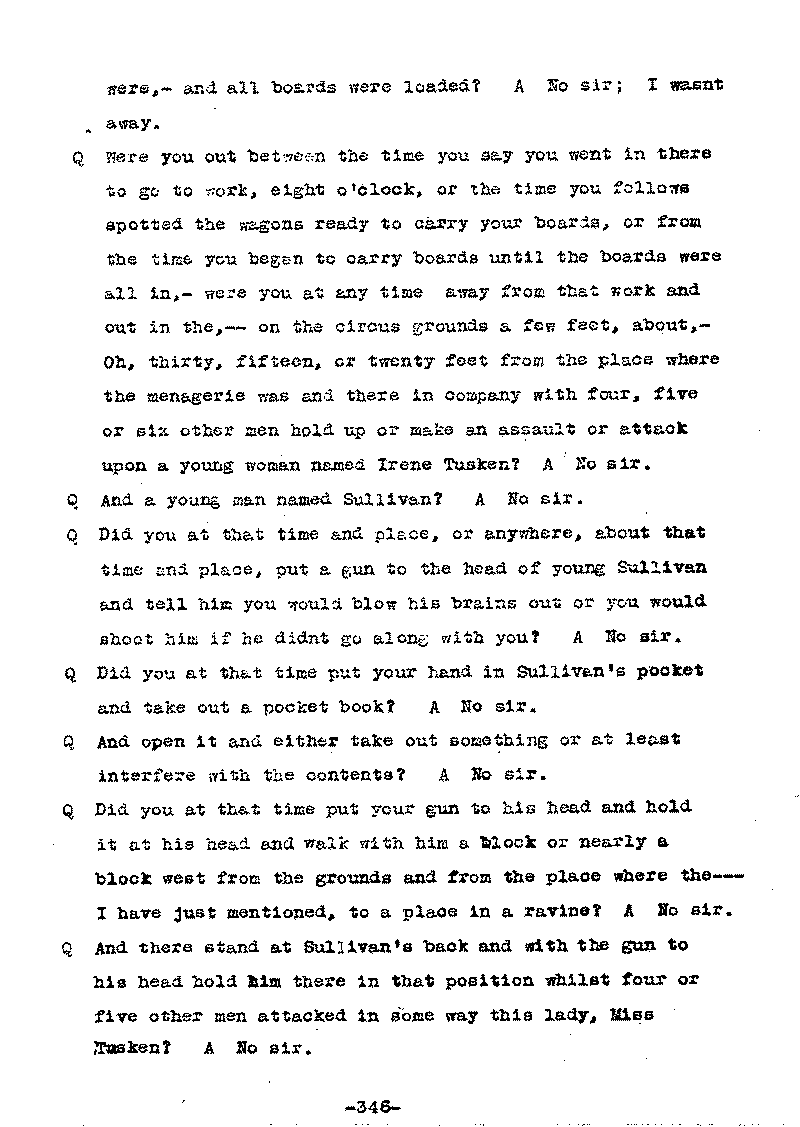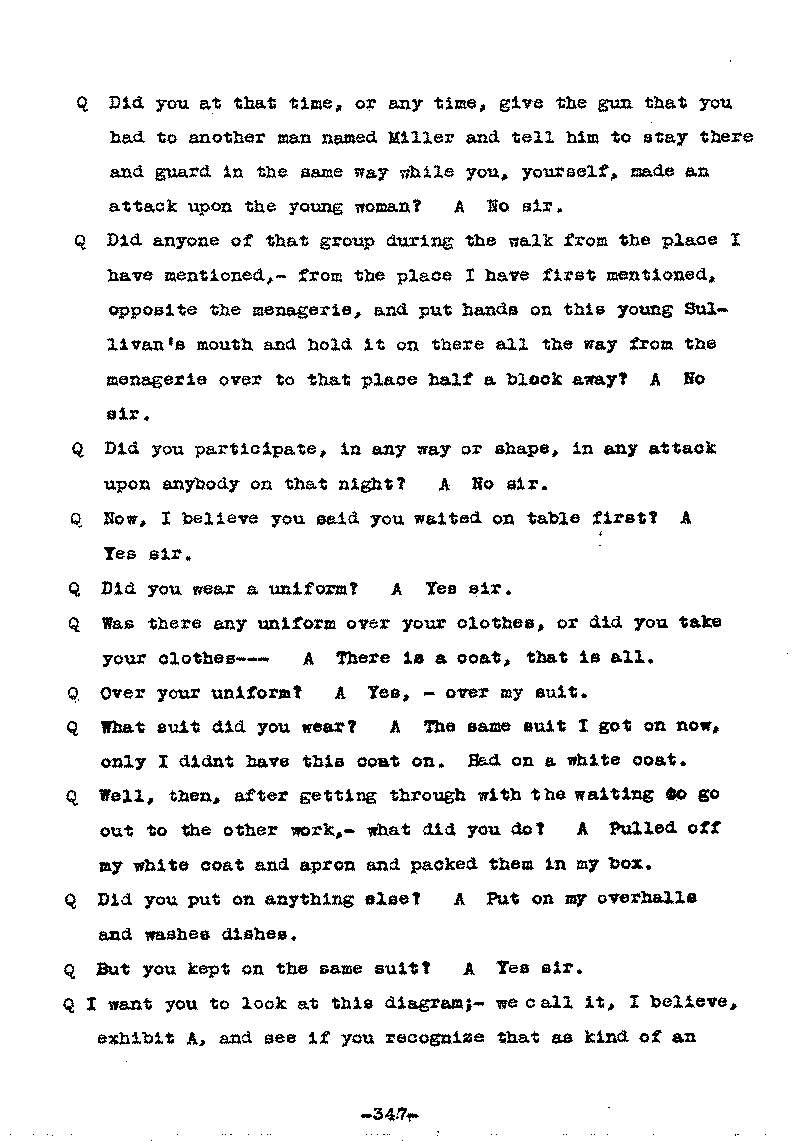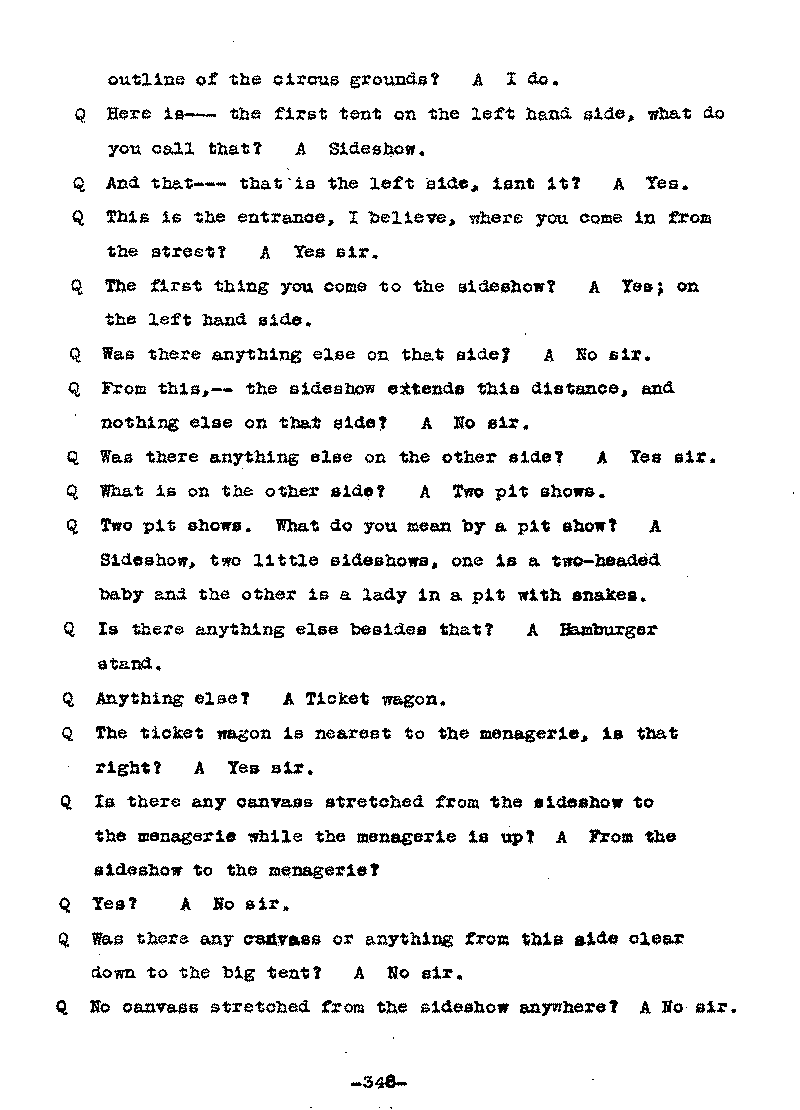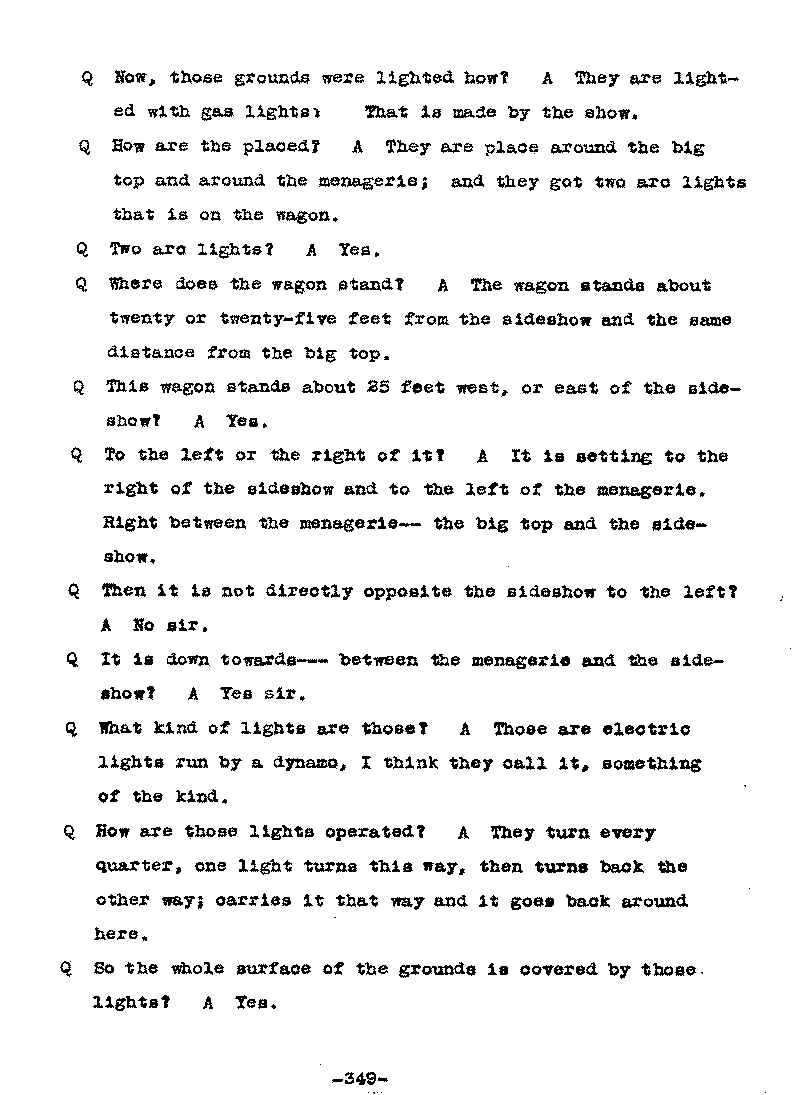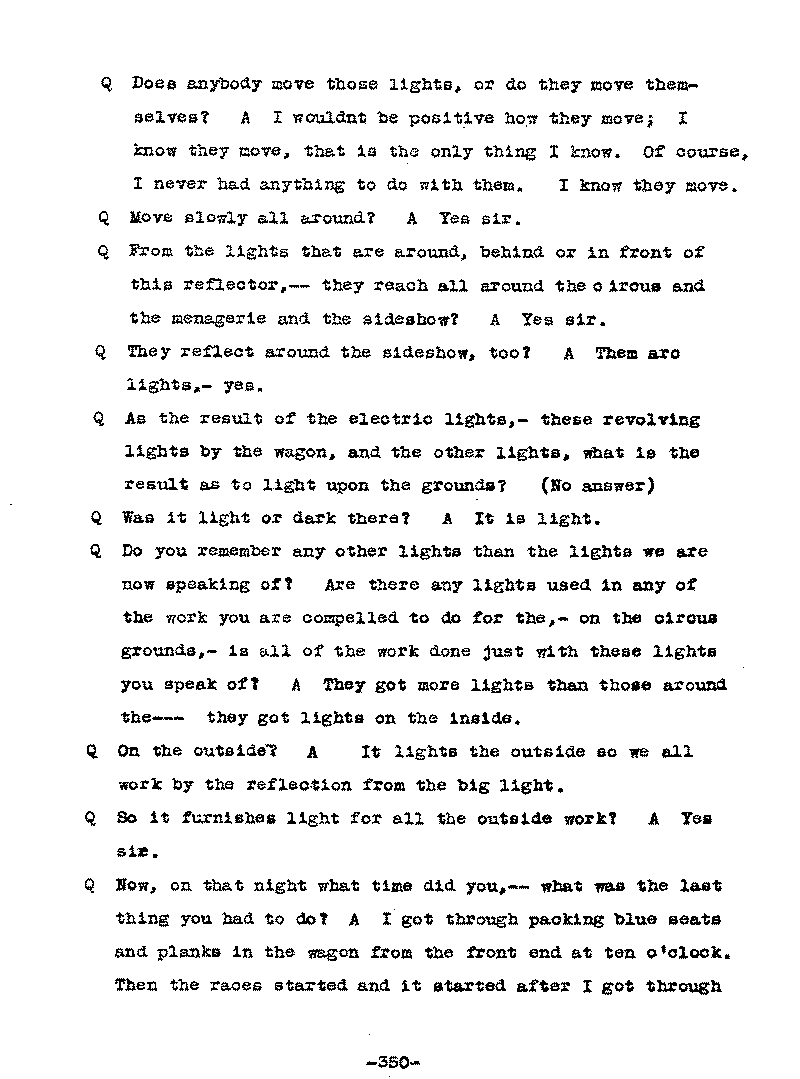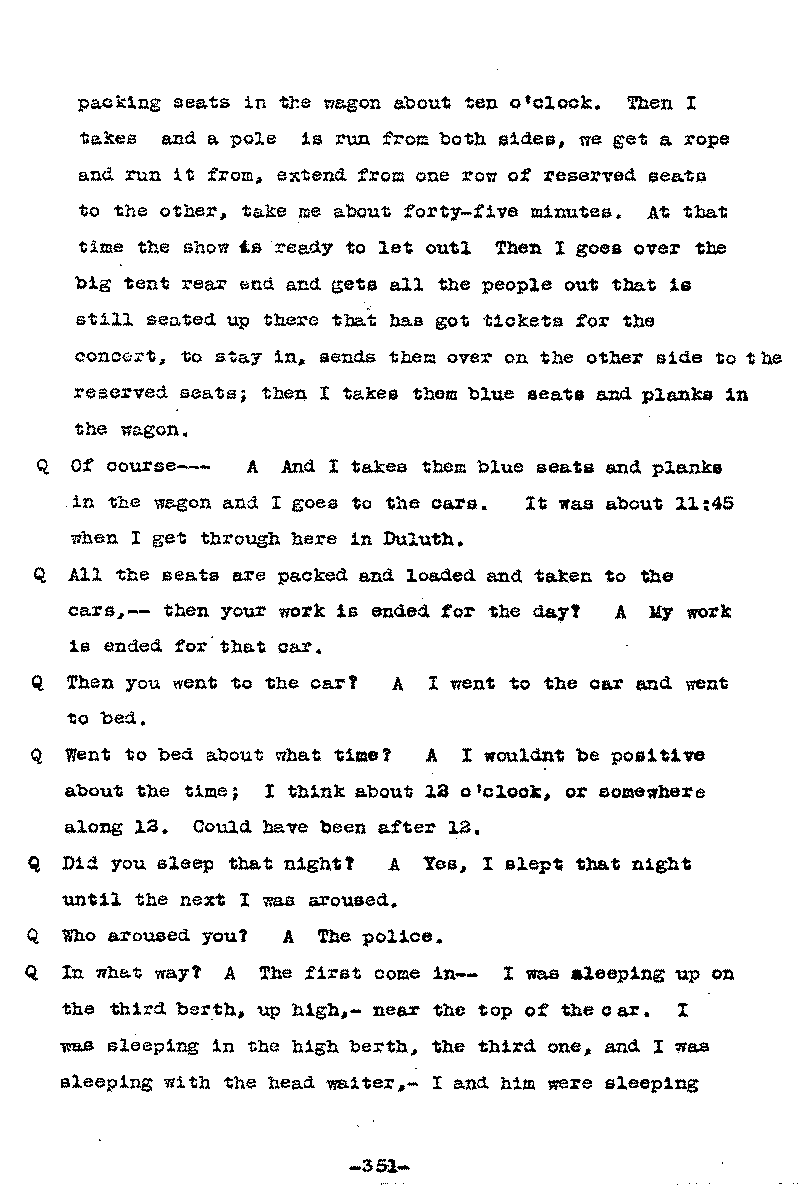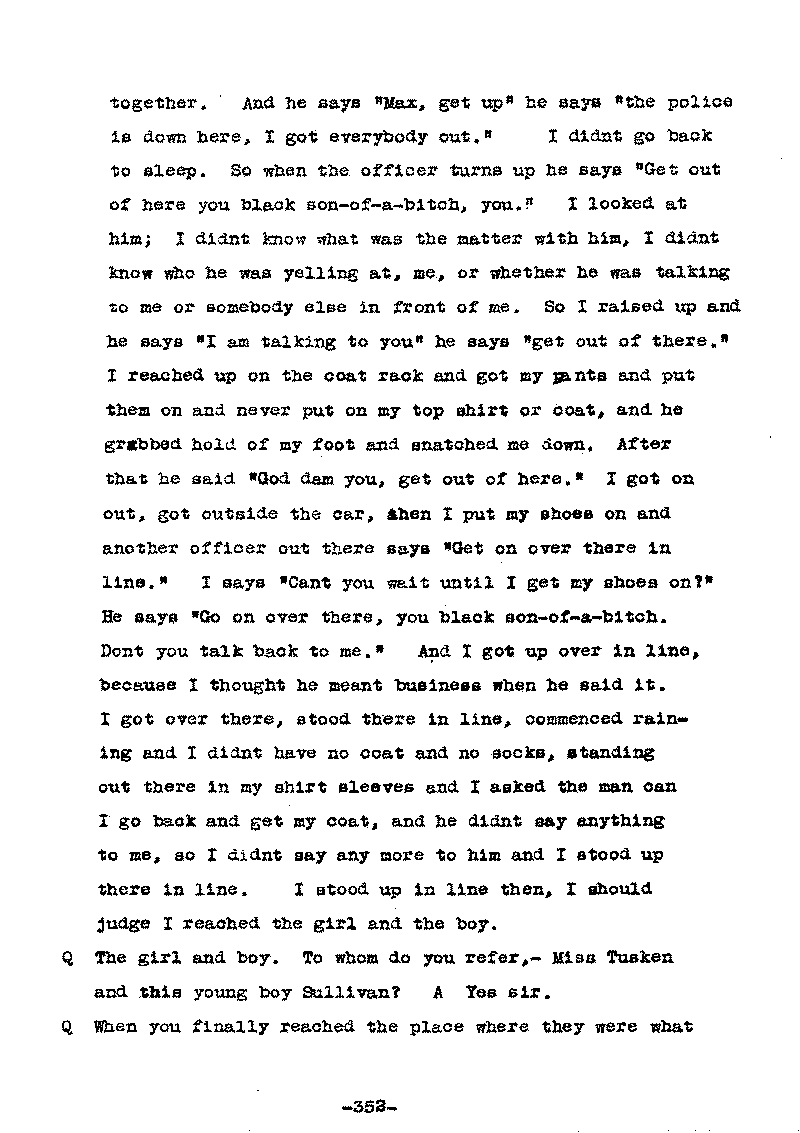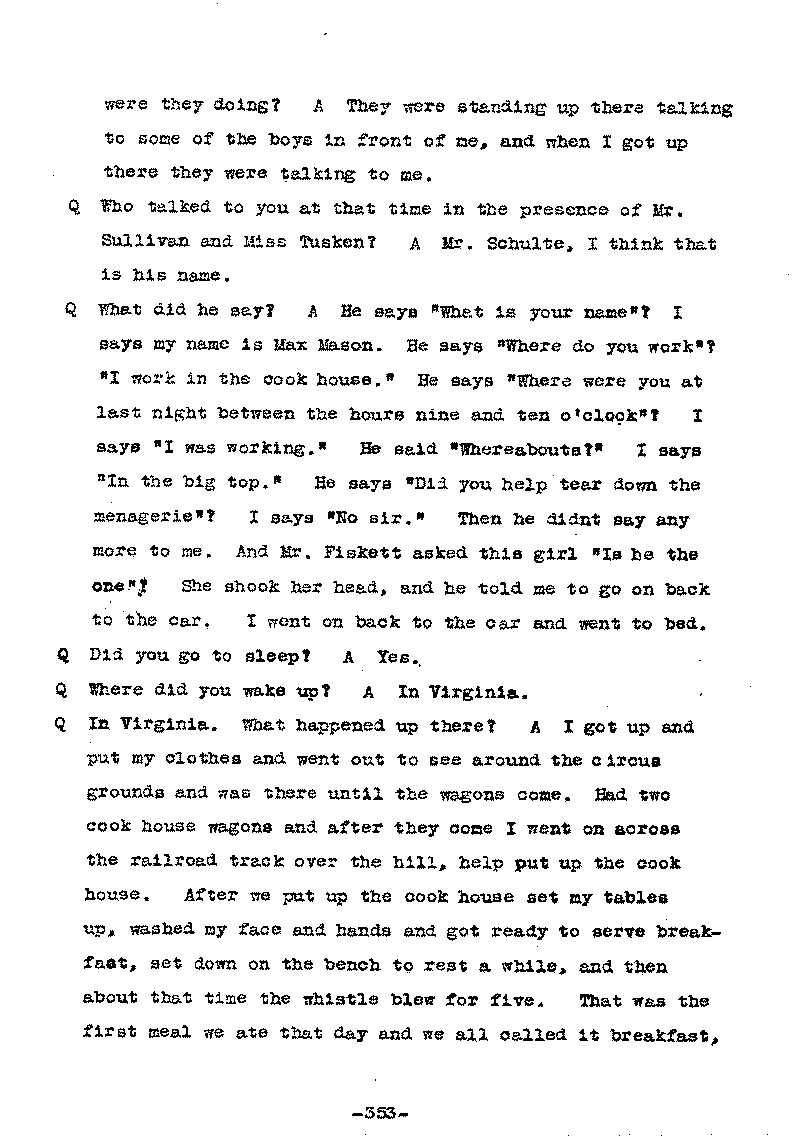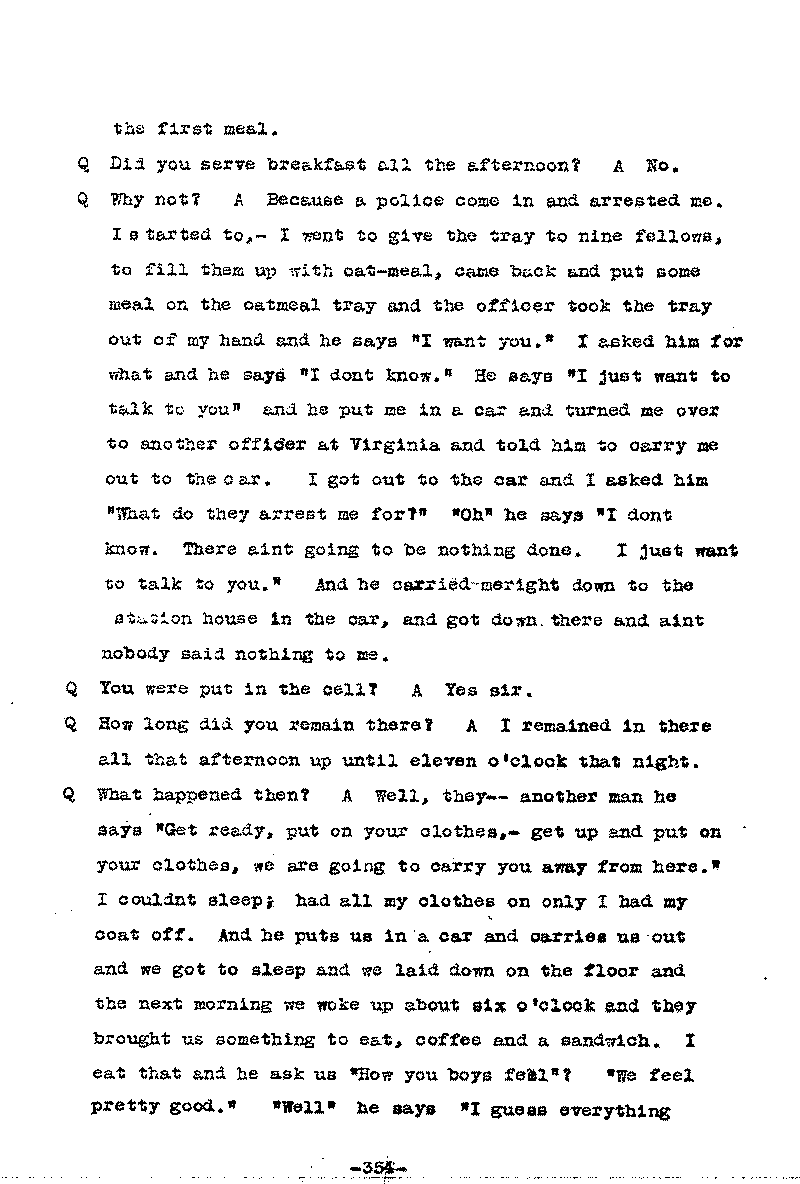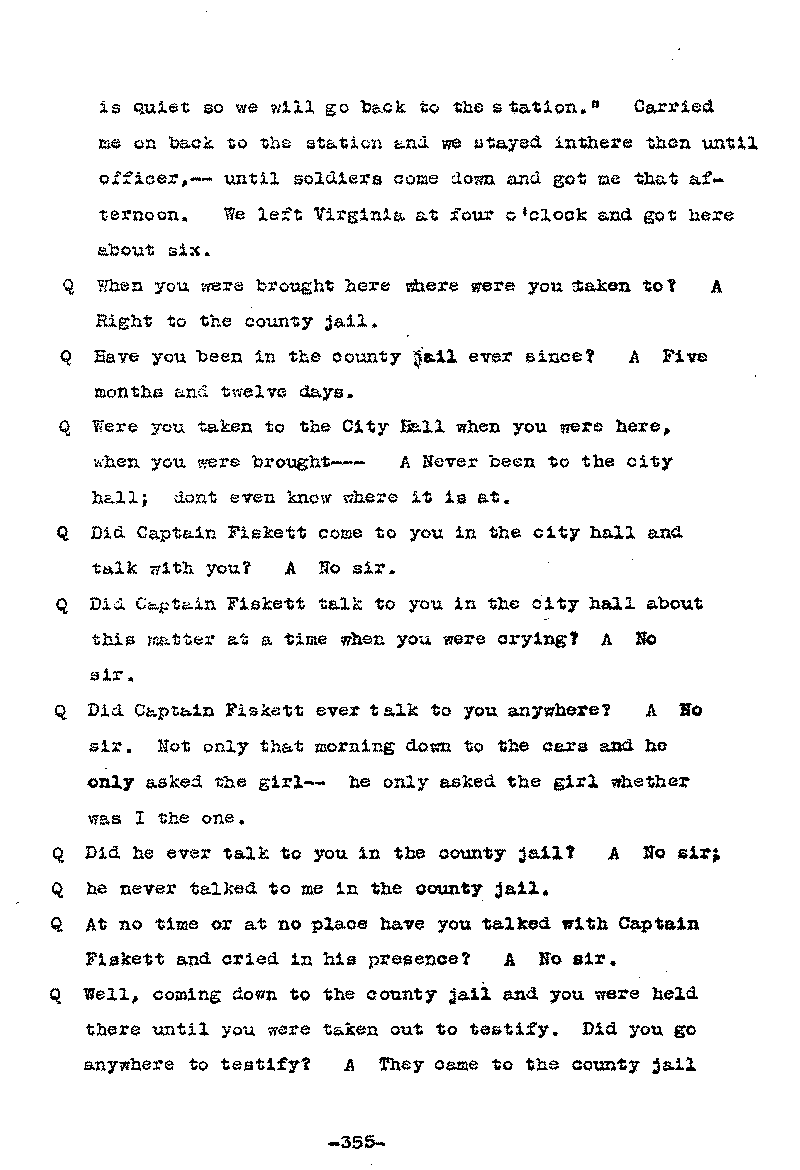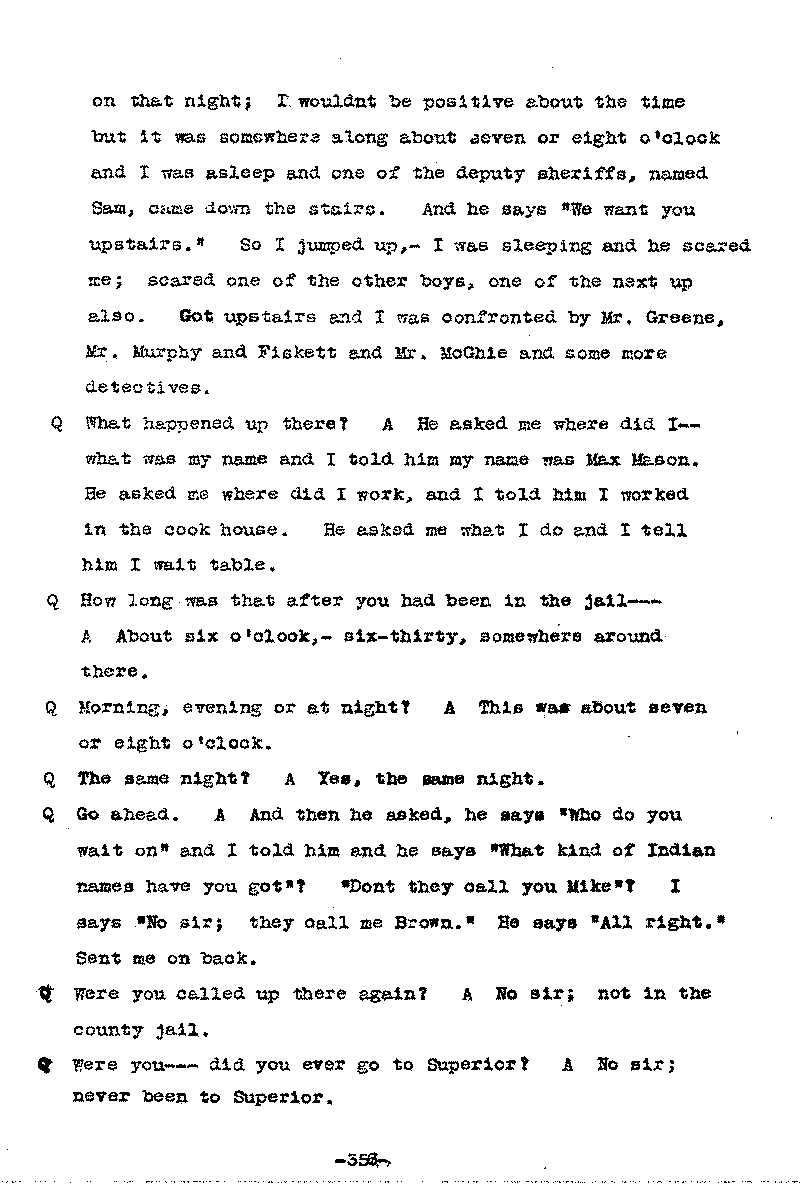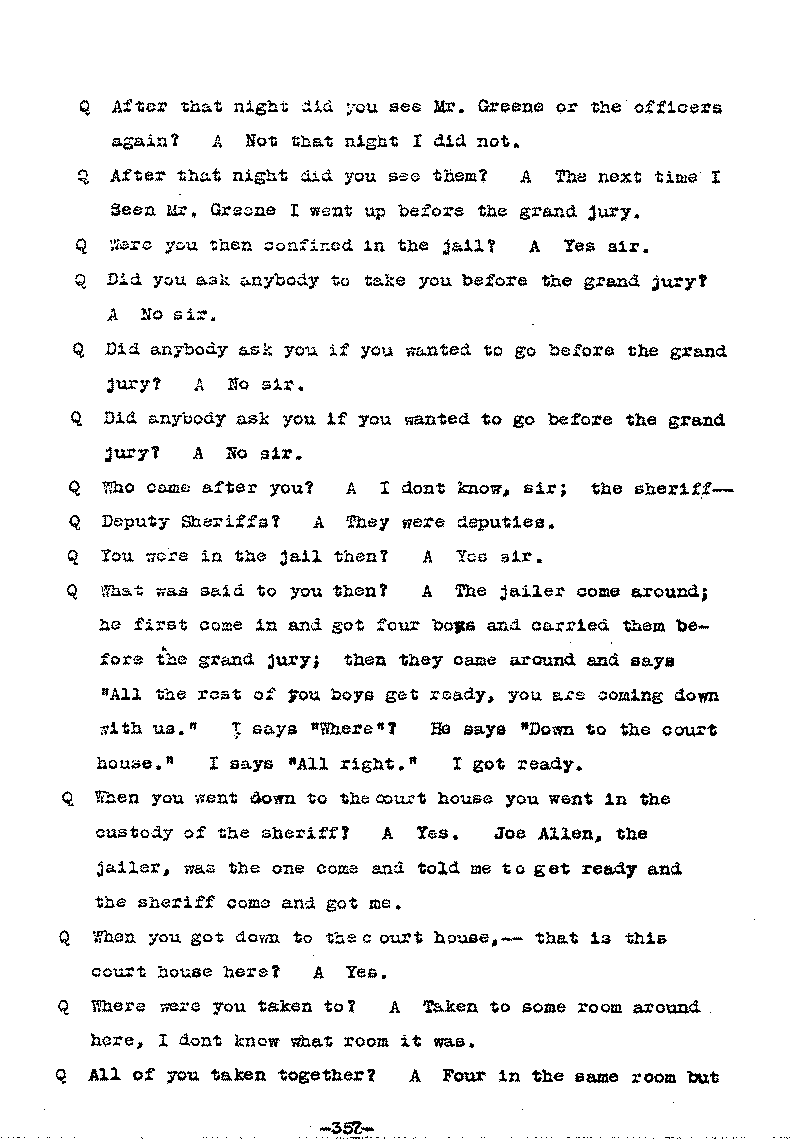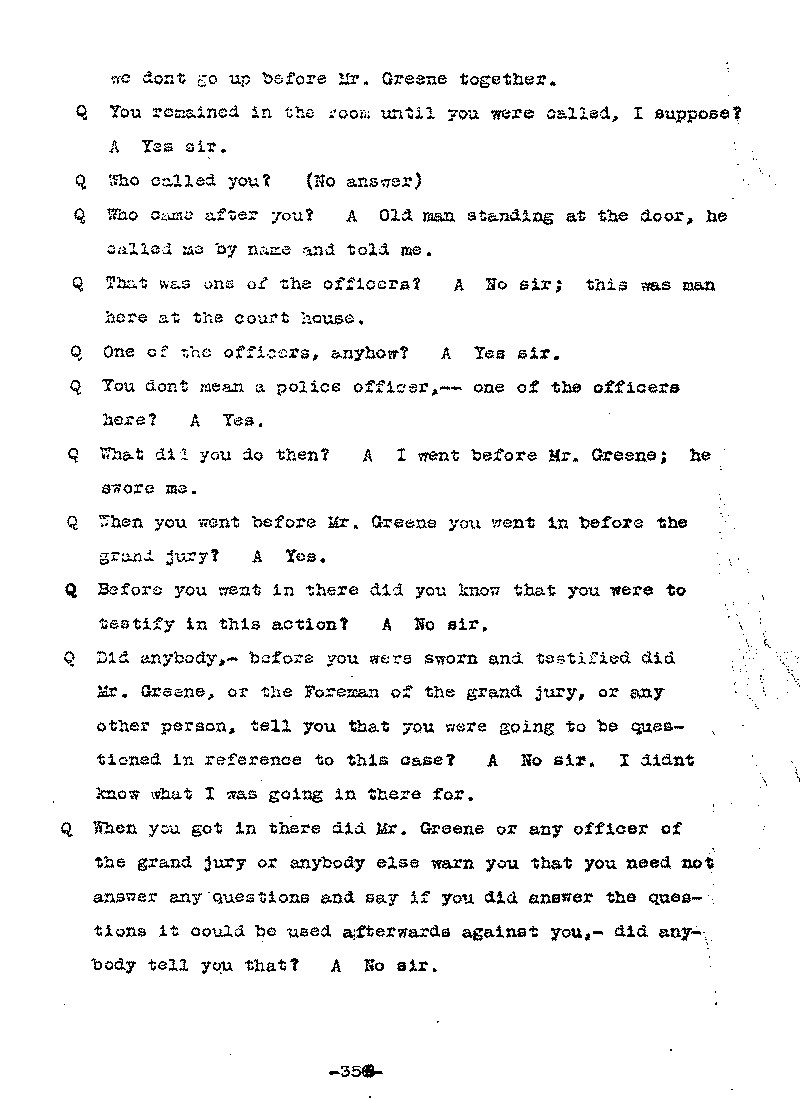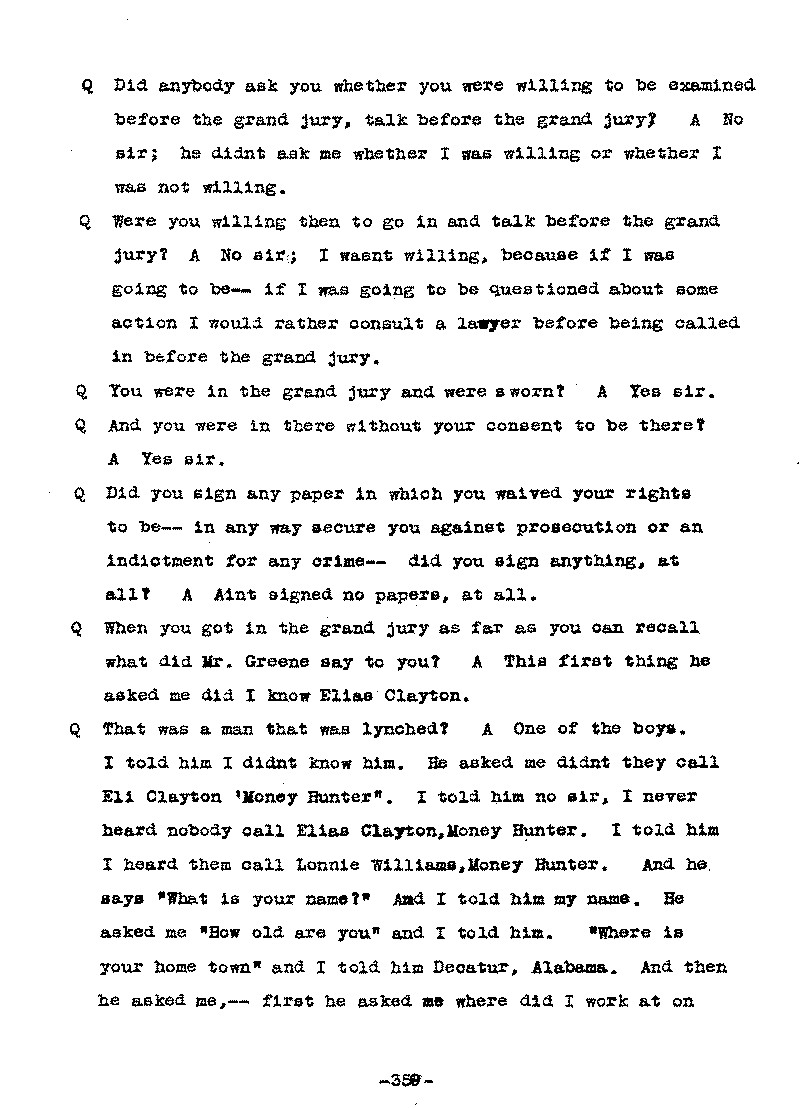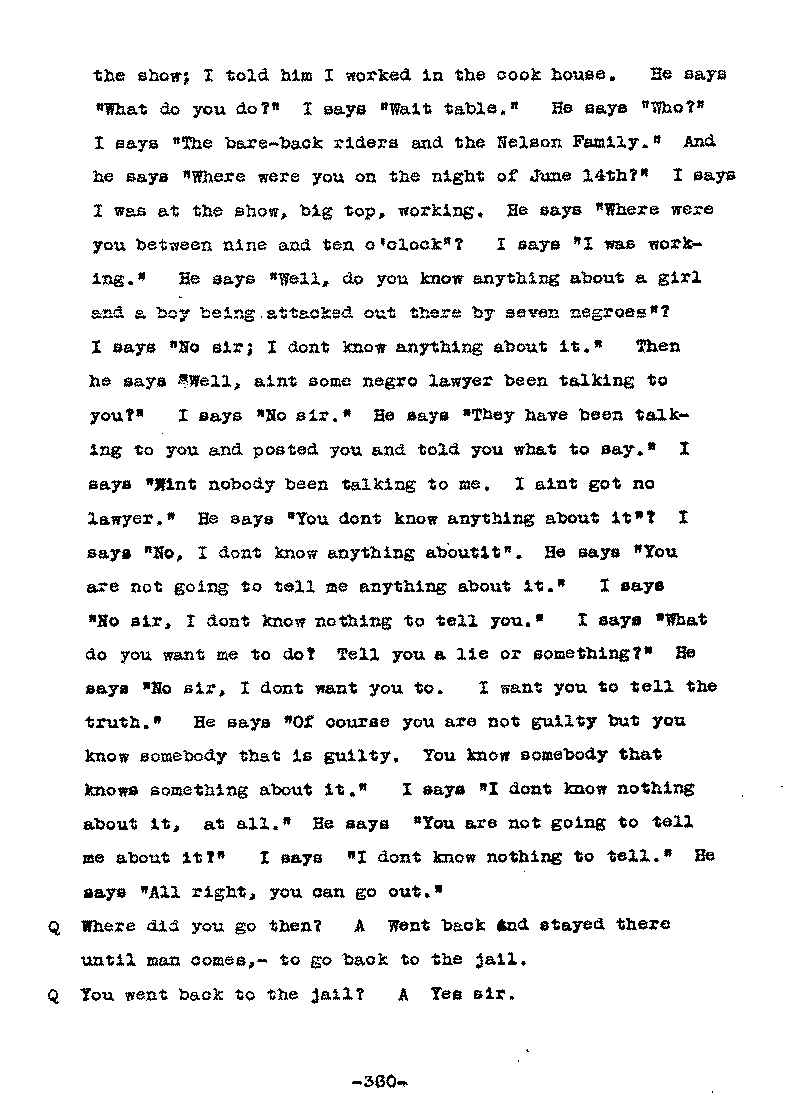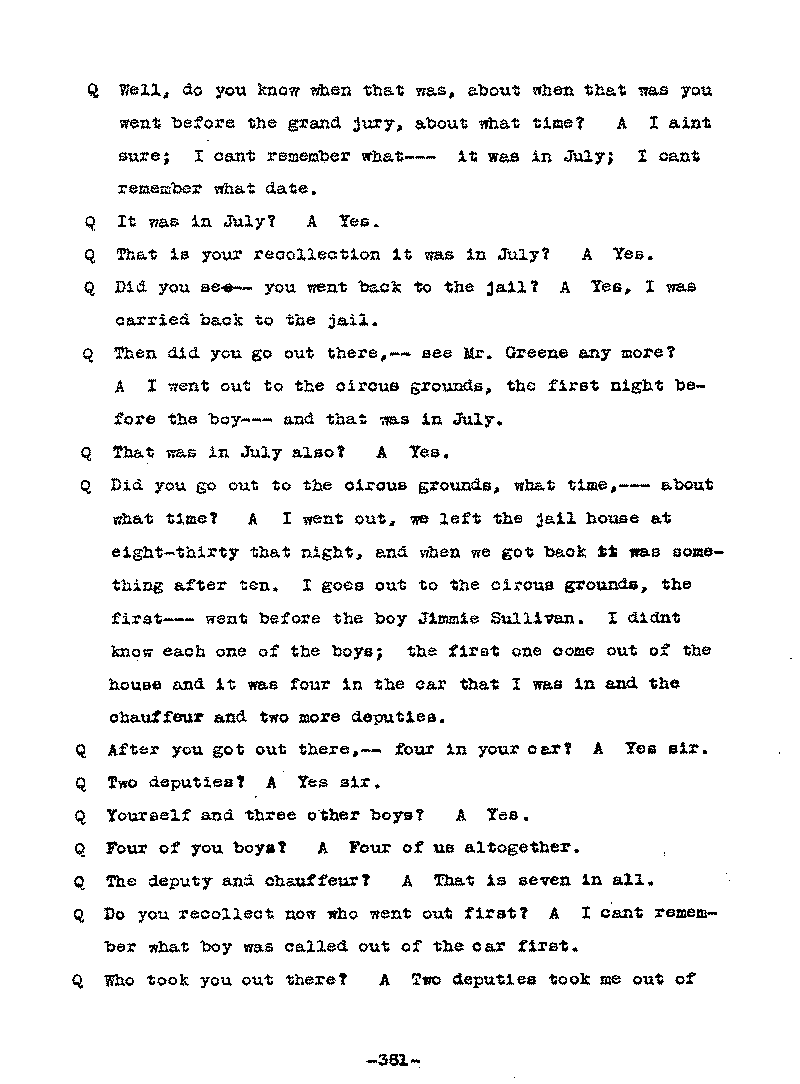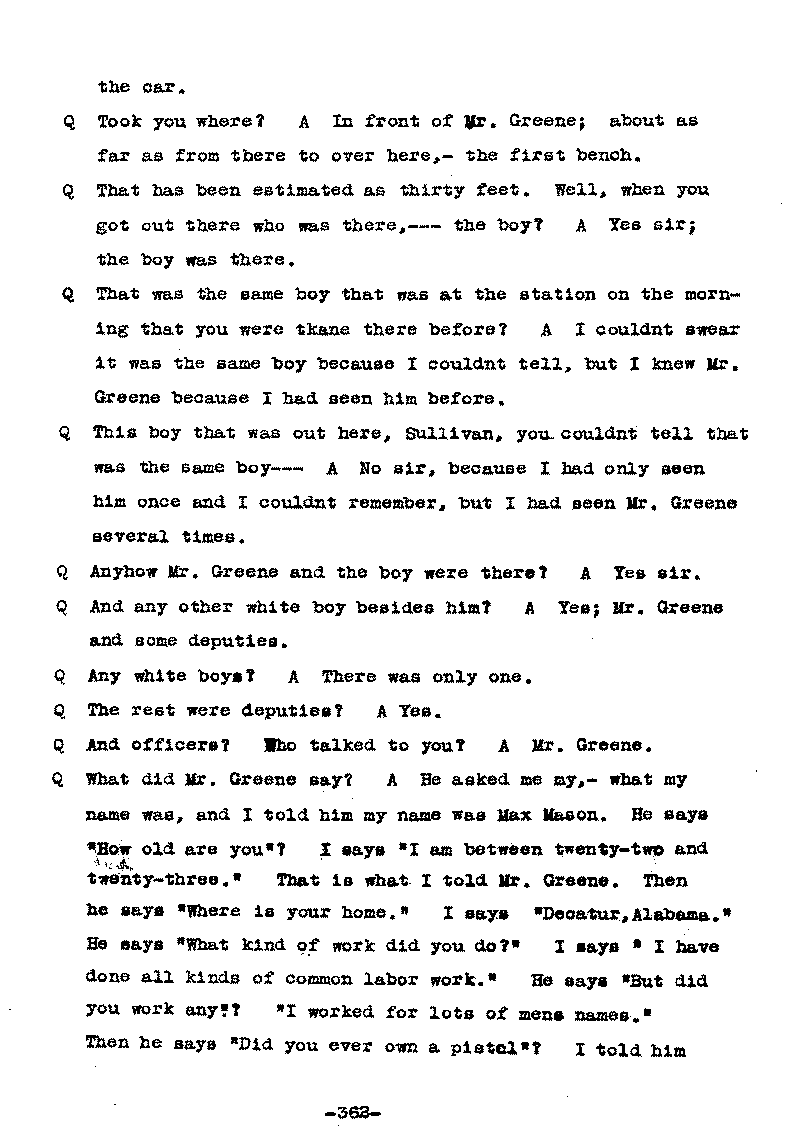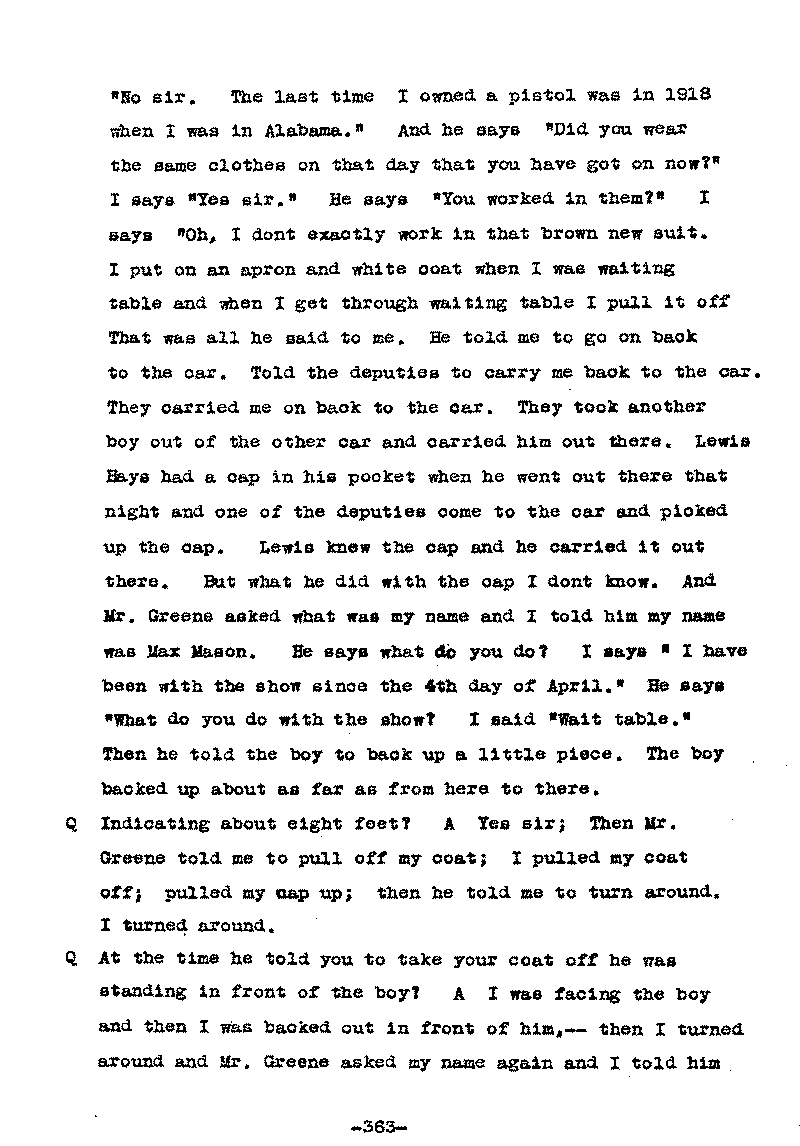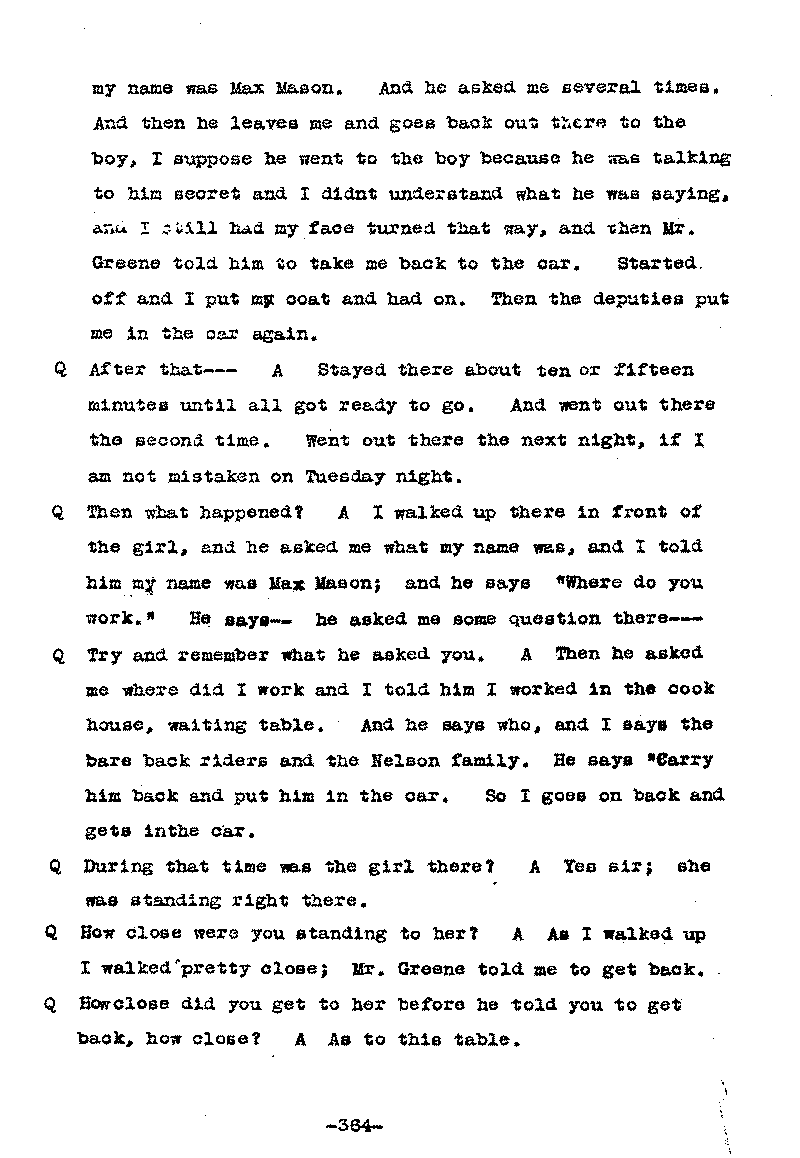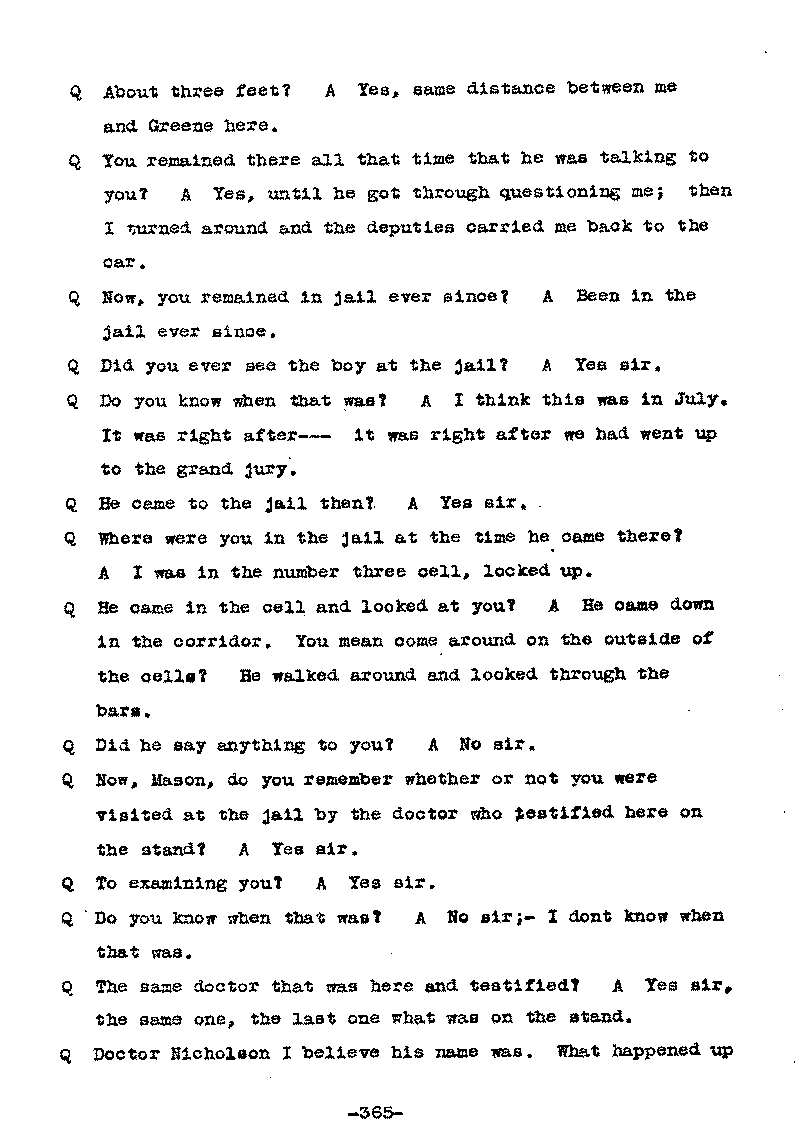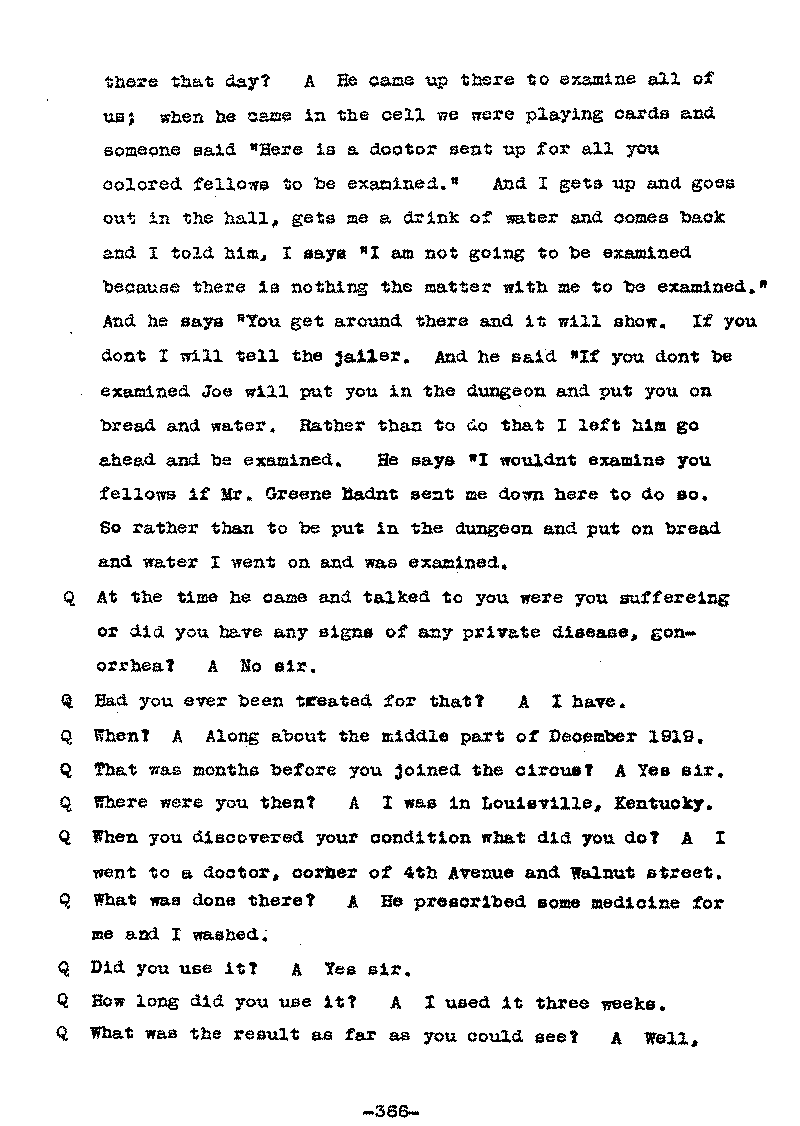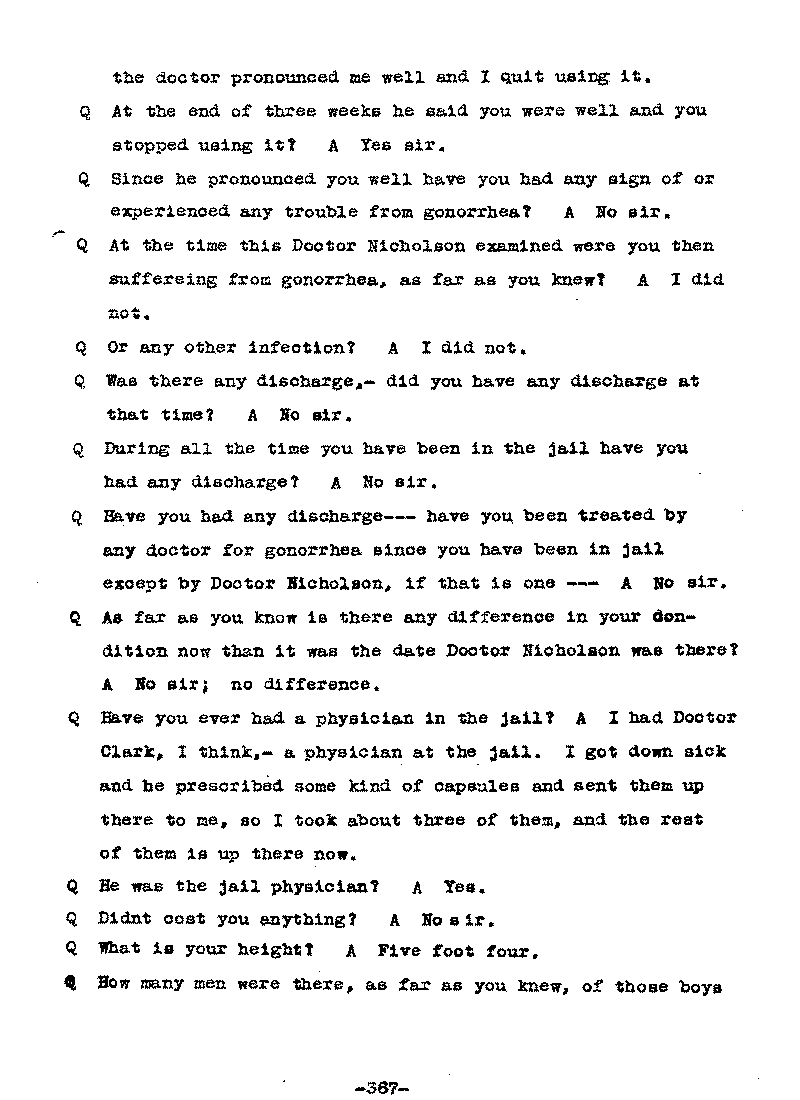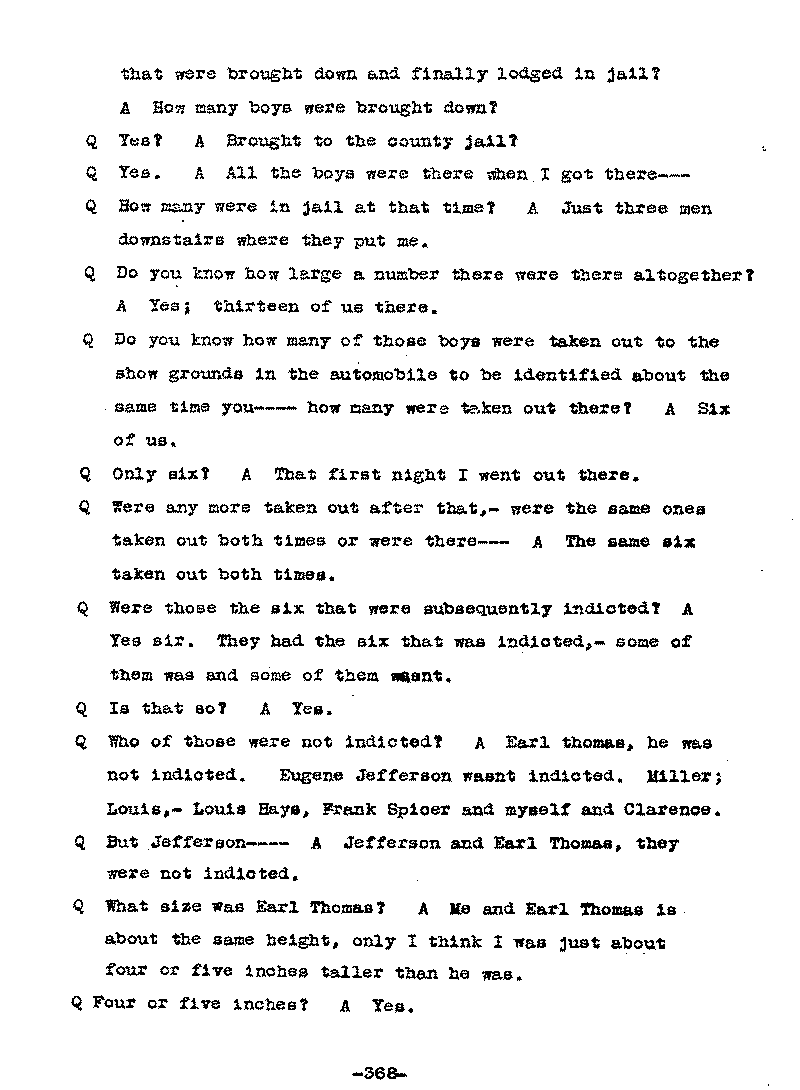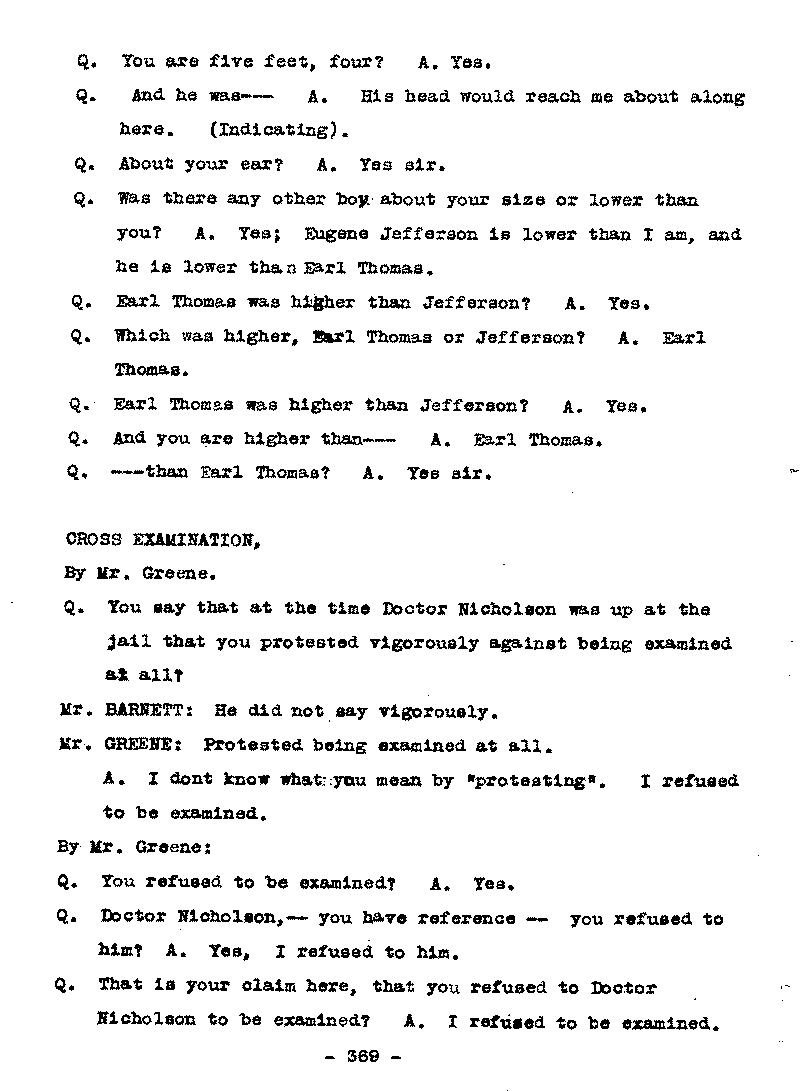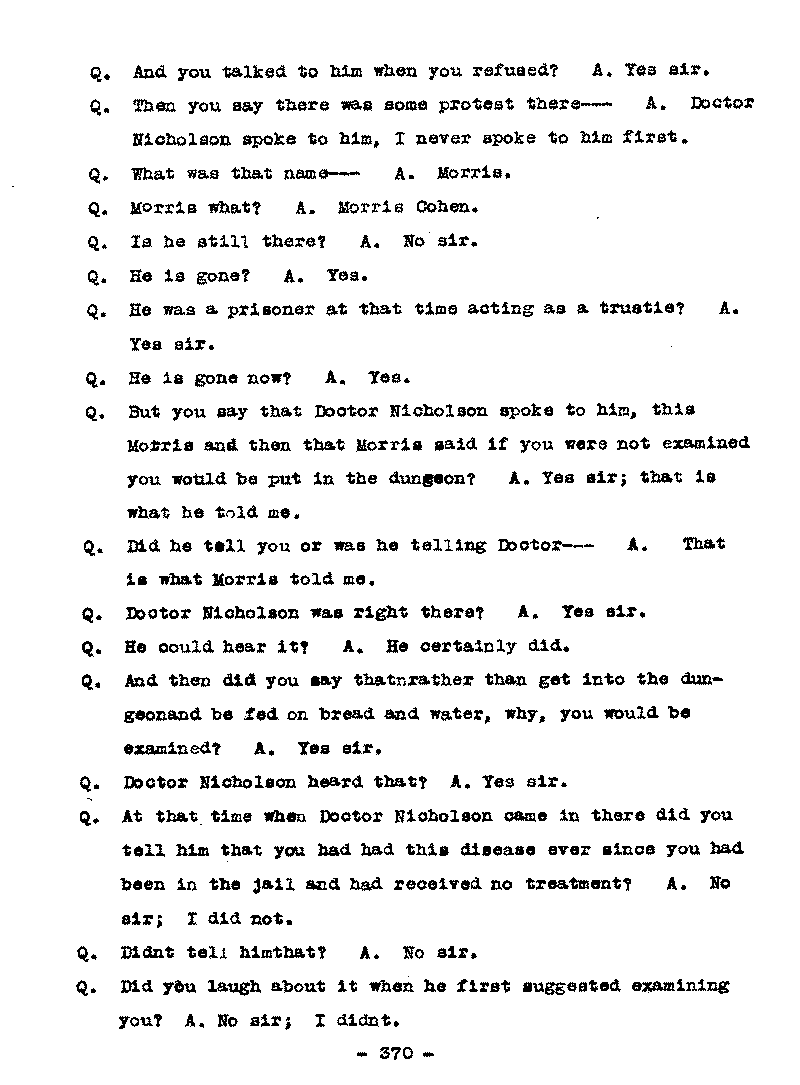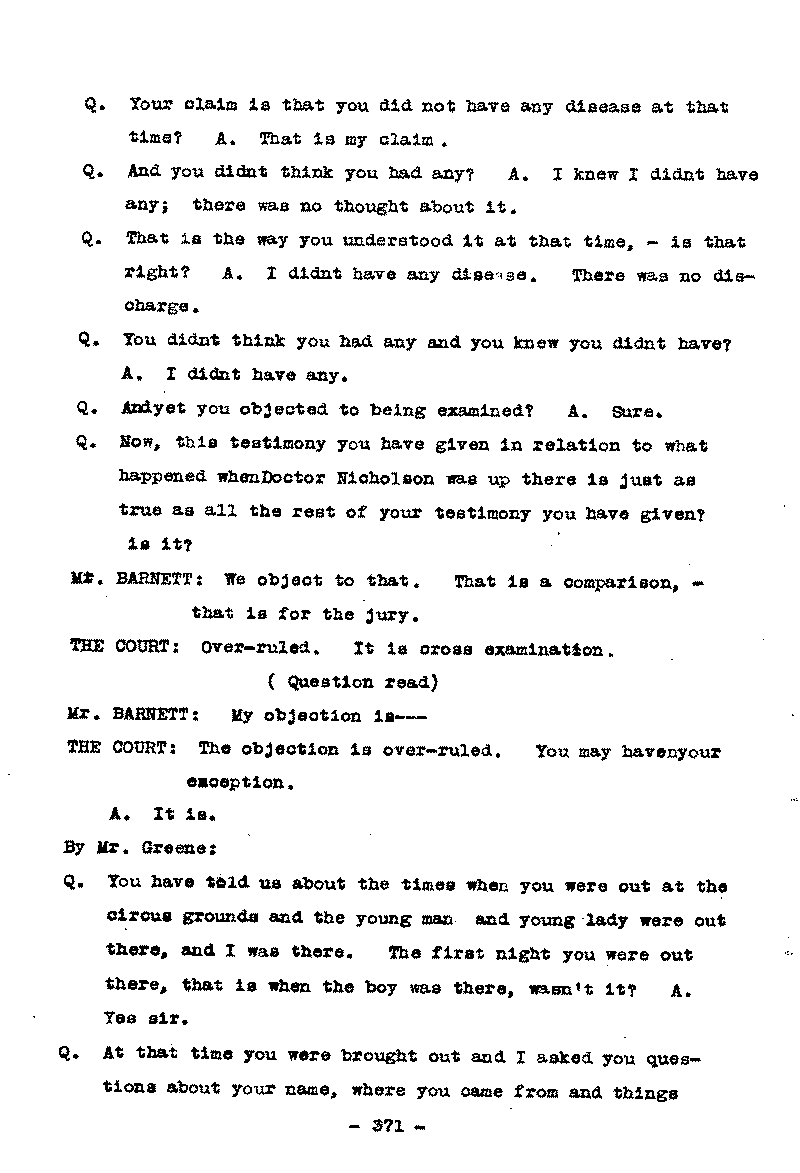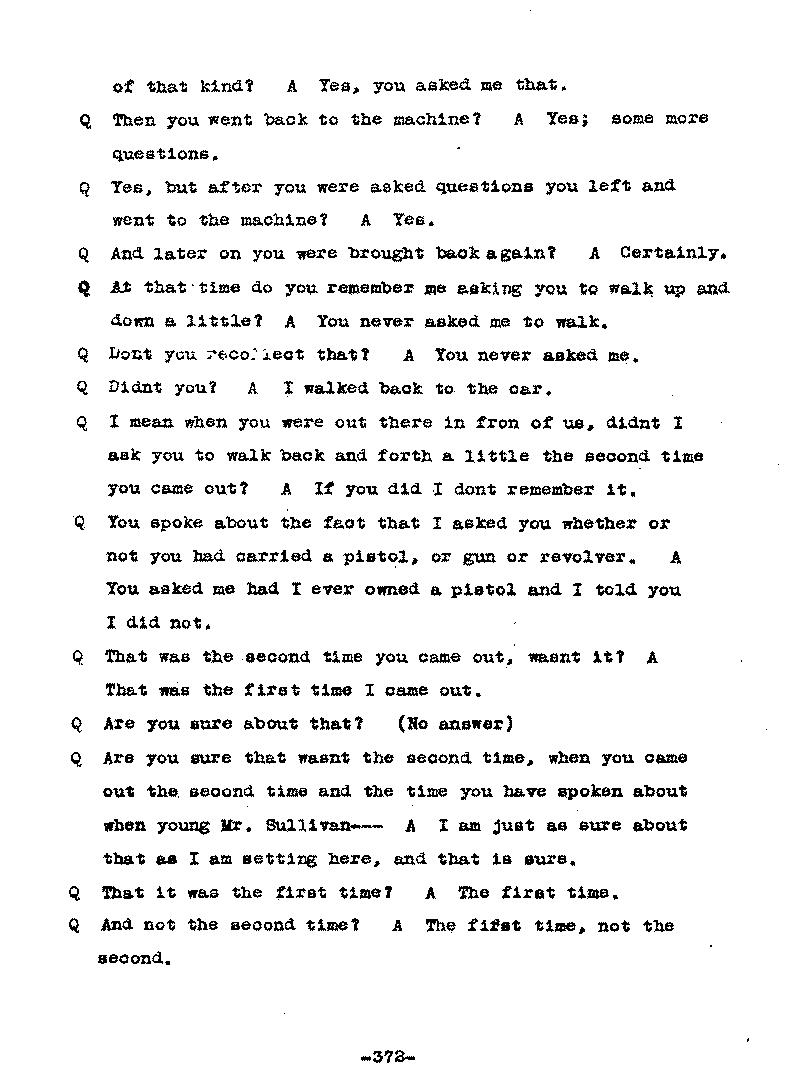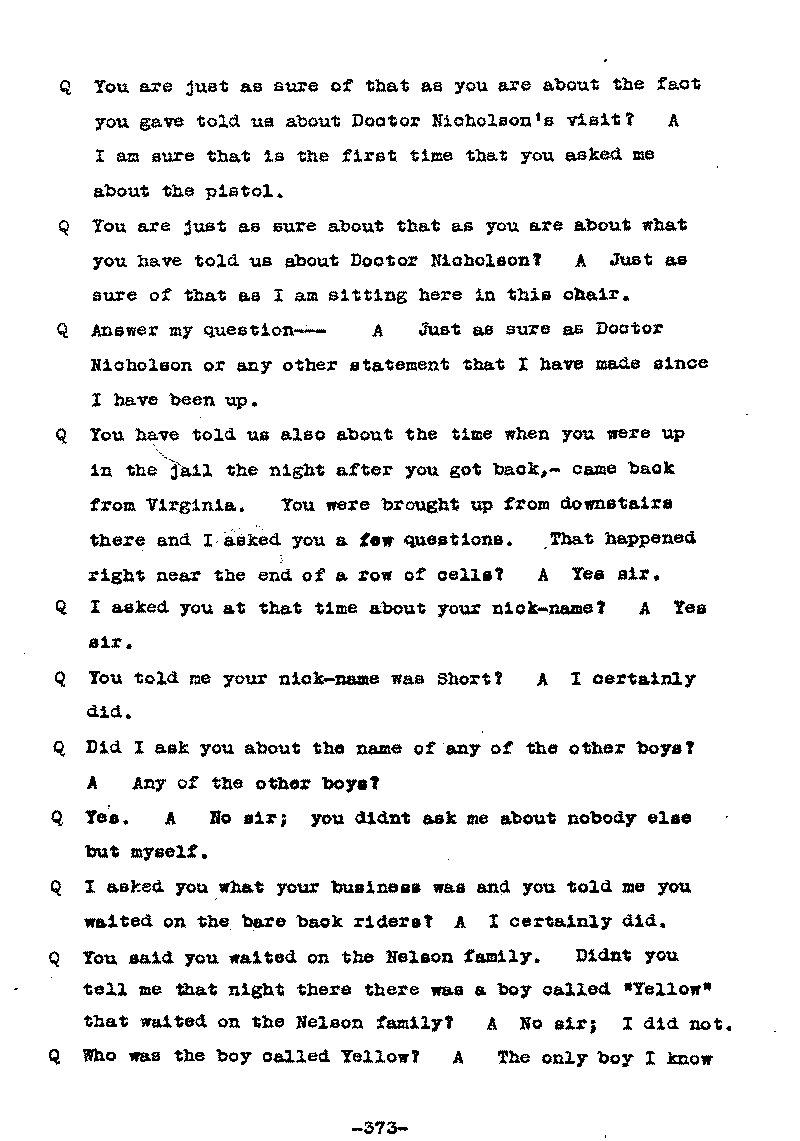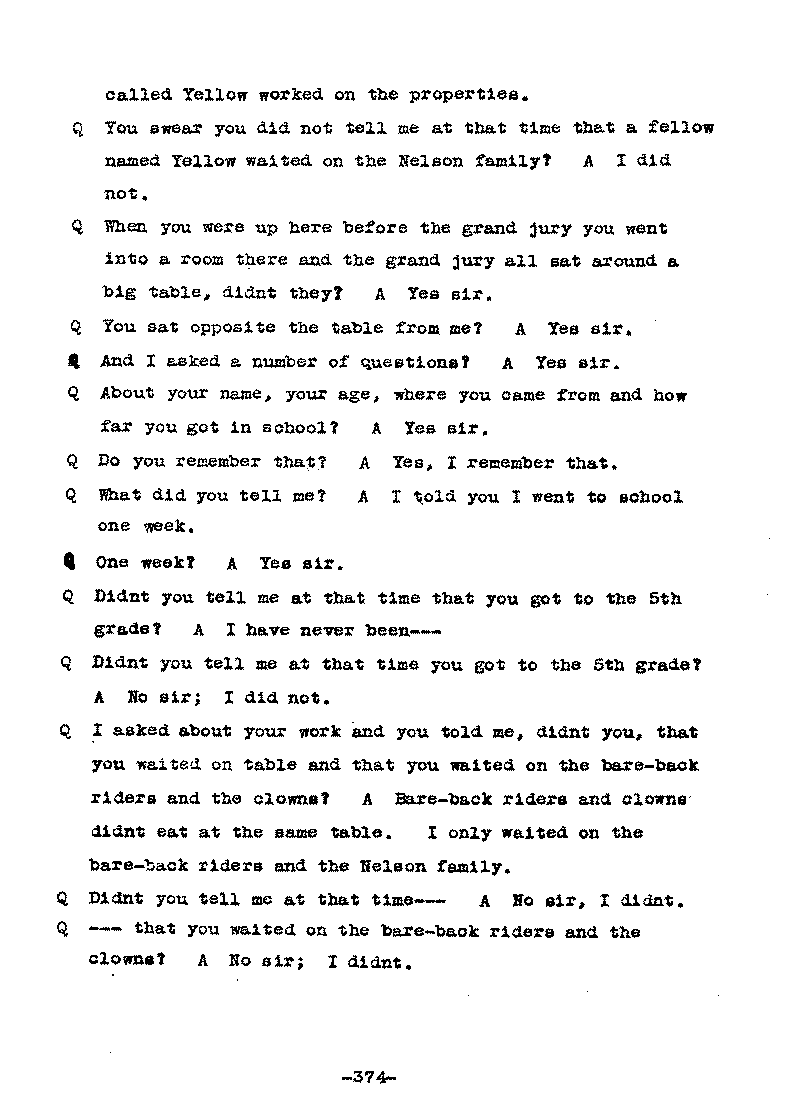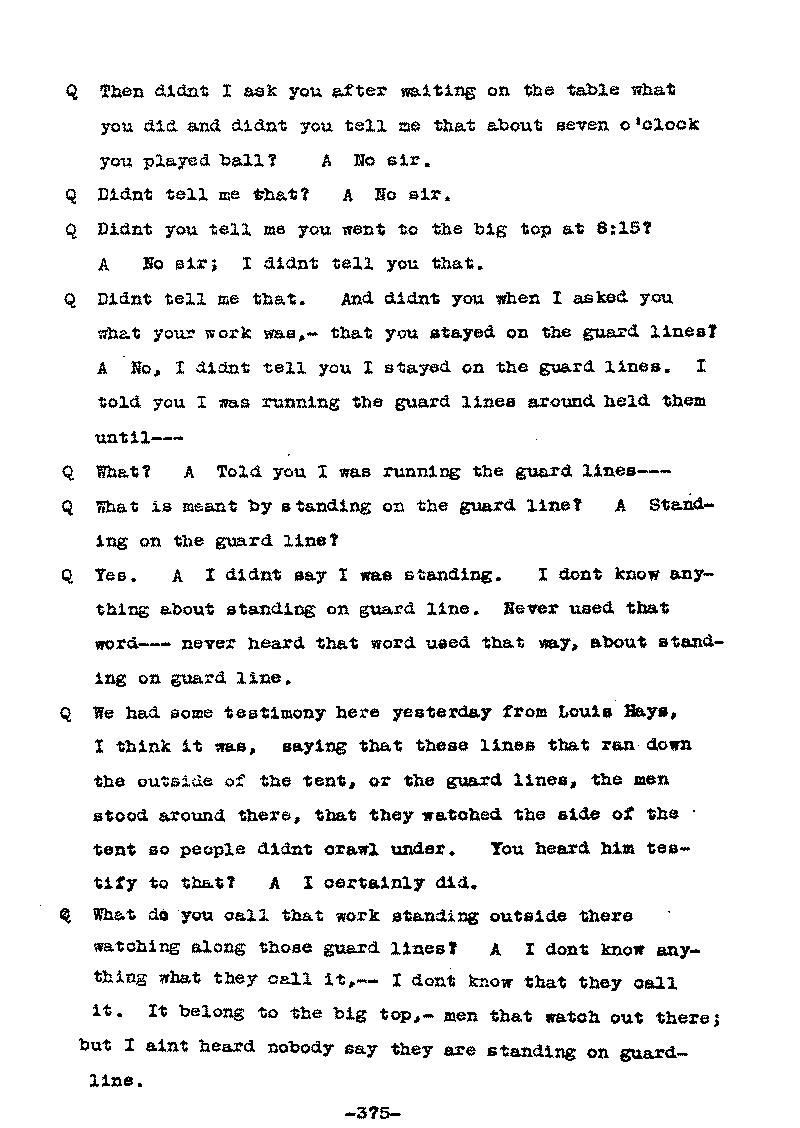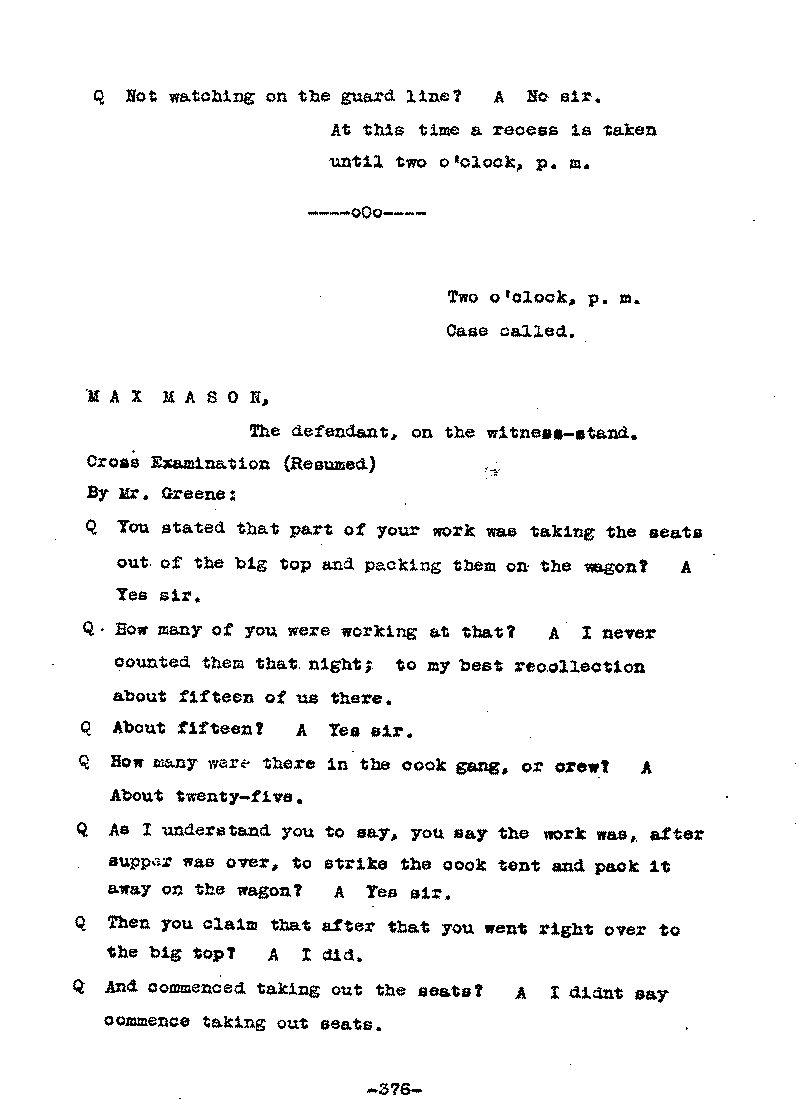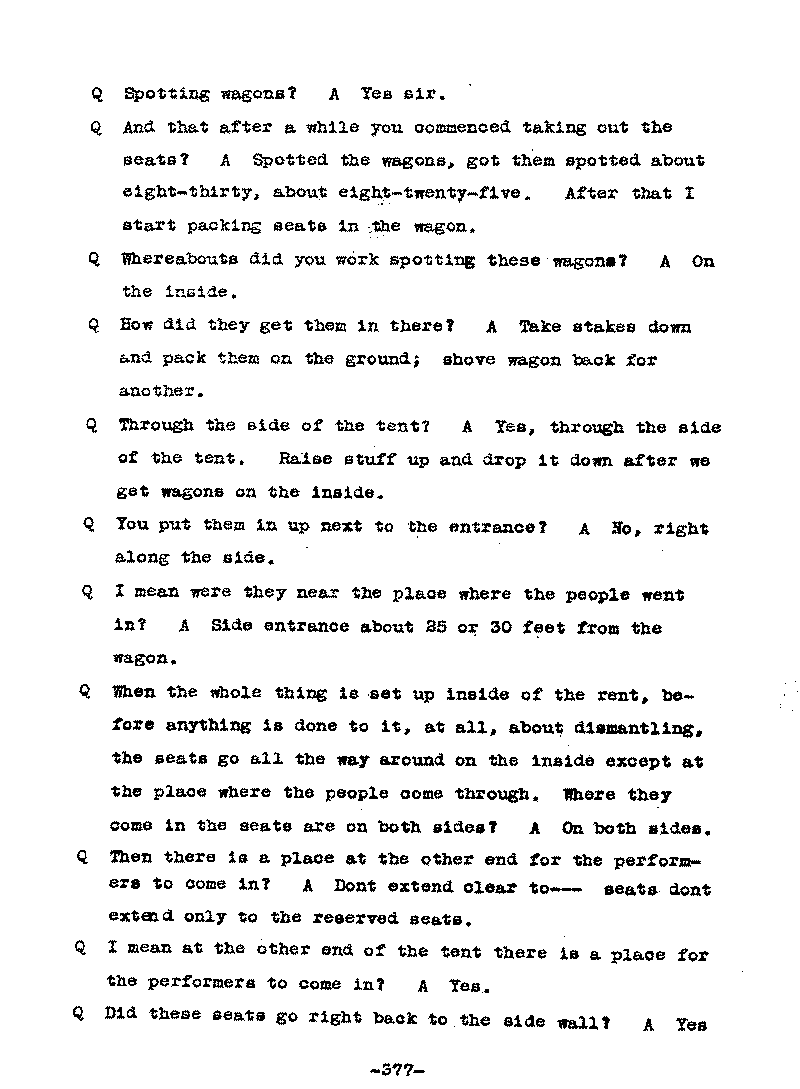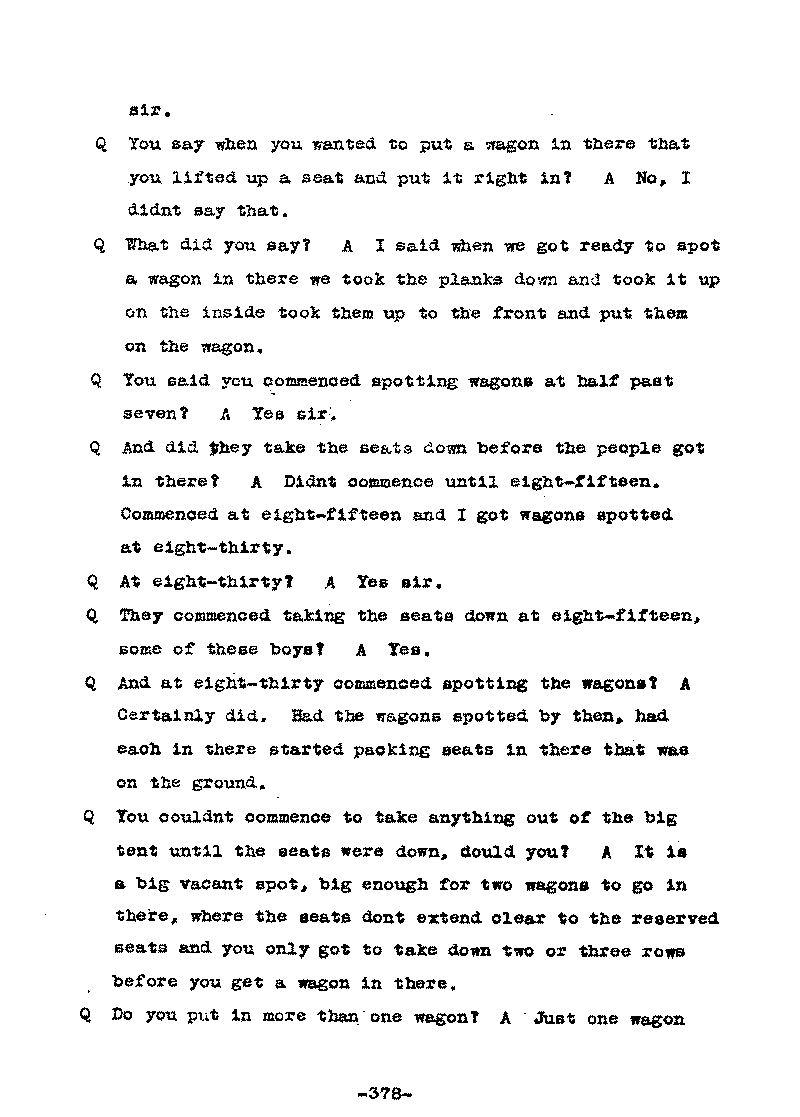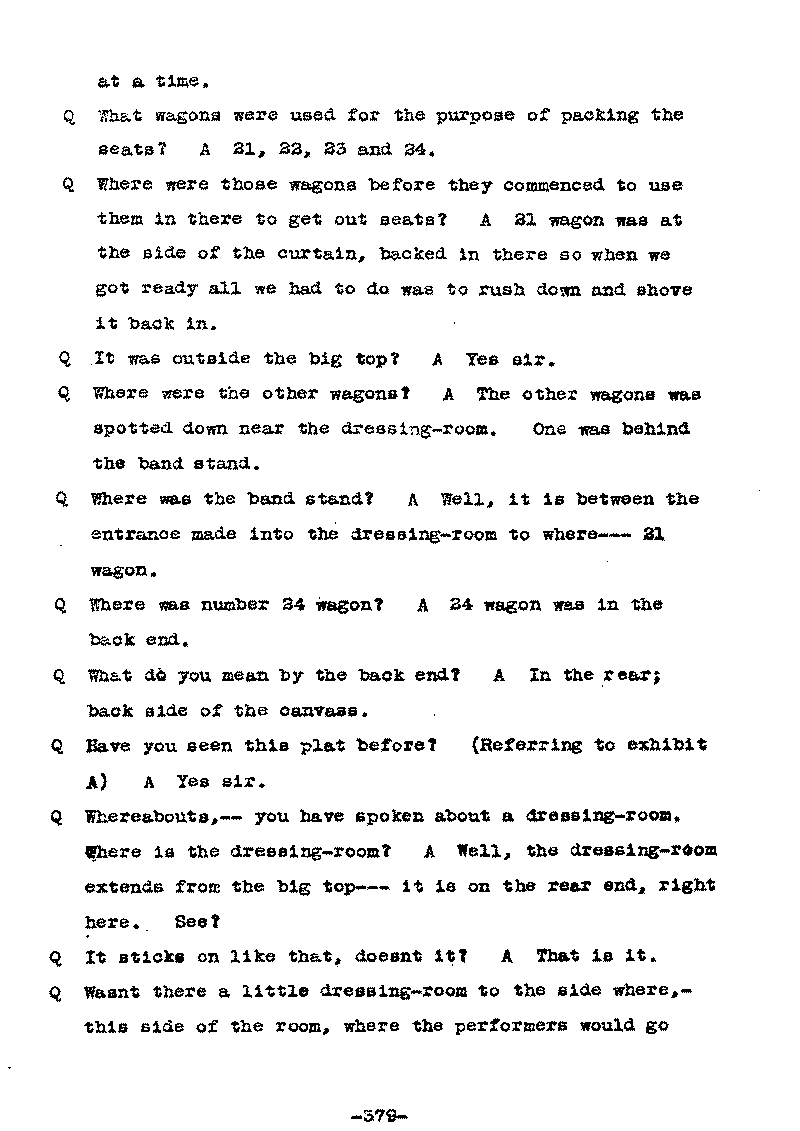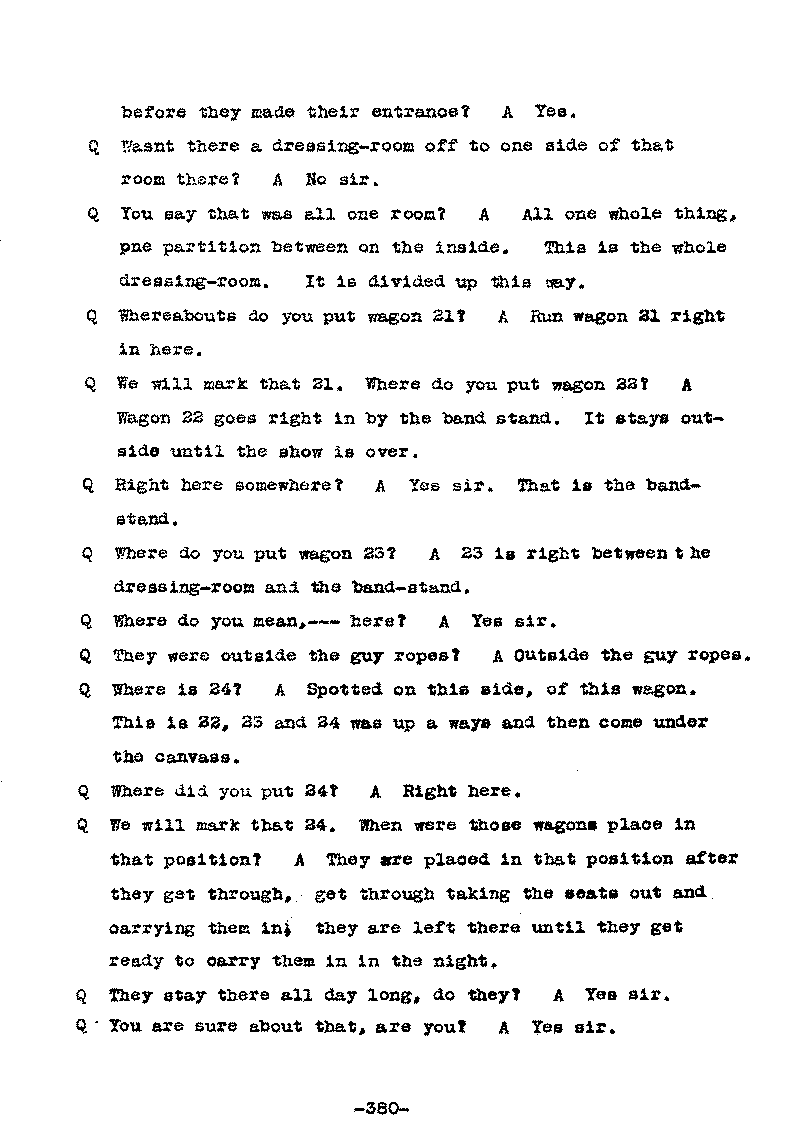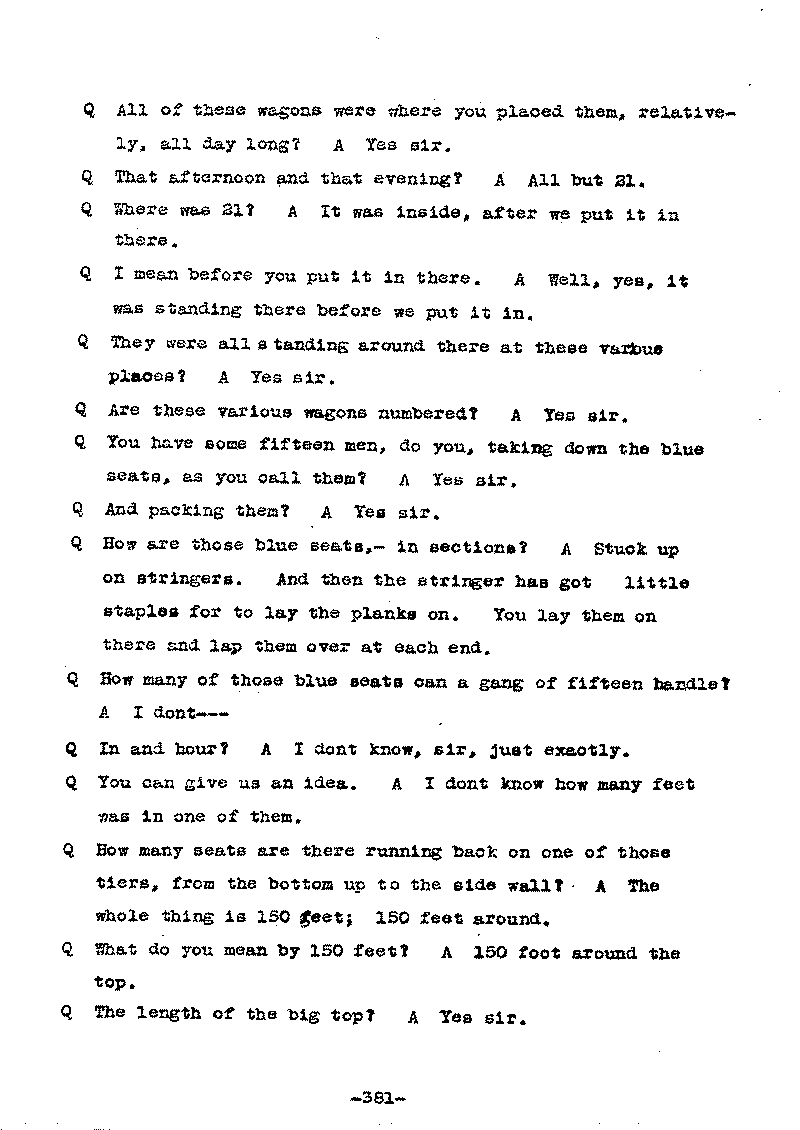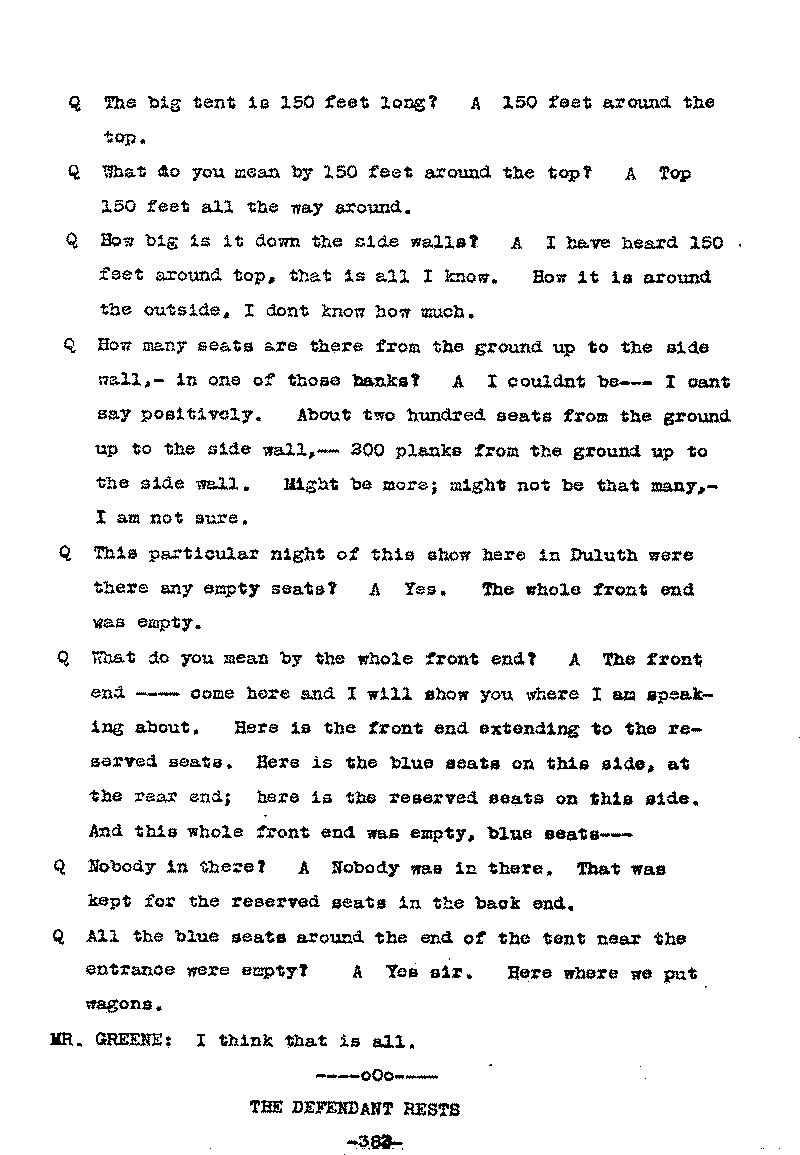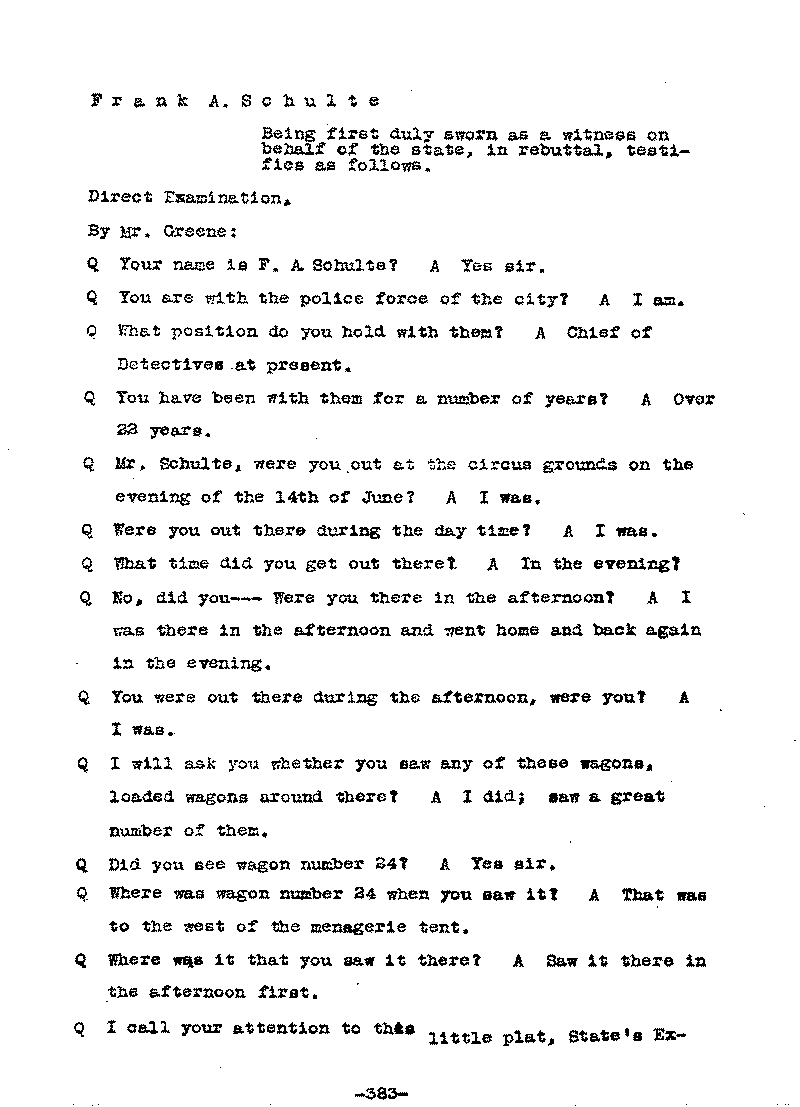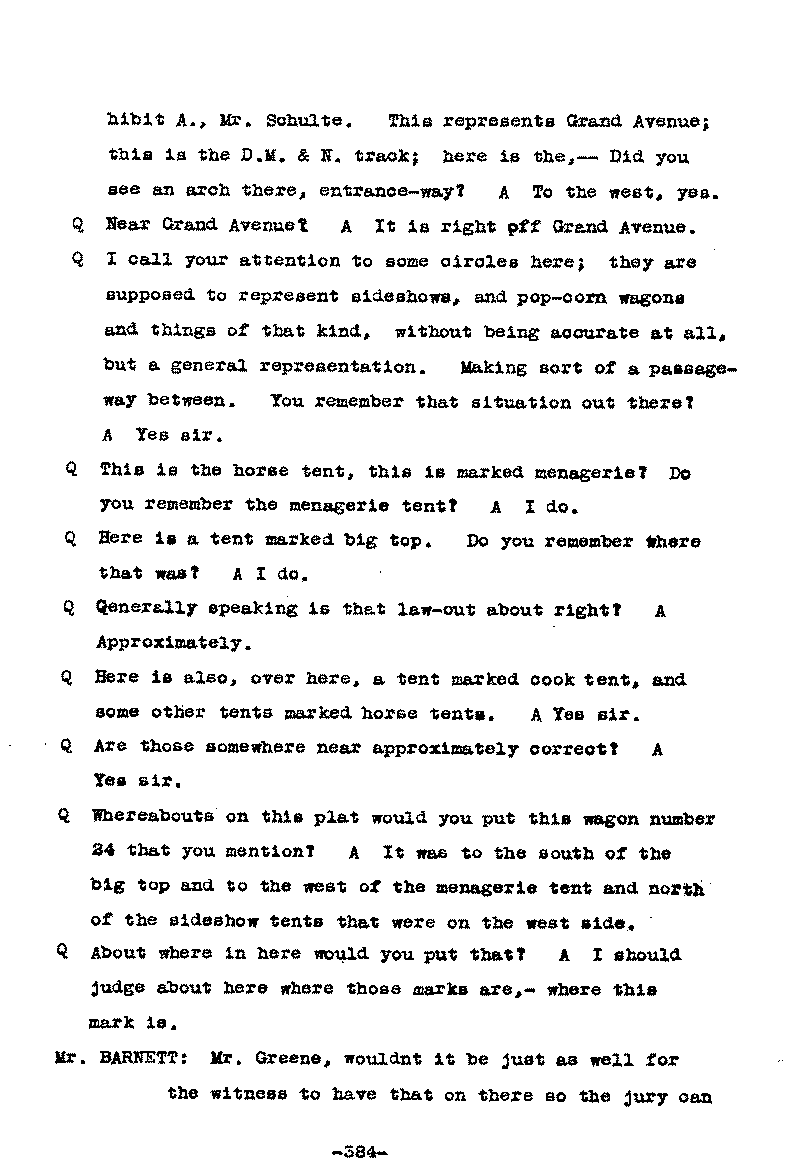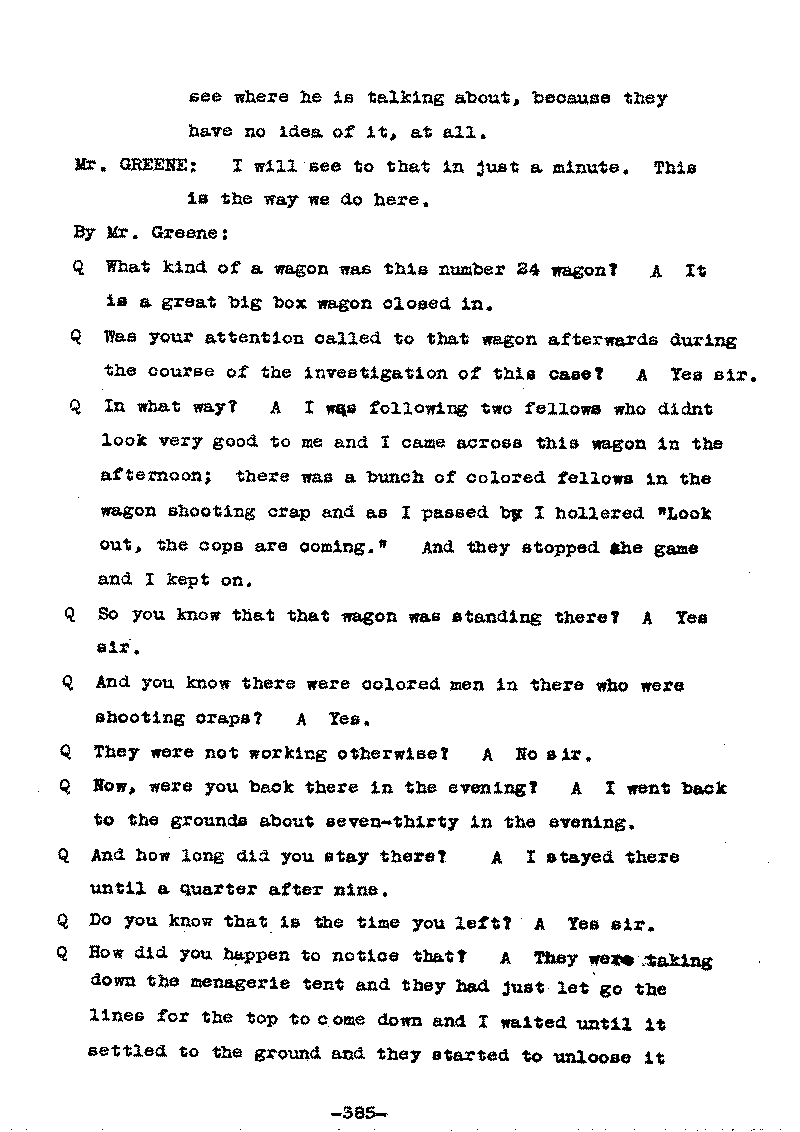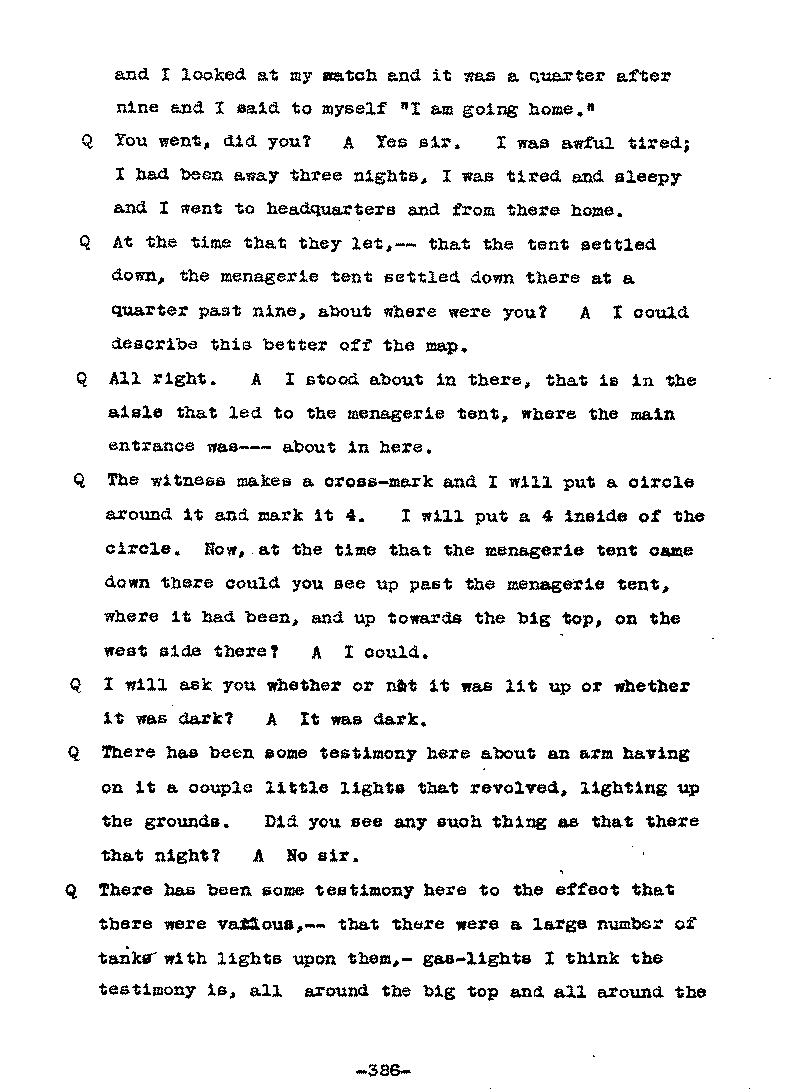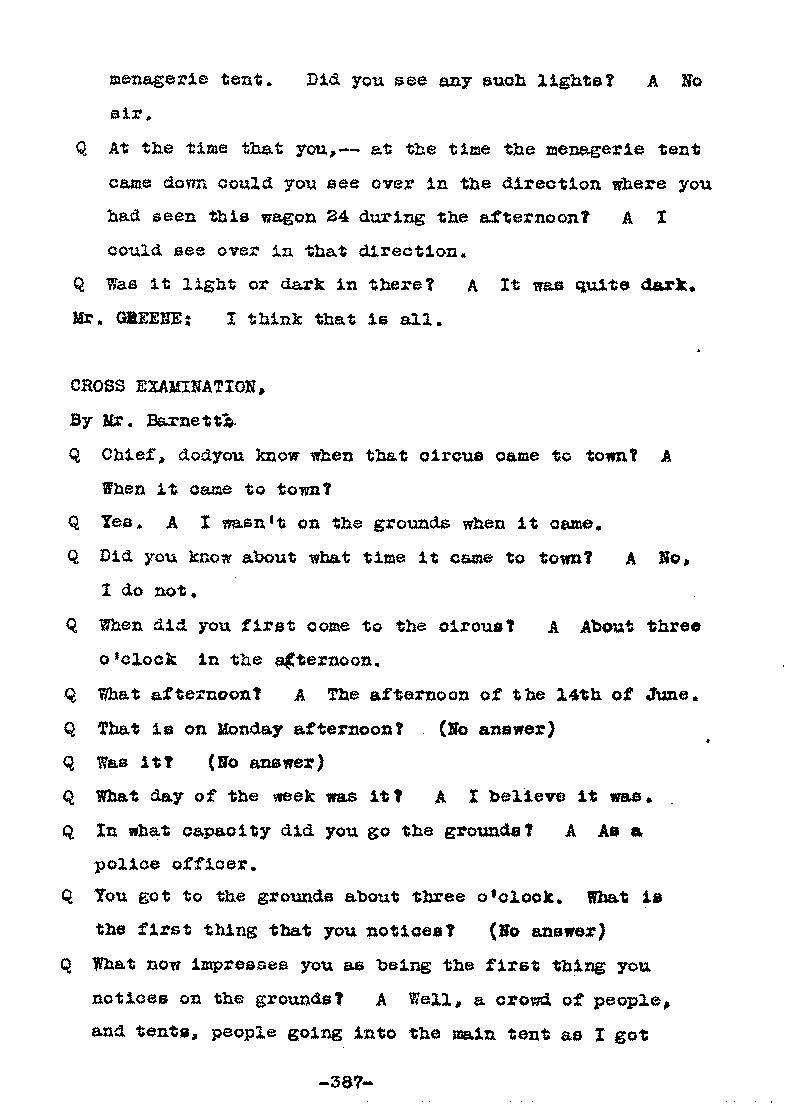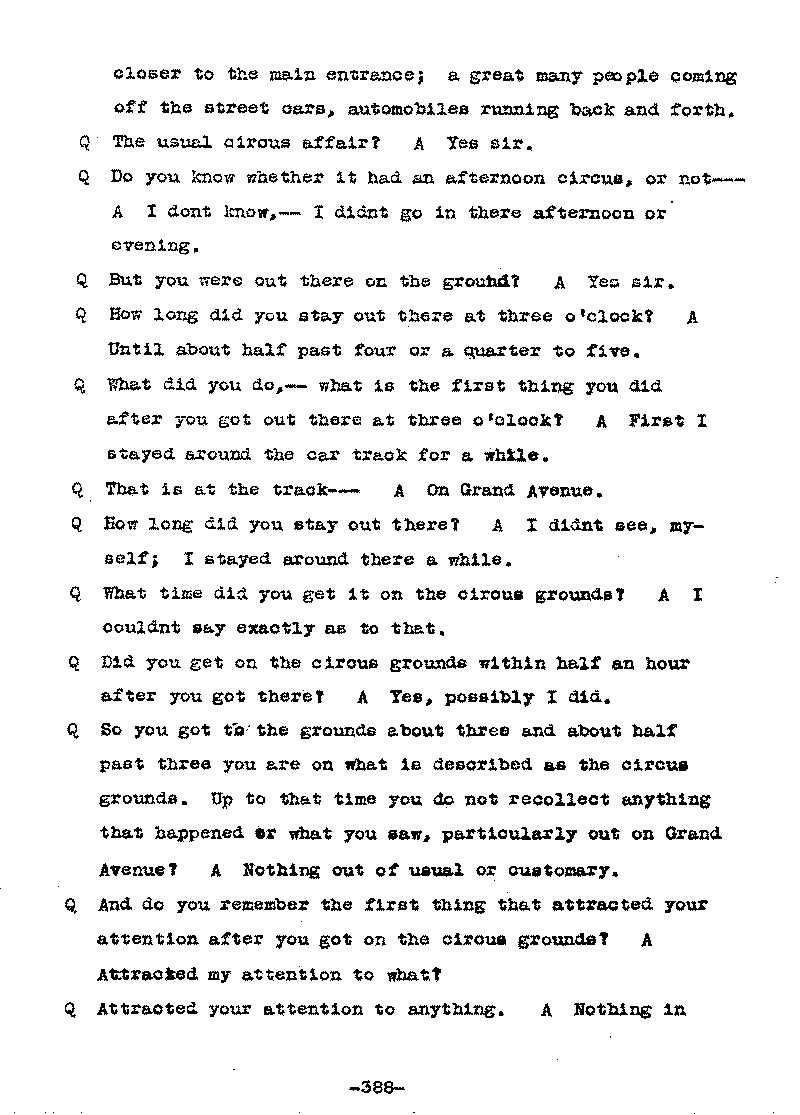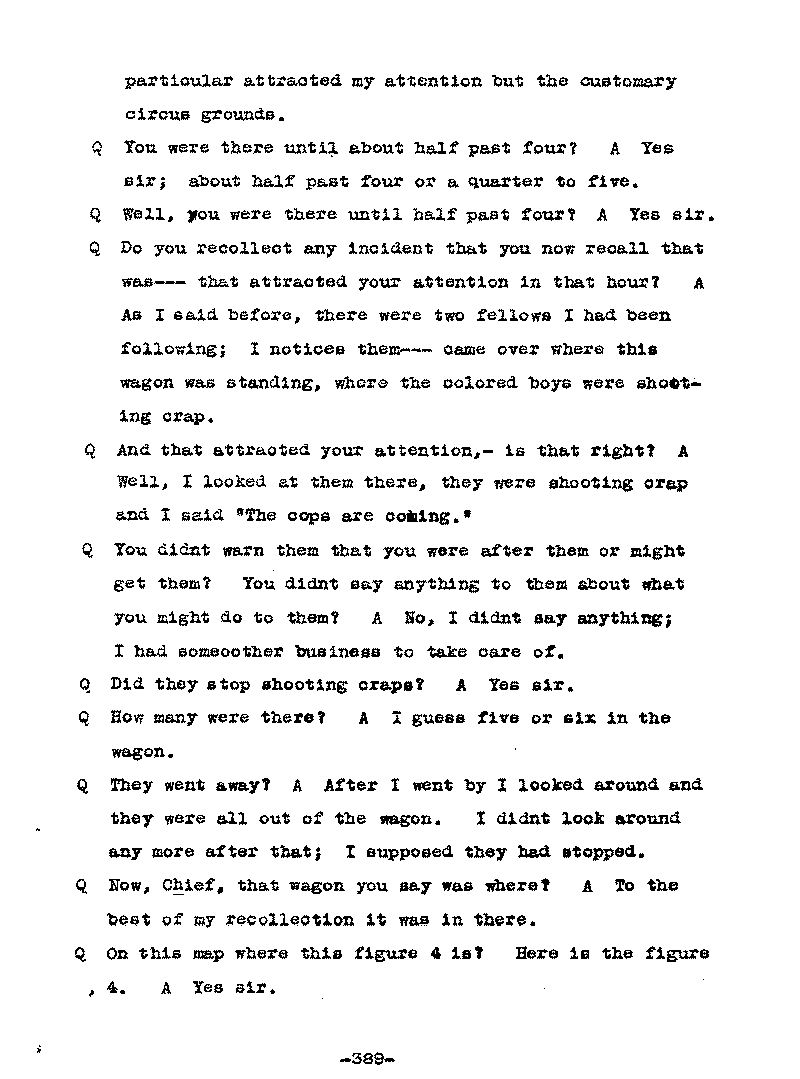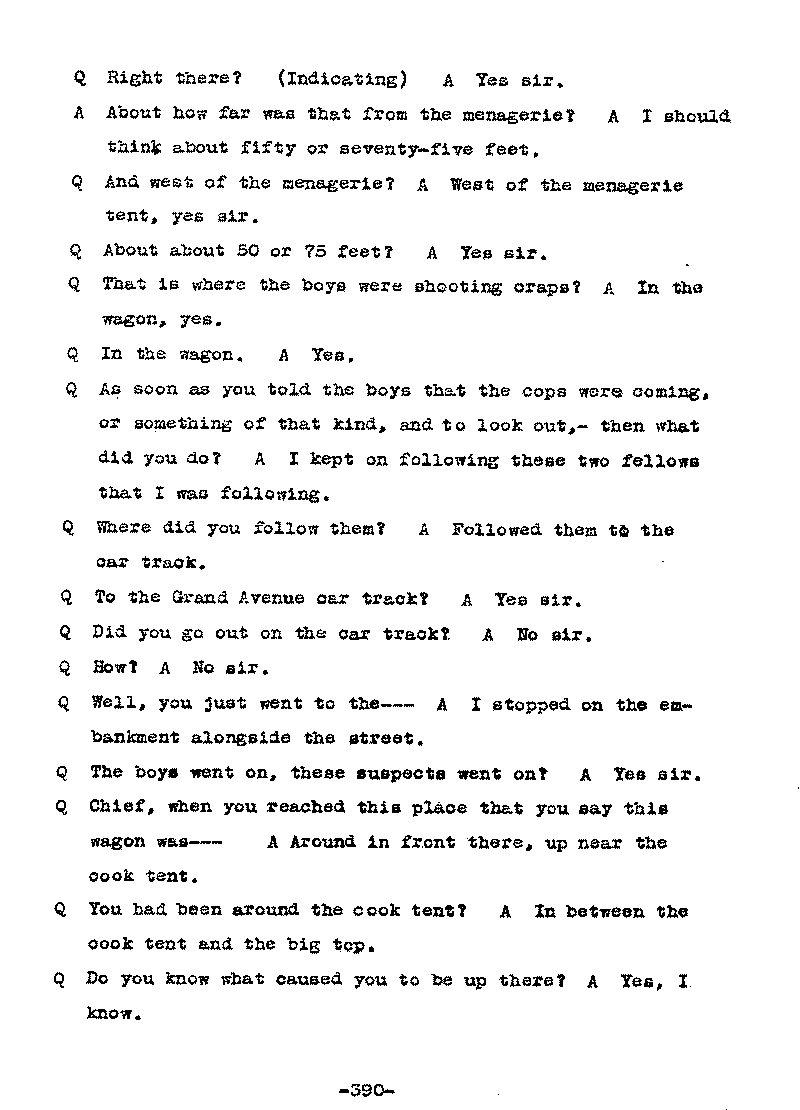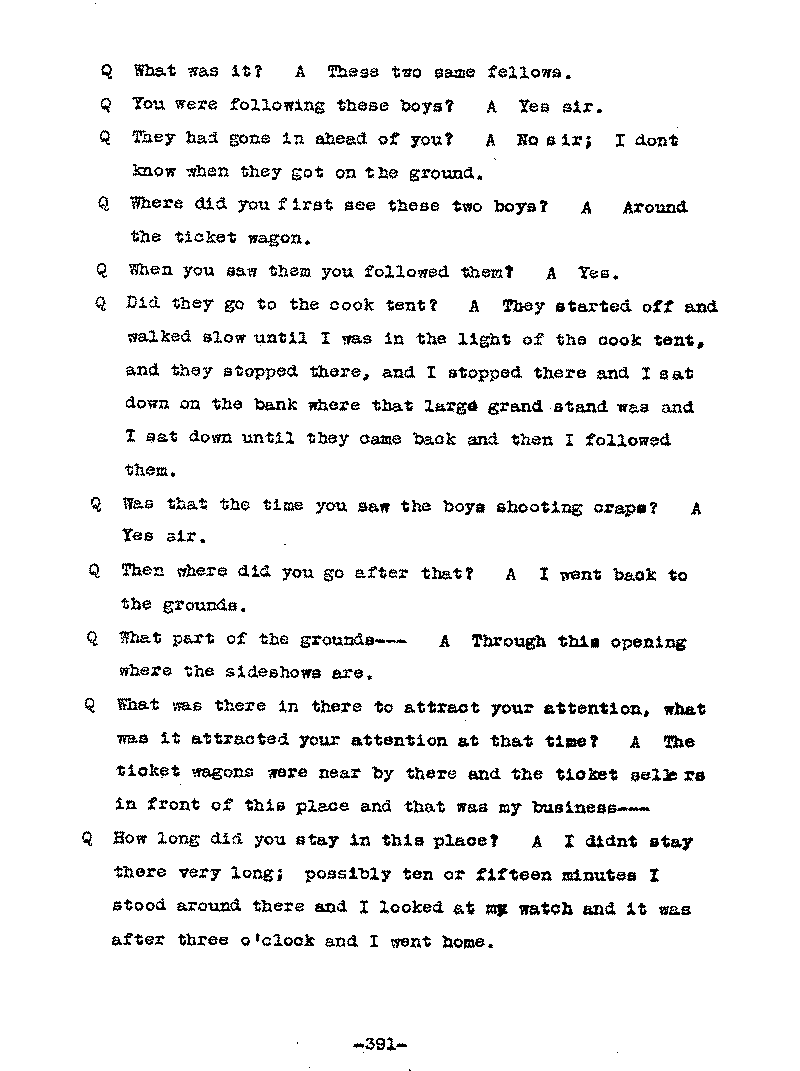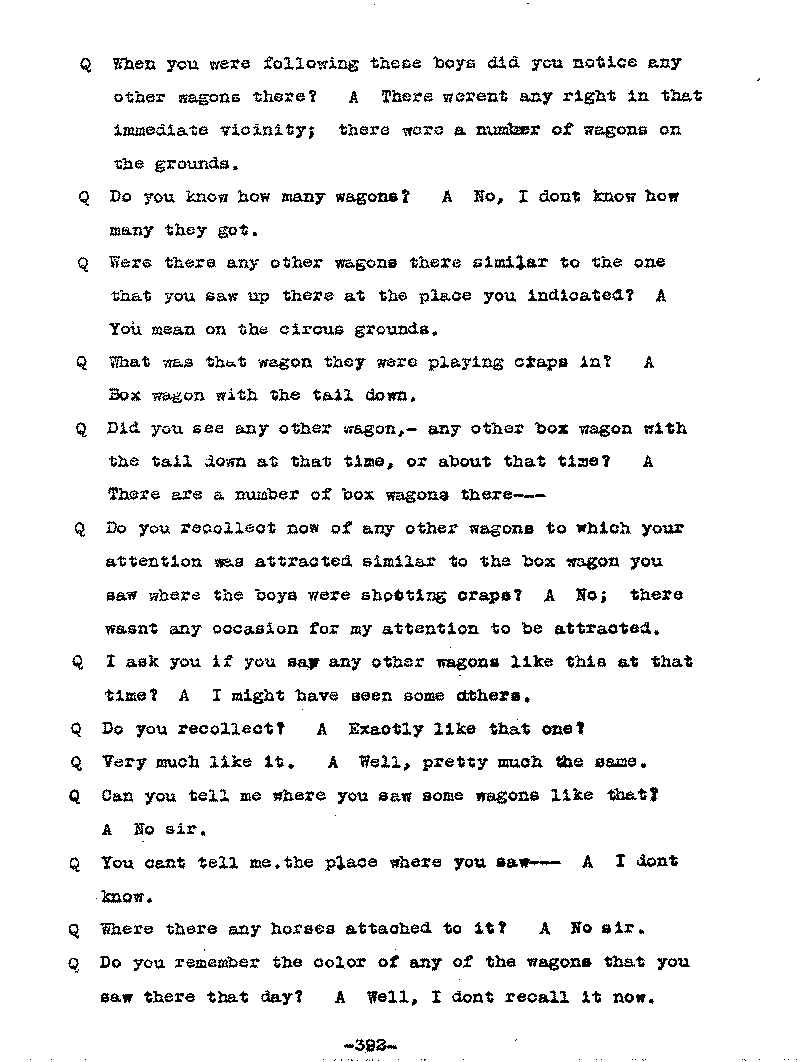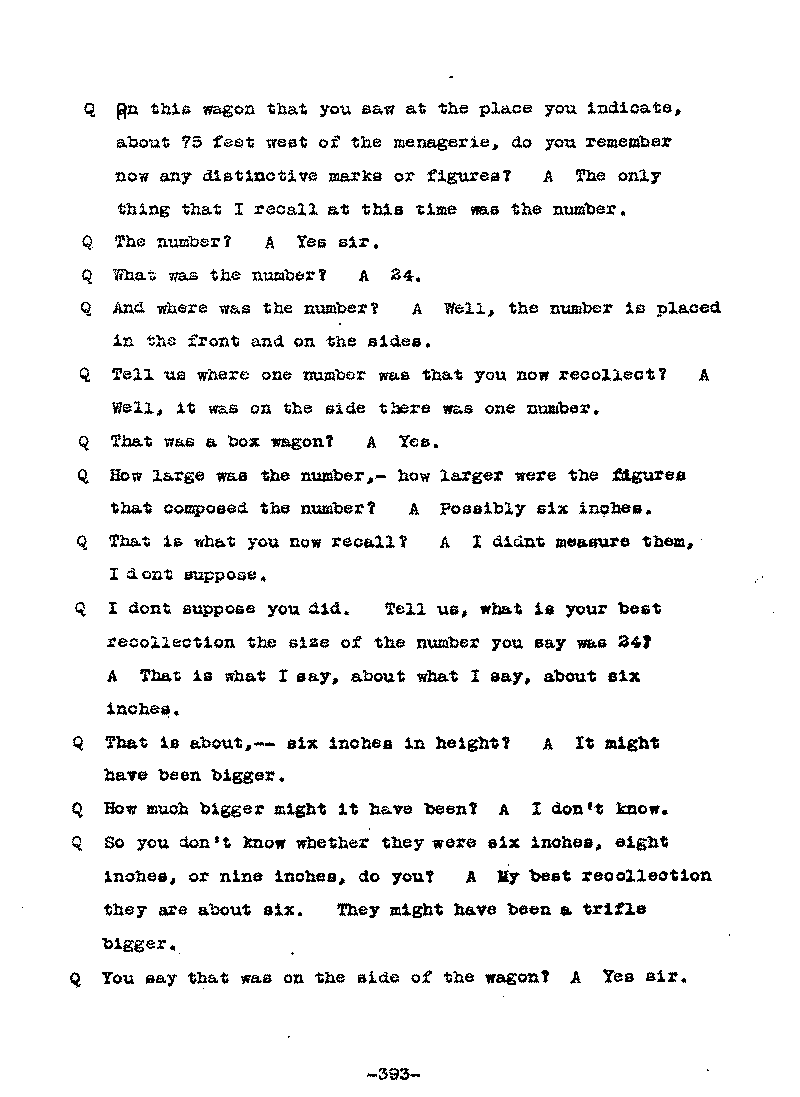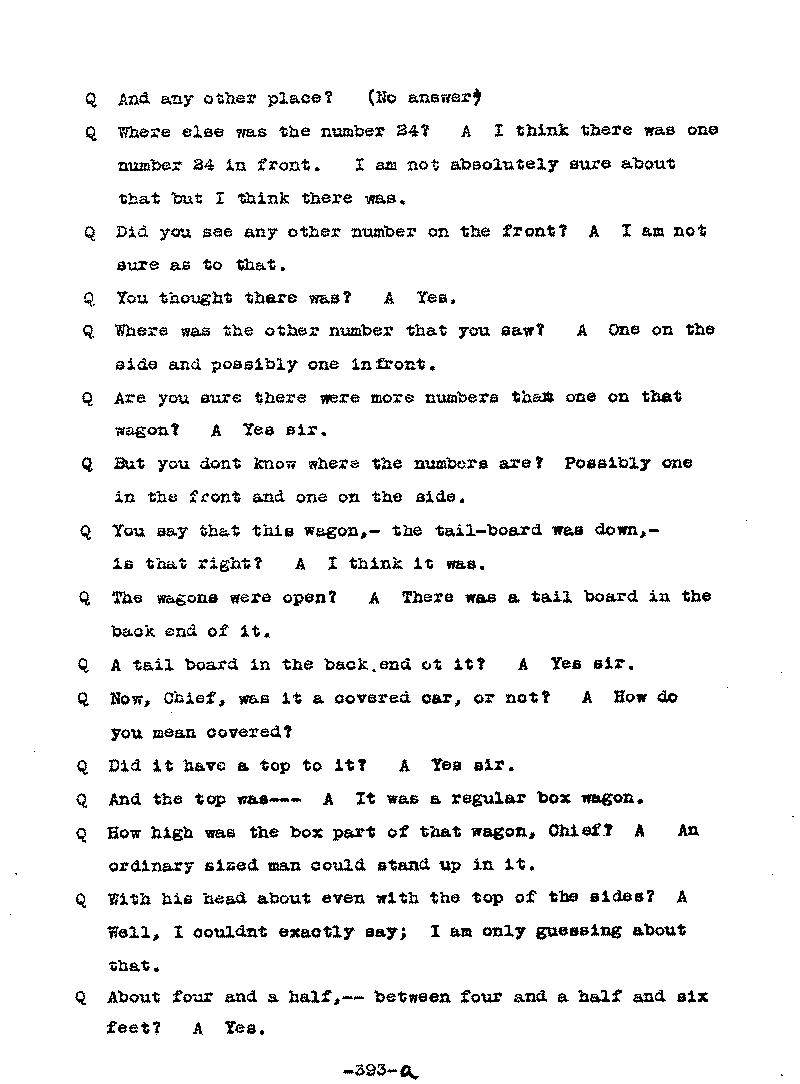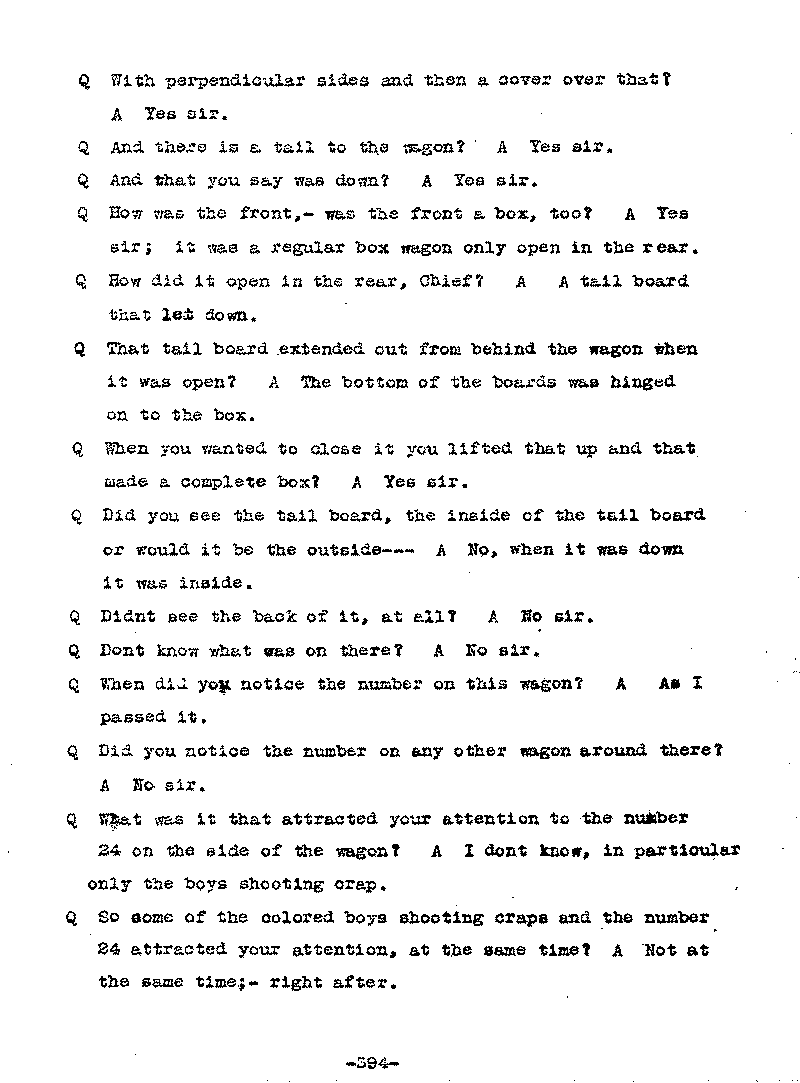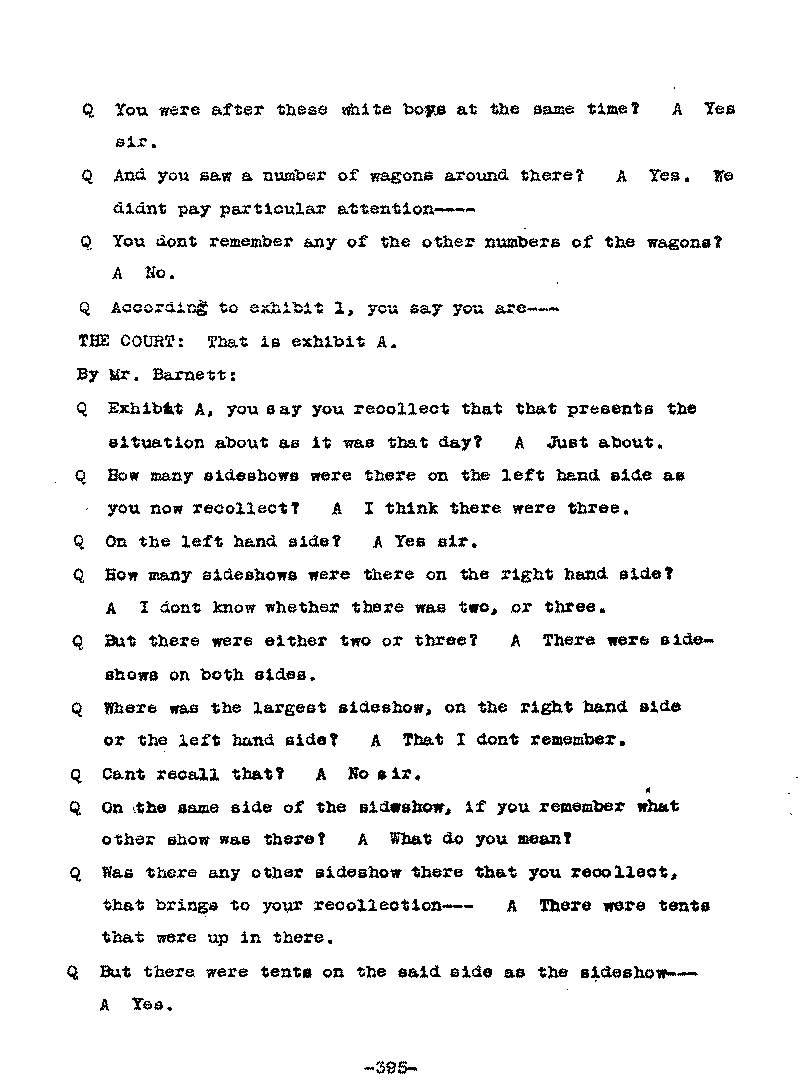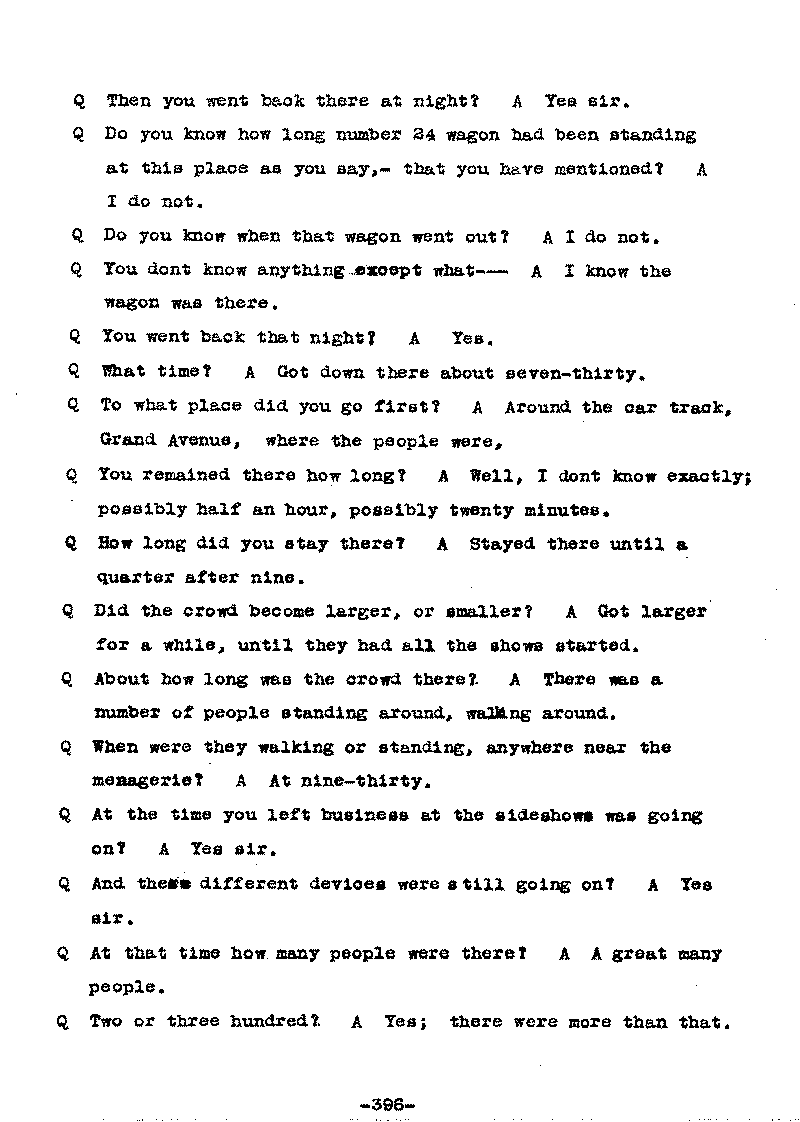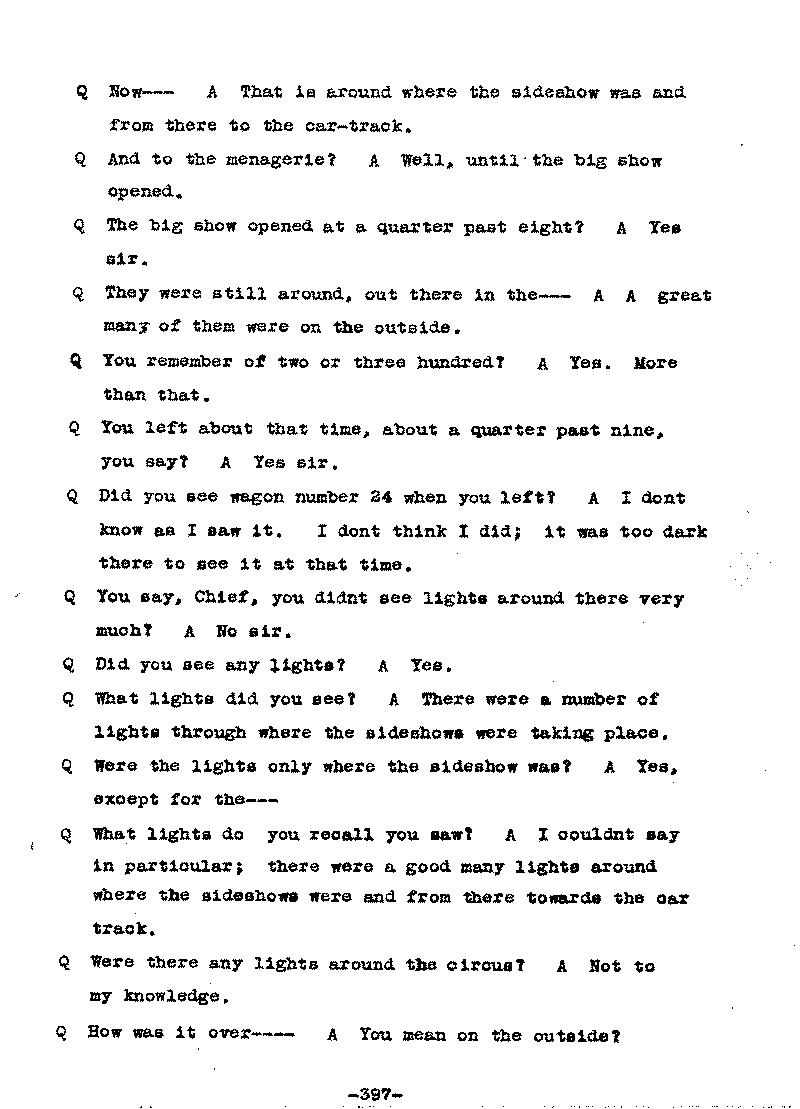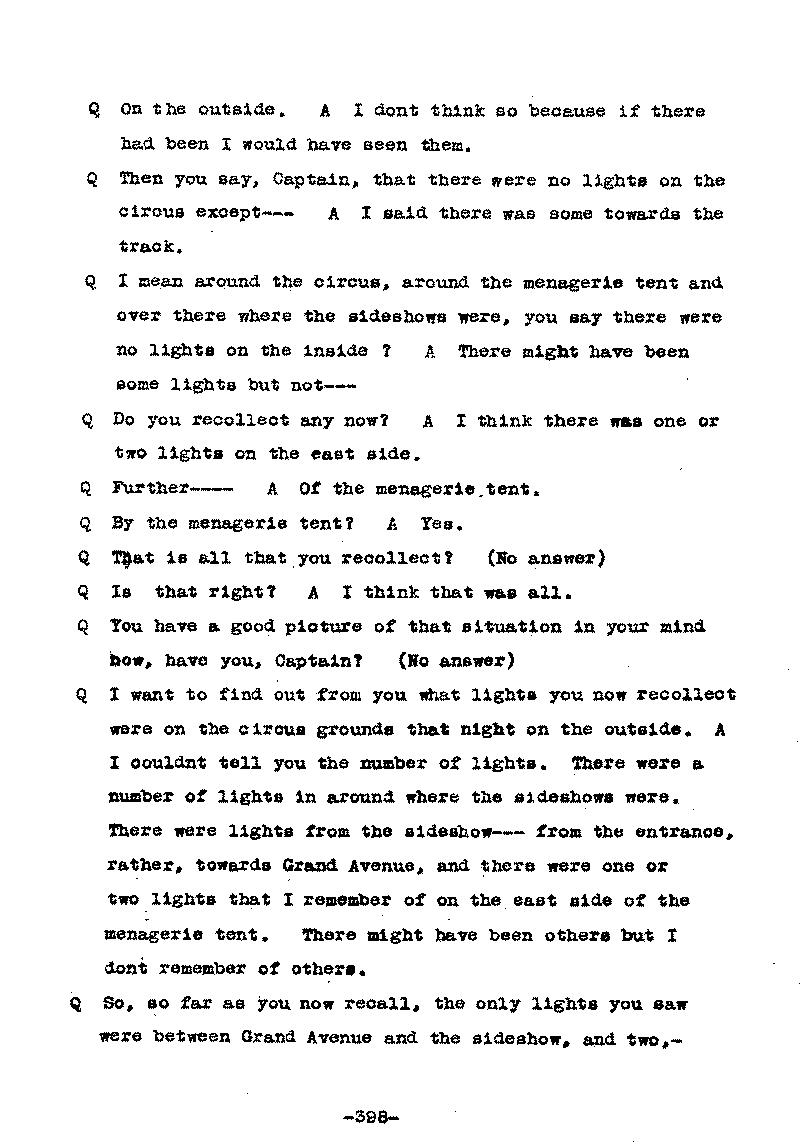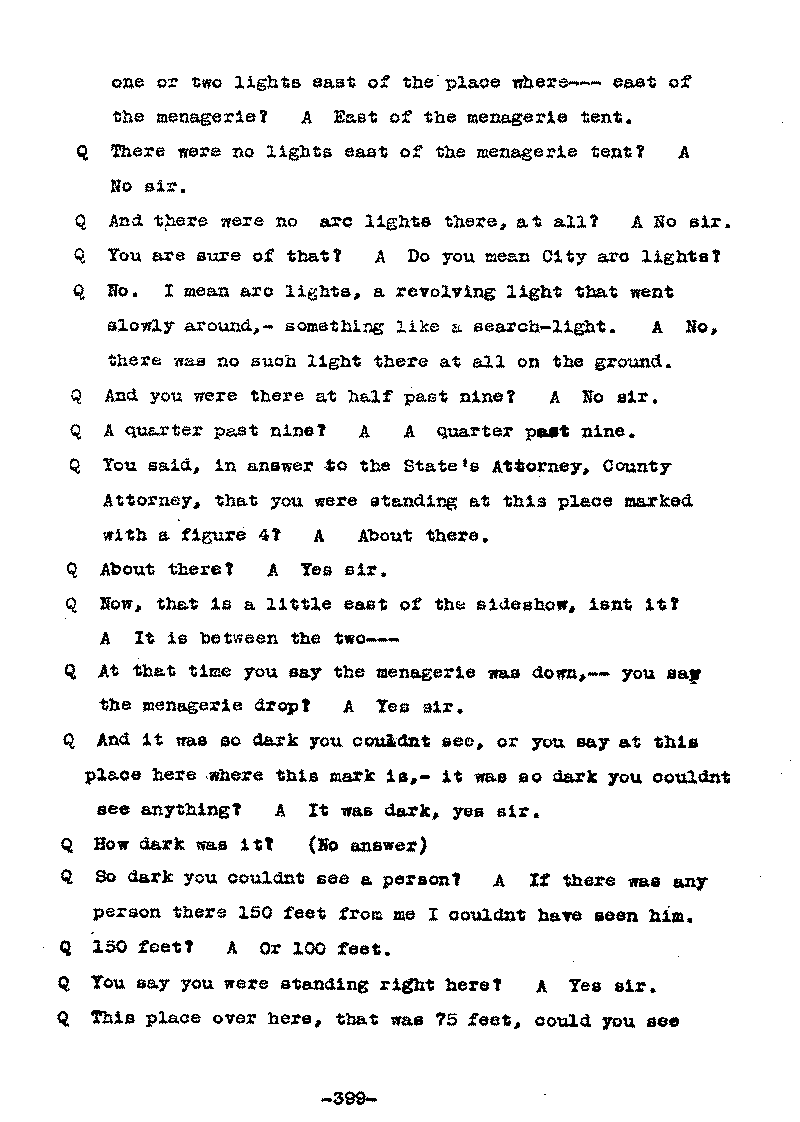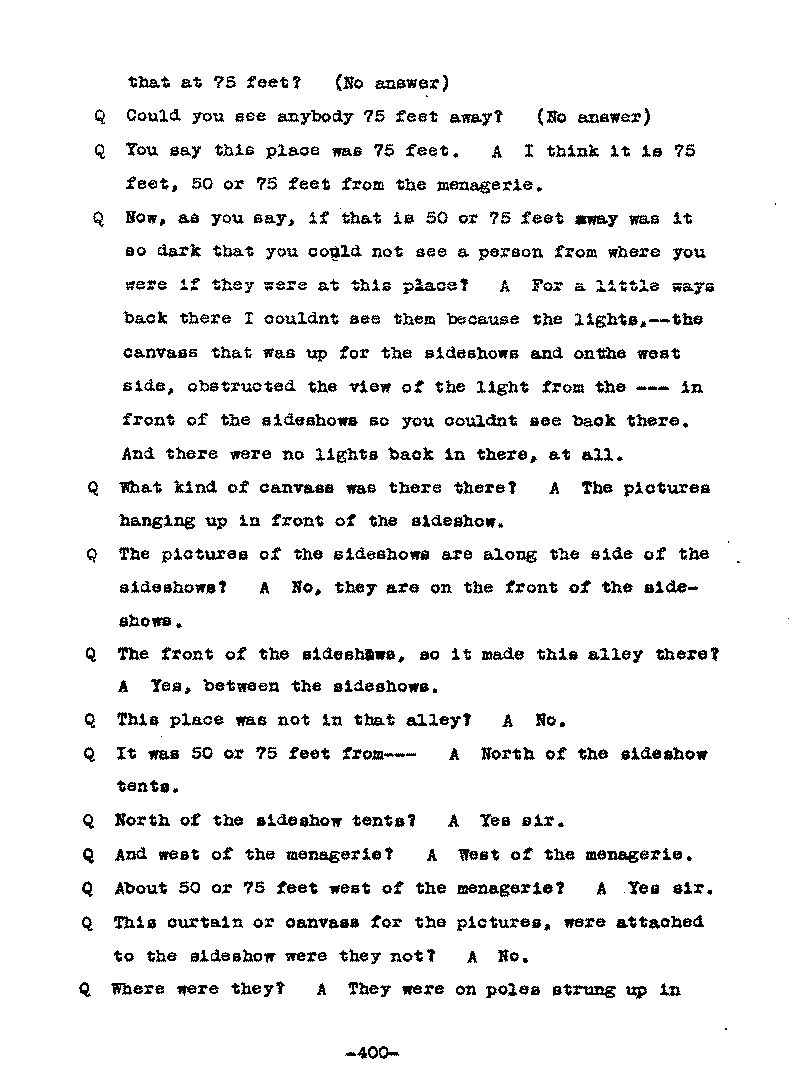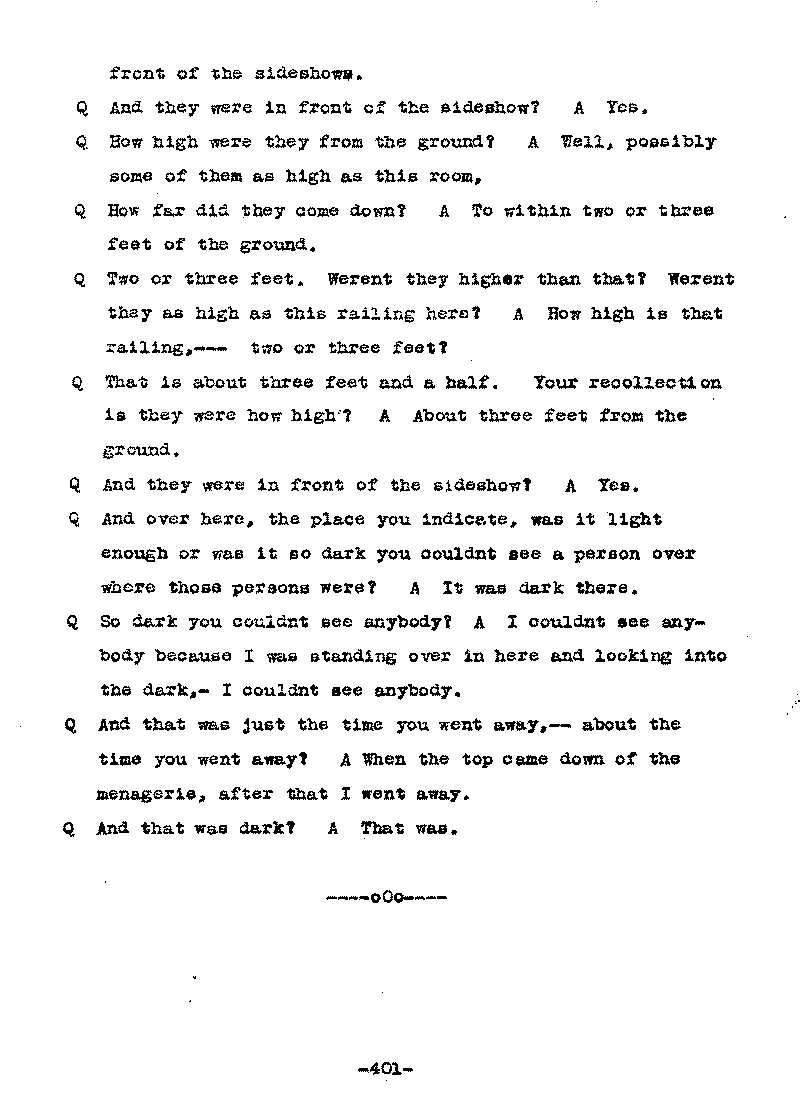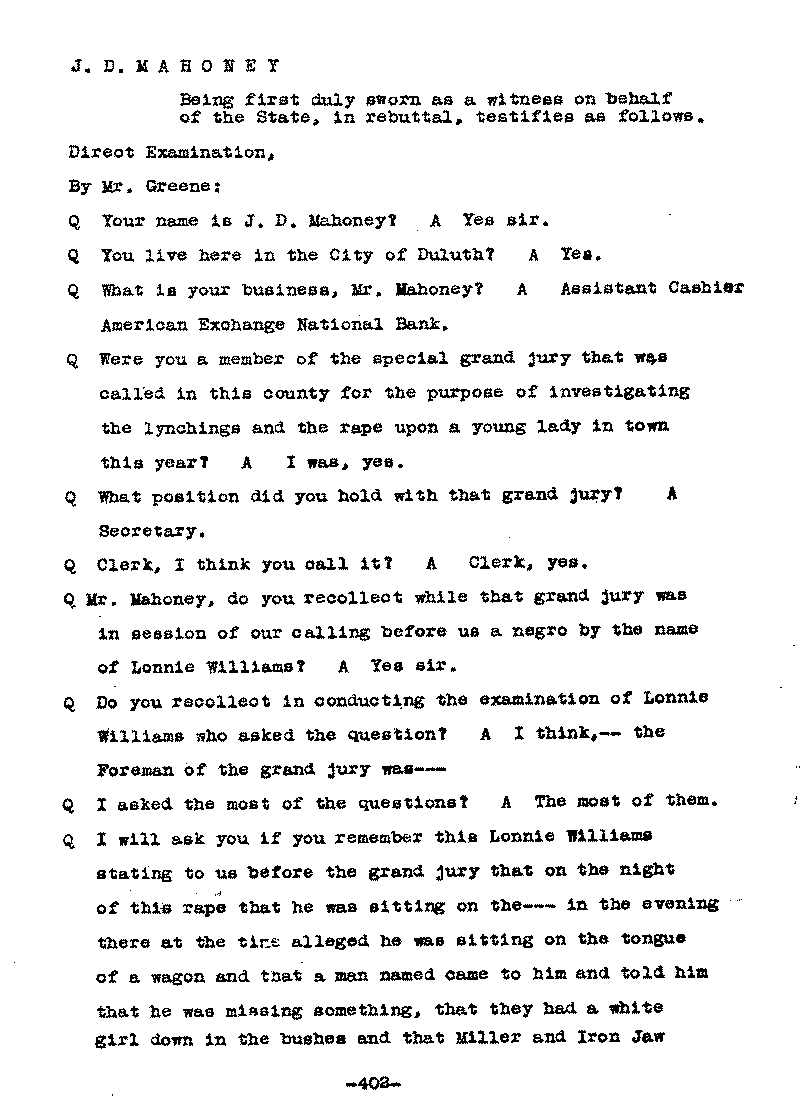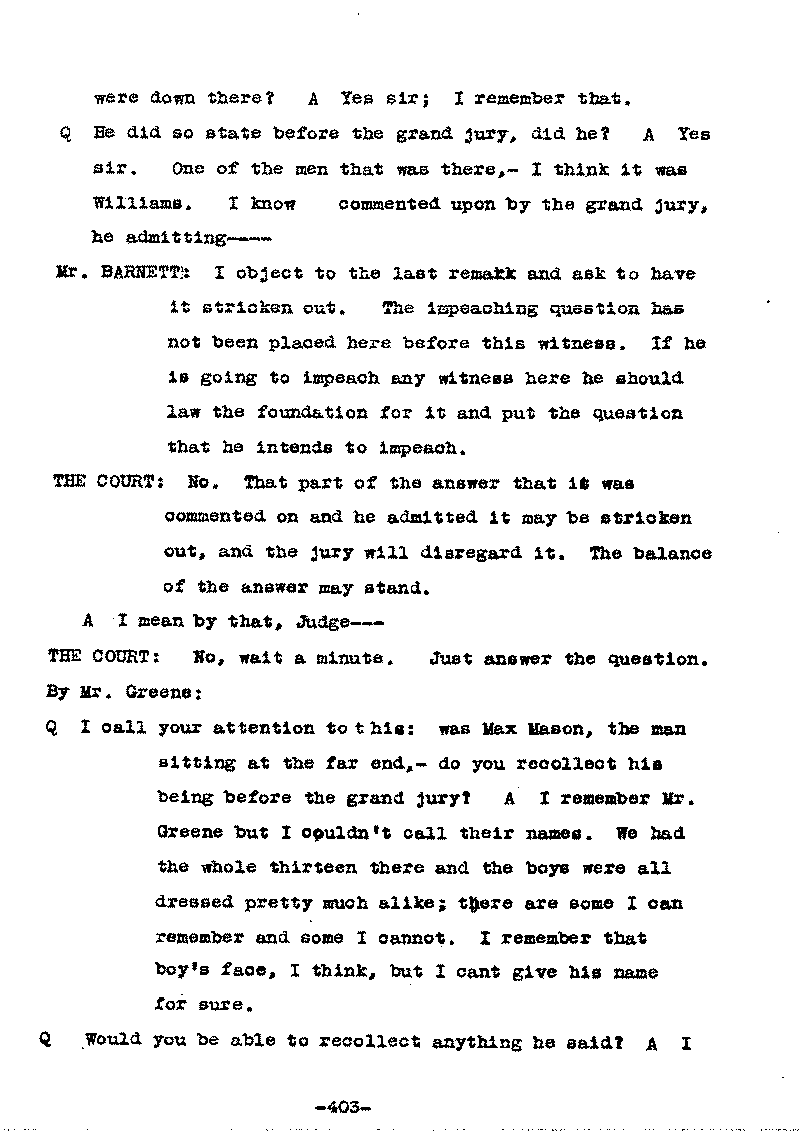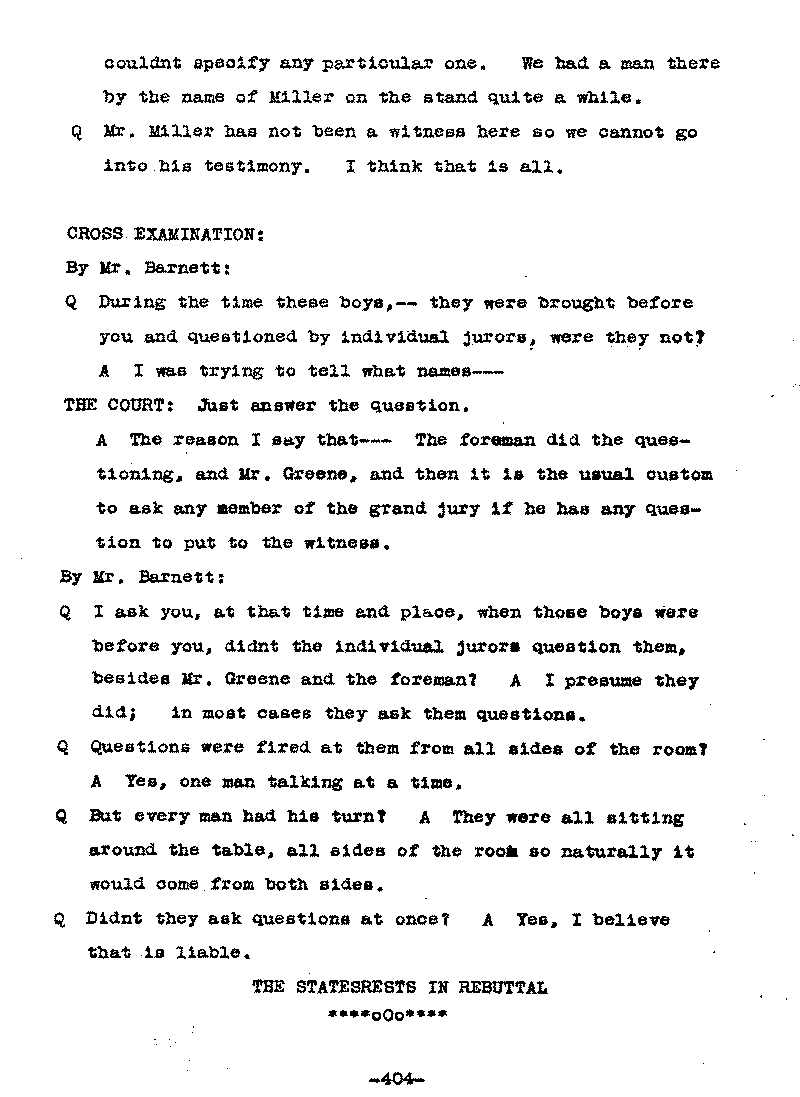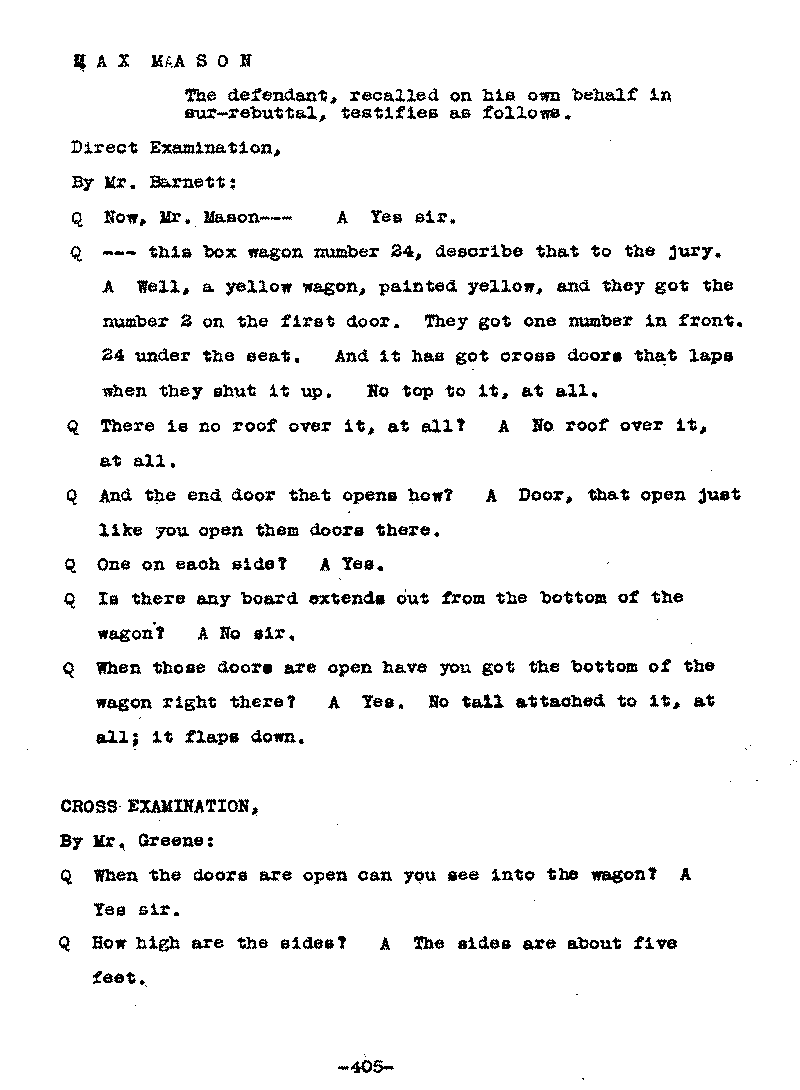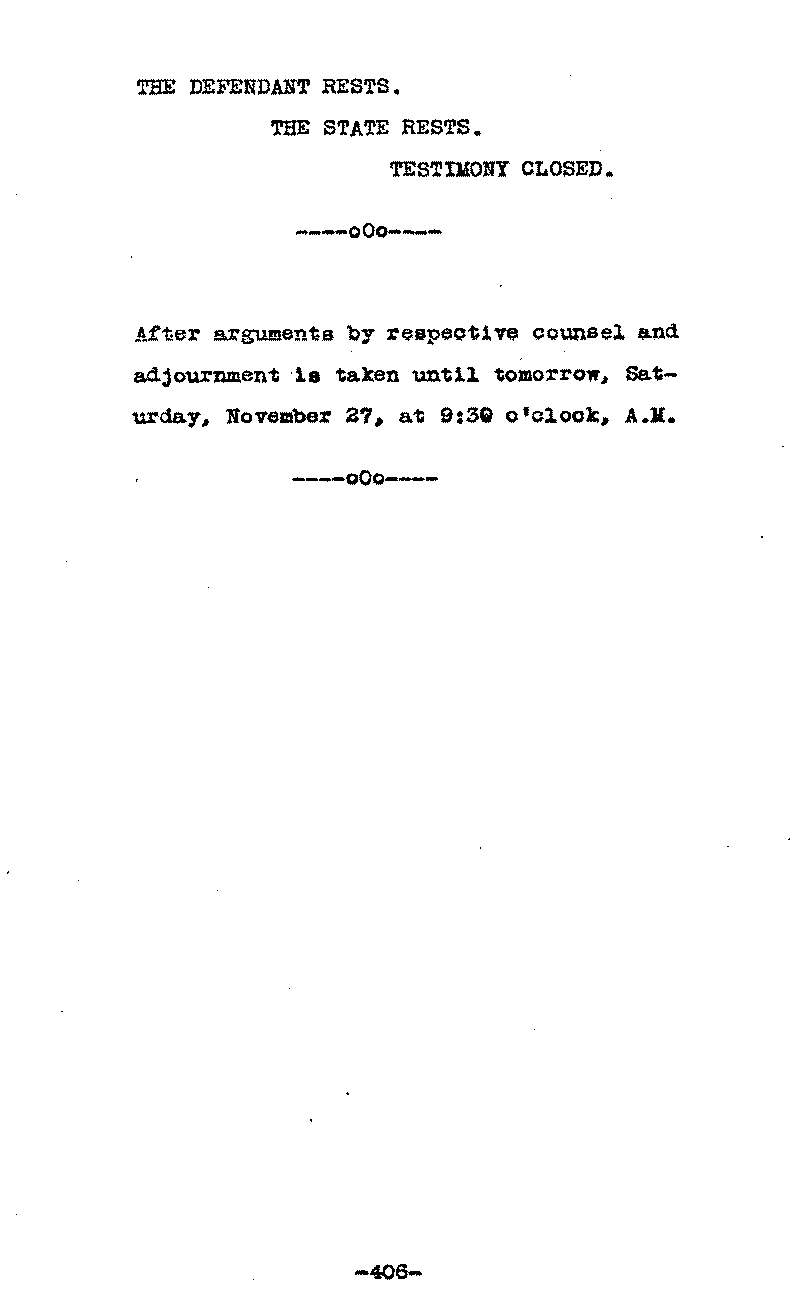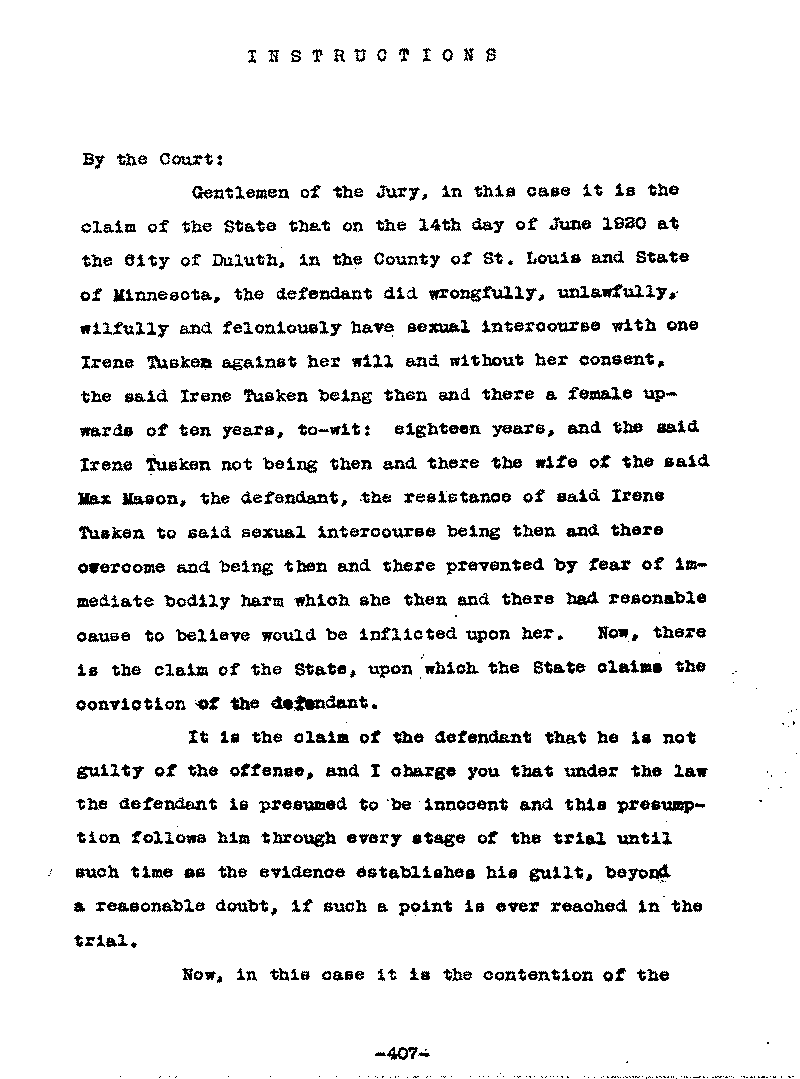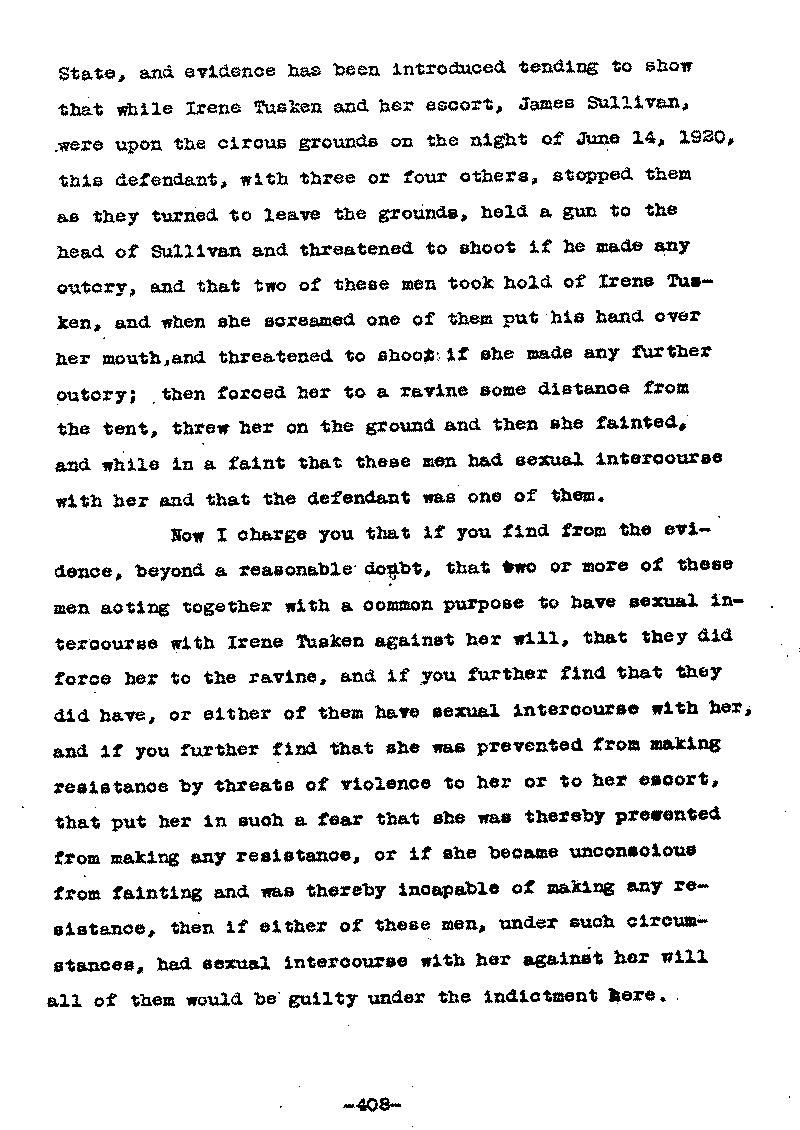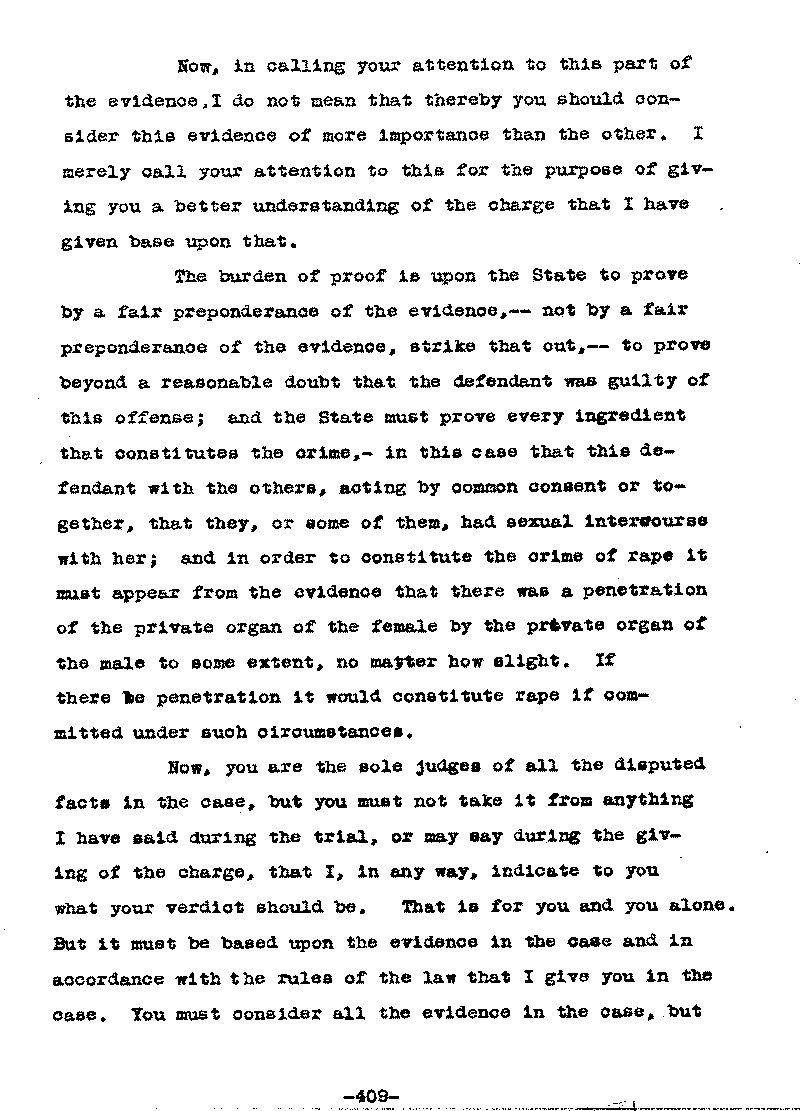Max Mason. No. 6785.
Type of event: Legal Proceedings
Location: Stillwater; Washington County; Minnesota; United States
Document date:
Document type: Gov't Record(s)
Document subtype: Trial Transcript
Documents: Max Mason. No. 6785.
Citation:
Minnesota State Prison (Stillwater, Minn.) [Stillwater State Prison]
Transcripts of Trials of Inmates.
No. 6785: Max Mason.
Image text
JUDGES JUDGES
HON.
J. D. Ensign HON. H. A. Dancer
HON. W. A.
Cant HON. Bert Fesler
HON. Martine Hughes HON.
Edward Freeman
COUNTY OF ST.
LOUIS
OFFICE OF
CLERK
OF DISTRICT COURT
Duluth, Minn., August 30th 192 1.
J. P.
JOHNSON
CLERK
Hon. J. J. Sullivan,
Warden,
Minnesota State Prison,
Stillwater, Minnesota.
Dear
Sir:
In Re. State of Minnesota VS Max Mason.
Referring to my letter of
August 6th handing you Commitment in the above entitled matter, I am
enclosing you here with certified copy of Synopsis of the testimony given at the
trial of this case as ordered by Hon. L. S. Nelson.
Kindly acknowledge
receipt, and oblige.
Yours very truly,
J. P. JOHNSON,
Clerk.
By J. A.
Cummings
Deputy
JAC/J
Encl.
CLERK’S CERTIFICATE
State of Minnesota, } ss. DISTRICT COURT
COUNTY OF
ST. LOUIS } ELEVENTH JUDICIAL DISTRICT
I. J. P. Johnson, Clerk
of the District Court, St. Louis County, and State of Minnesota do hereby
certify that I have compared the attached papers writing with the
original Synopsis of Testimony in the case of State of Minnesota vs. Max
Mason
in the action therein entitled, now remaining of record in my
office, and that the same is a true and correct copy and transcript of said
original Papers and the whole thereof.
WITNESS, My hand and seal of the said Court, at Duluth, this Thirtieth day of August A. D. 19 21
J. P. JOHNSON, Clerk
By J. A. Cummings Deputy.
STATE OF MINNESOTA
COUNTY OF ST. LOUIS
IN DISTRICT COURT
ELEVENTH JUDICIAL DISTRICT
_________________________________
Plaintiff.
AGAINST
Defendant.
_________________________________
Clerk’s
Certificate
_________________________________
I N D E X
State’s Witnesses:
Coventry, W. A. Direct Examination ---------------223
“ “ “ Cross “ ---------------225
Fiskett, A. G. Direct Examination ---------------194
“ “ “ Cross “ ---------------199
Graham, David Direct Examination ---------------219
“ “ Cross “ ---------------220
Murphy, John Direct Examination ---------------182
“ “ Cross “ ---------------188
Mahoney, J. D. Direct Examination ---------------402
“ “ “ Cross “ ---------------404
Nicholson, M.A. Direct Examination ---------------226
“ “ “ Cross “ ---------------234
Sullivan, Jas. Direct Examination --------------- 75
“ “ Cross “ --------------- 97
Sullivan, P. B. Direct Examination ---------------163
“ “ “ No Cross “
Schulte, F.A. Direct Examination ---------------383
“ “ “ Cross “ ---------------387
Tusken, Irene Direct Examination --------------- 17
“ “ Cross “ --------------- 41
“ “ Recalled “ ---------------239
Tusken, Amanda Direct Examination ---------------170
“ “ Cross “ ---------------174
Tusken, W. E. Direct Examination, --------------175
No Cross-examination.
_________
Defendant’s Witnesses:
Graves, Nate Direct Examination --------------290
“ “ Cross “ --------------299
Graham, David Direct Examination --------------327
“ “ Cross “ --------------330
Hayes, Louis Direct Examination --------------242
“ “ Cross “ --------------274
MASON, Max Direct Examination --------------342
“ “ Cross “ --------------369
“ “ Direct “ (Rebuttal-sur) 405
“ “ Cross “ “ 405
Spicer, Frank Direct Examination --------------332
“ “ Cross “ --------------340
Williams, Lonnie Direct Examination --------------311
“ “ Cross “ --------------318
State Rests -----------------------------------------242
Defendant Rests -----------------------------------------406
State Rests in Rebuttal ---------------------------------------
STATE OF MINNESOTA IN DISTRICT COURT
County of St. Louis 11th Judicial District
________________________________________
STATE OF MINNESOTA .......... Plaintiff
vs.
M A X M A S O N ................... Defendant
________________________________________
The above entitled cause came regularly on for trial
at the November, 1920, term of the District Court of the
Eleventh Judicial District of the State of Minnesota, held
at the Court House in the City of Duluth, within and for
the County of St. Louis, and state aforesaid, on Monday,
November 22, before,-
HON. L. S. N E L S O N, Judge, and a jury.
A p p e a r a n c e s :
For the State, Warren E.Greene, County Attorney.
For the Defendant, F. L. Barnett, R.C.McCollough
and Chas. W. Scrutchin,
The case is called for trial and a jury
impaneled and sworn to try the case.
-1-
THE COURT: You, gentlemen, since you have been sworn to
try this case, should not listen to or overhear
any conversation about the matter, nor should
you discuss it among yourselves until it is
finally submitted to you. I will now excuse
you until two o’clock this afternoon.
----oOo----
Two o’clock, p. m.
Case Called.
Mr. Greene opens the case to the jury on behalf
of the State.
(During the opening statement Mr. Barnett
interrupts Mr. Greene, as follows:
MR. BARNETT: Anything out of the presence of the defend-
ant, Mr. Greene ought not to be permitted to tell
anything that transpired,- the conversation be-
tween the girl and her mother outside of the
presence of the defendant. The father told
the boy and the boy told the father. The mother
asked the girl and the girl is going to tell
the mother. That ought not to be stated.
THE COURT: Counsel will refrain from stating conversations
that would not be competent.
MR. GREENE: I haven’t stated the conversation so far.
THE COURT: I do not think you have infringed so far.
Leave out all conversations.
MR. GREENE: I just stated that the girl spoke to the
mother and the mother then went back and told
the father.
(Mr. Greene finishes his opening statement)
-2-
MR. BARNETT: The different witnesses named here on the
back of the indictment, of course, I presume
they are to be called. I would like to know
whether there are any other names that will be
presented. If there are I would like to have
the names of the witnesses.
MR. GREENE: There may be one or two more.
THE COURT: Can you furnish the names?
MR. GREENE: I presume I can.
MR. BARNETT: Before the case is tried I would like to
have the witnesses excluded,- all those except
the ones that are testifying.
Mr. GREENE: That is entirely agreeable. I would like to
have the witnesses for both the estate and
the defense excluded. And, furthermore, in
view of the nature of this case, and in view
of the fact we have some women witnesses, I
would request that the spectators be excluded
from the room. That can be done, I think,
in a case of this character.
THE COURT: Yes, it can.
MR. BARNETT: Of course, we should,-- the defendant
objects to a private hearing of this case,
may if please the court. That is what it
amounts to.
THE COURT: You desire the spectators to be allowed to
remain in the court room?
MR. BARNETT: I do.
-3-
MR. GREENE: May it please the court, it seems to me that
we have done that a good many times here, only
in cases of this character. This case has many
features that are not pleasant, and I can see no
good reason why the spectators should be in the
room. They gain nothing by it. It has been
held many times that it is not necessary for
the spectators to be in the room to give it the
character of a public hearing. I know it will
embarrass a decent woman to tell such things as
have to be told here, before a mixed gathering.
MR. BARNETT: I do not desire to embarrass anyone in the
trial of this case to the jury. I certainly will not do anything in the world to embarrass or to in any way wound the feelings of Irene Tusken. But with all the other witnesses there can be no embarrassment. The prosecuting witness and her mother.
THE COURT: Will the defense furnish the state with a list of the names of the witnesses, and the state also furnish a list of those that are not in the indictment?
MR. BARNETT: I would like to have a list of the state’s witnesses before we furnish ours, because we are in the dark as to the evidence entirely. According to the County Attorney’s statement we can have not witnesses except the seven boys that are in jail. Outside of those you charge
-4-
similarly with this defendant I believe we have no witnesses, that I know of now, not named by the County Attorney in his list on the back of the indictment. If I do find during the progress of the examination that we have anyone whose name is brought into the case that we need as a witness, I shall give ample opportunity to the County Attorney by giving him the name.
THE COURT: As far as you know you have no one in the court room whom you expect to use as a witness?
MR. BARNETT: No. If I do I will exclude them immediately.
THE COURT: I think, Mr. Greene, if you desire it when Irene Tusken testifies I will exclude them all, if that is satisfactory.
MR. BARNETT: There is no objection by the defense.
MR GREENE: That is all right, if that is what the court will do. There is also the mother of the young lady who will testify.
MR. BARNETT: Amanda Tusken?
MR GREENE: Amanda Tusken, yes.
THE COURT: I think when both those witnesses testify that we will exclude the spectators.
MR. BARNETT: No objection of the part of the defense.
MR GREENE: I do not think there will be any other witnesses than the ones on the indictment, that I know of at this time. There may be one other, but I do not know who it will be. Always bearing in mind that fact that any witnesses we may have we will not have in the court room, I wouldn’t wan to have
-5-
it understood that I would be bound to use only these witnesses.
THE COURT: Oh, no. The only purpose was to know that those witnesses were not in the court room while the others were testifying.
MR. GREENE: Yes.
MR. BARNETT: That is all the purpose of the motion.
MR GREENE: I do not know of any others that I will call than those on the indictment.
I r e n e T u s k e n
Called as a witness on behalf of the State.
THE COURT: All the witness and the public generally will retire from the room. Mr. Bailiff you will see that they all retire from the room.
(The spectators and witnesses retire from the room)
-6-
I R E N E T U S K E N
Being first duly sworn as a witness on behalf of the State, testifies as follows:
DIRECT EXAMINATION,
By Mr. Green:
Q. Your name is Irene Tusken? A Yes, sir.
Q. How old are you? A Nineteen.
Q. When was your birthday? A November first.
Q. Whereabouts do you live? A 4836 West Sixth.
Q. 4836 West Sixth? A Yes, sir.
Q. That is out in what is called West Duluth? A Yes, sir.
Q. How long have you lived in Wes Duluth? A All my life.
Q. Were you born there? A Yes, sir.
Q. What is your father’s name? A William E Tusken.
Q. An your mother’s name? A Amanda.
MR GREENE: I forgot,-probably the father may be a witness. His name
is not on the indictments, but he will testify to but very little.
THE
COURT: Is he in the court-room?
MR GREENE: No, he is not.
THE COURT:
All right.
By Mr. Greene:
Q. How long have you lived at the place where you now live?
A It is about five years.
Q. Did you say your were born out there in West Duluth? A In West Duluth, yes, sir.
Q. What is your father’s business? A He is a mail carrier.
Q. How ling has he been a mail carrier? A About eighteen years, I think; I am not sure of that.
-7-
Q. A good many years, anyhow? A Yes, sir.
Q. have you any brothers and sisters? A I have four.
Q. What are their ages? A The youngest is five and the oldest is thirteen.
Q. Thirteen? A Yes, sir.
Q. Then you are the oldest child in the family? A Yes, sir.
Q. What schooling have you had? A I had grammar school and three years in high.
Q. What high school did you go to? A Denfeld High.
Q. That is a West Duluth high school? A Yes.
Q. When did you get through with you three years in high school? A 1918.
Q. A couple of years ago? A Yes, sir.
Q. Now, Miss Tusken on the 14th of June last were you living at the same place that you live now? A Yes, sir.
Q. That evening were you at home or did you come uptown? A I was at home until about eight o’clock.
Q. Until about eight o’clock? A Yes, sir.
Q. Who was there at home? A All the folks were home.
Q. Did you leave the place at eight o’clock? A Yes, sir.
Q. I mean around eight? A Yes, sir.
Q. How did you come to go away? A Why , two girls cam after me to go. We were not very definite where we would go.
Q. Who were the two girls? A Eudora McVeigh and Dorothy Beaver.
Q. They came to the house, did they? A Yes, sir.
-8-
Q. Did you go out with them? A Yes, sir.
Q. Whereabouts did you three girls go? A We went – we took the street-car and went as far as Vernon Street; that is past the circus grounds, and we got off at the circus grounds and we walked back. I mean we got off at Vernon Street and walked back to the circus grounds.
Q. When you left the house you took the street-car? A Yes, sir. We walked down to Central.
Q. Walked down to Central. Got a Grand Avenue car? A Yes, sir.
Q. Went on east on Grand Avenue? A Yes, sir.
Q. And got off at Vernon Street? A Yes, sir.
Q. Vernon Street is east of the ore docks? A Yes, sir.
Q. And the circus grounds were where? A West of there, about two blocks, I think. About a block or two.
Q. That was in that big open field west of the ore docks, on the upper side of Grand Avenue? A Yes.
Q. You three girls got off the car at Vernon Street and you say you walked back? A Yes, sir.
Q. About what time was it,-about what time would you think it was that you got back there? A It was around 8:30.
Q. What did you three girls do when you got back there? A We walked into the circus grounds, around in front there, and there I met Jimmie.
Q. By “Jimmie”, you me Jimmie Sullivan? A Yes, sir.
Q. How long have you known Jimmie Sullivan? A It is about two years.
Q. Did you go to school with him? A Yes, sir; but I
-9-
didn’t know him very well when he went to school, that is the first year of school.
Q. How well have you known him since? A Why, I have known him intimately for about - - it is over a year.
Q. By “intimately” what do you mean, how often? A He has been coming out to the house.
Q. He has been coming out calling on you at the house? A Yes.
Q. Been going to places with you? A Yes, sir.
Q. When you left the house on the evening of the 14th of June and went down with the girls, did you expect to meet Jimmie? A No, I did not.
Q. You just ran across him down there? A Yes, sir.
Q. Did you meet him soon after you got there or was there some lapse of time? A Soon after I got there; we just got in the entrance.
Q. Got in the entrance? A Yes.
Q. I wish you would just describe to us, Miss Tusken, as wll as you can, the lay out there about the entrance and the tents, - the arrangement of it. A Going up from Grand Avenue there is a little space for the side shows; the side shows are on the left hand as you go in. Then from the side shows there is the show - - the tent where they keep the animals, and beyond that is the Big Top, where the main show is.
Q. As I understand it, when you left Grand Avenue you went north, that is up towards the hill? A Yes, sir.
Q. Did the side shows come right down to the street? A No.
-10-
Q. Or did they commence back in a little ways? A They commenced back in.
Q. Were those side shows all on one side, or was there a sort of an isle between them? A Why, they were on one side, but there is sort of a path between them. You see, there was pop-corn wagons and things opposite.
Q. The side shows on the right or left? A Left.
Q. Besides that there was a string of popcorn wagons - - A Yes.
Q. -- and various other things? A Yes.
Q. So it made sort of a street between the side shows and the - -
A Yes.
Q. - - and these other things. At the end of this,- what was at the end of this street, we will call it? A The menagerie show was at the end.
Q. Whereabouts did you but your tickets to go into the show? A (No answer).
Q. You didn’t go in, but where was the place for selling the tickets?
A It was in front of the big show, at the entrance there.
Q. At the entrance when you went into the animal tent? A No, at the entrance to the big show.
Q. How about going into the animal tent,- could they go in there without paying, or don’t you know? A I don’t know.
Q. Did you go into the animal tent? A No, we just stayed outside.
Q. When you got there what was the condition there,- were the side shows in operation? A Yes, they were.
-11-
Q. Men barking outside and hollering? A Yes, sir.
Q. How about the animal tent,- was that up? A They were just taking it down.
Q. When you first got there? A When we first got there. When we first cam into the entrance there we stood around the side shows.
Q. When you first came into the entrance you stood around the side shows? A Yes, sir. Walked around to them.
Q. After you met Jimmie did you stay with the other girls? A No, I didn’t; I left them.
Q. You left and walked around with him? A Yes, sir.
Q. What became of them,- do you know? A They stopped to talk to some boys.
Q. Did you see them afterwards? A No, I didn’t; after I left them I didn’t see them again.
Q. Well, did you know the boys? A I knew one of them; I didn’t remember the rest. I didn’t stop to talk to them.
Q. Where does Jim live? A He lives at 2874 Wicklow Street.
Q. Where is Wicklow Street? A Somewhat up from Vernon Street.
Q. It is in the West End? A Yes, it is in the West End.
Q. After you got there how long did you stand around there, do you think? A Well, I should imagine it was about three quarters of an hour.
Q. During that three quarters of an hour just what were you doing?
A We were walking around; we was going
-12-
to go into the side shows and we were walking to the different
ones to see which ones we wanted to go into, and found we didn’t want to go into any of them.
Q. Then what did you do? A Then we - - we walked,- we noticed quite a few people over at the menagerie and we walked over to there.
MR GREENE: I have made a little sketch, may it please the court, just a rough sketch, for the purpose of illustrating, only. I am going to submit it to the counsel and possibly it may aid us a little bit in getting at the locations. (Handing paper to Mr. Barnett.)
(Sketch marked Exhibit A.)
MR GREENE: I have this paper marked Exhibit A, and after consultation with the attorney for the defendant we are going to offer it for the purpose of illustrating only, with the understanding that the various witnesses, both for the state and for the defense, can testify in relation to the fact, as their recollecting serves them, and it may be corrected, or otherwise, as each witness may testify. I do not pretent that this is an accurate survey, or anything of that kind; it is sort of a general lay out for the purpose of aiding the jury.
By Mr. Greene:
Q. I call your attention to Exhibit A, Miss Tusken, and call your attention to the place marked here as Grand Avenue and the line running around here marked D.M.& N.
-13-
railroad ore dock; this indication is that this point here, marked with an “N” is towards the north, and I will ask you whether of not you can recognize that situation and give us some data conserning it as you recall it? Is that about the way you recollect the matter? A That is about right. I don’t remember very well the layout of the place; it is rather hard to remember.
Q. You have testified that when you first went in you went north toward the side shows. I have indicated certain little circles here. This is the tent marked “menagerie”; this is the Big Top. Assuming that this is the menagerie tent, it is so marked, and that this is the Big Top, it is so marked, and this is Grand Avenue, whereabouts on there would you put the side show tents that you have testified about? A Right along here.
Q. I will mark those side shows. You testified,- you stated that as you came in from Grand Avenue your recollection was that these side shows were on the left? A Yes, sir.
Q. What was on your right? A Going in was different popcorn wagons.
Q. Various circus devices? A Yes, sir.
Q. You spoke about the entrance. About where would be the entrance on this? A (No answer).
Q. You said you went to the entrance. That is the first entrance that you go in when you leave the street? A I think it was straight entrance right down - - I
-14-
am not sure about that.
Q. Was there any gate, or opening, or anything of the kind - - A Yes, there is sort of an arch or something.
Q. Where was that, at the end of the street? A Near the avenue, right in.
Q. Right near the avenue? A Back of the sidewalk a little ways.
Q. We will mark a line down there somewhere and call it “Arch”, This arch is the place that you call the entrance. Whereabouts was it, would you call it, that you first met Jimmie? A It was right then,- right before we came to the side shows.
Q. It would be about here? A Through the arch, yes.
Q. You were with two other girls, then? A Yes.
Q. Then you went off with Jimmie and they went off with other boys? A They stopped and talked; I didn’t see them go off with them.
Q. You simply left them? A Yes, sir.
Q. Then you and Jimmie walked around here among the side shows and the popcorn wagons and things of that kind? A Yes.
Q. I have indicated a little entrance to the menagerie tent. Is that bout the way it was? A I think it goes a little further over this way; I don’t remember it being near the end like that.
Q. All right,- we will put it further over this way. About where I put those two lines, something of that kind? A Yes, something like that.
-15-
Q. And then the Big Top was over behind that? A Yes, sir.
Q. Do you know where the cook tent was out here? A I didn’t notice it.
Q. Is that where the horse tents were? A They were quite a ways over.
Q. On the left-hand side? A On the left hand.
MR GREENE: I will mark the second one “Horse Tent” and the other the cook ten. I will offer Exhibit A in evidence, so that I may show it to the jury.
THE COURT: It may by received. There is no objection?
MR. BARNETT: No objection.
(Exhibit A with Clerk’s files)
By Mr. Greene:
Q. Now, Miss Tusken, while you were going around there with Jimmie in the way you have described,- you said you went around for about three-quarters of an hour. What makes you think it was about three-quarters of an hour? A I heard the nine o’clock whistle blow and it was a while after that.
Q. Where were you at the time the nine o’clock whistle blew? A I don’t remember where we were exactly.
Q. Well, roughly? A We were somewhere around the side shows then.
Q. Fifteen minutes or so after that, - what happened then? A We walked up around the menagerie, not at the entrance but around; they had started to tear down the tents.
Q. They had started to tear down the tents? A The big ten was already down on the ground.
-16-
Q. The menagerie tent? A No - - the menagerie tent.
Q. That was already down on the ground? A Yes, sir.
Q. When did that come down? A I don’t know; it was down already when we were there.
Q. Was there any activity up around there after nine o’clock, around the menagerie tent? A They were getting all the animals ready to go, sort of picking the animals out, and everything they had, I suppose, up the railroad. I don’t know.
Q. What did you and Jimmie do, - where did you go? A We watched them there a little to the left of the entrance.
Q. I will just have you show it on the plat about where it was that you were watching them around this menagerie tent - - A It was around about here (indicating).
Q. About around in here? A Yes.
Q. Where I have made the cross? A Yes.
MR. BARNETT: That is where she was when the big tent was taken down?
A No - -
By Mr. Barnett:
Q. When it started to be - - ? A Yes; well, that was where we were when we - - when we went up to look at it.
By Mr. Greene:
Q. That is where you were when you went up to look at it, to see what they were doing up there? A Yes.
Q. You and Jimmie stayed around the side shows for some time, and then - -
-17-
MR. BARNETT: Will you mark that cross “1”, so we can refer to that?
MR GREENE: All right, - I will mark it with a cross with a circle around it and a “1”.
By Mr. Greene:
Q. You and Jimmie were around the side shows up there quite a ways and after a while you saw this activity going on up around there with these animals and you walked up there to the point you have indicated? A Yes, sir.
Q. On this plat. When you got up there what was going on? A Why, all of the working men were around, - they were taking the animals away.
Q. Were these working men white men or colored men? A They were colored men.
Q. When you went up there were there any other people up there?
A Yes, there were.
Q. I mean spectators? A Yes, that is what I mean.
Q. Were there many spectators up there when you went up there?
A Yes, there were quite a few, but they were sort o scattered around.
Q. They were sort of scattered around? A Yes, sir.
Q. When you got up in there and standing there watching this, how far would you think you were from that nearest side show tent?
A Let us see, - we were quite a ways from it; probably about from here to the first step.
Q. A distance of about from where you are down to me? A Yes, sir.
-18-
Q. A distance of about thirty feet? A I would think that is about the distance.
Q. Well, that is your best recollection? A Yes, sir.
Q. You say that the menagerie tent was down on the ground? A Yes.
Q. Were they doing anything with that about rolling it up? A They were taking the poles away.
Q. Which direction were they taking the poles? A They were taking them back.
Q. Which way do you mean by “back”? A Back this way (indicating).
Q. Up towards the Big Top, or cook tent, - over in that direction somewhere? A Yes, sir.
Q. How long do you think you and Jimmie stood there and watched what was going on? A Why, about ten minutes.
Q. Then did you notice anything about the rest of the spectators?
A Why, we notices nearly everyone was gone, that were standing around watching.
Q. What was the condition up there as far as the lights were concerned, - was it dark, or medium, or light? A Well, around that tent the lights from the docks sort of gave light there.
Q. That is, there is a string of lights all the way around the Missabe - - A Yes.
Q. - - curve on the ore-docks? A Yes, sir.
Q. So it was not pitch black in there? A No, it was not.
-19-
Q. Well, after you had been there some ten minutes or so it would bring it to about what time in the evening? A Why, somewhere around nine-thirty.
Q. When you noticed the rest of the spectators had apparently gone away what did you and Jimmie do? A We turned to go back towards the side shows again.
Q. What happened then? A Then when we turned around again there were about five or six negroes stopped up, - that were standing there. We walked only a couple feet.
Q. How did they stop you, just tell us. A Just wouldn’t let us go by; blocked our path.
Q. Then what happened? A Then one of the negroes, the shortest of the bunch, pointed a gun at Jimmie’s head.
Q. What did they say, any of those negroes? A I don’t remember them saying any, - I don’t remember what they said, if they said anything to us. They were talking among themselves.
Q. Did any of them take hold of you, or anything that kind? A Yes, one of them took hold of me. One took away my ring.
Q. Did you have a ring on your hand? A Yes, sir; the same one.
Q. The same ring you have there? A Yes, sir.
Q. Have it on the same finger? A Yes, sir.
Q. One of the crowd took the ring off you ginfer? A Yes, sir.
-20-
Q. What happened after that with the ring? A He gave it back to me then.
Q. How did he come to do that? A I don’t know; he just gave it back to me; I don’t know if he thought it wasn’t any good.
Q. Was that the same one that had hold of you or was it one of the others? A I think it was the same one that had hold of me. He was near me.
Q. How were the others,- were they close to you or some distance away? A They were all in a bunch, but he was nearest to me.
Q. All in a bunch. Were they close to you? A Yes, sir.
Q. You saw this one that held the gun at Jimmie’s head, did you?
A Yes, sir.
Q. How close to you was Jimmie? A Why, he was walking right beside me.
Q. Which side was he? A He was – he was on the right.
Q. On your right, - on this side? A Yes, sir.
Q. Is that the way you were facing when the negroes stopped you? A I am quite sure of that.
Q. Well, he was close to you anyway? A Yes, sir. No, I think he was on my left, when I think about it. He was on my left.
Q. Just go on and tell us what happened. A Then when- - after he took my ring and gave it back to me, they were talking among themselves quite a bit; I didn’t understand what they said, sort of an undertone, and pretty soon two or three of them- - on stood behind
-21-
Jimmie and held a gun there and the rest came and took me and carried me over across the field.
Q. How did they carry you? A I was sort of walking; they were- they didn’t have me entirely off my feet.
Q. Did they have hold of you? A Yes, sir.
Q. You were not entirely off your feet, you say? A No, sir.
Q. They had hold of you and took you across this field? A Yes, sir.
Q. Where was Jimmie and the man that had the - - A The were coming right behind.
Q. Coming right behind? A Yes, sir.
Q. Which direction did they take you from that place where you were? A I don’t know if I can tell by this; it was across, - I don’t remember - -
Q. But you went off - - A To the west.
Q. To the west? A Yes, sir.
Q. About how far would you think it was that you went? A It was quite a ways over; let me see, about - - I couldn’t tell exactly now.
Q. Roughly speaking, was it - -
MR. BARNETT: Can’t you measure by the room?
A Oh, it was further than - -
By Mr. Greene:
Q. Roughly, about how far? Was it half a block, or a block, or two blocks? A It must have been nearly a block.
Q. It was quite a long distance? A Yes, sir.
Q. When you got over there, - when you got over there
-22-
were you nearer, do you think you were nearer to the tracks than you were when you started? A yes, I think we were.
Q. Sort of off up the hill. What kind of a place was it that they took you to? A There were trees on the right of us.
Q. Was it right on the same level? A No, it wasn’t; it was down a slope.
Q. Down a slope? A Yes, sir.
Q. Sort of a gully there? A Yes, sir.
Q. Or ravine. When you got over there, these men took
you over there, what happened? A Why, the men that
were holding me threw me to the ground, and Jimmie and
the man that - - the man that held the gun stood be-
hind us about, a – a little ways behind us.
Q How far? As far as from here to you? A About ten
feet, something like that. About this far.
Q From the time when they took hold of you down near the
tent did you scream or holler - -
MR. BARNETT: I do not think the witness ought to be led.
I do not think a leading question ought to be
put to the witness in as serious a matter as
this.
THE COURT: Yes, counsel will avoid leading questions.
You may answer the question, objection over-
ruled. A When - - when he drew the gun
and took hold of me - - when the man took hold
of me I screamed then.
By Mr. Greene:
-23-
Q What happened? A Then one of the men put his hand
over my mouth.
Q Which one was that? A That was the tall one, the one
I identified down at the grounds.
Q Do you remember his name? A I think it was Miller,
his name was.
Q Say anything to you at the time he put his hand over
your mouth? A They said, “Don’t scream or I will
shoot - - “
MR. BARNETT: I think that is not relative, what some
other person said. Let her identify who said
this.
THE COURT: No, I think this is proper under the evidence
as it now stands. Objection overeruled.
MR. BARNETT: An exception, may it please the Court.
A Something to the effect that they would shoot if I
screamed again.
MR. BARNETT: It seems to me that answer is not responsive
“something to the effect.” It is not receivable.
MR. GREENE: Oh, I think that is. A person is called upon
to give their best recollection. Many times we
cannot give the exact language.
THE COURT: I think that is proper.
A. I don’t remember what - -
MR. BARNETT: An exception, if the court please.
By Mr. Greene:
Q Do you remember the exact language? A I do not
remember the exact words that he said, but something
that he would do if we screamed.
-24-
Q Calling your attention to this man who held the gun at
Jimmie’s head, was that the same one who went over with
Jimmie? A Yes.
Q Calling your attention to this defendant I ask you
whether or not in your judgment that is the same man?
A I could tell better if he would stand up. About his
size.
MR. GREENE: I request the defendant to stand up.
THE COURT: Will you stand up.
(The defendant stands up)
A Will you stand beside him, Mr. Greene?
MR. BARNETT: I object to that. I don’t think that is
right, for the witness to make a comparison on
the witness stand as to what happened six months
ago. That is not knowledge, - that is comparison.
A Just as to his size.
By the Court:
Q Mr. Greene was not there at the time he was holding the
gun? A No, he wasn’t, but Mr. Greene is about the
same height as Jim.
THE COURT: No, I don’t think it would be proper to call
anyone in that way. You can tell whether you
can identify him.
By Mr. Greene:
Q What is your best judgment in relation to this being
the man? A Why, he was - - he was the shortest of
the bunch and he was heavy set.
Q How did he compare in size with Jim, who was right there
-25-
with him?
MR. BARNETT: I object to that. Jim is not here and Jim
is not in evidence yet. We don’t know the size
of Jim yet.
THE COURT: We cannot introduce all the evidence at once.
It is a matter of order. Objection overruled.
A He was a little taller than Jim.
By Mr. Greene:
Q A little taller than Jimmie? A Yes, sir.
Q After you were gotten over and thrown to the ground by
this crowd of men what happened then? A I fainted
then.
Q What was the next thing that you knew? A The next
thing I remember, when I woke up, - there was one man
on top of me. So - - then I fought and pushed and
tried to put him away, and then he got up. He didn’t
do anything more then.
Q What did you do, - did you get up? A I raised myself
a little bit and then Jimmie came down and helped me up.
Q After that what happened? A Then, - let’s see, - these
two negroes were talking, and when we started back - -
they were talking to each other; we started back - -
they were talking to each other; we started back to-
wards the circus, up that slope, and they wouldn’t lete
us go that way, and they ordered us to go over across
up the other slope west.
Q When you came to and got onto your feet how many negroes
were there left there? A Just two.
Q Just two left? A Yes, sir.
-26-
Q When you went over there how many were there? A There
were six. Yes, there were six.
Q Did that include the one that had the gun on Jimmie?
A Yes, sir.
Q Those two that were left there when you got up, which
two were they? A They were the two that you had iden-
tified down at the grounds as the ones who held the gun,
Mason and Miller.
Q Miller is the same Miller you spoke about a few minutes
ago? A Yes, sir.
Q As the one who put his hand over your mouth? A Yes,
sir.
Q Let me ask you then, when you got up you stated there
was one of those that were left that was on top of you
then. Which one was that? A That was Miller.
Q Did you see the other one, Mason? A He was back with
Jimmie then.
Q About how far away was that from where you were? A
That was back about, - oh, farther than from here to
the wall.
Q Put me at about the place, - put me at about the distance
from you. (Mr. Greene places himself in a position).
A A little farther than that. (Mr. Greene changes his
position). A About that far.
Q When you started to go back, you and Jimmie, and started
towards the circus, you say they stopped you and told
you to go the other way. Which one of them spoke to
you ? A The tallest one, Miller.
-27-
Q What did you and Jimmie do? A Why, we started the
other way then.
Q That is towards the west? A Towards the west.
Q Did you have any difficulty getting over that way? A
Yes, I did. I couldn’t - - I couldn’t walk very well.
Q Where did you go to, where did you come out, - what is
the first thing that you - - A We didn’t know exactly
where we were until we came to the Merritt School;
couldn’t - -
Q Where is the Merritt School out there in the West End?
A It is on Fortieth, I think.
Q It is on Fortieth? A Yes, sir.
THE COURT: Gentlemen of the jury, during this recess,
and every recess we may have during the trial,
you will see to it that no one speaks to you
about the case and you must not listen to or
overhear any conversation.
(Recess for a few minutes).
By Mr. Greene:
Q Just before recess, Miss Tusken, you stated that you
and Jimmie came out practically over to the Merritt
School at Fortieth Avenue? A Yes.
Q About what avenue is it where the circus grounds are?
A The circus grounds are on about Thirty-fifth or
Thirty-sixth, something like that.
Q When you got over to the Merritt School what did you
and Jimmie do? A We sat on the steps then.
Q Did you have some talk with him there in relation to
what had taken place? A Yes, we did.
-28-
Q How long did you sit there and talk? A I don’t know
how long it was; about five minutes,- five or ten
minutes.
MR. GREENE: I presume the conversation between these two
at that time would not be admissible?
MR. BARNETT: Certainly not.
By Mr. Greene:
Q After you had sat there for five or ten minutes then
where di you and he go? A We then walked down to
the car line.
Q That is at Grand Avenue? A At Grand Avenue.
Q Did you take the car? A We took the car, yes.
Q Where did you go to? A We rode to Forty-ninth.
Q And from there where did you go? A Walked home.
Q How far is it from the car to your home? A It is
about three blocks.
Q When you got there at home what did you do? A We
sat on the steps at home.
Q How long did you sit there? A Sat there about five
minutes.
Q Did you have any talk with Jimmie there? A Yes, sir.
Q After you had sat there and talked with him then where
did you go, - or what did he do? A He left then, he
went home; I went in the house.
Q About what time would you say that was? A That was about
10:30, - around 10:30.
Q Where did you go? A I went right upstairs then.
Q Whereabouts did you go upstairs? A To the bath-room.
-29-
Q Did you go directly to the bath-room, or your own room?
A I went straight to the bath-room? A Why
Q What did you do in the bath-room? A Why,I bathed
myself there in the bath-room.
Q What was your condition from the time this thing happened
over in the ravine up to the time you got to the bath
room? A I don’t know what you mean, the condition.
Q Well, when you left the ravine there what was the con-
dition of your legs and private parts? A Why, I was
wet. I could hardly walk, my limbs were sore.
Q What was the reason that you went to the bath-room?
MR. BARNETT: I object to that, if the Court please.
THE COURT: What is the objection?
MR. BARNETT: He is giving to the jury evidence of what
she thought. She went to the bath-room; she
tells what she did in the bath-room; now, to
ask her why she went to the bath-room is a
different thing. I think she can testify to
what happened, what was done, but not to give
any reason because that enables to the witness
to put a construction upon her actions and
that is for the jury to do.
THE COURT: The objection is overruled.
MR. BARNETT: An exception.
THE COURT: You may answer. Do you remember the question?
A I don’t remember exactly.
(Question read by Reported, as follows: “What was the
reason that you went to the bath-room?”) A Why, I
-30-
went, - I was going to dry and clean myself.
By Mr. Greene:
Q You started, I think, that you bathed yourself? A Yes,
air.
Q What part of yourself did you bathe? A Why, bathed
between my legs and - -
Q Were you still moist between your legs before you bathed,
or not?
MR. BARNETT: That question is leading and suggestive. I
don’t think that is fair.
THE COURT: Counsel should avoid leading questions, es-
pecially ones suggesting the answer. As I
remember, she testified once.
MR. GREENE: Did she testify to it?
MR. BARNETT: I don’t know.
(Questions and answers read as follows: “Q What was
your condition from the time this thing happened over
there in the ravine up to the time you got to the
bath-room? A I don’t know what you mean, condition?
Q Well, when you left the ravine there what was the
condition of your legs and private parts? A Why,
I was wet and I could hardly walk, my limbs were
sore.”)
MR. BARNETT: Nothing was said about between her legs.
THE COURT: The objection is overruled. You may answer.
MR. BARNETT: An exception.
(Question read by Reporter, as follows: “Q Were
you still moist between your legs before you bathed
-31-
or not?”) A I was not.
By Mr. Greene:
Q What had happened? A Why, it had gotten on my under-
clothing.
Q You were wearing what kind of underclothing? A A
union suit.
Q As I understand you to say, between the time you left
the ravine and the time you got to the bath-room the
moisture that you mentioned, the wetness that you have
mentioned, had been transferred from your body to the
underclothes, - is that the idea? A Well, yes, part
of it had; the other, - the rest had dried.
Q The rest sort of dried? A Yes, sir.
Q You say you were wearing a union suit. At the time
you were in the bath-room did you undress? A Yes.
Q Did you - - A No, not in the bath-room; from the
bath-room I went to my room to undress.
(Article of clothing marked Exhibit B)
Q Calling your attention to State’s Exhibit B I ask you
if you know what that is? A I know what this is.
Q What is it? A It is my union suit that I wore that
night.
Q That is the union suit that you wore that night? A
Yes, sir.
Q When did you take that off? A I took that off the
same night when I came home.
Q In the bedroom or bath-room? A In the bedroom.
Q Did you notice its condition at that time? A Yes,
-32-
I did.
Q Was it in the same condition as it was when you put
it on to go out that day? A It was not.
Q What difference was there? A It was torn and dirty.
Q Will you show us whereabouts on here is the tear that
you have just mentioned? A Here (indicating); here.
Q Indicating the two tears that you speak of, What part
of the union suit, - which is the front and which is
the back? A This is the back.
Q Where this flap is? A Yes, sir.
Q Then the tears that you speak of are on the leg part
of the union suit? A Yes, sir.
Q Were those tears there before this encounter with
these negroes out in the ravine, or not? A They
were not.
Q They were not? A They were not.
Q You say the union suit was at that time dirty. Where-
abouts was it dirty? A It was dirty around where
it was torn.
Q Around the front part of the union suit or the back?
A The front.
Q Were you wearing this union suit next to your skin?
A Yes, sir.
Q It was the first undergarment that you had on? A
Yes, sir.
Q Did you have an over undergarment on? A I had a
petticoat on.
Q A petticoat? A Yes.
Q And your dress? A Yes, sir.
-33-
Q What was done with this union suit the next day? A
Why, I put it in the wash basin.
Q So the dirt part of it has been removed? A Yes, sir.
Q But the tears remain as they were? A The tears are
the same as when I took them off.
MR. GREENE: I offer in evidence State’s Exhibit B.
MR. BARNETT: I haven’t cross-examined her yet.
MR. GREENE: We offer that in evidence before cross-examination.
MR. BARNETT: I think we are entitled to examine her.
MR. GREENE: It is offered in evidence.
THE COURT: It is offered in evidence now. Is there any
objection?
(No response).
THE COURT: It may be received.
MR. BARNETT: I object to it, of course.
By Mr. Greene:
Q After you had been in the bath-room and had - -
MR. BARNETT: Note an exception to the ruling of the Court.
By Mr. Greene:
Q After you ahd been in the bath-room and cleaned yourself,
as you have indicated, you say you went to your bed-room?
A Yes, sir.
Q I think you stated that you undressed? A Yes, sir.
Q What did you do then? A I went to bed then. I walked
around the room a while.
Q You walked around the room for a while? A Yes, sir.
Q How long were you walking around the room, do you think?
A Just a few minutes; about three or four minutes.
-34-
Q And then you went to bed? A Yes, sir.
Q Did you go to sleep right away? A No, sir; I laid
awake quite a while.
Q What was the next thing that occurred in relation to this?
The next thing Mother was awakening me, she was shaking
me, trying to wake me up.
Q About when was that, do you know? A It was around two
o’clock.
Q She was in your room, was she? A Yes.
Q Trying to wake you up. Did she have some talk with you
at that time? A Yes, she did.
Q What was said between you and your Mother at that time?
MR. BARNETT: Wait a minute. Of course I shall object to
that, any conversation between her and her Mother
at that time. Irrelevant as far as sustaining the
charge in this indictment. Absolutely irrelevant.
Outside of the presence of the defendant.
MR. GREENE: There is some question in my mind in relation
to that. Of course, a statement made to a Mother
within a reasonable time is admissible.
THE COURT: Yes.
MR. GREENE: The question is here whether or not the time
is a reasonable time.
MR. BARNETT: That is not the law. The law is that the
statement,- it can be stated in evidence that
there was a statement made, but the statement
itself cannot be given.
THE COURT: The only question is whether it is within a
-35-
reasonable time. If it was immediately after
the conversation it would be admissable. But
I think under the facts as they are here I will
not admit it. The objection is sustained.
By Mr. Greene:
Q After you had this talk with your Mother what did she
do, if anything, and what did you do? A She went
out of the room then and I think she went up to my
father. I heard them talking.
Q You remaining in your room, did you? A Yes, sir.
Q What was the next that did occur in relation to the
matter after that, as far as you know? A Then my
father telephoned to Mr. Sullivan.
Q As far as you were concerned, did you stay there in
your room? A Yes, I stayed in my room.
Q What time did you get up the next morning? A I got
up immediately after that - - shortly after that.
Q Shortly after that? A Yes, sir.
Q Where did you go, what did you do? A Why, about
- - about three o’clock or a little after we went
down to the West Duluth police station.
Q Did anybody come for you? A No.
Q Who went down to the police station? A Mother and
Dad and I.
Q About three o’clock in the morning? A Yes, sir.
Q Where did you go from there? A We stayed there
until near five.
Q And then where? A Then mother and I went back home.
-36-
During that time Mr. Sullivan had come down.
Q That is the father of the boy Jimmie? A The father.
Q He was down at the West Duluth police station, too,
was he? A Yes, sir.
Q You and your Mother went back to the house? A Yes, sir.
Q Then what happened after that? A Then, shortly after
five, someone came after us from the police station, in
a car, came after me.
Q Where did you go? A We went down to the railroad to see –
By Mr. Barnett:
Q Who did? A I did, and my father.
By Mr. Greene:
Q You and your father and somebody else? A Jimmie, too,
Q Where did you take the car? A We was in the car - -
he was with my father when they came after us.
Q Was that a police car? A I think it is.
Q Was the policeman there with you? A It wasn’t - - he
wasn’t dressed up in policeman clothes, but I think he
told him about it.
Q Do you know who it was? A No, I don’t.
Q You went down in this car? A Yes, sir.
Q Whereabouts? A Railroad, - C.& N.
Q The Canadian Northern? A Yes, sir.
Q What did you do down there, - what happened down there?
A There we – they had taken all the negroes out of the
car; they had held up the circus train at that point
and they took all of the negroes out of the cars
-37-
and lined them up for indentification.
Q What did you do? A Then I picked out just the ones
that I thought were the ones that were there that
night.
Q And after that where did you go? A Then I went
home; they took me home.
Q What is the next thing that - - Oh, I think that they
some time, - did Dr. Graham come over? A Yes, about
9:30, I think that morning.
Q Well, after that what occurred, what was the next thing
you had to do with it? A Let’s see. I don’t think
I had anything to do with it until I had to come up
here.
Q To the Grand Jury? A To the Grand Jury.
Q Yes, I guess that is right. And you testified before
the grand jury? A Yes, sir.
Q It was after the time that you had been before the grand
jury, was it not, that we went down there on the circus
ground lots? A Yes, it was.
Q And it was while the grand jury was still in session?
A It was still in session.
Q Just tell the jury what occurred down there. About how
long was that, if you recall it, as far as you remember
the exact day - - I don’t suppose you remember the exact
day, but about how long was that after this had happened?
A I think it was about in the middle of July.
-38-
Q It was pretty nearly a month? A Yes, sir.
Q You went down there at whose request? A At your
request.
Q Just tell the jury what happened down there. Were you
down there more than one night? A I was down there
two nights, two successive nights.
Q Just tell the jury what happened down there? A Why,
we went down about the same time, about the same time
what happened on the 14th.
MR. BARNETT: I object to that answer, the same time, as a
parison. I think she ought to tell the time she
went down there.
THE COURT: Just state what time it was.
A I went down nine-thirty.
By Mr. Greene:
Q Just go on. A I don’t remember the exact number that
were brought down; they were brought down in cars and one
by one they were brought up to where I was standing.
Q Whereabouts - - were you down by Grand Avenue or up in the
lots? A We were up - -
Q Out in the light? A Up in the light, yes.
Q I will ask you whether or not light conditions - -
MR. BARNETT: I object to that or any question that involves
a comparison.
THE COURT: You better let him finish his question.
By Mr. Greene:
Q What were the light c onditions there that night, on those
two nights when we were down there, in comparison with
the night on which this assault took place about which you
-39-
have testified?
MR. BARNETT: I object to the question as a comparison.
Objection overruled, to which ruling counsel duly
excepts.
A The first night it was just about the same as that
night.
By Mr. Greene: And how about the second night?
MR. BARNETT: I move that that answer be stricken out.
THE COURT: On what grounds do you ask that it be stricken
out?
MR. BARNETT: The answer follows the objection to the
question just overruled.
THE COURT: The motion is denied.
MR. BARNETT: An exception to the ruling.
A The second night was a little darker; it had been
raining that day.
Q So the second night the light conditions were not quite
as good? A Not as good as the first.
MR. BARNETT: I make the same objection, - and the same
ruling and exception?
THE COURT: Yes.
By Mr. Greene:
Q I will ask you whether or not you saw this defendant
down there on either one of those nights? A I did.
Q Which night was he down there? A He was down there
the last night.
Q I will ask you whether or not you recognized him?
MR. BARNETT: I object - -
Q At that place?
-40-
THE COURT: Overruled.
MR. BARNETT: An exception.
A I did.
Q Which one did you recognize him as? A I recognized
him as the one that held the gun.
MR. GREENE: I think that is all.
CROSS-EXAMINATION
By Mr. Barnett:
Q Now, Miss Tusken, referring to the exhibit introduced for
identification, - comparison, I will ask you if you will
state about how far from the entrance at Grand Avenue
was the arch you speak about to the entrance of the
circus, - about how far was it from the sidewalk to the
arch? A Why, it was, - from the sidewalk to the arch
it was about just - - not over, - not very far; about
five feet.
Q And then about how far was it - - then you say there
were side shows on the left hand side? A Yes, sir.
Q People were selling stuff on the right hand side?
A Yes, sir.
Q The ordinary circus vending institutions. Now, how
far was that aisle or that passageway from the arch
before you come to the door of the menagerie tent?
How far from this place to this place, about how far?
A Oh, it was quite a ways.
Q Well, about how far? A It was about - -
Q In comparison with the room here? A Just as far as
from here to the door from the arch.
-41-
Q To the opening to the circus grounds? A To the
menagerie tent.
MR. BARNETT: Indicating, Mr. Greene, about 50 feet.
That is for the jury to say. I say about 5 0 feet.
Q Now, between the menagerie and the Big Top there was
also some distance, I believe you stated that. Do
you know how far it was from the menagerie into the
Big Top? You have got here, - a little aisle there.
That is covered - - About how long was that? A I
don’t know, we didn’t go in there.
Q How far was it from the menagerie to the Big Top? As
far as from here to the table? A Yes.
Q Indicating about 12 feet. You say to the left of the
menagerie were these horse tents. Now, about how far were
the horse tents from that menagerie, measuring this same
way in the room? A (No answer).
Q You were here between the - - in this aisle, you call
it here, the horse tents were over here. About how
far were those horse tents from the menagerie, as you
now remember? A I don’t think I can tell how far
they were; I don’t remember of seeing them. We didn’t
notice them.
Q You didn’t notice the horse tents? A No, sir.
MR. GREENE: You gave me the names for those, yourself.
She said she didn’t notice the horse tent or the cook
tent.
MR. BARNETT: You have them on here. I simply named them.
By Mr. Barnett:
-42-
Q You don’t remember seeing, - Do you remember or do you
not remember of seeing to the left of the place where
you stood around looking, about the menagerie and these t
tents, any tents over here, at all? A I don’t re-
member noticing them.
Q Do you remember that close to the, - close or near to
the Big Top there was another big tent over here? A
No, I do not.
Q You don’t remember seeing that? A No, sir.
Q And all that you recollect there is that the side show
was over at the left-handed side? A Yes, sir.
Q You went up to the door of the circus tent? A Yes, sir.
Q I mean the menagerie tent? A The menagerie tent.
Q That is when you and the three girls and Jimmie were
going? A No, wanted to go - - when we went up to the
menagerie tent.
Q You left the girls, you and Jimmie, in front of the side
show? A Just before we reached the side show.
Q And then the girls went off and you and Jimmie remained
together? A We went away and they remained.
Q They remained there? A Yes, sir.
Q When you went away you went down to the menagerie? A
Not right away.
Q You met the girls, - you met, you three girls, you and
Jimmie, about the time you got under the arch? A Yes,
sir.
-43-
Q Before you got to the tent, - to the side show?
You talked there a little while? A Yes.
Q Then you and Jimmie went away? A Yes.
Q And left the girls there? A Yes, sir.
Q That was about eight - - that was about what time?
A That was - - -
Q Is that before you heard the whistle blow? A Yes.
Q After? A Before.
Q Was that before you hear the whistle blow? A Yes.
Q You think you and Jimmie had left the girls before the
whistle blew, - is that right? A Yes, sir.
Q At that place near this side show, while the girls were
standing there, you and Jimmie went away? A Yes.
Q Where did you go? A We walked around the side shows,
in front of them.
Q The side show was right at the side, - you were right
at the side show then? A No, we were not at the side
show - -
Q You were still between the arch and the side show?
A Yes.
Q When you left, - when you then left the girls, then you
went down - - then you hadn’t yet reached the side show?
A No, sir.
Q After you and Jimmie reached - - you left them and you
went to the side show. What did you, - how long did you
stay about the side show? A Why, we stayed around the
side show for about three-quarters of an hour. It was
after nine ---
-44-
Q You remained there until after you heard that whistle
blow? A Yes.
Q How many side shows were there? A There was about - -
I don’t remember the exact number of them.
Q Do you know whether you - - about how many there were?
A About four side shows; possibly more than that.
Q Were they all on one side of the aisle, or some on this
side and around on this side? A They were all on the
life side.
Q So then you walked around the left side of the aisle,
of the side shows, from the time you left the girls un-
til about a quarter past nine? A Yes, sir.
Q At about a quarter past nine you say something happened,
you met someone, soon after a quarter past nine you and
Jimmie, - did you go somewhere - - soon after a quarter
past nine you and Jimmie, did you meet somebody? A
We didn’t meet anyone a quarter past nine.
Q Where were you at a quarter past nine, - still about the
side shows? A Yes, sir.
Q What next happened, - what happened a little after a
quarter past nine, that you now remember? A Why, we
were over there at the menagerie tent.
Q What attracted your attention to the menagerie tent?
A Quite a few people around there watching.
Q Watching the menagerie. Weren’t there quite a few
people around the side shows? A Yes.
Q In fact, this whole place around here was filled with
people? A Yes, sir.
-45-
Q Boys, women and men all looking? A Yes, sir.
Q That side show there that night was the usual circus
crowd? A Yes, sir.
Q Your attention was attracted towards the menagerie
tent - - A Yes.
Q - - that was after 9:15. What was it that drew your
attention to the menagerie tent at that hour? A Why,
we had been walking around the side shows and sort of
tired, so we saw quite a few people around the menagerie
and we walked up there.
Q When you got to the menagerie what did you do? A
(No answer).
Q Did you go inside? A No, sir; we stayed outside.
Q Where in reference to the entrance to the menagerie did
you stay, you and Jimmie? A We stayed to the left.
Q To the left of the entrance? A Yes.
Q How long did you stand there? A About ten minutes.
Q So that would make it about 9:25 or half-past nine?
A Yes.
Q Is that right? A Yes, sir.
Q But you stood at the entrance to the menagerie about
ten minutes?
MR. GREENE: We object. She didn’t say she stayed around
entrance to the menagerie.
MR. BARNETT: She said she stayed at the left of the
entrance.
By Mr. Barnett:
Q After you stood at the left of the entrance to the
menagerie say about ten minutes then where did you
-46-
attempt to go? A We turned to go back.
Q I don’t know where? A Towards the side shows.
Q Did you go back to the side shows? A No, sir.
Q Why didn’t you go back to the side shows? A Because,
when we turned around, there were about five or six
negroes blocked our path.
Q So these five or six negroes blocked your pathway as
you turned from the menagerie to go back to the side
show? A Yes.
Q What was said by these men when they blocked your
pathway? A I don’t remember what they said. They
were talking among themselves.
Q What did any one of them say to you, or to Jimmie, in
your presence, that you heard? A I don’t remember
That.
Q What did any one of them do to you or to Jimmie in
your presence, after they blocked you on your way back
to the side show? A One of them put a gun to Jimmie’s
head.
Q Where were you standing when he did that? A I was
standing beside Jimmie.
Q What did he say to Jimmie when he put the gun to his
head? A He didn’t say anything right then, because I
screamed.
Q You screamed? A Yes.
Q Did anyone come to your rescue? A No, sir.
Q Well, after you screamed what did the man say who held
a gun at Jimmie’s head? A He stood there.
-47-
Q Right there in the same spot? A I don’t know if it
was on the same spot; right beside him.
Q Did he have the gun pointed at his head all the time?
A Yes, sir.
Q What did the other five negroes do? A After I screamed
one of them took hold of me.
Q What did he say? A He said - - I don’t remember what
he said then. Just took hold of me and held my arms.
Q Both arms? A Yes, sir.
Q In his both hands? A Yes, sir.
Q What did the other four negroes do? A They stood there.
Q Did any of them say anything to you at that time? A No.
Q Any of them say anything to Jimmie at that time? A
Not that I heard.
Q Jimmie was right by you? A He was right there.
Q You hadn’t moved from the position since the time you
screamed? A No.
Q When this fellow had hold of your two arms and these
negroes were standing by and one with the gun at Jimmie’s
head, what next happened? A Then this man that was
holding me let go of one of the arms and took of my
ring.
Q Did you say anything to him when he was doing that?
A Why, no, I didn’t.
Q He gave the ring back to you? A Yes, sir.
Q Did you ask him for it? A No, sir.
Q What did he say when he gave the ring back to you?
A He didn’t say anything. he just gave it to me.
-48-
Q Jimmie was standing there? A Yes, sir.
Q The man had the gun at his head at that time, did
he? A Yes, sir.
Q And the other three negroes were standing by? A
Yes, sir.
Q After this negro who took your ring gave it back to
you, what was the next step, - what was next done?
A Then they sort of carried me - -
Q No, what did they do? A (No answer).
Q What was done to you? A (No answer).
Q You say you are still standing on the road to the
tent, - to the side show? A Yes, sir.
Q Now, when the negro was standing there and when the
man gave you back your ring and the other three negroes
were standing there, - altogether, I suppose? A
Yes, sir.
Q What was the next thing that you now recall was done?
A They started to carry me away then.
Q Anyone put their hands on you? A Yes, sir.
Q How many? A I know two of them did.
Q Two of them had their hands on you? A Yes, sir.
Q Did you scream? A No,sir.
Q Make any outcry, at all? A No, sir; I just tried to
get away.
Q When those two negroes had their hands on your arms - -
they started away, you say? A Yes, sir.
Q How close had you gotten to this side show here before
these men stopped you - - A ( No answer).
-49-
Q How close were you to the side show? A About from
here to that arch there.
Q About thirty feet? A Yes, sir.
Q A distance of about thirty feet. You were still there
when they started off, were you? A Yes, sir, a few
feet from where we stood watching the menagerie.
Q A few feet from the entrance to the menagerie door?
A No.
MR. GREENE: I object to that. It is not near the en-
trance to the menagerie door. It is to the
left of it, as she stated.
MR. BARNETT: If I ask her the question, she can answer.
I asked her if it was a few feet from the menagerie
door and she said it is.
MR. GREENE: She said it was to the left of the menagerie
door.
MR. BARNETT: If it is not right, she can correct it.
MR. GREENE: But you can correct it, too.
By Mr. Barnett:
Q Let us get this right now. You were standing at the
left of the menagerie door? A Yes, sir.
Q How far were you from the menagerie door, about? A
Quite a ways from the entrance.
Q Well, about how far? A About - - about 20 feet.
Fifteen or 20 feet.
Q Now, when you started, - when these men started with
you away over there you were about 15 feet away from
the menagerie entrance? A Yes, sir.
Q Now, when you started, - they started with you, which
-50-
way did you go then from that place? A We went west,
I don’t know –
Q Did you go towards the Big Top? A No, sir.
Q Did you go - - how did you go west? A In this
direction.
Q To your left - - A West.
Q West, Did you go as far as the - - before you turned
west did you go as far as the Big Top? A (No answer).
Q Do you think? A (No answer).
Q Did you go opposite that Big Top, or not? A Why, I
don’t remember.
Q You saw the Big Top, didn’t you? A We saw it once
when we were standing there watching.
Q When you started west from this place here, the men who
took you west, do you recollect whether you were anywhere
near the Big Top? A No, sir; I do not.
Q You say before you started west you saw them taking
down the menagerie tent and the animals being taken out?
A Yes, sir.
Q Did you start west before the animals were taken out, or
while they were being taken out? A While they were
being taken out.
Q Did you see any work being done there while the animals
were being taken out? A Around the menagerie?
Q Yes. A They were carrying poles and boards.
Q What were they doing with them? A They were carrying
them away from the menagerie.
Q Which direction? A Off this way.
-51-
Q Out towards the north? A Yes, sir.
Q Colored men were doing all that work? A Yes, sir.
Q They were carrying them out that way when these men
started with you west? A Yes, sir.
Q When these men started west with you was Jimmie with
you then? A He was in back.
Q Did you see him? A No, I didn’t see him.
Q So you don’t know whether he was with you? A I
could hear him behind me but I didn’t see him.
Q He was close behind you? A Yes, sir.
Q Isn’t that right? A Walking over there.
Q Walking over behind you? A Yes, sir.
Q Did you look around to see him any time, - to see if he
was there? A No, I did not.
Q Then you say you got over here about - - how far from
this place where you started? A About a block, I
think.
Q Was anything said to you by any of these men when you
were going from this place when you left over there?
A No, nothing while we were going over.
Q Was anything said to Jimmie in your presence while you
were going over? A Not that I heard.
Q Did Jimmie make any outcry when you started over
there? A No, sir.
Q Did you call to any of the other colored men that were
piling these planks and carrying poles about the time
you started, - did you call to any of them for help?
-52-
A No, sir.
Q Did Jimmie call to any of them for help? A I don’t
think so.
Q I believe you said on your direct examination that
there were not very many people there then? A No,
not when we turned away.
Q When? A Turned to go back.
Q When you turned to go back to the - - A To the side
shows.
Q Then you say there were not so many people around?
A Not around the menagerie.
Q While there wasn’t anyone around the menagerie there
were around the side shows? A Yes, sir.
Q Now, when this, - you had gone this block over there,
after you got over there what was the first thing that
was done over there after you stopped? A They threw
me to the ground.
Q Who threw you to the ground? A These men that were
holding me.
Q Do you know who were holding you? A One of them was
Miller.
Q Who else? A I don’t remember; I don’t know the other
one.
Q Did Miller throw you to the ground? A He was one of
the men.
Q Did he throw you to the ground? A Yes, sir.
Q He had his hands on you? A Yes, sir.
-53-
Q When you fell to the ground. After he threw you to
the ground what next happened? A I fainted then.
Q Do you recollect anything else that happened right
there after you fainted? A No, sir.
Q How? A No, sir.
Q Do you know who else had hold of you at the time you
were thrown to the ground and before you fainted?
A No, sir.
Q Just before you were thrown to the ground and you
fainted, how many men were there? A With me?
Q Altogether, you and Jimmie? A There were five.
Q Do you know any of those men and their names? A
One was Mason and the other was Miller; that is the
only two.
Q At the time that Mason or Miller and the other three
men, - four men or five men, as the case may be,
blocked you there on the road to the side show, you
saw their faces, didn’t you? A Yes, sir; I saw faces.
Q You had a good look at the faces? A Not a very good
look; it was rather dark.
Q It was dark at the side show? A We were not at the
side show.
Q You were on the road to the side show from the - -
A Not very far,- not very far from the side show.
Q You saw the face of Miller at that time and recognized
him? A Why, no, I didn’t recognize his face.
Q Didn’t see his fact at that time well enough to know
him, did you? A No, sir.
Q Did you see the face of any of the men well enough to
-54-
know them - - A No, sir.
Q You say the next morning you were out early in the
morning - - A Yes.
Q Out for identification? A It was about six
o’clock.
Q All these negro employees of the circus were there?
A Yes, sir.
Q Did you identify any of them? A Yes, sir.
Q Which ones did you identify? A No one in particular,
but - -
Q I asked you if you identified - -
MR. GREENE: I object to having the witness interrupted.
By Mr. Barnett:
Q Which one did you identify? A None of them.
Q Now, after these men threw you down, passing over the
period of your unconsciousness, you came to yourself
again and I believe you then saw Miller? A Yes, sir.
Q You don’t know, of course, anything that Miller had
said or done, because you were unconscious? A No.
Q After you saw Miller and recovered your consciousness,
what was the next thing that you now recollect? A
Miller got up then and then tried to raise myself to
get up on my feet.
Q Did you see Jimmie about that time? A Not at that
time.
Q When did you first see Jimmie? A When he helped
me to my feet.
-55-
Q Where did he come from to help you? A From behind
me.
Q Out behind you. So that the first you saw of Jimmie
was he came from behind you and helped you to get up?
A Yes, sir.
Q After you were helped to your feet by Jimmie did you
see any of the other negroes there then? A (No answer).
Q Who was there then? A Two negroes were there then.
Q Who were they? A Mason and Miller.
Q Had you ever seen Mason before? A Before, - when
do you mean before?
Q Before that particular time there? A Yes, sir.
Q Where had you seen him before? A When I was stopped
out, - when they - -
Q He was in among those who blocked your path? A Yes,
sir.
Q How many were there, five or six, or seven? A Five
or six.
Q You say he was in that bunch that blocked your way?
A Yes, sir.
Q What did he do then? A (No answer).
Q What was his part of the program? A When?
Q When you were blocked, - when they blocked your way
he was still holding the gun to Jimmie’s head? A
(No answer).
Q When you came to he was still there, - is that right?
A Not beside me.
Q Where was he? A He was standing behind me.
-56-
Q He was guarding Jimmie? A Yes, sir.
Q What was he doing at the time Jimmie helped you
up? A Behind Jimmie?
Q Yes. A I don’t know.
Q You don’t know what he was doing? A No, sir.
Q But he was there? A Yes, sir.
Q Everybody else had gone? A Yes, sir.
Q What did Mason say to you or to Jimmie after Jimmie
helped you up? A He said - - he told us to go
across the other way.
Q What were the words he said? A I don’t remember
the exact words.
Q All you know, he told you to go across? A That is
not to go back by the circus.
Q What did Miller say? A I don’t remember of him
saying anything.
Q And then you went which way? A We went west then.
Q That is still further west? A Still further west.
Q How far did you go? A Well, we went over to Fortieth.
Q Fortieth Street? A Fortieth Avenue.
Q Does Fortieth Avenue run parallel to Grand Avenue or
intersect Grand Avenue? A Intersects.
Q You went to Fortieth Avenue? A Yes, sir.
Q Went to a church, I believe? A A school, Merritt
School.
Q And you sat down on the steps. How long did you stay
there? A About ten minutes.
Q The what did you do? A Then we walked down to the
-57-
car line.
Q And then took a car? A Took a car to Forty-ninth.
Q To Forty-ninth. That is in the direction of your
home? A Yes.
Q And you went home? A Yes, sir.
Q And Jimmie went home, did he? A Yes, sir.
Q After you arrived at home you sat on the steps about
ten minutes? A Yes, sir.
Q And then he bid you good-night and you went upstairs?
A Yes, sir.
(At this time an adjournment is taken until tomorrow,
Tuesday, November 23d, 1920, at 9:30 o’clock A.M.)
- - - - - - - - -
TUESDAY, NOVEMBER 23d, 1920.
9:30 A.M.
Case Called.
IRENE TUSKEN, on the witness stand.
CROSS-EXAMINATION (Resumed)
By Mr. Barnett:
Q Miss Tusken, in speaking of identifying the persons who
were there that night and blocking you on the way there,
towards the first tent, - do you know how many were out
there, - called out there to meet you? A That night?
Q That night out at the circus grounds? A Yes, sir; there
was - -
Q In July? A I think thirteen.
Q You said at the time the men were there blocking your way
one man took a ring from your band? A Yes, sir.
-58-
Q Will you describe that man? A He was tall and rather
heavy set. He had a peculiar voice.
Q How did you learn that he had a peculiar voice? A I heard
him talk to one of the other men.
Q He did not speak to you? A No, he was not speaking to
me.
Q Have you heard that voice since? A Yes, sir.
Q When? A When he was out on the circus grounds.
Q What was his name? A His name was Miller.
Q What color was he? A He was - - what color?
Q Yes. A He was black.
Q The man that put a gun to Sullivan’s head, will you de-
scribe him? A He was shorter than the other colored man
and he was heavy set and - -
Q He was the shortest man of the bunch? A He was the
shortest.
Q What color was he? A He was black, too.
Q How? A He was black.
Q How, that left four, - four or five others? A Yes, sir.
Q Will you describe any of the others whose description you
can now recall? A The - - I cannot describe them very
fully, just as to the size he was. They were tall.
Q All the rest were tall? A All the rest were tall.
Q Did you see any of those six or seven men after that night?
A Not that I remember; I couldn’t recognize them again.
Q Were any of those six or seven men brought out there to you
in July for identification? A Yes, sir.
Q Did you identify any of those men then? A Yes, sir.
Q Did you see those six men, or seven men, or any of them,
-59-
the next morning when you got out there? A Not that I
remember there very distinctly.
Q You did not identify any of them? A No, not that morn-
ing.
Q Now, when you went out in July you say you identified some
of them? A Yes, sir.
Q Whom did you identify then? A Mason and Miller.
Q What had happened between the 14th day of June and the 15gh
or the middle of July that enable you to identify them what
night when you could not identify them the next morning?
A Well, I don’t know; I think it was on account of my
condition. The next morning I was - -
Q What had happened to change the situation so that you could
identify them that night and you could not identify them
the next morning?
MR. GREENE: She has answered the question, may if please the
Court.
By Mr. Barnett:
Q Anything else? A I think not.
Q Had you heard the name of Mason or Miller since the 14th of
June until you went out there in July? A No, sir.
Q Did you hear the name of Mason or Miller out there? A
July?
Q In July? A Yes, sir.
Q How did you come to hear the name of Mason and Miller out
there? A When they were brought up for identification
they were asked their names.
Q Mason told his name? A Yes, sir.
Q And Miller told his name? A Yes, sir.
-60-
Q Did any one of the other six men, or thirteen men, tell
their names? A Yes, sir.
Q Did every one of the thirteen men tell their names?
A Yes, sir.
Q Every one of the men who were brought to you, when you
stood out there on the night of July 15th, were asked their
names, were they not? A Yes, sir.
Q Who asked them their names? A Mr. Greene.
Q Did you select out of the thirteen men any other men that
you could identify except Miller and Mason, A No, sir.
Q Did you recognize any of the other six or seven men who
were brought out there that night as being in that block
of men who stopped you? A No, sir.
Q The only ones you recognized as being in that block of men
who made that assault, or that pretended assault on you up
there on the ground were Mason and Miller? A Yes, sir.
Q Have you ever identified any men except Mason and Miller?
A No, sir.
Q You did not identify them that morning and did not identify
them that night? A No, sir.
Q Do you know any other men who were present when this
alleged assault was made on you? A No, sir.
Q Mason and Miller are the only ones? A The only ones.
Q Now, in reference to the place to which you went on the
night of July 15th, how far were you at that time when the
men were brought to you, - brought in front of you, how far
were you from Grand Avenue? A We were back about a block,
Q Referring to our same little diagram (Exhibit A), about
where on the diagram, - where would be the place on the
-61-
diagram here that you went to with Mr. Greene, and whoever
went with you, and waited until the men were brought to you,
- this being Grand Avenue, this being the side show, and
the other things, menagerie and the big tent, cook house,
and this situation over there. About where were you, that
is in reference to that same area or territory when these men
were brought to you? A We were back about where the
menagerie tent stands there.
Q About where the menagerie tent stands. That is to say, you
were about as far from Grand Avenue as where the menagerie
tent stands now? A Yes.
MR. GREENE: What do you mean by “stands now”?
MR. BARNETT: On the plat.
By Mr. Barnett:
Q Is that right? A Yes, sir.
Q Was it light there or was it dark? A Why, it was - - it
was dark. There was light from the ore-docks shown down.
Q Light from the ore-docks? A Yes, sir.
Q And that was all the lights there were? A Yes, sir.
Q When these men, - were the men brought to you all at one
time or were they brought to you one by one? A They
were brought one by one.
Q And as each came up he was asked his name by Mr. Greene?
A Mr. Greene asked - -
Q And he told his name? A Yes, sir.
Q Were you called upon to say anything? A No, sir.
Q Was there anything about the face or features of any of the
men that were brought in fron of you then that made you
recollect the man that was brought before you was one of
-62-
the same bunch that hindered you here on the night of
June 15th?
MR. GREENE: June 14th.
MR. BARNETT: June 14th.
By Mr. Barnett:
Q Did I make that plain? A Yes, sir.
Q Was there anything about the face or features, or walk,
or any other distinquishing mark or act which made you
remember that the man in front of you was the man that
intercepted you here on June 14th? A Yes, sir; there
was.
Q What was it? A The man that was Max Mason was, - his
face was darker than - - and black; and his size, - he
was shorter than, - than quite a few brought before me.
And he had - - his build was just about like that one
that held the gun.
Q That was all that helped you fix the identification?
A Yes.
Q Do you know what kind of clothes Miller had on the night
of June 14th when he was with these men that blocked
your pathway? A I don’t remember the clothes he had
on.
Q Do you remember what kind of clothes Max Mason had on
that night? A I remember he had a cap on but I don’t
remember his clothes.
Q Do you know whether he was asked about what clothes he
had on when he was there on July 15th? Was he asked
what clothes he had on, do you recollect? A Yes, sir.
Q Do you remember what he said? A He said he had the
-63-
same clothes on he had that night, June 14th.
Q What about Miller, what did he say? A He said he
had the same clothes, too.
Q What about the rest of them, - were they all asked the
same question? A Yes.
Q What did they say, - did they all say they had the same
clothes on? A Some had new top coats and a different
cap.
Q But each one had on the same clothes? A Yes, sir.
Q Now, isn’t it a fact, Miss Tusken, that your identifica-
tion of Mason is largely because he was the shortest man
that was there that night, on June 14th? A He had a
peduliar walk, too.
Q Did you see his walk? A Yes, sir.
Q What was there peculiar about his walk? A His stride
was different.
Q When did you notice that stride the first time? A I
can’t quite - -
Q When did you notice his stride the first time? A
Why, when – on June 14th, when we went - -
Q Did I understand you to say yesterday that you – that
he walked behind you with Sullivan with a gun, - had
Sullivan ahead while you walked in front of the two
men - - ? A Yes, sir; that was going down - - when
they were going back.
Q When they went back? A Yes, sir.
Q From the place they left you and they told you to go
away? A Yes, sir.
-64-
Q That is the time you noticed his stride? A Yes, sir.
Q How long did you watch him after you started, you and
Sullivan started towards Fortieth Street, - how lond did
you watch Miller and Mason? A Only a couple minutes.
Q That couple of minutes or couple seconds was a very short
watch, not a long time? A Short.
Q A short time? A Yes, sir.
Q You just turned to see if they were going on about their
business? A Yes.
Q Didn’t watch them to see where they went? A No, sir.
Q And you and Sullivan went on up south? A West.
Q And that is the only time you notices his stride? A Yes,
sir.
Q When did you notice, - when you notices his stride the
first time, on July 15th you recognized it was the same
stride that you had seen on June 14th? A I didn’t
recognize that morning, because they were standing but a
short distance from me, didn’t have to walk over at that
time.
Q You mean July 15th. A Yes, sir.
Q So you didn’t see any stride on that morning? A No, sir.
Q July 15th in the morning, there was nothing happened on
July 15th in the morning? A (No answer).
Q I mean that evening.
MR. GREENE: He is talking about June 15th in the morning and
you are talking about June 15th in the evening.
MR. BARNETT: Maybe I was confused.
By Mr. Barnett:
Q What I am asking you is, on the evening of July - - June
14th you say you noticed that he had a peculiar stride,
-65-
when you turned around and saw that he was going back
towards the tent? A Yes, sir.
Q And you were going towards Fortieth Avenue? A Yes, sir.
Q Now, I ask you when did you next see him make the stride
which reminds you of that night? A It was that - - in
July, that evening.
Q Now, where was he when he was making those peculiar strides
on the evening of July 15th? A He was out at the circus
grounds.
Q How far did you see him walk? A About ten feet.
Q That was when he was coming up to the place where you were?
A Yes.
Q He got out of the cab and came to you? A Yes, sir.
Q And that is when you saw him and recognized that stride?
A Yes, sir.
Q Now, what was it about Miller that made you recognize him
on July 15th? A His build and his voice.
Q What was his build? A He was tall and rather heavy set.
Q Anything else? A Not as to his size.
Q In any other respect? A His, voice, - he had a peculiar
voice.
Q Can you describe how his voice was peculiar? A He talked
low, - low, and a bass voice, and had a peculiar accent.
Q So that on the night of July 15th you recognized Miller by
the fact that he has tall and heavy built and had a bass
voice? A Yes, sir.
Q Anything else? A A peculiar accent.
Q Nothing about his face or expression? A No, sir.
Q But as to the other thirteen men, - other eleven men, you
-66-
have no definite recollection now - - A No,
Q - - that you can describe. Did I understand you to
say you saw the men who took the - - you have seen
the men who took the ring - -- you haven’t seen the
man who took the ring since he took it and gave it
back to you? A No, sir; not that I remember.
Q You did not recognize him the next morning? A No,
sir.
Q Now, at the time he took that ring and at the time the
other men were standing around there in this place, it
was bright, light, wasn’t it? A No, sir.
Q Were the lights all around there? A No, sir.
Q This circus? A Yes.
Q No lights there, at all? A Not right around there;
the light shone from the side shows.
Q Was the light as the result of a direct light or re-
flected light at that place, - or was it dark? A
Well, it was a reflected light.
Q As the result of reflected light - - A I couldn’t say
it was, either. It was, - it wasn’t light and it wasn’t
dark, real dark.
Q I understood you to say yesterday that you looked at the
face of the men and saw their faces by the light. Was
there light enough for you to see these men’s faces at
that time? A Yes, sir.
Q And you did see their faces? A Yes, sir.
Q And all the other faces? A Yes, I think I did.
Q Mason’s among the rest? A Yes, sir.
-67-
Q And Miller’s among the rest? A Yes, sir.
Q Was it as light there where you were on July 15th as
it was on the night of June 14th? A (No answer).
Q Was it as light, - the same kind of light? A There
were lights in the circus grounds - -
Q I say, I asked now for your recollection, - if your
recollection is that when you were there on the night
of July 15th to see if you could identify these men, was
it as light on that night as at that time, when those
men were brought to you, as it was the night they blocked
you in front of the circus? A Yes, sir.
Q When you saw all of these men on the morning of June
15th, a few hours after four or five - - four or five
hours after this occurrence, was it light or dark?
A It was light.
Q About that time in the morning was it? A It was around
six.
Q Six o’clock on June 15th? A Yes, sir.
Q I believe you said, Miss Tusken, that on the morning of
June 15th Dr. Graham called on you? A Yes, sir.
Q Was that before or after you went out to the railroad
train? A It was after.
Q At that time he came to the house about what time was it?
A I think it was around 9:30.
Q Where were you then? A I was in my bed-room.
Q Did he make an examination of you then? A Yes, sir.
Q Did he prescribe anything for you? A No, sir.
Q I believe you said that when you left the place of
Sullivan’s you went to Fortieth Street and sat on the
-68-
steps? A Yes.
Q For about ten minutes? A Yes, sir.
Q You had to take a Grand Avenue car to go to your home,
didn’t you? A Yes, sir.
Q Your home is which way from the circus grounds? A West.
Q How? A West.
Q Still farther west? A Yes, sir.
Q You did no go past the circus tent again? A No, sir.
Q When you were at the circus tent, Miss Tusken, when you
were there in the early part of the evening and before
you had been taken near the viaduct, or this track, did
you see any officer there, - at the circus grounds?
MR. GREENE: I object to that. There is no testimony that
she was taken near a viaduct or taken near the
track, She went in the other direction.
By Mr. Barnett:
Q Were you taken anywhere near that viaduct, at all?
A No, sir.
Q Which way were you taken? A Directly west from the
menagerie tent.
Q So that you didn’t go near the track, at all? A No,sir.
Q You went westerly? A We went west.
Q You went west along the direction of Grand Avenue, - the
direction that Grand Avenue runs, is that right? A
Parallel to Grand Avenue.
Q Well, now, at that time, before you were taken over there
and while you and Sullivan were around the side shows and
the menagerie and on the ground there, did you notice any
officers? A No, sir.
-69-
Q Didn’t see any officers at all? A At the entrance we
saw some officers.
Q About how many did you see? A I don’t think I noticed
more than two.
Q You did not go back to the circus tent to report that to
any of the officers - - A No, sir.
Q - - - what happened to you? A No, sir.
MR. BARNETT: I think that is all.
REDIRECT EXAMINATION,
By Mr. Greene:
Q You have been asked some questions in relation to the method
that was pursued on the night we were out there in July.
Just tell the jury what was done out there, how the men
were brought up, what was said, and so on? A The men
were brought from the cars up to where I stood - -
Q By the cars you mean street-cars or automobiles? A Auto-
mobiles.
Q The automobiles were run up there from the street, onto the
ground? A Yes, sir.
Q Who was with you, your father? A My father.
Q Your father was with you. And some deputy sheriffs?
A Yes, sir.
Q And then how are the men brought up? A The sheriff, - I
think it was the sheriff, brought one by one up.
Q They would go and get them at the car and fetch them up to
where you and I were standing, and your father? A Yes,
sir.
Q And then who would ask them the questions? A Mr. Greene,
yourself.
-70-
Q And about what, - what was the sort of thing I would ask
them? A You asked them their names and probably how
long they were with the circus, and if they wore the same
clothes that night as they did on June 14th.
Q And where they came from? A Where they came from. If
their parents were living.
Q Sort of a series of questions - - A Yes.
Q - - for the purpose of having - -
MR. BARNETT: That will be a conclusion.
THE COURT: Avoid leading questions.
By Mr. Greene:
Q And then they would be taken back to the machine? A Yes,sir.
Q And that was pursued with each one separately? A Each one,
Q Well, now, as they were brought up there, do you remember
about how far away the automobile was from where you were?
A It was quite a ways over, about from here to the wall.
Q They were brought up to about how close to you? A About
from here to the end of the table.
Q As far as that? A Probably not that far; about the dis-
tance, - the length – the table.
Q About the distance of the length of the table - -
MR. BARNETT: Indicating six feet.
MR. GREENE: Four or five feet.
MR. BARNETT: Four of five feet.
By Mr. Greene:
Q At that distance I want to ask whether it was hard or
easy to distinguish the faces of these negroes? A It
was rather hard.
Q Another thing I want to ask you, - whether or not you
-71-
ever saw as to these - - whether you ever saw the negroes
who were lynched after they were lynched? A No, sir.
Q Did you ever see those negroes who were lynched - - Strike
that out. Did you ever see the negroes who were lynched
at any time after the 14th of June?
MR. BARNETT: She does not know who was lynched.
By Mr. Greene:
Q Do you know which one - -
MR. BARNETT: Wait a minute.
THE COURT: Just a moment. If she did not see them after they
were lynched she could not tell whether she saw them
before.
MR. GREENE: Why, yes, she might. She might see me today and
I might be lynched tonight, and she might not see me
tomorrow.
MR. BARNETT: She knows you.
THE COURT: Objection overruled.
MR. BARNETT: May I be heard just a minute? The witness
states that she never saw the men who were lynched
after they were lynched. Now, if that is a fact,
then she does not know who was lynched. Now, if
she does not know who was lynched how can s he say
that she saw the men who were lynched after June
14th?
THE COURT: Well, - -
MR. BARNETT: It is very plain that she cannot state.
THE COURT: That would have to be explained in her testimony.
The objection is overruled. You may answer the
question.
MR. BARNETT: May I have an exception, without stating it,
to every adverse ruling?
-72-
THE COURT: Certainly.
(Question read by Reporter): “Did you ever see the negroes
who were lynched at any time after the 14th day of June?”)
A Not that I remember of.
By Mr. Greene:
Q You were down there at the train in the morning? A Yes,
sir.
Q Do you know whether or not any of the men that you saw down
there were some of those that were lynched?
THE COURT: Answer Yes or No, whether you know.
A No, sir.
MR. GREENE: I think that is all.
RE-CROSS-EXAMINATION,
By Mr. Barnett:
Q You say they were standing about four or five feet from
you when each man was brought to you? A Yes, sir.
Q You said it was difficult to distinguish their features
down there? A Yes, sir.
Q You had heard, or read, or knew of the men, - the names of
the different men who were in this c rowd, had you not?
A In that crowd?
Q In the crowd that was with you that night, that blocked
you that night? A No, I had not.
Q And that were under arrest? A I hadn’t heard the names
of them.
Q Of any of them? A No, sir. I may have heard them, but
I didn’t remember them.
Q Did you experience any difficulty, Miss Tusken, - any more
difficulty in distinguishing Miller and Mason, both of whom
-73-
you say were black, than you did the others? A No more
difficulty.
Q It was easier to distinguish these two black men in the
dark than it was any of the balance, wasn’t it? A Where?
Q On the night when you were down there on July 15th, when
you say you were four or five feet away, it was difficult
to distinguish the men? A I did distinguish Miller.
Q And Mason? A Yes, sir.
Q You recognized them? A Yes, sir.
Q They are both black? A Yes, sir.
Q Had you heard their names before? A No, sir.
Q None? A None.
By Mr. Greene:
Q There has been s ome talk about their being black. I will
ask you whether they were all black, that is, that were
brought in there, that were brought before you? A They
were all black, yes, sir.
By Mr. Barnett:
Q Was everybody black there? A That were brought before
me, yes.
By Mr. Greene:
Q Were any white men brought before you? A Well, the men
that took these black men to me were white.
Q But they were sheriffs? A Yes, sir.
Q I mean, were any persons brought before you - - A No,
sir.
Q - - but black men. A (No response.)
---oOo---
-74-
J A M E S S U L L I V A N,
Being first duly sworn as a witness on behalf of the
State, testifies as follows:
DIRECT EXAMINATION,
By Mr. Greene:
Q What is your name? A James Sullivan.
Q Have you any middle name? A Thomas.
Q James T. Sullivan? A Yes, sir.
Q How old are you, Mr. Sullivan? A Eighteen.
Q Whereabouts do you live? A Twenty-eighth Avenue West;
2874 West Wicklow Street.
Q Where is that? A West End, Twenty-eighth Avenue West.
Q Where were you born, Mr. Sullivan? A In Duluth, where
I am living.
Q You were born in Duluth? A Yes.
Q What is your father’s name? A P. C. Sullivan.
THE COURT: You need not exclude the public now, Mr. Bailiff.
(The door to the court-room is opened and the
public come into the room.)
MR. GREENE: We will wait until the mob gets into the room.
We cannot hear the questions and answers.
MR. BARNETT: I ask that the remarks be stricken from the
record. It is improper.
THE COURT: Yes, it may be stricken.
By Mr. Greene:
Q You said your father’s name is P. C. Sullivan? A Yes,
sir.
Q Where does he live? A He lives at the same address.
Q Is your mother living? A Yes, sir.
-75-
Q What is her name? A Margaret Sullivan.
Q Have you any brothers and sisters? A Two brothers and
three sisters.
Q Are you the oldest or - - A Oldest, yes sir.
Q What is your father’s business? A Night superintendent
on the D.M. & N. ore-docks.
Q Have you attended the schools here in the city? A Yes,
sir; I am attending school now.
Q Whereabouts? A Denfeld High School.
Q Denfeld High School? A Yes.
Q What year are you in? A Senior.
Q Have you been through the public schools of this city?
A Yes, sir.
Q And are now a senior in the High School? A Yes, sir.
Q During June of this year were you working? A Yes, sir.
Q High School ceased? A Yes, sir.
Q When did the school finish? A I think it was on the
11th.
Q Of June? A Yes, sir.
Q The 11th of June. And when did you go to work? A I
started to work in May.
Q When did you work, daytimes or nights? A I went to work
- I went to school and then worked four to twelve,- four
in the afternoon until twelve midnight.
Q You were going to school day times and working from four
to twelve in the afternoon and evening? A Yes, sir.
Q After school was finished how did you work then? A I
changed off every week, four to twelve and twelve to
eight.
-76-
Q On the 14th of June of this year how were you working?
A Twelve to eight.
Q Does that mean twelve noon - - A Midnight to eight
o’clock morning.
Q Midnight to eight o’clock in the morning. What was your
work, what were you doing? A Boat spotter.
Q Whereabouts is that? A Out on the end of the dock.
Q Of the ore-docks? A Yes, sir.
Q The same place that your father was assistant superinten-
dent? A Yes, sir.
Q You were a boat spotter? A Yes, sir.
Q Do you know Miss Tusken? A Yes, sir.
Q How long have you known her? A About two years. Two or
three years.
Q Do you know where she lives? A Yes, sir.
Q Have you ever called at the house? A Yes, sir.
Q On the 14th of June last where were you, - where did you
have your dinner that evening, or supper, whatever you
call it? A At home.
Q At about what time was it? A Around six o’clock.
Q Was your family at home? A Yes, sir.
Q After dinner what did you do? A I changed clothes to go
out.
Q And did you go out? A Yes, sir.
Q About what time did you leave the house? A About, - I
am not sure; between three and three-thirty.
Q And where did you go to? A I went down, - down the
street, down Grand Avenue.
Q Does Wicklow Street run down Grand Avenue? A No, -
-77-
Michigan Avenue.
Q Anyhow you went to Grand Avenue? A Yes, sir.
Q Was anyone with you? A No, sir; I was alone at the
time.
Q Where did you go from there? A From there I went to
the circus.
Q And that circus was where? A Out on the other side of
the ore-docks.
Q West or East? A West.
Q In that big field there? A Yes, sir.
Q That is the Wheeler farm there, isn’t it? A Yes, sir.
Q Which side of Grand Avenue was the circus on? A The
north side.
Q Was anyone with you when you got down there or were you
alone? A I was still alone.
Q I will ask you whether or not you saw Miss Tusken there
that evening? A I did.
Q Had you met her before you were there at the circus
grounds that evening, - had you seen her before that
evening? A No, sir.
Q Whereabouts was it there, approximately, that you ran
across her? A It was inside the grounds.
Q Inside the grounds. We have a little sketch here marked
“Exhibit A”, with a rough lay-out of the grounds here.
I will call it to your attention and ask you if you
recognize it. This down here marked “Grand Avenue”
represents the avenue referred to; here are the ore-
docks, the D.M. & N. Railroad running off here up the
hill. This here marked “Arch” is supposed to be some-
where near the entrance where you go in. This marked
-78-
“Menagerie” is the menagerie tent, - the Big Top, here is
the large tent. Now, I ask you if you recognize that as
sort of the layout there? A Yes, sir.
Q We have some circles marked “side shows”, and there is
marked, “popcorn”. I will ask you whether or not you
recognize that layout? A Yes, sir.
Q What would you say as to whether or not that is approxi-
mately correct, or not? A (No answer).
Q Just take it and look at it and see if you recognize it.
If it does not meet with your ideas, why, let us know
wherein it does not and we will fix it up? A I recognize
the diagram.
Q As you went into the grounds from Grand Avenue you would
be going north? A Yes, sir.
Q Towards the hill, Do you remember seeing an arch there,
or entranceway, something of that kind? A Yes, sir.
They had some sort of a wooden structure there, sign
boards or arch in the center.
Q Where was that with reference to Grand Avenue,- was it out
near the street or back in the grounds, or where? A It
was back a little ways; it wasn’t right up to the sidewalk.
Q Back a little ways? A Yes, sir.
Q As you went into that place, that arch, we will call it,
for the lack of a better name, - after you went into that
arch-way what was the next thing you came to? A There
was a row of tents on either side, making a passageway
through the center.
Q What about his tent? A On the left-hand side they had
a large side-show; a small tent, - I don’t know just what
-79-
it – it was sort of a side show. On the right-hand
side they had similar small shows, and down here some
popcorn wagons.
Q You have described the passageway, - sort of a row of
tents. As you went up this passageway what would you
come to at the end of it? A Come to the big show.
Q Come to the big show? A Yes.
Q By that do you mean, - what tent would you come to?
A It would be the menagerie tent first.
Q The menagerie tent first, and then beyond the menagerie
tent was what? A It was the Big Top there.
Q The Big Top. Now, after you met Miss Tusken there at
the, - well, the first place, - about where did you
meet her with reference to the arch and the side shows,
or the menagerie tent, or whereabouts? A Right about
in here (indicating).
Q Your recollection is you met her about in there? A
Probably up a little further. It was on this side, not
far from the arch.
Q Not far from the arch and on the side towards the side
shows? A Yes, sir; about in there (indicating).
Q I will make a circle with a cross and mark it “2.”
Where you met here is near the arch, not far from the
arch and up near the side show? A Yes, sir.
Q Was anyone with her? A I think there was two other
girls and two fellows. I am not sure whether it was two,
or not. I know there were two girls and a couple fellows
-80-
talking to them.
Q Did you and she stay there, or go away, or not? A We left.
Q As you left, the other girls went off? A Yes.
Q Approximately about what time was it would you think that
you ran across her there? A Somewhere around a quarter
to nine.
Q Somewhere in the neighborhood of a quarter to nine. After
you met her you say you and she went away. Whereabouts did
you and she go? A We walked up to the grounds; walked
up around the grounds inside.
Q What do you mean by walked around, - up to the ground inside?
A Inside the passageway.
Q Around by the side shows? A Yes, sir.
Q Do you remember whether or not you heard the curfew ring
that night, or blow, the whistle? A Yes, sir.
Q Where were you at that time? A We were back - - back
hear the arch then. Made a circle in the passageway and
was going out.
Q That is, you had sort of moved up around the circle and
gotten back down near the arch? A Yes, sir.
Q That whistle blows at nine o’clock? A Yes, sir.
Q Did you go away from the grounds, or stay there after that?
A No, sir; we stayed on the grounds.
Q Whereabouts did you go to after nine o’clock, - just describe
your movements as well as you can. A We noticed them mov-
ing the animals from the menagerie and we went back there
and watched them.
Q By the way, - how was that menagerie tent, the big menagerie
tent was up, or down? A It was - - it was up, I think,
-81-
I am pretty sure it was up yet, but they were tearing it
down.
Q You went up there to see them do what? A Watch the
animals as they brought them out.
Q When you went up there where did you go to? A There is
a road that leads around, - goes down the back, and we
went around that road.
Q What else was being done up around that tent besides
bringing out the animals? A Just loading the wagons up.
Q Loading the wagons with what? A With canvass and poles.
Q Poles and canvass and things of that kind? A Yes.
Q You spoke about there being sort of a road there. When
you went up there to watch what they were doing, about
where do you think you went to? A (No answer).
Q Show us on this plan, if you will. A The road leads, -
comes up the other side of the arch here and comes around
here, around in here some place.
Q Indicating near the spot marked with a cross and circle
and the 1? A Yes, sir.
Q You describe the road as running out from near the arch
back of the side shows? A Yes, sir.
Q And around to this spot that is marked on the plat, - is
that right? A It continues there.
Q It continues there? A Yes, sir.
Q Do you know where that road goes to beyong there? A It
goes, - it comes to an end after it goes back further.
Q I have shown the road here by a couple parallel lines
running up to about the point you indicated as where you
went to. Which direction did it go from there, around
-82-
here, or here, where, if you know? A It doesn’t go much
further than that. Just a little ways.
Q Sort of like that? A Yes, sir.
Q I will mark that “road.” These lines there marked “road”,
I will ask you whether or not they are approximately about
the way you described that road as running? A Yes, sir.
Q When you went up there were there any people up there, -
I mean spectators, besides yourselves? A Yes, sir.
Q Were there few or many or how would you describe the
number that were up there as spectators? A Well, there
was - - I don’t know what you call many, but there was
quite a few there.
Q There were quite a few there? A Yes, sir.
Q What were they doing? A Looking on.
Q Looking on. When you went up there did you go up around
this, - by the road or through the passageway between the
side shows and get over there? A Went up by the road.
Q You walked up the road. Well, now, you have spoken about
leading out the animals and loading the poles and canvass
and things of that kind. What kind of men were working at
that sort of work? A Colored men.
Q How many do you think, - how many did you see around
there, if you know? A No, I couldn’t tell; they were
moving around.
Q And after you had gotten up there with Miss Tusken to
the point that you have indicated, approximately how long
would you think it was that you two stood there watching
what was going on? A We didn’t stand there very long;
must have been, - from the time we got up there, about
-83-
9:15, somewhere around that time; I am not sure about
the time.
Q But how long after you got there did you stand there,
would you think, your best judgment? A Just a few
minutes.
Q What do you mean by a few minutes? One minute, or ten
minutes or twenty minutes? Just give us your best
judgment, - we don’t expect you to be accurate? A From
three to five minutes.
Q Did you notice anything about the end, - at the end of
that time did you notice anything about the spectators
that had been around there? A We noticed they had left.
Q And then after you had noticed they had left, what did
you do, you and the girl do? A We turned around to go
back.
Q At that time about how far would you think you were,
approximately, from the nearest of those side show tents?
A About fifteen or twenty feet.
Q How far would you indicate it here in the room, for
instance? A About from here to the first bench.
Q From you to the bench? That is the first bench over
here? A Yes, sir.
Q That is about thirty feet. This distance, - about that
distance? A Yes, sir.
Q And by that time do you remember how the menagerie tent
was, whether it was up or down? A I think it was up.
Q You think it was up? A Yes, sir.
Q Well, now, when you and the girl turned around where did
you – which direction did you start? A Started back
-84-
the way we come up, - south.
Q What happened? A We were held up by some colored man.
Q How far had you gone from the place where you had been
watching the activities? A We just turned around.
Q Just practically turned around? A Yes, sir.
Q What happened there? A One of them put a gun to my
head and told me to keep still or he would blow my brains
out. And they grabbed hold of the girl, - she hollered
once, and one of them put his hand over her mouth, and
one of them I think took her ring off but gave it back
to her again. Then they - - one was on each side of
her holding her arm and one, - one was on the side of
her and had his hand over her mouth so she couldn’t
holler, and the fellow all this time had the gun on me,
kept it right to my head, and they forced us to go west,-
sort of northwest across the field, and quite a ways
across there is a ravine with a few trees in it, and
they took us over there.
Q About how far, roughly, would you think it was from the
point where they held you up over to the place where
this ravine was? A About a block, or probably a little
better than a block.
Q A block or a little better. When you were going across
there who was ahead, you or the girl? A The girl.
Q Was there anyone with her? A Yes, sir; there was one
on each side of her holding her.
Q And any others? A Yes - -
Q What were the rest doing, tell us what each was doing, as
nearly as you can? A There was five or six in the bunch
-85-
and they was walking around. About three or four, - about
four ahead of me, and the one that had the gun to my head,
and I think there was another one back of us, too.
Q You think there was still another behind, - what makes you
think that? A On account of the walking; I thought I
heard another one walking.
Q During the time when they held you up there and while they
were taking you across the field did you get a look at the
man who was holding the gun at your head? A Yes, sir.
Q At the point where they held you up, what were the condi-
tions of the light, was it light or dark, or how was it?
A It wasn’t light and it wasn’t read dark; it was about
medium.
(Recess for a few minutes)
Q You have stated that they took you and the girl across to
this ravine. Just go on and tell us what happened there
at the ravine? A They forced the girl down to the ground.
Q Did this happen at the top of the ravine, or the bottom,
or where? A No, it was on the slant; about halfway down.
Q About where were you at the time they forced the girl down?
A I was about six or eight feet directly behind.
Q Indicate here in the room about how far you were from them?
A From the step to the table.
Q About from the step to the table. About eight feet.
MR. BARNETT: About how far?
MR. GREENE: About eight feet.
MR. BARNETT: That is ten or twelve, - ten feet, anyhow,
MR. GREENE: From here over there? I cannot stride five
-86-
feet at a stride – that is a cinch.
(Mr. Greene paces the distance again).
MR. BARNETT: Eight or ten feet.
By Mr. Greene:
Q Now, when they forced her down and you were there at
the distance you have indicated, away, were you alone?
A No, that man was still holding the gun under my head.
Q Calling your attention to this man who had held the gun
at your head, I will ask you whether or not you have
ever seen him since? A Yes, sir.
Q Calling your attention to this defendant, this second
man here, I will ask you whether or not he is the man?
A Yes, sir.
Q Just go on and tell us what happened there in the ravine
after they had forced the girl down, - what you saw?
A I saw one of them get on top of her at a time and he
would leave and another one would get on.
Q Did you see what was done with her dresses, if anything?
A The dresses were pulled up.
A About how many were there in this bunch that you saw get
on top of the girl? A I saw about four got on her at
that time.
Q You say they would get on, and then after they had been
on a while they would go away and another one - -
MR. BARNETT: I don’t think you need to lead the witness,
He can tell, - - he is eighteen years old and been
in high school.
THE COURT: Yes, - counsel will avoid all leading questions,
-87-
questions suggesting the answer, but he has a
right to repeat what he has testified to.
MR. GREENE: I am not leading. I am repeating at this time
what he has just testified to, - calling his
attention to what was to follow after that.
By Mr. Greene:
Q After these three or four, or whatever number it was, had
done as you have said, and gone away, what happened then?
A The two left, - the man who was holding the girl and
the fellow that had the gun to my head - -
Q Just what happened as far as those two were concerned?
A Then these last two had an argument which one would be
next; the one of them, - the one that was holding the
gun to my head wanted the other fellow - -
MR. BARNETT: I object to what he wanted.
THE COURT: Say what he said, not what he wanted. State what
he said.
By Mr. Greene:
Q Just state what he said, as nearly as you can. A The man
that held the gun to my head, he told him - - they argued
then, and the fellow holding the gun, - the fellow holding
the girl took the gun from the fellow that held the gun to
my head, and the man that had been holding the gun to my
head went and got on top of the girl.
Q How long did he remain on top of the girl, approximately?
A Do I have to be exact?
Q No, - roughly? A About three minutes.
Q And after he had been on the girl for some three minutes
-88-
or so, what happened then? A He came back and took
the gun from the fellow that was holding it to my head
at that time and that fellow went and got on top of the
girl, and the girl happened to come to then and raised
up, I don’t know, - he changed his mind, or something,
and he got off.
Q This man that you spoke of that exchanged places with
the defendant, - I understand he (indicating defendant)
was the man that held the gun to your head first? A
Yes, sir.
Q The man that exchanged places with him that was holding
the girl in the first place, came to you and then went
back, - have you seen that man since? A Yes, sir.
Q Whereabouts did you see him? A I saw him out to the
grounds that night; you had me out there to identify
them.
Q Who was he? A Miller.
Q What happened after the girl came to and raised up, - just
go on and tell us further what happened? A I assisted
her to her feet and we started to go back towards the
grounds but they told us to go the other way, the wouldn’t
allow us to go back that way; we had to go west across
the ravine.
Q Did you go west across the ravine? A Yes, sir.
Q You and the girl. Where did you come out at? A After
we - - I don’t understand.
Q After you had gone across the ravine what was the first
thing you came to, that you recognized? A There was a
-89-
house on top of the hill, - on the other side of the
ravine, on top of the hill.
Q Did you stop there? A No, we went right on.
Q Where did you first stop? A At the Merritt School,
Fortieth Avenue West.
Q When you got to the Merritt School what did you do, - you
say you stopped, what did you do there, you and the girl?
A Her face was dirty and needed - -
Q What? A Her face was dirty and I cleaned her face.
Q Her face was dirty? A Yes, sir.
Q And you cleaned her face? A Yes, sir.
Q How did you do that? A With my handkerchief.
Q And then what? A (No answer).
Q Did you sit down on the steps, or stand up, or what?
A We sat down on the steps; she was - -
Q How long do you think you were there on those steps?
A About five minutes.
Q And where did you go from there? A Went down Grand
Avenue.
Q What did you do at Grand Avenue? A Got a street-car
there.
Q Going which way? A West.
Q Where did you get off? A Forty-ninth.
Q Where did you go from there? A Went up to her home.
Q When you got to her home what did you do? A Sat on the
steps there.
Q How long do you think you stayed there; A About five
minutes.
-90-
Q After you had stayed there for the time indicated what
did you do then? A (No answer).
Q Where did you go? A Went down and took a street-car
going east.
Q Where did you go to? A I went home.
Q About what time was it when you got home? A Somewhere
in the neighborhood of eleven o’clock.
Q What time were you through at work? A Midnight.
Q How far is your place, your home, from the ore-docks?
A About nine or twelve blocks.
Q What time did you get to work? A I got to work on time.
Q Did you see your father that evening? A Yes, sir.
Q About what time? A I saw him about 12:30.
Q Whereabouts? A In the office.
Q His office? A Yes, sir.
Q Do you remember having some conversation with him there at
that time? A Not at that time.
Q Not at that time? A When I first saw him I did not.
Q Did you later on. A Yes, sir.
Q When? A About fifteen or twenty minutes.
Q How did it happen you did not the first time? A I
didn’t know whether I should speak; I thought it over.
MR. BARNETT: Wait a minute. I don’t think the witness ought
to be permitted to tell what his thoughts were.
MR. GREENE: It seems to me we have a right under these
circumstances to have an explanation, otherwise an
entirely wrong impression might be drawn.
MR. BARNETT: The only instance where a man can tell the
-91-
operation of his mind is where he is charged with
intending to do an act, and he is permitted to
give what is in his mind. Here is a witness testi-
fying against another person, and he is not per-
mitted to testify why he did a certain thing. He
did a thing and the jury is to draw an inference,
and not himself. He cannot tell what he thought
before he talked to his father, or what conclusions
he came to. That is giving the operation of his
mind.
THE COURT: Well, it is sometimes allowed in order to throw
light on the conduct. The objection is overruled.
You may answer.
By Mr. Greene:
Q Some fifteen or twenty minutes afterwards you did see your
father? A Yes, sir.
Q I will ask you whether or not, without stating what you
said to him or he to you, I will ask you whether or not
you did have some talk with him? A Yes, sir.
Q After you had talked with him what did he do? A He
called up Mr. Tusken.
Q On the telephone? A Yes, sir.
Q Were you there? A Yes, sir.
Q How long did you stay in the office at that time? A I
stayed until the Chief came, - Chief of Police.
Q After he had called up Mr. Tusken what happened then?
A Mr. Tusken called him later and my father called up
the Chief and told him to come out to the ore-docks.
-92-
Q And about what time do you think that was? A He called
up Mr. Tusken about one o’clock, somewhere around one
o’clock, and the Chief got out there somewhere around a
quarter to two. I am not sure about the time.
Q After the Chief came out what happened? A I told him.
Q That was the Chief of Police, John Murphy? A Yes, sir.
Q After you had talked with the Chief of Police where did
you go, what did you do? A Went up to headquarters,
police headquarters.
Q In West Duluth or the city? A The city.
Q And about what time was that? A We left - - we left
there about three o’clock; I don’t know what time we got
up there.
Q Left where? A Left police headquarters about three
o’clock.
Q You left police headquarters about three o’clock? A
Yes, sir.
Q Where did you go from police headquarters? A We went
up to the Canadian Northern Yards.
Q Did you see Miss Tusken that morning? A Yes, sir.
Q Whereabouts did you find her? A After we went up there
I went down with - - I am not sure who was in the car, -
the driver of the police auto went down to the house after
her and I went with her.
Q That was after you had been up to the Canadian Northern
the first time? A Yes, sir.
Q When you went up there to the Canadian Northern yards the
first time, what happened up there? A The police got
the men out of the cars; they were sleeping.
-93-
Q And then he went down and got the girl and brought her up?
A Yes, sir.
Q Who came up with her? A Her father.
Q What happened up there? A They lined the men up and
Captain Fiskett questioned them, and we picked out the
ones we thought was about the size of the ones that were
in the bunch.
Q What did you do after that? A Went up to the police
headquarters again.
Q And how long did you stay there? A Until about 11:30.
Q And then where did you go? A We went home then.
Q What was the next that you had to do with this matter
after that morning? A We went down to the circus
grounds with one of the detectives to look for the gun.
Q When was that? A That was in the afternoon; I met
them, I think it was two o’clock.
Q You went down with one of the detectives to look for the
gun? A Yes, sir.
Q Did you go over the ground with the detectives where you
thought this had happened? A Yes, sir.
Q I will ask you whether or not, when you got there that
afternoon, whether the tents were there or whether they
were gone? A They were gone.
Q The whole field was clear of the circus stuff, was it?
A Yes, sir.
Q Did you go over to the ravine? A Yes, sir.
Q Did you find the gun? A No, sir.
Q Well, what was the next thing that you had to do about
-94-
the matter? A I was called up to the grand jury.
Q At the time you testified before the grand jury? A Yes,
sir.
Q What was the next thing after that? A We were brought
out to the circus grounds and identified the men.
Q And that was about when? A The time of the month or - -
Q Which month, - the time of the month and what month? A
I don’t just remember what month; I think it was the
latter part of July, or August, but I am not sure.
Q Do you remember whether the grand jury was still in
session? A No, I don’t.
Q Anyhow, you went out there. Was that in the daytime, or
evening, you went out? A In the evening.
Q Who was with you? A My father.
Q Who else was out there? A The city authorities and the
negroes.
Q Was I there? A Yes, sir.
Q You say the city authorities. Do you know whether the
city or county? A And county, I think. The sheriff
and his men.
Q About what time in the evening was it that you were out
there? A We met you a t nine o’clock.
Q Were you out there on one evening, or more than once
evening? A Two evenings.
Q Were they successive evenings, or otherwise? A No, they
were not successive. I am not sure now whether it was, or
not.
Q Well, were you out there on two evenings? A Yes, sir.
-95-
Q Where did we go out there, as to whether it was near
Grand Avenue or otherwise? A We went back where we
thought the menagerie tent was, about that position.
Q I will ask you whether or not the lights were or were not
approximately the same as they were the night you were
held up? A They were about the same.
MR. BARNETT: The same objection.
THE COURT: The same ruling.
By Mr. Greene:
Q Just tell the jury what happened out there, just how that
was done? A They brought one man out at a time and you
asked him questions and I stated whether I thought he was
in the bunch, or not.
Q About how far away from us were those automobiles that
they brought the negroes from? A They were about 50 or
75 feet.
Q Quite a little distance? A Yes, sir.
Q Well, about how far in this room would you indicate?
A About the distance from the door to the stand here.
Q Probably not 75 feet, - maybe about 50. When they were
brought up to where we were all standing, about how close
to us would they come? A (No answer).
Q Just indicate here, perhaps that is the best way. About
how far were they, just indicate here? A Not quite as
far as from you to me.
Q Will you tell me when I get - - A About there.
Q About like this? A Yes, sir.
Q About five or six feet? A Yes, sir.
-96-
Q About how many were there altogether that you think were
brought out on these two nights, of the negroes? A The
separate nights or altogether?
Q Altogether. A About twelve or thirteen.
Q Now, when we brought them out that way that night I will
ask you whether or not in the twelve or thirteen you
recognized the man that held the gun to your head? A
Yes, sir.
Q Which one was that? A That man sitting there.
Q The defendant, - indicating the defendant Mason. Did you
recognize any other? A Yes, sir.
Q Which one was that? A Miller.
Q At the time that you were out there, the night that you
were there, - the nights you were there, was the girl there?
A No, sir.
Q At the time that you identified these two men indicated
did you know anything about whether the girl had made any
identification? A No, sir.
Q This place out there where the circus ground was, and the
ravine which has been mentioned, is in the City of Duluth,
County of St. Louis, and State of Minnesota? A Yes.
CROSS-EXAMINATION,
By Mr. Barnett:
Q Mr. Sullivan, what is the nature of your work? A At the
time I am going to school and working on the docks?
Q I mean at the time you spend on the docks, - what do you do?
A Boat spotter.
Q How? A Boat spotter.
Q What do you mean by “Boat spotter”? A I am out at the
-97-
end of the dock and when a boat comes in I give them the
spot on the dock and the pocket to go into, - whether it
is east or west, is in the pocket.
Q You direct the landing of the boats? A Yes, sir.
Q Is that right? A Yes, sir.
Q How long have you been doing that? A Since May first.
Q What is your salary? A On hundred and forty dollars a
month.
Q One hundred and forty dollars a month? A Yes, sir.
Q You were able to go to school besides that? A Yes, sir.
Q Eighteen years old? A Yes, sir.
Q A senior in high school? A Yes, sir.
Q Graduate next June? A Yes, sir.
Q You have known Miss Tusken about two years? A Yes, sir.
Q Meet her that night out there by appointment, or by accident?
A By accident.
Q How long did you talk with her before you and she left the
company that she was in? A Just spoke to her and I - -
asked her if she was going to the show and she said no.
Q She was ther, - she was at the show then? A I mean into
the big show.
Q You asked her if she was going in or if she would go in?
A I asked her if she was going in.
Q What did she say? A She said No.
Q Then what did you do? A She said she was going home
and I asked if it was all right if I went home with her.
Q She said it was all right? A Yes, sir.
Q You didn’t go home? A No, sir.
Q And you didn’t do into the show? A No, sir.
-98-
Q And that was about what time? A I didn’t understand?
Q About what time was that when you met her? A Somewhere
around a quarter to nine.
Q And immediately the other parties left? A I don’t know
whether they left - -
Q You left then? A Yes, sir.
Q You and she left the party? A Yes, sir.
Q And from a quarter to nine - - you heard the curfew blow, -
what were you doing? A We had walked around inside of the
passageway and were going out.
Q Did you start to go before you heard the curfew? A We
were going at that time.
Q When you heard the curfew? A Yes, sir.
Q That was nine o’clock? A Yes, sir.
Q You spent fifteen minutes walking around in that entrance-
way, is that right? A Yes.
Q What did you look at? A The different side shows.
Q Well, how many side shows were there? A I don’t know how
many there were.
Q What do you recall now that you saw in the side shows?
A We didn’t go in.
Q What did you see on the outside? A Not much of anything
but the crows and different - -
Q What do you recall you saw at that time? A What do you
mean saw? We didn’t go in the show to see anything.
Q Did you see anything, - anything in your mind now that you
saw during that fifteen minutes? Do you recall anything
except the crowd? A No, I don’t.
-99-
Q Now, when the curfew blew then you were starting from the
place towards the entrace - - towards the street, is that
right? A Yes, sir.
Q Is that the time these men held you up? A No, sir.
Q You started towards the street. What did you do then?
Q We had noticed the moving of the animals from the menagerie.
Q What? A We had noticed the removal of the animals from
the menagerie.
Q Then what did you do? A Started back towards that way.
Q Started back. Were you very far from the menagerie when
you noticed that removal? A We were near the arch.
Q How near the arch, - you were near the arch, which was
within a few feet of Grand Avenue. There you first
noticed they were going to move the animals? A Yes, sir.
Q The first thing you noticed about moving the animals, -
the animals themselves or the men carrying boards back and
the poles and the rigging? A I don’t know which it was
first.
Q You do remember, you say, that you saw men carrying boards?
A Yes.
Q And piling them up? A Yes.
Q That was the menagerie rigging, wasn’t it? A No, I don’t
think so; that was rigging from the cook tent.
Q The cook tent was over to one side? A Yes.
Q Did you see this diagram here where the cook tent is located?
A (No answer).
Q Is that about the location of the cook tent? A (No answer).
Q Over here? A Yes, sir.
-100-
Q How near to Grand Avenue did you get before you turned around?
A We were not quite to the arch.
Q The arch was about eight or ten feet from Grand Avenue?
A Yes.
Q So that you got, - when you started back from where you had
been walking around those fifteen minutes, how far had you
gone before you started back to go home or to get out of the
place? A (No answer).
Q How far did you get? A Got about in here.
Q Well, that is right at the side shows, isn’t it? A Down
here.
Q Between the side show and the arch? A Yes, sir.
Q Fifteen minutes walking from the arch - - A No, we had
walked around in here, in the passageway.
Q After you left the young ladies, - Miss Tusken left the ladies
where did you go? A (No answer).
Q You walked around in that passageway between the side show and
the, - whatever was on the right-hand side? A Yes.
Q And you looked at the things? A Yes, sir.
Q You walked around there until the curfew blew? A We were
down in here when the curfew blew.
Q You were still in that place. When the curfew blew at nine
then you started towards the door? A Yes, sir.
Q Now, when you got there, that is, when you first noticed that
they were tearing down the, - that the animals were being take
away - - A Yes, sir.
Q And you concluded to go back? A Yes, sir.
Q How far did you go back? A About here.
-101-
Q About that spot indicated with a “1” and the circle around it?
A Yes.
Q That is close to where the menagerie was, isn’t it? A Yes,
sir.
Q About how far from where to where the menagerie was, - how
far do you think that was, through here? A It was about
from here to the first bench.
Q Indicating about 30 feet. When you got there were they still
what were the animals doing? A They were taking them out.
Q Who was taking them out? A The men.
Q What were the men who were working with the circus doing be-
sides taking the animals out? A Loading the wagons with
tents and things.
Q Loading the wagons with tents - - A Poles.
Q Circus fixtures generally? A Yes.
Q People standing around there then? A Yes, sir.
Q Quite a crowd? A There wasn’t a crowd.
Q Wasn’t there anybody out at the circus show? A Yes, sir.
Q There was the regular circus crowd? A A crowd up in that
passageway.
Q That leads up to the menagerie? A Yes.
Q Isn’t there a ticket wagon there somewhere where you buy
tickets? A Right there.
Q And that is right close to where you were standing? A There
was tents in between where we were standing - -
Q So that when you say you were in the passage way, you were
still close to this place where the menagerie was? A Yes,
sir.
-102-
Q Did any of the men who were leading, - were loading those
wagons with paraphernalia, did any of them come anywhere near
where you were, where you and Miss Tusken were standing, in
their work? A Yes.
Q Went right by you? A In front of us.
Q And they were going back and forth, getting stuff and piling
it up, weren’t they? A Yes, sir.
Q How long did they continue to do that? Were they doing that
when you were down in this place you have marked here?
A Yes, sir.
Q How long was it before you got to this place where you say
you were, you and Miss Tusken stayed, when you started back
from the arch to the west, how long was it before you got
back there, how long do you think it took you to walk?
A Didn’t take me long.
Q Well, about how long. A (No answer).
Q Five minutes, fifteen minutes? A Somewhere between five and
eight minutes.
Q Not much less than ten minutes? A Yes.
Q So you got back to there, then, before a quarter past nine?
A It was somewhere around a quarter past nine, I say.
Q These men were still running around back and forth loading
the wagons? A Yes, sir.
Q How long did you stand at this place here, you and Miss
Tusken stand at this place there before this gang of men
approached you, how long were you standing there? A About
three to five minutes.
Q What were you doing there those three or five minutes? - just
-103-
looking at them take the animals out? A Yes, sir.
Q And the men heave up the things? A Yes, sir.
Q Don’t recollect anything else that anybody was doing at that
time, do you? A Sir?
Q Don’t recollect anything else that anybody was doing at that
time, do you? A No.
Q And then you saw these five or six men come up? A No, I
didn’t see them come up.
Q How did they get there? A They come up behind us.
Q Which way were you looking when you were standing looking
at the animals? A North.
Q Were you looking at the menagerie? A Not right at the
menagerie.
Q But looking towards where the menagerie was, - that is,
where they were moving the animals from? A Yes, sir.
Q You were looking north then? A That was north.
Q These were coming from behind you? A Yes, sir.
Q They came from the south, then, - is that right? A Yes, sir.
Q How many men came up? A About five or six.
Q Very suddenly, didn’t they? A Must have been, because we
just turned around and they were there.
Q You turned around up there looking where the animals were,
and the first thing you saw were five or six negroes stand-
ing close to you? A Yes, sir.
Q What is the first thing the first negro, - what did he do?
A Put a gun to my head.
Q That is the first man? A Yes, sir.
Q What kind of a looking man was he? A Heavy set fellow.
Q Is that all? A Short, heavy set.
Q How old a man was he? A I couldn’t say his age.
Q Do you know whether he was eight, or twenty years old, or
-104-
forty? A It would be more around twenty than he would
forty.
Q Did you see his face? A No, I didn’t get a good look at
his face.
Q You didn’t look at his face? A I saw his face, but I
couldn’t describe his face.
Q It was light there? A No.
Q It was not light during that time? A No, it wasn’t dark
and it wasn’t light.
Q Anyhow, it was light enough for you to notice his face?
A We saw his face.
Q You couldn’t describe it? A No, sir.
Q And you could have recognized it after that? A I see his
face after that.
Q At that time you did not recognize him? A No, sir.
Q You were not able to recognize him the next morning, were
you? A No, sir.
Q And did not recognize him the next morning? A No, sir.
Q Did you see him the next morning? Do you know whether you
saw him the next morning, or not? A I don’t know; they
have quite a bunch of time.
Q You don’t know whether you saw him, or not? A No, sir.
Q It wasn’t light enough to enable you to recognize him the
next morning if you did see him, - is that right? A Yes,
sir.
Q This short man, what color was he? A Black.
Q Black, Well, now, who was the next man you saw that you
noticed there? A I noticed a bunch of them there.
-105-
Q Did you talk to the bunch? Were you talking to the next
man? Who was the next man you saw that you noticed? A
This tall fellow.
Q How tall a man was he? A He was quite a bit taller than
the other fellow.
Q Do you know how tall the other man was? A About my height,
probably. I don’t know.
Q Well, was this tall man as tall as I am? A He was taller.
Q I am five feet eight, and he was taller than I am?
A Yes, sir.
Q And what was his size, -large build, - large, heavy built,
or slim? A Kind of slim.
Q Did you ever see that man afterwards? A Yes, sir.
Q When you saw him that night, Mr. Sullivan, did you see his
face? A Yes, sir.
Q Look at it good? A Yes, sir.
Q You were able to recognize him then? A I couldn’t tell
their faces.
Q That isn’t what I asked you. That man Miller, you saw him
that night, you say? A Yes, sir.
Q You saw his face? A Yes, sir.
Q Did you see his face so you could recognize it after that?
A No.
Q If he was there that night, the tall man and the slim man, -
what color was he? A He was black.
Q After you saw him that night did you see him the next morn-
ing? A I don’t know whether I did, or not.
Q You don’t know that you saw him? A No, sir.
Q You did not identify anybody the next morning, did you?
-106-
A I picked them out by their size.
Q You picked the men by their sizes? A Yes, sir.
Q Get all the tall men together? A No; they lined them all
up, - took them as they came.
Q And the man who was - - A In regard to his size.
Q These men you picked out? A Yes, sir.
Q Only as to the size? A Size and voice.
Q Did you hear Miller’s voice? A Yes.
Q When? A When he directed us to go.
Q When he told you, about what were the words he said?
A He said, “Go that way.”
Q What else did he say? A (No answer).
Q That is all? A He said something else, but I couldn’t
say the words.
Q What else did he say? A (No answer).
Q Do you remember anything he said - -
MR. GREENE: He has answered; he says he said something else
but he can’t remember what was said.
A I don’t know the exact words that he did say.
By Mr. Barnett:
Q Did he say one, or two, or three sentences after that, - do
you recollect now? A He didn’t say much.
Q When he said, “Go that way,” and said one or two things that
you do not recall, that is the only time you had heard his
voice? A No, sir; when they were doing the arguing I
heard it.
Q Over there in the ravine? A Yes, sir.
Q Well, over in the ravine, what was he saying over there?
-107-
A I heard him say he didn’t want to take the gun.
Q What else? A He wanted to be next.
Q What did he say, - what were the words he used? A “I
want to be next.”
Q That is what he said? A Yes.
Q You heard him say that? A Yes, and he said, “I waited
long enough.”
Q That is what Miller said? A Yes.
Q Then what else? A That is the only - -
Q That is the only time you heard his voice? A When he
directed us to go.
Q Those times you have mentioned are the only times you heard
his voice. You identified Miller, - you identified Miller,
then, by his size, his height, his size and his voice?
A Yes, sir.
Q You were standing within five feet of all those men that
morning? A Yes, sir.
Q On the morning of June 15th? A Yes, sir.
Q When the men were brought before you that morning what was
said to them? A (No answer).
Q By anybody? A They were asked their names and business.
Q What else? A Where they came from.
Q Yes, A And their age; whether they went to school, or not.
Q Yes. That was the early morning when you went there - -
A Yes, sir.
Q And that was asked of every man that came up there?
A Yes, sir.
Q Asked them their name, their birthplace, - whether they went
-108-
to school, and where they worked in the tent? A Yes, sir.
Q Where they worked in the tent. So, if Miller was up there
that morning and was asked those questions - - You did not
identify him then, did you, - you don’t know whether he was
there the, or not? A No, I couldn’t, I was excited that
morning.
Q Were you excited that morning? A Yes, sir; nervous. I
had been up all night long.
Q You have got two men, Miller and Mason. There are four or
five more. Describe some one of the bunch - - A The most
of the others were - -
Q The next man you can recall now that you can describe? A
He was short.
Q Shorter than Mason? A No, about the same height.
Q The same height as Mason. Was was his size, slim or heavy?
A He was about my build.
Q You are medium, Would you say that small? A I would say
I am small.
Q Then he was low and small build? A Yes, sir.
Q What color was he? A He was black.
Q When you say “black”, do you mean black or do you mean - -
A He was colored; his back was to me.
Q His back was to you? A Yes.
Q You didn’t see his face, at all - - A (No answer).
Q Is that right? A I don’t remember whether I did or not.
Q Did you see his face at any time? A (No answer).
Q That low, slim man, about your size, did you see his face
at any time? A No.
Q So you don’t know who that man was? A No.
-109-
Q That is the fourth man that you can describe, that was there
that night standing in that bunch holding you and Miss Tusken
up? A I can’t describe them.
Q The other three men you could not describe, at all?
A No, sir.
Q You don’t know whether they are large, or small?
A No, sir; I don’t remember.
Q Black, mullato, or brown? A They were all dark.
Q No mullatos there? A I don’t know whether they were, or
not.
Q But they were all black, - no mulletos? A They were all
dark.
Q But were there any real black men there? A Yes, sir.
Q How many? A (No answer).
Q How many? A As far as I could see, they were all dark.
Q All of them pretty black? A Yes, sir.
Q You can only describe Miller and Mason, - that is right,
isn’t it? A Yes, And that other fellow, I didn’t see
his face.
Q Now, that was about 9:15, you say, is that right?
A (No answer).
Q At that time, when you were right there and with this bunch
of five or six negroes, that was about 9:15? A When they
held us up?
Q Yes. A Yes, sir.
Q And had the spectators, were the spectators, the people
around there? A They had left.
Q Everybody had left? A As far as we noticed.
Q When you were standing there did you see anybody on the show
-110-
grounds, at all, at 9:15? A What do you mean?
Q You were standing there about 9:15 with Miss Tusken, and
these five or six men were around you and one had a gun to
your head? A Yes, sir.
Q You were right there, starting back towards the tent, -
that is, the side show, - at that time did you see any
living soul on these grounds? Yes or no. A Yes.
Q How many did you see? A I don’t know; I saw the men
working there.
Q Those were the men that were working? A Yes, sir.
Q Did you see anybody else? A (No answer).
Q Was there anybody else on the show grounds at that time?
A Spectators?
Q Yes. A No.
Q There was nobody else? A Not out where we were.
Q At no place on that show ground, anywhere near the entrance
to the circus - - Was the circus out? A No.
Q The circus was going on? A Yes, sir.
Q And the animals were being taken out of the menagerie?
A Yes, sir.
Q At that time was there anybody else besides you and the
bunch of five or six negroes and men - - A Yes, sir.
Q There were. How many? A I couldn’t see them.
Q The ordinary crowd, wasn’t there? A We couldn’t see
the crowd then.
Q You don’t know - - how do you know they were there?
A Well, the crowd was in that passageway.
Q That passageway is a passageway that is made by tents
being in a line? A Yes, sir.
-111-
Q It is forced by tents on the right-hand side and this tent
on the left-hand side? A Yes, sir.
Q If there were people in there you could see them, if they
were between the tents? A No, sir; we couldn’t see them.
Q You could not see them? A No, sir. I couldn’t see them
from where I was.
Q When you started back from the gate, you say you got to this
place? A Yes, sir.
Q Down to there (indicating); is that right? A Yes, sir.
Q That is where you were standing - - A Yes.
Q - - when these men stopped you? A Yes, sir.
Q That is right, is it? A Yes, sir.
Q On this side, on the left-hand side was this first top, -
the side show? A Yes, sir - - No, about the same there.
Q On this side there were some other things? A Yes, sir.
Q And between the two is an aisle. Do you mean to say when
you were standing there you could see up between these?
A No, sir; that runs right back to the other tent.
Q I am talking about, - if you were up this way you could
see them, couldn’t you? A No, sir.
Q You couldn’t see - - A Couldn’t see through the tents.
Q If you were there and this tent was here could you see, -
if you were standing where you say you were, and the tent
was directly opposite you, about thirty feet away - - it
was more than - - on the same side, could you see the
opposite side of that passageway? A No, sir; there is
more than one tent there.
Q There is where you were standing (indicating)? A Yes, sir.
Q This indicates the passageway going from the arch to the
-112-
arch to the menagerie? A Yes, sir.
Q You were standing here? A Yes, sir.
Q If you were standing here, where you say you were, this side
show on the left-hand side was right opposite you and about
30 feet away? A Yes.
Q Now, if you were standing there, and the tent was there,
could anything be in the way, in your way for looking - -
A Yes, sir.
Q What was it? A There was more than one tent there.
Q If there was - - A This was a small side show.
Q Where was the tent that would prevent you seeing - -
A That was a large - -
Q Please put it on there? A It extended to the menagerie,
making an enclosed passageway.
Q If that is an enclosed passageway, just please put on there
where the - - A The side show tent extended to the men-
agerie.
Q This side show tent extended to the menagerie? A Yes, sir.
Q Well, on the same side of the side show, on the same side
as the side show? A Yes.
Q The menagerie was on the opposite - - the menagerie was
right opposite you, over there? A Yes, sir.
Q If you were on the same side as the side show and the
menagerie was over there, could you see the menagerie?
A Yes, sir.
Q You were opposite that? A Yes, sir.
Q What would prevent you from looking across over here to
the ticket box, - anything? A The tent was there.
-113-
Q Which tent? A (No answer).
Q What would prevent you from looking from over there to the
ticket office - - A The side show.
Q How many side show tents were there on this side? A I
don’t know, - -
Q On the left-hand side? A There was more than one.
Q Please tell us how many? A I don’t know.
Q One, or ten? A There was more than one.
Q Were there two? A More than two.
Q Were there three? A I don’t know; there was but three
or four.
Q You don’t know whether it was three or four - - A I don’t
know for sure.
Q But you know there was one? A I know there is one and I
know there is more than one.
Q You don’t know whether there is two or three, or four?
A Yes, sir.
Q That is on the left-hand side, - is that right? A Yes, sir.
Q Anyhow, when this man put the gun to your head, at 9:15, and
these other four or five or six negroes were standing around,
then what is the next thing that happened, what was next done?
A (No answer).
Q I mean to say, - you say there were some people around there?
A No.
Q Nobody there, at all? A Not where we were.
Q Wasn’t there anybody within twenty feet of you? A Unless - -
I don’t know how wide the side show was; they were on the
other side.
-114-
Q Was there anybody anywhere near the circus opening, the
entrance, - was there anybody over there? A Where do you
mean, - the arch?
Q Isn’t it true the menagerie opened into the circus?
A Yes, sir.
Q When the menagerie was down you go into the circus from the
menagerie? A The menagerie wasn’t down.
Q The menagerie wasn’t down? A No, sir.
Q What were the poles and canvass and paraphernalia these men
were carrying away, - where did they come from? A From
the horse tent and cook tent, as far as I could tell.
Q Did you see them pull the horse tent down? A No, sir. We
saw large canvass laying flat on the ground.
Q Did you see - - were those men bringing the boards and the
planks and poles from the horse tent? A The horse tent
was on the left.
Q Did you see them bringing those things from the horse tent?
A The horse tent was down.
Q I ask you if you saw these men bringing this stuff - - well,
did you see where they got that, - where they took that from?
A They were working on the left of us.
Q Did you see where they got them from?
MR. GREENE: I think he answered the question when he said,
“They were working on the left of us.”
MR. BARNETT: That is not an answer to the question, at all.
MR. GREENE: That is not the answer you wanted.
MR. BARNETT: That is not the answer, at all.
THE COURT: The question is, Did you see where they took them
from?
-115-
MR. BARNETT: Please answer.
A They took them from the left of us.
By Mr. Barnett:
Q Do you know what place on the left? A It was in the
direction of the cook and horse tents.
Q Did you see them at the place where the horse tents, -
did you see them on the spot of ground where the horse tents
were? A Yes, sir; they were working around there.
Q So your best knowledge is they were bringing those
things from the horse tent then? A Yes, sir.
Q And the horses tent was over still further west of
where you were? A Yes, sir.
(At this time a recess is taken until 2 o’clock
p.m., at which time proceedings are resumed with
the same witness, James Sullivan, on the witness
stand).
By Mr. Barnett:
Q Now, with reference to the position shown on this
diagram, please look at it and see how far the cook
tent was from the horse tent? A I don’t just re-
member, because,it was, - because they were both down.
Q Now, in the position that you were in at that time, be-
fore you left the place where you describe, you were
standing, and these five or six men accosted you, will
you state what happened right there, that you now recol-
lect? A (No answer).
Q What is the first thing that was done by the first man
that did anything? A The gun was put to my head.
Q Did you see the gun? A I didn’t get a good look at it,
-116-
just kind of a glimpse.
Q Caught a glimpse of the gun? A Yes, sir.
Q What kind of gun was it? A Appeared to be a dark
barrel.
Q But was it - - A I said I didn’t get a good look at
it; I just got a glimpse of it.
Q How large a gun was it? A That I couldn’t say.
Q Was it a small gun or a large gun? A I don’t know
what size it was.
Q When the man put the gun to your head, that is just as
soon as you all turned around? A Yes, sir.
Q How close was Miss Tusken to you when he put the gun at
your head? A She was alongside of me.
Q When he put the gun to your head, - will you indicate
what, - how he put, - what part of your head, - front,
face, the back, your head, or the side? A To the back
of my head.
Q In his right or in his left hand? A In his right hand.
Q You just show the jury, - you use my head as your head and
just show us how he put that gun to your head, using my
pencil as a gun. (The witness indicates).
Q Was he standing in front of you or behind you? A Be-
hind me.
Q When he put the gun at your head in that way what did
you say? A I asked him what he was going to do?
Q Then what did he say? A He said, “Just keep still or
I will blow your brains out.”
Q Then what did you say when he made that remark? A I
-117-
kept still.
Q Then what did he do? A He went through my pockets.
Q What did he get? A He didn’t get anything.
Q Which pockets did he go through? A Through my hip
pockets, and through my pocket-book and my left-hand
side pocket.
Q Take anything out of your pocket-book? A No, sir.
Q Did he open your pocket book? A I think he did, be-
cause cards I had in there were mixed up.
Q Don’t you know whether he did, or not? A (No answer).
Q Did he take anything out of your pocket-book? A No,
sir. There was no - -
Q There were cards in there? A Yes, sir.
Q And the cards were all mussed up? A Yes, sir.
Q They were not mussed up before he put his hand in your
pocket? A No, sir.
Q That is the reason why you think he put his hand in your
pocket? A Yes, sir.
Q Miss Tusken was standing by your side? A Then she was
slightly in front of me, yes.
Q Did he put your pocket-book back in your pocket? A
Yes, sir.
Q He was still behind you? A Yes, sir.
Q When he put his hand in your pocket and he was still
behind you did he touch the gun to your head then?
A Yes, sir.
Q How did you know? A I could feel it.
-118-
Q He kept the gun pressed to your head? A Yes, sir.
Q During all the time that he had the gun there was the
gun pressed to your head? A Yes, sir; I could feel
it all the time.
Q Did you see him open your pocket-book? A No, I
couldn’t see.
Q What kind of pocket-book was it? A I have it here.
(The witness shows a small leather book).
Q The same condition now as it was then? A Yes, sir.
Q The same pocket-book? A Yes, sir.
Q This is the pocket-book he opened and mussed up the
papers? A Yes, when he mussed up the papers.
Q The papers were mussed up, you say? A Yes.
Q On the inside? A Yes, sir.
Q When he put the pocket-book in there you didn’t miss
anything? A There was no money in there.
Q You didn’t see him open the pocket-book? A No, I
couldn’t see that.
Q During all the time he had the pocket-book in his possession
and put it back, you felt the gun at your head? A Yes,
sir.
Q After he got through your pocket-book what was the next
thing he did? A He put his hand on my left-hand side
pocket.
Q Left-handed pocket? A Yes.
Q Get anything out of that? A No, sir.
Q What did he do next? A Then they took us over to the
ravine.
Q That is before you started. When you felt the gun pressed
-119-
against your head, which side of your head was he
pressing against? A My right side.
Q The right side of your head. Did he say anything else,
after he put the pocket-book back in your pocket, before
you all started west? A Put his hand in left side
pants pocket.
Q He found nothing there? A No, sir.
Q Then did he say anything more to you? A No, sir.
Q Did he say or do anything to Miss Tusken? A When
he had the gun?
Q Yes. A No, sir.
Q He stood guard and held the gun at your hear all the
time? A Yes, sir.
Q While he was standing there in that position was any-
thing done to Miss Tusken by any one of the men? A I
think her ring was taken off.
Q You say you think. You saw it, didn’t you? A I
heard - - I heard them, - one fellow says, “Give it
back to her”? A Yes, one of them mentioned a ring.
Q What did he say about the ring? A Well, the fellow
said not to take her ring, and some other one said,
“Give it back to her.”
Q Did you see the ring? A No, sir; not then.
Q You had seen the ring before? A Yes.
Q You did not see him when he took the ring from her
hand, did you? A I couldn’t see him take it off.
Q Did you see him give it back to her? A Yes, sir.
-120-
Q Then what did he say to here when he gave it back to
her? A I don’t remember his saying anything.
Q When he took it off her hand what did he say, - what did
he say to her, if anything? A I don’t remember whether
he said anything, or not.
Q When he took it off her hand did he say anything - - did
she say anything, - that it hurt her, - did she make any
protest against his taking it off her hand that you
heard? A Not that I remember.
Q What kind of a looking man was it that took this ring?
A Black is all I could say.
Q Well, you identify by size. What was his size? A
About middling size.
Q He was middle sized? A Yes, sir.
Q Neither tall nor - - A Nor short.
Q And he was black? A Yes, sir.
Q Did he go with you over to the ravine, did he follow
over to the ravine? A Yes.
Q Well, after he put the ring, - gave Miss Tusken her
ring back, what was the next thing you recollect that was
done at that time and place? A The next thing I remem-
ber, we was taken over to the ravine.
Q You were conscious, weren’t you? A Yes, sir.
Q Perfectly conscious, Well, how did you go to the ravine?
Did anyone say, “Come on”, or “Start”, or not, - how did
you come to go over to the ravine, why did you go? A
They forced us over.
Q Who forced you to the ravine? A The man that was hold-
-121-
ing the gun at my head all the time.
Q Did he start the procession? A No, sir; the others start-
ed.
Q Did he tell them to go? A They started of their own accord.
Q Which ones started over to the ravine? A (No answer).
Q Which one of these five or six men? A There were two
holding the girl.
Q You saw them hold her, did you? A Yes, sir.
Q How did they have hold of her? A By the arm, one of each
side.
Q When did they take hold of her arm in reference to the time
the man was holding the gun to your head? A At the same
time; when the fellow put the gun to my head they got hold
of her.
Q And they started for the ravine? A Yes, sir.
Q I believe you say they were in front? A Yes, sir.
Q The four of them in front? A Yes, sir.
Q And you and the gunman were behind? A Yes, sir.
Q And there was another man or two behind you? A I am not
sure of that. I say I wasn’t sure of that.
Q You said there was one man - - A I said I through there
was.
Q Let us see. What do you think about it now? Was there
a man behind you? A I won’t say there was.
Q You say you heard steps? A I said I though - -
Q You said you know it because you heard steps?
MR. GREENE: I object to that. He didn’t say that.
By Mr. Barnett:
-122-
Q What did you say? A I said I thought I did.
Q What do you say about it now? A The same thing.
Q You now think there was a man behind you? A No, sir; I
didn’t say that.
Q What did you say? A I said I thought there was a man.
Q You say you now think that, - do you think that now?
A (No answer).
Q That there was a man behind you? A I am not sure of it.
Q That isn’t what I ask you. Do you think now that there
was a man behind you, as you recollect it? A (No answer).
THE COURT: Answer that, Mr. Sullivan.
A I thought there was.
By Mr. Barnett:
Q You think now you thought there was? A I thought - - I
said I thought there was, and I said that before.
Q You still think so now, don’t you? A I still have my
doubts.
Q When you all started towards the ravine was anything said
or done by anybody? A Not that I can remember.
Q Didn’t you say Miss Tusken screamed? A That was before,-
Q That was before when? A That was when they first came
onto us.
Q Did she, - when you started, - - when they first came onto
you, the first thing you knew was the man with the gun at
your head? A Yes, sir.
Q Did she scream on that account? A She screamed when she
saw - - when she turned around, they were right around her
and she screamed, and they grabbed hold of her and put
-123-
their hand over her mouth.
Q She screamed before they grabbed hold of her? A Yes, sir.
Q When she turned around, when you and she turned around,
these five or six men were in front of you, - she screamed?
A Yes, sir.
Q Did anyone say anything to here before she screamed? A
No, they didn’t say anything, but when she screamed they
grabbed hold of her - -
Q When you turned around and started back towards the front,
you say she screamed? A Yes, sir.
Q These five or six men were there? A Yes, sir.
Q Did any of them say anything to her before she screamed?
A Not that I remember.
Q As soon as she turned around and saw them she screamed, -
after that man put the gun to your head? A All happened
about the same time.
Q Well, when you turned around you didn’t make any outcry,
did you? A No.
Q How? A I asked what he was going to do - -
Q That was after the gun was to your head? A Yes, sir.
Q When you turned around and saw those five men there you
were not frightened, were you? A (No answer).
Q They hadn’t done anything to you, had they? A They did- -
Q When you turned around - -
MR. GREENE: Just let him answer the question.
By Mr. Barnett:
Q I ask you, Mr. Sullivan, when you turned around, and Miss
Tusken turned around, to go back, - that was a perfectly
-124-
reasonable thing to do, then you say you turned right around
and there were five or six men right in front of you. Now,
did any of those five or six men say anything or do any-
thing to you before she screamed? A He put that gun to
my head.
Q Before she screamed? A All happened at the same time, -
about the same time, as I said before.
Q Well, when she screamed, what happened? Somebody put his
hand over her face? A Yes, sir.
Q Who was that? A I think it was Miller.
Q You say - - A I think it was the tall fellow that put his
hand over her.
Q You saw him, didn’t you? A Yes, sir.
Q How? A Yes, sir. I saw him, - he had hold of her arm,
one on each side of her.
Q Did the same man have hold of her arm that put his hand
over her mouth? A Yes, I am pretty sure it was the - -
Q Just think about it. You can tell, can’t you? Before
anyone took hold of her arm, some man put his hand over her
mouth, when she screamed? A I didn’t hear the first part.
Q I say, before anybody took hold of her arm did anybody put
their hand over her mouth? A No.
Q When she screamed then they put their hand over her mouth?
A Yes, sir.
Q How soon after he put his hand over her mouth was it that
the men caught hold of her arm? A They had hold of her
arm then.
Q Did one of the men who had hold of her arm also put his
-125-
hand on her mouth? A Yes, sir.
Q Now, then, did she scream the second time? A No, sir;
she could not.
Q Well, now, then, they all started away, - is that right?
A Yes, sir.
Q How long did this man keep his hand to her mouth? A He
kept it on her mouth all the time.
Q And until how long? A Until we got over there, and then-
Q He had one hand on her arm, - is that right? A Yes, sir.
Q And the other hand on her mouth? A Yes, sir.
Q And kept it there until they got over to the ravine?
A Yes, sir.
Q And he walked behind her with the man who had the gun at
your head? A Yes, sir.
Q During all the time this man had that gun at your head,
was he in fron, by your side, or behind you? A Well,
he was not directly behind, but he was on the side that
the gun was on, - holding my left arm.
Q Holding your left arm? A Yes, sir.
Q He held your left arm and held the gun at your head?
A Yes.
Q And in that position, why, he took you over to the ravine,
also? A Yes, sir.
Q All the time going over he had hold of your left arm?
A Yes, sir.
Q All the time you were going over there he had the gun to
your head? A Yes, sir.
Q The other four men were in front - - A Yes, sir.
-126-
Q - - and Miss Tusken. Did you say anything to the man
when you, - while going over there? A I asked him what
his idea was.
Q What did he say his idea was? A He said, “Keep still
or I will blow your brains out.”
Q Did he say that same thing again? A He said it again.
Q You asked him the same thing over again - - A Yes.
Q - - on the road over there, and he said, - made the same
answer? A Yes, sir.
Q Did he say anything else on the road over there? A He
kept telling me to keep still, but I wasn’t saying anything.
He said, “Just keep still, keep still.”
Q And yet you were not saying anything? A No, sir.
Q Just kept on for you to keep still? A Yes, sir.
Q Did you make any outcry, at all? A No, sir.
Q You never made any outcry at any time, did you? A No, sir.
Q When you got over to the ravine, as you say, how many were
over there? A When we got there?
Q Yes, - the same crowd? A Yes, sir.
Q Were there five of these colored men, or six, or seven of
them over there? A That went over with her?
Q Yes. A There was some four.
Q How? A Some four was there in front of us.
Q Were there only four? A I am not sure whether it was
four or five.
Q Well, the same ones you have described, - did any of the
bunch that intercepted you there in the first place go
away from the crowd, that you know of? A Not that I
-127-
know of.
Q You all started together? A Yes.
Q All went over to the ravine together? A They were
right in front of us.
Q If they had gone away you would have seen them? A
Yes, sir.
Q So the four were ahead of you and Miss Tusken, and the
man was behind you with the gun? A Yes, sir.
Q So that made five? A Yes, sir.
Q Now, when you got over to the ravine you all stopped
there, I suppose? A Yes, sir.
Q Was anything said by, - was anything said where you
should stop? A No, they didn’t; they didn’t do
much talking, at all.
Q Didn’t do any talking? A No.
Q And when they stopped, what was the first thing that
was done, when they stopped at the ravine? A She
was forced to the ground.
Q So the four men there with her - - A Yes.
Q - - together forced her to the ground? A The tall
fellow forced her to the ground.
Q The tall man. Who was that? A Miller.
Q What did the others do? A Each one used her in turn.
Q When Miller forced her to the ground what were you and
the gunman doing? A Slightly to the rear of them.
Q They marched you to the rear? A We had been to the
rear all the time and we stopped before we came to them.
Q So you didn’t - - you never got in front of them, at all?
-128-
A No, sir.
Q You still stayed behind? A Yes, sir.
Q And when they stopped you stopped? A Yes, sir.
Q How far behind were you from this man Miller when he
threw her down? a About from here to the table.
Q I believe that is eight or ten feet. Then, after this
tall man threw her down, what then happened? A He
still kept his hand on her mouth. He knelt down, too.
Q He kept his hand on her mouth? A Yes, sir.
Q Had you noticed that he kept his hand on her mouth all
the way over? A As far as I could see.
Q When he got there his hand was still on her mouth? A
Yes, when he forced her down he kept his hand on her,
as I remember.
Q When he forced her down he kept it on her? A Yes, sir.
Q Now, you say he knelt down? A Yes.
Q On the ground beside her? A Yes.
Q And then after that you saw what? A I saw one man on
top of her and as he would get through he would leave and
another one - -
Q Which one was first? A (No answer).
Q What kind of a looking man was the first one? A They
all looked the same to me.
Q You cannot tell, - describe to the jury, any one of those men
who got down on the ground by her or who got on top of her, -
you cannot describe any one of those men? A Miller is the
one that stood out plainest.
Q Miller was holding her mouth? A Yes - -
Q I am talking about the other three? A The other three I
-129-
cannot describe.
Q You cannot describe, at all? A No.
Q You were still standing by - - back there with Mason?
A Yes, sir.
Q Did you say anything to Mason about that transaction?
A No, sir.
Q Did Mr. Mason say anything to you? A He kept telling
me to keep still, that if I would open my mouth he would
blow my brains out. He kept repeating that.
Q About how many times did Mason tell you that he would
blow your brains out if you opened your mouth? A He
kept saying it all the way across.
Q All the way across and all the time you were standing
there? A Not all the time. He repeated that when he
did say anything.
Q Now, after those three men, - how long after those men
mistreated her - - how long were those men mistreating
her? A I couldn’t say; it seemed quite a while, but - -
probably - -
Q Well, about how long do you think it was, - one minute,
five minutes, ten minutes, or twenty minutes? A
(No answer).
Q How long were you standing there? A I couldn’t say
because I couldn’t judge time then. Probably seemed
longer than it was.
Q Well, now, when those three men were through then what
happened? A Sir?
Q When they were through, each man, what did he do? A
He left.
-130-
Q Where did he go? A He went back towards the circus.
Q When the three men had gone then what happened? A
Then the last two, the one that was holding the girl
and the fellow that was holding the gun to my head, had
an argument which one would be next.
Q After the last man of the three men left what did you
do, - was Miller still holding her mouth? A Yes, sir.
Q What did Miller do after the last man left? A The
fellow that was holding the gun to my head told him to
come and take the gun.
Q What did he say? A Which one?
Q The one that was holding the gun? A He said, “Come
and take - -“ I don’t remember the exact words; I
couldn’t understand.
Q Can’t you recollect what was said then, at that important
time?
MR. GREENE: Give it as nearly as you can recollect it.
A As near as I can recollect, it would be, “Come here and
take the gun.”
By Mr. Barnett:
Q The gun was still at your head, was it? A Yes, sir.
Q What did Miller do? A Miller said, “No” – that he had
waited long enough.
Q After he said that what did he do? A Mason said, “No”,
that you come and take the gun, so Miller went over there
and took the gun.
Q Then Miller told him the second time to come and get the
gun? A Mason told him that.
Q Mason. And Miller went and took the gun? A Yes.
-131-
Q When Mason gave the gun to Miller what did you do, if
anything? A I didn’t do anything.
Q What did Miller do? A He put the gun to my back again,
then.
Q He put the gun at your back? A Yes.
Q Whereabouts? A Right in the small of my back.
Q What did he say when he did that? A He didn’t say any-
thing.
Q Standing behind you? A Yes.
Q He stood behind you? A Yes.
Q And put the gun to your back? A Yes.
Q Didn’t say anything? A No, sir.
Q Well, then what next happened? A The fellow that had
been holding the gun went to the girl.
Q Saw him get on the ground, too? A Yes, sir.
Q Then what happened after that? A He got on the girl
and stayed on her for a certain length of time and he got
up again.
Q Then what? A He came back and relieved Miller.
Q What did he say to Miller when he got back? A He didn’t
say anything.
Q What did he do? A He took the gun from Miller and
Miller went to the girl.
Q And then what happened? A Miller got on the girl and
just then she raised up.
Q When she raised up what did she say? A I don’t remember
of her saying anything that I can remember.
Q What did Miller say? A Sir?
Q What did Miller say? A I don’t know whether he said
-132-
anything, or not.
Q What did Miller do? A He pushed her down again, and
then she raised up. She raised up the second time and
he got off then.
Q After he got off what did you do? A I went right up
to her feet.
Q Was that gun at your head then? A He didn’t say any-
thing when I moved then.
Q He let you move? A Yes, sir.
Q You picked the girl up? A Yes, sir.
Q To her feet. What did Miller, - where was Miller when
you took the girl up from her feet? A Standing up to
the side.
Q How far? A About from here to the - -
Q A distance of about five feet? A Yes, sir.
Q What did he say then, - anything? A No, he didn’t say - -
didn’t say anything then.
Q What did Mason say or do? A We was passing back in the
direction - -
Q Who? A We did, the girl and I started back in the direc-
tion of the circus, and he came along there - - and he
said, “Go along the other way, go west.”
Q That westerly way going west, was parallel with Grand
Avenue? A Yes, it was.
Q Parallel with Grand Avenue. Did you and Miss Tusken then
go west? A Yes, sir.
Q When you went west where was Miller and Mason? A They
were standing together.
Q About the same place where this all had occurred? A
-133-
Back up, - Miller he was about that distance away when we left,
when we started back up the hill, they were up there further,
further up the slope.
Q I say, when you and Miss Tusken started west where was Miller
and Mason? A We didn’t start on Grand Avenue, - -
Q Started west, I say, west, parallel with Grand Avenue?
A They were standing up back at the slope.
Q About the same place where they were last? A Just about.
Q What was said by either of the men to you at that time?
A They told us to go west, “go across the ravine”, he said.
Q And you went across the ravine west? A yes, sir.
Q Which way did they go? A They watched us until we ,got
across.
Q How do you know they watched you? A Because we turned
around, - turned around.
Q You turned around and saw them? A Yes, sir.
Q Were they standing still or walking? A Still standing.
Q Standing where you left them? A Yes.
Q How long did they stand there after you left? A They got, -
they got out of our view.
Q When you last saw them they were standing there? A Yes.
Q And you were going west? A Yes, sir.
Q Now, how far did you go west before you stopped? A We
went to the Merritt School.
Q About how many blocks is that from where you were? A I
don’t just know how many block it is.
Q Well, about how many blocks? A I should think five or six
blocks.
Q This circus ground is neat what street? A It is on Thirty-
tjird or Thirty-fourth.
-134-
Q You went to Merritt School, which is about Fortieth?
A Yes, sir.
Q That made about seven blocks? A, No, we were away past
from the tent, - the tents were on Thirty-fourth, I think,
and it was about a block from the tents to the ravine.
Q And you went the rest of the distance to Fortieth Street?
A Yes, sir.
Q You say there is a school-house there? A Yes,sir.
Q What street is the school-house on? A I don’t know what
street, - it is on Fortieth, I don’t have the - -
Q How far from Grand Avenue? A It is about two and a half
blocks, - oh, three; I am not sure.
Q When you got to the school-house I believe you say you say down
on the steps? A Yes.
Q How? A Yes,sir.
Q And rested there about five or ten minutes? A Yes,sir.
Q After you did that, why, you went to Grand Avenue?
A Yes,sir.
Q While you were sitting on the steps of the school-house, at
that time, - that was where you were talking with Miss Tus-
ken? A Yes, sir.
Q When you went down to Grand Avenue, - was that on Fortieth?
A Yes, sir.
Q Fortieth Street? A Fortieth Avenue.
Q You took a car down there? A Yes, sir.
Q To go towards Miss Tusken’s home? A Yes, sir.
Q You went to her house did you? A Yes, sir.
-135-
Q When you got there you remained outside for a while?
A Yes, sir.
Q Sitting on the steps? A Yes,sir.
Q How long? A About five minutes.
Q Then what did you do? A I went home.
Q When you left Miller and Mason standing there where this
transaction had occurred, and went west the last time, you
say then you looked back to see if they were standing there?
A Yes, sir.
Q You don’t know,which way they went? A No, sir.
Q All you know is the last you saw them they were standing
there watching you? Yes, sir.
Q Immediately after that you lost track of them? A Yes; I
never looked back again.
Q Never looked back any more? A No, sir.
Q How far had you gotten from them, Mr. Sullivan, when you
looked back to see if they were looking at you, how far do
you suppose you had gone? A To the bottom of the ravine.
Q Well, about how far is that? A (No answer).
Q Fifty- seventy-five, or one hundred feet? A In that neigh-
borhood.
Q They were standing there watching you? A Yes, sir.
Q And you never saw them any more? A (No answer).
Q Now, what time did you arrive at Miss Tusken’s home?
A I think it was about - - it was about ten-thirty.
Q Have you any idea, at all, Mr. Sullivan, how long you were
over there to the ravine, - five minutes, ten minutes or
fifteen minutes? A No, I couldn’t say how long I was there.
-136-
Q Well, you have some idea, whether it was five minutes or fif-
teen minutes or half an hour? A I couldn’t say the time,
because I wasn’t sure.
Q I believe you told me yesterday, or this morning, that those
men there, - were there about three minutes on the ground,
is that right? A The fellow that held the gun.
Q He was on the ground about three minutes? A Yes, sir.
Q Wasn’t any one of them longer than that? A I couldn’t say.
Q What do you think, Yes or No, whether they were there longer or
less time? A I don’t know whether anyone was on longer
or less.
Q You couldn’t tell? A No, sir.
Q Do you know whether three minutes, or ten minutes? A I know
none of them stayed on ten minutes.
Q Do you think it was five minutes, anyone? A I don’t think
any stayed on over five minutes.
Q How long did it take you to arrive from Fortieth Street to
Miss Tusken’s house? How far is it? A Nine blocks from
Fortieth.
Q How many - - A We got off at Forty-ninth; that is nine
blocks, and then three blocks, - three or four blocks up to
her home from the car line.
Q After that ravine matter, after you walked to the shool-house
then you took the car and rode nine blocks?
A Yes, sir.
Q And then walked three blocks? A Yes, sir.
Q Is that right? A Three or four.
-137-
Q Three or four blocks. You got there, you said, about
ten-thirty? A Yes, sir.
Q Might have been later than ten-thirty? A (No answer).
Q Might have been a quarter to eleven, or eleven? A No;
it was around 10:30.
Q You left there about, - you left there about 10:30. Where
did you go? A Went down to Grand Avenue.
Q Grand Avenue? A Yes, sir.
Q Did you take a car down there? A Yes, sir.
Q Which way did you go on Grand Avenue? A East.
Q That is back towards the way you had come, - back towards
the grounds, wasn’t it? A Back towards that way, yes.
Q Did you go as far as the grounds? A Yes, sir.
Q You passed the grounds? A Yes, sir.
Q Was the circus still going on? A I don’t remember
whether it was, or not, but there was people around there
yet.
Q The lights were all there, weren’t they? A Yes, sir.
Q If it was 10:30 and the circus didn’t let out until a
quarter of eleven or eleven, it was probably going on, wasn’t
it? A I suppose it was.
Q Did you see any - - did you see people there? A Yes, sir.
Q The lights were all on the circus grounds the same as when
you left? A Yes.
Q Did you notice any difference between the lights and the
people and the surroundings on the circus grounds when you
passed by there on the car than before you left? A There
wasn’t so many people there.
Q Wasn’t quite so many people? A No, sir.
-138-
Q Otherwise all the same? A Appeared to be the same.
Q Did it occur to you at that time, Mr. Sullivan, to get
off at the circus grounds there and report to anybody at
the circus what had happened, - what had been done by
those circus employees? A No, sir.
Q I mean as you passed the circus grounds on the way on that
car did it occur to you to get off, or did you get off?
A No, sir.
Q How far did you go east on Grand Avenue, on the car? A
To Thirty-first.
Q Thirty-first Avenue? A Thirty-first Avenue west.
Q That crosses Grand Avenue, - does that cross Grand Avenue?
A That is on Grand Avenue.
Q Thirty-first? A Thirty-first Avenue West. Well, West
Duluth is called West Duluth, and in the East End it is
called Third Street.
Q Was there any police station out in that locality? A
Yes, sir; there is one on Central Avenue.
Q How far is that from Thirty-first? A It is on Fifty-
fifth, the police station.
Q When you came to Forty-ninth and Grand Avenue were you
near it? A Yes, sir.
Q About how many blocks from it, - five or six blocks?
A About three blocks.
Q About three blocks. That was at Miss Tusken’s home,
was it? A Yes, sir.
Q When you left her you were then three or four blocks
from the police station? A Yes, sir.
Q Did it occur to you to go to the police station and
report this transaction? A I didn’t know what to do.
-139-
Q Well, did you do it? A No, sir.
Q Then you left home, - then you went to work? A Yes,
sir.
Q Saw your father over there about a quarter past twelve?
A No, it was about 12:30.
Q Now, Mr. Sullivan, during that time, - between the
instance of these five or six men holding you and Miss
Tusken there on the ground, and all the things that pre-
ceded that, had you had a look at the face of any of the
five or six men that impressed the appearance of the
party upon you? A I didn’t get all of it.
Q I say, during all the time, - during all this time,
from the time that you were first accosted by these five
men and thereafter carried over to the ravine and all
transaction occured, had you seen any of these five or
six men’s faces in a way that you could recognize them?
A Not so I could recognize them, no.
Q You had seen all their faces, though at one time or
another? A Yes, but I couldn’t tell their faces.
Q You had see all their faces at one time or another
during the transaction? A I don’t know whether I
saw them all; I saw some of the faces.
Q You saw them in the first place on the ground, - you
saw their faces over there? A Yes, sir.
Q You saw them over there at the ravine during these carry-
ings on, didn’t you? A Yes, sir.
Q Now, you were called up that night, weren’t you, or was
it the next morning, to go and see these men? A I had
been with the police all the time.
-140-
Q Immediately you went to the police and began searching
for the men? A Sir?
Q You went to the police after you had talked with your
father, you went to the police to find the men? A Yes,
sir.
Q Now, when you went with the police, - your father was with
you, I believe. When you went out to the cars - - A He
didn’t come with us, he didn’t go up to the police head-
quarters with me.
Q After a while you got down to the cars, didn’t you?
A Yes, sir.
Q What time did you get down there? A I don’t know; we
left - - We left police headquarters around three o’clock
somewhere, three o’clock or later; it was after three.
Q What time did you finally get to the cars where these men
were to be picked out? A I don’t know, I couldn’t tell
the time, I never had a watch.
Q Well, was it daylight? A It was just coming daylight.
Q Just getting - - A It wasn’t very bright.
Q When you got down there where were the men? A The circus
men?
Q The circus men? A They were sleeping.
Q All sleeping in the cars, in bunks? A Yes.
Q Whom were you with - - A (No answer).
Q With whom were you standing or sitting at the time that
these men were being awakened from their sleep? A I
was standing with my father.
Q You and your father were together. Who else was with
you? A I think Mr. Tusken was with us.
-141-
Q And who else? A The girl was there later.
Q Miss Tusken was there, also.
MR. GREENE: Later, he said.
MR. BARNETT: Later.
By Mr. Barnett:
Q Well, what do you mean by later? A They went up
earlier. The first trip was made that aroused them out
of their bunks, and then they wanted the girl. So I
went back with - -
Q Did they come out to be inspected by you? A (No
answer).
Q Or did you come back, and the girl - - A I went down
with them after the girl.
Q When you came back you came back with the girl? A Yes,
sir.
Q And then you had a chance to inspect these men to see if
you could pick out the men? A Yes, sir.
Q Is that right? A Yes, sir.
Q When you brought her back the men were then all lined up - -
A Yes ,sir.
Q - - ready for inspection? A Yes, sir.
Q When you brought her back where did she go, - where did you
and she go for this inspection? Right alongside the
cars.
Q Where did you stand, on the ground or on the - - A Right
on the ground.
Q On the ground. Who stood there by you or with you besides
Miss Tusken? – and your father and her father? A Captain
Fiskett.
-142-
Q Who else? A And Chief of Police, Murphy. There
was some detectives there; I don’t know their names.
Q About how many? A There was five or six men in plain
clothes.
Q Altogether about a dozen? A Yes, sir. Besides the
policeman.
Q Besides the policeman? A Yes, sir.
Q When this inspection was had, did you and Miss Tusken go
to the man or were the men brought up to you? A We were
brought up.
Q I believe that this is the time you say each one was
brought up in front of you, one at a time? A Yes, sir.
Q Each one was asked what his name was, his occupation,
how long he had been with the show, - something of that
kind? A Yes, sir.
Q That was done in your presence? A Yes.
Q And in Miss Tusken’s presence? A Yes.
Q It was broad daylight then, wasn’t it? A Yes, sir. The
railroad men had come to work then.
Q Six o’clock? A Yes ,sir.
Q I suppose that was the time - - A I don’t know what
time they come to work, I know they just come to work.
Q Come to work for the day? A Yes, sir.
Q When these different men were brought before you what did
you do? A I picked them out, mostly by their voice and
size.
Q You picked out two men whom you thought were over there
that night? A That I thought were about the size of the
men.
-143-
Q About the size. Well, you had in mind the size of the
men that were over there that night? A Some of them.
I just picked out a few - - -
Q I want to know your method of picking these men out. You
say that these men were brought out in front of you?
A Yes, sir.
Q And they were asked these various questions? A Yes, sir.
Q And you picked out certain men? A Yes, sir.
Q Now, did you pick out, - how did you - - the men you
picked out or the men that you identified as being there
that night, - is that right? A No, sir; I didn’t say
they were there.
Q How? A I didn’t say they were there.
Q Why did you pick them out? A Because the police asked
me to pick out the ones I thought were about the size.
I told them I could not tell by their faces ---
Q So the police asked you to pick out every man that was
about the size of any one of the seven that were there
that night,- is that right? A Yes, sir.
Q In order to identify the men all you had to do was to
pick out a man about the size of one of those men that
were in that mob that night? A They didn’t want to
take them all down - -
Q You identification was confined entirely to picking out
men that were of the size of the men you saw there that
night, is that right? A Yes, sir.
Q You told them you could not tell any of their faces,
didn’t you? A Yes, sir.
Q You couldn’t identify any of the men by their faces, you
-144-
you told them that, didn’t you? A Yes, sir.
Q And as the men came up to be identified did you look at
their faces or look at their form? A Their form.
Q Didn’t bother about the face? A I couldn’t tell their
faces - -
Q You didn’t bother about that because you couldn’t tell
anything about it, - you had told the police you could
not tell by the face? A I told them I couldn’t describe
them by the face.
Q What was your basis for the form, Mr. Sullivan, - how many
men did you pick out? A I don’t know; I picked out
some, and the girl picked out some, and the Captain
picked out some.
Q The Captain didn’t know anything about what happened over
in the ravine? A Captain Fiskett?
Q Yes, - he wasn’t over there, was he? A No.
Q Yet he picked out some, and the girl picked out some, and
the Captain picked out some. Yet he picked out some of
the men, didn’t he? A Yes.
Q Who else picked out some of the men? A I don’t know;
there was men in plain clothes that I didn’t know.
Q They picked out some men, too, - men in plain clothes?
A They made suggestions.
Q Did they pick out any men? A I don’t know whether they
did, or not.
Q Did they make any suggestions to you? A Not to me.
Q Did you hear them make any suggestions? A Captain
Fiskett is the only one.
-145-
Q What did Captain Fiskett suggest? A He would ask me
if I thought that was about the size.
Q All the time it was a question of size, wasn’t it? A
Size and voice.
Q The answers to the questions as to their age, birth and
education, that would give you a chance to hear their
voice, is that right? A Yes, sir.
Q Your identification was to be based upon what you heard
as to their voice and as to their size? A Yes.
Q How many men did you pick out, do you recollect? A
Myself?
Q You, yourself? A I don’t just remember; it was about
four or five. Three or four, I don’t know.
Q How many, if you recollect, did Miss Tusken pick out?
A I don’t just remember.
Q You don’t know how many? A No, sir.
Q You don’t know how many Captain Fiskett picked out? A
No, sir.
Q How? A No, sir.
Q Do you know how many were picked out altogether? A I
don’t know that, either; I never counted them.
Q It was between thirteen and twenty, - thirteen or four-
teen? A Somewhere around there.
Q Thirteen - - A They had quite a bunch of them.
Q When they picked these men out what did they do with
them? A Put them off to one side, from the rest of
them.
Q The men who were not picked out, what did they do with
-146-
them? A They let them go back to bed if they wanted to.
Q Now, on the morning when you were there to pick out these
men according to the voice and according to their size,
did you pick out Mason? A I don’t remember - -
Q Yes or No,- Did you pick out Mason? A I can’t say Yes
or No.
Q Did you pick out Mason that morning? A I don’t know.
Q Do you now know whether you saw Mason that morning? A
I don’t know that, either.
Q Did you pick out Miller? A I don’t remember, because
there was - -
Q I don’t ask you the reason; I asked, did you, or not?
A I don’t know.
Q If you did not pick out Mason and if you did not pick
out Miller will you tell us why you did not pick out
Mason or Miller?
MR. GREENE: I object to that as assuming something that is
not in the evidence.
By Mr. Barnett:
Q If you did not pick out Mason, if you did not pick out
Miller, will you tell the jury why you did not pick them
out?
MR. GREENE: I object to that as calling for the conclusion
of the witness, incompetent, irrelevant and imma-
terial. Purely a hypothetical question.
Objection overruled.
A I said I didn’t know whether I picked them out, or not.
By Mr. Barnett:
-147-
Q I don’t think you understood my question. My question
is, if you did not pick them out why didn’t you do so?
A I don’t know whether I picked them out, or not.
Q Well, now, if I told you that you did not pick them out,-
that is, suppose you did not pick them out that morning
at that time, now, will you tell the jury why you did
not pick them out? A I don’t know whether I picked
them out, or not. I couldn’t suppose I did or did not.
Q How? A I can’t suppose that I did, or not.
Q You don’t know whether you did, or not? A That is what
I said before.
Q This man, you say, is Mason, is it? A Yes, sir.
Q Look at him now and see if you picked him out that
morning? A I said I didn’t know.
Q About how many men do you know had passed before you and
Miss Tusken and the others in review at that time for
inspection? A Must have been one hundred and fifty
or two hundred.
Q Now, Mr. Sullivan, after you had made this selection,
you and Captain Fiskett and Miss Tusken had picked out
these various men, what did you then do? A The girl
and her father went home and I went with the police to
police headquarters.
Q That was on the 15th day of June, - the morning of the
15th day of June? A Yes, sir.
Q Is that right? A Yes, sir.
Q After those fifteen or seventeen men, - how many men
there were that were picked up that morning as being the
-148-
persons wanted, - did you see any of them after that?
MR. GREENE: I object to that, assuming something that is
not in the evidence, that they were the ones
they picked out because they were wanted.
THE COURT: There is no evidence of that yet.
By Mr. Barnett:
Q Mr. Sullivan, when you picked out these men that night
you had a talk with Captain Fiskett? A Before the
examination?
Q Yes. You were there with the police? A Yes.
Q What were you there for? A To help pick them out.
Q What did you want to pick them out for? A Because they
didn’t want to take all of them down to police head
quarters to examine them.
Q For what? A For this occurrence.
Q Then you were picking them out to be examined for this
occurrence, weren’t you? A I don’t know - - I didn’t
see what they knew about it.
Q When you picked them out at that time, - all these men,-
did you ever see any of those men that were picked out
for that particular reason any more after that morning?
A I don’t remember now.
Q Well, after that you were called before the grand jury,
weren’t you? A Yes.
Q When was it you went before the grand jury? A I don’t
remember just what day it was, - date.
Q You were called before the grand jury to testify? A
Yes, sir.
Q Were you? A Yes, sir.
-149-
Q Did you go before the grand jury and testify? A Testify
for what?
Q I didn’t ask you. Did you go before the grand jury and
did you testify? A (No answer).
Q Were you called to the grand jury room? A Yes, sir.
Q You were sworn to testify? A Yes, sir.
Q To tell what had occurred? A Yes, sir.
Q Did you do that? A Yes, sir.
Q Now, do you know what day that was? A No, sir.
MR. GREENE: I can get you that date exactly, if you want it.
MR. BARNETT: I would like to have it.
MR. GREENE: I will have to go down to my office.
MR. BARNETT: I will not bother you for that now.
By Mr. Barnett:
Q Before you went to the grand jury, did you, - were you
ever told by anybody to try to see the men who were in
the jail? A Before I went to the grand jury?
Q Yes. A No, sir.
Q Was anybody up here to try to see the men after you
testified - - A I didn’t get that question.
Q Were you ever instructed by the police, or anybody, to
go to the jail to see the men that were in the jail?
A I went there once, the men was up to the - -
Q I just asked you - - A I went there once.
Q You went there once to the jail? A Yes.
Q Did you go in the jail? A Yes, sir.
Q And what did you go? A I tried to pick out the one
man that I wasn’t sure of.
-150-
Q You tried to pick out one man that you were not sure of?
A I was not.
Q Did you try to pick out anybody you were sure of? A
No, - I went up alone that morning?
Q Did you try to pick out any man that you were sure of?
A That morning?
Q That morning you went up there? A No, sir.
Q You tried to pick out a man that you were sure of, is
that right? A Yes, sir.
Q Well, what was that man’s name? A They gave me three
names, and I don’t remember which one it was I went up
there to find out.
Q You said you tried to pick out one man that you were not
sure of. What was that man’s name? A That is what I
went up there, to find out his name. I don’t remember
his name now.
Q Did you see him? A I saw one I thought was the one I
went up after.
Q What was the name you thought you went after? A I
said I didn’t remember the name.
Q They gave you the name - - A They gave me three names.
Q And you went up to see if you could find men to fit the
names? A Yes, sir.
Q Did you find men for those three names? A Not to fit
one name out of the others.
Q Did you find men for the three names that were given to
you? A I didn’t go to find names for the three men.
Q Why did you go? A To find the name of one out of the
three.
-151-
Q And they gave you three names? A Yes.
Q Who told you to do that? A Mr. Greene.
Q What did Mr. Greene say to you when he told you that?
A He told me to take those names and go up and have the
man up there to the county jail bring the men out to see
if I could pick them out.
Q Who were the three men that he told you - - what were
the three names he gave you? A I don’t remember their
names.
Q How? A I don’t remember their names.
Q You had them written on paper, didn’t you? A Yes, sir.
Q You talked with Mr. Greene about it? A Yes, sir.
Q He had told you to go up to the jail with those three
names and find out, - identify the men, - identify one
of the men with one of the names? A Yes, sir.
Q Have you now any recollection of those three names? A
No, I don’t remember the names.
Q How? A I don’t remember the names.
Q Do you now remember any one of those three names? A I
said I did not.
Q Was that the day you went before the grand jury? A
Yes, sir.
Q You went before the grand jury on the same date you went
up to the jail, is t hat right? A Yes, sir.
Q How? A Yes, sir.
Q And then did you tell Mr. Greene that you could not pick
out the man for the name? A I picked out one - -
Q No, - did you tell Mr. Greene that you could not pick out
-152-
the man for the name that he wanted? A No, sir.
Q What did you tell Mr. Greene? A I told him the name of the
fellow I thought was the one I wanted.
Q You told him the name of the man you thought was the man you
wanted? A Yes, sir.
Q Whose name did you give him? A I don’t remember the name.
Q And that man’s name you do not now remember? A No, sir.
Q Did you want that man’s name, - thatnman? A I didn’t want
him, the authorities want him.
Q Who told you the authorities wanted him? A They were the
ones that asked me to go up there.
Q What authority was it? A Mr.Greene’s authority - -
Q You toldMr. Greene you could not locate the man that he
wanted? A No, I didn’t say that.
Q What did you say? A I gave him the name that I thought was
the man, - the name of the man that I thought fitted that
name, - that is whatn I told him.
Q You gave him the name of the man that you thought was the
man? A Yes, sir.
Q What name did you give him? A I said I didn’t remember
the name.
Q Don’t you remember it now? A Not that I remember, no.
Q You went before the grand jury? A Yes, sir.
Q Did you give any names before the grand jury? A I don’t
remember now whether I did, or not.
Q How many times did you go before the grand jury? A I think
it was twice.
-153-
Q Well, I believe you say, Mr. Sullivan, that you went out in
the car, - went out to see some man out at the circus grounds?
A Yes, sir.
Q After that? A Yes,sir.
Q About what time was that? Was that before or after this time
you went to the jail? A That was before.
Q How? A It was before.
Q And do you know what day you went out there to the circus
grounds? A No.
Q And had this interview with these men? A I don’t remember.
Q How? A I don’t remember.
Q You say you went out to the circus grounds before you went
before the grand jury? A I had been to the grand jury once
for my testimony.
Q That is what I wanted. A I had been to the grand jury
twice.
Q You went before the grand jury once and testified, then you
went to the jail - - A No,sir.
Q You went to the jail first, then? A No, sir, I went to
the grand jury to give my story, and that didn’t have any-
thing to do about - -
Q I am just asking you what you did. You went before the grand
jury once? A Yes, sir.
Q After that you went out to identify these men, out on the
circus grounds? A Yes, sir.
Q Then you went back after that and went before the grand jury
again? A Yes, sir.
Q Now, these three men’s names that were given to you by Mr.
Greene when you went to the jail to fit the name, - the man
-154-
to the name, did you give any of those three names to the
grand jury? A No, I didn’t go back to the grand jury - -
Q What? A I didn’t go back to the grand jury after coming
back.
Q After you came back from the jail? A From the jail.
Q You didn’t go back there - - A I came back to the Court
House but I didn’t go to the grand jury room.
Q But oyou did go to the grand jury after you went to the
circus and identified the men? A Yes, sir.
Q Now, Mr. Sullivan, do you remember what day you went to the
grand jury, - what day of the month? A No, sir.
Q All you recollect about that is, somebody told you to go
over and gave you three names to locate - - A Yes.
Q That is all you remember? A Yes, sir.
Q You went over and couldn’t locate anybody, - couldn’t locate
the man? A I picked out one I thought, I wasn’t sure of him.
Q You picked out one man? A Yes, sir.
Q What was his name? A I said I didn’t remember his name.
Q You don’t remember it now? A Didn’t remember it a few min-
utes ago and I don’t remember it now.
Q When Mr. Greene gave you these three names, Mr. Sullivan, had
you heard, - the names of these men that he had there with you
that night at the ravine? A I heard all the names, yes, sir.
Q You had heard a lot of names? A Yes, sir.
Q But you didn’t know them by their names? A No, I didn’t
know them by their names.
Q All you knew was about who was out there was from the de-
scriptionyou have given here to the jury at this time, -that
-155-
is all you knew, wasn’t it? A Yes, sir.
Q When those names were given to you, you went to the jail to
see if you could locate the men, - identify the men? A Yes.
Q An you didn’t identify anybody there? A (No answer).
Q Is that right? A I picked out one to fit the name that I
thought was the one.
Q Which man, - what mandid you identify that you were sur of?
A I said I didn’t know his name.
MR. GREENE: He has testified three or four times he went up with
three names to see if he would know them, he looked them
over and didn’t know them. That is all there was to
it. He came back and reported that he didn’t recog-
nize them.
MR. BARNETT: You are not testifying.
MR. GREENE: That is what he has been testifying to.
By Mr. Barnett:
Q Now, Mr. Sullivan, when you went out to the circus grounds,-
do you know what day that was? A No, sir.
Q With whom did you go out there? A I left work with my fa-
ther and went out there.
Q What? A I went out there with my father.
Q And who else? A That is all.
Q Wasn’t there anybody else when you were out there that day?
A Yes, but I went there with my father.
Q Who else was out there? A Mr. Greene and the sheriff and
his men, and the circus hands.
Q The circus hands. They are the same men that was in the
jail? A Yes.
-156-
Q The same men you had see in the jail? A I had not been
out to the jail.
Q They were already in the jail? A Yes.
Q Now, as these men, - as you were out there these men were
brought in your presence? A Yes, sir.
Q You didn’t know any of their names, did you? A No, sir.
Q You were standing, - - where were you standing out there,
what part of the grounds? A About the spot where the at-
tack was.
Q Where the menagerie was? A Yes, sir.
Q Mr. Greene was there with you? A Yes, sir.
Q And your father? A Yes, sir.
Q And whom else? A There was a few other men, - five or six
men.
Q The circus hands were in cars? A They were in cars.
Q They were handcuffed? A Yes, sir.
Q Until they were brought to you? A Yes, sir.
Q I am talking about the white men there, - the officers of the
law, your father and yourself, - altogether about ten or fif-
teen men were there? A Somewhere in that neighborhood.
Q Now, these men, were they all brought to you in a bunch?
A No; one at a time.
Q Were you standing up or were you sitting down? A Standing
up.
Q When a man was brought to you, up towards you and Mr. Greene,
how close together were you? A A few feet apart.
Q The men were brought how close to you? A I stated this
morning about the number of feet - -
Q About four or five feet? A Yes, sir.
-157-
Q When they were brought there Mr. Greene questioned them?
A Jes, sir.
Q What did Mr. Greene ask? A What?
Q What did Mt. Greene ask each man as he came up? A Asked
their name.
Q He asked each man his name - - A Yes.
Q What else did he ask? A Where they went to school, what
part of the country they came from, and what they were doing
in the circus.
Q That all? A Thatis about all.
Q Didn’t ask them to walkup and down? A Some of the men, -
a few of them, yes.
Q Asked them to keep on the move and see how he would look?
A Yes, sir.
Q Asked the man to take off his coat and see how he would look
with his coat off? A I don’t remember that.
Q That was after he had asked him his name? A Yes, sir.
Q Did he ask the man his name sometimes two or three times?
A I don’t remember whether he did, or not.
Q When he got through with this, - - how many men were brought
before you out there for identification? A They brought
out, - well, there was two nights, brought out half of them
the next night.
Q How? A About half were brought there each night.
Q Altogether thirteen men? A Yes, sir.
Q Were there any lights out there then at that place? Was it
a like situation? A The natural light.
Q No, I asked you whether the situation out there that night you
identified the men was the same, or a similar situation to
-158-
the night that you were out there when this attack occurred?
A It was about the same.
Q About the same situation? A Yes, sir.
Q This night when you were out there with Mr. Greene and
these ten or fifteen men to identify these men, - about
the same amount of light as there was the night you were
attacked?
A Yes, sir.
Q The same situation as far as - - A Yes, without the tents.
Q Well, the tents didn’t make any light, did they? A No.
Q Now, up to that time, Mr. Sullivan, had you told anybody that
Mason was the man that held the gun to your head? A Up to
that time, no, I said no.
Q Now, please answer my question. Up to that time, Mr. Sulli-
van - -
(Last question read)
THE COURT: Any other question now?
By Mr. Barnett:
Q Mr. Sullivan, up to that time had you told anybody that
Miller was the man who put his hand over Miss Tusken’s
mouth?
A No, because I didn’t know the name.
Q There were four other men besides Miller and Mason there in
front of you that night, - four or five other men, is that
right? A That one night?
Q That night, yes, that night you were there? A Yes.
Q And the - - A I was there two nights.
Q I mean, out of the thirteen men on the nights, the two
nights, how many persons did you identify as being at
the ravine that night? A You mean for the two nights?
-159-
Q The two nights, how many persons did you know that were
there?
A Two.
Q Only two? A Two of them - - two, and that one that I
wasn’t sure of.
Q That was the one you were not sure of? A I couldn’t
remember his name.
Q You identified only Mason and - - A Miller.
Q And Miller? A Yes.
(Recess for a few minutes)
Q One question more, - one or two questions more. I want to
ask the witness as to the defendant Mason on that night, -
what kind of clothes did he have on? A They were dark
clothes, as far as I could see, working clothes.
Q A black suit, dark or blue suit? A I couldn’t say whether
it was blue or black, because it was dark.
Q What kind of a coat was it? A A dark coat.
Q Did you notice how it was made, - cutaway or frock coat,
or not? A It was the natural length is all.
Q And dark? A Yes.
Q What kind of clothes did Miller have on? A His clothes
were lighter color than Mason’s.
Q But cut the same way, - about the same kind of cut? A I
don’t know; I couldn’t say that.
Q You cannot describe Miller’s clothes any more to say, any
more than to say they were lighter than the other boy’s?
A Yes, sir.
-160-
REDIRECT EXAMINATION
By Mr. Greene:
Q Mr. Sullivan, you were asked some questions in rela-
tion to going up to the jail at one time. I wish you
would just tell us how that occurred, how you came to
go up there and all about it? A When I was in the
grand jury room the second time there was some dis-
agreement between you and I over the name of one person,
and you gave me three names on a slip of paper and told
me to go up to the county jail and see if I could find
the man I thought was the one to fit the name.
Q How did that come up, - how did that particular man
we were talking about, - how did he come to our atten-
tion in the first place? A That night we were out to
the circus grounds identifying - - I think I picked him
out as one also, besides the other two; I stated that
night I wasn’t sure of him, I wasn’t positive.
Q When werwere out there that night at the circus grounds,
in addition to Mason and Miller there was one other man
that you said to me, - that you then said, that you were
not sure of? A Yes, sir.
Q When we got into the jury room afterwards you were telling
about it, you remembered that particular man as having
one name, - but I remembered his having another name?
A Yes, sir.
Q So I gave you some names on a paper and told you to go
up to the jail and see which name fitted that particu-
lar fellow?
A Yes, sir.
Q What did you tell me when you came back? A I gave you
-161-
some names, it was down, - I don’t think you paid much
attention to it.
Q That is, you were not sufficiently sure to identify
the man, so we dropped it? A Yes, sir.
MR. GREENE: That is all I want to ask.
RE-CROSS-EXAMINATION,
By Mr. Bennett:
Q When you were up here to get these names did you, - to
get this one name, did you have one or more than one man
come up and walk down in front of you? A More than
one.
Q How many? A They brought four or five out, I think.
Q And then you walked around to the cell, where all the
men were, and looked in there? A Yes, sir.
- - - - - - - - -
-162-
P. B. S U L L I V A N,
Being first duly sworn as a witness on behalf of
the State, testifies as follows:
DIRECT EXAMINATION,
By Mr. Greene:
Q Your name is P. B. Sullivan? A Yes, sir.
Q Where do you live, Mr. Sullivan? A 2874 Wicklow Street.
Q How long have you live in the city? A Thirty-two years.
Q And what is your business? A Assistant agent Minnesota
ore-docks.
Q A little louder? A Assistant agent at the Minnesota
ore-docks.
Q How long have you held that position? A Twelve years.
Q Who is your immediate superior, Mr. Sullivan? A Mr.
Treviranus.
Q Mr. Sullivan, you have some children? A Yes, sir.
Q Is James T. Sullivan one of your sons? A Yes, sir.
Q Where does he come - - A The oldest child.
Q He is the oldest child. Is he attending school now?
A Now, and working, both; going to school during the
day and working from four o’clock until midnight.
Q He is going to school and working,too? A Yes, sir.
Q Was he working last June? A He was working last June.
Q What position did he have last June, - what work? A
Boat spotter. Place them to the pockets, and so on.
Q On the 14th of June last what hours was he working?
A From twelve to eight in the morning. Supposed to
go to work at midnight.
-163-
Q He went to work at midnight and worked until eight in
the morning? A Yes.
Q Doing that same work? A The same work. I mean school
being out, of course.
Q Mr. Sullivan, what was the first that you knew about
this trouble, when did it first come to your attention?
A My boy came to tell me about it at one o’clock in
the morning.
Q Where were you? A I was in the office, at work,
sitting at the desk.
Q You worked nights, did you? A Yes, sir.
Q What were your hours? A All night.
Q All night? A Yes, sir.
Q He came to you, you say, about one o’clock? A About
one o’clock.
Q After he had had some talk with you what did you do?
A I called up the father of the girl.
Q That is Mr. Tusken? A Mr. Tusken.
Q Did you know him? A I did not.
Q And did you talk with him over the telephone? A I did.
Q Called him up where? A At his home.
Q After you had talked to him over the telephone did you
hear anything more from him that night? A Lets’s see,-
Yes, he called me back again.
Q How much later? A Oh, I would say somewhere in the
neighborhood of five or ten minutes; a short time, anyway.
Q A short time afterwards he called you back? A Yes, sir.
-164-
Q And after you talked with him that second time what did
you do? A I asked him what he wanted done, - it was
a case for him.
Q You asked him what he wanted done? A Yes.
Q What did he say? A No, - he is broken up and unable
to talk.
MR. BARNETT: Now, I ask that that answer be stricken out
and that the witness be warned that no conversa-
tion between him and Mr. Tusken is admissible in
evidence here.
THE COURT: Yes, leave out the conversation, - that is not
proper.
By Mr. Greene:
Q After he had talked to you, what did you do then? A
I called Chief Murphy.
Q He was the Chief of Police? A Chief of Police.
Q Did you have some talk with him over the ‘phone? A I
didn’t tell him what took place, I asked him to come
down, that there was something - - -
THE COURT: Don’t give any conversation.
MR. GREENE: Perhaps I better instruct you, - -
THE WITNESS: This is my first time in the court.
MR. GREENE: - - it is one of the rules that conversation of
character, - the conversation itself cannot be
told.
THE WITNESS: This is my first experience in court.
By Mr. Greene:
Q After you had talked with Chief Murphy did he come down
-165-
there? A Yes.
Q About what time did he get down there? A I wouldn’t be
absolutely sure of the time that he got down there, but
somewhere, - he told me he had to get a car from - - from
the police headquarters, He was at home at the time; came
down to get a car to bring him to the dock.
Q Did he come out to the dock? A He came out to the dock.
Q Approximately about what time did he get out there? A I
should say somewhere about 1:25.
Q You think about 1:25? A Yes, sir. Had a conversation
for a few minutes.
Q You and Mr. Murphy went over it with the boy? A Yes.
Q After that where did you go? A I called the N. P. to
see if the train had moved out. I called the N.P. yards
to see if the train had moved out, and he told me the
train had moved out.
Q You mean the circus train? A Yes, sir.
Q You called up the yards to ascertain whether the circus
train had gone out. Had it gone out? A They said
it had gone out, - left.
Q What did you do then? A I asked to call the Canadian
Northern.
Q Did you catch it there? A Caught the train there.
Q The trains drift from the Northern Pacific yards to the
Canadian Northern when they are going up on the - - A
Yes, sir.
Q After you had found out about the train and so on what
did you do? A Well, he then got in conversation with
-166-
him, - with the yardmaster and the train dispatcher
there to hold the train. That is the only time I
remember definitely, - he asked what time it was, -
it was 1:25. And he said he had to go back and get
in a squad of policemen and to go out there, and take
the boy with him.
Q The boy left - - A He took the boy in the auto he had
brought down with him.
Q Did you stay there at the dock? A I stayed there at
the dock, at that particular time, yes.
Q Did you go out to the Canadian Northern yards? A I did- -
I went to the police headquarters in West Duluth first.
Q From there where did you go? A I waited until the
police got out there.
Q When you got out there where did you go? A I went to
the yards of the Canadian Northern.
Q About what time was it when you got out there? A I
should say the time we got out there, - somewhere between
three and four o’clock, I should judge. I know we left
the office a quarter of two for up town, and after we got
out to West Duluth I know I was - - I waited for ten
or fifteen minutes wondering how we were going out to
West Duluth, and the dock engine went out - - - - - - -
and I was out there soon after, - around 2:30.
Q You got out to the Canadian Northern somewhere around
three or four o’clock? A That is as nears as I could
judge.
-167-
Q Who was out there at that time, when you first got there,
at the yards? A You mean the circus train was there,
and the train crews.
Q Who went out with you? A A squad of policemen; I knew
the most of the faces, - I know Chief Murphy and Fiskett
and Schulte, and I think LeBeau. I couldn’t remember all
their names, but I remember a good many of their faces.
Q Was the boy there? A The boy was there.
Q Was the girl out there when you first got there? A The
girl was at police headquarters. I think she was told to
be there, - it was then decided, I guess, it wasn’t
necessary for her to go out there.
Q What I want to know is, when you first went out with the
boy did the girl go along then? A No.
Q What happened when you got out there to the yards? A
Immediately went to the train and got out all the colored
folks in the train.
Q What happened then? A Lined them up along the track
there to see if the boy could identify the ones who
committed the crime.
Q The girl was not there then? A The girl was not there
then.
Q Was she brought out there afterwards? A Yes, about that
time I suggested I had to be back to the dock before they
closed for the morning and I left on the auto that went
back to get the girl. I won’t say positively whether her
parents came; I know her mother did; whether her father
did, I won’t be positive. So I went back for the girl- -
-168-
they went back for the girl for identification, and I
rode back as far as Fifty-fifth Avenue, - Central Avenue,
I guess they call it.
Q You were not there after that? A No, I was not.
MR. GREENE: I think that is all.
MR. BARNETT: No cross-examination.
- - - - - - - - - - -
-169-
Mrs. Amanda Tusken is called as a witness.
THE COURT: You may have the spectators retire from the
room, Mr. Bailiff.
(The court-room is cleared of spectators.)
AMANDA TUSKEN,
Being first duly sworn as a witness on behalf of
the State, testifies as follows:
DIRECT EXAMINATION,
By Mr. Greene:
Q Your name is Amanda Tusken? A Amanda Tusken.
Q You are a married woman? A Yes, sir.
Q What is your husband’s name? A William E.
Q What is his business? A Mail carrier.
Q Whereabouts do you live? A 4836 West Sixth Street.
Q How long have you lived there? A Five years.
Q How long have you lived in Duluth? A Twenty years.
Q Where did you come from? A Eau Claire, Wisconsin.
Q I will ask you whether or not Irene Tusken is your
daughter? A Yes, sir.
Q How old is she? A She was nineteen the first of
November.
Q Where was she born? A She was nineteen the first of
November.
Q Where was she born? A She was born in West Duluth.
Q Been raised here in the city? A Yes, sir.
Q What schooling did Miss Tusken have? A She went two
years high school, and business college.
Q What is your husband’s business? A He is a mail carrier.
Q How long has he been a mail carrier? A About 19 years.
-170-
Q I think about that.
Q Mrs. Tusken, what was the first thing you knew about this
trouble with your daughter? A The first I knew of it
was when Mr. Sullivan called, - between 1:30 and 2 o’clock
in the morning.
Q Did you talk to him over the telephone? A No, sir; Mr.
Tusken talked to him.
Q That was the morning, the early morning of the 15th of
June? A The 15th of June.
Q Had you seen your daughter when she came in the night be-
fore? A Well, I had gone to bed, but she stopped at my
door and she says, “Mama, I met Jimmie tonight and we went
to the circus.” I says, “All right, dear, go to bed now.”
And she went to her room.
Q She had been out during the evening? A Yes, sir.
Q What time did she go out? A She left home about eight
o’clock.
Q Is she the oldest of your children? A Yes, sir.
Q How many have you? A Five.
Q You said that early in the morning Mr. Sullivan telephoned
Mr. Tusken, You did not talk with Mr. Sullivan, yourself?
A No, sir.
Q Did Mr. Tusken say anything to you? A Why, it seems Mr.
Sullivan asked him - -
Q You will not be allowed to tell a conversation that took
place. You can tell what was done but not what was said,
so if you just answer the question I think we will avoid
-171-
those conversations. A What does that mean --- What
was your question, Mr. Greene?
Q I want to know whether or not Mr. Tusken left after Mr.
Sullivan had telephoned him, - whether or not Mr. Tusken
spoke to you? A He told me to come to her room and ask - -
THE COURT: Just answer Yes or No.
THE WITNESS: Yes, sir.
Q After he had spoken to you what did you do? A I went
to her room.
Q Where was she? A She was in bed.
Q Was she sleeping? A Yes, sir.
Q What did you do then? A I woke her up.
Q Did you have some talk with her at that time? A Yes, sir.
Q And after you had talked with her what did you do then?
A I told Mr. Tusken what she said.
Q Then what did he do? A Then he called up Mr. Sullivan.
Q After the young girl had spoken to you when she came in,
do you know what she did after that? A No, - first she
went to her room, and then I heard her go to the bath-
room, but in the meantime I think I must have fallen asleep.
Q Did you go to bed, yourself, again that night? A (No answer)
Q Did you go back to bed? A When do you mean?
Q After Mr. Tusken had telephoned Mr. Sullivan? A No, sir.
Q You were up for the rest of the night? A Yes, sir.
Q Did you leave the house in the morning? A Yes, sir.
Q How did you come to go and where did you go? A I went
to the police station.
Q At West Duluth? A Yes, sir.
-172-
Q Who went there? A Mr. Tusken, Irene, and I.
Q And did you stay there? A I stayed there until about
4:30, I think, or 5.
Q And then where did you go? A Then I went home.
Q After that what did you do? A I stayed home.
Q You stayed at home? A I stayed at home.
Q You did not go out to the Canadian Northern yard? A
No, sir.
Q Miss Irene went up there? A Yes, sir.
Q What time did she get back? A I couldn’t say for sure.
Q Well, approximately, roughly? A I should think about, -
About between seven and eight.
Q What did she do when she came back? A She went upstairs
to her room and laid down.
Q Go to bed? A Yes, sir.
Q How long did she remain in bed after that? A I guess
she stayed in bed all the rest of the day.
Q And after that? How long was she confined to her bed?
A Well, she was in bed nearly all week.
Q All the week after? A No.
Q What do you mean by nearly all the week. A All the
rest of that week; that was on Tuesday morning, until
Sunday.
Q What was her condition immediately following this affair
and for the few days immediately afterwards, as you ob-
served it? A Well, she was very hysterical and nervous.
Q How long did that hysterical and nervous condition keep
-173-
up? A She was real hysterical for two days, that she
cried every day she saw someone. Well, she is nervous
yet, I think.
Q Did she make any complaint in relation to her condition?
A Well, I asked her how she felt and she says, - she
ached all over.
Q How long did that seem to continue? A Well, for three
or four days, I guess.
Q Dr. Graham was there the next morning to make some sort
of an examination? A Yes, sir.
Q Were you there? A What is it?
Q Were you there? A Yes, sir.
Q I will ask you whether or not any examination was made
of the young lady later on? A Yes, sir.
Q By whom? A Dr. Coventry.
Q Do you recollect that date? A I don’t, no.
MR. GREENE: I think that is all.
CROSS- EXAMINATION,
By Mr. Barnett:
Q Dr. Graham is your family doctor, isn’t he? A He is
our family physician.
Q What time did he make the examination? A Must have
been about ten o’clock that morning.
- - - - - - - - - -
-174-
W. E. TUSKEN,
Being first duly sworn as a witness on behalf of
the State, testifies as follows:
(The spectators return into the court-room).
DIRECT EXAMINATION,
By Mr. Greene:
Q Your name is W. E. Tusken? A Yes, sir.
Q Where do you live, Mr. Tusken? A 4836 West Sixth Street.
Q You are a married man? A Yes, sir.
Q Amanda Tusken is your wife? A Yes, sir.
Q You have a number of children? A Yes, sir.
Q Is Irene Tusken one of your children? A Yes, sir.
Q The oldest? A The oldest.
Q And her age? A Present age?
Q Yes. A Nineteen.
Q On the 14th of June last where was she living? A At
home, 4836 West Sixth Street.
Q What is your business? A Letter carrier.
Q You have been a letter carrier for a number of years?
A Yes, sir.
Q Where is your route? A From the Board of Trade west
to Fourth Avenue West and on the upper side of Superior
Street.
Q Mr. Tusken, were you at home on the evening of the 14th
of June? A Yes, sir.
Q I will ask you whether or not Irene went out that evening?
A She did.
Q About what time did she leave the house, as you recall it?
-175-
A I think somewhere around a little before eight, or
around eight o’clock. I wasn’t in the house when she
went out, right at that time.
Q As you understand it, it was about that time? A Some-
where approximately about that time.
Q Did you continue to remain at the house after she had
gone? A Yes, sir.
Q Were you there when she came home? A Yes, sir.
Q Did you see her when she came in? A She passed me
when, - she passed me and went up the stairs.
Q Did she say anything to you? A No; she says, “I am
going to bed”; that is all she said.
Q When she came home did you notice whether or not there
was anyone with her? A I heard somebody out on the
front steps; I was sitting reading the paper.
Q You heard voices on the steps? A I heard some voices
out on the front, yes, sir.
Q Did you know at that time who was with her? A I did
not right then, no.
Q When she went upstairs where did she go, - do you know?
A Well, she went to her room first.
Q Did she stay there? A Well, no, she didn’t; she went
to the bath-room after that.
Q Will you please tell us what you know of her movements
after that? A I didn’t pay any attention to her move-
ments, at all; I stayed up until I heard the clock strike
eleven and I finished reading the Herald and I went to bed.
Q You know nothing further of her movements, then, after she
-176-
went to her room and went to the bath-room, - did you
know when she went there? A No, I didn’t hear her.
Q What was the next thing that occurred in relation to
this matter, that you know of? A I got a telephone
from Mr. Sullivan.
Q About when was that? A Well, I should judfe somewhere
about one o’clock.
Q After he had telephone you what did you do? A Why, I
woke my wife up.
Q What did she do? A I told her what Mr. Sullivan told
me over the ‘phone.
Q What did she do? A She woke the girl up and questioned
her.
Q Did you go in there? A No, I did not.
Q After she had questioned the girl did she come out and
speak to you? A She did.
Q I mean your wife? A Yes, my wife.
Q After your wife had talked to you at that time what did
you do then? A Why, I immediately called Mr. Sullivan,
He requested me to call him and I called him back.
Q After you had telephoned Mr. Sullivan that time what did
you do after that? A Why, he told me that he would
call up the Chief and acquaint him with the nature of
the case, and he says he couldn’t explain everything over
the ‘phone, - he would just give me a little idea, -
he told me he would let me know in a few minutes about it.
Q Did he telephone you again later? A Yes, sir.
Q And that was about the Chief coming out? A About the
-177-
Chief coming out and we were to meet him at the West
Duluth station.
Q Did you go to the station? A Yes, sir.
Q Did you meet the Chief over there? A Yes, sir.
Q About what time did the Chief get out there, that you
met him? A Well, when he - - I think it was some-
where a little after two, or something like that.
Q Were you watching the time there, at all, at that time,
watching to clock or anything like that? A No, I
wasn’t; I was really too excited to watch anything.
Q What was the apparent condition of the girl, - did she
go with you over to the station? A She did.
Q What was the condition of the girl, how did she appear
to be? A Well, she was nervous and exhausted.
Q Did you go out to the circus grounds that morning - - to
the Canadian Northern yards? A I went out; they came
back for me, - they didn’t take me out the first time
they went to the train; they came back for my wife and
girl, at the station, and I had sent them home somewhere
around, I think about five o’clock, somewhere near there.
Q About what time was it you went out to the Canadian
Northern yards? A Well, we went out there right after, -
I sent them home, and they hadn’t got much more than home
when we went out there.
Q You got out there some time after five o’clock? A I
should judge somewhere around five o’clock.
Q Who went out there when you got out there? A What is it?
-178-
Q Who was out there? A Why, the Chief, and Captain Fiskett,
and Mr. Schulte, and several policemen, as well as the cir-
cus troupe, - and quite a bunch of spectators.
Q Did your daughter go along? A Yes.
Q Was young Sullivan there? A Yes, sir.
Q How long were you out there? A Well, I was there until
they finished with the troupe, then we went home; they
took us home in the machine.
Q About what time was that, - about what time did you get
back? A Well, I should think somewhere near seven
o’clock.
Q What did the girl do after that? Where did she go, - did
she got to bed, sit up, or what? A Why, I couldn’t say
whether she did, or not. I went down, - down the street to
telephone up that I couldn’t come to work. Seemed as
though I couldn’t get Central on my ‘phone.
Q Well, now, that happened, as I recollect it, on Monday
night, at the circus grounds. I think that is correct,
because she riot was on Tuesday night, - I remember that
distinctly. What was the condition of Miss Irene for
the days following this occurrence? A Well, she was
nervous; she was excited. She couldn’t get up and
stay up for any length of time. She really was all in,
exhausted. The least little noise would make her jump
almost out of the bed.
Q I will ask you whether or not she was hysterical? A
Yes, she was hysterical.
Q How long did that condition continue? A Well, two or
-179-
three day, at least.
Q Did she make any complaints about soreness? A No, she
did not to me.
Q Did not to you? A No, sir.
Q I believe Dr. Graham came up to the house and examined her
the next morning? A Yes, sir.
Q Later on she was examined again by Dr. Coventry? A Yes,
sir.
Q That was how late, - how much later, do you recollect?
A I think it was three or four weeks.
Q Three or four weeks later? A Yes, sir.
Q While the grand jury was in session? A Yes, sir.
Q Mr. Tusken,- do you recollect some little time later about
being at the circus grounds in the evening with Miss Irene
and myself? A Yes, sir.
Q And others. About when was that, do you remember? A
About what time?
Q Yes. A In the evening or - -
Q No, - about what date. A Well, I think about the
middle of July it was.
Q Do you recollect whether it was before or after Dr.
Coventry -- A It was just previous.
Q Just previous. About what time in the evening were you
out there with us? A It was a little after nine, I
think it was.
Q You came out with whom? A With my daughter.
Q Who was out there? A I met yourself and the colored
folks from the circus and the deputies.
-180-
Q The sheriff and deputies? A The sheriff and the deputies.
Q Will you just describe to the jury what was done there?
A Why, - the colored fellows come over one at a time from
the machine and the girl tried to identify them, as to
their character and the looks, as well as she could, The
conditions she said were practically about the same as
they were this evening when the thing happened.
Q Who did the questioning? Were there questions asked those
colored men? A Were there questions asked?
Q Yes. A Yes, there was questions asked.
Q Who did the questioning? A I believe you done some as
to their names, and things.
Q Were you out there on more than one evening? A Yes.
Q How many evenings? A Two evenings.
MR. GREENE: I think that is all.
MR. BARNETT: No cross-examination.
- - - - - - - - - -
-181-
JOHN MURPHY,
Being first duly sworn as a witness on behalf of
the State, testifies as follows:
DIRECT EXAMINATION:
By Mr. Greene:
Q Your name is John Murphy? A Yes, sir.
Q Whereabouts do you live, Mr. Murphy? A Duluth, Minnesota.
Q Whereabouts? A 420 Second Avenue West.
Q Mr. Murphy, on the 14th of June last you were Chief of
Police of the city? A Yes, sir.
Q What was the first knowledge that you had of this trouble
at the circus grounds? A A phone message from Mr. Sullivan
at the ore-docks.
Q About what time did you get that? A Just exactly two
o’clock in the morning.
Q Just two o’clock? A The clock was striking two when I
took the receiver off the telephone.
Q What did you do then? A Sent to the station for a car
and drove to the ore-docks.
Q You got out there about what time? A It was somewhere
about 2:40 or 2:45, along there some time, I should judge.
Q Whom did you see there at the ore-docks? A I saw Mr.
Sullivan and his son.
Q Did you go over the matter with them? A I did.
Q After that was done what did you do? A I telephoned
to the Duluth, Winnipeg & Pacific, and told the yard-
master to hold the circus, - I first telephoned to the
Northern Pacific and they said the train had gone over
to the D. W. & P. I then telephoned to the yardmaster
-182-
of the D. W. & P. to see that the train was held and
no one got out of the train until the police arrived
there.
Q The D. W. & P. is the same thing as the Canadian Northern?
A The Canadian Northern, yes, sir.
Q After you had made this arrangement to hold the train
what did you do? A I then telephoned to the police
station and told them to go over with all the police
they could get. I drove to the station and from there we
went up and got Captain Fiskett at his house; I don’t
know, I couldn’t say for sure whether I went or sent one
of the men after him. – and picked up Detective Schulte.
We came back to the station and got what policemen there
were there and drove to West Duluth and picked up another
bunch of policemen there. I believe all told there were
fourteen or fifteen policemen, all told.
Q And then you went where? A From there we drove up to
the Canadian Northern freight depot and walked down the
track to where the circus train stood, - we covered both
sides of the train going down and rousted up all of the
colored men that were on the coaches and cars, and took
them back with us to the coaches. We rousted out some
of the foremen and got them, - and went back to the car
where the colored men were and we got all of those colored
men out of the cars and lined them up alongside of a
string of box-cars that stood close by. We then separa-
ted the men into groups. We found the only men that
were idle were the Big Top and the waiters. We separated
-183-
those men, those two crews, and then had the foremen
come and check them off to see that every man was there.
Then we investigated those men as to where they had been,
and I believe we picked out thirteen men. We took those
down to the street-car track, - I think about Fifty-sixth
or Fifty-fifth Avenue, and I think we came in on the
police cars, and they came in on the street-car. After
we got them in the station we investigated and we picked
out six out of those thirteen that we thought knew some-
thing about the doings there. That is why,-we thought
there was five, and one we held as a material witness,
and they had given us information of some other men that
had gone out with the train, - to Virginia. We took
the police car, left the station at 12:05, I believe it
was, and drove to Virginia. We arrived there about 3
or 3:15.
MR. BARNETT: I would like to ask, for my own information,
if it was 12:05 at night or morning?
THE WITNESS: 12:05 A. M.
MR. BARNETT: On what day?
THE WITNESS: June 14th, I believe it was.
MR. GREENE: No, June 15th.
THE WITNESS: Thirteenth - -
By Mr. Greene:
Q This happened - - A This was the morning after the
show, after the circus - -
Q They showed on the 14th. It was the morning of the 15th?
A Yes, it was the morning of the 15th; I remember it was
the morning of the 15th, because we came back from Virginia
-184-
the same night. I think we arrived out there somewhere
about 4:30 or 5 o’clock.
By Mr. Barnett:
Q On the morning of the 15th? A On the morning of the 15th.
It must have been about 7 o’clock when we left West Duluth
and got into the station.
By Mr. Greene:
Q Then you have told us, - these thirteen you had, you examined
them, - talked things over with them down at the police sta-
tion? A Yes.
Q And held a certain number of them? A Yes.
Q And on the information you received you went to Virginia - -
A Yes.
Q - - to get others? A To get others. I believe we picked
out nine more men at Virginia. It was eight or nine, I
don’t just exactly remember the number now, it was some-
thing like that.
Q Whereabouts did you get hold of this man Mason? A At
Virginia.
Q What time did you leave Virginia to come back? A We
left Virginia exactly 8:10, and we lost some twenty or
thirty minutes coming out of town, - we got turned around
and lost some time getting out of town; I should say it
was along about 8:40 or 8:50 when we got out of Virginia.
Q Was the circus showing in Virginia that night? A It
was showing there that night, yes.
Q That is the reason you went up, before they left Virginia?
A Yes.
-185-
Q Did you know where they were going next? A I believe
they were going into Canada.
Q When you went to Virginia you got hold of some eight or
nine negroes? A Yes, sir.
Q That you looked for? A Yes, sir.
Q What was done with them? A Well, they were in jail there,-
we took them into the jail and kept them there for, oh, I
guess it was an hour or so, after we had picked up the
last man, - I think we ate supper before we came back. I
had some telephone conversation with the police department
in Duluth, and we left Virginia with four men.
Q You spoke of four men. What became of the others? A The
others were left in the jail at Virginia.
Q How did you happen to bring these four men down with you?
A Well, I thought that those four men - -
MR. BARNETT: I don’t think the Chief of Police ought to tell
any of his theories or any of his thoughts. What
he thought is a matter that does not concern this
case, at all, - about those four men, even if this
man was one of them.
By Mr. Greene:
Q Was this man one of those you brought down in the car?
A I believe he was; I wouldn’t be absolutely sure of
that now.
MR. BARNETT: You could not testify whether he was, or was
not?
By Mr. Greene:
Q Do you know whether he was, or was not? A I won’t say
-186-
for certain whether he was, or not.
MR. BARNETT: I object to that on the ground it is irrelevant.
THE COURT: What is the question now?
MR. GREENE: I will let the question go.
THE COURT: All right, - Question withdrawn?
MR. GREENE: Yes.
By Mr. Greene:
Q You came down with four negroes that you picked up at
Virginia? A Yes, sir.
Q Did you bring them into the city? A No. We were met
out here on the road about 14 miles by Commissioner Farrell,
and some men that told us there was trouble at the police
station, and for us not to come in.
Q That was the height of the riot? A Yes, that was the
night, the evening of the 15th.
Q What happened to the four that you had in the machine?
A We turned them over to Commissioner Farrell and this
other man; I gave them my revolver and told them to take
them out to a cabin a few miles from where we had met
Farrell, and myself, Captain Fiskett and Schulte drove
to Duluth.
Q You got in here, got down to the station about what time?
A It was about 11:30, I should judge, we got in here.
Q What became of the rest of the negroes that had been left
at Virginia? A They were taken to Duluth by some of
the military, I believe.
Q Now, when you left to go to Virginia, how many negroes did
you leave at the station here in Duluth? A I believe
-187-
there was six.
Q And the next day how many were there? A The next day
there wasn’t any.
Q What had become of them? A Three of them were hund and
three taken to Superior.
Q What became of the three that went to Superior? A They
were held over there in jail a couple of days and then
taken to the county jail here in Duluth.
Q And the ones that you turned over to Farrell, what became
of them? A They were brought in and left at the county
jail here.
Q What became of the ones that were left at Virginia? A
They were brought in and left at the county jail.
Q They were all back in the county jail within a day or
two? A Yes, sir.
Q All in the county jail? A In the county jail.
MR. GREENE: I think that is all.
CROSS-EXAMINATION,
By Mr. Barnett:
Q You brought back from the car that morning six colored
men, did you? A From what car?
Q From the station, where you boarded the train? A No,
sir.
Q Where did you get those six colored men? A I got
thirteen of them.
Q Where did you get them? A Got them out of the train.
Q Then you brought back six and seven more, did you? A
I don’t understand what you mean.
-188-
Q Well, you got thirteen men off the train, didn’t you?
A I believe it was thirteen.
Q Now, you were first informed something had happened
about what time? A The telephone rang - - 2 a.m. on
the morning of the 15th.
Q Between that time and 4 o’clock, 3 or 4 o’clock, you
aroused about 14 policemen? A Yes, sir.
Q You boarded the train - - A I didn’t understand.
Q You stopped the train from going out? A Yes, I stopped
them by telephone before I went out there.
Q When you got out there you aroused all the colored
employees of the circus, didn’t you? A Yes, sir.
Q And the time that you aroused all these employees of
the circus, at that same time you had them lined up for
inspection, didn’t you? A Yes, sir.
Q Who was to inspect them? A Myself, Captain Fiskett,
Detective Schulte, Sergeant Lading, and several of the
police, I don’t remember now just who they were.
Q Did you personally know, or did Captain Fiskett person-
ally know, or did any other officer know anything about
this transaction which had caused you to stop that train,-
personally? A Only what I told them - -
Q I asked if you knew personally anything about what had
transpired that night before, - personally? A If I did?
Q Yes. A Only what I was told.
Q Then you don’t know personally. Now, Officer, upon that
information that you had from somebody, that a crime had
been committed, you arrested those thirteen men? A
Yes, sir.
-189-
Q Who picked those men out? A Well, Detective Schulte
done the most of the investigating; in fact, all the
men that were out there took part in it.
Q Had Detective Schulte or any other of the detectives
talked with the young man named Sullivan? A Had they
talked with him?
Q Yes. A Not at that time.
Q When they picked out those men they hadn’t talked with
Sullivan, at all? A Oh, yes, I withdraw that, - they
did, because young Sullivan was there and the girl was
there, too, also.
Q They talked with him after that, - after Sullivan and
the girl came out there? A They talked before and
afterwards. I couldn’t say how much talking they did
with him, but they talked before and afterwards.
Q After the girl and Sullivan got there then the Captain
and Schulte and the girl and the boy picked out thirteen
men? A Yes, sir.
Q You say you selected those from the employees whom you
thought were idle? A Yes, sir. We started from the, -
information we got from the foreman of the circus.
Q You state exactly what you did do. I want to know just
what you did that for. You selected the men that you
had information were less engaged at that time, is that
right? A Well, it was our thought that the men that
were employed –
Q Did you know what men were idle at that time? A The
only information, - the only information we received
-190-
from the foreman of the circus.
Q That is all you had to go by? A Yes, sir.
Q And upon the information of the foreman that some men
were idle, - what was that foreman’s name? A I couldn’t
say his name right now.
Q Did he tell you that any of the men in the circus were
idle between nine o’clock and ten o’clock? A Yes, sir;
they had told us - - there were several foremen.
Q The foreman of the circus, - did the foreman tell you
that any of the employees of the circus were idle be-
tween nine o’clock and ten o’clock? A Yes, sir; they
had told us - - there were several foremen.
Q The foreman of the circus, - did the foreman tell you
that any of the employees of the circus were idle between
nine o’clock and ten o’clock? A The foreman of the
Big Top and waiter had told us - - the foreman of the
Big Top and the waiter had told us that those men had
been idle at that time.
Q That they had been? A Yes, sir.
Q Do you know what his name was? A No, I couldn’t say
as to the names of any of the foremen.
Q Upon the suggestion that the men of the Big Top and the
cooks were idle, then you picked out thirteen men that
worked in the cook house and the Big Top? A I believe
that is where they said those men worked.
Q And those men were then detained down town. Where were
they put? A They were taken to the city jail here in
Duluth.
-191-
Q So you had thirteen men there on the morning of June
15th about seven o’clock? A Yes, somewhere around
about that time.
Q Well, now, in the day you went to Virginia? A Yes,
sir.
Q And that is where you caused to be arrested how many, -
nine other men? A I believe it was nine; I couldn’t
be absolutely sure of the number now.
Q Four of these were brought back, - four of these you
brought back, which you left in the house on the way, to
prevent being lynched? A Yes, sir.
Q The others remained there until they were brought up by
the soldiers? A Yes, sir.
Q When you went after these men at Virginia, Officer, did
you go by train or automobile? A When we went up for
them?
Q Yes. A Went up by automobile and came back by auto.
Q How? A Went up and came back by auto.
Q To Virginia? A Yes, sir.
Q And brought these men back? A We brought four back in
the automobile with us.
Q The others you left with the military to come back?
A Yes, they came back by train, I believe.
Q You picked up a man on the road, didn’t you, going up
there, Officer? A No, sir.
Q Did you pick him up coming back? A No, sir.
Q Didn’t you get an extra man in there somewhere? A I
believe the military did.
-192-
Q What became of him, do you know? A I believe that the
police turned him loose.
Q He was not with the circus? A I don’t think that he
was.
Q You had nothing to do with that extra man they talked
about? A No, nothing whatever.
REDIRECT EXAMINATION,
By Mr. Greene:
Q In relation to this bunch that you took down to the
station in the morning of the 15th, after you had the
examination, talked with all these fellows you had down
there, - I understand you held six of them? A Yes.
Q What was done with the other seven? A They were
turned loose and turned over to one of the circus fore-
men; I believe he took them to Virginia that afternoon.
Q When you were out there that morning did you talk with
the circus people, the foreman? A We talked with
several foremen; there must have been a number of
foremen; there seemed to be a foremen for every par-
ticular part of the circus.
Q You inquired about what they did? A We inquired of
the foreman and also had a man out to see that he had
every colored man out that was working for the train.
Q When you took the thirteen men, you brought them into
the station? A Yes, sir.
Q After you had talked with this bunch down in the station
then you turned seven loose and started for Virginia to
get some others? A Yes, sir.
-193-
By Mr. Barnett:
Q Of those that were left, three were lynched and three
were taken to Superior? A Yes.
(At this time an adjustment is taken until
tomorrow, Wednesday, November 24th, at 9:30
o’clock a.m.)
_________________________
Wednesday, November 24th, 1920.
9:30 o’clock A. M.
A. G. F I S K E T T,
Being first duly sworn as a witness on behalf of
the State, testifies as follows:
Direct Examination,
By Mr. Greene:
Q You name is A. G. Fiskett? A It is.
Q Captain of Police? Yes, sir.
Q Have been f or a good many years? A I have.
Q Captain, were you holding that position on the 14th of
June last? A Yes, sir.
Q Captain, what was the first that you knew of this trouble
at the circus grounds? A A telephone call from the
Chief, about half-past one in the morning.
Q Where were you at that time? A At the house, - my
residence.
Q Where do you live? A 211 Tenth Avenue East.
Q 211, Tenth Avenue East. What did you do, - where did
you go? A I immediately went to police headquarters.
Q
-194-
Q Whom did you meet there? A I met the Chief and
several other officers.
Q Where did you go from there? A We went to the Canadian
Northern yards at West Duluth.
Q The Canadian Northern? A The Canadian Northern rail-
road yards.
Q What time was it, do you think, when you got out there
with the policeman? A I think it was about four or
half-past four in the morning.
Q You did not go to the ore-docks? A No, I did not.
Q When you got out there to the Canadian Northern yards
what happened out there, - go on and tell us what you
did? A The first thing we did, we went to the man who
was in charge of the train, - that is, in charge of the
circus, and we asked where were the colored men stationed
out on the train, and after considerable trouble we found
the foreman, and they showed us the coach where the
colored people were; we went inside and roused them up,-
they were all sleeping, - the most of them were sleeping,
and he got them out. We sorted out the different crews
and we lined them up on the ground, each foreman taking
his own crews, - designating the crews, - and what they
were doing.
Q Was there more than one of those crews? A Yes, several
crews.
Q How were they divided, apparently? A Well, there was
the - - I don’t remember all the names, - one they
called the Big Top crew and there was a cooking crew,
-195-
and there was a crew that was down at the animals, and
so forth.
Q About how many negroes were there in all, do you think?
A We didn’t count them, but I think about 120 or 130.
Q Go on and tell us what you did? A Then the girl was
brought up, and the girl, - she could identify those
men by size and the tone of the voice, so we immediately
began with sorting out quite a few that was not included
in that gang, those that were working at that time, -
had been out of the circus at that hour. The circus
people were very good, they told us everything, and
finally we proceeded to question all of the colored
people. And the girl would come up, - we would call
her up, and I questioned the colored people and the
girl would say: “This is one.” We put him aside.
Some others of them she wasn’t so positive, sure, she would
say, “Looks like him.” “Sounds like him. Put him on
the side.” Finally we selected thirteen.
Q Did you people select some yourselves. A Yes.
Q Why? A Because we thought the way they acted, - acted
suspicious, that is, they didn’t give a direct answer
or else they contradicted themselves when questioned.
So we picked them up, - took them up to police
headquarters, and when we got to the police headquarters
one of the sergeants told me one of them was pretty near
on the verge of a collapse, - this was Clayton.
Q Who? A Clayton. We called him into the office; first
we asked him about it, and he evidently didn’t want to
-196-
give any direct answer, and he denied at first, but
after questioning for a while he admitted that he was
one of them and he gave us information about the rest, -
some others that were not there, and then we went up
to Virginia to get them.
MR. BARNETT: If the Court please, the conversation between
him and Clayton, it was in the absence of this
defendant and consequently cannot be repeated here.
THE COURT: Well, as I understand, he is not inquiring about
the conversation?
MR. GREENE: No.
MR. BARNETT: He has told the conversation with a man named
Clayton, he said a man named Clayton said that he
was there and gave him information about other
men, and I ask that the answer which says that he
talked with Clayton, and Clayton told him that he
was there and there was other men be stricken out
as irrelevant, incompetent and inadmissible.
THE COURT: The motion is denied.. Proceed.
A Then we let go seven of them and we kept six at police
headquarters. We went to Virginia and picked up the
others.
By Mr. Greene:
Q You kept six at police headquarters? A Yes, sir.
Q And seven you let go? A Let go.
Q Having nothing to hold them on, I suppose? A Yes, sir.
Q Then you went to Virginia? A Yes, sir.
Q How many did you pick up at Virginia? A Well, we picked
-197-
up, - I think at first about ten, but we, - after we
cross-questioned them we let them go.
Q How many did you bring down? A Let me see, - we picked
up twelve, - we picked up ten at Virginia. Two we let
go; there was twelve; two we let go; we took ten.
Q What was done about bringing them down? A We brought
four down ourselves and the others were brought after-
wards by the sheriff.
Q What time was it when you started for Virginia that day?
A Just twelve o’clock, noon.
Q You went up there, to Virginia, and the circus was there?
A Yes, sir.
Q You got hold of the negroes that you wanted to get hold
of? A Yes, sir.
Q You brought back how many, with you? A Four.
Q You went up and came back by automobile? A Yes, sir.
Q About what time was it you left up there? A We left
there about a quarter after five, - No, wait a minute.
We left there at half-past eight in the evening.
Q Did you bring these four negroes right into the city?
A Not right away; they were brought in the next morning,
the next day.
Q In the meantime what was done with them? A They were
taken in charge by, - one of the commissioners, Mr. Farrell,
and then taken away to a farmhouse and brought in the
next day.
Q Mr. Farrell met you on the road when you were on your way
in? A Yes, sir.
-198-
Q And you turned the negroes over to him? A Yes, sir.
Q Schulte was with you? A Yes, sir.
Q You three came on in. That was the night of the riot?
A Yes, sir.
Q When you got in here - - you three got in here about what
time? A Oh, must have been from half-past eleven or a
quarter to twelve, midnight.
Q You have spoken about one of these negroes, Clayton. What
happened to him? A He is on that was lynched.
Q He is one of those that were lynched. You stated, I think,
there were six left here at the jail when you started for
Virginia? A Yes, sir.
Q What became of those six? A Three of them were lynched
and three were left in the police station, and then we
took them out to Superior.
Q When you got home that night - - A Yes, sir. Took them
to Superior and then brought back a couple days afterwards
to the county jail.
Q To the county jail? A To the county jail.
Q What became of the rest of the negroes that were left at
Virginia? A They were brought in by the sheriff to the
county jail.
Q Later? A Later, yes, sir.
MR. GREENE: I think that is all.
CROSS-EXAMINATION,
By Mr. Barnett:
Q When you first had information concerning some trouble
-199-
you went directly to the station - - you were home,
weren’t you? A Yes, sir.
Q And you went to the station? A I did.
Q What other officers were associated with you in making
this investigation after you went to the station? A
It was I Chief Murphy and Detective Schulte.
Q And you three officers then went out to the yards? A
Yes, sir. Several others, several other officers.
Q Altogether about ten or fifteen officers, weren’t there?
A Well, might have been about twenty.
Q And that is where the boys were aroused from their beds
and brought out - - A Yes.
Q - - and stood up to the wall. What time did this
examination or this matter of identifying take place?
A Immediately after we got there, - after they were all
aroused up from the cars.
Q About what time in the morning was that? A It might
have been, probably about five o’clock.
Q Was it not later than that, and weren’t the men coming
to work about that time? A No, it was before the men
came to work, when we got through, might have been - -
Q The men were coming to work? A Might have been at
that time.
Q It was broad daylight, wasn’t it? A Yes, it was.
A As bright then as it is now? A Yes. It was daylight
when we got there.
Q You were there probably half an hour before you began
the investigation? A Yes, - No, we were not there that
-200-
long before the investigation began. We were there, I
think, - I think the whole procedure took about an hour
or an hour and a half.
Q Did the young man Sullivan and Miss Tusken go out there?
A Yes.
Q Were you standing anywhere near them when these men were
brought up? A Yes, sir.
Q For identification. How close were you standing to
Sullivan or Miss Tusken? A Pretty close.
Q Two or three feet? A Well, might have been that, might
have been less than that.
Q So that as each man came up he stood directly in front of
you three people? A Yes, sir.
Q Five or six of you there? A Yes, sir.
Q He was brought up directly in front? A Yes, sir.
Q And after they were brought up and stood still there what
was done, what was said or done by anybody? A As I
said before, we cross-questioned them.
Q Who did the cross-questioning? A Sir?
Q Who did the cross-questioning? A I did some and the
Chief did some and Mr. Schulte did some.
Q Each man was asking what? A Where he was working,
where he was the night before at the hour the girl was
supposed to be assaulted.
Q What hour did you fix, - what hour did you ask them to
account for? A I think between nine and ten o’clock.
Q Asked him where he was the night before between nine and
-201-
ten o’clock, and he told? A And what he was doing.
Q And told what he was doing? A Yes, sir.
Q About 150 men were examined that way? A I don’t say
there was that many; about 120, I think.
Q Anyhow, over 100? A Yes, might have been; I didn’t
count them.
Q Now, you say that as they were brought up for that method
of identification some were selected and some were let
go. Is that right? A Yes, sir.
Q And about how many were selected? A Thirteen at that
time.
Q When they were selected what was done with those men?
A Taken up to police headquarters.
Q They were set aside - - A Yes, sir.
Q - - until they had gone all through the line? A Yes,sir.
Q And when they had gone through the line the others were
let go back to the cars and the others were taken to the
police headquarters? A They were.
Q Of the thirteen men who were selected, six of them remained
in jail and seven were discharged? a Yes, sir.
Q When were those seven men discharged? A About between
the hour or eleven and twelve o’clock.
Q The same day? A Yes, sir.
Q And left only six men in jail? A Yes, sir.
Q Now, who did the talking, - who did the picking of these
men out? A Well, part by us and most by the girl and
the boy.
Q At that time had you talked with anybody who was present
-202-
where this assault was committed, - alleged to have been
committed? A We talked to the girl and the boy.
Q She told you the situation as far as she appeared to know
it? A I didn’t question her about it, how the thing
happened, we didn’t have time, didn’t ask for that - -
Q And you didn’t know anything about what Sullivan knew?
A Yes, I talked to Sullivan.
Q Now, she picked out some and he picked out some and you
picked out some, - is that right? A Well, yes.
Q Well, now, whom did you pick out? A I couldn’t recollect
who I picked out.now.
Q How many did you pick out? A Might have been two or three.
Q Well, the two or three men that you picked out, how did
you come to select them? A Well, by the answers they
gave, contradicting themselves.
Q The answers they gave? A Yes.
Q You simply asked them, didn’t you, what work they were
doing the night before and where they were? A Yes, sir.
Q And if the answers didn’t suit you, you picked them out;
is that right? A Well, we - - not exactly that.
Q Well, what was it? A He asked what they were doing
that hour, - then the foreman was right there to say
whether they told the truth, or not.
Q Did any foreman tell you which men lied there? A Yes.
Q Which one was it? A I couldn’t tell you now; I didn’t
ask.
Q What was the name of the foreman that told you that?
A I don’t remember the name; I didn’t ask that.
-203-
Q Did any foreman tell you that any one man was not at
work that night? A That I don’t recollect.
Q But, notwithstanding the fact that there was no man that
you knew that came up there admitted or said that he was
not at work that night, but on the contrary said he was
not at work, you picked out some whose answers did not
suit you? A No, not that way. Those that were working
that night, we were sure that were working, we didn’t
pick them out.
Q What? A Those that were working, we were sure that
they were working, we didn’t pick them out. We didn’t
pick out those we thought were not there.
Q You did not examine any men, Captain, that did not
belong to the circus, did you? A No.
Q Every man you examined belonged to the circus? A
Yes, sir.
Q If a man told you he was working did you pick him out?
A Well, if we could connect him with the case we
picked him out.
Q Did you connect anybody with the case? A Why, yes,
we connected those thirteen men we thought were there.
Q You connected them only because of the size and their
voice? A And some of them contradicted themselves.
Q Wasn’t that the test of these men the size and the voice?
A What the girl said.
Q That was the test of selecting these men, according to
their size and voice? A Yes, and the contradiction
of the answers.
Q You proceeded upon the theory that they would contradict
-204-
themselves, - is that the way you picked them out?
A Well, some of them, yes.
Q You only picked out two or three, you say? A About;
I don’t remember now - -
Q The two or three you picked out, you picked them out
because you thought they contradicted themselves, - is
that right? A Well, on that and upon the answers
given by the foremen.
Q You say there didn’t any foreman tell you that night
a man there didn’t work for him that night? A What
is that?
Q Did the foreman tell you that any man that was before
you there was not working for him that night? A I
don’t know that he said that.
Q What time was mentioned when you asked the foremen
about the whereabouts of the men? A As I stated,
between the hours of nine and ten.
Q Did any of the thirteen men you picked out say that he
was not working that night before between nine and ten?
A Some of them did that, some of them stated that.
Q Did any one - -
MR. GREENE: Just let him answer the question.
A Some of them stated they were not there, that they
were not working. As a matter of fact, they all denied
it.
Q Denied what? A Denied having anything to do with the
girl.
Q Did you pick them out on that account? A Oh, no.
Q But you picked them out, - those you thought were
-205-
guilty? A (No answer).
Q You didn’t know whether they were guilty, or not, did
you, Captain? A No.
Q You had no idea except what the girl and boy told you?
A Exactly.
Q About the size and the voice? A Yes, and the way
they answered the questions.
Q And the way they answered the questions, were the
questions as to where they were the night before? A
Yes, sir.
Q Every man you picked out told you he was working that
night, didn’t he? A Some of them said they wasn’t
working.
Q I say, did every man, - did every man you questioned,-
did each man answer you that he was working that night?
A I told you that some of them answered they were not
working.
Q Some of them said they were not working that night?
A Yes, sir.
Q Tell me who did that? A I don’t recall the names.
Q About how many told you they were not working that
night? A There might have been two or three.
Q Well, the two or three that told you they were not working
that night, - do you recollect whether they were the
ones that were put in the jail, - those six? A No,
I couldn’t tell you that.
Q You don’t know whether they were among the seven who
were discharged or whether they were the six who were
-206-
left there, - you don’t remember? A I don’t
remember.
Q As these men were brought up for identification,
Captain, you had no chance to look, - you had a good
chance to look at them all, didn’t you? A Oh, yes.
Q Miss Tusken had the same chance and the boy had the
same chance? A Yes.
Q Is it or is it not a fact that they were to be identified
by size and their voice, - isn’t that what you understood
was the test? A Well, by that and some other parti-
culars, you know.
Q Contradictions? A Yes, sir.
Q The size and voice was the test of identify, - that was
it, wasn’t it? A I think so.
Q Do you recollect whether or not the defendant, Max Mason,
was brought up there that morning? A I do not.
Q Do you recollect whether or not he was selected to make
up that unlucky thirteen that went there on the
Thursday? A No, I don’t.
Q At that time, Captain, was any one of these men that
Miss Tusken - - did Miss Tusken or Mr. Sullivan point
out ony one man and say that he knew he was the man that
was concerned in the transaction? A Not positively.
Q As to any one of the men did they speak to you about, -
identify - - A You mean the defendant?
Q No. Did any one of those thirteen men, - did Miss Tusken
or Mr. Sullivan tell you they knew or recognized any one
of those thirteen men? A They recognized them by
-207-
their appearance, yes.
Q Did they tell you that they recognized any one of the
thirteen men as having been present on the night of that
alleged outrage? A When we asked the questions she
would say, “That is one.”
Q Which one of the prisoners did she say, “That is one”?
A I couldn’t recollect the name.
Q You had those thirteen men in your charge? A Yes, sir.
Q You had them there that day - - A The girl didn’t come
up to the police station with us - -
Q You let seven of the men go? A Yes.
Q You left six men there? A Yes, sir.
Q You say that she pointed to some one man and said, “That
is one”? A Yes, sir.
Q The seven men you let go? A We did.
Q Was any one of those sex men that were left there one of
the persons that was identified as the one? A I
couldn’t tell you that.
Q You have had time since then to find out? A Yes, but
the girl wasn’t there, we made the girl go home.
Q She has been in town ever since, hasn’t she? A Yes,
sir.
Q If you picked out any one at that time and she said he
was one, she could have seen whether these three men were
there, or not, - isn’t that true? A Yes, I suppose.
Q But you haven’t done that? A No.
Q At that time and that place do you know whether or not
among the persons she selected was this defendant now on
trial? A (No answer).
-208-
Q Did she pick him out? A That I couldn’t say positively.
Q Do you know whether he went over among the thirteen or
went back to his car, - the defendant here? A I be-
lieve that he was among the thirteen, - this man here.
Q Now, when you were all through and these men were ready
to go to the cars, you brought some of the men back that
day? A Yes, sir.
MR. BARNETT: That is all.
REDIRECT EXAMINATION,
By Mr. Greene:
Q Captain, there has been a considerable number of questions
asked concerning names among those negroes. Will you tell
us what condition you found concerning the proposition of
names with these negroes that morning? A They could
never get the right names, because they changed their
names every few minutes. Some called them by nicknames
and then changed and give another name, so we couldn’t
make their names out.
Q What were some of the nicknames that were used? A Some
were called Bumpy Face, and Red Shirt, and Fat; Blue, -
all such names as that, but besides that the names that
were given, they contradicted afterwards, - they give dif-
ferent names.
Q Among themselves did they seem to know each other’s
names, I mean when they were talking to each other?
A They only knew each other by nicknames, - some of them.
Q When those negroes were brought out there in the morning
at the train were they all dressed, or how were they?
-209-
A Well, they had their working clothes on.
RE-CROSS-EXAMINATION,
By Mr. Barnett:
Q Now, Captain, is it unusual, - is it an unusual thing
for working men in large numbers for any corporation or
institution to be known largely by their nicknames, -
isn’t that a fact? A I didn’t know that before.
Q You never knew it before? A No, sir.
Q On the docks, for instance, do you know whether or not
the men a generally called “Buck” or “Dick”, isn’t that
the fact? A Yes.
Q They are known mostly by nicknames? A Have them under
the right name as well as the nickname.
Q Aren’t men know mostly by nicknames, large numbers of men
working - - A Not that I know of.
Q You say that these men changed their names? A They
did.
Q What man do you recollect now changed his name while
you were there? A He was one of them, right there.
Q This is one? A Yes, sir.
Q Mason? A Yes, sir.
Q What name did he change it from? A I think he gave
his name as Green, frist.
Q He gave you his name as Green? A I think so.
Q When did Mason give you his name as Green? A At the
time there, when he was arrested.
Q Where? A (No answer).
-210-
Q Where was he arrested? A Well, he was arrested at
the - - at the yards.
Q At the yards? A Yes, sir.
Q And he gave you his name as Green? A Yes, sir.
Q How long did you have him under arrest under the name
of Green? A I only knew him by the name of Green.
Q How long did you have him under arrest by the name of
Green? A It was changed subsequently.
Q You say when he was put under arrest he gave you the
name of Green. Is that right? A I think so.
Q How long was he Green? A I don’t know, I couldn’t
remember how long he was Green.
Q How do you know he changed it? A Because he gave his
name as Mason now.
Q When did he first give his name as Mason? A I don’t
recollect.
Q You don’t remember when. And he gave you his name as
Green when you arrested him, - is that right? A He
was - - other fellow called by the name of Sweater, - he
had a sweater on.
Q You said now that this man gave you his name as Green when
you arrested him? A I think he did; I think he did,
yes.
Q What do you mean by you think he did? Do you mean that
he did, or did not? A I tell you I couldn’t state that
positively, because so many names given and so many
contradictions given.
Q Do you want to testify or state that this man gave you
his name as Greene? A No.
-211-
Q Then you don’t know whether he did, or not? A Yes, I do.
Q You knew he gave you his name as Green? A Green.
Q When you arrested him, he gave you his name then? A I
don’t know whether he gave the name when I arrested him
or at the station he gave me his name as Green - -
Q What is that? A I don’t remember as he gave Green
when we arrested him - - when we got to the station he
gave the name as Green.
Q You don’t know whether you knew his name as Green when
you arrested him, or not, but you do know that he did
give his name as Green when you brought him to the
station, is that right? A I think so.
Q You say you think so? A Yes, sir.
Q When did you bring him to the station? A The morning
that they were arrested.
Q How long, - right after he was picked out? A Yes.
Q When you got him in the station he gave his name as Green?
A I think he did.
Q When did you find out that his name, - that he had changed,-
that his name was not Green? A When I came here to the
trial.
Q Yesterday? A When he came for trial.
Q Between the time of this man’s arrest, since June 15th
up to the present time, you thought he was known by the
name of Green? A I thought so.
Q You thought you were going to try Green at this time,
until you found his name was Mason? A Not before I
looked at him.
Q You were surprised when you found this defendant on trial - -
-212-
A I wasn’t surprised, at all.
Q The reason you were surprised was because they changed
their name so much? A The - -
Q The name Green was one of the - - as you knew him by,
turned up here in court to be Mason? A I think so.
MR. BARNETT: That is all.
(Police blotter marked Exhibit C)
By Mr. Greene:
Q I show you State’s Exhibit C. and ask you what that is?
A That is a Police Daily Roster, where all the arrested
are booked up.
Q What is what is commonly known as the Blotter? A Yes sir.
Q What is the method of making that up at police headquar-
ters? A A person is brought in, his name has been taken,
the age, nationality, occupation and the charge, and the
officer making the arrest.
Q What date is this? A This is June 16th.
Q I call your attention to the names here on this blotter
and ask you whether or not the names of the negroes who
were arrested in connection with this rape case appear
thereon? A Yes sir; that is the name they gave down
there.
Q Yes, - I mean the name they gave down there at that time?
A Yes, sir.
Q I will ask you whether or not the names of the men who
were lynched are on there? A Yes.
Q And the names of the men who were brought from Virginia?
A Yes, sir.
-213-
Q Are the names, -- you have testified that there were some
of these that were held there, - three of whom were hund
and three of whom were retained. Are those six there?
A Yes, sir.
Q As to the men who were brought in from the yard and turned
loose, are their names there, or not? A No sir.
Q They were not booked? A No; they were not booked up.
Q But as to the men brought back from Virginia, they are
there, are they? A Yes.
Q Now, does that include all the men who were brought
back from Virginia and does it include the six who were
taken in from the yard and retained in the jail? A
They include all of them, yes.
Q Is the name of Max Mason on there? A No sir.
Q Calling your attention to the name of Max Mason here,
I ask you whether or not that is the name that was given
by defendant? A That I couldn’t state positively,
whether he did, or not, but I remember this much, that
these men were cross-examined in the police station and
some identified that he was there. We brought up this
man who was lynched, McGhie, said he was the man, that
he was there that night and took part in the rape, and
he denied it and he cried in the police station.
Q And he was one of the - - he was one of the seven? A
He was one of the six.
Q Not one of the six that were kept in the jail? A Yes.
Q What is your recollection in relation, -- that he was
one of the six that were retained in the jail or one of
those brought from Virginia? A The defendant was one
-214-
of those retained in the jail.
Q That is your recollection of it? A Yes, sir.
Q Well, in your opinion, whatever your recollection may
be, in relation to the names, there is no name of Max
Mason appearing upon the list of names given, at all?
A No, sir.
MR. GREENE: I offer in evidence this exhibit. (Ex.C.)
By Mr. Barnett:
Q Now, Captain, this----
THE COURT: There is no objection, as I understand?
Mr. Barnett: Oh, yes, it may be received.
CROSS EXAMINATION,
By Mr. Barnett:
Q Now, Captain, in this blotter here you have the names
of all the men who were arrested in connection with
this affair? A Yes, sir.
Q You knew who made these entries on this paper? (No
answer)
Q Did you make them in your own handwriting? A No, I
did not; the jailer was Louis Johnson made the entry
of the first ones. The second one, --I don’t know
who made the entry.
Q The last ones you don’t know who made them? A No.
Q But you do remember, thought, what Max Mason --- You
-215-
do not remember that Mason did not give his name as
Max Mason, but as Max Green? A He gave his name
as Green; I don’t remember whether it was Max Green
or some other Green.
Q He told you his name was Green? A Yes, sir.
Q Did he tell you that or did he have it written down?
(No answer)
Q He told you his name was Max Green? A Yes sir.
Q And that was the first time he told you that? A He
told about --- he told about so many names first and
then he gave his name as Green.
Q He told so many names? A Yes.
Q Did he give his other names? A I think he did.
Q What other names did he say he had? A I don’t remember.
Q Are you sure, Captain, as you sit there, this man told
you he had three or four other names? A They all
contradicted themselves ---
Q I didn’t ask you that. Did this man tell --- Did this
man in the station that morning when he told you his
name was Green also tell you that he had three or four
other names? A He thought he had other names and then
he settled down as Green.
Q Will you please give me his words? A I couldn’t tell
you the exact words.
Q You do recall that he told you he had many other names?
Is that right? A He had other names, yes.
Q Did he mention any other names he had? A He might
have.
Q But I want to know what you recall--- A I don’t remem-
-216-
ber the names he mentioned.
Q And then he wound up by saying his name was Green?
A He did, yes.
Q And then you say – you talked with somebody else there
and called him Green in the presence of somebody else.
Who was that,-- some prisoner? A I don’t know who I
talked to; I talked to so many.
Q You told Mr. Greene in response to a question here, as
I understood, that you told him his name was Green in
the presence of some other person,--- didn’t you say
that? A I don’t think I did.
Q I think you did. You mentioned some other prisoner
who mentioned this man by the name of Green and said
this man cried. What was that? A Yes, when he
denied it he cried.
Q He denied what? A Denied that he had anything to do
with the girl.
Q When he said he didn’t have anything to do with the
girl what did he say? A He said he had nothing to do
with it.
Q Did he say anything else that you now recall? A I
don’t recall now what he did say.
Q All you can recall now he said his name was Green and
cried and said he didn’t have anything to do with the
girl. Is that about the sum and substance of your
recollection now? A The sum, yes.
Q And that was in the jail. Where is the jail? A Down
at 2nd avenue east.
Q That is your office? A Yes.
-217-
Q Where you have your office. Police station. At that
time these other six men were there --- the lynching had not
occurred then? A No.
Q The other six men were there? A Yes, sir.
Q And after that the lynching occurred, and those three men
were taken out and lynched? A Yes.
----oOo----
-218-
D A V I D G R A H A M
Being first duly sworn as a witness on behalf
of the State, testifies as follows.
Direct Examination,
By Mr. Greene:
Q Your name is Doctor David Graham? A Yes, sir.
Q You are a practicing physician and surgeon in this
city? A Yes sir.
Q Have been for a number of years? A Yes sir.
Q You have your office at West Duluth, Doctor? A Yes
sir.
Q Doctor Graham, you know the young lady Miss Tusken?
A Yes sir.
Q You know the family? A Yes sir.
Q Doctor, did you, -- There has been some testimony to
the effect that you examined the young lady on the
forenoon of the 15th of June. A Yes, sir; I did.
Q Where did you see her at that time? A At her home.
Q Whereabouts in her home? A In--- she was in bed.
Q And did you examine her private parts at that time?
A Yes sir.
Q What did you find the condition thereof? A I found
a normal condition.
Q She is a young woman eighteen years of age? A Somewhere
around there.
Q You looked at her private parts? A Yes, sir.
Q I want to ask you whether or not you found any rupture
-219-
of the hymen? A Not recently ruptured, at least.
Q You could not state whether that had ever been ruptured
or not, could you? A No.
Q I will ask you whether or not it is possible for a
young woman to have intercourse without rupturing the
hymen? A Yes sir.
Q There may be a normal condition of a young woman which
will allow of intercourse without causing a rupture?
A Yes, sir.
Q So that in case you find a condition such as obtains
here as to the size of the opening and the lack of rup-
ture, can you not tell whether the woman has ever be-
fore had sexual intercourse? A No sir; you could not
tell.
MR. GREENE: I think that is all.
CROSS EXAMINATION,
By Mr. Barnett:
Q Now, Doctor, you were called there about ten o’clock in
the morning? A Somewhere around that time, yes sir.
Q You were called to attend this lady? A Yes sir.
Q Did you talk with her? A Yes sir.
Q Talk with her mother? A I think so; I don’t remember
as to that.
Q Now, she was in her room, in her bed? A Yes sir.
Q Your examination was made for the purpose of ascer-
taining her condition? A Yes sir.
-220-
Q When you say that her condition was normal, what will
you say, -- you talked with her, what was her general
condition mentally and physically, as far as you
could tell? A She seemed slightly nervous; the
physical condition was good.
Q How did you make your examination, Doctor? A Digital
and by use of the speculum, - both.
Q In case of an examination by a speculum, how is that
made, Doctor? A By introducing the speculum into the
vagina.
Q You cannot detect any abrasions or tears on the vagina,
can you? A Yes, sir; you can.
Q When you made the examination by the speculum did any
tears, wounds or abrasions appear? A No sir.
Q And there were none there? A No sir.
Q When a digital examination is made, - that is by the use
of the hand? A Yes sir.
Q In making a digital examination, does that or does it
not test the sense of touch, soreness and so forth?
A Yes sir.
Q Did you make a digital examination? A Yes sir.
Q At that digital examination was there any evidence of
soreness or sensitiveness or injury? A No sir.
Q Doctor, in case a violent assault and a rape were com-
mitted on a female about the age of eighteen years,
would or would there not be physical evidence of the
rape? A That would be hard to answer.
-221-
MR. GREENE: Just a moment. I will let the answer stand.
By Mr. Barnett:
Q In case, Doctor, there was a recent abrasion or tear
of the hymen, would that be evident from the examina-
tion made by the speculum? A It would be evident
from the examination I would make by looking.
Q Looking? A Yes sir.
Q Did you prescribe anything, Doctor, that morning for
her of medicine of any kind? A I dont think so. I
do not remember that I did.
Mr. BARNETT: That is all.
----oOo----
-222-
W i l l i a m A. C o v e n t r y
Being first duly sworn as a witness on behalf of
the State, testifies as follows.
Direct Examination,
By Mr. Greene:
Q Your name is W. A. Coventry? A Yes.
Q You are a practicing physician and surgeon in this city?
A Yes.
MR. BARNETT: If the Court please, I would like to consult
the Court with Mr. Greene a minute.
(The Court, Mr. Barnett and Mr. Greene consult
in a low tone of voice for a few minutes.)
By Mr. Greene:
Q Your name is W. A. Coventry? A Yes.
Q I think you said you were a practicing physician and
surgeon in this city? A Yes.
Q How long have you practiced here? A Nineteen years
in Duluth.
Q You specialize? A Yes.
Q In what? A In what is called gynecology obstetrics.
Q Doctor, did you make an examination of a young woman
called Miss Irene Tusken at my request along in July
of this year? A Yes.
Q Do you remember the date? A I don’t remember exactly
the date; at the time the grand jury was in session, -
I remember that.
Q Have you any record of it that you can get it from?
A I haven’t here but I have in the office.
-223-
Q You have in the office? A Yes sir.
MR. GREENE: I think I would like to have that date.
THE COURT: Yes.
(Recess for a few minutes)
By Mr. Greene:
Q Doctor, can you now state what day it was that you
examined Miss Tusken? A July 10th of this year.
Q And whereabouts did that examination take place? A
At her home.
Q Did you take any specimens for examination at the office?
I don’t know what you call it,- smear specimen? A Yes
sir. The young lady was examined to see if there was any
possibility of infection of any kind.
Q What was the result of your examination? A The result
was the patient was infected.
Q What was the nature of the infection? A Gonorrheal
infection.
Q What condition did you find in relation to the infection?
A I found a very profuse vaginal discharge and also a
discharge around the opening that the urine comes out of,
the urethral.
Q What did that indicate as to whether it was acute, or not,
as you call it? A The number of germs that were there
and the method in which that, -- we had to stain that in
order to bring the germ out, and they were profuse. That
means the case was acute, - a recent case.
Q I think shortly after you made this examination you testi-
-224-
fied before the grand jury? A Yes sir.
Q Which was then in session? A Yes, sir.
Q What date were you before the grand jury? A It
was two days later; on the 12th.
Q The 10th was on Saturday? A The 10th was on Saturday,
I think.
Q I will ask you whether at my request you made any ex-
aamination of the young man Sullivan? A I did.
Q When was that? A That was either on the 12th or the
13th.
Q What was the result? A The examination was made more
particularly as to demonstrating whether the young man
Sullivan had any veneral infection, and that was negative;
there was none to be found.
Q Did you at my request examine the negroes who were in
the jail? A You requested me to do so but I had one
of my associates do it for me and he reported to me.
MR. GREENE: I was under the impression the doctor did it
himself. I have sent for the associate and I
presume he would be the proper one to testify
rather than Doctor Coventry.
THE COURT: Yes.
MR. GREENE: I think that is all, Doctor.
CROSS EXAMINATION,
By Mr. Barnett:
Q Doctor you say that the infection which you discovered
was gonorrhea? A Yes, sir.
-225-
Q What is the length of time that gonorrhea manifests
itself after the contact? A From two to ten days
afterwards.
Q You made the examination on the 10th day of July? A
Yes, sir.
MR. BARNETT: That is all.
Re-Direct Examination,
By Mr. Greene:
Q Is this period that you have mentioned, is that a
fixed period? May it be, --- is it necessarily within
ten days or may it be longer than that before it mani-
fests itself? A I should think if a person went
ten days without any discharge appearing that they were,--
what we call safe. I mean it would not develop a dis-
charge after that.
Q How does it first manifest itself? A Usually by a
sense of soreness about the parts involved; painful
urination and a profuse discharge. The soreness is
more the result of the discharge than excoriation of
the skin.
MR. GREENE: I think that is all.
----oOo----
M. A. N i c h o l s o n
Being first duly sworn as a witness on behalf of
the State, testifies as follows.
-226-
Direct Examination,
By Mr. Greene:
Q What are your initials, Doctor? A M. A.
Q Your name is Doctor M. A. Nicholson? A It is.
Q Where do you live, Doctor? A In Duluth.
Q How long have you live in Duluth? A Seven years.
Q You are a practicing physician and surgeon? A I am.
Q Have been for how long? A Ten years.
Q Where do you have your office? A 700 Fidelity Building.
Q Are you associated with Doctor Coventry? A I am.
Q Doctor, at my request and that of Doctor Coventry I will
ask you whether or not you made an examination of the
negroes who were confined in the jail along about the
middle of July of this year. A Yes, I was asked to
make it, the examination.
Q What was the purpose of that examination? A I exam-
ined them to determine whether or not any of them had
gonorrheal infection.
Q How many of those negroes up there did you --- did you
examine them all? A I examined thirteen.
Q I will ask you whether or not among them you examined
the defendant Max Mason?
MR. BARNETT: I interpose an objection to that and on that
I desire to be heard.
(Jury excused during argument)
THE COURT: Mr. Reporter, what is the objection?
The Reporter: It is not stated yet.
MR. BARNETT: My objection is the proper foundation has not
-227-
been laid for that question.
MR. GREENE: What do you mean by the proper foundation,--
the Doctor’s qualifications?
MR. BARNETT: No. He testified to having made an examina-
tion of the defendant; it must have been shown
it was made with the consent of the defendant.
MR. GREENE: We haven’t got to that point yet.
Mr. BARNETT: We are right there now.
MR. GREENE: No. I asked him if he examined the defendant,
and upon his answering that I should have gone
on and asked about the details of the examina-
tion, whether the defendant consented or whether
he did not consent.
THE COURT: If that is your objection it is a little prema-
ture.
MR. BARNETT: I want to clear it up now before the matter
is brought before the jury.
THE COURT: Let me understand; Is it the claim of the State
that this examination was made with the consent of
the defendant?
MR. GREENE: Yes.
MR. BARNETT: And the claim of the defendant is that he pro-
tested against it and was not made until he was
compelled to do so by an order.
MR. GREENE: Whose order?
MR. BARNETT: The order of the person in authority in the
jail, - he was compelled to submit to the examin-
ation. And he never gave his consent.
-228-
THE COURT: Well, that being the contention there is no
use arguing it, because we all agree upon that,
if it was made with his consent it is admissible.
MR. BARNETT: Certainly.
THE COURT: And if it was forced upon him, why, we should
not admit it. You do not hold that it would be
admissible, do you?
MR. GREENE: I wouldn’t want to admit the proposition that
it was done against his will, but I do not think
we are to that point, at all, because I know what
his testimony is. There is no question about
the proposition that there was no objection made.
The Doctor went up there, saw these negroes,
this on in particular made no objection, and
complained because he had not been examined before.
THE COURT: Well, if it was done without any objection on
his part it is admissible?
MR. BARNETT: Certainly, Your Honor, but that is just the
point. I do not understand how Mr. Greene can
say there is no doubt about it. The foundation
must be laid. I do not see how you can say there
is no question.
MR. GREENE: There isn’t any question in my mind. I know
what the doctor did.
MR. BARNETT: I know what the defendant did, and two or
three witnesses will testify to the same thing.
MR. GREENE: Even under the situation that arises because
of the statement of defendant’s counsel, we would
-229-
still have a question of fact, because there is no doubt
but what the State’s position is a condition – the
defendant is going to take a position otherwise. We
would then have a question of fact and that would not
bar the testimony.
MR. BARNETT: The question of fact determines the question
of the admissibility of the evidence, and that
must first be brought to the attention of the
Court and out of the presence of the jury. How-
ever, if the Court holds that is a matter which
will not be determined by the Court because the
Court must make this ruling,- if that is deter-
mined without reference to the evidence on the
part of the defendant, why, then I can see that
the evidence will go in. But the proper basis,-
the proper foundation of this matter is its
admissibility. We deny the admissibility of the
evidence on the ground the defendant was compelled
to testify against himself. I think before the
Court decides that question it should listen to
the evidence.
THE COURT: Is it your contention that the court should now
hear evidence upon that point?
MR. BARNETT: Exactly. Just the same as it is when a
question of confession,- the court first deter-
mines whether the confession was obtained by
fraud or force or inducements were held out.
That is the first thing the court determines.
The court must first determine whether or not it
-230-
was obtained without the---
THE COURT: Even on confession we do not send the jury out
and offer the evidence to the court.
MR. BARNETT: I do not know what your procedure is here. It
would seem like a pretty serious situation to
have the jury called in here and hear all the evi-
dence on which the Court has to rule, and if the
Court finally rules it out the evidence is already
in before the jury, anyhow. It does not give
the defendant any protection, whatever. I don’t
care, the jury can be called in, as far as I am
concerned, except they will then determine instead
of Your Honor. This is a question for Your Honor,
and not for the jury.
MR. GREENE: The procedure that is outlined by counsel is
entirely new to me, I must confess. The ordinary
procedure on examinations of this character is for
the State to put on its witness and if from the
testimony of the witness it appears that it is
admissible it is allowed to be admitted. If
afterwards as a matter of defense it is claimed
that that--- the foundation is improper by other
testimony, that would be taken, as part of the
defense and would go the jury as a disputed
question, upon which instructions would be given by
the court. That is the usual procedure I know in
this court,- in this state. If the witnesses for
the State after testifying in relation to the pro-
position, in this instance the objection or protes-
-231-
tation, or lack of objection of the defendant to the
examination,- if the defense desires to cross-examine
him before the result of his examination is given to the
jury, that is proper. The court will then pass upon
that. But I never heard of a proposition of suspending
operations at any stage in the State’s case and bringing
in evidence for the defense to make a disputed question
of law to submit to the court. I do not think there is
any such procedure admissible. I never heard of any
such thing.
THE COURT: No, that has not been the practice in the courts
since I have been here, and I think we will pursue
the usual course. Of course, before the Doctor
testifies upon the question of what he found there,
if you desire to cross examine him as to how the
examination was made you will be allowed to do so.
And if it should appear that the defendant objected
at the time, that it was forced upon him,- that
will be decided then.
(The jury is brought into the jury-box and the
last question is read as follows: “I will ask
you whether or not among them you examined the
defendant, Max Mason”)
A I did.
By Mr. Greene:
Q Will you state to us, Doctor, the circumstances concerning
the defendant preceding the examination, the conversations
with him, and so on? A Why, I explained to them, -
told them I wanted to examine them. There was,-- I forget
-232-
how many in each cell that I went into. I remember there
were three or four in this particular one, and Mr. Mason
laughingly said that he had a discharge and that he had
received no attention whatever since he had been up there.
No individual made any remonstrance of any kind or said
anything.
Q Did he object, in any way, to the examination? A None
of them.
Q What did you tell him to do? Were the parts exposed
when you first went in? A No. We told them what we
wanted.
Q What did you tell him? A Told them to expose their
parts so we could get a specimen from each of them for
examination.
Q Did he made an protest, whatsoever? A None, at all.
Q Did he expose his parts? A He did.
Q Do that himself? A Yes.
Q What did you do with him at that time? A I merely
took a specimen of the discharge on a slide for examina-
tion.
Q That is the usual method of making such an examination?
A Yes.
Q Did you afterwards examine--- Did you do that with all
of these negroes? A I did it with all of them. Took
their names and numbered each individual on the slide.
Q And did you afterwards make an examination of those
slides so taken? A Yes.
Q What was the result that you obtained from such examina-
-233-
tion? A (Referring to paper) No. 8. Max Mason, showed
a large number of gonococci present, and the others were
negative.
Q What does that mean when you say there was a large number
of gonococci present? A That means the individual had
gonorrhea.
Q What was its condition as to being communicable? A It
was.
Q Did it appear to be an active case, or an inactive case?
A Active.
Q Could such a person communicate the disease if he had
contact with a woman? A Yes.
Q Would he necessarily do so? A Yes.
Q Could you state whether or not this was a case of long
standing, or recent? A You mean how recently acquired?
Q What I want to know is this, as to whether or not the
man had the case a month before that time? A Probably.
MR. GREENE: That is all.
CROSS EXAMINATION,
By Mr. Barnett:
Q Could you tell, Doctor, from what you saw, when that dis-
ease was contracted? A Well, you couldn’t tell accurate-
ly; it was more than two weeks.
Q Couldn’t tell at what time it was contracted? A I could
tell it was contracted more than two weeks before the
examination.
Q That is the disease was of longer standing than two weeks?
A Yes.
-234-
Q How much longer standing than two weeks, - could you tell
that? A No.
Q Could the situation be the result of two weeks prior---
A It is possible.
Q Now, Doctor, you remember of going up there to this place,
to the jail? A I do.
Q What day did you go up there? A If I remember correctly
it was the 19th of September.
MR. GREENE: No, no.
A No. Let me see,--- July.
By Mr. Barnett:
Q The 19th of July. When you first went up there whom did
you see? A I presume it was the Jailer downstairs.
Q What was said to him by you? A I told him I had come
to make an examination of these negroes.
Q And then did he go with you, or send some guard with
you? A He sent a guard upstairs with me.
Q You went upstairs. How many men did you see? A Thirteen.
Q You wrote their names down as you talked with them, I
suppose? A I did.
Q Have you the original memoranda with you now? A I have.
Q Which man did you talk to first? A Lewis Hays.
Q Where was he? (No answer)
Q Upstairs? A He was upstairs. They were all in the
same room.
Q Were they all in the same room--- A But not in the same
cell.
-235-
Q How? A They were all in the same room but not in the
same cell.
Q And then after you talked with Lewis Hays whom did you
talk with? A Eugene Jefferson.
Q After that you talked with them right down until you got
to number eight? A Yes sir.
Q And that was Mason? A That was Max Mason.
Q And when you talked to Max Mason where was Max Mason?
A I cant remember whether he was in the second or the
third cell I went into.
Q Do you remember who was in the cell with Max Mason?
(No answer)
Q Could you refresh your recollection from your notes and
tell- A Well, now, Loney William--- Williams and
possibly Mr. Ausley.
Q With Mason? A Yes sir.
Q Can you tell who else was there? A (No answer)
Q Do you remember how many men were in the cell with Max
Mason at the time you talked with him? A If I remember
there were four others.
Q That would make five altogether. Can you tell who the
other four men were? A No, I couldnt tell.
Q Nothing in your notes to indicate who they were? A No.
Q All you know there were five in there. He was in a
large cell, wasnt he? A Yes; there may have been six
in there.
Q You went there for that purpose. What were they doing
when you got to that cell? A I couldnt say as I remember
-236-
that they were doing anything in particular.
Q Do you recollect now, Doctor, whether they were playing
cards, or not? A They may have been. They all got up
when I came in.
Q Do you remember to whom you first spoke in that cell, of
the six people in which Max Mason was? A No, I couldnt
tell you which one was first.
Q Well, you commenced talking to them. What next happened?
Did they all remain in there or did some of them go out?
A They all remained in there.
Q None of them went out? A No.
Q How? A No.
Q Do you remember the defendant here, Max Mason? A Yes,
I do.
Q Do you remember him particularly, the identical person
you say there? A Yes.
Q And you talked to him? A Yes sir.
Q Do you remember any other of the men that you talked to?
(No answer).
Q Any other of the five men that were in the cell? A I
might remember them if I saw them.
Q Now, when you examined him was he in the same cell with
the other six, at the time of the actual examination? A
Yes, sir.
Q What position was he in? A Where was he? A He was sitting
down on the floor.
Q Now, when you got around to him what did you say to him
and what did he say to you as to the examination? A I
-237-
asked him if he had a discharge and he said yes, - he
had had it ever since he came in but nothing had been
done for it.
Q What else did he say? A That was practically all he
said. He said – he was glad somebody was paying some
attention to him.
Q Now, did he say anything besides that talk? A Not
that I recollect.
Q Did he or did he not at that time tell you that he would
not be examined? A He did not.
Q He did not refuse to be examined? A He did not.
Q Did you then tell him that you were sent there by Mr.
Greene to make an examination and you would make the
examination? A I did not.
Q Do you know whether or not her persisted in his refusal
until someone told him that he would have to submit to
an examination because it was at the request of the
state? A No.
MR. BARNETT: That is all.
----oOo----
-238-
I r e n e T u s k e n
Recalled on behalf of the state, testifies as
follows.
THE COURT: All the spectators will retire from the room.
(The room is cleared of spectators)
Mr. Greene: This is a matter, may it please the Court, -
I desire to recall her for direct examination,
on matters that I over-looked. I forgot it.
By Mr. Greene:
Q Miss Tusken, one or two questions I want to ask you.
Did you ever have any sexual intercourse with any man,
except as it may have occurred on the 14th of June?
A No sir.
Q Another thing. Doctor Coventry came out and examined
you? A Yes sir.
Q At that time I will ask you whether or not you had any
discharge from your private parts? A Yes sir.
Q When did you, - about when did you first notice that?
A It was about,--- about ten days or two weeks after
the 14th of June.
Q Do you remember the exact day? A No sir.
Q I will ask you whether or not when that, - when you
first notices that whether it was accompanied with any
irritation of the parts? A Yes sir.
Q When did you,- about when did you first notice that?
A It was about,--- about ten days or two weeks after
the 14th of June.
Q Do you remember the exact day? A No sir.
-239-
Q I will ask you whether or not when that, - when you first
notices that whether it was accompanied with any irrita-
tion of the parts? A Yes, sir.
Q Had you ever had any such thing as that before? A No sir.
MR. GREENE: I think that is all.
CROSS EXAMINATION,
By Mr. Barnett:
Q Miss Tusken, you cannot state definitely when you first
notices this trouble? A No sir; I cannot, to the
exact day.
Q When you first noticed this trouble did you report it to
your mother? A Not immediately.
Q How soon after you noticed it did you report to her? A
It was about three days.
Q How soon after that was it before you call a doctor, a
doctor was called? (No answer)
Q The same day? A It was about three days after--- about
the same time---
Q The day you, --- three days after you noticed it you told
your mother? A I didn’t tell her, no sir, - then.
Q How? A I didn’t tell her then; until the doctor came.
Q Did you call the doctor yourself? A No sir.
Q Who called the doctor? A I think Mr. Greene did. I
am not sure who called him.
Q Did Mr. Greene know about it before your mother? A No,
sir.
Q How did Mr. Greene come to send a doctor to you? A I
dont know.
-240-
Q Do you know how he came to know that you were sick and
affected? A No sir.
Q The first thing you knew was that the doctor came? A
Yes sir.
Q And the doctor wanted to examine you? A Yes sir.
Q At that time you didnt know what was the matter with
you? A No sir.
Q And your mother didnt know what was the matter with
you? A No sir.
Q And you hadnt told anybody what was the matter with
you? A No sir.
Q And you noticed this trouble how long before the doctor
came? A About three days.
Q Three days before the doctor came to you? A Yes sir.
Q You suffered that pain and discharge for three days be-
fore the doctor came? A Yes sir.
Q Is that correct? A Yes sir.
Q Before that you hadnt had any cause to complain to your
mother? A No sir.
Q And did not complain to your mother? A No sir.
Q Or to anybody else? A No sir.
Q You first knew of the nature of the trouble when the
doctor told you? A Yes sir.
Q And that was three days after you first discovered it?
A Yes sir.
Mr. BARNETT: I think that is all.
----oOo----
-241-
THE STATE RESTS
The jury is excused until 2 o’clock, p. m.
Mr. SCRUTCHIN: If the court please, the defendant at this
time moves the court for an order dismissing the
case and discharging the defendant, on the
ground that the State has wholly failed to prove
the material allegations of the indictment, or
to prove, as far as this defendant is concerned,
any public offense whatsoever.
Motion denied.
At this time a recess is taken until two
o’clock, p. m.
----oOo----
Two o’clock, p. m.
Case called.
Mr. Scrutchin opens the case to the jury on
behalf of the defendant.
L O U I S H A Y E S
Being first duly sworn as a witness on behalf of
the defendant, testifies as follows.
Direct Examination,
By Mr. Barnett:
Q What is your full name? A My full name?
Q Yes. A Louis Benjamin Hayes, my full name.
Q Mr. Hayes, where do you live, - where is your home?
Work property.
Q Where is your home? A Winchester, Kentucky.
-242-
Q Were you a member of the John Robinson Circus Company
when it was exhibiting here in Duluth in June 1920?
A Yes sir.
Q Where did you join the circus? A Peru, Indiana.
Q How long before --- what month did you join? A It
was in April.
Q How? A April.
Q Started out in April, did you? A Yes, sir.
Q And you got here along in June? A In June.
Q You are one of the men that are now incarcerated in the
jail, are you? A Yes.
Q On an indictment of rape? A Yes.
Q You went to work on that night in the circus? A Yes
sir.
Q You came to Duluth with the circus, didnt you? A Yes
sir.
Q What time did you reach here? A Three-thirty on Sunday
afternoon.
Q How long was the stay of the circus in Duluth on the
trip? A How long?
Q Yes. (No answer)
Q Was it one, two, or three days? A Two days.
Q That was Sunday and Monday? A Sunday and Monday.
Q What did you do on Sunday? A On Sunday put up the
dressing room and cook-house.
Q On Monday what time did you go to work? A Went to work
Monday morning at six o’clock.
Q What was done during the morning of the 14th day of June?
-243-
A Put up the show on the morning of the 14th day of
June.
Q Put up the show? A Yes sir.
Q What time was the show put up? A About eleven-thirty
it was completed.
Q Does that include the putting up of the cook tent and
all the other tents? A Yes.
Q Sideshows and everything,- is that right? A Yes sir.
Q Were you ever in Duluth before? A No sir.
Q Do you know the location, where the land,- where the
circus was? A Yes.
Q Where was it? A It was in West Duluth.
Q We have here this, that I show you - - (Exhibit A) A.
Yes sir.
THE COURT: State’s exhibit A?
Mr. BARNETT: State’s Exhibit A, yes.
By Mr. Barnett:
Q State’s exhibit A. I wish you would look at it now and
see how that corresponds to the grounds, the circus
grounds, and the things there as you remember them at
that time. A Yes sir.
Q Now, we have here what purports to be a representation
of a side-show. A Yes sir.
Q Here is an arch at the front, not very far from Grand
Avenue. This is Grand Avenue, that arch is t here, and
then here is a side-show to the left hand side as you
go in. A Yes.
Q Is that right? A Yes sir.
Q Opposite the sideshow there are three other places that
-244-
are called popcorn wagons, - market popcorn. Were there
any three buildings or tents opposite--- A Only two.
Q Two? A Yes sir.
Q What were the two? A One was for porcorn stand and
the others for sideshow called the Miss X.
Q Madam X? A Yes sir.
Q What did Madam X do? What was that? A It was a lady
with snakes.
Q That is sometimes called the pit tent? A Yes.
Q Because the snakes were in a pit --- A Yes sir.
Q And the lady was in a pit, too? A Yes, sir.
Q The lady and the snakes were together? A Yes sir.
There was another popcorn.
Q Was there another pit there? A No sir.
Q That was in a tent, the stand? A The popcorn?
Q Yes. A Yes sir.
Q The last one next to the menagerie, what was that?
A Ticket wagon.
Q So that on this side there were these three tents, or
wagons, and on this side were the sideshow. Was there
anything else on this side here besides the sideshow?
A No sir.
Q So these marks don’t really represent anything that
was on there--- A No sir.
Q That area between there was composed only of the pit
tent and the,- on the left—right hand side and this
sideshow on the right hand side--- left hand side, is
that right? A Yes, sir.
-245-
Q When the people go in what is the first thing,- what is
the first tent they meet, the menagerie or the big tent?
A They meet the sideshow first.
Q After you get past the sideshow what is the next? A The
menagerie.
Q Does that represent about the menagerie there, about this
distance, does that look about right? A Yes sir.
Q So that alley appears to be about that way then? A Yes
sir.
Q From the menagerie where is the big show, with reference
to the menagerie? (No answer)
Q Behind it,- like that? A Behind it.
Q Was there anything---there appears what is marked as a
cook tent, and here are some horse tents. To the right--
to the left of the big show there, to the left of the
menagerie also there were these tents, is that right?
A Yes sir.
Q One of them is the cook place and the other for the horses?
A Yes.
Q Now, there doesnt appear to be any lights on this table,-
on this plat. Do you know whether there were any lights
on the grounds, or not? A Yes sir.
Q Who looked after those lights if anybody? A (No answer)
Q Who? A Boss named Tom Dunn.
Q Anyway were you under him, or with him? Did you have any-
thing to do with the lights, at all? A No sir.
Q There were lights all around there? A Yes sir.
Q Now, on this 14th day of June you were all through and
-246-
had your dinner at three o’clock, put up the things and
had dinner at three o’clock? A Yes sir.
Q What was the first work you had to do in the afternoon?
A The first work in the afternoon was going in the big
show when it started at 2:15.
Q What was that? A Waiting on the performers.
Q Where were you,- what part of the work did you do there?
A I worked in number one ring.
Q How did you wait on the performers, in what way? A
Hand them a rope, fix the traps up, carrying out boxes
and such stuff.
Q In other words, you did the work in the menagerie,--- in
managing the property,- things to help them do their
act? A Yes.
Q Whatever they wanted to do you as property man had to do
that, is that right? A Yes sir.
Q During the time that you,--- during the time the perform-
ance was going on in the circus where were you? A In
the circus.
Q In the circus? A Yes sir.
Q You had to be there? A Had to be there.
Q What time did the circus begin that day? A At 2:15.
Q How is the work done? Were there any other property men
around there working besides yourself? A Yes sir.
Q How is that work performed? Is it divided up or do you
all work together? A We all work together.
Q All work together? A Yes.
Q Each one has his own work to do? A No sir.
Q How did you work? Is there any,-- did you have any
-247-
particular party--- A Yes, I did.
Q Whom did you have to work with? A Family by name of
Nelson, a bunch of hands, and-- I don’t know their names.
Q That you had to handle things for? A Yes sir.
Q Did you always handle things for them? A Yes.
Q That was your business? A Yes.
Q So you were assigned to them to do their work, whatever
they wanted done? A Yes sir.
Q Now, on that day, on the 14th, in the afternoon, - were
you in the circus all the afternoon? A Until it was
over, yes.
Q About what time did the circus close? A About four-
thirty.
Q How? A Four-thirty.
Q Now, was there a night performance for that circus? A
Yes, sir.
Q What time does the night performance begin? A Eight
fifteen.
Q After you are through with your circus work, your work
inside as property man, then what duties are you assigned
to if any? A I go to supper.
Q What time do you have supper? A Five o’clock.
Q Where is supper prepared? A At the cook house.
Q You eat in the cook tent? A Yes sir.
Q The men eat in there? A Yes.
Q The men you knew around there? A In the cook tent.
Q In the cook tent? A Yes sir.
Q After the hands of the circus eat their supper then what
-248-
is done? (No answer)
Q. What was done that day? if it was a two-day stand this was the end of that day,- this is the end of the two day stand? A Yes, sir.
Q. After you ate supper at five o’clock then what was next done?
(No answer)
Q. What did you then do? A I was due to the big top.
Q. How? A Back to the big top.
Q. Was there anything done before that? (No answer)
Q. Did the cook tent remain as it was? A No, sir.
Q. What was done? A It was tore down afterwards.
Q. So that after you got through with supper the next was the tearing down of the cook tent? A Yes, sir.
Q. Did you take any part in that? A No, sir.
Q. You didn’t have anything to do with that? A No, sir.
Q. Your duty did not require you to act as a part of that, of that squad? A No, sir.
Q. Your were inside the circus? A Yes.
Q. You went in the circus. What time did you have to be in the circus? A I had to be in there at seven o’clock.
Q. Seven o’clock. A Yes, sir.
Q. Your duties began at that time? A No, sir.
Q. Did your work begin at that time? A No, sir.
Q. What were you in there for? A To be right there on the job, so I wouldn’t be idle.
Q. What? A Wouldn’t be out of the boss man sight.
Q. You had to report there? A Yes.
Q. How long did you remain there? A Until the show was
-249-
over.
Q. How? A Until the show was over.
Q. What time did the show begin so it put you on active work? A At eight-fifteen.
Q. Now, when the show began at 8:15 your duties began there as property man to the performers,-is that right? A Yes, sir.
Q. On the night in question, on the 14th day of June, were you in the circus at seven o’clock? A Yes, sir.
Q. How long did you remain in your work at the circus from that time? A Until the show was over, at eleven o’clock,- about a quarter to eleven.
Q. What time was the show over? A About a quarter to eleven.
Q. Well, after the show was over what was done,- what did you do then? A Tearing down the rigging.
Q. So that when the performance quit you then had other duties to do? A Yes, sir.
Q. Was there any name given to that work you were doing, tearing down the rigging? Did the boss have any other name for that?
A Yes, called it rigging.
Q. On that night did you tear down rigging? A Yes, sir.
Q. What time was the rigging torn down? A It was torn down as soon as the show was over.
Q. After 11:15, you say? A A quarter to eleven.
Q. After a quarter to eleven. I believe I asked you what time the cook tent was torn down, and the horse tent. A They tore down at six o’clock complete.
Q. They are torn down at six o’clock. What is done with them? A Loaded out and carried to the train.
-250-
Q. So on that night at, - shortly after six o’clock they were loaded up and taken to the train? A Yes, sir.
Q. No, at 12 o’clock---- at a quarter to eleven, when the circus was done, you then were working, getting the rigging to the circus and --- A Yes, sir.
Q. Is that right? A Yes.
Q. how long were you engaged at this? A Until twelve o’clock.
Q. Took you a little over an hour to do the work? A Yes, sir.
Q. When you boys work at tearing down a tent and putting it away, how do they work that, -in pairs generally? A Yes, sir.
Q. All the employees, all of them I understand were under bosses?
A Yes.
Q. The different sections? A Yes.
Q. Different kinds of work. What kind of squads,- how many squads did you have,-how many squads do you remember altogether you had there? A It was big top.
Q. Yes. the sideshow.
Q. Yes. Cook house, property and train.
Q. Train? A Yes, sir.
Q. Did the men who belonged to those different squads, did they have,-- was their work always the same and do the same thing at the same time? Was it regulated and governed by the boss, or was it hap-hazzard? A Governed by the boss.
Q. Each man did the same thing every time,- is that right? A Yes, sir.
Q. He was in the squad to do the work that was laid out for
-251-
them? A Yes, sir.
Q. Now, you went to work. Got through your work about 12 o’clock? A Yes, sir.
Q. Between the hour of eight o’clock--- what time did you say your reported in the big tent? A Seven.
Q Seven o’clock. Between the hour of seven o’clock, when
you reported there and during the hours which followed,
while the circus was going on, where were you all that
time? A While the circus was going on?
Q Yes. A Inside working.
Q You said the circus began,-- the performance began about
a quarter to eight? A Eight-fifteen.
Q From that time on you were in the circus until the doors
of the circus had been--- A Yes sir.
Q Did you go out at any time? A No sir.
Q Were you out at any time in front or a few feet away
from the sideshow on the one side and about thirty feet
away from the menagerie with a squad of five men inclu-
ding Mason, Spicer, Green, Williams,- Williams Miller,-
those men, were you out with those men about an hour or
at any time during the evening of the 14th of June and
engaged in any kind of an altercation or assault upon a
young man called Sullivan and a young woman named Tusken?
A No sir.
Q Did you see any such assault? A No sir.
Q Did you have anything to do--- Did you know anything about
any such assault before you finished your work in taking
-252-
down the big top? A No sir.
Q After you took down the big top and about the hour of
mid-night, what did you then do? A Went to the car.
Q Where was the car? A I don’t know exactly where it was;
I got on the street car.
Q And went to the car? A Yes sir.
Q What time did you arrive at the cars? A I arrived at
the car about 12:30.
Q What did you do then? A Goes in the dining car and
gets a package of cigarettes. After that I goes to bed.
Q This car that you then went to, is that train under the
control of the Robinson Circus Company? A Yes sir.
Q Were you in bed all night? A Until the next morning.
Q What time the next morning were you aroused? A About
five o’clock.
Q Who was it aroused you? A The officers.
Q How many officers were there, - as many as you can recall?
A About then or fifteen.
Q What is the first thing you heard that morning? A The
first thing I heard he told me to get out of bed. I
was about getting out and he took hold of me and pulled
me out. I didnt----
Q Do you know what that was? A I didnt know his name.
Q You say he was an officer. Did you see his star? A
No sir; but he said he was an officer.
Q Go on. A And he took me outside and told me to run up
with some other fellows and lined up by the side of the
cars. And I stood there and then afterwards he brought
-253-
me in before the girl and boy and he asked me where I
worked.
Q When you were brought before the girl and boy, he brought
you over there and lined you up,- line of men in which
you had been placed? A Yes sir.
Q Was he taking others up there the same way? A Yes sir.
Q And he finally got to you? A Yes.
Q Is that right? A Yes sir.
Q And took you up there? A Yes.
Q Was it this same officer, or another officer, did that?
A He was there and it was three or four more.
Q At that time, that were there besides? A Yes sir.
Q Well, when you arrived up at that place where the young
man and young woman were standing what was said to you
at that time by anybody? A He asked me where did I
work. And I told him where I worked at. He asked me
what did I do. I said I worked on properties. He says
“Where were you between the hours of nine and ten o’clock?”
And I told him I was in the big show working. Then he
says “What did you do?” I says waiting on the performers
in the big show. That is all he asked me.
Q While he was asking you that was the young woman stand-
ing right there? A Yes.
Q About how close to you? A About five or six feet maybe.
Q After you had answered the questions what was then said
to you? A Not anything, only “Go back to the cars.”
Q And you went back to the car? A Yes sir.
Q Did you go back to your bed? A Yes.
Q And went to sleep? A Yes sir.
-254-
Q Now after you were in bed and asleep were you disturbed
any more? A No sir.
Q You remained there until day and until time to get up?
A Yes sir.
Q Then what did you do? A I gets up in Virginia.
Q The train took you on? A To Virginia, yes.
Q You were in bed. Did you get up before you started for
Virginia, or start for Virginia while still in bed? A
Start for Virginia while I was still in bed and I never
got up until I got to Virginia.
Q When you got to Virginia what was the,-- that was on the
15th, wasnt it? (No answer)
Q You got to Virginia the next day, on the day after the
night you took --- A Yes.
Q You were loaded on the car that night? A Yes.
Q And the next morning while still asleep the train moved
off and took you to Virginia? A Yes sir.
Q How far is Virginia from here. A I dont know.
Q It isnt very far, fifteen or twenty miles, something like
that? A About sixty some miles, I understand.
Q How long were you riding, how long did it take you to
go up there? A We left this railroad yard about
seven-thirty and we got into Virginia at three o’clock
exactly.
Q Not a very fast train, was it? A No sir.
Q You got there about three o’clock? A Yes sir.
Q Were you to have a stand at Virginia that day? A Yes
sir.
Q Or that night? A Yes sir.
-255-
Q As soon as you arrived at Virginia what did you do?
A I goes to the show grounds and stayed there until
the wagon came. When the wagon came we put the tent
up, and I gets the rigging up. After that I goes
over and eat breakfast.
Q What? A Eats breakfast. East breakfast, but it
was late, that was the first meal we had.
Q After you had your breakfast when did you do then?
A Officer came up to me and he says “I want you.”
And I says “For what?” He says “The Chief wants to
talk with you.” So he takes me and puts me in the
machine and carries me to the station. When I got
to the station, why, he carried me back in the office
there and asked me some questions about the layout of
this show on the night, asked me where I was and I
told him.
Q Which show are you referring to now, the one in Virginia
or the one you left in Duluth? A When I left it in
Duluth. The chief was asking me these questions.
Q The Chief at Virginia? A Yes. And he says “Where
were you between the hours of nine and ten o’clock?”
I says “I was in the big show at work.” And he says
“Did you hear any of the boys talking of attacking,-
of an attempt upon a white girl?” I says “No sir.”
He says “You didn’t see it?” I says “No sir.” He
gets a revolver and he says “You better tell me, I
will kill you.” Well, I says “I cant tell you nothing,
I dont know.” He says “You do know.” I says “I dont
-256-
know.” He carried me outside then and sat me down in
a chair out in the office. He discharged me.
Q How? A He discharged me.
Q Discharged you? A Yes. And I got a block away from
the station and he arrested me again and he says “I
will put you under arrest for sassing me.” That is
what he told me. And I have been in ever since.
Q Later he took you back to the station? A Yes sir.
Q When you got back there what is the next thing that
you knew about this matter? A The next thing,-
some officer came there and came on and took me out
in the country,- “A mob, forty carloads of people
coming up here to get you” and they handcuffed six
of us.
Q Six men there-- A Yes.
Q Were the six men who were there members of the working
force of the John Robinson Circus Company? A Yes sir.
Q Do you remember who those six men were? A Yes sir.
Q Will you name them? A Frank Spicer, Eugene Jefferson,
Clarence Green and Norman Aunsley, and Max Mason, Lewis
Hayes, - myself.
Q Those men were down there--- those men were at that time
in the jail there and had been apprehended just like you?
A Yes.
Q You were all put in there together? A Yes.
Q Were any other men there of the working force than you
six that you know of? A Not then there wasnt.
Q What? A No sir; not then.
-257-
Q You say an officer took you away? A Yes sir.
Q What was done to you then? A Carried us out of there
and put us in a machine.
Q How many did he take out? A He took six.
Q Six of you? A Yes sir.
Q Was the defendant here, Max Mason, there? A Yes sir.
Q He was one of the six? A Yes sir.
Q What was done with you then? A He carried us out in a
log cabin in the country and we lay there all night long
until the next morning at six o’clock. The next morning
at six o’clock he brought us back to the station and we
stayed in the station until four o’clock that next even-
ing, that same evening, and there was some soldiers came
there and got us and brought us to Duluth.
Q Brought you here? A Yes sir.
Q Then you were all put in the station here,-- in the jail
here? A Yes sir.
Q When you six men were brought,- were being brought from
Virginia this way you were intercepted by somebody, werent
you, and told to go to this farm? A Yes sir.
Q You remained there until the soldiers brought you in?
A No; they brought us from the farm to the station.
Q What station? A Virginia.
Q Took you back there? A Yes sir.
Q And you remained there until the soldiers came after you?
A Yes.
Q When the soldiers came after you they brought you where?
A To Duluth here.
Q To where? A Right here to Duluth.
-258-
Q To Duluth? A Yes sir.
Q When did the soldiers bring you to Duluth, - where did
they bring you to? A Took me to the county jail.
Q The place that they brought you to that morning, or that
day when they brought you there, is that the same place
you are in now? A Yes sir.
Q You have never been anywhere else, at all? A No sir.
Q Been right there in the jail you are in now? A Yes,
only this jail.
Q In the jail you are in now? A Yes sir.
Q I dont mean where you are today, I mean you came from
there when you came here to testify? A Yes sir.
Q That is the jail you were in? A Yes sir.
Q And that is the jail you were brought to? A Yes sir.
Q And that is the jail you have been in ever since? A Yes
sir.
Q When you got over here from Virginia you were then in
the hands of the soldiers, or the police? A In the
hands of the soldiers and two policemen.
Q What did they do,- anything to you when you got over here?
A No sir.
Q They brought you and put you in the jail? A Yes sir.
Q You were then in the hands of the Sheriff, I suppose,
You saw this girl, Miss Tusken, and this boy, on the
morning you were lined up there, didnt you? A Yes sir.
Q When you boys were lined up there were all of you sent
back to the car or some of you set aside to go somewhere
else? A They were started back,- the officers,-- some
-259-
officer called them up and he said “Stand over there”
and one said “I am going to take you to the station and
examine you.”
Q So some went back to the cars and some were held there?
A Yes sir.
Q Do you know how many were held out? A Yes.
Q How many? A Thirteen.
Q Were you among the thirteen? A No sir.
Q You were among those who went back to the cars? A
Yes sir.
Q And you and Mason both went up to Virginia in the car?
A Yes sir.
Q Well, now, at the time you saw these parties for the
purpose of identification on the 15th day of June, did
you ever see them any more? A Yes sir.
Q At the time you saw them on the 14th day of June did
either Miss Tusken or Mr. Sullivan say that you were
one of the men that she had referred to--- that had
been referred to as being in this assaulting party?
A I didnt hear her say on the 14th day of June.
Q On the 15th, when she was there did she identify you
as one of the men that attacked her? A No sir.
Q Did you ever see anybody,-- did anybody come to you and
see you and identify you or say that you were one of
the men who was in that assaulting party? A No sir.
Q You say you did see these parties again after the 15th
of June? A Yes sir.
Q Where did you see them? A Out on the circus grounds.
-260-
Q How long after you had been in jail was it before you
saw them out on the circus grounds? About three weeks.
Q Now, how did that happen did you go out there? A
Carried out by officers.
Q How many of you were taken out there? A Six of us.
Q You were among those that were taken out? A Yes sir.
Q What time of the night was it, or day? A It was eight-
thirty that night when we left the jail.
Q Had you been notified you were going to be taken out to
the circus grounds? A We were notified we were going
out and didnt say where.
Q When were you notified? A That afternoon about seven
o’clock.
Q That was just before you --- you left at about eight-thirty?
A Yes sir.
Q Who notified you? A The Jailer.
Q That you had to go out that night? A Yes sir.
Q Well, at eight-thirty what was done? A I was placed in
an automobile and carried to the circus grounds.
Q You were handcuffed first? A Yes.
Q You were handcuffed? A No sir; I was not handcuffed.
Q You were not handcuffed? A No sir.
Q And you were put in an automobile? A Yes.
Q How many were there? A There was four of us. The
first night was four in the car.
Q You went out more than one night? A Yes sir.
Q There were how many officers in the machine? A Two
officers and the chauffeur.
-261-
Q And four of you boys? A Yes.
Q Do you remember who the other boys were? A Yes sir.
Q Who were they? A Max Mason, William Miller and Frank
Spicer.
Q So there was in, -- in your automobile there were the
four boys and two officers and the chauffer? A Yes sir.
Q When you got out there what happened to you? A We got
out there and we stayed out there for about half an hour
before anything happened.
Q Was anything said about your going out there? A Didnt
tell us we were going out there.
Q Was anything said to you at all where you were going or
any remarks made by the officers as to what was going on?
A No sir.
Q What happened when you got down there? A We stayed
about half an hour before anything happened. About half
an hour, why, took handcuffs off and they took Frank
Spicer, the crowd took him out of the machine and when
he came back he said he was carried out there to be
identified. After that, why, William Miller was next
and he came back and I was the next, myself.
Q You went out, the third one? A Yes sir.
Q When you went out there, tell us what happened when you
got out there. A When I got out there I was asked
where did I work, and I told him. I was asked my name;
I told my name. He asked me where I lived, and I told
him that.
Q Where did you tell him you lived? A I told him that I
-262-
lived in Winchester, Kentucky. And then he says, “What
wages were you getting on the show?” And I told him,
and he says “Where did you work” and I told him.
Q Where, - what did you tell him? A I told him I worked
at the city, for the city at home. That is all that was
asked. I was taken back to the machine.
Q Then what was said, - anything? A No more.
Q At the time you were standing there and he was question-
ing you about where you were at work, and the other
things, was Tusken, the young lady, out there, and
Sullivan? A Sullivan was there.
Q That was the only one that was there at that time? A
That was the boy.
Q He was there then, was he? A Yes.
Q When you were standing there answering those questions
did Tusken say anything to you? A No sir.
Q I mean did Sullivan say anything to you? A No sir.
Q Did he say anything about you in your hearing? A No
sir.
Q After you had answered those questions did he ask you
to put your hat on or do anything of that kind, put on
a new hat or anything of that kind? A No sir.
Q Did he ask you what kind of clothes you wore on the
night of the circus? A Yes.
Q Did you tell him? A Yes.
Q What kind? A I told him I wore a yellow pair of
trousers and a striped shirt.
Q Was that the fact? A Yes sir.
Q You wore trousers that night? A Yes sir.
-263-
Q Then you went back to the wagon? A Yes.
Q Then I suppose Mason went out? A Yes sir.
Q And when he came back what happened then? A When
Mason came back he was called out again.
Q The second time? A Yes sir.
Q How long was he in there the first time before he was
called out the second time? A He was in there about
fifteen or twenty minutes before he was called out again.
Q. The second time? A Yes, sir.
Q. The first time he went out, when you came in, when you came in just before he did? A Yes.
Q. Mason went out and he was out for a while? A Yes.
Q. And then he cam back? A Yes, sir.
Q. Then did you all remain in the machine for a while? A Then we remained in there until there was two more boys in another machine and he carried those out.
Q. To identify? A Yes, sir.
Q. After two other boys in the other machine were taken to identify them what happened? A Then he called Mason.
Q. Took Mason back up there? A Yes, sir.
Q. Then they brought Mason back, I suppose, in a short time?
A Yes, brought him back shortly after.
Q. Then what happened? A He turned around and took us back to the jail.
Q. That was the night that the boy Sullivan was out there alone.
A Yes, sir.
Q. Did you ever go out there again? A Yes, sir.
Q. How long after this time, when you went out to see
-264-
Sullivan, went out to be identified by Sullivan, or by the officers?
Was it before you went back to the same place, or about the same place? A Went back to about the same place.
Q. How long after the first time? A That was on Friday night the first time, and the second time was on Tuesday night.
Q. The second time was on Tuesday night? A Yes, sir.
Q. Who went out with you? A Max Mason, William Miller, Frank Spicer, Clarence Green and Earl Thomas.
Q. Was Earl Thomas in your car? A Yes.
Q. In the same car with you? A Yes, sir.
Q. And Max Mason? A No, sir.
Q. Max Mason wasn’t in your car at that time? A No, sir.
Q. He was in another car? A Yes, sir.
Q. In your car was one Earl Thomas and this Spicer? A No, sir.
Q. Who? A Earl Thomas and myself was in one car.
Q. Only two of you? A Yes.
Q. And two officers? A Yes, sir.
Q. You and Earl Thomas together at that time? A Yes, sir.
Q. And the other four boys were taken in the other car,-is that right? A Yes, sir.
Q. It was on Tuesday after the preceding Friday. What happened down there that night? A I was carried out and confronted by some officers and taken out by the girl and I was asked where I worked; and I told them I worked on the big show and waited on the performers. He says
-265-
“What kind of clothes did you wear”? A I says I wore a yellow pair of trousers and a striped shirt. He says “Where were you after the --- between the hours of nine and ten o’clock?” I says “I was at work.” He says “What doing”? I says “Waiting on the performers.” And he says “What did the show pay you”? I says “Show pay me fifteen dollars a week and my board” and that is all he asked me.
Q. At the time he was asking you these questions the young girl was standing right within a few feet of you? A Yes, sir.
Q. Did he say anything to you? A No, sir.
Q. Say anything to anybody in your presence about you that you heard? A No, sir.
Q. Just walked up there and asked you your name, I suppose?
A Yes.
Q. Asked your name? A Yes.
Q. And where you worked? A Yes.
Q. And these other questions. After that you went back to your machine? A Yes, sir.
Q. Only one other defendant in the machine with you that time?
A Yes, sir.
Q. Who was that? A Earl Thomas.
Q. Well, then, did they take Earl Thomas out? A Yes, sir.
Q. He went up there. And you, of course you were not there and you don’t know what was done? A No, sir.
Q. And he cam back? A Yes, sir.
Q. Where is Earl Thomas now? A He was discharged.
-266-
Q. After that he was discharged? A Yes, sir.
Q. Well, that was in July, I believe? A Yes, sir.
Q. You came back to the county jail. You were taken before the grand jury, weren’t you? A (No answer)
Q. Were you taken before the grand jury? A No, sir; I was taken before the grand jury before that.
Q. You had been before that? A Yes, sir.
Q. Did you ask to be taken before the grand jury? A No, sir.
Q. Did anybody ask you,- tell you before you went before the grand jury anything you said could be used against you after that?
A No, sir.
Q. Were you warned in any way that you had any rights, that you intended to waive any of your rights going before the grand jury? A I wasn’t warned, at all. Didn’t even tell me where I was going, only told me I was going to the court house.
Q Did you know you were going before the grand jury? A
No sir.
Q When you appeared you answered the questions, did you?
A Yes sir.
Q Questions about your whereabouts on that night and what
you did? A Yes.
Q Where you worked? A Yes sir.
Q And if you were in that party that assaulted that girl?
A Yes.
Q Did they ask you that? A Yes sir.
Q Now, other than the time you saw Miss Tusken when brought
before her for identification did you ever see her? A
-267-
Before brought---
Q Except at the time when you were brought there did you
ever see her before--- A No sir.
Q --- or since? A No sir.
Q You know nothing about this transaction with which you
are charged? A No sir.
Q I want to find out,-- Do you know where the lights were?
A Yes sir.
Q How was that place lighted? A By electric light and
gas.
Q What was the gas lights,- how were the gas lights made,-
how far apart were the gas lights? A About ten feet
apart.
Q Where did these gas lights extend? A Around the big
top, menagerie and sideshow.
Q So in a distance of ten feet each there were lights around
the entire grounds? A Yes.
Q Do you mean up in fron of the sideshow inside of the
grounds? A That is right.
Q Ten feet apart? A Yes sir.
Q What kind of lights were the gas lights? A Describe what
the gas lights were. A The gas lights, used by air,
had mantles about five inches long.
Q Do you know what a sixty volt light is? A (No answer)
Q They were five inches long? A Yes.
Q That was a large light? A Yes sir.
Q This was a gas mantle? A Yes.
Q And the mantle was inside of a globe. Was it covered
-268-
with--- A That not covered, at all.
Q How many mantles constituted a light? A Eight.
Q Eight? A Yes.
Q Now, how were those arranged, those eight mantles? A
Well, there was--- a tank about that high and on this
tank was a pipe running straight up and on this iron
pipe they had two arms and there was four mantles.
Q Was that kept shining or bright, as a reflector? A
Yes sir.
Q That had a reflector? A Yes.
Q And the mantle was in front of this reflector? A Yes sir.
Q So as to throw the light the way the r eflector showed? A
Yes.
Q And there were two of those, two of those four-mantles
on each reflector,- I mean four mantles on each reflector
and two reflectors on each arm? A Yes sir.
Q And those arms were on posts eight,- ten feet apart around
the circus-- A Yes.
Q Is that right? A Yes sir.
Q Besides these lights made by gas, as you have just
stated, was there any other light on the ground? A
Yes sir.
Q What other light? A Electric arc light.
Q Electric arc light? A Yes.
Q Where were the electric arc lights? A On the left hand
side of the sideshow.
Q Referring to this paper, exhibit A, State’s exhibit A,
here is the sideshow. About the left hand side of the
-269-
entrance? A Yes sir.
Q Now, the arc light was there? a The arc light was right
here.
Q Here is the sideshow? A Yes sir. You come into the
sideshow, on the left corner of the sideshow.
Q Left corner of the sideshow? A Yes sir.
Q Well---
MR. GREENE: Where did he indicate it?
A The arc light,-- that is the sideshow.
By Mr. Barnett:
Q That part there.
Mr. GREENE: Let him tell.
Mr. BARNETT: Wait a minute. Let’s get this right. This
man is not familiar with this plot and I want him
to look and know just what he says. I want him
to know that this is the sideshow, the first
circle.
By Mr. Barnett:
Q This first tent they come to,- I will ask you what is
the first tent you come to when you come into the cir-
cus? A Sideshow.
Q The sideshow? A Yes.
Q You see that mark, a round circle? A Yes.
Q That is intended to represent the sideshow. A Yes.
Q The first arc light was --- A On the left hand side.
Q And about how far from the sideshow? A About twenty feet.
Q Measuring by the room here, show us if you can. A It
was about as far as from here to the corner of the bench.
-270-
Q Corner of this bench there? A Yes sir.
Q Well, that isnt twenty feet.
Mr. GREENE: Fifteen?
Mr. BARNETT: Just about fifteen feet, yes.
By Mr. Barnett:
Q Indicating fifteen feet from the left hand--- left side of
the sideshow? A Yes sir.
Mr. GREENE: Oh, wait a minute. Wait a minute.
By Mr. Barnett:
Q Which was was the light, what direction? You say that
the sideshow was right here? A Yes sir.
Q And fifteen feet,- do you mean straight away from the side-
show, west of it, or across, or diagonally? A West.
Q It was directly west? A Yes.
Q So it was fifteen feet outside of the sideshow? A Yes
sir.
Q And about on the line of the sideshow? A Yes.
Q Is that right? A Yes sir.
Mr. BARNETT: I will mark that; that will be 1, circle 3.
Mr. GREENE: Just mark fifteen feet there.
Mr. BARNETT: Yes.
Mr. GREENE: The proportions you have got there it is about
100 feet.
By Mr. Barnett:
Q Was there another arc light there? A Yes sir.
Q Now, in reference to the sideshow how far was the other
arc light? A Two arc lights sit on a wagon. There
was a dynamo inside of the wagon and this wagon sit
twenty feet from the sideshow, and on each corner---
-271-
Q Wait a minute. The arc lights,--- two arc lights?
A Yes sir.
Q And the dynamo was about twenty feet from the sideshow?
A Yes sir.
Q Did that wagon front towards Grand Avenue, or front to-
wards the big top, towards the other end, or did it front
some other way? A It fronted towards the railroad
track.
Q Towards the railroad track? A Yes.
Q Further towards the railroad track? A Yes.
Q Where were the lights with reference to the front part
of the wagon? A Sitting right on the top, on the
front part of the wagon. These lights turned that way.
Q They were arc lights? A Arc lights.
Q So as to throw light all over the grounds? A Yes sir.
Q Was there another light there? A There was only two.
Q Only those two big arc lights? A Yes sir.
Q Were they burning on that night? A Yes sir.
Q So that in addition to the lights which were all around
the grounds there were these two arc lights throwing
light directly down on the ground? A Yes sir.
Q Do you know how many lights, about how many lights the
show had that were up that night? A Yes sir.
Q About how many? A There was about thirty-five lights.
Q Thirty-five lights? A Yes sir.
Q Do you mean thirty-five lights,- thirty-five of these
mantles or thirty-five lights as you have described?
A Thirty-five lights that I described, altogether.
Q That extended around? A Yes sir.
-272-
Q And the two arc lights? A Yes sir.
Q Besides those lights werent there some wagons around the
circus, the big tent? A Yes sir.
Q Were there lights on the wagons? A There was lights
sitting beside those wagons, some of them.
Q Lights beside the wagons? A Yes.
Q Besides the lights you have mentioned, - you have just
mentioned? A Yes sir.
Q I want to ask you, is the man named Thomas mentioned
this morning, John Thomas,- Earl Thomas, which make
these seven--- no, among those who were in the jail.
Were there two men named Thomas? A Yes sir.
Q What were the names? A Earl Thomas and John Thomas.
Q Was either one of these two men, Earl Thomas and John
Thomas the men you mentioned as going with you out
there to be identified? A Earl Thomas.
Q Earl Thomas? A Yes sir.
Q What color was Earl Thomas? A He was a little, low,
dark fellow.
Q About what size was Earl Thomas? A Same size of Mason.
Q Was he as tall as Mason or taller? A No sir; he
isn’t as tall as Mason.
Q He wasnt as tall as Mason? A No sir.
Q About how much taller is Mason than Earl Thomas? A
About three or four inches, to my knowledge.
Q So he was quite a short man? A Yes sir.
Q Was there any other short man in the crowd? A Yes sir.
-273-
Q Who else? A Eugene Jefferson Knight.
Q His name is here as Jefferson. Where is he now? A
He is discharged.
Q Was he taken out there also that night? A Yes sir.
Q What was the size of Eugene Jefferson? Was he as
tall as Thomas, or lower? A He was lower than Thomas.
A real short fellow.
Q Was he built light, or heavy set? A Light.
Q What color was he? A Light brown skin fellow.
Q There was John Thomas there, too? A Yes.
Q What became of John Thomas? A He was discharged.
Q What color was John Thomas? A Light brown skin.
Q Were any of those three men black? A Yes sir.
Q Which one? A Earl Thomas.
Q The other two were light brown? A Yes sir.
Mr. BARNETT: That is all.
CROSS EXAMINATION,
By Mr. Greene:
Q You have given us some testimony about the circus grounds
out there? Did you see any road running up around that
circus ground? A Yes sir.
Q Where did the road run? A From the--- Grand Avenue.
Q Where did it run with reference to the sideshows? A
Opposite side of the sideshow,- on the left hand side
of the sideshow.
Q As you went in? A Yes sir.
Q This wagon you are talking about with the lights on it,
-274-
was that standing on the road? A No sir.
Q That road runs within a few feet of the sideshow? A No,
it was quite a ways from the sideshow.
Q How far away? A About 100 feet.
Q 100 feet? A Yes sir.
Q This wagon was very much closer to the sideshow than that
road? A Yes sir.
Q Where did that road go to? A I dont know.
Q I mean where did it go on the grounds? A It ran through
the grounds, all I know.
Q Whereabouts on the grounds? A On the left hand side of
the sideshow.
Q When it went up further where did it go? A I dont know
where it went to; went out towards the railroad track,--
I dont know that.
Q You dont know anything about where that went to when you
get up there further? A No sir.
Q How do you happen to know about it down there and not know
about it further--- A I see it down there.
Q You were up around the big top the most of the time? A
Inside the big top.
Q You had to walk outside in order to go in? A Yes sir.
Q See that road by the big top, at all? A No sir.
Q Didnt notice it up there? A No sir.
Q Didnt notice it up there around the big top? A No sir.
Q But you noticed it down around the sideshow? A Yes
sir.
Q You have told us about certain squads there were around
-275-
this circus. How many squads were there there? A Big
top, Cook house, Sideshow, properties and train.
Q There were more than that? A All colored fellows; and
was rigging and drivers ---
Q I am talking about colored crews. A There was no more
crews.
Q Which crew were the men in that were in the cook tent?
A It was cook crews.
Q Who is the boss of that? A George Tipton and Ray
Hickman.
Q George Tipton and Ray Hickman? A Yes sir.
Q Who was the boss of the crew? A Blackie Williams.
Q Blackie Williams? A Yes.
Q You were not in this cook house crew? A No sir.
Q Do you know anything about this other crew, these cooks
of which one of them had to do, and the waiters? A Yes,
I know what they had to do.
Q Do you know what each man in the whole 150 men there had
to do? A I dont know esactly right to the point what
he had to do, but ---
Q These men who were waiters, when the meals were on had
to wait on certain people? A Yes sir.
Q Each waiter had certain guests he had to attend to? A
Yes sir.
Q When the means were over they had the job of washing the
dishes and things of that kind? A Washing dishes.
Q They didnt have anything to do with the work on the
properties like you did? A No sir.
-276-
Q Who attended to the horse tents? A The big top.
Q The big top? A Yes sir.
Q That is the crew you were on? A No sir.
Q What crew were you on? A Properties.
Q It was a separate crew? A Yes.
Q Who attended to the cook tent? A Who tore it down?
Q Yes, who took it down. A The waiters.
Q It was part of their job? A Yes sir.
Q You went to work, you claim, on these properties, when
the show commenced, at 8:15 that night? A Yes sir.
Q You stayed inside of the big tent until the show was
over? A Yes sir.
Q Dont know anything about what was going on outside? A
No sir.
Q You have told us some things about the lights. You
have told us about the gas lights? A Yes sir.
Q Those lights attached to tanks? A Yes sir.
Q Work under air pressure? A Yes sir.
Q Gasolene lights, arent they? A Yes sir.
Q You have said they were placed around the grounds. What
do you mean by around the grounds? A They are placed
around the tents.
Q Placed around the tent? A Yes; on the ground.
Q What is the idea in that? A For watching for the crowds;
the men that watched the side wall, to see no kids goes
under the side wall.
Q They have reflectors on --- A Yes.
Q --- done they? A Yes.
Q And they are set a little ways away from the tent,- ten
-277-
feet perhaps? A No sir.
Q How far? A They are set right in between the guard
lines of the tent,-between those guard lines.
Q Here is the wall of the tent here? A Yes sir.
Q And from the tent there is a line stretching down to the
stakes? A Yes.
Q All the way along? A Yes.
Q Those are what you call guard lines? A Yes sir.
Q And these things set in between the stakes and the side
wall? A Yes.
Q And they have reflectors on? A Yes.
Q And the lights are concentrated by a reflector? A Yes
sir.
Mr. BARNETT: The reflectors do no concentrate,- the re-
flect.
By Mr. Greene:
Q These lights reflect the light in certain directions?
A Gas lights?
Q Yes. A No sir.
Q You said they had a reflector on? A Yes, but they
didnt turn.
Q They dont turn, to they? A No.
Q These gas lights on the tanks do not turn? A No sir.
Q They stand still? A Yes sir.
Q But each one of them has a reflector on? A Yes sir.
Q And those reflectors stand still in one direction, dont
they? A Yes sir.
Q And the thing they are out there for,- the thing they are
put around there for is to prevent people,- prevent the
-278-
kids from getting in under this tent? A Yes sir.
Q So the people may see them if they try to get under this
tent? A That is one thing they are out there for.
Q So that they are arranged along there with reflectors so
as to light up the sides of the tents all the way around
and the ground in front of the tents? A Yes, and as
far away as they can. They throw light wuite a piece
away.
Q They dont throw light behind the reflectors, do they?
A The reflectors--- them lights is set between the ropes
and the reflector is sitting north and it throws the
light right back against the railroad.
Q Here you have the big top in that field? It is a great
big round tent? A Yes.
Q Part of that tent is up towards the railroad and part
of it is towards Grand Avenue? A Yes sir.
Q On the part that is up towards the railroad--- take this
sketch, for instance – here is the Big Top? A Yes sir.
Q Here is your railroad here? A Yes.
Q Now, as I understand, these lights all come down like
that? A That is right.
Q All the way around? A Yes.
Q You say that those are set in between those guard lines
all the way around this tent, clear around? A Clear
around this tent, and around this one, too.
Q Here is the reflector here on this, up here. You just
said all these reflectors showed the light up towards
the railroad? A Yes, lights the space here, shows
-279-
light towards the railroad. That is on the side of
the tent.
Q Get them on the back--- A At the back, throws lights
west.
Q Throws the light west? A Yes.
Q What do you call west? A Here is the big top; on this
side is west.
Q No, it isn’t; it is north. A Well, north. Well, it
throws light west.
Q Doesnt this reflector throw light so the side walls of
the tent are illuminated? A No--- throws it all a-
round. You dont have to have reflectors to throw it
against the side wall.
Q They throw it on the ground so that they can see anybody
getting in? A Them lights is so you can see all around
there.
Q And the object of the whole proposition is to prevent
children, or anybody else, getting in under the side---
A Yes.
Q And that is to illuminate right around the tent? A
You could see all around it and away from it, too.
Q Then these lights are not at the back--- A They aint
set back of the big top.
Q They are between,- in between those guard lines? A Yes
sir.
Q You have told us about a wagon you claim was down here.
A Yes sir.
Q What did you say that light does? A That light sets
on top of the wagon and it moves around the same as a
-280-
search light.
Q Does it move clear around in a circle? A No. This
way back to this side, that is to light this corner,
and this corner over here, and starts this way and
goes the other way.
Q What is the object of that? A They use that search
light only when they are tearing down.
Q They use that when they are tearing down? A Yes, but
pretty light here all the time, you understand.
Q Can that be used in any other way except as a search light?
A They dont; maybe they can, but they dont.
Q What is the object in a light if they dont use them?
A I dont know that.
Q I dont understnad what you mean. You say they are lit all
the time and they are not used.
Mr. BARNETT: He didnt say that.
Mr. GREENE: As a search light.
You said,- you asked me are those lights lit, and did
they turn all the way around, and I told you no. I said
they only,- start this side and go half way and the other
takes it up, and I said they were used when taking the
tent down, but they are lit beforehand.
Q But they are not,-- they are just lighted beforehand so
as to get ready to use them? A Them lights are lit
when it gets dark; when it is dark the lights are lit.
Q When it gets dark those lights are lit? A Yes sir.
Q Do they make a half circle or a quarter circle? A A
quarter circle.
Q A quarter circle? A Yes sir.
-281-
Q What is the object in using them at the times when the
tents are not being taken down? A I couldnt tell you
that.
Q You dont know what they are for? A No, I dont know,
but they usually have them before the tents are taken
down. But I know they are lit.
Q Do they use them to light up the crowd, or anything of
that kind? A I suppose so. They are setting there
where the crowd can see and where the crowd dont run
into the stakes or in the--- or run into the ropes or
nothing,- no wagons.
Q They are there, then, to help the crowd in getting
around? A Yes.
Q All right. What time,- do you know anything about what
time they struck the cook tent? A Yes.
Q What time did they strike the cook tent? A Started
tearing it down at six o’clock, the cook tent.
Q How long does it take? A About an hour; not quite
an hour.
Q Tore it down and loaded it? A Carried it across---
Q They were loading as fast as they were torn down?
A Yes.
Q How about the--- when was the horse tent pulled down?
A Torn down at six o’clock.
Q At the same time as the cook tent? A Yes sir.
Q You say the show commences at 8:15? A Yes sir.
Q The entrance to the big top is from the menagerie tent?
A Yes sir.
Q When did they start to tear down the menagerie tent?
-282-
A They started to pull the menagerie tent down about
a quarter to nine.
Q What do they do with the menagerie tent,- put it in
wagons? A Pull it down and load it in the wagons.
Q Where did the wagons sit when out here at the West
Duluth grounds? A The wagons sit on the right hand
side of the menagerie.
Q What do you mean by the right hand side? A Next to
the railroad.
Q All the wagons? A No, not all of them.
Q Where were the rest of them? A They were scattered
to the right and to the left and in the back end.
Q Scattered all around? A Yes.
Q When they come to take down one of those tents how did
they take it down? A Which tent?
Q Any one of them. A The first they drop the side wall;
the next thing they pull out the side poles; they pull
out the --- pull down the quarter poles; and the next
the center pole, of the small tent.
Q When they let down the side walls, - the first thing
they do? A Yes sir.
Q Then they go to work and commence to take out the poles,
and the next they do they fold up the side wall and get
it out of the way? A Some folds up and some take
away the poles.
Q Some do one thing and some another? A Yes.
Q Keep out of each other’s way? A Not exactly, but to
get the work done.
-283-
Q They dont interfere with each other’s work? A No, but
they know what they are there for.
Q You say they took down this cook tent. It would take a-
bout an hour? A About an hour. When it is complete it
is about an hour.
Q Get it on the wagon--- A Get it on the wagon; the wagons
will be lined at seven o’clock.
Q For the cook tent? A For the cook tent.
Q You say you were one of the bunch that went up to Virginia?
A Yes sir.
Q I think there was a little confusion there. Did you
come down to Virginia--- come down from Virginia to
Duluth that night? A No sir.
Q You spoke about the Chief. Whom do you mean by Chief?
A He told me he was chief.
Q Chief of Police? A Yes sir.
Q Mr. Murphy? A I dont know his name.
Q Dark complected,- black haired man? A Yes.
Q Is he the one you claim pulled a revolver on you? A He
is the man.
Q Did you know when he left that night to come to Duluth,
when you were at Virginia? A I know when it was.
Q Took some of the boys with him? A Four.
Q Took four of them. A Yes sir.
Q Who were the four? A William Miller, Albert Small,
Charley Harris and Earl Thomas.
Q And left the rest of you there in jail at Virginia? A
Yes sir.
Q You say sometime during that evening you and the rest of
-284-
them were taken out in the country somewhere? A Yes
sir.
Q How far did you ride? How long were you out riding in
the machine? A We was going to this place about fifteen
minutes.
Q They took you out in a machine and ran for fifteen
minutes and then you were out in the country some-
where? A Yes.
Q And there you stayed until morning? A Yes.
Q And then they brought you back to Virginia? A Yes
sir.
Q When was it you were transported down to Duluth?
A Wednesday evening.
Q You were arrested on Tuesday? A I was arrested on
Tuesday.
Q At Virginia? A At Virginia.
Q The night of the 15th you stayed outside as you have
described, - out in the country? A Yes.
Q And brought back to Virginia the next morning? A Yes
sir.
Q And brought down here to Duluth that afternoon? A Yes
sir.
Q About what time did you get down here? A We left there
at four something and got here about six-forty.
Q And you went right up to the county jail? A Right up
to the county jail.
Q You have mentioned this crew as the big top crew. What
was their job? A Tear down the menagerie, tear down
-285-
the horse tent first and menagerie second.
Q What? A Menagerie second; and the third thing they
do, in the big show if there were any vacant seats they
carry them out.
Q They go in and take out the empty seats? A Yes.
Q Before the show is over? A Before it is over.
Q So as to get that work out of the way? A Yes sir.
Q You said the sideshow crew, -- what did they do? A The
sideshow crew only tears down the sideshow.
Q What time were they torn down? A I couldn’t tell you
that. That was torn down--- that was up when I went to
work and when I came back they were taken down; therefore
I dont know what time, but it was pulled down during the
time the show was going on.
Q We are asking you about the general manner of running
the business. The sideshows torn down during the per-
formance? A Yes sir.
Q That is the job of the sideshow crew? A Yes sir.
Q The properties,-- what is their job? A Properties
begin work at 8:15 and they are inside working until the
show is over waiting.
Q Go to work at 8:15? A Yes sir.
Q What is their work? A Their work is carrying out boxes,
putting up traps, laying it down.
Q It is attending to business around the rings? A Business
around the rings.
Q When the show is over what do you do then? A When the
show is over the rest of them goes,-- all of them goes
-286-
to the horse tent,-- there is another horse tent, and
four of them stays in the big top and lets down the
rigging, and when they get this rigging down, all out
of the big top by that time, when the stuff is all out
why, they let the big top down.
Q They help the big top crew some, dont they? A No sir,
the dont. They only have their work to do; they are
working all the time, the big top, and at times the big
top have to wait on them sometimes.
Q The big top crew, dont they ever have anything to do with
taking down the big top tent? A The big top crew takes
it down and folds it up, - that is what I told you.
Q You have said the men working on properties, that when
their work is over about the properties that then they
let down the rigging. What do you mean by rigging? The
rigging for the acts? A Yes.
Q Or rigging for the tent? A Rigging for the acts.
Q They dont have anything to do with the tent of the big
top? A Not a thing.
Q What is this train crew? A The train crew, it stays
at the train; it goes to the train in the afternoon
after supper, about five o’clock, and they are there
until the train pulls out.
Q What is this cook crew? A After the cook house is
torn down---
Q During the day? A During the day.
Q Yes. Wait table.
Q Wait table. That is during dinner? During meal hours.
Q Did they have regular hours for meals? A Yes sir.
-287-
Q When not waiting on table what do they do? A They are
at the cook house.
Q At the cook house? A Yes; they stay right there.
Q They stay at the cook house? A Yes, sir. As far as I
know.
Q Never get away from the cook house? A Not as I know
anything about.
Q You dont mean to say that they do not, except you dont
know whether they do or whether they do not? A They
can leave there; I dont know--- if they do I dont know
it.
Q What else do they have to do besides waiting on table?
A After waiting the table they tear the tent down and
after that is completed they come to the big top and they
have to help the big top carry out vacant seats that
are left when the show is going on. After that some of
them, four or five of them that I know of they handle
the guard ropes to keep the people off the track, and
after the show is over they go to the rear end and
carry out planks.
Q Tear down the cook tent and get that out of the way?
A Yes.
Q That is the cook house crew? A Yes.
Q That includes the waiters, cooks and anybody else---
A Nobody else but the cook house crew.
Q After they are through with that what do they do next?
A They go to the big top and help the big top crew
carry out vacant seats.
Q They dont commence to carry out vacant seats until the
-288-
crowd is all in, do they? A No.
Q What time do they commence to carry out the vacant
seats? A They commence to carry out vacant seats
right after the show starts.
Q If they have any to carry out? A Yes; they had
them to carry out here.
Q Did they? A Yes.
Q How do you know they did? A I could see.
Q You could see them working? A Yes.
Q I think you were at work on your own job at that time?
A I was. Nothing to hinder me looking around and
seeing them working, though.
Q Had plenty of time to look around? A Didn’t have
plenty of time.
Q Besides helping with the big top seats what do they
do? A After they get through with the big top seats
they go to the car, as far as I know.
Q They go to the car? A Yes sir.
Q Those are all the crews there are? A Sir?
Q Those are all the crews there are? A What I called
off to you here.
Q When did you say you joined this circus, - where did
you say you joined this circus? A I joined the circus
in Peru, Indiana. That is where I first started out
with them. I quit them in--- in Detroit, Michigan, and I
joined them again in Flint.
Q Joined at Flint, Michigan last? A The last time. I
wasn’t off but two days.
----oOo----
-289-
N A T E G R A V E S
Being first duly sworn as a witness on behalf
of the defendant, testifies as follows.
Direct Examination,
By Mr. Barnett:
Q What is your first name? A Nate.
Q Nate? A Yes sir.
Q Where is your home? A Kentucky, - Glasgow.
Q You belong to the --- you belonged to the circus when
it was here? A Yes sir.
Q Where did you join it? A Peru, Indiana.
Q You were here the 14th of June, were you? A Yes sir.
Q You are under indictment for rape in this case – you
are in prison now? A Yes.
Q Been here ever since the 14th of June, haven’t you?
A Yes sir.
Q Where were you on the 14th of June in the evening be-
tween the hours nine and ten? A Working.
Q Where? A Around the show there; wagon.
Q What gang did you work in? A On the big top.
Q You belonged to the big top squad? A Yes sir.
Q Is that right? A Yes sir.
Q Did you do anything else? A Worked job --- loading
wagons, I got four wagons to load.
Q You have charge of that? A Yes.
Q Did you have any particular, -- any particular work to
do in loading wagons? A Me and Miller loaded wagons
together.
Q You and Miller? A Yes sir.
-290-
Q That is Miller one of the defendants here? A Yes
sir.
Q How did you do that, what did you do, what part? A
I works up on the wagon and Miller pulls planks up in
the wagon.
Q What do they call Miller? A Wagon loader.
Q What do you do? A I works up in the wagon.
Q What do you call that? A I place them when he pulls
them up.
Q You drop them? A Yes.
Q How many wagons have you got to load? A I got four.
Q You have charge of that work, have you? A Yes sir; at
night.
Q What do you do in the daytime? A Help put up tents;
drive stakes.
Q The big top squad? A Yes.
Q That is your work? A Yes.
Q As a member of the big top squad, is it part of your
work to put up stakes and take down stakes? A Yes.
Q You take them down, too? A Yes.
Q On the night of the 14th of June where were you about
six o’clock? A Six o’clock, tearing the horse tent
down.
Q How long does it take to tear the horse tent down?
A About an hour.
Q What time did you get through? A About seven, I
guess, we had it down.
Q Was it all down? A Yes.
-291-
Q When the horse tent is torn down what is done with
it? A Loaded up.
Q What time did the menagerie --- what starts first, the
menagerie or the circus? A The big show starts at
eight-fifteen.
Q Can you get into the menagerie before that? A Yes
sir.
Q What time can you get into the menagerie? A That is
the time the doors is open.
Q What time? A Eight-fifteen, when the doors is open,
that is the time we start tearing menagerie down.
Q Take the menagerie down before they get in? A No.
As soon as the doors open they start tearing the doors
open.
Q You mean the first part of the big top show begins, -
when that begins you begin to tear the menagerie down?
A Yes sir.
Q You can get into the menagerie before that? A Yes sir.
Q You get into the menagerie first? A Yes sir.
Q What was next after the menagerie? A Goes through the
menagerie to this big top?
Q The big top show begins when? (No answer).
Q The circus began at what time? A Eight-fifteen.
Q At that time the menagerie show is through? A What?
Q At that time the menagerie part is supposed to be through,
finished? A Everything, - not quite through; we let
down the poles on the inside.
Q After 8:15 you can’t go through the menagerie any more?
A No sir.
-292-
Q You are beginning to take it down? A Yes sir.
Q Who takes the menagerie down? A The big top men.
Q Anybody else? A Nobody else but the big top men
takes the menagerie down.
Q Have any helpers in loading, any men to load planks –
what do they do? A You mean, -- they help take the
seats out of the big show. Cook tent crew.
Q When do they begin, - when does the cook house men begin
to take the seats out of the big show? A When the
crowd goes in the big top.
Q Do they take out the boards from the circus before the
big top --- before the circus is finished? A Yes sir.
Q How do they locate them? Suppose there are vacant
seats there, can they go in and get the vacant seats
and take them out when the show is going on? A They
always do do it, yes sir, take them out.
Q How? A They always do take them out; lot of vacant
seats in the front end, always takes them out.
Q In the front end? A Yes sir.
Q How are the people seated in the circus with reference
to that, so as to have the vacant seats in the front
end? A When first comes in fills up the back end
first; when that is filled up the come down the front
end.
Q The back end is filled first? A Yes.
Q And if there is anything left there is always this front
end? A Yes.
Q That is where you --- A That is where we begin taking
out.
-293-
out.
Q How soon can they begin to take out those seats from
the big top after the circus starts at eight-fifteen?
A Right after we get through with the menagerie goes
on in big top.
Q After tearing down the menagerie then they go in the
big top? A Yes, and take out seats.
Q And takes about an hour or an hour and a half to take
down the menagerie? A Yes sir.
Q When they start at the menagerie, when they start carry-
ing off the seats, that is where you load the wagons?
A Yes sir.
Q You and Miller. On the night of the 15th of June were
you at work? A Was I at work?
Q Yes, the night of the 14th of June. A Yes sir.
Q And that night where did you go from after you had
finished your work at tearing down the cook tent and
the horse tents? A You were working on the tents, the
horse tents and cook first. Then where did you go to?
A I believe --- after I leave the menagerie?
Q After you left the cook tent and the horse tents what
next? A Menagerie.
Q When you get through with the menagerie you go--- A
Right to the big top.
Q Do you work in squads with bosses or foremen? A Yes;
three of them.
Q How? A Worked under three of them.
Q And they directed this work? (No answer)
-294-
Q How did you arrange it, - each man have his own work to
do, or squad? A Yes sir.
Q You do,--- do you do the same line of work all the time?
A Yes sir; I do.
Q Every place you go to? A Every place we go to; same
line of work.
Q The same men do the same work? A Yes, no change made,
at all.
Q Where were you that night between nine and ten o’clock?
A Nine and ten o’clock.
Q Yes. A Working.
Q What were you going? Working on the menagerie? A Nine
o’clock I was still on the menagerie.
Q After you left the menagerie where did you go immediately?
A In the big top?
Q Were you outside on the grounds walking around or idle
during that evening, at all? A No sir.
Q Were you out there with a squad of five or six men and
made an assault or attack upon a party consisting of a
young man and a young woman? A No sir.
Q How long did you work on the circus that night, - what
time did you get through? A Twelve o’clock.
Q How many wagons did you load? A Four wagons.
Q You got through about 12 o’clock? A Yes, 1 2 o’clock
everything loaded on to car.
Q Did you go to the cars? A Yes sir.
Q Go to bed? A Yes sir.
Q What next happened to you? A I was woke up about five
-295-
o’clock that morning by a lot of police.
Q And what was done? A He came in there and hollered
“Get out.” The first thing before, - he called the tent---
but he told me to wake up. I thought he was kidding me
and I went on back to sleep. Two or three minutes after
he came back and I jumped up and he told me to get out.
I put my pants on and I took my shoes on the outside and
put them on.
Q When you got out there with the shoes you put them on?
A Yes sir.
Q Then what happened? A Lined us up and next called us
off.
Q What? A He next called out names, that is---
Q How? A Called the men by their names.
Q Who was doing that,- the officer? A Yes sir. All lined
up; I seen a crowd there and I asked what was going on
and he said something about a girl last night and he asked
me “Do you know anything about it”? I says “No, I dont
know anything about a girl.” And finally they called
my name and I walked up and faced the girl, and he asked
me “Where were you working on the show last night”? I
told him. “What did you do”? I told him. “What time did
you get through”? I told him. He says to the girl “Can
you identify them”? She says “No.” The police, the big
fellow in plain clothes, he told me to go on back to the
car, and I started and he--- and he grabbed me “Come back
here. Go over there. We want to talk to you.” Took us
to the police station. Turned the rest of us loose and
-296-
held six of us in there.
Q You went down to the police station? A Yes sir.
Q You went down there to the city jail? A Yes.
Q What time did you get to the jail? A It was about---
about 8 o’clock, I guess.
Q How long did you stay? Did you then stay there all day?
A Stayed in there until about,-- I stayed in there about—
I was taken out about eleven o’clock and carried over to
Superior.
Q Did the thirteen men stay there that day? A No sir;
not but the six of us.
Q Seven of them were let out? A Yes.
Q Did anybody ask you any questions that day? A Yes.
Q Wuestion you there? A Yes, carried me in the evening
and questioned me did I know anything about that girl
that night, and I told him I didnt know nothing. He says
you are going to say something. I says “I dont know noth-
ing to tell.” He looked me up a few minutes and brought
me out and he says “Do you know anything”? I says “I
dont know a thing.” He took my picture and thumb prints
and brought me back and put us back in the cell. About
ten o’clock that night--- I saw a shadow on the window
and I said “I think they are snooping on the outside.”
He says “There is some niggers been killing a white
girl and we have got to have them.” I heard that. He
said “You heard what he said”? I said “Yes.” And this
man says to me “We are going to hang you tonight.” So
this man told me to go, asked my name, asked what I
-297-
was doing, and I told them. Had a lot already below
in the bunch and we were going through the door and he
grabbed hold of my sleeve and said “I have got him.
I have got him” and we went on--- he told me “You
better go to praying, we are going to hang you.” I
says “I can tell you nothing.” About twenty grabbed
me and went down in No. 4 cell and he says “Bring him
down here to number four” And they carried me down to
number four. And he told the crowd “I dont think we
can do anything with this man, he is innocent, we cant
do anything to him.” So the crowd went on away. And
then they got me out of there and carried me over to
Superior.
Q You s tayed over there? A Yes sir.
Q Who else was taken over there with you? A Me and
William and John Thomas.
Q John Thomas who has since been discharged? A Yes sir.
Q And Williams? A Yes sir.
Q Williams is one of the men indicted here? A Yes.
Q The other three men were lynched? A Yes sir.
Q Did you see the boy Sullivan any more after you saw
him on the morning of the 15th when you were there?
A They carried us out to the show grounds.
Q That was sometime in July? A Yes sir.
Q Did you see him then? A Yes sir.
Q What happened at that time when you saw him? A They
carries us out there, got out of the car and carried
me up there and asked me a lot of questions, - where did
-298-
I work, when was it I got home, how long I have been
with the show, and I told them, and he told me to go
back in the car and carried me back to the car.
Q Were you out there again? A Yes, I went out again
facing the girl.
Mr. BARNETT: I think that is all.
CROSS EXAMINATION,
By Mr. Greene:
Q You say your name is Nate Graves? A Yes sir.
Q What name did you give when you were at the police
station that morning? A Nate Graves.
Q You gave the name Nate Green, didn’t you? A Nate Green?
Q Yes. A Nate Graves. That is the name I gave down to the
police station.
Q Do you remember the morning when you were over to Superior?
(No answer).
Q The morning after the riot? A (No answer).
Q Did the men come over and talk with you? a That even-
ing?
Q No. The morning after the riot, over in Superior?
(No answer).
Q The jail at Superior? A You know---
Q Did you talk at the jail over there at Superior? A
Some fellow come evening.
Q Do you remember me coming over there the next morning,
forenoon? (No answer).
Q Right after the riot? (No answer).
-299-
Q You and Williams and John Thomas were over there and you
were each brought into a room alone and I was there and
Captain Fiskett and one other man,-- do you remember that?
A I don’t remember that morning; I think that was that
evening.
Q You remember my being over there and talking to you. Did
you tell me your name-- what did you tell me your name
was at that time? A Nate Graves.
Q No. You told me your name was Stone, didn’t you?
MR. BARNETT: I don’t think this--- he has answered.
By Mr. Greene:
Q Didn’t you tell me at that time your name was Stone?
A I remember about my name but---
Q Didn’t you tell me at that time your name was Stone?
A If I did I didn’t know anything about it.
Q Didn’t know anything about it. Do you remember a day or
so afterwards of my being up here in the county jail
after the boys had been brought from Virginia? A At
night?
Q Yes,,at night. Do you remember that? A I remember
that.
Q You remember you were brought around at that time when
William Miller was sitting right there and you were in
front of me? A Yes sir.
Q Do you remember I asked you what your name was at that
time? A Yes.
Q What did you tell me? A Nate Graves.
Q Didn’t you tell me at that time your name was Nate Green?
A Nate Graves is my name.
-300-
Q Didn’t you say your name was Nate Green and didn’t you say
over in Superior your name was Stone? A I don’t remem-
ber a thing.
Q Don’t you remember making that statement to me, or don’t
you? A I don’t know; if I did I didn’t know anything---
Q Didn’t you at a later time say to me that was the name you
gave over in Superior? A I don’t know.
Q You will not deny it, will you? A I don’t remember giving
my name at county jail Nate Stone. I give my name Nate
Graves, - that is my name.
Q What I am asking you is whether or not the time I talked
to you here in the county jail in the presence of William
Miller and I asked you your name you didn’t tell me at first
your name was Nate Green, and then I said to you “Why, you
gave me the name of Stone over in Superior, and your
answer was “That is the name I gave over in that town.”
Do you remember that? A If I did I told you something---
I didn’t know anything about it.
Q You will not deny it? (No answer).
Q You will not deny it, will you? (No answer).
Q That that is the talk we had up there? (No answer).
Q You will not say you did not say that, will you? A I
am not going to say I didn’t say it, but I will say if I
did I don’t know anything about it.
Q You remember now all these names of these men apparently.
Went I talked to you over there in Superior did you know
the names of these other colored boys? (No answer).
Q Or did you just know their nick names? (No answer).
THE COURT: Do you understand?
A You mean the boys with the show?
-301-
By Mr. Greene:
Q Yes, these boys that are in the jail and were arrested?
A Know their names?
Q You knew their names? (No answer)
Q Didnt I ask you over there what the names of these other
boys were? For instance I asked what the name of Loney
Williams was, who was right over there in the jail in
Superior, and didnt you tell me his name was Charley, they
called him Charley, you didnt know what his real name was
but they called him Charley? A Charley?
Q Yes. A No sir; I dont know any Charley.
Q Did you know what his nick name was? (No answer)
Q What did the boys call him? A Called him Frank
Spicer.
Q The fellow with a hole in his jaw? A Frank Spicer
always called him.
Q Which one was called “Iron Jaw”? A I dont know. We
called him Frank Spicer.
Q You always called him Frank Spicer? A That is what we
called him, known him when he was in,- since the first
time.
Q Never heard him called Iron Jaw? A We called him Frank
Spicer.
Q What name did they have for Earl Thomas? (No answer)
Q What was his nick name? A I dont know; he worked at
cook house and I worked on big top.
Q Dont know what his nick-name was? A No sir.
Q Which one did they call “Hot Stuff”? A I dont know
-302-
about any Hot Stuff. I dont know anyone in the show
by the name of Hot Stuff.
Q What was your nick name? A I have no name by nick
name.
Q Didnt they call you “Fat”? A No; call me Graves,
Nate Graves.
Q When I called you up there before me in the jail that
night didnt I ask you right there what nick name you
went by and didnt you say the boys called you “Fat”?
A I dont remember telling you anybody call me Fat. I
dont remember anybody calling me Fat.
Q You didnt tell me that in the jail that night? A I
dont remember telling you they called me Fat.
Q Do you remember my asking you what your nick name was?
A If you did I dont know anything about it.
Q Your job was working on the big top? A On the big top
yes sir.
Q Who were your bosses? A Charles Young, Kribbing and
Duck.
Q What? A Charles Young was first, Kribbing was second
and Duck was third one. Had three of them.
Q Duck? A Duck, that is all I know.
Q That is what he went by,- Duck? A Yes sir.
Q And he was one of the bosses? A Yes sir.
Q When you got through,-- what time did you get through
supper,- about four o’clock? A Four o’clock.
Q After that what did you do? A After four o’clock?
Q Yes. A Went on the big top, commenced taking all loose
stakes and things around there,- placing in the wagon.
-303-
Q Did that right away after four o’clock? A No sir;
when we got through our supper,-- blew whistle. Pick
up all loose sticks and things.
Q Do you remember coming down here to testify before the
grand jury? (No answer)
Q You remember that, don’t you? A Yes sir.
Q Coming down here to the Court and going in before the
grand jury? A Yes sir.
Q I asked you questions there, didnt I? (No answer)
Q You remember that, don’t you? A Yes sir.
Q Did you see me taking notes when you were giving your
testimony? A Yes sir.
Q At that time I asked you what you were doing after you
got through supper, didn’t I?
Mr. BARNETT: If the County Attorney is to pursue this
method I expect that he will produce evidence
in opposition, in support of his contention,
If he intends to testify, all right. Other-
wise it is not competent.
THE COURT: There is nothing here I can rule on.
Mr. BARNETT: I give notice I shall ask for evidence.
THE COURT: All right. We will cross the bridge when we
get to it. Proceed.
By Mr. Greene:
Q You remember at that time, before the grand jury, my
asking you what you did after four o’clock? (No
answer).
Q After you got through supper? A Yes sir.
Q You told me at that time, did you not, that you fooled
-304-
around and played ball? (No answer)
Q Do you remember telling me that? (No answer)
Q Do you remember telling me that? A Yes, I told you
something about playing ball.
Q Then you told me that about six o’clock you were shoot-
ing crops? (No answer).
Q Didnt you tell me when you were down before the grand
jury and I was asking you questions about what you did
along there in the evening, didnt you tell me at that
time that about six P.M., about six o’clock you were
shooting craps? (No answer)
Q Didn’t you tell me that? (No answer)
THE COURT: You may answer the question.
A The last time I was ---
THE COURT: He is asking you if you remember,- he is asking
you if you remember what you told him at that
time.
(Question read: “Didnt you tell me when you were down
there before the grand jury and I waskasking you questions
about what you did along there in the evening, didnt you
tell me at that time that about six p. m., about six o’
clock you were shooting craps”?) (No answer)
THE COURT: Did you tell him that, or did you not?
A Must have told him.
By Mr. Greene:
Q Then didnt you say that about eight-fifteen the
whistle blew? A That is the time the big show
starts, eight-fifteen.
-305-
Q You stated that the whistle blew at about eight-
fifteen? A Yes sir.
Q And that meant that everybody was to go over by the
menagerie? A Yes.
Q That is right? AYes sir.
Q Where did you go when the whistle blew? A Went to the
wagon-- loading wagon.
Q You went to the wagon? A To the wagon.
Q What did you commence doing? Loading them poles.
Q What poles are those from-- what place? A From the
menagerie.
Q As I get the propoetition, at about eight-fifteen,- about
the time she starts? A Yes.
Q They commence tearing down the menagerie tent? A Yes
sir.
Q Your job was to load the wagon? A Yes.
Q They would bring, the other boys in that crew would bring
the poles and the canvass from the menagerie tent, as fast
as they got it down and got it over there? A Yes.
Q And it took about an hour and a half to get that tent
down and get it over there? A Yes.
Q And then after you got through with getting the menagerie
tent out of the way, on the wagons, then they would go in
and start pulling out the seats that were not being used
in the big top? A Yes sir.
Q What would that be loaded on to,- what wagon would that
be loaded on to? A When I get through I could catch
this 24 wagon-- I get through he tells me catch the 24
-306-
wagon.
Q Who told you that? A Charley Young.
Q What wagon was it you loaded the menagerie on? A Number
eight.
Q You were loading on number five that night? A Number
five is the horse wagon.
Q Did you work on that? A Yes sir.
Q When did you start working on that? A At six o’clock.
Q You worked on that at six o’clock? A At six o’clock.
Q Weren’t you shooting craps at six o’clock? A I don’t
remember shooting craps at six o’clock. At six o’clock
we tears the horse tent down.
Q As I understand it, after you get number eight wagon,-
that is the menagerie wagon, after you get that loaded,
then you say Charley Young told you to go over to number
24 and that is the wagon they were loading seats on?
A Yes.
Q Those are the extra seats that come out of the big top?
A Yes sir.
Q The same boss that load the wagon for the menagerie was
the boss that loads the wagons for the seats, when they
get through with the menagerie job they go over and load
seats? A All of them goes over to the big top.
Q How many wagons did they have for loading the menagerie?
A One.
Q How many wagons for the menagerie? A One wagon for the
menagerie, number eight.
Q How many worked on that wagon? A Three of us worked on
it.
-307-
Q Three of you worked on it. There were more than three
of you working taking down the menagerie, weren’t there?
A That is only three----
Q You mean three working--- A Working up in the wagon.
Q Up in the wagon? A Yes.
Q The rest of the big top crew were carrying, bringing
stuff--- A Bringing stuff, too.
Q Doubling up the canvass? A Yes.
Q And bringing it over to the wagon? A Yes sir.
Q When that big top got through you go over to number 24
wagon and commence to put on the blue seats? A Yes
sir.
Q Then, at that time they commence to bring the blue seats
out? A Yes sir.
Q How many lights are there around these tents when the
tents are up? A Plenty on the outside; twenty-five
of them, twenty-five lights----
Q Twenty five lights around what tents? A Around the
big top.
Q And lights around the menagerie tent? A Yes sir.
Q You mean 25 lights around the menagerie and the big top
together? (No answer)
Q Or just 25 around the big top? A About 25 were used
on the big top besides--- got lights all over there.
Q How many did they have on the menagerie? A Lights on
the big top shines on the menagerie, too.
Q Do they have any extra ones for the menagerie--- A
Have a lot of hanging torches around there. Besides
lights on the wagon.
Q Hand torches---
-308-
Mr. GREENE: You say “hand torches”?
By Mr. Barnett:
Q What do you mean? A Gas light. Upon big pole, two
lights on them.
Q You call them hanging torches? A Yes sir.
Q Do they have those around the big top? A Yes sir.
Q Do they have those around the menagerie? A Yes sir.
Q How many do they have around the menagerie? A I don’t
know how man y.
Q How many do you think? A About 25.
Q You think they have twenty-five at the menagerie and
twenty-five around the big top. That makes fifty of
them? A Yes.
Q Is that right? A Yes sir.
Q How big are those things,- how big is the tank? A
Tank about that tall. (Indicating)
Q How big around is it? A About that big around.
(Indicating)
Q About a foot across? A Yes sir.
Q About three or four feet high, is that right? A Yes
sir.
Q How did they carry those around from one place to another?
A Handles,- two handles.
Q Load them in wagons? A yes sir.
Q How many wagons does it take to carry them all? A
Got two wagons, two big light wagons.
Q Have two wagons for them? A Yes sir.
Q Where do they put those lights that you have been speaking
about, those hanging lights? Where do they put those,--
-309-
around the tents? A Put them all around; around the
main entrance, all around the top, all around the menagerie
all around the main entrance and everything; got them all
over there.
Q They have them around the main entrance? A All around
the big top; all the way around it.
Q All around the big top? A Yes sir.
Q Do they set them inside the guard ropes or outside?
A On the outside.
Q On the outside of the guard ropes. Dont set them
inside the guard ropes? A No sir; on the outside.
Q What do they do with them when tearing the thing down?
A Let them stay there until everything torn down. They
let them stay lit; lights is the last thing---
Q Do they place them around the cook tent? A It aint
dark when the cook house stands,- dont need any light
there.
Q What do they do when they tear down the menagerie tent,
all the lights around the menagerie? A Carry them
all over to the big top, put them all around the big top.
Q After they get the menagerie tent down then they take
the lights and put them around the big top? A Yes;
scatter them all over there.
Q They dont have those lights in between the guard ropes,
do they? They would be in the way in there? A They
would be in the way.
Q They couldnt have those lights sitting between the guard
ropes and be working around there taking down the side
walls and pulling stakes and everything else? They
-310-
have to have those outside?
Mr. BARNETT: Objected to as a conclusion.
(Last question read by Reporter)
By Mr. Greene:
Q Is that right? A Yes.
Mr. Greene: I think that is all.
----oOo----
L O N N I E W I L L I A M S
Being first duly sworn as a witness on behalf of
the defendant, testifies as follows.
Direct Examination,
By Mr. Barnett:
Q What is your name? A Lonnie Williams.
Q Mr. Williams, where do you live,- where is your home?
A Chattanooga, Tennessee.
Q You are under indictment here for this offence of rape?
A Yes sir.
Q You are a member of the John Robinson Circus? A Yes
sir.
Q When were you employed,- when did you begin? A I
couldnt say exactly. In Pittsburgh.
Q This year? A Yes sir.
Q Got as far as Duluth? A Yes sir.
Q Were you in Duluth on the 14th Day of June 1920? A
-311-
Yes sir.
Q Working for the circus at that time? A Yes sir.
Q Where were you about six o’clock? A I was tearing
down the horse tent at six o’clock.
Q That was the work being done at that time? A Yes sir.
Q What is your business with the show? A Loading wagons
--- carrying seats to the wagons.
Q What gang did you belong to? A The big top gang.
Q Which were you doing, loading, at that time,---you were
loading? A Carrying seats to the wagon.
Q Did you take part in taking down the horse tent? A Yes
sir.
Q After the cook tent was taken down,- the horse tent taken
down what was done with it? A Get up all extra stuff
that was laying around on the lot.
Q What was done with the tents and poles belonging to the
horse tent and the cook tent? What was done with them?
A Load them on the wagon.
Q And the wagon sent on to the train? A Yes.
Q That was the last work at the show? A Yes sir.
Q After the loading of the--- tearing down and moving of
the horse tent and the cook tent, what is the next job
that you tackled? A After getting through with the
horse tent we go and load the menagerie.
Q What time do you,-- do you begin tearing down the mena-
gerie early in the evening? A Yes.
Q What time? A The big show starts at 8:15 and we
start tearing down the menagerie.
Q Were you there the night they started to tear down the
-312-
menagerie? A Yes sir.
Q On Monday June 14th? A Yes sir.
Q Started at 8:15? A Yes sir.
Q Did you work there all the time from the time you started
tearing down the menagerie until it was torn down? A
Yes sir.
Q Were you out any time between 8:15 and the time you
finished tearing down the menagerie? A No sir.
Q What part of the work did you do? A Carrying poles to
the wagon, out there to the menagerie.
Q About how long did it take to tear down the menagerie?
A About an hour and a quarter.
Q Were you at work all the time -- you say you were working
all the time during the--- A All the time.
Q Where did you go after that? A To the big top.
Q What did you do over there? A Took out some extra seats.
Q What was done with them? A Took them to the wagon and
loading them up.
Q How long did you work there, after you left the menagerie
A That I cant say.
Q You went to the big top. Was there any time elapsed be-
tween the time you got through with--- A We goes and
gets all the blocks that goes under the---
Q For the big top? A The big top.
Q As soon as you got through working on the menagerie? A
Yes sir.
Q How long did you work with the big top? A Until we
gets it down.
Q What time does the big top show stop? A It is about
-313-
12,-- 11:30, somewhere along there.
Q Your work is continuous from the time you start until
it stops? A Yes.
Q You were taking down seats all the time? A Yes sir.
Q Did you have any other part--- did you do any other part
in the loading? A No sir; nothing. Just carry boards
to the wagon.
Q Others were there to put them on? A Yes sir.
Q What time did you get through with the big top at that
time? A Got through there,- I dont know exactly, I
dont know just exactly; about 12 o’clock.
Q What did you do then? A We were on truck and goes to the
car.
Q What truck is that? A Fellow had a little stand and he
was going down town and we asked him could we ride down
and he said “Yes, get in.”
Q And he took you down to the train? A Yes sir.
Q Then, when you got to the train you stayed there all
night? A Yes sir.
Q How long?--- you went to bed, I suppose? A Yes.
Q What time? A About five o’clock.
Q What was done when you were awakened? A They throwed
us out of the car; told us to get out there in line.
Q What happened then? A Brought us up before a little
girl. I dont know her name. Brought us up before a
little girl.
Q She was standing there, the young woman, wasnt she? A
Yes sir.
Q And a lot of officers? A Yes.
-314-
Q You stood up in front of them,- you were carried up in
front of them? A Yes sir.
Q What questions were you asked? A What I worked at; I
told him, on the big top. Asked what my home was; I
told him
Chattanooga, Tennessee. That is all he said
to me.
Q What was done? A Sir?
Q What was done? A Then he told me to go ahead back
in the car, and I got about to the car and he told me to
to go back out there in line. Then took me from the
back line and brought me out and put me in the city
jail.
Q In the city jail here? A Yes.
Q How many of you were brought altogether? A He brought
thirteen down to the city jail and turned all loose ex-
cept six.
Q You remained in that place until,-- all night, did you?
A Yes, sir--- now sir, not all night.
Q What? A No sir; not all night.
Q Where did you go? A Took me over to Superior.
Q Out of the six men that were there, three of whom were
lynched--- A Yes sir.
Q You went with the three that were taken over to Superior?
A Yes sir.
Q And kept over there. When you were over in Superior,--
how long did you stay over there? A Stayed over there
until about 12 o’clock.
Q Twelve in the day time? A Yes sir.
-315-
Q Then where did you come? A Brought us back to the county
jail. In Duluth, county jail.
Q While you were over there did you have anything to do with
any of the officers? A At night we did, the first night
we were over there.
Q Who was over there? A Ole Mitlaus---
Q You mean officer? A Yes sir.
Q Mr. Greene over there? A I dont remember seeing him
over there.
Q I am talking about over in Superior. Was Mr. Greene over
there? A I dont know, sir.
Q When you got back,-- examined you on this side? A Yes;
upstairs in the jail.
Q Went upstairs and interviewed them--- A Yes.
Q They asked you questions up there? A Yes.
Q You have been in the county jail ever since? A Yes sir.
Q Have you ever seen that young man and young woman since
you saw them on the 14th day of June? A No sir. Until
we got out to the show grounds.
Q How many times were you taken out there? A I was out
there twice.
Q The first time who was there? A The boy.
Q What questions were asked you then? A Where my home was,
what was my name. That is all I can remember.
Q Then you went out again when the young lady was out there?
A Yes.
Mr. BARNETT: I cannot finish with him tonight, if the court
please.
At this time an adjournment is taken until
tomorrow, Friday, November 26th at 9:30 o’clock,
a.m.
-316-
Friday, November 26, 1920.
Nine-thirty o’clock, A. M.
Case called.
L O N N I E W I L L I A M S
On the witness stand.
Direct Examination (Resumed)
By Mr. Barnett:
Q Your name is Lonnie Williams? A Yes sir.
Q You were on the stand when we closed the other night?
A Yes sir.
Q I believe I ask you at that time,- I was asking you
last about your going out to the grounds and I believe
you said you went out to the grounds and met, - was
confronted by Miss Tusken--- A Yes.
Q --- the last time. At any time that you saw here there
on the morning of June 15th or on the two days--- on the
day that you went out to the grounds, the night you went
out to the grounds---- A Yes sir.
Q --- did she say to you, or to anyone in your presence,
that she recognized you? A No sir.
Q I want to ask you if any canvass was stretched reaching
from the sideshow on the left or the right--- A On
the left hand side.
Q Did any canvass or any other,-- anything else, any other
obstruction extend from this sideshow on the left here
clear down to this big top? A No sir.
Q Did any canvass stretch from there to the menagerie?
-317-
A No sir; not from the sideshow.
Q The sideshow stood alone? A The sideshow was setting
all alone.
Q I believe you were saying you worked in the big top?
A Yes sir.
Q What was your line of work in there? A Carrying out
seats.
Q During the time you were working at the big top what
clothes did you wear? A I had on a pair of overhalls.
Q Over your other suit? A Yes.
Q As soon as you began to carry out the planks you put on
your overhalls? A Yes sir.
Q On that night did you work carrying out boards to the
wagon? A Yes.
Q Did you see Williams--- I mean Mason, that night? A
Yes sir.
Q What was he doing? A He was carrying planks.
Q The same as you were? A Yes sir.
Q When did you all begin to carry planks and boards from
the vacant places in the big top to the wagon,- about
what time? A It was immediate after we get through
with the menagerie.
Q As soon as you got through with the menagerie you went
right in there? A Yes sir.
Mr. BARNETT: That is all.
CROSS EXAMINATION,
By Mr. Greene:
Q You were on the big top crew? A Yes sir.
-318-
Q What time did you get through supper? A About five
o’clock.
Q Five o’clock? A Yes sir.
Q What time did they commence pulling down the menagerie?
A About 8:15.
Q That is the time the big show starts? A Yes sir.
Q Up to that time the people were in the menagerie tent?
A Yes sir.
Q And when the big show starts they begin to pull down
the menagerie? A Yes sir.
Q After supper what is the first tent to come down? A
The horse tent.
Q The horse tent? A Yes sir.
Q How long does it take to get that down? A About an hour.
Q Who takes that down? A The big top gang.
Q The big top gang works in the horse tent? A Yes.
Q When is the cook tent taken down? A That comes down
right after they get through supper.
Q That is pulled down by the cook gang? A Yes sir.
Q After you get the horse tent down what is the big top
crew doing from that time until the commence on the
menagerie? A Taking all stuff and putting in the
wagon, all extra stakes and stuff.
Q All what? A All stakes and stuff.
Q Then about 8:15 they commence on the menagerie? A Yes
sir.
Q How long does it take for the cook crew to get the cook
tent down? A I dont know just exactly they time they
get through.
-319-
Q You dont know about that? A No sir.
Q Are they in your gang--- A No sir.
Q That is another crew? A Yes sir.
Q But they commence there as soon as they get through supper?
A Yes sir.
Q Well, you get the horse tent down then they go to the cook
tent? A Yes sir.
Q Is there more than one cook tent? A Only one.
Q The big top crew worked on the menagerie tent until they
got it down and the canvass folded up,- stakes pulled and
canvass and everything on the wagon? A On the wagon.
Q That would take about a quarter of an hour to an hour
and a half? A About an hour and a quarter.
Q About an hour and a quarter? A Yes.
Q When when you get through with that then you go in and
take out extra seats--- A Yes, the front seats.
Q Commence to load them on the wagon? A Yes.
Q And that work of taking the seats out of the big top,
when you get around to that work, why, then the cook crew
would help you? A The cook crew is already in there
when we get through with the menagerie carrying out seats.
Q They were already in there when you got through with the
menagerie? A Yes sir.
Q You said at this place out there, there were sideshows as
you go into the grounds on the left hand side? A Yes sir
one sideshow.
Q That was all the sideshows they had with that circus,- one
sideshow? A One sideshow only.
-320-
Q One sideshow only? A Yes sir.
Q What was that sideshow,- just one act? A That is where
they had the sideshow?
Q What was the sideshow? A Lady had some snakes over in
there; different acts. Dancing.
Q Snake charmer and dancing. How many different kinds of
things did they have in the sideshow? A I dont know ex-
actly what all they did have in there.
Q You dont know what they did have in there? A No sir.
Q But they had it all in one tent, did they? A Yes sir.
Q Must have been a pretty good size tent for that,-- fat
lady and all that kind of stuff? A Yes, pretty good
size
Q “Living skeleton” and all those fellows? A Yes sir.
Q Pretty good sized tent, was it? A Yes sir.
Q What did they have the fellows do in order to get into
the sideshow,- just pay one admission and go in, or
what? A Pay one admission and go inside the sideshow.
Q And see it all? A Yes sir.
Q You were one of the men who were taken down to the sta-
tion, the police station on the morning of the 15th of
June? A The 15th of June, yes sir.
Q You stayed down there and were down there the night of the
riot? A Yes sir.
Q Were you downstairs or upstairs down there at the jail?
A Downstairs.
Q Who were the men that were in there with you? A McGhie,
John Thomas, Elmer Jackson and Nate Grays.
Q Who else? A That is all that was downstairs. Had one
-321-
fellow upstairs; I didnt know his name.
Q You said John Thomas and Elmer Jackson--- A Elmer
Jackson and Graves----
Q And McGhie were upstairs. I guess that was his name.
There was one upstairs.
Q Did you know the names of those boys down there in the
jail? A Downstairs?
Q Yes. A Yes, I know their names.
Q Did you know them only by their nick names? A All I
know was their right name; didnt know their nick names.
Q Didn’t know their nicknames, at all? A No sir.
Q That night you were taken out of that jail and went over
to Superior? A Yes sir.
Q Weren’t you? A Yes sir.
Q You were over in Superior the next forenoon? A Yes.
Q What time did you leave to come back here to Duluth? A
I dont know; about two o’clock, somewhere around there.
Q Along twelve to two o’clock,-- somewhere about noon time
or a little after? A Yes sir.
Q You were over there in the forenoon when I was over there,
were you? A I dont remember seeing you over there.
Q You dont remember seeing me over there? A No sir.
Q Do you remember anybody--- A Some officer come over
and bring us back to Superior.
Q Before you were brought back, I mean? A Before we were
brought back?
Q Yes. A No sir.
Q Do you remember being brought around into a room there
-322-
by the jailer in Superior where there were three, I
think, of us white men? A One time-- only time I
remember brought us back from here to Duluth.
Q You dont remember me talking with you over there that
morning, at all? A No sir.
Q Do you know Captain Fiskett? A I dont know either one
of them.
Q Dont remember seeing any officers in there, in the cell
there when we sat you down and talked to you? A No
sir.
Q Will you say that we did not do that? A Say you didnt
do it?
Q Yes. A Nobody talked with me over there that I know
anything about.
Q Nobody talked to you, at all? A No sir.
Q Let me see if I can refresh your recollection. You were
over there with Nate Gray? A Yes sir.
Q Q And John Thomas? A Yes sir.
Q That is right, isnt it? A Yes sir.
Q Were you in the same cell with them over there? A Yes sir.
Q Do you remember of them being brought out, leaving the
cell and taken around to another room somewhere? A No sir
Q It would not be that, at all? A No sir.
Q You say you dont remember--- A No sir.
Q --- coming around and sitting in a room as I asked you
questions? A You say I remember coming out---
Q Just answer that question. A No sir.
Q You say that that tid not happen? A No sir; not
-323-
with me that I know anything about.
Q Didnt you sit down there in fron of me and didnt I ask
you your name and didnt you tell me it was Lonnie Williams?
A..I told you upstairs in county jail my name was Lonnie
Williams.
Q That is later on---
THE COURT: Just answer this question.
A No sir.
By Mr. Greene:
Q Didnt you say that over in the Superior Jail? A No sir.
Q Didnt I ask you where you came from and didnt you tell
me you came from Chattanooga? A I dont remember telling
you that, either.
Q Will you say it didnt happen? A No sir.
Q Did not happen? A Well, I dont know anything about it.
Q Dont know anything about it? A No sir.
Q Didnt I then ask you to tell me what you knew about this
attack upon this girl out there at the circus grounds?
A No sir.
Q And didnt you tell me at that time that you didnt have
any particular part in it and all you knew was that Louis
came to you,- you were sitting in a buggy or a wagon and
that Louis came to you and told you that he had a girl
down in the bushes and that Miller and Iron Jaw had
her down there? A No sir.
Q You say you did not tell me that? A Yes sir; I
-324-
didn’t tell you that.
Q Do you remember being up here before the Grand Jury?
A. Yes, sir.
Q. You remember, that, dont you? A. Yes, I remember going
upstairs to the grand jury.
- Up here in the court house? A. Yes,sir.
- Do.you remember me asking you questions there? A. Yes
sir.
- You do remember that, do you? Yes, sir.
- Do you remember me asking you down there before the grand
jury some questions about your name and your age and where
you joined the circus and where you came from? A. Yes
asked me my name.
- Do you rememberme asking you where you joined the circus
and where your home was? A. Yes sir.
- You told me Chattanooga and that you joined at Pittsburgh?
A. Yes sir.
Q. I asked you and you told me that you worked in the big top
loading boards and canvass? A. Yes sir.
- Do you remember that? A. Yes sir.
- That you were out by the menagerie? A Yes.
- Then do you remember me asking you about what had happened
over in Superior? A. Yes,
- And what you told me in Superior? A. No sir; I dont remem-
ber that.
- You dont remember me asking you that in the grand jury---
- No sir.
- And didnt you tell me at that time that you didnt know
-325-
whether you told me that, or not, that you were so scared
you didnt know what you were saying? A. No sir.
- Never told me that? A. No sir.
- Didnt I then go on and inquire of you in the grand jury
and didnt you tell me in the grand jury that you were over
by a wagon or sitting on a buggy or wagon and that Louis
came to you that evening, and told you that he had a girl
down in the bushes and that Iron Jaw and Miller were,down
there? A. No sir.
- Didnt you tell me that in the grand jury room? A. No sir.
Mr. GREENE: That is all.
Re-Direct Examination
By Mr. Barnett:
Q. Now, I want to ask you just one question. The sideshow,--
which side of the entrance was the sideshow? A. Which
side-----
Q. The left hand side or the right hand side? A. On the
left hand side.
Q. What was on the other side? A. On the right hand side?
Q. Yes. A. On the right hand side was some little pits.
Q. What do you call it? A. Two-headed girls and the snakes
was over in that pit?
Q. What else was over there? A. That is all I remember
being over there,-- and the wienie stand.
Q. Where was the ticket wagon? A. Ticket wagon,- set down
below there.
Q. All in a line? A. Yes sir.
Q. And reaching to the menagerie tent? A. Yes sir.
Mr. BARNETT: That is all.
-326-
D A V I D G R A H A M
Recalled as a witness on behalf of the defendant
testifies as follows .
Direct Examination,
By Mr. Barrett:
Q. Doctor Graham, I believe you have been sworn already on
this case? A Yes sir.
Q. You are the same Doctor Graham that testified on the wit-
nessstand? A. Yes sir.
Q. In the State’s case. Doctor, I want to ask you again if
you were called to attend Miss Irene Tusken on the 15th
day of June 1920? A. Yes sir.
Q. And you responded to that call? A. Yes sir.
Q. Atnabout what time did you reach the house? A. Some-
there around ten o’clock.
Q. You saw the patient there? A. Yes sir.
Q. Did you then make an examination of the patient? A. Yes
sir.
Q. Doctor, will you just justntell the jury what that examination
consisted of in detail?
Mr.GREENE: We object to this as repetition. Gone all over.
Mr.BARRETT: He is my witness now.
Mr.GREENE: That doesn’t make any difference.
THE COURT: Objection over-ruled.
A. I made an examination of the girl, a vaginal examination
with a speculum and a digital, as it is called, with the
finger. Found the girl clean looking in every way at
that time. Does that include telling what was done?
Q. What was done, yes. A. Why, I used the speculum in
the vagina; argyrol,- a 25% argyrol solution, wiping
-327-
out the vagina carefully.
Q. During that examination with the speculum did you then
notice that there was,-- were there then any tears in the va-
gina? A. No sir.
Q. Any abrasions? A. No sir.
Q. Were there any bruises? A No sir.
Q. Was there any inflamation of the parts? A No sir.
Q. The digital examination, Doctor, would that in the ex-
amination you made disclose any soreness? A It might.
Q. Was any soreness complained of? A No sir.
Q. During that digital examination, Doctor, if there was
soreness or tenderness of the parts would that be dis-
closed by flinching? A Oh, it might be; some people
do not flinch as easily as other people.
Q. In that case did the patient flinch, at all? A No sir.
Q. The antiseptic used by you during that time, Doctor, was
that one of the standard treatments for prevention of in-
fection? A I think so, yes.
Q. And you used it for that purpose? A Yes sir.
Q. Doctor, will you say whether or not that treatment, as
you say, to prevent infection, if there had been a
penetration, was that treatment thorough or casual?
A It was thorough.
Q. How was that argyrol applied? A Cotton dipped in
the argyrol.
Q. And in that application did anything transpire by which
you were compelled to use an additional digital--- A
I did use additional--- after taking out the speculum,
to make it more thorough, as the speculum lays against
-328-
the inside of the vagina. I did it without the
speculum in as well as with it in.
Q And the cotton swab, did that ever come out at the time?
A Yes, it came out when I pulled out. I took it out.
Q Was that taken out in its original form or did some of
the cotton come so you had to take it with your finger?
A Yes.
Q That is the fact, is it? A Yes sir.
Q And in that second part of the operation did you notice
and flinching of the patient at that time? A No sir.
Q You say the patient was clean. Did you learn from a
history of the case there had been a douching of the parts?
A They claimed there had, yes, - washing it out.
Q Subsequently to that time,-- I believe you say that you
were the physician for the family, the Tusken family?
A Yes sir.
Q Subsequent to that time did you have occasion to treat
Miss Tusken? A Yes sir.
Q About how long afterwards? A Oh, after----
Q After that original examination. A Oh, somewhere around
a month afterwards, I guess.
Q Was your treatment then of the genital organs? A Yes sir.
Q In your treatment at that time, Doctor, did you have oc-
casion to make an original investigation of the condition
of the boy, taking smear? A Yes, later on I did.
Q Later on? A Yes sir.
Q Do you know when you took that smear, Doctor? A No
sir; I do not.
Q Would you say two months after the first of June--- after
-329-
the 15th of June? A Somewhere around there.
Q After that smear was taken for the purpose of your treat-
ment did you make an examination of the smear? A Yes sir.
Q Will you tell the jury what you found at the time that you
were treating her, what germs? A I found different pus
producing germs, what is known as streptocci. Pus pro-
ducing germs.
Q Did you at that time find any gonococci? A No sir.
Q Gonorrheal germs? A No sir.
CROSS EXAMINATION,
By Mr. Greene:
Q Doctor, in this treatment that you gave her on the morning
of the 15th of June you took steps at that time to do
what you could in relation to the proposition of prevent-
ing infection if there was any? A Yes sir.
Q You do not pretend to say, do you, Doctor, that if there
was infection there that you would guarantee that it was
all cut out by you---- A No sir.
Q In other words the infection might continue notwithstand-
ing what you had done? A Yes sir.
Q If it had been contracted the night before? A If con-
tracted at any time before.
Q You have spoken about subsequent treatment of the young
lady. Do you remember the time when Doctor Coventry went
out there? A Yes.
Q You were with him, werent you? A Yes sir.
Q And he at that time, in your presence, perhaps with your
-330-
assistance,- I don’t know, made an examination of the
smear? A Yes sir.
Q That is not the same one? A No sir.
Q The same time we have been telling about? A No; mine
was at least a month later.
Q It was at least a month later than that? A Yes sir.
Q After Doctor Coventry had been there and had taken his
smear and found out what there was did he report to you?
A Yes sir.
Q And did you then commence treatments with the girl to
prevent,-- to get rid of it? A Yes sir.
Q After having given treatments for a month or so then
was another culture taken that was negative? A Yes
sir.
Q Did you stop the treatments then? A No sir.
Q How long did you keep the treatments up? A I think
they are keeping them up yet.
Q They are keeping them up yet. So you did not consider
that the culture which you got a month after Doctor
Coventry got his necessarily meant that the infection
was gone? A No sir. Absence of the germs do not
tell for sure that
the disease is gone.
----
-331-
F R A N K S P I C E R
Being first duly sworn as a witness on behalf of
the defendant testifies as follows.
Direct Examination,
By Mr. Barnett:
Q Spicer, where is your home? A Farrell, Mississippi.
Q Were you a member of the circus force of the John Robin-
son Company? A Sir?
Q Did you belong to the John Robinson Company circus force?
A Yes sir.
Q Where did you join it? A Cincinnati.
Q When? A I dont know what date it was.
Q Was it this year, or last year? A This year.
Q Was it in the spring or summer? A This summer.
Q Where did you go from Cincinnati? A I dont know where
we went after Cincinnati.
Q Did you ever go to Peru? A Yes sir.
Q You went to Peru, Indiana? And from there you took up
the summer’s tour? A Yes.
Q You reached Duluth with the circus in June, about the
14th,- 13th or 14th? A Yes sir.
Q What is your work about the show? A Work on the proper-
ties.
Q Well, what do you mean by working on the properties?
A Waiting on the performers.
Q What gang did you belong to? A Properties.
Q Properties? A Properties.
Q Where do you work? A Number one ring.
Q Now, on the 14th of June, that night of this trouble,
-332-
where were you about five or six o’clock? A In the
big top.
Q What time did you eat your dinner. A Four--- dinner?
Q Yes. A 12 o’clock.
Q And your supper, the last meal? A Four o’clock.
Q Four o’clock? A Yes.
Q Then what did you all do? A Went in the big top.
Q Did you help tear down the cook tent? A No sir.
Q Did you help tear down the horse tent? A No sir.
Q You went, began right after you got through supper? A
Yes sir. In big top----
Q What did you have to do in there? A Lifting jacks;
what the clowns acts on.
Q What times does the circus,- the show begin in the big
top? A 8:15.
Q Did you go to work in the big top at eight-fifteen? A
Yes sir.
Q How long did you work in the big top? A Until she
was closed.
Q What time was it closed, about? A 12 o’clock.
Q You were there all the time until it closed? A Yes sir.
Q Well, now, at 8:15 and from 8:15 on what were your duties
there? A Fixing the table and boards.
Q Tell us as best you can recollect about what you did
with the properties,- recount some of the acts you
did there until they began to take down the tents and
even afterwards? What is the first thing that was done
there? A The parade.
-333-
Q After the parade did you have any other property to
take care of? A Yes.
Q What was the next that you recollect now? A Set the
table in the rig.
Q The tables,- what tables? A The ponies acts on.
Q Did you have anything to do with that? A Yes sir.
Q What did you do? A Get down underneath the table.
Q How? A Gets down, up underneath the table.
Q Gets down underneath the table? A Yes.
Q What were you doing down there? A Running the table
around.
Q Did you have to turn all the time the act was on?
A Yes sir; as long as the act was on.
Q That was part of your job? A Yes.
Q What was on the tables? A Pony.
Q Anything else? A Put dog and cats ---
Q The dog has his innings? A Yes sir.
Q What did he do? A He do the same as the pony.
Q And the dog. Was there anything else got on there? A
Fellow standing on the ring, he gets on the table.
Q And he does his stunt on the same table? A Yes.
Q And you turn it all the time? A Yes sir.
Q Well, after that do you have anything to do? A Then
the elephants.
Q What do you do for the elephants? A Place the tubs
around.
Q About how many tubs are there? A Five.
Q Great, big heavy tubs? A Yes.
-334-
Q You have to toll them in the ring? A Yes, rolls them
all about the ring to different parts.
Q During all the time the elephants are in the act where
were you? A Right in my --- working.
Q Did youhave any other show,- any other part,- anything
else to do? A After that is over takes the tub,-
takes and pull tubs and rolls them outside the ring.
Q Where? A Takes them to the wagons.
Q Well, after that,- do you have anything else? A Lots
I can’t think all of it.
Q Why trapeze act,- rope-- A Well, trapeze, put the
trapeze up.
Q During all the time that these acts were going on and
these acts were performing where were you? A Right
there in the ring.
Q That was your work, to wait on them and do your own part
in their acts? A Yes sir.
Q Did you leave the circus from the time that you went in
there at eight-fifteen waiting on these performers, were
you out at any time from that time on until the circus
was out? A No sir.
Q About what was the last act that was performed there?
A Iron Jaw act.
Q What was that? A That is a couple from each side of
the big top, lady hands on the other----
Q. About what time is that? A That is close to about----
Q. That was the last act of---- A Yes, sir.
Q. This was the last act of the show? A yes sir.
-335-
Q. About the last—that is after ten,- near eleven, I suppose? A Yes,
sir.
Q. That is the last act you have to do there? A Yes, sir.
Q. What did you do after that? A Goes and helps trunks—put trunk on wagon.
Q. For the property acts? A Yes, sir.
Q. Property people. You have to look after that yourself? A Yes, sir.
Q. Frank, I will ask you if you were out of the show between nine and ten o’clock out there anywhere near where the menagerie was, close to the place where the menagerie was before it was pulled down in company with four or five or six other colored men?
A No, sir.
Q. And attacked Miss Tusken or this young man? No, sir.
Q. Did you go from there over half a block or a block away--- A No, sir.
Q. --- and engage in an assault upon Miss Tusken? A No, sir.
Q. Directly,-- well, after the circus, after your acts were all out where did you go? A Number 12 wagon goes to the car.
Q. Where was the car at that time? A The car sitting down in the yard somewhere.
Q. Did you stay there that night? A Yes, sir.
Q. Did you get up in the morning? A Fellows woke me up.
Q. What time? A At five o’clock I guess.
Q. What happened,- how did they come to wake you up? A One fellow grabbed me by the collar.
Q. Were you in bed? A Yes, sir.
-336-
Q. What did he say to you? A He told me to get up.
Q. Did you do as he asked you? A I raised up; I didn’t pay no attention to who he was; I though some of the boys.
Q. Anything happen after that? A He told me “Get up and get out on the ground.” And I gets out with my shoes in my hand and puts them on down side of the car.
Q After that what was done? A He told me to get in line.
Q Did you get in line? A Yes sir.
Q After you got in line what happened then? A I gets
in line and stays in line until we gets up before the
girl and boy.
Q That was found to be Miss Tusken and the young man Sulli-
van? A Yes.
Q When you got there--- bright daylight? A Sir?
Q Bright daylight when you got there? A Yes, it was day.
Q How close were you to them at that time? A Close as---
as from that fellow when I gets up to them.
Q Do you know who else was there at that time? A No sir.
Q Was anybody else there besides the girl and the boy? A
Some policemen there with them.
Q What happened up there in the presence of Sullivan and this
girl? A Asked my name; I said my name was Frank Spicer.
Q What else? A He asked what I worked at; I told him
I worked on property. Then asked me where I was at between
eight and nine o’clock, and I told him I was working. He
asked me,-- the girl,-- he said something to the girl,-
I dont know what, and she shook her head. He told me to
go on back and get in the car. I goes back and I lays
-337-
down in the car and stays until I gets to Virginia.
Q The car moved off after that and the next thing you were
in Virginia? A Stayed there until they moved off.
Q You got to Virginia in the afternoon? A Yes sir.
Q What happened in the afternoon? A Fellow come down to
the show and he asked me--- he called me first, he says
“I am looking for a fellow with a mustache” and man told
him to go with him.
Q With mustache? A Yes.
Q Did you have a mustache then? A No sir; didnt have
any mustache.
Q He talked just the same? A Yes sir.
Q What did he do? A Carried me to the police station
and they asked me did I know anything about a girl and a
boy, and I told him no sir.
Q What else? A He said “You say you wont tell me so?”
I told him I didnt know nothing, I didn’t have anything
to tell, I havent seen no girl and a boy. And he went
along, another fellow, took me and locked me up.
Q In the jail? A Yes.
Q At Virginia? A Yes sir.
Q Where did you go to from the jail at Virginia? A Sir?
Q Where did you go to from the jail at Virginia? (No
answer)
Q Where did you go next after that? A I stayed in there
until the next morning.
Q The next morning what was done? A I didnt stay all
night; took me out and keep me out in country somewhere;
-338-
stayed out there over night.
Q And the next thing, then they brought you back to Vir-
ginia? A Yes, brought me back to the police station---
Q In Virginia? A Yes.
Q Then you were brought here by the soldiers,- is that
right? A Yes sir.
Q You were brought back here. Where did you come to, the
jail, -city jail? A County jail.
Q Been there ever since? A Been right there ever since.
Q Did you go over to Superior? A No sir.
Q Did you ever see that young man or the young woman after
that? A I never see them.
Q Did you see them after that time? A No sir; I didnt
see them any more,- after that they carried me out on
the show ground.
Q That night you went out on the show grounds? A Yes.
Q Whom did you go there with? A Max Mason.
Q When you got down there what happened? A They carried
me out there before the boy. And Greene, he asked me
my name. I told him my name was Frank Spicer. Kept ask-
ing me did I know where I was and I told him I recalled
I was at the big ball park--- he asked me where my home
was and I told him my home; he asked me my father’s
and mother’s name, and I told him their names. And
they sent me back to the car.
Q Did the boy say anything to you at that time? A No
sir.
Q Did anybody say anything to you in the presence of the
-339-
boy that you understood as,- that you heard--- Did you
hear anything said to the boy in your presence? A No
sir.
Q Went back to the car? A Yes sir.
Q Well, did you go out to the same grounds again? A Yes,
I went out there before the girl.
Q What happened then? A He asked me the same thing.
Q How close were you standing to the girl at the time he
asked you those questions? A A little closer than
that fellow by the table.
Q Did you answer the same questions? A Yes sir.
Q Asked you your name again? A Yes sir.
Q What else did he ask you? A Yes, asked me my name and
where I stayed and what I worked at.
Q And you went away? A Yes, went back to the car.
Mr. BARNETT: I think that is all.
CROSS EXAMINATION
By Mr. Greene:
Q That wasnt all I asked you out there, was it? A That
is all I remember.
Q Do you remember me asking you “Are you the one they
call ‘Iron Jaw’”? A Yes, I remember that.
Q You told me yes? A I told you yes.
Q They also called you Dutch? A Yes.
Q Do you remember me asking you how you got that name Iron
Jaw? A Yes, you asked me that in the county jail.
Q Was that at the county jail? A Yes.
Q You told me it was somebody pulling a tooth at one time---
-340-
A Yes sir.
Q You were in the big top crew, I mean the property crew?
A Yes sir.
Q I understood you to tell me up there at the grand jury
that you were a wagon loader? A No sir.
Q Didnt you tell me you were a wagon loader? A No sir.
Q You did help--- You did load wagons for the properties,
didnt you? A I was loading trunks, that is all.
Q Loading trunks? A Yes sir.
Q That is all you loaded? A Loading trunks.
Q You claim you were in the show from 8:15 to midnight?
A Yes sir.
Q That big show wasnt over until midnight? A What is that?
Q The big show wasnt over until midnight? A Twelve o’clock?
Q The show let out at ten something? A Ten something.
Q Ten what? A About ten-fifteen, or ten-thirty, some-
thing like that.
Q After that what were you doing up until mid-night? A
Tearing down the rig first.
Q Loading it on the wagon? A Loading on the wagon.
Q Have you always claimed you never knew anything about
this affair, at all? A Never did, no.
----oOo----
-341-
M A X M A S O N
The defendant, being first duly sworn as a witness
in his own behalf, testifies as follows.
Direct Examination,
By Mr. Barnett:
Q What is your name? A Max Mason.
Q Mason. Where is your home? A Decatur, Alabama.
Q And how old are you? A Twenty-one.
Q Were you a member of the working force of the John Robinson
Company? A Yes sir.
Q When did you join the show? A The 24th day of April,
1920.
Q Where were you at that time? A Peru, Indiana.
Q How long did you work for the show? A Up until it
got to Duluth.
Q What work did you do on the show? A Worked in the
cook house in the day time and big top at night.
Q You were with the show in Duluth? A Yes sir.
Q You arrived Sunday, was it? A Sunday.
Q About what time? A Three o’clock; it was somewhere
around about three o’clock. It was late.
Q Did some work that day? A Yes sir.
Q The next morning what was done? A The next morning
come out and set my table; served breakfast.
Q You worked in the cook house, you say? A Yes sir.
Q Did you do anything else--- what did you do in the cook
house? A Waiting table; pealed spuds,- potatoes.
Q You were kind of an assistant cook and waiter? A Yes sir.
-342-
Q Whom did you wait on? Did you have any special people
to wait on? A Yes sir.
Q Whom did you wait on? A The Nelson family and the bare
back riders. Two private tables.
Q Was that your regular work,- waiting? A Yes sir.
Q In the afternoon of the 14th did you work? A Yes sir.
Q What time did you go to work? A Went to work at two-
thirty.
Q What was done then? A I went to work, got everything
arranged for to serve the last meal, supper.
Q Did you serve the last meal? A Yes.
Q Did you wait on your customary tables? A Yes sir.
Q About what time did you get through? A I got through
at 6:30.
Q Through waiting? A Yes sir.
Q After you got through that then what was next? A I
got through with the tables, pulled off my apron and
coat and put on my overhalls, got ready to take down
the cook house.
Q What did you do with the cook house? A Took it down
and packed it up and load it in wagon.
Q About what time did you get through loading the wagon?
A Seven-thirty.
Q After you had loaded the wagons, that was all finished,
what next did you do? A Goes to the big top.
Q What did you have to do in the big top? A Had to pack
seats out, take them to the wagon. Didnt have to go out-
side.
-343-
Q You got there at seven-thirty? A Got through what was
done cook house about seven-thirty.
Q Was the menagerie up at that time? A Yes.
Q How long did the menagerie remain up? A I dont just
remember, but it was up when I went over to work at the
big top.
Q What time was the usual time to tear down the menagerie?
A Tear down the menagerie,- I didnt have anything to do
with that.
Q Nothing to do with the menagerie? A No sir.
Q Your work was confined exclusively to tearing down the--
boards from the big top? A Yes sir.
Q What time did you begin that? A We began that at eight
o’clock.
Q What time did the circus begin? A Eight-fifteen.
Q Do you have boards to take out before the circus is
entirely full? A No sir.
Q What do you do preparing for getting,- for moving the
boards--- A Spotted the wagons for putting the boards
in.
Q What do you mean by spotting the wagons? A Placing
up by canvass where ---
Q When you got the wagons spotted about what time was it
then, how long did it take you to spot those wagons?
A Eight-thirty.
Q So at eight-thirty you begin with the seats--- A Yes,
everybody is in, all occupied in the rear end.
Q Where are the vacant seats left,-- where are the vacant
-344-
seats after eight-fifteen and about eight-thirty, where
are the vacant seats? A In the front end.
Q Right near the entrance? A Yes sir.
Q The audience is all seated to the rear? A Yes sir.
Q They leave the last vacant seats towards the front end?
A Yes.
Q Then what do you do? A Well, we start to pack them in
the wagon after we gets--- after getting wagon spotted
up there takes them out and packs them in the wagon.
Q Did you carry any benches out that night, or boards out
that night? A Carried them to the wagon; I didnt
carry them out.
Q Where was the wagon? A On the inside of the canvass.
Q Of the big top? A Yes sir.
Q When you spot the wagons you put them on the inside---
A Yes.
Q To be handy, close to the place where the seats come from?
A Yes; only put one in there.
Q Only one at a time? A Yes sir.
Q About what time did you begin carrying boards to the
wagons? A At eight-thirty-five,- about five minutes
after we got the wagons placed.
Q Ready? A Yes.
Q How long did you carry,-- how long were you engaged in
carrying these boards and packing them in the wagon from
the emply spaces in the circus? A Until ten o’clock.
Q Were you outside, away from that work, at any time during
the time--- from the time that you went in there to spot
the wagons and did spot the wagons until all of the seats
-345-
were,- and all boards were loaded? A No sir; I wasnt
away.
Q Were you out between the time you say you went in there
to go to work, eight o’clock, or the time you fellows
spotted the wagons ready to carry your boards, or from
the time you began to carry boards until the boards were
all in,- were you at any time away from that work and
out in the,-- on the circus grounds a few feet, about,-
Oh, thirty, fifteen, or twenty feet from the place where
the menagerie was and there in company with four, five
or six other men hold up or make an assault or attack
upon a young woman named Irene Tusken? A No sir.
Q And a young man named Sullivan? A No sir.
Q Did you at that time and place, or anywhere, about that
time and place, put a gun to the head of young Sullivan
and tell him you would blow his brains out or you would
shoot him if he didnt go along with you? A No sir.
Q Did you at that time put your hand in Sullivan’s pocket
and take out a pocket book? A No sir.
Q And open it and either take out something or at least
interfere with the contents? A No sir.
Q Did you at that time put your gun to his head and hold
it at his head and walk with him a block or nearly a
block west from the grounds and from the place where the---
I have just mentioned, to a place in a ravine? A No sir.
Q And there stand at Sullivan’s back and with the gun to
his head hold him there in that position whilst four or
five other men attacked in some way this lady, Miss
Tusken? A No sir.
-346-
Q Did you at that time, or any time, give the gun that you
had to another man named Miller and tell him to stay there
and guard in the same way while you, yourself, made an
attack upon the young woman? A No sir.
Q Did anyone of that group during the walk from the place I
have mentioned,- from the place I have first mentioned,
opposite the menagerie, and put hands on this young Sul-
livan’s mouth and hold it on there all the way from the
menagerie over to that place half a block away? A No
sir.
Q Did you participate, in any way or shape, in any attack
upon anybody on that night? A No sir.
Q Now, I believe you said you waited on table first? A
Yes sir.
Q Did you wear a uniform? A Yes sir.
Q Was there any uniform over your clothes, or did you take
your clothes--- A There is a coat, that is all.
Q Over your uniform? A Yes, - over my suit.
Q What suit did you wear? A The same suit I got on now,
only I didnt have this coat on. Had on a white coat.
Q Well, then, after getting through with the waiting to go
out to the other work,- what did you do? A Pulled off
my white coat and apron and packed them in my box.
Q Did you put on anything else? A Put on my overhalls
and washes dishes.
Q But you kept on the same suit? A Yes sir.
Q I want you to look at this diagram;- we call it, I believe,
exhibit A, and see if you recognize that as kind of an
-347-
outline of the circus grounds? A I do.
Q Here is--- the first tent on the left hand side, what do
you call that? A Sideshow.
Q And that--- that is the left side, isnt it? A Yes.
Q This is the entrance, I believe, where you come in from
the street? A Yes sir.
Q The first thing you come to the sideshow? A Yes; on
the left hand side.
Q Was there anything else on that side? A No sir.
Q From this,-- the sideshow extends this distance, and
nothing else on that side? A No sir.
Q Was there anything else on the other side? A Yes sir.
Q What is on the other side? A Two pit shows.
Q Two pit shows. What do you mean by a pit show? A
Sideshow, two little sideshows, one is a two-headed
baby and the other is a lady in a pit with snakes.
Q Is there anything else besides that? A Hamburger
stand.
Q Anything else? A Ticket wagon.
Q The ticket wagon is nearest to the menagerie, is that
right? A Yes sir.
Q Is there any canvass stretched from the sideshow to
the menagerie while the menagerie is up? A From the
sideshow to the menagerie?
Q Yes? A No sir.
Q Was there any canvass or anything from this side clear
down to the big tent? A No sir.
Q No canvass stretched from the sideshow anywhere? A No sir.
-348-
Q Now, those grounds were lighted how? A They are light-
ed with gas lights. That is made by the show.
Q How are the placed? A They are place around the big
top and around the menagerie; and they got two arc lights
that is on the wagon.
Q Two arc lights? A Yes.
Q Where does the wagon stand? A The wagon stands about
twenty or twenty-five feet from the sideshow and the same
distance from the big top.
Q This wagon stands about 25 feet west, or east of the side-
show? A Yes.
Q To the left or the right of it? A It is setting to the
right of the sideshow and to the left of the menagerie.
Right between the menagerie-- the big top and the side-
show.
Q Then it is not directly opposite the sideshow to the left?
A No sir.
Q It is down towards--- between the menagerie and the side-
show? A Yes sir.
Q What kind of lights are those? A Those are electric
lights run by a dynamo, I think they call it, something
of the kind.
Q How are those lights operated? a They turn every
quarter, one light turns this way, then turns back the
other way; carries it that way and it goes back around
here.
Q So the whole surface of the grounds is covered by those
lights? A Yes.
-349-
Q Does anybody move those lights, or do they move them-
selves? A I wouldnt be positive how they move; I
know they move, that is the only thing I know. Of course,
I never had anything to do with them. I know they move.
Q Move slowly all around? A Yes sir.
Q From the lights that are around, behind or in front of
this reflector,-- they reach all around the circus and
the menagerie and the sideshow? A Yes sir.
Q They reflect around the sideshow, too? A Them arc
lights,- yes.
Q As the result of the electric lights,- these revolving
lights by the wagon, and the other lights, what is the
result as to light upon the grounds? (No answer)
Q Was it light or dark there? A It is light.
Q Do you remember any other lights than the lights we are
now speaking of? Are there any lights used in any of
the work you are compelled to do for the,- on the circus
grounds,- is all of the work done just with these lights
you speak of? A They got more lights than those around
the--- they got lights on the inside.
Q On the outside? A It lights the outside so we all
work by the reflection from the big light.
Q So it furnishes light for all the outside work? A Yes
sir.
Q Now, on that night what time did you,-- what was the last
thing you had to do? A I got through packing blue seats
and planks in the wagon from the front and at ten o’clock.
Then the races started and it started after I got through
-350-
packing seats in the wagon about ten o’clock. Then I
takes and a pole is run from both sides, we get a rope
and run it from, extend from one row of reserved seats
to the other, take me about forty-five minutes. At that
time the show is ready to let out. Then I goes over the
big tent rear end and gets all the people out that is
still seated up there that has got tickets for the
concert, to stay in, sends them over on the other side to the
reserved seats; then I takes them blue seats and planks in
the wagon.
Q Of course--- A And I takes them blue seats and planks
in the wagon and I goes to the cars. It was about 11:45
when I get through here in Duluth.
Q All the seats are packed and loaded and taken to the
cars,-- then your work is ended for the day? A My work
is ended for that car.
Q Then you went to the car? A I went to the car and went
to bed.
Q Went to bed about what time? A I wouldnt be positive
about the time; I think about 12 o’clock, or somewhere
along 12. Could have been after 12.
Q Did you sleep that night? A Yes, I slept that night
until the next I was aroused.
Q Who aroused you? A The police.
Q In what way? A The first come in-- I was sleeping up on
the third berth, up high,- near the top of the car. I
was sleeping in the high berth, the third one, and I was
sleeping with the head waiter,- I and him were sleeping
-351-
together. And he says “Max, get up” he says “the police
is down here, I got everybody out.” I didnt go back
to sleep. So when the officer turns up he says “Get out
of here you black son-of-a-bitch, you.” I looked at
him; I didnt know what was the matter with him, I didnt
know who he was yelling at, me, or whether he was talking
to me or somebody else in front of me. So I raised up and
he says “I am talking to you” he says “get out of there.”
I reached up on the coat rack and got my pants and put
them on and never put on my top shirt or coat, and he
grabbed hold of my foot and snatched me down. After
that he said “God dam you, get out of here.” I got on
out, got outside the car, then I put my shoes on and
another officer out there says “Get on over there in
line.” I says “Cant you wait until I get my shoes on?”
He says “Go on over there, you black son-of-a-bitch.
Dont you talk back to me.” And I got up over in line,
because I thought he meant business when he said it.
I got over there, stood there in line, commenced rain-
ing and I didnt have no coat and no socks, standing
out there in my shirt sleeves and I asked the man can
I go back and get my coat, and he didnt say anything
to me, so I didnt say any more to him and I stood up
there in line. I stood up in line then, I should
judge I reached the girl and the boy.
Q The girl and boy. To whom do you refer,- Miss Tusken
and this young boy Sullivan? A Yes sir.
Q When you finally reached the place where they were what
-352-
were they doing? A They were standing up there talking
to some of the boys in front of me, and when I got up
there they were talking to me.
Q Who talked to you at that time in the presence of Mr.
Sullivan and Miss Tusken? A Mr. Schulte, I think that
is his name.
Q What did he say? A He says “What is your name”? I
says my name is Max Mason. He says “Where do you work”?
“I work in the cook house.” He says “Where were you at
last night between the hours nine and ten o’clock”? I
says “I was working.” He said “Whereabouts?” I says
“In the big top.” He says “Did you help tear down the
menagerie”? I says “No sir.” Then he didnt say any
more to me. And Mr. Fiskett asked this girl “Is he the
one”. She shook her head, and he told me to go on back
to the car. I went on back to the car and went to bed.
Q Did you go to sleep? A Yes.
Q Where did you wake up? A In Virginia.
Q In Virginia. What happened up there? A I got up and
put my clothes and went out to see around the circus
grounds and was there until the wagons come. Had two
cook house wagons and after they come I went on across
the railroad track over the hill, help put up the cook
house. After we put up the cook house set my tables
up, washed my face and hands and got ready to serve break-
fast, set down on the bench to rest a while, and then
about that time the whistle blew for five. That was the
first meal we ate that day and we all called it breakfast,
-353-
the first meal.
Q Did you serve breakfast all the afternoon? A No.
Q Why not? A Because a police come in and arrested me.
I s tarted to,- I went to give the tray to nine fellows,
to fill them up with oat-meal, came back and put some
meal on the oatmeal tray and the officer took the tray
out of my hand and he says “I want you.” I asked him for
what and he says “I dont know.” He says “I just want to
talk to you” and he put me in a car and turned me over
to another officer at Virginia and told him to carry me
out to the car. I got out to the car and I asked him
“What do they arrest me for?” “Oh” he says “I dont
know. There aint going to be nothing done. I just want
to talk to you.” And he carried meright down to the
station house in the car, and got down there and aint
nobody said nothing to me.
Q You were put in the cell? A Yes sir.
Q How long did you remain there? A I remained in there
all that afternoon up until eleven o’clock that night.
Q What happened then? A Well, they-- another man he
says “Get ready, put on your clothes,- get up and put on
your clothes, we are going to carry you away from here.”
I couldn’t sleep; had all my clothes on only I had my
coat off. And he puts us in a car and carries us out
and we got to sleep and we laid down on the floor and
the next morning we woke up about six o’clock and they
brought us something to eat, coffee and a sandwich. I
eat that and he ask us “How you boys feel”? “We feel
pretty good.” “Well” he says “I guess everything
-354-
is quiet so we will go back to the s tation.” Carried
me on back to the station and we stayed inthere then until
officer,-- until soldiers come down and got me that af-
ternoon. We left Virginia at four o’clock and got here
about six.
Q When you were brought here where were you taken to? A
Right to the county jail.
Q Have you been in the county jail ever since? A Five
months and twelve days.
Q Were you taken to the City Hall when you were here,
when you were brought--- A Never been to the city
hall; dont even know where it is at.
Q Did Captain Fiskett come to you in the city hall and
talk with you? A No sir.
Q Did Captain Fiskett talk to you in the city hall about
this matter at a time when you were crying? A No
sir.
Q Did Captain Fiskett ever talk to you anywhere? A No
sir. Not only that morning down to the cars and he
only asked the girl-- he only asked the girl whether
was I the one.
Q Did he ever talk to you in the county jail? A No sir;
Q he never talked to me in the county jail.
Q At no time or at no place have you talked with Captain
Fiskett and cried in his presence? A No sir.
Q Well, coming down to the county jail and you were held
there until you were taken out to testify. Did you go
anywhere to testify? A They come to the county jail
-355-
on that night; I wouldnt be positive about the time
but it was somewhere along about seven or eight o’clock
and I was asleep and one of the deputy sheriffs, named
Sam, came down the stairs. And he says “We want you
upstairs.” So I jumped up,- I was sleeping and he scared
me; scared one of the other boys, one of the next up
also. Got upstairs and I was confronted by Mr. Greene,
Mr. Murphy and Fiskett and Mr. McGhie and some more
detectives.
Q What happened up there? A He asked me where did I--
what was my name and I told him my name was Max Mason.
He asked me where did I work, and I told him I worked
in the cook house. He asked me what I do and I tell
him I wait table.
Q How long was that after you had been in the jail---
A About six o’clock,- six-thirty, somewhere around
there.
Q Morning, evening or at night? A This was about seven
or eight o’clock.
Q The same night? A Yes, the same night.
Q Go ahead. A And then he asked, he says “Who do you
wait on” and I told him and he says “What kind of Indian
names have you got”? “Dont they call you Mike”? I
says “No sir; they call me Brown.” He says “All right.”
Sent me on back.
Q Were you called up there again? A No sir; not in the
county jail.
Q Were you--- did you ever go to Superior? A No sir;
never been to Superior.
-356-
Q After that night did you see Mr. Greene or the officers
again? A Not that night I did not.
Q After that night did you see them? A The next time I
seen Mr. Greene I went up before the grand jury.
Q Were you then confined in the jail? A Yes sir.
Q Did you ask anybody to take you before the grand jury?
A No sir.
Q Did anybody ask you if you wanted to go before the grand
jury? A No sir.
Q Did anybody ask you if you wanted to go before the grand
jury? A No sir.
Q Who came after you? A I dont know, sir; the sheriff--
Q Deputy Sheriffs? A They were deputies.
Q You were in the jail then? A Yes sir.
Q What was said to you then? A The jailer come around;
he first come in and got four boys and carried them be-
fore the grand jury; then they came around and says
“All the rest of you boys get ready, you are coming down
with us.” I says “Where”? He says “Down to the court
house.” I says “All right.” I got ready.
Q When you went down to the court house you went in the
custody of the sheriff? A Yes. Joe Allen, the
jailer, was the one come and told me to get ready and
the sheriff come and got me.
Q When you got down to the c ourt house,-- that is this
court house here? A Yes.
Q Where were you taken to? A Taken to some room around
here, I dont know what room it was.
Q All of you taken together? A Four in the same room but
-357-
we dont go up before Mr. Greene together.
Q You remained in the room until you were called, I suppose?
A Yes sir.
Q Who called you? (No answer)
Q Who came after you? A Old man standing at the door, he
called me by name and told me.
Q That was one of the officers? A No sir; this was man
here at the court house.
Q One of the officers, anyhow? A Yes sir.
Q You dont mean a police officer,-- one of the officers
here? A Yes.
Q What did you do then? A I went before Mr. Greene; he
swore me.
Q When you went before Mr. Greene you went in before the
grand jury? A Yes.
Q Before you went in there did you know that you were to
testify in this action? A No sir.
Q Did anybody,- before you were sworn and testified did
Mr. Greene, or the Foreman of the grand jury, or any
other person, tell you that you were going to be ques-
tioned in reference to this case? A No sir. I didnt
know what I was going in there for.
Q When you got in there did Mr. Greene or any officer of
the grand jury or anybody else warn you that you need not
answer any questions and say if you did answer the ques-
tions it could be used afterwards against you,- did any-
body tell you that? A No sir.
-358-
Q Did anybody ask you whether you were willing to be examined
before the grand jury, talk before the grand jury? A No
sir; he didnt ask me whether I was willing or whether I
was not willing.
Q Were you willing then to go in and talk before the grand
jury? A No sir; I wasnt willing, because if I was
going to be-- if I was going to be questioned about some
action I would rather consult a lawyer before being called
in before a grand jury.
Q You were in the grand jury and were s worn? A Yes sir.
Q And you were in there without your consent to be there?
A Yes sir.
Q Did you sign any paper in which you waived your rights
to be-- in any way secure you against prosecution or an
indictment for any crime-- did you sign anything, at
all? A Aint signed no papers, at all.
Q When you got in the grand jury as far as you can recall
what did Mr. Greene say to you? A This first thing he
asked me did I know Elias Clayton.
Q That was a man that was lynched? A One of the boys.
I told him I didnt know him. He asked me didnt they call
Eli Clayton ‘Money Hunter”. I told him no sir, I never
heard nobody call Elias Clayton,Money Hunter. I told him
I heard them call Lonnie Williams,Money Hunter. And he
says “What is your name?” And I told him my name. He
asked me “How old are you” and I told him. “Where is
your home town” and I told him Decatur, Alabama. And then
he asked me,-- first he asked me where did I work at on
-359-
the show; I told him I worked in the cook house. He says
“What do you do?” I says “Wait table.” He says “Who?”
I says “The bare-back riders and the Nelson Family.” And
he says “Where were you on the night of June 14th?” I says
I was at the show, big top, working. He says “Where were
you between nine and ten o’clock? I says “I was work-
ing.” He says “Well, do you know anything about a girl
and a boy being attacked out there by seven negroes”?
I says “No sir; I dont know anything about it.” Then
he says “Well, aint some negro lawyer been talking to
you?” I says “No sir.” He says “They have been talk-
ing to you and posted you and told you what to say.” I
says “Aint nobody been talking to me. I aint got no
lawyer.” He says “You dont know anything about it”? I
says “No, I dont know anything about it”. He says “You
are not going to tell me anything about it.” I says
“No sir, I dont know nothing to tell you.” I says “What
do you want me to do? Tell you a lie or something?” He
says “No sir, I dont want you to. I want you to tell the
truth.” He says “Of course you are not guilty but you
know somebody that is guilty. You know somebody that
knows something about it.” I says “I dont know nothing
about it, at all.” He says “You are not going to tell
me about it?” I says “I dont know nothing to tell.” He
says “All right, you can go out.”
Q Where did you go then? A Went back and stayed there
until man comes,- to go back to the jail.
Q You went back to the jail? A Yes sir.
-360-
Q Well, do you know when it was, about when that was you
went before the grand jury, about what time? A I aint
sure; I can remember what--- it was in July; I cant
remember what date.
Q It was in July? A Yes.
Q That is your recollection it was in July? A Yes.
Q Did you see-- you went back to the jail? A Yes, I was
carried back to the jail.
Q Then did you go out there,-- see Mr. Greene any more?
A I went out to the circus grounds, the first night be-
fore the boy--- and that was in July.
Q That was in July also? A Yes.
Q Did you go out to the circus grounds, what time,--- about
what time? A I went out, we left the jail house at
eight-thirty that night, and when we got back it was some-
thing after ten. I goes out to the circus grounds, the
first--- went before the boy Jimmie Sullivan. I didnt
know each one of the boys; the first one come out of the
house and it was four in the car that I was in and the
chauffeur and two more deputies.
Q After you got out there,-- four in your car? A Yes sir.
Q Two deputies? A Yes sir.
Q Yourself and three other boys? A Yes.
Q Four of you boys? A Four of us altogether.
Q The deputy and chauffeur? A That is seven in all.
Q Do you recollect now who went out first? A I cant remem-
ber what boy was called out of the car first.
Q Who took you out there? A Two deputies took me out of
-361-
the car.
Q Took you where? A In front of Mr. Greene; about as
far as from there to over here,- the first bench.
Q That has been estimated as thirty feet. Well, when you
got out there who was there,--- the boy? A Yes sir;
the boy was there.
Q That was the same boy that was at the station on the morn-
ing that you were tkane there before? A I couldnt swear
it was the same boy because I couldnt tell, but I knew Mr.
Greene because I had seen him before.
Q This boy that was out here, Sullivan, you couldnt tell that
was the same boy--- A No sir, because I had only seen
him once and I couldnt remember, but I had seen Mr. Greene
several times.
Q Anyhow Mr. Greene and the boy were there? A Yes sir.
Q And any other white boy besides him? A Yes; Mr. Greene
and some deputies.
Q Any white boys? A There was only one.
Q The rest were deputies? A Yes.
Q And officers? Who talked to you? A Mr. Greene.
Q What did Mr. Greene say? A He asked me my,- what my
name was, and I told him my name was Max Mason. He says
“How old are you”? I says “I am between twenty-two and
twenty-three.” That is what I told Mr. Greene. Then
he says “Where is your home.” I says “Decatur,Alabama.”
He says “What kind of work did you do?” I says “I have
done all kinds of common labor work.” He says “But did
you work any”? “I worked for lots of mens names.”
Then he says “Did you ever own a pistol”? I told him
-362-
“No sir. The last time I owned a pistol was in 1918
when I was in Alabama.” And he says “Did you wear
the same clothes on that day that you have got on now?”
I says “Yes sir.” He says “You worked in them?” I
says “Oh, I dont exactly work in that brown new suit.
I put on an apron and white coat and when I was waiting
table and when I get through waiting table I pull it off
That was all he said to me. He told me to go on back
to the car. Told the deputies to carry me back to the car.
They carried me on back to the car. They took another
boy out of the other car and carried him out there. Lewis
Hays had a cap in his pocket when he went out there that
night and one of the deputies come to the car and picked
up the cap. Lewis knew the cap and he carried it out
there. But what he did with the cap I dont know. And
Mr. Greene asked what was my name and I told him my name
was Max Mason. He says what do you do? A I says “I have
been with the show since the 4th day of April.” He says
“What do you do with the show? I said “Wait table.”
Then he told the boy to back up a little piece. The boy
backed up about as far as from here to there.
Q Indicating about eight feet? A Yes sir; Then Mr.
Greene told me to pull of my coat; I pulled my coat
off; pulled my cap up; then he told me to turn around.
I turned around.
Q At that time he told you to take your coat off he was
standing in front of the boy? A I was facing the boy
and then I was backed out in front of him,-- then I turned
around and Mr. Greene asked my name again and I told him
-363-
my name was Max Mason. And he asked me several times.
And then he leaves me and goes back out there to the
boy, I suppose he went to the boy because he was talking
to him secret and I didnt understand what he was saying,
and I still had my face turned that way, and then Mr.
Greene told him to take me back to the car. Started
off and I put my coat and had on. Then the deputies put
me in the car again.
Q After that--- A Stayed there about ten or fifteen
minutes until all got ready to go. And went out there
the second time. Went out there the next night, if I
am not mistaken on Tuesday night.
Q Then what happened? A I walked up there in front of
the girl, and he asked me what my name was, and I told
him my name was Max Mason; and he says “Where do you
work.” He says-- he asked me some question there---
Q Try and remember what he asked you. A Then he asked
me where did I work and I told him I worked in the cook
house, waiting table. And he says who, and I says the
bare back riders and the Nelson family. He says “Carry
him back and put him in the car. So I goes on back and
gets in the car.
Q During that time was the girl there? A Yes sir; she
was standing right there.
Q How close were you standing to her? A As I walked up
I walked pretty close; Mr. Greene told me to get back.
Q How close did you get to her before he told you to get
back, how close? A As to this table.
-364-
Q About three feet? A Yes, same distance between me
and Greene here.
Q You remained there all that time that he was talking to
you? A Yes, until he got through questioning me; then
I turned around and the deputies carried me back to the
car.
Q Now, you remained in jail ever since? A Been in the
jail ever since.
Q Did you ever see the boy at the jail? A Yes sir.
Q Do you know when that was? A I think this was in July.
It was right after--- it was right after we had went up
to the grand jury.
Q He came to the jail then? A Yes sir.
Q Where were you in the jail at the time he came there?
A I was in the number three cell, locked up.
Q He came in the cell and looked at you? A He came down
in the corridor. You mean come around on the outside of
the cells? He walked around and looked through the
bars.
Q Did he say anything to you? A No sir.
Q Now, Mason, do you remember whether or not you were
visited at the jail by the doctor who testified here on
the stand? A Yes sir.
Q To examining you? A Yes sir.
Q Do you know when that was? A No sir;- I dont know when
that was.
Q The same doctor that was here and testified? A Yes sir,
the same one, the last one what was on the stand.
Q Doctor Nicholson I believe his name was. What happened up
-365-
there that day? A He came up there to examine all of
us; when he came in the cell we were playing cards and
someone said “Here is a doctor sent up for all you
colored fellows to be examined.” And I gets up and goes
out in the hall, gets me a drink of water and comes back
and I told him, I says “I am not going to be examined
because there is nothing the matter with me to be examined.”
And he says “You get around there and it will show. If you
dont I will tell the jailer. And he said “If you dont be
examined Joe will put you in the dungeon and put you on
bread and water. Rather than to do that I left him go
ahead and be examined. He says “I wouldnt examine you
fellows if Mr. Greene hadnt sent me down here to do so.
So rather than to be put in the dungeon and put on bread
and water I went on and was examined.
Q At the time he came and talked to you were you suffereing
or did you have any signs of any private disease, gon-
orrhea? A No sir.
Q Had you ever been treated for that? A I have.
Q When? A Along about the middle part of December 1919.
Q That was months before you joined the circus? A Yes sir.
Q Where were you then? A I was in Louisville, Kentucky.
Q When you discovered your condition what did you do? A I
went to a doctor, corner of 4th Avenue and Walnut street.
Q What was done there? A He prescribed some medicine for
me and I washed.
Q Did you use it? A Yes sir.
Q How long did you use it? A I used it three weeks.
Q What was the result as far as you could see? A Well,
-366-
the doctor pronounced me well and I quit using it.
Q At the end of three weeks he said you were well and you
stopped using it? A Yes sir.
Q Since he pronounced you well have you had any sign of or
experienced any trouble from gonorrhea? A No sir.
Q At the time this Doctor Nicholson examined were you then
suffereing from gonorrhea, as far as you knew? A I did
not.
Q Or any other infection? A I did not.
Q Was there any discharge,- did you have any discharge at
that time? A No sir.
Q During all the time you have been in the jail have you
had any discharge? A No sir.
Q Have you had any discharge--- have you been treated by
any doctor for gonorrhea since you have been in jail
except by Doctor Nicholson, if that is one --- A No sir.
Q As far as you know is there any difference in your con-
dition now than it was the date Doctor Nicholson was there?
A No sir; no difference.
Q Have you ever had a physician in the jail? A I had Doctor
Clark, I think,- a physician at the jail. I got down sick
and he prescribed some kind of capsules and sent them up
there to me, so I took about three of them, and the rest
of them is up there now.
Q He was the jail physician? A Yes.
Q Didnt cost you anything? A No sir.
Q What is your height? A Five foot four.
Q How many men were there, as far as you knew, of those boys
-367-
that were brought down and finally lodged in jail?
A How many boys were brought down?
Q Yes? A Brought to the county jail?
Q Yes. A All the boys were there when I got there---
Q How many were in jail at that time? A Just three men
downstairs where they put me.
Q Do you know how large a number there were there altogether?
A Yes; thirteen of us there.
Q Do you know how many of those boys were taken out to the
show grounds in the automobile to be identified about the
same time you---- how many were taken out there? A Six
of us.
Q Only six? A That first night I went out there.
Q Were any more taken out after that,- were the same ones
taken out both times or were there--- A The same six
taken out both times.
Q Were those the six that were subsequently indicted? A
Yes sir. They had the six that was indicted,- some of
them was and some of then wasnt.
Q Is that so? A Yes.
Q Who of those were not indicted? A Earl thomas, he was
no indicted. Eugene Jefferson wasnt indicted. Miller;
Louis,- Louis Hays, Frank Spicer and myself and Clarence.
Q But Jefferson---- A Jefferson and Earl Thomas, they
were not indicted.
Q What size was Earl Thomas? A Me and Earl Thomas is
about the same height, only I think I was just about
four or five inches taller than he was.
Q Four or five inches? A Yes.
-368-
Q. You are five feet, four? A. Yes.
Q. And he was--- A. His head would reach me about along
here. (Indicating).
Q. About your ear? A. Yes sir.
Q. Was there any other boy about your size or lower than
you? A. Yes; Eugene Jefferson is lower than I am, and
he is lower than Earl Thomas.
Q. Earl Thomas was higher then Jefferson? A. Yes.
Q. Which was higher, Earl Thomas or Jefferson? A. Earl
Thomas.
Q. Earl Thomas was higher than Jefferson? A. Yes.
Q. And you are higher than--- A. Earl Thomas.
Q. ---than Earl Thomas? A. Yes sir.
CROSS EXAMINATION,
By Mr. Greene,
Q. You say that at the time Doctor Nicholson was up at the
jail that you protested vigorously against being examined
at all?
Mr. BARNETT: He did not say vigorously.
Mr. GREENE: Protested being examined at all.
A. I dont know what you mean by “protesting”. I refused
to be examined.
By Mr. Greene:
Q. You refused to be examined? A. Yes.
Q. Doctor Nicholson,-- you have reference -- you refused to
him? A. Yes, I refused to him.
Q. That is your claim here, that you refused to Doctor
Nicholson to be examined? A. I refused to be examined.
-369-
Q. And you talked to him when you refused? A. Yes sir.
Q. Then you say there was some protest there--- A. Doctor
Nicholson spoke to him, I never spoke to him first.
Q. What was that name--- A. Morris.
Q. Morris what? A. Morris Cohen.
Q. Is he still there? A. No sir.
Q. He is gone? A. Yes.
Q. He was a prisoner at that time acting as a trustie? A.
Yes sir.
Q. He is gone now? A. Yes.
Q. But you say that Doctor Nicholson spoke to him, this
Morris and then that Morris said if you were not examined
you would be put in the dungeon? A. Yes sir; that is
what he told me.
Q. Did he tell you or was he telling Doctor--- A. That
is what Morris told me.
Q. Doctor Nicholson was right there? A. Yes sir.
Q. He could hear it? A. He certainly did.
Q. And then did you say that rather than get into the dun-
geonand be fed on bread and water, why, you would be
examined? A. Yes sir.
Q. Doctor Nicholson heard that? A. Yes sir.
Q. At that time when Doctor Nicholson came in there did you
tell him that you had had this disease ever since you had
been in the jail and had received no treatment? A. No
sir; I did not.
Q. Didnt tell himthat? A. No sir.
Q. Did you laugh about it when he first suggested examining
you? A. No sir; I didnt.
-370-
Q. Your claim is that you did not have any disease at that
time? A. That is my claim.
Q. And you didnt think you had any? A. I knew I didnt have
any; there was no thought about it.
Q. That is the way you understood it at that time, - is that
right? A. I didnt have any disease. There was no dis-
charge.
Q. You didnt think you had any and you knew you didnt have?
A. I didnt have any.
Q. Andyet you objected to being examined? A. Sure.
Q. Now, this testimony you have given in relation to what
happened whenDoctor Nicholson was up there is just as
true as all the rest of your testimony you have given?
is it?
Mr. BARNETT: We object to that. That is a comparison, -
that is for the jury.
THE COURT: Over-ruled. It is cross examination.
( Question read )
Mr. BARNETT: My objection is---
THE COURT: The objection is over-ruled. You may have your
exception.
A. It is.
By Mr. Greene:
Q. You have told us about the times when you were out at the
circus grounds and the young man and young lady were out
there, and I was there. The first night you were out
there, that is when the boy was there, wasn’t it? A.
Yes sir.
Q. At that time you were brought out and I asked your ques-
tions about your name, where you came from and things
- 371 -
of that kind? A Yes, you asked me that.
Q Then you went back to the machine? A Yes; some more
questions.
Q Yes, but after you were asked questions you left and
went to the machine? A Yes.
Q And later on you were brought back again? A Certainly.
Q At that time do you remember me asking you to walk up and
down a little? A You never asked me to walk.
Q Dont you recollect that? A You never asked me.
Q Didnt you? A I walked back to the car.
Q I mean when you were out there in fron of us, didnt I
ask you to walk back and forth a little the second time
you came out? A If you did I dont remember it.
Q You spoke about the fact that I asked you whether or
not you had carried a pistol, or gun or revolver. A
You asked me had I ever owned a pistol and I told you
I did not.
Q That was the second time you came out, wasnt it? A
That was the first time I came out.
Q Are you sure about that? (No answer)
Q Are you sure that wasnt the second time, when you came
out the second time and the time you have spoken about
when young Mr. Sullivan--- A I am just as sure about
that as I am setting here, and that is sure.
Q That it was the first time? A The first time.
Q And not the second time? A The first time, not the
second.
-372-
Q You are just as sure of that as you are about the fact
you gave told us about Doctor Nicholson’s visit? A
I am sure that is the first time that you asked me
about the pistol.
Q You are just as sure about that as you are about what
you have told us about Doctor Nicholson? A Just as
sure of that as I am sitting here in this chair.
Q Answer my question--- A Just as sure as Doctor
Nicholson or any other statement that I have made since
I have been up.
Q You have told us also about the time when you were up
in the jail the night after you got back,- came back
from Virginia. You were brought up from downstairs
there and I asked you a few questions. That happened
right near the end of a row of cells? A Yes sir.
Q I asked you at that time about your nick-name? A Yes
sir.
Q You told me your nick-name was Short? A I certainly
did.
Q Did I ask you about the name of any of the other boys?
A Any of the other boys?
Q Yes. A No sir; you didnt ask me about nobody else
but myself.
Q I asked you what your business was and you told me you
waited on the bare back riders? A I certainly did.
Q You said you waited on the Nelson family. Didnt you
tell me that night there there was a boy called “Yellow”
that waited on the Nelson family? A No sir; I did not.
Q Who was the boy called Yellow? A The only boy I know
-373-
called Yellow worked on the properties.
Q You swear you did not tell me at that time that a fellow
named Yellow waited on the Nelson family? A I did
not.
Q When you were up here before the grand jury you went
into a room there and the grand jury all sat around a
big table, didnt they? A Yes sir.
Q You sat opposite the table from me? A Yes sir.
Q And I asked a number of questions? A Yes sir.
Q About your name, your age, where you came from and how
far you got in school? A Yes sir.
Q Do you remember that? A Yes, I remember that.
Q What did you tell me? A I told you I went to school
one week.
Q One week? A Yes sir.
Q Didnt you tell me at that time that you got to the 5th
grade? A I have never been---
Q Didnt you tell me at that time you got to the 5th grade?
A No sir; I did not.
Q I asked about your work and you told me, didnt you, that
you waited on table and that you waited on the bare-back
riders and the clowns? A Bare-back riders and clowns
didnt eat at the same table. I only waited on the
bare-back riders and the Nelson family.
Q Didnt you tell me at that time--- A No sir, I didnt.
Q --- that you waited on the bare-back riders and the
clowns? A No sir; I didnt.
-374-
Q Then didnt I ask you after waiting on the table what
you did and didnt you tell me that about seven o’clock
you played ball? A No sir.
Q Didnt tell me that? A No sir.
Q Didnt you tell me you went to the big top at 8:15?
A No sir; I didnt tell you that.
Q Didnt tell me that. And didnt you when I asked you
what your work was,- that you stayed on the guard lines?
A No, I didnt tell you I stayed on the guard lines. I
told you I was running the guard lines around held them
until---
Q What? A Told you I was running the guard lines---
Q What is meant by standing on the guard line? A Stand-
ing on the guard line?
Q Yes. A I didnt say I was standing. I dont know any-
thing about standing on guard line. Never used that
word--- never heard that word used that way, about stand-
ing on guard line.
Q We has some testimony here yesterday from Louis Hays,
I think it was, saying that those lines that ran down
the outside of the tent, or the guard lines, the men
stood around there, that they watched the side of the
tent so people didnt crawl under. You heard him tes-
tify to that? A I certainly did.
Q What do you call that work standing outside there
watching along those guard lines? A I dont know any-
think what they call it,-- I dont know that they call
it. It belong to the big top,- men that watch out there;
but I aint heard nobody say they are standing on guard-
line.
-375-
Q Not watching on the guard line? A No sir.
At this time a recess is taken
until two o’clock, p. m.
----oOo----
Two o’clock, p. m.
Case called.
M A X M A S O N,
The defendant, on the witness-stand.
Cross Examination (Resumed)
By Mr. Greene:
Q You stated that part of your work was taking the seats
out of the big top and packing them on the wagon? A
Yes sir.
Q How many of you were working at that? A I never
counted them that night; to my best recollection
about fifteen of us there.
Q About fifteen? A Yes sir.
Q How many were there in the cook gang, or crew? A
About twenty-five.
Q As I understand you to say, you say the work was, after
supper was over, to strike the cook tent and pack it
away on the wagon? A Yes sir.
Q Then you claim that after that you went right over to
the big top? A I did.
Q And commenced taking out the seats? A I didnt say
commence taking out seats.
-376-
Q Spotting wagons? A Yes sir.
Q And that after a while you commenced taking out the
seats? A Spotted the wagons, got them spotted about
eight-thirty, about eight-twenty-five. After that I
start packing seats in the wagon.
Q Whereabouts did you work spotting these wagons? A On
the inside.
Q How did they get them in there? A Take stakes down
and pack them on the ground; shove wagon back for
another.
Q Through the side of the tent? A Yes, through the side
of the tent. Raise stuff up and drop it down after we
get wagons on the inside.
Q You put them in up next to the entrance? A No, right
along the side.
Q I mean were they near the place where the people went
in? A Side entrance about 25 or 30 feet from the
wagon.
Q When the whole thing is set up inside of the rent, be-
fore anything is done to it, at all, about dismantling,
the seats go all the way around on the inside except at
the place where the people come through. Where they
come in the seats are on both sides? A On both sides.
Q Then there is a place at the other end for the perform-
ers to come in? A Dont extend clear to--- seats dont
extend only to the reserved seats.
Q I mean at the other end of the tent there is a place for
the performers to come in? A Yes.
Q Did these seats go right back to the side wall? A Yes
-377-
sir.
Q You say when you wanted to put a wagon in there that
you lifted up a seat and put it right in? A No, I
didnt say that.
Q What did you say? A I said when we got ready to spot
a wagon in there we took the planks down and took it up
on the inside took them up to the front and put them
on the wagon.
Q You said you commenced spotting wagons at half past
seven? A Yes sir.
Q And did they take the seats down before the people got
in there? A Didnt commence until eight-fifteen.
Commenced at eight-fifteen and I got wagons spotted
at eight-thirty.
Q At eight-thirty? A Yes sir.
Q They commenced taking the seats down at eight-fifteen,
some of these boys? A Yes.
Q And at eight-thirty commenced spotting the wagons? A
Certainly did. Had the wagons spotted by then, had
each in there started packing seats in there that was
on the ground.
Q You couldn’t commence to take anything out of the big
tent until the seats were down, dould you? A It is
a big vacant spot, big enough for two wagons to go in
there, where the seats dont extend clear to the reserved
seats and you only got to take down two or three rows
before you get a wagon in there.
Q Do you put in more than one wagon? A Just one wagon
-378-
at a time.
Q What wagons were used for the purpose of packing the
seats? A 21,22, 23 and 24.
Q Where were those wagons before they commenced to use
them in there to get out seats? A 21 wagon was at
the side of the curtain, backed in there so when we
got ready all we had to do was to rush down and shove
it back in.
Q It was outside the big top? A Yes sir.
Q Where were the other wagons? A The other wagons was
spotted down near the dressing-room. One was behind
the band stand.
Q Where was the band stand? A Well, it is between the
entrance made into the dressing-room to where--- 21
wagon.
Q Where was number 24 wagon? A 24 wagon was in the
back end.
Q What do you mean by the back end? A In the rear;
back side of the canvass.
Q Have you seen this plat before? (Referring to exhibit
A) A Yes sir.
Q Whereabouts,-- you have spoken about a dressing-room.
Where is the dressing-room? A Well, the dressing-room
extends from the big top--- it is on the rear end, right
here. See?
Q It sticks on like that, doesnt it? A That is it.
Q Wasnt there a little dressing-room to the side where,-
this side of the room, where the performers would go
-379-
before they made their entrance? A Yes.
Q Wasnt there a dressing-room off to one side of that
room there? A No sir.
Q You say that was all one room? A All one whole thing,
one partition between on the inside. This is the whole
dressing-room. It is divided up this way.
Q Whereabouts do you put wagon 21? A Run wagon 21 right
in here.
Q We will mark that 21. Where do you put wagon 22? A
Wagon 22 goes right in by the band stand. It stays out-
side until the show is over.
Q Right here somewhere? A Yes sir. That is the band-
stand.
Q Where do you put wagon 23? A 23 is right between the
dressing-room and the band-stand.
Q Where do you mean,--- here? A Yes sir.
Q They were outside the guy ropes? A Outside the guy ropes.
Q Where is 24? A Spotted on this side, of this wagon.
This is 22, 23 and 24 was up a ways and then come under
the canvass.
Q Where did you put 24? A Right here.
Q We will mark that 24. When were those wagons place in
that position? A They are placed in that position after
they get through, get through taking the seats out and
carrying them in, they are left there until they get
ready to carry them in in the night.
Q They stay there all day long, do they? A Yes sir.
Q You are sure about that, are you? A Yes sir.
-380-
Q All of these wagons were where you placed them, relative-
ly, all day long? A Yes sir.
Q That afternoon and that evening? A All but 21.
Q Where was 21? A It was inside, after we put it in
there.
Q I mean before you put it in there. A Well, yes, it
was standing there before we put it in.
Q They were all standing around there at these various
places? A Yes sir.
Q Are these various wagons numbered? A Yes sir.
Q You have some fifteen men, do you, taking down the blue
seats, as you call them? A Yes sir.
Q And packing them? A Yes sir.
Q How are those blue seats,- in sections? A Stuck up
on stringers. And then the stringer has got little
staples for to lay the planks on. You lay them on
there and lap them over at each end.
Q How many of those blue seats can a gang of fifteen handle?
A I dont---
Q In and hour? A I dont know, sir, just exactly.
Q You can give us an idea. A I dont know how many feet
was in one of them.
Q How many seats are there running back on one of those
tiers, from the bottom up to the side wall? A The
whole thing is 150 feet; 150 feet around.
Q What do you mean by 150 feet? A 150 foot around the
top.
Q The length of the big top? A Yes sir.
-381-
Q The big tent is 150 feet long? A 150 feet around the
top.
Q What do you mean by 150 feet around the top? A Top
150 feet all the way around.
Q How big is it down the side walls? A I have heard 150
feet around top, that is all I know. How it is around
the outside, I dont know how much.
Q How many seats are there from the ground up to the side
wall,- in one of those banks? A I couldnt be--- I cant
say positively. About two hundred seats from the ground
up to the side wall,-- 200 planks from the ground up to
the side wall. Might be more; might not be that many,-
I am not sure.
Q This particular night of this show here in Duluth were
there any empty seats? A Yes. The whole front end
was empty.
Q What do you mean by the whole front end? A The front
end ---- come here and I will show you where I am speak-
ing about. Here is the front end extending to the re-
served seats. Here is the blue seats on this side, at
the rear end; here is the reserved seats on this side.
And this whole front end was empty, blue seats---
Q Nobody in there? A Nobody was in there. That was
kept for the reserved seats in the back end.
Q All the blue seats around the end of the tent near the
entrance were empty? A Yes sir. Here where we put
wagons.
MR. GREENE: I think that is all.
----oOo----
THE DEFENDANT RESTS
-382-
F r a n k A. S c h u l t e
Being first duly sworn as a witness on
behalf of the state, in rebuttal, testi-
fies as follows.
Direct Examination,
By Mr. Greene:
Q Your name is F. A. Schulte? A Yes sir.
Q You are with the police force of the city? A I am.
Q What position do you hold with them? A Chief of
Detectives at present.
Q You have been with them for a number of years? A Over
22 years.
Q Mr. Schulte, were you out at the circus grounds on the
evening of the 14th of June? A I was.
Q Were you out there during the day time? A I was.
Q What time did you get out there? A In the evening?
Q No, did you--- Were you there in the afternoon? A I
was there in the afternoon and went home and back again
in the evening.
Q You were out there during the afternoon, were you? A
I was.
Q I will ask you whether you saw any of these wagons,
loaded wagons around there? A I did; saw a great
number of them.
Q Did you see wagon number 24? A Yes sir.
Q Where was wagon number 24 when you saw it? A That was
to the west of the menagerie tent.
Q Where was it that you saw it there? A Saw it there in
the afternoon first.
Q I call your attention to this little plat, State’s Ex-
-383-
hibit A., Mr. Schulte. This represents Grand Avenue;
this is the D.M. & N. track; here is the,-- Did you
see an arch there, entrance-way? A To the west, yes.
Q Near Grand Avenue? A It is right off Grand Avenue.
Q I call your attention to some circles here; they are
supposed to represent sideshows, and pop-corn wagons
and things of that kind, without being accurate at all,
but a general representation. Making sort of a passage-
way between. You remember that situation out there?
A Yes sir.
Q This is the horse tent, this is marked menagerie? Do
you remember the menagerie tent? A I do.
Q Here is a tent marked big top. Do you remember where
that was? A I do.
Q Generally speaking is that law-out about right? A
Approximately.
Q Here is also, over here, a tent marked cook tent, and
some other tents marked horse tents. A Yes sir.
Q Are those somewhere near approximately correct? A
Yes sir.
Q Whereabouts on this plat would you put this wagon number
24 that you mention? A It was to the south of the
big top and to the west of the menagerie tent and north
of the sideshow tents that were on the west side.
Q About where in here would you put that? A I should
judge about here where those marks are,- where this
mark is.
Mr. BARNETT: Mr. Greene, wouldnt it be just as well for
the witness to have that on there so the jury can
-384-
see where he is talking about, because they
have no idea of it, at all.
Mr. GREENE: I will see to that in just a minute. This
is the way we do here.
By Mr. Greene:
Q What kind of a wagon was this number 24 wagon? A It
is a great big box wagon closed in.
Q Was your attention called to that wagon afterwards during
the course of the investigation of this case? A Yes sir.
Q In what way? A I was following two fellows who didnt
look very good to me and I came across this wagon in the
afternoon; there was a bunch of colored fellows in the
wagon shooting crap and as I passed by I hollered “Look
out, the cops are coming.” And they stopped the game
and I kept on.
Q So you know that that wagon was standing there? A Yes
sir.
Q And you know there were colored men in there who were
shooting craps? A Yes.
Q They were not working otherwise? A No sir.
Q Now, were you back there in the evening? A I went back
to the grounds about seven-thirty in the evening.
Q And how long did you stay there? A I stayed there
until a quarter after nine.
Q Do you know that is the time you left? A Yes sir.
Q How did you happen to notice that? A They were taking
down the menagerie tent and they had just let go the
lines for the top to come down and I waited until it
settled to the ground and they started to unloose it
-385-
and I looked at my watch and it was a quarter after
nine and I said to myself “I am going home.”
Q You went, did you? A Yes sir. I was awful tired;
I had been away three nights, I was tired and sleepy
and I went to headquarters and from there home.
Q At the time that they let,-- that the tent settled
down, the menagerie tent settled down there at a
quarter past nine, about where were you? A I could
describe this better off the map.
Q All right. A I stood about in there, that is in the
aisle that led to the menagerie tent, where the main
entrance was--- about in here.
Q The witness makes a cross-mark and I will put a circle
around it and mark it 4. I will put a 4 inside of the
circle. Now, at the time that the menagerie tent came
down there could you see up past the menagerie tent,
where it had been, and up towards the big top, on the
west side there? A I could.
Q I will ask you whether or not it was lit up or whether
it was dark? A It was dark.
Q There has been some testimony here about an arm having
on it a couple little lights that revolved, lighting up
the grounds. Did you see any such thing as that there
that night? A No sir.
Q There has been some testimony here to the effect that
there were various,-- that there were a large number of
tanks with lights upon them,- gas-lights I think the
testimony is, all around the big top and all around the
-386-
menagerie tent. Did you see any such lights? A No
sir.
Q At the time that you,-- at the time the menagerie tent
came down could you see over in the direction where you
had seen this wagon 24 during the afternoon? A I
could see over in that direction.
Q Was it light or dark in there? A It was quite dark.
Mr. GREENE: I think that is all.
CROSS EXAMINATION,
By Mr. Barnett:
Q Chief, dodyou know when that circus came to town? A
When it came to town?
Q Yes. A I wasn’t on the grounds when it came.
Q Did you know about what time it came to town? A No,
I do not.
Q When did you first come to the circus? A About three
o’clock in the afternoon.
Q What afternoon? A The afternoon of the 14th of June.
Q That is on Monday afternoon? (No answer)
Q Was it? (No answer)
Q What day of the week was it? A I believe it was.
Q In what capacity did you go the grounds? A As a
police officer.
Q You got to the grounds about three o’clock. What is
the first thing that you notices? (No answer)
Q What now impresses you as being the first thing you
notices on the grounds? A Well, a crowd of people,
and tents, people going into the main tent as I got
-387-
closer to the main entrance; a great many people coming
off the street cars, automobiles running back and forth.
Q The usual circus affair? A Yes sir.
Q Do you know whether it had an afternoon circus, or not---
A I dont know,-- I didnt go in there afternoon or
evening.
Q But you were out there on the ground? A Yes sir.
Q How long did you stay out there at three o’clock? A
Until about half past four or a quarter to five.
Q What did you do,-- what is the first thing you did
after you got out there at three o’clock? A First I
stayed around the car track for a while.
Q That is at the track--- A On Grand Avenue.
Q How long did you stay out there? A I didnt see, my-
self; I stayed around there a while.
Q What time did you get it on the circus grounds? A I
couldnt say exactly as to that.
Q Did you get on the circus grounds within half an hour
after you go there? A Yes, possibly I did.
Q So you got to the grounds about three and about half
past three you are on what is described as the circus
grounds. Up to that time you do not recollect anything
that happened or what you saw, particularly out on Grand
Avenue? A Nothing out of usual or customary.
Q And do you remember the first thing that attracted your
attention after you got on the circus grounds? A
Attracted my attention to what?
Q Attracted your attention to anything. A Nothing in
-388-
particular attracted my attention but the customary
circus grounds.
Q You were there until about half past four? A Yes
sir; about half past four or a quarter to five.
Q Well, you were there until half past four? A Yes sir.
Q Do you recollect any incident that you now recall that
was--- that attracted your attention in that hour? A
As I said before, there were two fellows I had been
following; I notices them--- came over where this
wagon was standing, where the colored boys were shoot-
ing crap.
Q And that attracted your attention,- is that right? A
Well, I looked at them there, they were shooting crap
and I said “The cops are coming.”
Q You didnt warn them that you were after them or might
get them? You didnt say anything to them about what
you might do to them? A No, I didnt say anything;
I had someoother business to take care of.
Q Did they stop shooting craps? A Yes sir.
Q How many were there? A I guess five or six in the wagon.
Q They went away? A After I went by I looked around and
they were all out of the wagon. I didnt look around
any more after that; I supposed they had stopped.
Q Now, Chief, that wagon you say was where? A To the
best of my recollection it was in there.
Q On this map where this figure 4 is? Here is the figure
4. A Yes sir.
-389-
Q Right there? (Indicating) A Yes sir.
A About how far was that from the menagerie? A I should
think about fifty or seventy-five feet.
Q And west of the menagerie? A West of the menagerie
tent, yes sir.
Q About about 50 or 75 feet? A Yes sir.
Q That is where the boys were shooting craps? A In the
wagon, yes.
Q In the wagon. A Yes.
Q As soon as you told the boys that the cops were coming,
or something of that kind, and to look out,- then what
did you do? A I kept on following these two fellows
that I was following.
Q Where did you follow them? A Followed them to the
car track.
Q To the Grand Avenue car track? A Yes sir.
Q Did you go out on the car track? A No sir.
Q How? A No sir.
Q Well, you just went to the--- A I stopped on the em-
bankment alongside the street.
Q The boys went on, these suspects went on? A Yes sir.
Q Chief, when you reached this place that you say this
wagon was--- A Around in front there, up near the
cook tent.
Q You had been around the cook tent? A In between the
cook tent and the big top.
Q Do you know what caused you to be up there? A Yes, I
know.
-390-
Q What was it? A These two same fellows.
Q You were following these boys? A Yes sir.
Q They had gone in ahead of you? A No sir; I dont
know when they got on the ground.
Q Where did you first see these two boys? A Around
the ticket wagon.
Q When you saw them you followed them? A Yes.
Q Did they go to the cook tent? A They started off and
walked slow until I was in the light of the cook tent,
and they stopped there, and I stopped there and I sat
down on the bank where that large grand stand was and
I sat down until they came back and then I followed
them.
Q Was that the time you saw the boys shooting craps? A
Yes sir.
Q Then where did you go after that? A I went back to
the grounds.
Q What part of the grounds--- A Through this opening
where the sideshows are.
Q What was there in there to attract your attention, what
was it attracted your attention at that time? A The
ticket wagons were near by there and the ticket sellers
in front of this place and that was my business---
Q How long did you stay in this place? A I didnt stay
there very long; possibly ten or fifteen minutes I
stood around there and I looked at my watch and it was
after three o’clock and I went home.
-391-
Q When you were following these boys did you notice any
other wagons there? A There werent any right in that
immediate vicinity; there were a number of wagons on
the grounds.
Q Do you know how many wagons? A No, I dont know how
many they got.
Q Were there any other wagons there similar to the one
that you saw up there at the place you indicated? A
You mean on the circus grounds.
Q What was that wagon they were playing craps in? A
Box wagon with the tail down.
Q Did you see any other wagon,- any other box wagon with
the tail down at that time, or about that time? A
There are a number of box wagons there---
Q Do you recollect now of any other wagons to which your
attention was attracted similar to the box wagon you
saw where the boys were shooting craps? A No; there
wasnt any occasion for my attention to be attracted.
Q I ask you if you saw any other wagons like this at that
time? A I might have seen some others.
Q Do you recollect? A Exactly like that one?
Q Very much like it. A Well, pretty much the same.
Q Can you tell me where you saw some wagons like that?
A No sir.
Q You cant tell me.the place where you saw--- A I dont
know.
Q Where there any horses attached to it? A No sir.
Q Do you remember the color of any of the wagons that you
saw there that day? A Well, I dont recall it now.
-392-
Q On this wagon that you saw at the place you indicate,
about 75 feet west of the menagerie, do you remember
now any distinctive marks or figures? A The only
thing that I recall at this time was the number.
Q The number? A Yes sir.
Q What was the number? A 24.
Q And where was the number? A Well, the number is placed
in the front and on the sides.
Q Tell us where one number was that you now recollect? A
Well, it was on the side there was one number.
Q That was a box wagon? A Yes.
Q How large was the number,- how larger were the figures
that composed the number? A Possibly six inches.
Q That is what you now recall? A I didnt measure them,
I dont suppose.
Q I dont suppose you did. Tell us, what is your best
recollection this size of the number you say was 24?
A That is what I say, about what I say, about six
inches.
Q That is about,-- six inches in height? A It might
have been bigger.
Q How much bigger might it have been? A I don’t know.
Q So you don’t know whether they were six inches, eight
inches, or nine inches, do you? A My best recollection
they are about six. They might have been a trifle
bigger.
Q You say that was on the side of the wagon? A Yes sir.
-393-
Q And any other place? (No answer)
Q Where else was the number 24? A I think there was one
number 24 in front. I am not absolutely sure about
that but I think there was.
Q Did you see any other number on the front? A I am not
sure as to that.
Q You thought there was? A Yes.
Q Where was the other number that you saw? A One on the
side and possibly one in front.
Q Are you sure there were more number than one on that
wagon? A Yes sir.
Q But you dont know where the numbers are? Possibly one
in the front and one on the side.
Q You say that this wagon,- the tail-board was down,-
is that right? A I think it was.
Q The wagons were open? A There was a tail board in the
back end of it.
Q A tail board in the back end of it? A Yes sir.
Q Now, Chief, was it a covered car, or not? A How do
you mean covered?
Q Did it have a top to it? A Yes sir.
Q And the top was--- A It was a regular box wagon.
Q How high was the box part of that wagon, Chief? A An
ordinary sized man could stand up in it.
Q With his head about even with the top of the sides? A
Well, I couldnt exactly say; I am only guessing about
that.
Q About four and a half,-- between four and a half and six
feet? A Yes.
-393-
Q With perpendicular sides and then a cover over that?
A Yes sir.
Q And there is a tail to the wagon? A Yes sir.
Q And what you say was down? A Yes sir.
Q How was the front,- was the front a box, too? A Yes
sir; it was a regular box wagon only open in the rear.
Q How did it open in the rear, Chief? A A tail board
that let down.
Q That tail board extended out from behind the wagon when
it was open? A The bottom of the boards was hinged
on to the box.
Q When you wanted to close it you lifted that up and that
made a complete box? A Yes sir.
Q Did you see the tail board, the inside of the tail board
of would it be the outside--- A No, when it was down
it was inside.
Q Didnt see the back of it, at all? A No sir.
Q Dont know what was on there? A No sir.
Q When did you notice the number on any other wagon around there?
A No sir.
Q What was it that attracted your attention to the number
24 on the side of the wagon? A I dont know, in particular
only the boys shooting crap.
Q So some of the colored boys shooting craps and the number
24 attracted your attention, at the same time? A Not at
the same time;- right after.
-394-
Q You were after these white boys at the same time? A Yes
sir.
Q And you saw a number of wagons around there? A Yes. We
didnt pay particular attention----
Q You dont remember any of the other numbers of the wagons?
A No.
Q According to exhibit 1, you say you are---
THE COURT: That is exhibit A.
By Mr. Barnett:
Q Exhibit A, you say you recollect that that presents the
situation about as it was that day? A Just about.
Q How many sideshows were there on the left hand side as
you now recollect? A I think there were three.
Q On the left hand side? A Yes sir.
Q How many sideshows were there on the right hand side?
A I dont know whether there was two, or there.
Q But there were either two or three? A There were side-
shows on both sides.
Q Where was the largest sideshow, on the right hand side
or the left hand side? A That I dont remember.
Q Cant recall that? A No sir.
Q On the same side of the sideshow, if you remember what
other show was there? A What do you mean?
Q Was there any other sideshow there that you recollect,
that brings to your recollection--- A There were tents
that were up in there.
Q But there were tents on the said side as the sideshow---
A Yes.
-395-
Q Then you went back there at night? A Yes sir.
Q Do you know how long number 24 wagon had been standing
at this place as you say,- that you have mentioned? A
I do not.
Q Do you know when that wagon went out? A I do not.
Q You dont know anything except what--- A I know the
wagon was there.
Q You went back that night? A Yes.
Q What time? A Got down there about seven-thirty.
Q To what place did you go first? A Around the car track,
Grand Avenue, where the people were,
Q You remained there how long? A Well, I dont know exactly;
possibly half an hour, possibly twenty minutes.
Q How long did you stay there? A Stayed there until a
quarter after nine.
Q Did the crowd become larger, or smaller? A Got larger
for a while, until they had all the shows started.
Q About how long was the crowd there? A There was a
number of people standing around, walking around.
Q When were they walking or standing, anywhere near the
menagerie? A At nine-thirty.
Q At the time you left business at the sideshows was going
on? A Yes sir.
Q And these different devices were still going on? A Yes
sir.
Q At that time how many people were there? A A great many
people.
Q Two or three hundred? A Yes; there were more than that.
-396-
Q Now--- A That is around where the sideshow was and
from there to the car-track.
Q And to the menagerie? A Well, until the big show
opened.
Q The big show opened at a quarter past eight? A Yes
sir.
Q They were still around, out there in the--- A A great
many of them were on the outside.
Q You remember of two or three hundred? A Yes. More
than that.
Q You left about that time, about a quarter past nine,
you say? A Yes sir.
Q Did you see wagon number 24 when you left? A I dont
know as I saw it. I dont think I did; it was too dark
there to see it at that time.
Q You say, Chief, you didnt see lights around there very
much? A No sir.
Q Did you see any lights? A Yes.
Q What lights did you see? A There were a number of
lights through where the sideshows were taking place.
Q Were the lights only where the sideshow was? A Yes,
except for the---
Q What lights do you recall you saw? A I couldnt say
in particular; there were a good many lights around
where the sideshows were and from there towards the car
track.
Q Were there any lights around the circus? A Not to
my knowledge.
Q How was it over---- A You mean on the outside?
-397-
Q On the outside. A I dont think so because if there
had been I would have seen them.
Q Then you say, Captain, that there were no lights on the
circus except--- A I said there was some towards the
track.
Q I mean around the circus, around the menagerie tent and
over there where the sideshows were, you say there were
no lights on the inside? A There might have been
some lights but not---
Q Do you recollect any now? A I think there was one or
two lights on the east side.
Q Further---- A Of the menagerie tent.
Q By the menagerie tent? A Yes.
Q That is all that you recollect? (No answer)
Q Is that right? A I think that was all.
Q You have a good picture of that situation in your mind
now, have you, Captain? (No answer)
Q I want to find out from you what lights you now recollect
were on the circus grounds that night on the outside. A
I couldnt tell you the number of lights. There were a
number of lights in around where the sideshows were.
There were lights from the sideshow--- from the entrance,
rather, towards Grand Avenue, and there were one or
two lights that I remember of on the east side of the
menagerie tent. There might have been others but I
dont remember of others.
Q So, so far as you now recall, the only lights you saw
were between Grand Avenue and the sideshow, and two,-
-398-
one or two lights east of the place where--- east of
the menagerie? A East of the menagerie tent.
Q There were no lights east of the menagerie tent? A
No sir.
Q And there were no arc lights there, at all? A No sir.
Q You are sure of that? A Do you mean City arc lights?
Q No. I mean arc lights, a revolving light that went
slowly around,- something like a search-light. A No,
there was no such light there at all on the ground.
Q And you were there at half past nine? A No sir.
Q A quarter past nine? A A quarter past nine.
Q You said, in answer to the State’s Attorney, County
Attorney, that you were standing at this place marked
with a figure of 4? A About there.
Q About there? A Yes sir.
Q Now, that is little east of the sideshow, isnt it?
A It is between the two---
Q At that time you say the menagerie was down,-- you say
the menagerie drop? A Yes sir.
Q And it was so dark you couldnt see, or you say at this
place here where this mark is,- it was so dark you couldnt
see anything? A It was dark, yes sir.
Q How dark was it? (No answer)
Q So dark you couldnt see a person? A If there was any
person there 150 feet from me I couldnt have seen him.
Q 150 feet? A Or 100 feet.
Q You say you were standing right here? A Yes sir.
Q This place over here, that was 75 feet, could you see
-399-
that at 75 feet? (No answer)
Q Could you see anybody 75 feet away? (No answer)
Q You say this place was 75 feet. A I think it is 75
feet, 50 or 75 feet from the menagerie.
Q Now, as you say, if that is 50 or 75 feet away was it
so dark that you could not see a person from where you
were if they were at this place? A For a little ways
back there I couldnt see them because the lights,--the
canvass that was up for the sideshows and on the west
side, obstructed the view of the light from the --- in
front of the sideshows so you couldnt see back there.
And there were no lights back in there, at all.
Q What kind of canvass was there there? A The pictures
hanging up in front of the sideshow.
Q The pictures of the sideshows are along the side of the
sideshows? A No, they are on the front of the side-
shows.
Q The front of the sideshows, so it made this alley there?
A Yes, between the sideshows.
Q This place was not in that alley? A No.
Q It was 50 or 75 feet from--- A North of the sideshow
tents.
Q North of the sideshow tents? A Yes sir.
Q And west of the menagerie? A West of the menagerie.
Q About 50 or 75 feet west of the menagerie? A Yes sir.
Q This curtain or canvass for the pictures, were attached
to the sideshow were they not? A No.
Q Where were they? A They were on poles strung up in
-400-
front of the sideshows.
Q And they were in front of the sideshow? A Yes.
Q How high were they from the ground? A Well, possibly
some of them as high as this room.
Q How far did they come down? A To within two or three
feet of the ground.
Q Two or three feet. Werent they higher than that? Werent
they as high as this railing here? A How high is that
railing,--- two or three feet?
Q That is about three feet and a half. Your recollection
is they were how high? A About three feet from the
ground.
Q And they were in front of the sideshow? A Yes.
Q And over here, the place you indicate, was it light
enough or was it so dark you couldnt see a person over
where those persons were? A It was dark there.
Q So dark you couldnt see anybody? A I couldnt see any-
body because I was standing over in here and looking into
the dark,- I couldnt see anybody.
Q And that was just the time you went away,-- about the
time you went away? A When the top came down of the
menagerie, after that I went away.
Q And that was dark? A That was.
----oOo----
-401-
J. D. M A H O N E Y
Being first duly sworn as a witness on behalf
of the State, in rebuttal, testifies as follows.
Direct Examination,
By Mr. Greene:
Q Your name is J. D. Mahoney? A Yes sir.
Q You live here in the City of Duluth? A Yes.
Q What is your business, Mr. Mahoney? A Assistant Cashier
American Exchange National Bank.
Q Were you a member of the special grand jury that was
called in this county for the purpose of investigating
the lynchings and the rape upon a young lady in town
this year? A I was, yes.
Q What position did you hold with that grand jury? A
Secretary.
Q Clerk, I think you call it? A Clerk, yes.
Q Mr. Mahoney, do you recollect while that grand jury was
in session of our calling before us a negro by the name
of Lonnie Williams? A Yes sir.
Q Do you recollect in conducting the examination of Lonnie
Williams who asked the question? A I think,-- the
Foreman of the grand jury was---
Q I asked the most of the questions? A The most of them.
Q I will ask you if you remember this Lonnie Williams
stating to us before the grand jury that on the night
of this rape that he was sitting on the--- in the evening
there at the time alleged he was sitting on the tongue
of a wagon and that a man named came to him and told him
that he was missing something, that they had a white
girl down in the bushes and that Miller and Iron Jaw
-402-
were down there? A Yes sir; I remember that.
Q He did so state before the grand jury, did he? A Yes
sir. One of the men that was there,- I think it was
Williams. I know commented upon by the grand jury,
he admitting----
Mr. BARNETT: I object to the last remark and ask to have
it stricken out. The impeaching question has
not been placed here before this witness. If he
is going to impeach any witness here he should
law the foundation for it and put the question
that he intends to impeach.
THE COURT: No. That part of the answer that it was
commented on and he admitted it may be stricken
out, and the jury will disregard it. The balance
of the answer may stand.
A I mean by that, Judge---
THE COURT: No, wait a minute. Just answer the question.
By Mr. Greene:
Q I call your attention to this: was Max Mason, the man
sitting at the far end,- do you recollect his
being before the grand jury? A I remember Mr.
Greene but I couldn’t call their names. We had
the whole thirteen there and the boys were all
dressed pretty much alike; there are some I can
remember and some I cannot. I remember that
boy’s face, I think, but I cant give his name
for sure.
Q Would you be able to recollect anything he said? A I
-403-
couldnt specify any particular one. We had a man there
by the name of Miller on the stand quite a while.
Q Mr. Miller has not been a witness here so we cannot go
into his testimony. I think that is all.
CROSS EXAMINATION:
By Mr. Burnett:
Q During the time these boys,-- they were brought before
you and questioned by individual jurors, were they not?
A I was trying to tell what names---
THE COURT: Just answer the question.
A The reason I say that--- The foreman did the ques-
tioning, and Mr. Greene, and then it is the usual custom
to ask any member of the grand jury if he has any ques-
tion to put to the witness.
By Mr. Barnett:
Q I ask you, at that time and place, when those boys were
before you, didnt the individual jurors question them,
besides Mr. Greene and the foreman? A I presume they
did; in most cases they ask them questions.
Q Questions were fired at them from all sides of the room?
A Yes, one man talking at a time.
Q But every man had his turn? A They were all sitting
around the table, all sides of the rock so naturally it
would come from both sides.
Q Didnt they ask questions at once? A Yes, I believe
that is liable.
THE STATESRESTS IN REBUTTAL
****oOo****
-404-
M A X M A S O N
The defendant, recalled on his own behalf in
sur-rebuttal, testifies as follows.
Direct Examination,
By Mr. Barnett:
Q Now, Mr. Mason--- A Yes sir.
Q --- this box wagon number 24, describe that to the jury.
A Well, a yellow wagon, painted yellow, and they got the
number 2 on the first door. They got one number in front.
24 under the seat. And it has got cross doors that laps
when they shut it up. No top to it, at all.
Q There is no roof over it, at all? A No roof over it,
at all.
Q And the end door that opens how? A Door, that open just
like you open them doors there.
Q One on each side? A Yes.
Q Is there any board extends out from the bottom of the
wagon? A No sir.
Q When those doors are open have you got the bottom of the
wagon right there? A Yes. No tail attached to it, at
all; it flaps down.
CROSS EXAMINATION,
By Mr. Greene:
Q When the doors are open can you see into the wagon? A
Yes sir.
Q How high are the sides? A The sides are about five
feet.
-405-
THE DEFENDANT RESTS.
THE STATE RESTS.
TESTIMONY CLOSED.
----oOo----
After arguments by respective counsel and
adjournment is taken until tomorrow, Sat-
urday, November 27, at 9:30 o’clock, A.M.
----oOo----
-406-
I N S T R U C T I O N S
By the Court:
Gentlemen of the Jury, in this case it is the
claim of the State that on the 14th day of June 1920 at
the City of Duluth, in the County of St. Louis and State
of Minnesota, the defendant did wrongfully, unlawfully,
wilfully and feloniously have sexual intercourse with one
Irene Tusken against her will and without her consent,
the said Irene Tusken being then and there a female up-
wards of ten years, to-wit: eighteen years, and the said
Irene Tusken not being then and there the wife of the said
Max Mason, the defendant, the resistance of said Irene
Tusken to said sexual intercourse being then and there
overcome and being then and there prevented by fear of im-
mediate bodily harm which she then and there had resonable
cause to believe would be inflicted upon her. Now, there
is the claim of the State, upon which the State claims the
conviction of the defendant.
It is the claim of the defendant that he is not
guilty of the offense, and I charge you that under the law
the defendant is presumed to be innocent and this presump-
tion follows him through every stage of the trial until
such time as the evidence establishes his guilt, beyond
a reasonable doubt, if such a point is ever reached in the
trial.
Now, in this case it is the contention of the
-407-
State, and evidence has been introduced tending to show
that while Irene Tusken and her escort, James Sullivan,
were upon the circus grounds on the night of June 14, 1920,
this defendant, with three or four others, stopped them
as they turned to leave the grounds, held a gun to the
head of Sullivan and threatened to shoot if he made any
outcry, and that two of these men took hold of Irene Tus-
ken, and when she screamed one of them put his hand over
her mouth,and threatened to shoot if she made any further
outcry; then forced her to a ravine some distance from
the tent, threw her on the ground and then she fainted,
and while in a faint that these men had sexual intercourse
with her and that the defendant was one of them.
Now I charge you that if you find from the evi-
dence, beyond a reasonable doubt, that two or more of these
men acting together with a common purpose to have sexual in-
tercourse with Irene Tusken against her will, that they did
force her to the ravine, and if you further find that they
did have, or either of them have sexual intercourse with her,
and if you further find that she was prevented from making
resistance by threats of violence to here or to her escort,
that put her in such a fear that she was thereby prevented
from making any resistance, or if she became unconscious
from fainting and was thereby incapable of making any re-
sistance, then if either of these men, under such circum-
stances, had sexual intercourse with her against her will
all of them would be guilty under the indictment here.
-408-
Now, in calling your attention to this part of
the evidence, I do not mean that thereby you should con-
sider this evidence of more importance than the other. I
merely call your attention to this for the purpose of giv-
ing you a better understanding of the charge that I have
given base upon that.
The burden of proof is upon the State to prove
by a fair preponderance of the evidence,-- not by a fair
preponderance of the evidence, strike that out,-- to prove
beyond a reasonable doubt that the defendant was guilty of
this offense; and the State must prove every ingredient
that constitutes the crime,- in this case that this de-
fendant with the others, acting by common consent or to-
gether, that they, or some of them, had sexual intercourse
with her; and in order to constitute the crime of rape it
must appear from the evidence that there was a penetration
of the private organ of the female by the private organ of
the male to some extent, no matter how slight. If
there be penetration it would constitute rape if com-
mitted under such circumstances.
Now, you are the sole judges of all the disputed
facts in the case, but you must not take it from anything
I have said during the trial, or may say during the giv-
ing of the charge, that I, in any way, indicate to you
what your verdict should be. That is for you and you alone.
But it must be based upon the evidence in the case and in
accordance with the rules of the law that I give you in the
case. You must consider all the evidence in the case, but
-409-
[The file ends with page 409.]

